Big bang: deregulation of the City of London
description: the sudden deregulation of financial markets in London in 1986
127 results
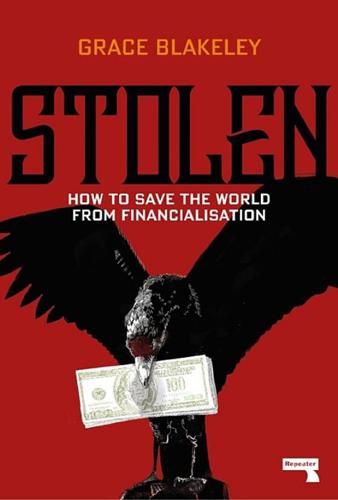
Stolen: How to Save the World From Financialisation
by
Grace Blakeley
Published 9 Sep 2019
Understanding the Private Equity Business Model”, Work, Employment and Society, vol. 23 8 Clark (2009) 9 Lawrence, M. (2017) “Corporate Governance Reform: Turning Business Towards Long-Term Success”, IPPR. http://www.ippr.org/corporategovernancereform; Kay, J. (2012) “The Kay Review of UK Equity Markets and Long-Term Decision Making” http://www.ecgi.org/conferences/eu_actionplan2013/documents/kay_review_final_report.pdf 10 Mazzucato (2018) 11 This account draws on: Redwood, J. (1984) “Tilting at Castles”, speech given by John Redwood, then an adviser in the Conservative Party, to the Policy Unit, 11 June; Martin, I. (2016) Crash Bang Wallop: The Inside Story of London’s Big Bang and a Financial Revolution that Changed the World, London: Sceptre; Shaxson, N. (2012) Treasure Islands: Tax Havens and the Men Who Stole the World, London: Palgrave; Shaxson (2018); ; Centre for Policy Studies (2006) “Big Bang 20 Years On: New Challenges Facing the Financial Services Sector” 12 Shaxson (2012) 13 Robertson, J (2016) “How the Big Bang Changed the City of London Forever”, BBC News, 27 October. https://www.bbc.co.uk/news/business-37751599 14 Skinner, C. (2011) “How The City Developed, Part Thirteen: The Big Bang”, Chris Skinner’s blog. https://thefinanser.com/2011/12/how-the-city-developed-part-thirteen-thebig-bang.html/ 15 Robertson (2016) 16 Ibid. 17 Warwick-Ching, L. (2007) “1986: British Gas privatisation and the search for Sid”, Financial Times, 23 November 18 Ibid. 19 National Audit Office (1987) Department of Energy: Sale of Government Shareholding in British Gas plc, NAO. https://www.nao.org.uk/pubsarchive/wp-content/uploads/sites/14/2018/11/Department-of-Energy-Sale-of-Government-Shareholding-in-British-Gas-plc.pdf 20 Institute for Economic Affairs (2000) A Review of Privatisation and Regulation Experience in Britain, IEA. https://iea.org.uk/publications/research/a-review-of-privatisation-and-regulation-experience-in-britain 21 Boston Consulting Group [BCG] (2016) Privatising the UK’s nationalised industries in the1980s, BCG Centre for Public Impact’, 11 April 2016.. https://www.centreforpublicimpact.org/case-study/privatisation-uk-companies-1970s/ 22 IEA (2016) 23 Ibid. 24 BCG (2016) 25 Boutchkova, M. and Megginson, W. (2000) “Privatization and the Rise of Global Capital Markets”, FEEM Working Paper 53. https://papers.ssrn.com/sol3/papers.cfm?
…
Capitalism wasn’t distorted by the changes of the 1980s, it adapted — and it did so in the interests of the most powerful. The balance of social forces in the UK ensured that it developed the financialised corporate culture par excellence. By unleashing the power of the City of London, and crushing everything that stood in its way, Thatcher helped to build a highly exploitative, extractive and unequal economic model in the UK: one which endures to this day. The Big Bang Once upon a time in the City of London, there lived a noble and chivalrous group of knights in a great big castle called the Stock Exchange.11 At least, that was the story told by John Redwood, then head of the Number 10 Policy Unit.
…
But in many ways, its close relationship to the City was one of the defining characteristics of New Labour, which consistently deregulated the finance sector. Blair attempted to woo ordinarily hostile investors and executives in the City through his famous “prawn cocktail offensive”. Financiers have always been, and would continue to be, natural supporters of the Conservative Party. But Blair and Brown made significant inroads with the sector during their tenure. The consequences of this offensive were, as later noted by the FSA, a total failure to properly regulate financial institutions, which ultimately contributed to the financial crisis.2 Given the power that the City of London Corporation holds within British politics, it is perhaps unsurprising that Blair felt the need to get the institution on side.
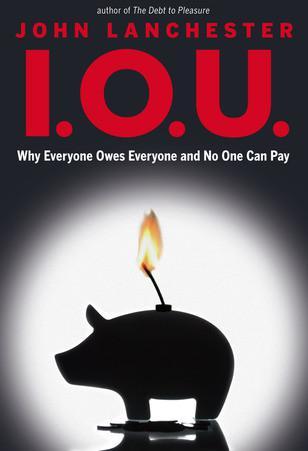
I.O.U.: Why Everyone Owes Everyone and No One Can Pay
by
John Lanchester
Published 14 Dec 2009
The abolition of exchange controls in 1979 and the increasingly international flow of capital, combining with the abolition of restrictions on trading practices which culminated in the “Big Bang” in 1986, have all led to the City’s increasing dominance of British economic life. The Big Bang in turn caused the “Wimbledonization” of the City, making it a place where most of the major players were foreign. As for the Big Bang, it consisted of a series of rule changes which boiled down to one simple thing: the biggest act of deregulation the financial sector had ever seen. Because financial deregulation has been a primary culprit in the current crisis, there’s a temptation to act as if it is inherently a bad thing.
…
INDEX accounting, 26, 28, 106, 231 Against the Gods (Bernstein), 149 AIG: bailout of, 39, 76–78 in CDS market, 75–78, 201 aircraft industry, 227 Alternative Mortgage Transaction Parity Act (AMPTA), 100 Animal Spirits (Akerlof and Shiller), 145n Annie Hall, 1–2 Apple, 34 appraisals, 128 arbitrage, 54–55 arms manufacturing, 200 Arthur Andersen, 106 Asano, Yukio, 18 asset price bubble, 176–77 assets, 10, 25–42, 106, 176 in balance sheets, 25–34, 37–38, 70, 120 banks and, 25, 32–42, 70, 74, 120, 194 of businesses, 29–30, 34 derivatives and, 38, 48–50, 52, 57–58, 120, 205–6 housing and, 96, 126, 130, 176–77 intangible, 30 leverage and, 35–36, 41 liquidity and, 28–29 risk and, 37, 146, 165 toxic, 37–38, 42, 75, 165, 189 ATMs, 7–9, 176 Austen Riggs Center, 140–41 automobiles, automobile industry, 1–2, 24, 40, 134, 197, 222 in balance sheets, 27–28 stocks in, 148–49 balance sheets, 25–35 banks and, 25–34, 37–39, 41–42, 70, 120, 205–7 of businesses, 29–34, 37, 106 of individuals, 27–29, 35 Baltimore, Md., 83–86, 127, 129, 163 Bankers Trust, 150 banking, bankers, banks, 19–22, 24–43, 169, 171–78, 216–20, 222–30 assets and, 25, 32–42, 70, 74, 120, 194 ATMs of, 7–9, 176 bailouts of, 32, 39–41, 77, 120, 204, 212, 219–20, 225–26 balance sheets and, 25–34, 37–39, 41–42, 70, 120, 205–7 of Canada, 116, 211–12 central, 36, 40, 52, 92, 102, 142, 167, 172–78, 180–81, 183, 189, 194–95, 206 check-clearing system of, 33 collapses of, 5, 39, 75, 78, 94, 180, 194, 204, 206, 225 credit and, 37, 41, 43, 209, 211 customer deposits of, 25, 27, 31–34, 74, 187, 224 derivatives and, 20, 51–54, 57–58, 63–71, 74–75, 77, 79, 115–17, 120–21, 132, 183–84, 200, 205–6, 211 economic centrality of, 24–26, 41 of Europe, 8, 35–36, 40, 51, 77, 83, 92, 120, 227 financial industry’s ascent and, 20–21 Glass-Steagall Act on, 64–65, 187–88, 200 holding, 40 housing and, 83–84, 86, 89, 91–95, 102, 126–27, 129–31, 174, 177, 194, 216–17 Iceland’s economic crisis and, 9–12, 24, 40 incentives and bonuses of, 19, 37, 76–78, 206–8, 224, 228 interest rates and, 24, 172–78 investment, 19, 39–40, 65, 77–78, 186–87, 163, 190, 200, 224–25, 227–28 lending of, 22, 24, 27, 33–36, 41–42, 58–60, 67, 69–70, 74, 83–84, 91–94, 102, 117, 127, 129–30, 143, 146, 165, 187, 216–17, 229 leverage of, 35–36, 41–42, 70, 190 mathematicization of, 53–54 narrow, 224–25 nationalization of, 39–40, 228–30 nonbank, 22, 201, 205, 224 paying the bill and, 219–20, 223 regulation and, 21, 33, 180–91, 194–96, 199–200, 202, 204–5, 208, 211, 223–27 risk and, 19, 34–37, 41, 133, 135–36, 143, 150–54, 156–57, 160, 165–66, 174, 187–88, 191–95, 202, 204–7, 216, 224, 226, 228, 230 of U.K., 5, 11, 32–36, 38–40, 51–54, 76–77, 89, 94, 120, 146, 180, 194–96, 199, 202, 204–6, 211–12, 217, 227–28 of U.S., 36–37, 39–40, 43, 63–71, 73, 75, 77–78, 84, 116, 120–21, 127, 150, 152, 163, 183, 185, 190, 195, 204, 211–12, 219–20, 225, 227–28 wish list of, 186–87, 195 zombie, 43, 229 banking-and-credit crisis, 192–96, 215–21, 225–28, 231 aftermath of, 215–17 bases of, 201–2 causes of, 182–83, 186, 196, 205–7, 217 economists on, 192–94 failure in forecasting of, 193–94, 211 journalists on, 192–93 profits in, 78, 227–28 and regulation, 182–83, 194–96, 202, 205, 211, 225–26 and risk, 192–95, 202, 205–7, 216 Bank of America, 39 Bank of England, 36, 52, 102, 167, 177–78, 206 and banking-and-credit crisis, 194–95 and interest rates, 178, 180 and regulation, 180–81, 195 Barclays, Barclays Bank, 11, 35–36, 77, 146, 227 Baring, Peter, 52 Barings Bank, 51–52, 54, 180 Barofsky, Neil, 219 Basel rules, 154, 208 derivatives and, 67–68, 120, 183 Bear Stearns, 39, 190 Belair-Edison Community Association, 127 Belgium, 40 Bell, Madison Smartt, 89 bell curve, 154–56, 160 Berlin Wall, fall of, 12, 16, 18, 23 Bernstein, Peter, 149 “Big Bang,” 22, 195–96, 200–201 Bitner, Richard, 124–27, 131 Black, Conrad, 59 Black, Fischer, 45, 47–48, 147 Black-Scholes formula, 48, 54, 116–17, 151 Blank, Victor, 40 BNP Paribas, 36, 77 bond market, bonds, 20, 22–23, 58–59, 73, 107–12 Broad Index Secured Trust Offering (BISTRO), 70–71, 121 corporate, 154, 210 derivatives and, 58, 63–67, 112, 114, 118–19, 210–11 of governments, 29–30, 61–62, 103, 109, 118, 144, 176–77, 208 incentives and, 209–11 investing and, 62–63, 102–3, 107–8, 111, 208–9 investment grade, 62 junk, 42, 62, 208 prices and, 61, 63, 102–3, 108–10, 144 in raising capital, 59, 61–63, 102–3 ratings of, 61–63, 114, 118–19, 208–11 risk and, 61–63, 103, 118, 144, 154, 208 Russia’s default and, 55–56, 162, 164–65 bonuses, 19, 37, 76–78, 207, 218, 224, 228 Bradford & Bingley, 40 Bragason, Valgarður, 10–11 British Airways, 199 Brown, Gordon, 12, 33, 88, 178 Buffett, Warren, 150 credit rating of, 123, 125 derivatives and, 56–57, 78 Bush, George W., 2, 78, 99, 142, 203, 219 regulation and, 19–20, 191, 195 businesses, 15, 58–63, 105–6, 187, 198–99, 221 balance sheets of, 29–34, 37, 106 banks and, 195, 229 bonds and, 59, 61–63, 102–3, 154, 208, 210 derivatives and, 112, 114, 153 lending to, 41–42, 60, 108 offshore, 70, 72 regulation and, 183, 195 risk and, 37, 145, 150–51, 153–54, 195 Canada, banks of, 116, 211–12 capitalism, 12–19, 116 banks and, 19, 25, 182–83, 202, 218, 228, 231 communism vs., 12, 16–17 failure of, 228, 230 free-market, 13–19, 21, 23–24, 96, 105n, 143, 173–75, 184, 192, 196, 202–4, 230–32 in Hong Kong, 13–14 laissez-faire, 142–43, 173, 182–83, 189, 191, 195–96, 202, 211–12 Marxist analysis of, 15–16 regulation and, 182, 192 as secular religion, 202–4 success and spread of, 14–15, 18–19, 21, 23–24 Carville, James, 22–23 cash ratios, 25 Cassano, Joseph, 201 check-clearing systems, 33 Chicago Board Options Exchange, 48 Chicago Mercantile Exchange, 47 China, People’s Republic of, 115, 124 economic boom in, 3–4, 14, 108–9 Hong Kong and, 13–14 U.S. investment of, 109, 176–77 Cisneros, Henry, 99 Citigroup, 120, 163, 219–20, 227 Citron, Robert, 51 City of London, 32, 195–97, 199–202, 217–18 and banking-and-credit crisis, 205–6 and Big Bang, 195–96, 200–201 derivatives and, 56–57, 79, 201 and financial vs. industrial interests, 197, 199 ideological hegemony of, 21–23 Wimbledonization of, 195–96 Civil Justice Network, 85, 128–29, 131 Cleveland, Ohio, 83 Clinton, Bill, 22, 43, 107 housing and, 99–100 regulation and, 19–20 Coggan, Philip, 25 cognitive illusions, 141–42 Cold War, 201–2 end of, 16, 18, 21, 164 collateralized debt obligations (CDOs), 183, 201, 210–12 bonds and, 112, 114, 118–19, 210–11 of CDOs, 119, 206 Gaussian copula function and, 116–17, 157–60, 163 mathematics and, 115–16 mortgages and, 75–76, 112–22, 132, 157, 159–60, 172, 210 risk and, 114–15, 117–22, 158–60, 163, 167, 212 securitization and, 113–14, 11719, 122 shortage of borrowers for, 121–22 tranching and, 117–18, 122 commodities, 227 derivatives and, 47, 49n, 51–52, 184 prices of, 3–4, 107–8, 148–49 Commodity Futures Modernization Act, 184 communism, 12, 16–18, 23 competition, 58, 96, 105n, 203, 226–27 regulation and, 187–88, 226 Confessions of a Subprime Lender (Bitner), 124, 127 Congress, U.S., 77, 100, 204 regulation and, 184–86 risk and, 142–43, 164–66 conservatism, housing and, 98 correlation, correlations: CDOs and, 115–16, 158, 167 risk and, 74, 148–49, 158–59, 165, 167 credit, 8, 169–73 banks and, 24–26, 37, 41, 43, 209, 211 bubbles in, 42, 60, 109, 170, 176, 216–17, 221, 223 CDOs and, 114–15, 119–20, 172 crunch in, 37, 41, 43, 54n, 77, 84–86, 92–93, 94n, 136, 163–64, 169, 171–73, 182, 193, 201–2, 215–16, 218–19 histories and ratings on, 85, 100, 123–26, 158, 163, 165, 208–11 housing and, 84–86, 92–93, 94n, 100, 109, 112, 125, 129–30, 132, 163–64 Iceland’s economic crisis and, 10–12 interest rates and, 172–73, 175, 209 risk and, 136, 158, 165 see also banking-and-credit crisis Crédit Agricole, 36 credit cards, 27, 217 credit ratings and, 123–24 Iceland’s economic crisis and, 9, 11–12 risk and, 158–59, 163 credit default swaps (CDSs), 20, 63, 65–80, 117, 158–59, 183–86 AIG and, 75–78, 201 attractive aspects of, 72–74 examples of, 57–58 Exxon deal and, 67–70, 121 over-the-counter trading of, 184–85, 201 regulation and, 68, 70, 73, 184–86 risk and, 58, 66–70, 72–75, 78–80, 212 securitized bundles of, 69–70, 74 streamlining and industrializing of, 68–69 unfortunate side effect of, 74–75 Credit Suisse, 36, 227 Cuomo, Andrew, 99 Cutter family, 126–27 Darling, Alistair, 172, 220 debt, debts, 27–29, 34, 59–63, 118, 172n, 179, 216, 229 in balance sheets, 27–28, 30–31 benefits of, 59–61 bonds and, 59, 61–63, 208, 210 credit and, 123–26, 221 derivatives and, 52, 67, 69–72 housing and, 93, 100, 132, 176 paying the bill and, 220–22 personal, 221–22 regulation and, 181, 190 Russian default on, 55–56, 162, 164–65 see also collateralized debt obligations default, defaults, default rates, 162–65 CDOs and, 114–15 on mortgages, 159–60, 163, 165, 229 risk and, 154, 159–60, 163 of Russia, 55–56, 162, 164–65 see also credit default swaps Demchak, William, 69 democracy, democracies, 15–18, 108–9, 179, 213 free-market capitalism and, 15, 17, 23 housing and, 87, 98 DePastina, Anthony, 85 Depository Institutions Deregulation and Monetary Control Act (DIDMCA), 100 deregulation, see regulation, deregulation derivatives, 45–58, 63–80, 86, 210–12 in balance sheets, 30–31, 70 banks and, 20, 51–54, 57–58, 63–71, 74–75, 77, 79, 115–17, 120–21, 132, 183–84, 200, 205–6, 211 Black-Scholes formula and, 48, 54, 116–17, 151 bonds and, 58, 63–67, 112, 114, 118–19, 210–11 Buffett and, 56–57, 78 and City of London, 56–57, 79, 201 complexity of, 52–54, 56–57 Enron and, 56, 105–6, 185 futures and, 46–47, 49n, 51–52, 54, 184 Greenspan on, 166, 183–84 in history, 45–48, 147 mathematics and, 47–48, 52–54, 115–17, 166 offshore companies and, 70, 72 options and, 46–47, 50–52, 151, 174, 184 over-the-counter trading of, 184–85, 201, 205–6 prices and, 38, 46–52, 54, 56, 75, 158–59, 166 regulation and, 68, 70, 73, 153, 183–86, 200–201 risk and, 46–47, 49–52, 54–55, 57–58, 66–75, 78–80, 114–15, 117–22, 151, 153, 158–60, 163, 166–67, 184–85, 205, 212 size of market in, 48, 56, 80, 117, 201 see also collateralized debt obligations; credit default swaps Detroit, Mich., 81–82 Deutsche Bank, 36, 77, 83, 227 diversification, 146–48, 177 dividends, 101, 147–48 Doctorow, E.
…
I grew up abroad and can vividly remember what a pain in the backside things such as currency restrictions were. When Margaret Thatcher came to power, you couldn’t take more than £500 out of the country at any one time—a restriction which now seems as distant as that of whalebone corsetry. The City of London was a club, and a particularly unlovable club at that, exclusively white and male and not just conservative but actively reactionary as a social force. Big Bang changed both the clublike nature of City life and also its impact on Britain: global finance was now a radical force, remaking Britain in the image of a laissez-faire free-market economy, tearing up the consensual, all-in-it-together model of governance which both parties had been pursuing since the Second World War.
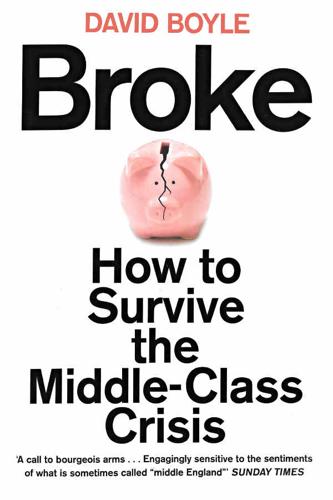
Broke: How to Survive the Middle Class Crisis
by
David Boyle
Published 15 Jan 2014
Here they are: The abolition of the Corset which restricted inflationary finance pouring too fast into house prices. The decision may have been inevitable, yet nothing was done to replace it. The destruction of the building societies may have been carried out in the name of banking diversity and competition, but it has had precisely the opposite effect. The disastrous reforms of the City of London known as Big Bang were organized to protect London’s role in global finance, but turned a blind eye to the culture of greed and corruption that followed inevitably in its wake, and ushered in the new elite that is pricing the middle-class life out of the reach of the middle classes. The launch of personal pensions was not a problem in itself, but they allowed policymakers to blind themselves to the way that the most effective pension system in the world was unravelling before their very eyes.
…
They made a disastrous political mistake over the past generation. They backed the idea of trickle-down economics that failed to trickle. They cheered the corrosive growth of financial services in the City of London and ignored their excesses. They believed those in charge of their financial institutions had their class interests at heart, when they had nothing of the kind. They did not understand where Big Bang would lead — and where it would inevitably lead: if the middle classes had been allowed to share in the new wealth, it would have caused rampant inflation. They did not understand that policies they supposed would benefit middle-class families and reward hard work were actually enriching a new financial elite.
…
Ending fixed commissions and electronic trading must have been inevitable, but ending the tradition of divisions between different trading functions was not inevitable at all. For those who could peer dimly into the future, the signs were already there. One study published in the week of Big Bang showed that, even before the deregulation, insider trading seemed to be endemic. The great sceptic David Hopkinson, due to retire in the month of Big Bang in October 1986, sent Goodison a public warning letter at the end of that summer, with only months to go. ‘I hope that the big battalions will behave responsibly,’ he replied.[20] It was a forlorn hope. With just weeks to go, the new Bank of England governor Robin Leigh-Pemberton used his Mansion House speech to call rather pathetically for ‘a degree of restraint’.[21] Leigh Pemberton’s own solution was that ‘the most convincing of Chinese walls must be erected between … functions’.[22] But then, as the old, politically incorrect City used to say: ‘Chinese walls have chinks in them.’
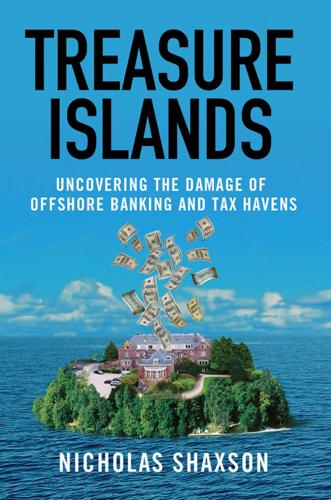
Treasure Islands: Uncovering the Damage of Offshore Banking and Tax Havens
by
Nicholas Shaxson
Published 11 Apr 2011
“As the imperial basis of its strength disappeared, the City survived by transforming itself into an ‘offshore island’ servicing the business created by the industrial and commercial growth of much more dynamic partners.”12 Modern histories of the City of London’s growth as a financial center point to the “Big Bang” of 1986—the sudden deregulation of London’s markets under Prime Minister Margaret Thatcher—as the moment when London really took off in its modern form. But Tim Congdon, one of the City of London’s most experienced spokesmen, spotted the real story. “The Big Bang,” he wrote in 1986, “is a sideshow to, indeed almost a by-product of, a much Bigger Bang which has transformed international finance over the last 25 years. The Bigger Bang is—on all the relevant criteria—a multiple of the size of the Big Bang.”13 “An extraordinary situation has arisen where the Euromarket, which has no physical embodiment in an exchange building or even a widely recognised set of rules and regulations, is the largest source of capital in the world.”14 The scholar Gary Burn put it in a different light.
…
J., 66 capital controls, 56–61, 63, 82, 84, 240n16,17, 246n11 “capital flight,” 20, 30, 53–4, 57–8, 93, 97, 110, 139–43, 160, 183, 250n26 European flight capital (1930s), 58 capital flows, 9, 18, 20–1, 28–30, 32, 50–61, 63, 75, 78, 80, 82, 84–5, 92–3, 108–9, 112, 127, 130–1, 138–40, 144, 164–5, 183, 217, 219, 221–2, 237n44, 240n16,17, 241n9, 246n4,11, 257n50 controls on: See capital controls and corporations, 29 free, 55–7, 219 inflows, 21, 30, 58–60, 109, 165, 237n44, 241n9 and Keynes, 50–61 and language, 30 outflows, 30, 75, 92, 112, 138–9, 183, 217, 237n44, 241n9 and social capital, 164–5 See capital controls capital gains tax, 155, 162–3 Capone, Al, 88 Carlisle, Rodney, 23 Carter, Jimmy, 114, 117, 200 Carteret, George, 106 Carville, James, 52 Cary, William, 124 “casino banking,” 67 Castle Bank and Trust (Cayman) Ltd., 100–1 Castro, Fidel, 88–9, 93, 99 Cato Institute, 150, 155, 163 Cayman Islands (British overseas territory), 6, 10, 12–13, 18–19, 23–4, 26–7, 44, 46, 74, 79, 82, 87, 90–6, 99–103, 106, 125–6, 128, 132–5, 161, 163, 165–7, 171–92, 211–12, 214–15, 223, 234n12, 235n22, 236n31, 243n59, 248n39, 256n40 British power structure within, 18, 94 and Confidential Relationships (Preservation) Law, 101–2 and denial of tax haven status, 12–13 and drug money, 101–2 employment in, 171–92 and Enron, 23 and hedge funds, 26 history of as tax haven, 90–6 “Star Trust,” 46 statistics on, 18 Cayman Islands Monetary Authority (CIMA), 214–15 Center for Freedom and Prosperity (CF&P), 150, 160 Center for International Policy (Washington, D.C.), 29 Central Bank of Philippines, 141 Chait, Jonathan, 170 Chang, Ha-Joon, 59 Charles II of England, 72–3, 104 Chase Manhattan, 107–8, 112, 114, 172, 197 Chase National Bank, 194–7, 200–1 chasse gardée, 3 Chenoweth, Neil, 7 Chicago, 36, 40–1, 61, 125 meatpackers, 36, 40–1 China, 1, 12, 14, 16, 27, 36–7, 60, 71, 81, 85, 88, 105–6, 121, 147–8, 164, 169, 217 and Britain, 105–6 statistics on oil, 1 Chirac, Jacques, 4 Christensen, John, 19, 103–4, 115–16, 146, 150, 170, 182–91, 207, 233n1 Churchill, Winston, 49 CIMA: See Cayman Islands Monetary Authority Cisco, 14 Citicorp (Citibank), 8, 80–1, 141–2, 152, 194–6, 201 Citigroup, 20, 68, 103 Citizens for Tax Justice, 112, 159, 170 City of London (England, U.K.), 17–19, 24, 26, 54–5, 61, 63–86, 87–8, 98, 103, 105–6, 109, 115, 129–30, 134, 136, 147–8, 182, 212, 222, 224, 235n18, 236n23,25,28, 239n13, 242n27,32,34, 243n36,37,42, 244n72 and Britain’s offshore spiderweb, 68–9 and the Caribbean, 87–106 central organization of, 70–4 See City of London Corporation and City Cash, 74 controlling role of, 45–6, 96–6 and “domicile” rule, 69 global reach of, 18 history of, 63–86, 87 See “Big Bang”; Euromarkets and international financial deregulation, 85–6 and lending, 76–8 and “London-grad,” 69 and loopholes, 67–8 as old boys network, 64–5 and “rehypothecation,” 68 and secrecy, 69 and Special Purpose Vehicles (SPVs), 26 tentacles of: See British Crown Dependencies; British overseas territories; British zones of influence and the U.S., 67–8, 78–84 City of London Corporation (Corporation of London), 70–4, 76, 85–6, 224, 242n25, 243n36–37, 244n72 head of: See Lord Mayor of London history of, 71–2 and voting rights, 71 civil society, 170 Clinton, Bill, 52, 119–20, 150, 160 Clinton, Hillary, 30, 58 Coalition for Tax Competition, 150 Cold War, 75, 109, 138 Coleman, Norm, 121 Colombia, 26, 101, 111, 133, 136 Medellin drug cartel, 101, 133 colonialism, 2–8, 20, 23, 65, 88–9, 93–5, 104–5, 117, 138, 147, 161, 184 Commodity Futures Trading Committee (CFTC), 68 Compact of Free Association, 22 comparative advantage theory, 16 competition, tax, 149–56 Confidential Relationships (Preservation) Law, 101–2 Congdon, Tim, 66 ConocoPhilips, 22 Cook, Geoff, 168 Cornfeld, Bernie, 97–8 corporate governance, 39, 85, 122–5, 201–2 corporate responsibility, 228–9 The Corporation (Bakan), 158 Corporation Trust (Delaware), 125–6 corruption, 126–8, 229 Corruption Perceptions Index (CPI), 126 country-by-country reporting, 222 Cowperthwaite, Sir John, 105 Craven, John, 81 credit cards, 193–201 criminal money See arms trafficking; bribes; drug money; mob/mafia; terrorist financing Crocodile Dundee, 33 Crook, Kenneth, 93–5 Cuba, 88–9, 93 currency trading, 63–4, 70 Cyprus, 10, 27, 33, 138, 238n52 Dai Xianglong, 86 Davison, Daniel, 81 Deepwater Horizon, 22 de la Torre, Lisandro, 36, 38, 46–7 de Rugy, Veronique, 150 deferrals, tax, 112–13 Delaware, 22, 26, 39–40, 120–1, 123–6, 150, 166, 193–201, 204, 207–12, 214, 222, 228, 247n31, 248n34,39,42, 254n3,4, 255n18, 256n40 Chancery Court, 124–5, 248n34 Corporation Trust office, 125–6 history of offshoring, 39–40, 123–6 and jurisdictions, 193–201, 204, 207–12, 214 and securitization/bundling, 26, 125 and usury, 193–5, 200, 204 Delaware Statutory Trust Act (1988), 201 DeLay, Tom, 160–1 Deloitte & Touche, 25, 202, 209 DeLong, Bradford, 49, 55, 158–9 democracy, 7–8, 13, 31, 33, 42, 56, 71, 82, 102, 113, 123, 129, 131, 144–8, 162, 164, 170, 182, 185, 189, 192, 195–6, 198, 206, 210, 212, 219, 222, 224 and taxation, 144–8 Democratic party, 31, 82, 123, 185, 195, 198, 254n4 Democratic Republic of Congo, 131 deregulation, 32, 52, 66, 74–6, 85, 87, 115, 129–30, 132, 155, 159, 182, 193, 200, 209–10, 212, 217 developing countries, 8, 28–30, 57–60, 91, 93, 97, 100, 108, 126, 129–48, 155–6, 164, 169, 183, 217, 222–5, 227, 229, 236n29, 237n44, 240n22, 246n13, 250n26 and blame-the-victim, 8, 29, 140–4 and capital, 57–60 and capital flight, 139–43 and mobile phone charges, 148 and the offshore system, 129–48 and reform, 223–4 and sovereign debt funds, 143–4 and tax, 144–8 and tax treaties, 147–8 See Bank of Credit and Commerce International Deviers-Joncour, Christine, 5 Dill, James B., 39 Disney, 7, 88 Double, Paul, 73 double taxation, 26, 41–2, 130, 146 defined, 26 “Double Irish,” 14 drug money, 6, 9, 18, 20, 22, 26–7, 29, 88, 101–2, 111, 120, 131–3, 136 du Pont, Pierre S.
…
This happened just at the start of a massive credit boom, followed by what was at the time the biggest asset market crash in history. That roller coaster had many causes, but the wildfire was stoked by the $400 billion that whooshed into Tokyo within 24 months19 and showed local bankers what liberalized finance was all about. That year was also, as noted in chapter 4, the year of the fateful Big Bang of deregulation in the City of London, which provided Wall Street with major new escape hatches from financial regulation. As offshore finance moved onshore, it became ever harder to tell the two worlds apart. And this, crucially, fed the giant blind spot, which persists to this day. Nearly every tax analyst took this blurring between onshore and offshore as a signal to stop trying to measure or analyze the secrecy jurisdictions, or just to focus on a few smaller, more colorful island havens.
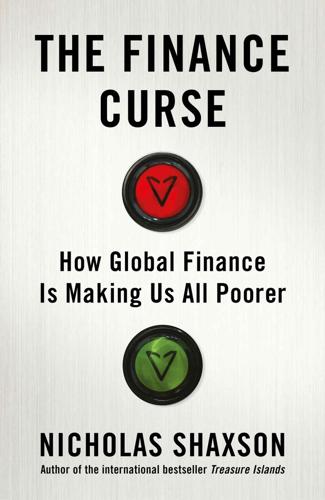
The Finance Curse: How Global Finance Is Making Us All Poorer
by
Nicholas Shaxson
Published 10 Oct 2018
The Bill Black quotes come from my telephone interview with him on 15 September 2012, and from ‘Bill Black: Thomas Friedman – Deregulation Makes Banking Safe’, Naked Capitalism, 11 August 2016. 4. Archives 1985 & 1986: Jim Pickard and Barney Thompson, ‘Thatcher policy fight over “Big Bang” laid bare’, Financial Times, 30 December 2014. 5. These quotes are from the superb Swimming with Sharks by Joris Luyendijk, Guardian Faber, 2015, about the City of London. Similar accounts are provided in Karen Ho, Liquidated: An Ethnography of Wall Street, Duke University Press, 2009. 6. Bosworth-Davies’s most detailed comments on the arrival of criminal elements in London after the Big Bang are recorded in ‘Financial Crime – Staring failure in the face’, Rowan’s Blog, 13 December 2006 and subsequent blogs.
…
It is hardly surprising that New York financiers had been calling London, where they could do things they weren’t allowed to do at home, the Guantanamo Bay of global finance.38 Two months later the City of London issued its Global Financial Centres Index, announcing that, according to its own analysis, London had ‘a narrow lead over New York’. It mentioned the United States 92 times and the same C-words over 200 times. The UK government had to ensure that a ‘“tipping point” is not reached’. The answer was even more deregulation in London too. In June Gordon Brown, Blair’s chancellor, joined the financial love-fest, congratulating a group of City financial and political bigwigs on ‘an era that history will record as the beginning of a new golden age for the City of London’. He crowed about having resisted pressure to tighten financial regulations in the wake of the Enron and Worldcom disasters, and added, ‘Your success is critical to that of Britain’s overall, and considering together the things that we must do – and, just as important, things we should not do – to maintain our competitiveness … I believe it will be said of this age, the first decades of the twenty-first century, that out of the greatest restructuring of the global economy, perhaps even greater than the Industrial Revolution, a new world order was created.’
…
122, 136–7 Cadbury’s 113 Cameron, David 48 Capital Group 84 capital requirements 148–63 Careline Homecare Limited 190–3, 202–5, 206, 216, 220 care sector 4, 190–4, 202–9, 216–17, 220, 228, 229, 234 Carillion 46, 231, 237 Carlyle Group 214 Carvalho, Arnaldo Lago de 233 Cassano, Joe 161 Cayman Islands 1, 2, 3, 59–60, 62, 63–7, 93, 125, 136, 140, 141, 145, 150, 151, 152, 153–4, 157, 162, 179, 188, 200, 211, 228, 242 Cayman Trust Law (1967) 62 Celtic Tiger (Ireland economy) 4, 115, 116–39 Central Bank of Ireland 129, 136 Cheney, Dick 244 Cherwell, Lord 53 Chicago School 28, 29, 30, 46, 71, 74, 98, 110, 197, 209, 253 China 13, 23, 50, 55, 84, 85, 87, 92, 104, 108, 110, 117, 138, 200, 258, 262–7, 272, 274 China General Nuclear Power Corporation (CGN) 262–3 Chinese Communist Party (CCP) 258, 264, 265, 266, 267, 272 Christensen, John 5, 11, 48, 67–8 Christensen, Professor Clayton 197, 198 Citibank/Citigroup 11, 59, 83, 129, 140, 159 City of London 37, 38, 84, 92–3, 183, 185, 252, 271, 272, 273; Big Bang 104, 143–4; capture of British establishment 13, 142, 166–7, 257–60, 265, 266; Chinese influence upon 262–7; evidence machine/lobbying and 257–60; financial brain drain and 6, 108, 259; global financial crisis and see global financial crisis; monopolies and 84; neoliberalism and 37, 38; organised crime and other abusive activities linked to 11–12, 93, 97, 141–6, 154, 166, 167, 168; penetrated and captured by reckless global finance (London loophole) 140–68; rebirth as global financial centre after fall of British empire 4, 10, 50–69; tax havens and see tax havens; Third Way and 92–3, 97, 98, 102, 104, 108, 109, 113; UK economy and growth in size of 5–14, 108, 218–40, 257–61, 262–74 City of London Corporation 257–8 Clearing House Group 130–1 Clinton, Bill 91, 97, 101, 114, 115, 122, 159 Clinton, Hillary 91, 100 Coase, Ronald: The Problem of Social Cost 72–4, 79 Coelho, Tony 98–9 Cohen, Benjamin J. 57 Cohen, Sheldon 254 collateralised debt obligations (CDOs) 165, 235 collateralised loan obligations (CLOs) 165, 200 Commodity Futures Modernisation Act (CFMA) (2000) 159–60 Community Mental Health Fund, Missouri 44 comparative advantage concept 105, 108 Competition and Markets Authority 70 competitiveness of nations/competitiveness agenda 8–9, 13–14, 23, 28–49, 62, 68, 70–1, 73, 80, 95, 97–8, 100–15, 130, 131, 132–3, 136, 142, 143, 149, 159, 160, 161, 164, 165, 180–1, 184–5, 207, 218, 241–3, 246–7, 250, 252–3, 258, 266, 267, 270, 271, 273 Conservative Party 37, 53, 71, 78, 102, 157, 165, 168, 220, 229 consultants 40, 41, 42–3, 66, 117, 230, 232, 233 controlled foreign company (CFC) reforms, U.K. 249–50 Cook Islands 177, 186, 272 Cornfield, Bernie 93 corporation: complexity of 3, 205–6; concept of 196–7 credit, control of 21 credit default swap (CDS) 128, 141, 147, 155–9, 165 Credit Suisse 11, 180, 183 crime/criminal money 12, 56, 58, 61, 62, 63, 64–5, 93–4, 142–3, 144, 145, 153, 154, 167–8, 175, 180, 187, 223, 264, 272, 273 Cromwell, William 22 Daily Mail 113, 251, 252 Darling, Alistair 257 Davidson, Charles 182, 189 Davidson, Kenneth 81, 252 Davies, Will 36, 39, 102 Deaton, Angus 181 debt 7, 34, 58, 69, 121, 152, 160, 165, 169, 186, 190, 193–6, 198–201, 205, 206–7, 208, 210, 215, 221, 234, 235, 244, 248, 262 Delaware, U.S. 181 Deloitte 235, 237 Delors, Jacques 100 Democratic Party, U.S. 39, 97, 98–100, 102, 141, 245 Deng Xiaoping 117 Depfa 133 deregulation, financial 13, 31, 35, 64–5, 68–9, 91, 97, 104, 107, 109, 117–18, 138, 142, 143, 146, 152, 159–60, 164, 165, 260 derivatives 12, 140–1, 142, 144, 146–7, 149, 151, 155, 158–60, 161, 164, 193 Desmond, Dermot 129–30 de Tocqueville, Alexis 75–6 Deutsche Bank 83, 95, 111, 160 Devereux, Professor Mike 243 Director, Aaron 71–2, 78, 79 DIRT (Deposit Interest Retention Tax) 136 Down’s Syndrome North East Association (UK) (DNSE) 169–70, 174 Drexel Burnham Lambert 161, 195 drugs: gangs/money 12, 61, 64–5, 92, 142–3, 145, 167, 185–6; pharmaceutical/Big Pharma 85–6, 126, 247 Dunbar, Nicholas 152, 161 dynamic scoring/dynamic modeling 253–4 East India Company 50, 75 Eddy, Bruce 44 Efficient Markets Hypothesis 150 Elf Affair 94, 187 Enron 46, 141, 165, 235–6 Epstein, Professor Gerald 10–11, 259; Overcharged: The High Costs of Finance 10– 11 Ernst & Young 163, 235, 238 Espino, Ovidio Diaz: How Wall Street Created a Nation 23 Essilor 82; EssilorLuxottica 82 Eurodollar markets/Euromarkets 55–9, 60, 61, 62, 63, 64, 68, 69, 77, 91, 93, 104, 142 European Central Bank (ECB) 137 European Commission (EC) 84, 94, 100, 111, 137; Liikanen Report (2012) 135 European Economic Community (EEC) 77, 98, 118, 123, 124–5 European Round Table of Industrialists (ERT) 100 European Union (EU) 98, 109–10, 111, 124, 132, 147, 238 Export Profits Tax Relief 118 Facebook 23, 71, 84, 88, 171, 173, 185, 226, 271, 274 fallacy of composition 107–8, 247 Fallon, Padraic 124 Fanning, John 126 Fantus Factory Location Service 40 Farm Aid 87–8 Federal Reserve Bank of New York 57 Ferguson, Niall: The Ascent of Money 242 Fiat 250 Finance Acts, Ireland: (1968) 120; (1987) 131 finance curse, concept of 3–14, 15, 18, 19, 22, 31, 37, 48, 68, 71, 103, 108, 111, 132, 136, 174, 184–5, 193, 198, 216, 228, 239, 257, 261, 265, 267, 269, 270, 271, 272, 273, 274 financial capture 13, 68, 96, 153, 257, 259, 265, 266 Financial Conduct Authority (FCA) 25–6, 246 financial crisis, global (2007–8) 4, 6, 25, 83, 90, 99, 109, 113, 114, 116, 128, 130, 133–4, 135–6, 140–68, 169, 195, 202, 224–5, 233, 235, 236, 240, 257 financialisation 2–4, 6, 9, 10, 11, 37, 68–9, 71, 88, 90, 174, 180, 185, 190, 191, 194, 198, 205, 217, 224, 225, 226, 228, 232, 259, 267, 274 Financial Services Authority (FSA) 104, 160, 161, 166, 167 Financial Stability Board (FSB) 83 Financial Times 68, 84, 94, 107, 146, 214, 218, 226, 232, 243, 256 Finger, Bernd 168 Fischel, William 38 Fordism 80 foreign direct investment (FDI) 110, 118–19, 123, 124, 132, 250 Fox News 71, 253 Franks, Oliver 52 Fraser, Ian: Shredded 227 free markets 18–19, 71–2, 99, 126, 128, 241 free-rider problem 30–1, 43, 47, 38 free trade 31, 50–1 Friedman, Milton 28, 30, 37, 59, 72, 73–4; ‘The Social Responsibility of Business Is to Increase Its Profits’ 196–7, 198, 209 Friedmaniacs 28, 30 FTSE 100 228, 238 Gapper, John 232–3 Gash, Tom 230 Gates, Bill 127, 185 Gauke, David 249 Gaydamak, Arkady 186 Gazprom 84 GDP (gross domestic product) 6, 8, 111, 112, 123, 147, 153, 174, 241, 245, 254, 256, 260, 266 General Electric (GE) 86–7 Gensler, Gary 140–1 Gibraltar 60, 63 Giddens, Anthony: The Third Way 105 Gilbert, Martin 83 Gilead 85–6 Giles, Chris 218 Glasman, Baron 258 Glass-Steagall Act (1933) 76, 147, 158–9 globalisation 10, 35, 59, 93, 94–5, 97, 98, 101, 102, 103, 106, 107, 109, 165, 177, 251, 254 Golden Age of Capitalism 34, 69, 91, 92, 118, 196, 251, 254–5 Goldman Sachs 113, 159, 160, 183, 213, 235, 242 Google 71, 88, 226, 271 Graphite Capital Partners VIII A LP 191–2, 205, 206 Great Depression (1929–39) 31, 98 Greenspan, Alan 75, 159, 160 gross national income (GNI) 112, 119, 122–3, 134 Guernsey 60, 181, 191, 220, 222 Hahneman, Daniel 181 Haldane, Andrew 225 Hands, Guy 181 Hansen, Lee 28 happiness, wealth and 181–3, 189 Harlech, Lord 34 Harrington, Brooke 186, 188 Hartnett, Dave 113 Harvard Business School 101, 196, 197 Harvie, Alicia 87–8 Harvoni 86 Haughey, Charles 114–15, 120–3, 129–30, 136 Hayek, Friedrich 35–6, 37, 59, 76; The Road to Serfdom 36, 37 Hayes, Jerry 229 Heaton, David 234 hedge funds 6, 13, 83, 104, 108, 128, 130–1, 140–1, 154, 164, 177, 178, 189, 193, 200, 209, 213, 214–15, 217, 233 Henry, James 166, 260 Hewlett-Packard 39–40 Hinkley C 262–3 HMRC 62, 104, 113, 168, 173, 234, 241, 242, 245, 246, 249, 252–4; Computable General Equilibrium model 241, 252–4 HNWI (high net worth individuals) 180; ultra-HNWI 180 Hodge, Margaret 168, 239 Hofri-Windogradow, Adam 180 Hong Kong 50, 130, 138, 171–2, 266 HSBC 12, 54, 83, 107–8, 167, 266 Hundred Group 242 Hunt Companies 221 HypoVereinsbank 133 Industrial Development Authority (IDA), Ireland 118, 124–5, 126, 129, 131, 135 inequality 4, 11, 31, 34, 36, 47, 48, 59, 90, 109, 138, 179, 187, 225, 251, 255, 256, 257, 259, 267–8, 270, 272, 274 inflation 34, 80, 107, 129 Innes, Abby 229 Institute for Fiscal Studies (IFS) 247 Intel 125 internal rate of return (IRR) 198, 211 International Financial Services Centre (IFSC), Dublin 128–35, 251 International Monetary Fund (IMF) 137, 164, 219, 250, 251, 257 International Public Partnerships Limited (INPP) 220–1 International Swaps and Derivatives Association (ISDA) 158 Intruders 113 Investec Wealth & Investment Limited 220 investment funds 2, 88, 110, 140 Investors Overseas Services (IOS) 93 Iran 53–4 Ireland: Celtic Tiger economy in 4, 114–15, 116–39 Isle of Man 60, 136 Jackson County, Missouri, U.S. 44 Jenkins, Robert 11 Jensen, Professor Michael 196, 197, 198, 209, 215 Jersey 1, 2, 3, 5, 60, 63, 67–8, 131, 136, 169, 171, 173, 174, 202, 221, 222, 223, 228, 258 Jiang Zemin 117 Johnson, Boris 218, 219, 222 Johnson County, Kansas, U.S. 41–4 Johnson, Paul 247 Johnson, Simon 257 Joly, Eva 187 Journal of Political Economy 29, 46 JP Morgan Chase 83, 95, 141, 146, 147, 155, 158, 160, 214 Juncker, Jean-Claude 94–5, 97, 102, 103, 104, 111, 114, 122 Kansas, U.S. 41–4, 244–5, 255–6 Kay, John 9 Kennedy, Edward 78–9 Keynes, John Maynard 31–2, 34, 37, 38, 52, 59, 68, 251 KKR (Kohlberg Kravis Roberts) 2, 3, 195, 214 Koch, Charles 74 Kohlberg Junior, Jerome 194, 195, 199 Kohl, Marius 95 KPMG 114, 235, 237, 238–9 Kraft Heinz 81, 113 Kravis, Henry 2, 195 Kroes, Neelie 110 Krugman, Paul: ‘Competitiveness: A Dangerous Obsession’ 105 Labour Party 77, 97, 102–5, 132, 192, 220, 247, 257 Lack, Simon 214; The Hedge Fund Mirage 214 Laffer, Arthur/Laffer curve 244–5, 254 Lazonick, Bill 225, 226 Leaver, Professor Adam 207, 224–5, 234 Lehman Brothers 140, 162–4 Leigh-Pemberton, Robin 145 LeRoy, Greg 40–1 leveraged buyout (LBO) 195–6 Levin, Carl 134 Liberty Global 250 Libor (London Inter-Bank Offered Rate), manipulation of 12, 85, 109, 166 Linares, Adolfo 185, 188 Linklaters 163 Lloyds Bank 52 Local Government Association (LCA) 224 Loch Alpine Economics 253 London School of Economics (LSE) 37, 105, 229 London Stock Exchange (LSE) 167, 220 London Whale 141 Long-Term Capital Management (LTCM) 140–1 Luxembourg 1, 2, 3, 13, 55–6, 92, 93–7, 98, 111–13, 125, 130, 138, 142, 166, 201, 211, 221, 222, 228, 243 Luxleaks scandal (2014) 95, 109 Luxottica 82 Lycamobile 168 Lydian Capital Partnership 202 Lynn, Barry 87, 88 Macdonald, Ken 168 Macmillan, Harold 34, 53–4 MacSharry, Ray: The Making of the Celtic Tiger 118, 127 Madoff, Bernie 94, 96 Madrid, Miguel de la 58 Major, John 220 Maloney, Carolyn 141 Manafort, Paul 183 Manne, Henry 74 Marchant, David 157 Marx, Karl 15, 18 Masters, Blythe 158 Maugham, Jolyon 156 Maurer, Ueli 45–6 Mazerov, Michael 255 McAlpin, Clovis 62 McCarthy, Joseph 29 McCarthy, Justine 119 McCreevy, Charlie 132 McDonald, Duff 197 Mellon, Tamara 208 mergers and acquisitions (M&A) 26, 71, 81, 82, 83, 84, 87, 99, 110, 155, 225, 226, 251 Metcalf, Stephen 36 Microsoft 125, 185 Midland Bank 34, 54–5 Milken, Michael 195 Missouri, U.S. 41, 43, 44, 244–5, 255 money laundering 12, 145–6, 167, 168, 183 Money Trust Investigation, U.S.
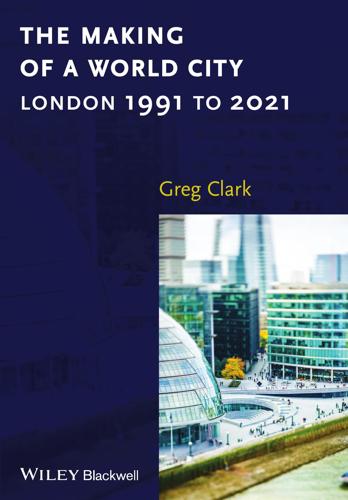
The Making of a World City: London 1991 to 2021
by
Greg Clark
Published 31 Dec 2014
London’s Air Connectivity: Emerging and Growth Markets. London: City of London Corporation. Z/Yen (2014). Global Financial Centres: 15. Available at www.longfinance.net/ images/GFCI15_15March2014.pdf. Accessed 2014 Jun 18. Index Abercrombie Plan 12 Abu Dhabi 131 Accra 131 Adonis, Andrew 181 airports 116, 181 Amsterdam 5, 6 art galleries 143 Association of London Government 60 aviation 115–17, 181 Bank of England 14 Barcelona 24, 38 Basel 5 Beijing 127, 128 Berlin 22, 23, 31 Betjeman, John 13 bicycle hire scheme 115 Big Bang deregulation 15–16, 35 Bishopsgate 90 Blundell, Gerry 35 Boston 127 brand reputation 7, 26–7 Breheny, Michael 32 British Broadcasting Corporation (BBC) 15 British Rail 13, 29 Broadgate 8, 87–8, 90 Broadhurst, Robin 40 Brussels 22 Buenos Aires 130 Burdett, Ricky 104 bus services 117 Business Improvement Districts (BIDs) 84–6 business in London 5, 38, 138–43, 182 cable car link 115 Cambridge 30 Canary Wharf 8, 21, 70, 87, 89, 90 Canary Wharf Group 26 carbon dioxide emissions 32 Cassidy, Michael 50 Central London Partnership 62 Central London Rail Study 47 Channel 4 television 15 Channel Tunnel Rail Link (CTRL) 28 Chapman, Honor 3–4 Cheese Grater Tower 88, 90 Cheshire, Paul 105–6 Chicago 127, 131 Cities of Opportunity 126 City Airport 115–16, 181 City Challenge initiative 71 City of London 4, 14 City of London Corporation 39 City of Westminster 4 civic coalitions 7 Clark, Robert Gordon 25 Community Infrastructure Levy 107 Community Land Trusts (CLTs) 103 Confederation of British Industry (CBI) 38 Congestion Charge Zone 26, 113–14 corporate hub accommodation 87–8 diffusion 89–93 emerging developments 97 foreign capital 93–7 high-rise buildings 88–9 timeline of development 90 cost of living 142 council housing 99 Council Tax 162 Courtauld, Toby 138, 146 Covent Garden 13, 80 Crosland, Anthony 13 Crossrail 111, 112, 114–15, 117–18, 181 culture 7, 27–8, 143–5 cycle hire scheme 115 Dawber, Howard 26 death of distance 142 de-industrialisation 6 densification of housing 101 Dickie, John 123 diversity 143–5 ‘DNA’ of London 9, 13, 182 Docklands Light Railway (DLR) 70 Dubai 4, 24, 130 The Making of a World City: London 1991 to 2021, First Edition.
…
New high-tech business architectures of steel and glass embodied the modernising and entrepreneurial ethic of London’s corporate culture. They also reflected the more relaxed, market-oriented planning regime of the City of London Corporation, which sought to avoid the mistakes associated with earlier comprehensive developments. It is important to remember that most of London’s government representatives and business leaders did not completely anticipate the opportunities that the 16 London in 1991 – Setting the scene Big Bang and the associated new technologies would bring. The surprise of its impact meant that even though some firms created an initial over-supply of workers and City offices, London as a whole was largely unprepared for the growth that would follow.
…
The scale, diversity and connectivity of London as an urban agglomeration were becoming, once again, essential assets in this internationalised network of specialisation, expertise and innovation. The 1986 ‘Big Bang’ of financial services activated processes of deregulation, innovation and professionalisation, which were the key drivers of a new generation of employment opportunities in central London (Gordon, 2011). The number of foreign banks operating in London had already surpassed 500 by 1991, nearly triple the level 20 years earlier, and the number of foreign securities firms grew fourfold to 160 over the same period. Gerry Blundell, former Director of European Strategy at Jones Lang LaSalle, has remarked that deregulation associated with the Big Bang not only “created the space for competition”, but also made London “very attractive for overseas talent . . .
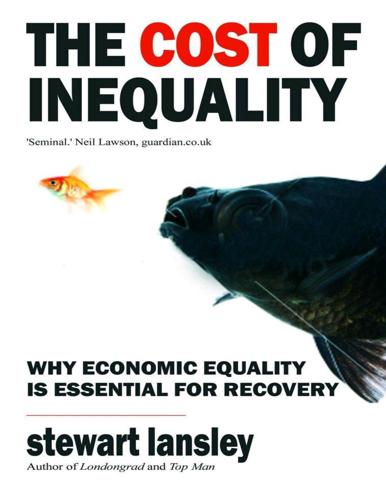
The Cost of Inequality: Why Economic Equality Is Essential for Recovery
by
Stewart Lansley
Published 19 Jan 2012
It can lay claim unchallenged to one title: it is the magnet for the world’s billionaires.’170 Notes 136 H Roberts and D Kynaston, City State, Penguin, 2001, p 48. 137 S Lansley and H Reed, The Red Tape Delusion, TUC Touchstone Pamphlet, 2010, pp20-21. 138 Lansley, Life in the Middle, op. cit. p 28. 139 WD Rubenstein, Men of Property, Croom Helm, London, 1981, tables 3.3-3.7, p 62-66. 140 J Bakan, The Corporation, Constable, 2004, ch 4. 141 Lansley, Do the Super-Rich Matter?, op. cit. p 12-13. 142 C Toulouse, ‘Thatcherism, Class Politics and Urban Development in London’, Critical Sociology, Volume 18, 1992, p 62. 143 D Kynaston, The City of London, Volume IV, Pimlico, 2001, chapter 22. 144 Z/Yen, The Global Financial Centre Index, City of London Corporation, March 2007. 145 http://www.ifsl.org.uk/media/2333/Eco_con_of_UK_fin_ser_2007.pdf. 146 Centre for Research on Socio-Cultural Change (CRESC), An Alternative report on UK Banking Reform, University of Manchester, 2009, p 41. 147 Robin Blackburn,’ Finance and the Fourth Dimension’, New Left Review, 39, May/June, 2006. 148 Boston Consulting Group, Investment Banking and Capital Markets, Annual Reports. 149 Glyn, Capitalism Unleashed, op. cit. p 52.
…
See Buchanan et al, Undisclosed and Unsustainable, Centre for Research on Socio-Cultural Change, Manchester University, 2009. 130 Centre for Cities, Cities Outlook, 2009. 131 Centre for Cities, Public Sector Cities, Trouble Ahead, July 2009. 132 Buchanan et al, op. cit. p 22. 133 J Hills et all (eds), Towards a More Equal Society, Policy Press, 2009, p 2. 134 Ibid. p 28. 135 Lansley, Life in the Middle, op. cit. figure 8. 4 A FAUSTIAN PACT In early January 1998, a large group of London traders, fund managers and financiers braved the pouring winter rain to gather at the Mansion House, the grand official residence of the Mayor of the City of London. The group—gathered in the very heart of the old financial sector known as the Square Mile—had been invited to debate the motion ‘This house believes that City salaries are totally fair and justified’. Most of the 200 at the debate would have been amongst the highest paid in the land. Supporting the motion was George Cox, a director of LIFFE, the London International Financial Futures Exchange, established in 1982 to trade in ‘futures’, essentially bets about the future course of share prices, currencies and commodities.
…
Brown’s adulation of the City reached its high point at the annual Mansion House lecture—one of the traditional set piece occasions in the City’s calendar—in June 2007. ‘I congratulate you on these remarkable achievements, an era that history will record as the beginning of a new golden age for the City of London’, Brown told his audience of leading figures in the Square Mile. The occasion was the eve of his elevation to Prime Minister, and was just eight weeks before the world economy was to implode in dramatic style. ‘I believe it will be said of this age, the first decades of the 21st century, that out of the greatest restructuring of the global economy, perhaps even greater than the industrial revolution, a new world order was created.’
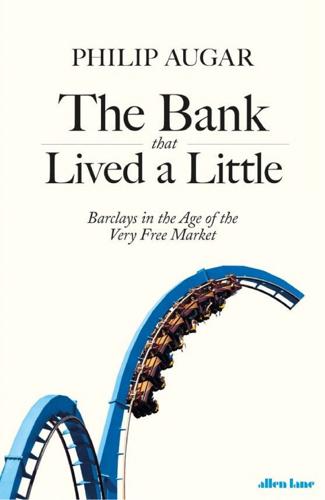
The Bank That Lived a Little: Barclays in the Age of the Very Free Market
by
Philip Augar
Published 4 Jul 2018
In the cosy world of bankers and brokers in which Camoys worked, this was sensational news. But neither he nor anyone else realized then that it would have bigger consequences for British society than any change in business practices since the Industrial Revolution 200 years before. This agreement, the blue touchpaper that lit the explosion which became known as Big Bang, changed the City of London from a tired old lion into a roaring dragon. It breathed fire into the economy but later burned it badly. In a quarter of a century it transformed culture, values and attitudes to money throughout the whole country. It fuelled a housing boom, created unprecedented prosperity but then blew it all away.
…
By 1983, Cook was in the final stages of developing TAPS (Trade Analysis and Processing System), a computer system that automated parts of share trading and settlement. This was at a time when traders in the City of London were still doing deals on a handshake and recording the details in pencil in notebooks. It is doubtful whether Camoys, Bevan or Buxton had ever seen a computer, let alone had one on their fine mahogany desks. Even while they were laying their plans, their understanding of investment banking was out of date. Technology would soon turbocharge the developments in financial services brought about by Big Bang. The world Barclays was intent on entering was about to become unimaginably complex and the paths of Bill Cook and Barclays would cross during the next two decades in a surprising way.
…
From now on, deals would be done over the telephone and by computers: face-to-face trading where people elbowed each other across the floor and could see each other’s expressions ended very suddenly. With it went some of the trust, obligation and long-term relationships which had sustained the sleepy City of London for decades. On the first day of Big Bang, BZW’s staff were told to be ready for work at seven in the morning, an hour and a half earlier than before. Timetables were studied to check out the early trains, hotel rooms were booked and commuters from the outer suburbs wondered if they would have to move closer to London.
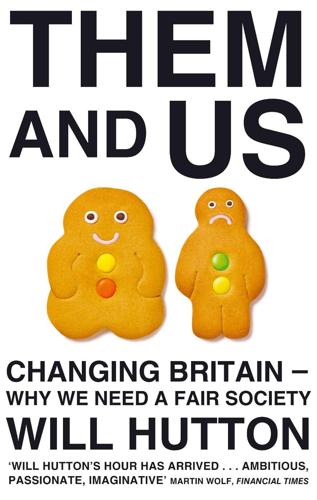
Them And Us: Politics, Greed And Inequality - Why We Need A Fair Society
by
Will Hutton
Published 30 Sep 2010
INDEX Aberdeen University, 263 ABN AMRO, 150 Abramovitch, Roman, 64, 65, 67 accountancy firms, 296 Acemoglu, Daron, 299 aerospace, 136, 219, 268 Afghanistan, 13, 102, 144, 322 Africa, 71–2, 322, 383, 385 AIG, 152, 175, 176 airline industry, 30, 91, 109, 134, 143 Akerlof, George, 43 Alcoa, 133 alcohol policy, 335 Alessandri, Piergiorgio, 151, 153 Amazon, 253 Anderson, Elizabeth, 79 angels, business, 244, 252 Anglo Irish Bank, 181 Apple Inc., 29–30, 65–6, 71, 253 apprenticeships, 10, 295 Arculus, Sir David, 180 Argentina, 368 Aristotle, 39, 274 ‘arms race’ effects, 105 Arup Group, 66, 67, 93 Asda, 93 Ashcroft, Lord, 344 Ashdown, Paddy, 141 Asian Tiger exports, 149, 208, 355 AT & T, 133–4 Atari, 30 BAA, 8, 257–8 baby boomer generation, 34, 372–3 ‘Baby P’ case, 10, 325–6 Bagehot, Walter, 156–7 Bailey, Bob, 16, 25 Baker, Kenneth, 276 Baldacci, Emanuele, 367 Baldwin, Stanley, 315 Balls, Ed, 138, 147, 338 Bank of America, 152, 158, 175, 192 Bank of England, 4, 7–8, 129, 148, 180, 208, 250, 339, 359; lender-of-last-resort function, 157, 158, 160; Monetary Policy Committee, 185, 186, 264; reserve requirements scrapped (1979), 161, 208 Bank of International Settlements (BIS), 169, 182 Bank of Scotland, 186, 251 bankers, 4–5, 25–6, 62, 63–4, 180, 188; errors that caused the crash, 188–96, 197–204; gambling culture, 7, 8; pay see pay of executives and bankers Bankers Trust (New York), 140, 167 banking and banks: see also under entries for individual organisations; bail-out of, 3, 7–8, 19, 24, 138, 152–3, 172, 175, 176, 181, 204–5, 210, 389, 392; balance sheets, 7, 160, 164, 165, 191, 208, 210; bank runs, 9, 156–7, 158, 175–6, 202; borrow short and lend long principle, 154, 155–6, 157, 158–9; capital ratios, 151, 158, 162–3, 169, 170, 207, 208; credit-rating agencies and, 151, 196, 207; deposit insurance and, 158, 160; diversification, 154–5, 157, 165, 199, 354; fairness/desert and, 64, 206–7; interbank money markets, 164, 170, 176, 187–8, 202, 204; investment banks, 6, 28, 42, 101, 103, 150–1, 158, 165, 166, 170, 172–6, 195–6, 207; maturity transformation, 155–6, 157, 158–9; need for network of specialist banks, 251–2, 265, 371; nineteenth-century collapses, 156–7; post-crunch deleverage pressures, 359; principles and strategies, 154–6, 157; regulation of see regulation; relationship finance, 244, 251–2, 256–7; remoteness of management, 173–4; required reforms of, 205–10, 251–2, 371; short-term structure of lending, 33; banking and banks – continued socially vital role of, 155, 157; subsidiaries and special purpose vehicles, 181; unproductive entrepreneurship and, 28, 101, 103; vast assets/loans/profits, 32, 138, 147, 170, 172, 201; zero loyalty of front-line staff, 174 Barclay brothers, 327 Barclays, 24, 176, 177–8, 181, 215, 296, 363 Barker, Kate, 185 Basel system, 158, 160, 163, 169, 170–1, 196, 385 Baumol, William, 101, 111, 116, 253, 256 Bayerische Landesbank, 196 Bear Stearns, 150, 152, 158–9, 166, 173–4, 187 Bebchuk, Lucian, 198 Becht, Bart, 82–3 Beckwith, John Lionel, 179 behavioural psychology, 44, 47–50, 59–61 Bekar, Clifford, 108, 263 Bell, Alexander Graham, 221 Ben & Jerry’s, 266 Benz, Matthias, 86 Berlusconi, Silvio, 317, 328 Bettelheim, Bruno, 86 Better Government Initiative, 313, 336–7 Better Regulation Task Force, 180 Bhagwati, Jagwad, 163 Big Bang (1986), 90, 162 bin Mahfouz, Khalid Salim, 333 biotechnology, 109, 229, 240, 263, 268 Birt, John, 324 Bischoff Inquiry, 178 BISTRO (broad index secured trust offering), 169, 170, 196 Black, Fisher, 191 Blair, Tony, 5, 17, 138, 141–3, 144, 148–9, 276–7, 313, 328, 342; centralisation of power, 14–15, 313, 334, 337, 341; Iraq War and, 14, 36, 144; Rupert Murdoch and, 318; neo-conservative economics and, 388; ‘third-way’ as enthronement of resignation, 389–90; welfare reforms, 81 Blanchflower, Danny, 264–5 Blanden, Jo, 283–4 Blankfein, Lloyd, 42, 63, 168 BMW, 91 Boeing, 136, 256 Bologna University, 261 Born, Brooksley, 182–3 Bowen, Jeremy, 323 Boyle, Susan, 314 BP, 216–17, 392 Branson, Richard, 30 Brazil, 354–5, 385 Bretton Woods system, 159 Brinkley, Ian, 233 Briscoe, Simon, 294 Bristol University, 263 British Airways (BA), 30, 91 British Broadcasting Company (BBC), 321, 322, 323, 329, 330–1, 350, 389 British National Party (BNP), 16, 24–5, 82 Britishness, 15–16, 124, 392–3, 395 Brompton folding bicycle, 103, 105 Brooks, Clem, 281, 282 Brown, Gordon, 5, 12, 141, 178, 302, 314, 328; centralisation of power, 14, 334, 337, 341; as Chancellor, 138, 143, 145–8, 215, 245; deal with Blair (1994), 148; Gillian Duffy blunder by, 394; general election (2010) and, 20, 378, 394; neo-conservative economics and, 144–8, 388; as visionless, 391; Where There is Greed: Margaret Thatcher and the Betrayal of Britain’s Future (1989), 144 Browne, John, 216 Brunel, Isambard Kingdom, 126 Buffett, Warren, 116, 173, 222 Building Schools for the Future programme, 371 building societies, demutualisation of, 156, 186 Buiter, Wilhelm, 172 Burrows, Paul, 59 Buscombe, Baroness, 332 Bush, George W., 17, 36, 135, 177 Cabinet Office, 218–19, 336, 337 Cable, Vincent, 220 Cambridge University, 9, 363 Cameron, David, 20, 179, 233–4, 235, 318, 338, 342; ‘Big Society’ policy, 19–20, 234, 271, 280 Campbell, Alastair, 141, 142, 224, 312 Canada, 121, 354, 358–9, 383 capital controls, abolition of, 32, 161 capitalism: see also entrepreneurs; innovation; amorality of, 16–19; ‘arms race’ effects, 105; boom and bust cycle, 181–7, 392; deregulation (from 1970s), 159–63, 388; fairness and, ix, x, 23–7, 41, 106, 122–3, 206–7, 210, 249, 385, 386, 394; as immutable force of nature, ix, 23, 40–2; incumbent firms, 29–30, 31, 105, 106, 110, 111–12, 253–5, 257, 297; interconnectedness of markets, 200–2, 204; knowledge-entrepreneurship dynamic, 27–8, 31, 103, 110–11, 112–13; liquidity as totemic, 199, 200, 202, 240, 243; need for ‘circuit breakers’, 197, 199, 202, 203; network theory and, 199–204, 206; required reforms of, 205–9, 215–16; stakeholder, x, 148–9; undue influence of, 32–3 Carlaw, Kenneth, 108, 263 Carnegie, Andrew, 195, 303 cars, motor, 91, 108, 109, 134, 269 Castells, Manuel, 317 Cayne, Jimmy, 173–4 CCTV cameras, 10 celebrity culture, 282, 314 central banks, 154, 157, 158, 160, 182, 185, 187, 208; see also Bank of England; Federal Reserve, 169–70, 176, 177, 183 Cerberus Capital Management, 177 Cervantes, Miguel de, 274 Channel 4, 330, 350 Charles I, King of England, 124–5 Charter One Financial, 150 chavs, mockery of, 25, 83, 272, 286–8 child poverty, 12, 21, 74–5, 83, 278, 279, 288–90, 291 China, x, 101, 112, 140, 144, 160, 226, 230, 354–5, 385; consumption levels, 375–6, 379, 380, 381; economic conflict with USA, 376–7, 378–80, 381, 382, 383; export led growth, 36, 169, 208, 226, 355–6, 375–7, 379–81, 382–3; rigged exchange rates, 36, 169, 355, 377, 378–9; surpluses of capital and, 149, 154, 169, 171, 208, 226, 375; unfairness of world system and, 383, 385 Christianity, 53, 54, 352, 353 Church of England, 128 Churchill, Winston, 138, 273, 313 Churchill Insurance, 150 Cisco, 253 Citigroup, 152, 158, 172, 177, 184, 202, 203, 242, 247 city academies, 278, 307 City of London, 34, 137, 138, 178–9, 252, 359; as incumbent elite, 14, 26, 31, 32–3, 210, 249, 355; in late nineteenth-century, 128–30; light-touch regulation of, 5, 32, 138, 145, 146–7, 151, 162, 187, 198–9; New Labour and, x–xi, 5, 19, 22, 142, 144–5, 355; remuneration levels see pay of executives and bankers civic engagement, 86, 313 civil service, 13, 221, 273, 312, 343 Clasper, Mike, 178 Clayton Act (USA, 1914), 133 Clegg, Nick, 22, 218, 318, 327–8, 342, 391 Clifton, Pete, 321 Clinton, Bill, 140, 177, 183 coalition government (from May 2010), 14, 20, 22, 37, 307, 311, 343, 346, 390–2; abolition of child trust fund, 302; capital spending cuts, 370–1; deficit reduction programme, xi, 19, 34, 214, 227, 357, 360–1, 364, 369–71, 373, 390–2; emergency budget (June 2010), 369–70; market fundamentalism and, 370; political reform commitment, 35, 341, 343–4, 346, 350, 390, 391; proposed financial reforms, 208, 209, 245, 252, 371; repudiation of Keynesian economics, xi, 390–1 Cohan, William, 158–9 Cohen, Ronald, 12, 245 collapse/crash of financial system, x, xi, 4, 9, 41, 144, 146, 152–4, 158–9, 168; costs of, 7, 19, 138, 152–3, 172, 214–15; errors responsible for, 136, 187–96, 197–204; global interconnectedness, 375, 382–3; lessening of internationalism following, 376–83; need to learn from/understand, 36–7; predictions/warnings of, 148, 153, 180, 182–5; recommended policy responses, 215–16; results of previous credit crunches, 358, 359–60, 361–2 collateralised debt obligations (CDOs), 155, 167–8, 174 colonialism, 109, 124 Commodity Future Trading Commission, 182–3 communism, collapse of in Eastern Europe, 16, 19, 135, 140, 163 competition, 29, 30, 33, 51, 156, 185, 186, 207–8, 251; see also ‘open-access societies’; City of London and, 160, 178, 179, 198–9; deregulated banking and, 160, 161, 163, 164, 178, 179, 181; European Union and, 251, 258, 259; fairness and, 89–90, 99, 272; incumbent elites/oligarchs and, 104, 114, 129–30, 131–4, 257; innovation and, 40, 114, 257–60; national authorities/regimes, 201–2, 257–60, 316, 318; state facilitation of, 31 Competition Commission, 257–8 computer games, 233 Confederation of British Industry (CBI), 4, 6–7 Conservative Party, xi, 5, 11, 14, 97–8, 220, 343, 378; broken Britain claims, 16, 227, 271; budget deficit and, 19, 224, 357, 360–1, 368, 379; City/private sector funding of, 179, 257, 344; decline of class-based politics, 341; deregulation and, 32, 160, 161; fairness and, 83, 302, 374, 390; general election (1992) and, 140–1; general election (2010) and, 20, 97, 227, 234, 271, 357, 374, 379, 390; Conservative Party – continued government policies (1979-97), 32, 81, 275–6, 290; inheritance/wealth taxes and, 74, 302–3; market fundamentalism and, 5, 17, 138, 147, 160, 161; poverty and, 21, 279; reduced/small state policy, 20, 22, 233–4, 235 construction industry, 5, 33, 268 consumer goods, types of, 266–7 Continental Illinois collapse, 152, 162 Convention on Modern Liberty, 340 Cook, Robin, 142 Cootner, Paul, 194–5 Copenhagen climate change talks (2009), 226, 231, 385 Corporate Leadership Council, US, 93 Corzine, Jon, 177 county markets, pre-twentieth-century, 90 Coutts, Ken, 363 Cowell, Simon, 314, 315 ‘creative destruction’ process, 111, 112, 134 creative industries, 11, 71, 355 credit cards, 64, 354 credit crunch: see collapse/crash of financial system credit default swaps, 151, 152, 166–8, 170, 171, 175, 176, 191, 203, 207 Crédit Lyonnais collapse, 152 credit-rating agencies, 151, 165, 175, 196, 197, 248, 269, 362, 388; funding of, 151, 196, 207 criminal activity/allegations, 7, 101, 103, 104–5, 138, 167–8 Crosby, James, 178 Cuba, 61 culture, British, 12, 187, 282, 314 Dacre, Paul, 324, 326, 329 Daily Mail, 218, 286, 288, 315, 324, 325–7, 339, 342 Daily Telegraph, 288, 317, 319, 327 Darling, Alistair, 149, 204, 252 Darwin, Charles, 31 Data Monitor, 186 Davies, Howard, 198 Davies, Nick, Flat Earth News, 319, 321, 323–4, 326, 331–2 de Gaulle, Charles, 65 debt, 33, 155, 209, 351–63; corporate/commercial, 8, 29, 181, 245, 248, 352, 354, 359, 363, 374; moral attitudes towards, 351–4, 357, 360–1; necessity of, 155, 351, 353, 354; private, 5, 186, 187, 210, 226, 279–80, 354–7, 359, 363, 373; public, 9, 34, 164, 166, 167, 182, 203, 214, 224–6, 356–7, 362–3, 375, 388, 393; sustainable level of, 356–7, 368–9 Defence Advanced Research Projects Agency (DARPA), 265 defence and armed forces, 34, 372 deficit, public, 4, 34, 213, 224–6, 335, 364–74; coalition’s reduction programme, xi, 19, 34, 214, 227, 357, 360–1, 364, 369–71, 373, 390–2, 393; need for fiscal policy, 224–5, 226, 357–8, 364, 365–9, 370, 374; speed of reduction of, 213, 224–5, 360–1, 368, 371 Delingpole, James, 287 Delong, Brad, 27, 106 democracy, 13–15, 235, 310–16, 333–48; centralisation of power and, 14–15, 35, 217, 313, 334, 337, 342; fair process and, 86, 89, 96–9; incumbent elites and, 35, 99; industrial revolution and, 128; media undermining of, 315–16, 317–18, 321–9, 333, 350; ‘open-access societies’ and, 136, 314 Democratic Party, US, 18, 140, 183, 379 Demos, 289 Deng Xiao Ping, 140 Denham, John, 21 deprivation and disadvantage, 10, 34, 288–93, 307–8, 393; low-earning households, 11–12, 13, 291, 361; weight of babies and, 13; young children and, 74–5, 83, 288–90 derivatives, 140, 145, 150–1, 164–8, 171, 175, 188, 207, 209; City of London and, 32, 137, 150–1, 157, 199; mathematical models (‘quants’) and, 188, 191; regulation and, 183, 197–8, 199 desert, due, concept of, 4, 24, 38–43, 45–7, 50–63, 64–8, 73–7, 80–2, 223, 395; see also effort, discretionary; proportionality; big finance and, 40–2, 82, 167, 174, 176, 210; debt and, 351–2; diplomacy/international relations and, 385–6; Enlightenment notions of, 53–6, 58–9, 112; luck and, 70, 73–7, 273; poverty relief systems and, 80–2, 277–8; productive entrepreneurship and, 102–3, 105–6, 112, 222, 392–3; taxation and, 40, 220, 266 Deutsche Bank, 170 developing countries, 71–2, 160, 354–5, 375, 376, 385 Diamond, Bob, 24 Dickens, Charles, 353 digitalisation, 34, 231, 320, 349, 350 Doepke, Matthias, 115–16 dot.com bubble, 9, 193 Drugs Advisory Panel, 11 Duffy, Gillian, 394 Durham University, 263 Dworkin, Ronald, 70 Dyson, James, 28, 33 East India Company, 130 Easyjet, 28, 233 eBay, 136 economic theory, 43–4, 188–9, 366; see also Keynesian economics; market fundamentalism economies of scale, 130–1, 254–5, 258 The Economist, 326, 330, 349 economy, British: see also capitalism; financial system, British; annual consumption levels, 375; balance of payments, 363–4; as ‘big firm’ economy, 254; change in landscape of trading partners, 230–1; coalition capital spending cuts, 370–1; collapse of tax base, 224, 368; cumulative loss of output caused by crash, 138, 153, 172, 214–15; desired level of state involvement, 234–5; domination of market fundamentalism, 16–17; economic boom, 3–4, 5–6, 12, 143, 173, 181–7, 244–5; fall in volatility, 365; fiscal deficit, 368; fiscal policy, 208, 224–5, 226, 357–8, 364–9, 370, 374; growth and, 9–10, 214–15, 218–19, 224, 359, 363; inefficient public spending, 335; investment in ‘intangibles’, 232–3; in late nineteenth-century, 128–30; ‘leading-edge’ sectors, 218–19; need for engaged long term ownership, 240–4, 249–51; as non-saver, 36, 354; potential new markets/opportunities, 231–3; public-private sector interdependence and, 219–22, 229–30, 261, 265–6, 391, 392; required reforms of, 20, 239–44, 249–52, 264–6, 371–4 see also national ecosystem of innovation; ‘specialising sectors’, 219; urgent need for reform, 36–7; volatility of, 297–8; vulnerability of after credit crunch, 358–64 economy, world: acute shortfall of demand, 375–6; Asian and/or OPEC capital surpluses and, 149, 153–4, 169, 171, 208, 226, 354, 375; conflicts of interest and, 137, 138; deregulation (from 1970s), 159–63; emerging powers’ attitudes to, 226; entrenched elites and, 137–8, 210; fall in volatility, 365; international institutions as unfair, 383, 385; London/New York axis, 149, 150–1, 157–8, 160, 187, 202; need for international cooperation, 357–8, 379–80, 381–3, 384, 385–6; post-crunch deleverage pressures, 359–60, 374–5; protectionism dangers, 36, 358, 376–7, 378, 379, 382, 386; savers/non-savers imbalance, 36, 169, 208, 222, 355, 356, 375–6, 378–83; shift of wealth from West to East, 36, 383–4; sovereign debt crises, 167, 203, 214; unheeded warnings, 182–5; wrecking of European ERM, 140, 144 Edinburgh University, 145 education, 10, 20–1, 128, 131, 272–4, 276, 278, 292–5, 304–8, 343; Building Schools for the Future programme, 371; cognitive and mental skills, 288–90, 304–6; private, 13, 114, 264–5, 272–3, 276, 283–4, 293–5, 304, 306 effort, discretionary, 50, 53, 54–5, 58–60, 80, 90–1, 114, 134; see also desert, due, concept of; fair process and, 91–4; indispensability and, 65–7; innovation and invention, 62, 65, 102–3, 105–6, 112, 117, 131, 223, 262–3, 392–3; luck and, 26–7, 65, 67, 70, 71, 73–4, 75–7; productive/unproductive, 43, 46–7, 51–2, 62, 64–5, 102–3, 392–3; proportionate reward for, 26, 39–40, 44, 47, 61, 74, 76–7, 84, 122, 272, 273, 2 84 egalitarianism, 27, 53–4, 55–6, 61, 75, 78–80, 144, 341, 343; Enlightenment equal worth concept, 53, 55, 59–60 Ehrenfeld, Rachel, 333 Eisman, Steve, 207 electoral politics: see also general election (6 May 2010); general elections, 97, 138, 277, 315; fair process and, 96–9; franchise, 128; general election (1992), x, 138, 140–1, 144, 148, 277; general election (1997), x, 138, 141 electricity, 134, 228, 256 electronic trading, 105 elites, incumbent, 23, 31–3, 99, 131; City of London, 14, 26, 31, 32–3, 210, 249, 355; competition and, 104, 113, 114, 129–30, 131–4, 257; democracy and, 35, 99; Enlightenment and, 122; history of (from 1880s), 131–4; history of in Britain (to 1900), 124–30; innovation and, 29–30, 110, 111–12, 113, 114, 115, 116; modern big finance and, 135, 137–8, 180, 210, 387–9; in ‘natural states’, 111, 113, 114–15, 116, 123–4, 127; New Labour’s failure to challenge, x–xi, 14, 22, 388, 389–90; world economy and, 137–8, 210 EMI, 28, 247, 248 employment and unemployment, 6, 75, 291–3, 295, 300, 373, 393; employment insurance concept, 298–9, 301, 374; lifelong learning schemes, 300, 301; lifelong savings plans, 300; unemployment benefit, 81, 281 Engels, Friedrich, 121–2 English language as lingua franca, 124 Enlightenment, European, 22, 30–1, 146, 261, 314–15; economics and, 104, 108–9, 116–17, 121–3; notions of fairness/desert, 53–6, 58–9, 112, 122–3, 394; science and technology and, 31, 108–9, 112–13, 116–17, 121, 126–7 Enron affair, 147 entrepreneurs: see also innovation; productive entrepreneurship; capitalist knowledge dynamic, 27–8, 31, 110–11, 112–13; challenges of the status quo, 29–30; Conservative reforms (1979-97) and, 275; private capital and, 241; public-private sector interdependence and, 219–22, 229–30, 261, 265–6, 391, 392; rent-seeking and, 61–2, 63, 78, 84, 101, 105, 112, 113–14, 116, 129, 135, 180; unproductive, 28–9, 33, 61–2, 63, 78, 84, 101–2, 103–5, 180 environmental issues, 35–6, 71–2, 102, 226, 228, 231, 236, 385, 390, 394; due desert and, 68; German Greens and, 269 Erie Railroad Company, 133 Essex County Council, 325, 332 European Commission, 298 European Exchange Rate Mechanism (ERM), 140, 144, 166 European Union (EU), 11, 82, 179, 379–80, 383–4, 385; British media and, 15, 328, 378; Competition Commissioner, 251, 258, 259; scepticism towards, 15, 36, 328, 377, 378, 386 eurozone, 377 Fabian Society, 302–3 factory system, 126 fairness: see also desert, due, concept of; proportionality; abuse/playing of system and, 24–5, 27; asset fairness proposals, 301–3, 304; behavioural psychology and, 44, 47–50, 59–61; Blair’s conservative view of, 143; Britishness and, 15–16, 392–3, 395; capitalism and, ix, x, 23–7, 41, 106, 122–3, 206–7, 210, 249, 385, 386, 394; challenges to political left, 78–83; coalition government (from May 2010) and, 22, 37; commonly held attitudes, 44, 45–7; deficit reduction and, 226, 227, 374; economic and social determinism and, 56–8; Enlightenment notions of, 53–6, 58–9, 112, 122–3, 394; fair process, 84–94, 96, 98–9, 272; as foundation of morality, 24, 26, 45, 50; individual responsibility and, 39, 78–9; inequality in Britain, 78, 80, 275–6, 277–8, 342; international relations and, 226, 385–6; ‘Just World Delusion’, 83; luck and, 72–7; management-employee relationships, 90–2; models/frameworks of, 43–58; need for shared understanding of, 25, 37, 43; partisanship about, 42–3; politicians/political parties and, 22, 83, 271–2, 302–3, 374, 391–2; popular support for NHS and, 75, 77, 283; pre-Enlightenment notions, 52–3; shared capitalism and, 66, 92–3; state facilitation of, ix–x, 391–2, 394–5; welfare benefits to migrants and, 81–2, 282, 283, 284 Farnborough Sixth Form College, 294 Federal Reserve, 169–70, 176, 177, 183 Fees Act (1891), 128 Fertile Crescent, 106 feudalism, European, 53–4, 74, 104, 105 financial instruments, 103, 148, 157, 167–8 Financial Services and Markets Act (2001), 198 Financial Services Authority (FSA), 24, 147, 162, 178, 198–9, 208 financial system, British: see also capitalism; economy, British; Asian and/or OPEC capital surpluses and, 149, 154, 354; big finance as entrenched elite, 136, 137–8, 176, 178–80, 210, 387–9; declining support for entrepreneurship, 241; deregulation (1971), 161; fees and commissions, 33; importance of liquidity, 240, 243; lack of data on, 241; London/New York axis, 149, 150–1, 157–8, 160, 187, 202; massive growth of, 137, 138, 209, 219; need for tax reform, 209–10; regulation and see regulation; required reforms to companies, 249–50; savings institutions’ share holdings, 240–1; short termism of markets, 241, 242–3; unfairness of, 138, 210 Financial Times, 12, 149, 294, 330, 349, 361 Fink, Stanley, 179 fiscal policy, 208, 224–5, 226, 357–8, 364–9, 374; coalition rejection of, 370 fish stocks, conservation of, 394 Fitch (credit-rating agencies), 248 flexicurity social system, 299–301, 304, 374 Forbes’ annual list, 30 Ford, Henry, 195, 302 foreign exchange markets, 32, 161, 164, 165, 168, 363, 367; China’s rigged exchange rate, 36, 169, 355, 377, 378–9; currency options, 166, 191; eurozone, 377 foreign takeovers of British firms, 8, 388 Fortune magazine, 94 Foster, Sir Christopher, 313 foundation schools, 307 France, 51–2, 123–4, 163, 372, 375, 377 free trade, 163, 334, 379 Frey, Bruno, 60, 86 Friedman, Benjamin, 282–3 Fukuyama, Francis, 140 Fuld, Dick, 192 Future Jobs Fund, 373 G20 countries, 209, 358, 368, 374 Galliano, John, 143 Gardner, Howard, 274, 305–6 gated communities, 13 Gates, Bill, 71 Gates, Bill (Senior), 222 Gaussian distribution, 190–1, 194 ‘gearing’, 6 general election (6 May 2010), 97, 142, 179, 214, 217, 227, 234, 271, 314, 318, 327–8, 334, 378; Gillian Duffy incident, 394; result of, xi, 20, 345–6, 390 ‘generalised autoregressive conditional heteroskedasicity’ (GARCH), 194 genetically modified crops, 232 Germany, 36, 63, 244, 262, 269, 375–6, 379, 380; export led growth, 355–6, 375, 381–2; Fraunhofer Institutes, 252, 264; Greek bail-out and, 377; pre-1945 period, 128, 129, 134, 382, 383 Gieve, Sir John, 339–40 Gilligan, Andrew, 329 Gladwell, Malcolm, 76–7 Glasgow University, 323 Glass-Steagall Act, 162, 170, 202–3 Glastonbury festival, 143 globalisation, 32, 98, 140, 143, 144, 153–4, 163, 182, 297, 363, 366, 380 Goldman Sachs, 42, 63, 103, 150, 167–8, 174, 176, 177, 205 Goodwin, Sir Fred, 7, 150, 176, 340 Google, 131, 136, 253, 255, 258, 262 Goolsbee, Austin, 52 Gorbachev, Mikhail, 140 Gough, Ian, 79 Gould, Jay, 133 Gould, Philip, 142 government: see also democracy; political system, British; cabinet government, 312, 334, 337; centralisation of power, 14–15, 35, 217, 313, 334, 337, 341, 342; control of news agenda, 14, 224, 313; disregard of House of Commons, 14–15, 223, 339, 345; Number 10 Downing Street as new royal court, 14, 337, 338, 346, 347; press officers/secretaries, 14, 180, 224, 312; Prime Ministerial power, 337, 344, 345, 346 GPS navigation systems, 233, 265 Gray, Elisha, 221 Great Depression, 159, 162, 205, 362 Greece: classical, 25, 26, 38, 39, 44–5, 52–3, 59, 96, 107, 108; crisis and bail-out (2010), 167, 371, 377, 378 Green, Sir Philip, 12, 29, 33 Green Investment Bank, proposed, 252, 371 Greenhead College, Huddersfield, 294 Greenspan, Alan, 145–6, 165, 177, 183, 184, 197–8 Gregory, James, 277 growth, economic: Britain and, 9–10, 214–15, 219, 221, 359, 364; education and, 305–6; export led growth, 36, 169, 208, 226, 355–6, 375–7, 378–83; social investment and, 280–1 GSK, 219, 254 the Guardian, 319, 330, 349 Gupta, Sanjeev, 367 Gutenberg, Johannes, 110–11 Habsburg Empire, 127 Haines, Joe, 312 Haji-Ioannous, Stelios, 28 Haldane, Andrew, 8, 151, 153, 193, 214, 215 the Halifax, 186, 251 Hamilton, Lewis, 64, 65 Hammersmith and Fulham, Borough of, 167 Hampton, Sir Philip, 173 Hands, Guy, 28, 178, 246–8 Hanley, Lynsey, 291, 293, 302 Hanushek, Eric, 305–6 Hart, Betty, 289 Harvard University, 47, 62, 198 Hashimoto administration in Japan, 362 Hastings, Max, 217–18 Hauser, Marc, 47–50 Hawley, Michael, 65–6 Hayward, Tony, 216–17 HBOS, 157, 158, 178, 251 health and well-being, 9, 75, 77, 106, 232, 233, 290–1; see also National Health Service (NHS) Heckman, James, 290 hedge funds, 6, 21, 103, 157–8, 167–8, 172, 203, 205, 206, 240; collapses of, 152, 173–4, 187, 202; as destabilisers, 166–7, 168; destruction of ERM, 140, 144, 166; near collapse of LTCM, 169–70, 183, 193, 200–1 hedging, 164, 165–6 Heinz, Henry John, 302 Hermes fund management company, 242 Herrman, Edwina, 179 Herstatt Bank collapse, 152 Hetherington, Mark, 84 Hewitt, Patricia, 180 Hewlett-Packard, 30 Hills Report on social housing, 290 Hilton, Paris, 304 Himmelfarb, Gertrude, 146 Hirst, Damien, 12 history, economic, 121–36, 166, 285–6, 353–4 Hobhouse, Leonard, 220, 222, 234, 235, 261, 266 Hobsbawm, Eric, 100 Hoffman, Elizabeth, 60 Holland, 113, 124, 230 Honda, 91, 269 Hong Kong, 168 Hopkins, Harry, 300 Horton, Tim, 277 House of Commons, 14–15, 223, 312–13, 337–9, 345 House of Lords, 15, 128, 129, 312, 334, 344, 346–7 housing, social, 10, 289, 290–1, 292, 308–9 housing cost credits, 308–9 HSBC, 181, 251 Huhne, Chris, 346 Hunt family, sale of cattle herds, 201 Hurka, Thomas, 45–6 Hutton, Will, works of, x; The State We’re In, x, 148–9 IBM, 29, 164, 254 Iceland, 7, 138 ICT industry, 9, 29–30, 109, 134, 135–6, 182, 229 immigration, 11, 143, 326, 328, 342, 343, 386, 394; from Eastern Europe, 82, 281–2, 283; welfare state and, 81–2, 281–2, 283, 284 incapacity benefit, 27 the Independent, 93, 330 Independent Safeguarding Authority, 339 India, 144, 226, 230, 254, 354–5 individual responsibility, 17, 38, 39, 78–9 individualism, 54, 57, 66, 111, 221, 281, 341, 366; capitalism/free market theories and, ix, 17, 19, 27, 40, 145, 221, 234–5 Indonesia, 168 Industrial and Commercial Finance Corporation (now 3i), 250 industrial revolution, 28, 112, 115, 121–3, 124, 126–8, 130, 315 inflation, 6, 32, 355, 364, 365; targets, 163, 165, 208, 359 Ingham, Bernard, 312 innovation: see also entrepreneurs; national ecosystem of innovation; as collective and social, 40, 131, 219–22, 261, 265–6, 388; comparisons between countries, 67; competition and, 40, 114, 257–60; development times, 240, 243; discretionary effort and, 62, 65, 102–3, 105–6, 131, 222, 392–3; dissemination of knowledge and, 110–11, 112–13, 219–22, 265–6; due desert and, 40, 62, 67, 112, 117; ‘financial innovation’, 63–4, 138, 147, 149, 153–4, 182; general-purpose technologies (GPTs), 107–11, 112, 117, 126–7, 134, 228–9, 256, 261, 384; high taxation as deterrent, 104, 105; history of, 107–17, 121–7, 131–4, 221; increased pace of advance, 228–9, 230, 266–7; incremental, 108, 254, 256; incumbent elites and, 29–30, 104, 106, 109, 111–12, 113, 114, 115, 116, 257; large firms and, 251–2, 254–5; as natural to humans, 106–7, 274; need for network of specialist banks, 251–2, 265, 371; in ‘open-access societies’, 109–13, 114, 116–17, 122–3, 126–7, 131, 136, 315; patents and copyright, 102, 103, 105, 110, 260–1, 263; private enterprise and, 100–1; regulation and, 268–70; risk-taking and, 6, 103, 111, 189; short term investment culture and, 33, 242–3, 244; small firms and, 252, 253–4, 255–6; universities and, 261–5 Innovation Fund, 21, 251, 252 Institute of Fiscal Studies, 275–6, 363, 368–9, 372 Institute of Government, 334, 335, 337, 343 insurance, 165–6, 187, 240, 242 Intel, 255, 256 intellectual property, 260–1 interest rates, 164, 191, 352–3, 354, 357, 359, 360, 361, 362, 367, 380 internal combustion engine, 28, 109, 134 International Monetary Fund (IMF), 9, 152–3, 177–8, 187, 207, 226, 383, 384; Asian currency crisis (1997) and, 168–9; proposed bank levy and financial activities tax, 209; support for fiscal policy, 367 internet, 11, 28, 52, 109, 134, 227, 256, 265; news and politics on, 316–17, 321, 349; pay-walls, 316, 349; as threat to print media, 324, 331, 349 iPods, 105, 143 Iraq War, 14–15, 18, 36, 144, 329 Ireland, 138 iron steamships, 126 Islam, 352, 353 Islamic fundamentalism, 283, 384 Israel, 251, 322–3 Italy, 101, 103, 317, 328 ITN, 330, 331 James, Howell, 180 Japan, 36, 67, 140, 163, 168, 244, 369, 375, 376, 385, 386; credit crunch (1989-92), 359–60, 361–2, 382; debt levels, 356, 362, 363; incumbent elites in early twentieth-century, 134; Tokyo Bay, 254; Top Runner programme, 269 Jenkins, Roger, 296 Jobcentre Plus, 300 Jobs, Steve, 29–30, 65–6, 71 John Lewis Group, 66, 67, 93, 246 Johnson, Boris, 179 Johnson, Simon, 177 Jones, Tom, 242 Joseph Rowntree Foundation, 21, 278–9 journalism, 318–21, 323–4, 326–7 Jovanovic, Boyan, 256 JP Morgan, 169, 191–2, 195–6 judges, 15 justice systems, 30–1, 44–5, 49; symbolised by pair of scales, 4, 40 Kahneman, Daniel, 94–5 Kant, Immanuel, 73, 112, 274 Kay, John, 175 Kennedy, Helena, 340 Keynesian economics, x, xi, 184, 190, 196–7, 354, 362, 390–1 Kindleberger, Charles, 184 King, Mervyn, 213 Kinnock, Neil, 142 kitemarking, need for, 267 Klenow, Peter, 52 Knetsch, Jack, 94–5 Knight, Frank, Risk, Uncertainty and Profit (1921), 189, 191, 196–7 knowledge: capitalist advance of, 27–8, 31, 110–11, 112–13; public investment in learning, 28, 31, 40, 131, 220, 235, 261, 265 knowledge economy, 8, 11–12, 34, 135–6, 229–33, 258, 273–4, 341, 366; credit growth and, 355; graduate entry to, 295; large firms and, 251–2, 254–5; small firms and, 252, 253–4, 255–6, 261; state facilitation of, 219–22, 229–30 Koizumi administration in Japan, 362 Koo, Richard, 360, 361–2 Kuper, Simon, 352 Kwak, James, 64, 177 labour market, 52, 62, 83, 95; flexibility, 5, 275, 276, 299, 364–5, 387 laissez-faire ideology, 153, 198–9, 259 Laker, Freddie, 30 Lambert, Richard, 6–7 language acquisition and cognitive development, 288, 289 Large Hadron Collider, 263 Latin American debt crisis, 164 Lavoisier, Antoine, 31 Lazarus, Edmund, 179 Leahy, Sir Terry, 295 Learning and Skills Council, 282, 300 left wing politics, modern, 17, 38, 78–83 Lehman Brothers, 150, 152, 165, 170, 181, 192, 204 lender-of-last-resort function, 155, 158, 160, 187 Lerner, Melvin, 83 leverage, 6, 29, 154–6, 157, 158, 172, 179, 180, 198, 204, 209–10, 254, 363; disguised on balance sheet, 181, 195; effect on of credit crunches, 358, 359, 360, 361, 374–5; excess/massive levels, 7, 147–8, 149, 150–1, 158, 168, 170, 187, 192, 197, 203; need for reform of, 206, 207, 208; private equity and, 245–6, 247 Lewis, Jemima, 282, 287 Lewis, Joe, 12 libel laws, 332–3, 348–9 Liberal Democrats, xi, 11, 98, 141, 343, 360–1, 368; general election (2010) and, 97, 142, 179, 271, 390 libertarianism, 234 Likierman, Sir Andrew, 180 limited liability (introduced 1855), 353–4, 363 Lind, Allan, 85 Lindert, Peter, 280–1 Lipsey, Richard, 108, 263 Lisbon earthquake (1755), 54 Lisbon Treaty Constitution, 328 literacy and numeracy, 20–1 livestock fairs, pre-twentieth-century, 90 Lloyds Bank, 176, 178, 186, 202, 204, 251, 259 Lo, Andrew, 195 loan sharks, illegal, 291 local government, 307, 347–8 Locke, John, 54–5, 59 London School of Economics (LSE), 246 London Stock Exchange, 90, 162 London Underground, financing of, 336, 389 lone parent families, 292 Long Term Capital Management (LTCM), 169–70, 183, 193, 194, 200–1 long-term incentive plans (LTIPs), 6 Loomes, Graham, 59 luck, 23, 26–7, 38, 39, 40, 41, 67, 68, 69–77, 222, 273, 393–4; diplomacy/international relations and, 385–6; disadvantaged children and, 74–5, 83, 288–90; executive pay and, 138; taxation and, 73–4, 75, 78, 303 Luxembourg, 138 MacDonald, Ramsey, 315 Machiavelli, Niccolo, 62 Machin, Steve, 283–4 Macmillan Committee into City (1931), 179 Madoff, Bernie, 7 mafia, Italian, 101, 104–5 Major, John, 138, 180, 279, 334 Malaysia, 168 malls, out-of-town, 143 Mandelbrot, Benoit, 194, 195 Mandelson, Peter, 21, 24, 142, 148, 220 manufacturing sector, decline of, 5, 8, 219, 272, 292, 341, 363 Manza, Jeff, 281, 282 Marconi, 142–3 market fundamentalism, 9–19, 32–3, 40–2, 366; belief in efficiency of markets, 188–9, 190, 193, 194, 235–9, 366; coalition government (from May 2010) and, 370; collapse of, 3–4, 7–9, 19, 20, 219–20, 235, 392; Conservative Party and, 5, 17, 138, 147, 160, 161; domination of, 5–6, 14, 16–17, 163, 364–5, 387–90; likely resurgence of, 5, 8; New Labour and, x–xi, 5, 19, 144–9, 388, 389–90; post-communist fiasco in Russia, 135; rejection of fiscal policy, 224–5, 364–5, 367 mark-to-market accounting convention, 175 Marland, Lord Jonathan, 179 Marquand, David, 328 Marsh, Jodie, 64, 65 Marx, Karl, 56–8, 121–2 Maslow’s hierarchy of needs, 232, 274–5 mass production, 109, 134, 182 Masters, Blythe, 196 mathematical models (‘quants’), 105, 149, 151, 152, 165, 169, 188, 190–6, 203; extensions and elaborations, 194; Gaussian distribution, 190–1, 194; JP Morgan and, 195–6 Matthewson, Sir George (former chair of RBS), 25 Maude, Francis, 180 Mayhew, Henry, 285–6 McCartney, Paul, 247 McGoldrick, Mark, 174 McKinsey Global Institute, 253, 358–9, 360, 363 McQueen, Alexander, 143 media, mainstream, 6, 35, 312, 315–20, 321–32, 348–50; commoditisation of information, 318–20, 321; communications technology and, 316, 320, 349; domination of state by, 14, 16, 223–4, 338, 339, 343; fanatical anti-Europeanism, 15, 328, 378; foreign/tax exile ownership of, 218; hysterical tabloid campaigns, 10–11, 298, 319–20; ‘info-capitalism’, 317–18, 327, 328, 342; lauding of celebrity, 281, 314; modern 24/7 news agenda, 13, 224, 321, 343; regional newspapers, 331; as setter of agenda/narrative, 327–31, 342; television news, 330–1; undermining of democracy, 315–16, 317–18, 321–9, 333, 350; urgent need for reform, 35, 218, 344, 348–50, 391; view of poverty as deserved, 25, 53, 83, 281, 286; weakness of foreign coverage, 322, 323, 330 Mencken, H.L., 311 mergers and takeovers, 8, 21, 33, 92, 245, 251, 258, 259, 388 Merkel, Angela, 381–2 Merrill Lynch, 150, 170, 175, 192 Merton, Robert, 169, 191 Meucci, Antonnio, 221 Mexico, 30, 385 Meyer, Christopher, 332 Michalek, Richard, 175 Microsoft, 71, 114, 136, 253, 254, 258–9 Milburn, Alan, 273 Miles, David, 186–7 Milgram, Stanley, 200 millennium bug, 319 Miller, David, 70, 76, 77 minimum wage, 142, 278 Minsky, Hyman, 183, 185 Mirror newspapers, 319, 329 Mlodinow, Leonard, 72–3 MMR vaccine, 327 mobile phones, 30, 134, 143, 229, 349 modernity, 54–5, 104 Mokyr, Joel, 112 monarchy, 15, 312, 336 Mondragon, 94 monetary policy, 154, 182, 184, 185, 208, 362, 367 monopolies, 74, 102, 103, 160, 314; history of, 104, 113, 124, 125–6, 130–4; in the media, 30, 317, 318, 331, 350; modern new wave of, 35, 135–6, 137–8, 201–2, 258–9; ‘oligarchs’, 30, 65, 104 Monopolies and Mergers Commission, 258, 318 Moody’s (credit-ratings agency), 151, 175 morality, 16–27, 37, 44–54, 70, 73; see also desert, due, concept of; fairness; proportionality; debt and, 351–4, 357, 360–1 Morgan, JP, 67 Morgan, Piers, 329 Morgan Stanley, 150 Mulas-Granados, Carlos, 367 Murdoch, James, 389 Murdoch, Rupert, 317–18, 320, 327 Murphy, Kevin, 62, 63 Murray, Jim ‘Mad Dog’, 321 Myners, Paul, 340 Nash bargaining solution, 60 National Audit Office, 340 National Child Development Study, 289–90 national ecosystem of innovation, 33–4, 65, 103, 206, 218, 221, 239–44, 255–9, 374; state facilitation of, 102, 219–22, 229–30, 233, 251–2, 258–66, 269–70, 392 National Health Service (NHS), 21, 27, 34, 92, 265, 277, 336, 371–2; popular support for, 75, 77, 283 national insurance system, 81, 277, 302 national strategy for neighbourhood renewal, 278 Navigation Acts, abolition of, 126 Neiman, Susan, 18–19 neo-conservatism, 17–18, 144–9, 387–90 network theory, 199–201, 202–4, 206; Pareto curve and, 201–2 New Economics Foundation, 62 New Industry New Jobs strategy, 21 New Labour: budget deficit and, 224, 335, 360, 368, 369; business friendly/promarket policies, x–xi, 139–40, 142, 145, 146–7, 162, 198–9, 382; City of London and, x–xi, 5, 19, 22, 142–3, 144–5, 355; decline of class-based politics, 341; failure to challenge elites, x–xi, 14, 22, 388, 389–90; general election (1992) and, 138, 140–1, 144, 148, 277; general election (2005) and, 97; general election (2010) and, 20, 271, 334, 374, 378; light-touch regulation and, 138, 145, 146–7, 162, 198–9; New Industry New Jobs strategy, 21; one-off tax on bank bonuses, 26, 179, 249; record in government, 10–11, 19, 20–2, 220, 276–80, 302, 306, 334–6, 366–7, 389–90; reforms to by ‘modernisers’, 141; responses to newspaper campaigns, 11 New York markets, 140, 152, 162; Asian and/or OPEC capital surpluses and, 169, 171, 354; London/New York axis, 149, 150–1, 157–8, 160, 188, 202 Newsweek, 174 Newton, Isaac, 31, 127, 190 NHS Direct, 372 Nicoli, Eric, 13 non-executive directors (NEDs), 249–50 Nordhaus, William, 260 Nordic countries, 262; Iceland, 7, 138; Norway, 281; Sweden, 264, 281 North, Douglas, 113, 116, 129–30 Northern Rock, 9, 156, 157, 158, 186, 187–8, 202, 204, 251, 340–1 Norton Publishing, 93 Nozick, Robert, 234, 235 nuclear non-proliferation, 226, 384, 394 Nussbaum, Martha, 79 Obama, Barack, 18, 183, 380, 382–3, 394–5 the Observer, 141, 294, 327 Office for Budget Responsibility, 360 Office of Fair Trading (OFT), 257, 258 OFSTED, 276 oil production, 322; BP Gulf of Mexico disaster (2010), 216–17, 392; finite stocks and, 230, 384; OPEC, 149, 161, 171; price increase (early 1970s), 161; in USA, 130, 131, 132 Olsen, Ken, 29 Olympics (2012), 114 open markets, 29, 30, 31, 40, 89, 92, 100–1, 366, 377, 379, 382, 384; see also ‘open-access societies’; as determinants of value, 51–2, 62; fairness and, 60–1, 89–91, 94–6; ‘reference prices’ and, 94–6 ‘open-access societies’, 134, 135, 258, 272, 273, 275, 276, 280–1, 394; Britain as ‘open-access society’ (to 1850), 124, 126–7; democracy and, 136, 314; Enlightenment and, 30–1, 314–15, 394; innovation and invention in, 109–13, 114, 116–17, 122–3, 126–7, 131, 136, 315; partial political opening in, 129–30; US New Freedom programme, 132–3 opium production, 102 options, 166, 188, 191 Orange County derivatives losses, 167 Organisation for Economic Co-operation and Development (OECD), 180, 337, 373 Orwell, George, 37 Osborne, George, 147, 208, 224, 245, 302, 338 Overend, Gurney and Co., 156–7 Oxbridge/top university entry, 293–4, 306 Oxford University, 261 Page, Scott, 204 Paine, Tom, 347 Pareto, Vilfredo, 201–2 Paribas, 152, 187 Parkinson, Lance-Bombardier Ben, 13 participation, political, 35, 86, 96, 99 Paulson, Henry, 177 Paulson, John, 103, 167–8 pay of executives and bankers, 3–4, 5, 6–7, 22, 66–7, 138, 387; bonuses, 6, 25–6, 41, 174–5, 176, 179, 208, 242, 249, 388; high levels/rises of, 6–7, 13, 25, 82–3, 94, 172–6, 216, 296, 387, 393; Peter Mandelson on, 24; post-crash/bail-outs, 176, 216; in private equity houses, 248; remuneration committees, 6, 82, 83, 176; shared capitalism and, 66, 93; spurious justifications for, 42, 78, 82–3, 94, 176, 216 pension, state, 81, 372, 373 pension funds, 240, 242 Pettis, Michael, 379–80 pharmaceutical industry, 219, 255, 263, 265, 267–8 Phelps, Edmund, 275 philanthropy and charitable giving, 13, 25, 280 Philippines, 168 Philippon, Thomas, 172–3 Philips Electronics, Royal, 256 Pimco, 177 piracy, 101–2 Plato, 39, 44 Player, Gary, 76 pluralist state/society, x, 35, 99, 113, 233, 331, 350, 394 Poland, 67, 254 political parties, 13–14, 340, 341, 345, 390; see also under entries for individual parties political system, British: see also democracy; centralised constitution, 14–15, 35, 217, 334; coalitions as a good thing, 345–6; decline of class-based politics, 341; devolving of power to Cardiff and Edinburgh, 15, 334; expenses scandal, 3, 14, 217, 313, 341; history of (to late nineteenth-century), 124–30; lack of departmental coordination, 335, 336, 337; long-term policy making and, 217; monarchy and, 15, 312, 336; politicians’ lack of experience outside politics, 338; required reforms of, 344–8; select committee system, 339–40; settlement (of 1689), 125; sovereignty and, 223, 346, 347, 378; urgent need for reform, 35, 36–7, 218, 344; voter-politician disengagement, 217–18, 310, 311, 313–14, 340 Pommerehne, Werner, 60 population levels, world, 36 Portsmouth Football Club, 352 Portugal, 108, 109, 121, 377 poverty, 278–9; child development and, 288–90; circumstantial causes of, 26, 283–4; Conservative Party and, 279; ‘deserving’/’undeserving’ poor, 276, 277–8, 280, 284, 297, 301; Enlightenment views on, 53, 55–6; need for asset ownership, 301–3, 304; political left and, 78–83; the poor viewed as a race apart, 285–7; as relative not absolute, 55, 84; Adam Smith on, 55, 84; structure of market economy and, 78–9, 83; view that the poor deserve to be poor, 25, 52–3, 80, 83, 281, 285–8, 297, 301, 387; worldwide, 383, 384 Power2010 website, 340–1 PR companies and media, 322, 323 Press Complaints Commission (PCC), 325, 327, 331–2, 348 preventative medicine, 371 Price, Lance, 328, 340 Price, Mark, 93 Prince, Chuck, 184 printing press, 109, 110–11 prisoners, early release of, 11 private-equity firms, 6, 28–9, 158, 172, 177, 179, 205, 244–9, 374 Procter & Gamble, 167, 255 productive entrepreneurship, 6, 22–3, 28, 29–30, 33, 61–2, 63, 78, 84, 136, 298; in British history (to 1850), 28, 124, 126–7, 129; due desert/fairness and, 102–3, 105–6, 112, 223, 272, 393; general-purpose technologies (GPTs) and, 107–11, 112, 117, 126–7, 134, 228–9, 256, 261, 384 property market: baby boomer generation and, 372–3; Barker Review, 185; boom in, 5, 143, 161, 183–4, 185–7, 221; bust (1989-91), 161, 163; buy-to-let market, 186; commercial property, 7, 356, 359, 363; demutualisation of building societies, 156, 186; deregulation (1971) and, 161; Japanese crunch (1989-92) and, 361–2; need for tax on profits from home ownership, 308–9, 373–4; property as national obsession, 187; residential mortgages, 7, 183–4, 186, 356, 359, 363; securitised loans based mortgages, 171, 186, 188; shadow banking system and, 171, 172; ‘subprime’ mortgages, 64, 152, 161, 186, 203 proportionality, 4, 24, 26, 35, 38, 39–40, 44–6, 51, 84, 218; see also desert, due, concept of; contributory/discretionary benefits and, 63; diplomacy/ international relations and, 385–6; job seeker’s allowance as transgression of, 81; left wing politics and, 80; luck and, 73–7, 273; policy responses to crash and, 215–16; poverty relief systems and, 80–1; profit and, 40, 388; types of entrepreneurship and, 61–2, 63 protectionism, 36, 358, 376–7, 378, 379, 382, 386 Prussia, 128 Public Accounts Committee, 340 Purnell, James, 338 quantitative easing, 176 Quayle, Dan, 177 race, disadvantage and, 290 railways, 9, 28, 105, 109–10, 126 Rand, Ayn, 145, 234 Rawls, John, 57, 58, 63, 73, 78 Reagan, Ronald, 135, 163 recession, xi, 3, 8, 9, 138, 153, 210, 223, 335; of 1979-81 period, 161; efficacy of fiscal policy, 367–8; VAT decrease (2009) and, 366–7 reciprocity, 43, 45, 82, 86, 90, 143, 271, 304, 382; see also desert, due, concept of; proportionality Reckitt Benckiser, 82–3 Regional Development Agencies, 21 regulation: see also Bank of England; Financial Services Authority (FSA); Bank of International Settlements (BIS), 169, 182; Basel system, 158, 160, 163, 169, 170–1, 196, 385; big as beautiful in global banking, 201–2; Big Bang (1986), 90, 162; by-passing of, 137, 187; capital requirements/ratios, 162–3, 170–1, 208; dismantling of post-war system, 149, 158, 159–63; economists’ doubts over deregulation, 163; example of China, 160; failure to prevent crash, 154, 197, 198–9; Glass-Steagall abolition (1999), 170, 202–3; light-touch, 5, 32, 138, 151, 162, 198–9; New Deal rules (1930s), 159, 162; in pharmaceutical industry, 267–8; as pro-business tool, 268–70; proposed Financial Policy Committee, 208; required reforms of, 267, 269–70, 376, 377, 384, 392; reserve requirements scrapped (1979), 208; task of banking authorities, 157; Top Runner programme in Japan, 269 Reinhart, Carmen, 214, 356 Repo 105 technique, 181 Reshef, Ariell, 172–3 Reuters, 322, 331 riches and wealth, 11–13, 272–3, 283–4, 387–8; see also pay of executives and bankers; the rich as deserving of their wealth, 25–6, 52, 278, 296–7 Rickards, James, 194 risk, 149, 158, 165, 298–302, 352–3; credit default swaps and, 151, 152, 166–8, 170, 171, 175, 176, 191, 203, 207; derivatives and see derivatives; distinction between uncertainty and, 189–90, 191, 192–3, 196–7; employment insurance concept, 298–9, 301, 374; management, 165, 170, 171, 189, 191–2, 193–4, 195–6, 202, 203, 210, 354; securitisation and, 32, 147, 165, 169, 171, 186, 188, 196; structured investment vehicles and, 151, 165, 169, 171, 188; value at risk (VaR), 171, 192, 195, 196 Risley, Todd, 289 Ritchie, Andrew, 103 Ritter, Scott, 329 Robinson, Sir Gerry, 295 Rogoff, Ken, 214, 356 rogue states, 36 Rolling Stones, 247 Rolls-Royce, 219, 231 Rome, classical, 45, 74, 108, 116 Roosevelt, Franklin D., 133, 300 Rothermere, Viscount, 327 Rousseau, Jean-Jacques, 56, 58, 112 Rousseau, Peter, 256 Rowling, J.K., 64, 65 Rowthorn, Robert, 292, 363 Royal Bank of Scotland (RBS), 25, 150, 152, 157, 173, 181, 199, 251, 259; collapse of, 7, 137, 150, 158, 175–6, 202, 203, 204; Sir Fred Goodwin and, 7, 150, 176, 340 Rubin, Robert, 174, 177, 183 rule of law, x, 4, 220, 235 Russell, Bertrand, 189 Russia, 127, 134–5, 169, 201, 354–5, 385; fall of communism, 135, 140; oligarchs, 30, 65, 135 Rwandan genocide, 71 Ryanair, 233 sailing ships, three-masted, 108 Sandbrook, Dominic, 22 Sands, Peter (CEO of Standard Chartered Bank), 26 Sarkozy, Nicolas, 51, 377 Sassoon, Sir James, 178 Scholes, Myron, 169, 191, 193 Schumpeter, Joseph, 62, 67, 111 science and technology: capitalist dynamism and, 27–8, 31, 112–13; digitalisation, 34, 231, 320, 349, 350; the Enlightenment and, 31, 108–9, 112–13, 116–17, 121, 126–7; general-purpose technologies (GPTs), 107–11, 112, 117, 126–7, 134, 228–9, 256, 261, 384; increased pace of advance, 228–9, 253, 297; nanotechnology, 232; New Labour improvements, 21; new opportunities and, 33–4, 228–9, 231–3; new technologies, 232, 233, 240; universities and, 261–5 Scotland, devolving of power to, 15, 334 Scott, James, 114–15 Scott Bader, 93 Scott Trust, 327 Second World War, 134, 313 Securities and Exchanges Commission, 151, 167–8 securitisation, 32, 147, 165, 169, 171, 186, 187, 196 self-determination, 85–6 self-employment, 86 self-interest, 59, 60, 78 Sen, Amartya, 51, 232, 275 service sector, 8, 291, 341, 355 shadow banking system, 148, 153, 157–8, 170, 171, 172, 187 Shakespeare, William, 39, 274, 351 shareholders, 156, 197, 216–17, 240–4, 250 Sher, George, 46, 50, 51 Sherman Act (USA, 1890), 133 Sherraden, Michael, 301 Shiller, Robert, 43, 298, 299 Shimer, Robert, 299 Shleifer, Andrei, 62, 63, 92 short selling, 103 Sicilian mafia, 101, 105 Simon, Herbert, 222 Simpson, George, 142–3 single mothers, 17, 53, 287 sixth form education, 306 Sky (broadcasting company), 30, 318, 330, 389 Skype, 253 Slim, Carlos, 30 Sloan School of Management, 195 Slumdog Millionaire, 283 Smith, Adam, 55, 84, 104, 112, 121, 122, 126, 145–6 Smith, John, 148 Snoddy, Ray, 322 Snow, John, 177 social capital, 88–9, 92 social class, 78, 130, 230, 304, 343, 388; childcare and, 278, 288–90; continued importance of, 271, 283–96; decline of class-based politics, 341; education and, 13, 17, 223, 264–5, 272–3, 274, 276, 292–5, 304, 308; historical development of, 56–8, 109, 115–16, 122, 123–5, 127–8, 199; New Labour and, 271, 277–9; working-class opinion, 16, 143 social investment, 10, 19, 20–1, 279, 280–1 social polarisation, 9–16, 34–5, 223, 271–4, 282–5, 286–97, 342; Conservative reforms (1979-97) and, 275–6; New Labour and, 277–9; private education and, 13, 223, 264–5, 272–3, 276, 283–4, 293–5, 304; required reforms for reduction of, 297–309 social security benefits, 277, 278, 299–301, 328; contributory, 63, 81, 283; flexicurity social system, 299–301, 304, 374; to immigrants, 81–2, 282, 283, 284; job seeker’s allowance, 81, 281, 298, 301; New Labour and ‘undeserving’ claimants, 143, 277–8; non-contributory, 63, 79, 81, 82; targeting of/two-tier system, 277, 281 socialism, 22, 32, 38, 75, 138, 144, 145, 394 Soham murder case, 10, 339 Solomon Brothers, 173 Sony, 254–5 Soros, George, 166 Sorrell, Martin, 349 Soskice, David, 342–3 South Korea, 168, 358–9 South Sea Bubble, 125–6 Spain, 123–4, 207, 358–9, 371, 377 Spamann, Holger, 198 special purpose vehicles, 181 Spitzer, Matthew, 60 sport, cheating in, 23 stakeholder capitalism, x, 148–9 Standard Oil, 130–1, 132 state, British: anti-statism, 20, 22, 233–4, 235, 311; big finance’s penetration of, 176, 178–80; ‘choice architecture’ and, 238, 252; desired level of involvement, 234–5; domination of by media, 14, 16, 221, 338, 339, 343; facilitation of fairness, ix–x, 391–2, 394–5; investment in knowledge, 28, 31, 40, 220, 235, 261, 265; need for government as employer of last resort, 300; need for hybrid financial system, 244, 249–52; need for intervention in markets, 219–22, 229–30, 235–9, 252, 392; need for reshaping of, 34; pluralism, x, 35, 99, 113, 233, 331, 350, 394; public ownership, 32, 240; target-setting in, 91–2; threats to civil liberty and, 340 steam engine, 110, 126 Steinmueller, W.
…
Twenty years later, light, non-directive regulation based on principles rather than rules would be similarly celebrated by the British FSA … and would end in a similar fiasco.25 Back in the eighties, though, the logic of deregulation forced yet more deregulation. The cartel of stockbrokers and jobbers running the London Stock Exchange with fixed commissions and de facto bans on new entrants was indefensible as the controls came tumbling down, but the scrapping of the old system in the famous Big Bang of 1986 had huge side-effects. American banks were suddenly allowed to do in London what they had been prohibited from doing in New York under the provisions of the Glass–Steagall Act – an integral part of New Deal banking control.
…
INDEX Aberdeen University, 263 ABN AMRO, 150 Abramovitch, Roman, 64, 65, 67 accountancy firms, 296 Acemoglu, Daron, 299 aerospace, 136, 219, 268 Afghanistan, 13, 102, 144, 322 Africa, 71–2, 322, 383, 385 AIG, 152, 175, 176 airline industry, 30, 91, 109, 134, 143 Akerlof, George, 43 Alcoa, 133 alcohol policy, 335 Alessandri, Piergiorgio, 151, 153 Amazon, 253 Anderson, Elizabeth, 79 angels, business, 244, 252 Anglo Irish Bank, 181 Apple Inc., 29–30, 65–6, 71, 253 apprenticeships, 10, 295 Arculus, Sir David, 180 Argentina, 368 Aristotle, 39, 274 ‘arms race’ effects, 105 Arup Group, 66, 67, 93 Asda, 93 Ashcroft, Lord, 344 Ashdown, Paddy, 141 Asian Tiger exports, 149, 208, 355 AT & T, 133–4 Atari, 30 BAA, 8, 257–8 baby boomer generation, 34, 372–3 ‘Baby P’ case, 10, 325–6 Bagehot, Walter, 156–7 Bailey, Bob, 16, 25 Baker, Kenneth, 276 Baldacci, Emanuele, 367 Baldwin, Stanley, 315 Balls, Ed, 138, 147, 338 Bank of America, 152, 158, 175, 192 Bank of England, 4, 7–8, 129, 148, 180, 208, 250, 339, 359; lender-of-last-resort function, 157, 158, 160; Monetary Policy Committee, 185, 186, 264; reserve requirements scrapped (1979), 161, 208 Bank of International Settlements (BIS), 169, 182 Bank of Scotland, 186, 251 bankers, 4–5, 25–6, 62, 63–4, 180, 188; errors that caused the crash, 188–96, 197–204; gambling culture, 7, 8; pay see pay of executives and bankers Bankers Trust (New York), 140, 167 banking and banks: see also under entries for individual organisations; bail-out of, 3, 7–8, 19, 24, 138, 152–3, 172, 175, 176, 181, 204–5, 210, 389, 392; balance sheets, 7, 160, 164, 165, 191, 208, 210; bank runs, 9, 156–7, 158, 175–6, 202; borrow short and lend long principle, 154, 155–6, 157, 158–9; capital ratios, 151, 158, 162–3, 169, 170, 207, 208; credit-rating agencies and, 151, 196, 207; deposit insurance and, 158, 160; diversification, 154–5, 157, 165, 199, 354; fairness/desert and, 64, 206–7; interbank money markets, 164, 170, 176, 187–8, 202, 204; investment banks, 6, 28, 42, 101, 103, 150–1, 158, 165, 166, 170, 172–6, 195–6, 207; maturity transformation, 155–6, 157, 158–9; need for network of specialist banks, 251–2, 265, 371; nineteenth-century collapses, 156–7; post-crunch deleverage pressures, 359; principles and strategies, 154–6, 157; regulation of see regulation; relationship finance, 244, 251–2, 256–7; remoteness of management, 173–4; required reforms of, 205–10, 251–2, 371; short-term structure of lending, 33; banking and banks – continued socially vital role of, 155, 157; subsidiaries and special purpose vehicles, 181; unproductive entrepreneurship and, 28, 101, 103; vast assets/loans/profits, 32, 138, 147, 170, 172, 201; zero loyalty of front-line staff, 174 Barclay brothers, 327 Barclays, 24, 176, 177–8, 181, 215, 296, 363 Barker, Kate, 185 Basel system, 158, 160, 163, 169, 170–1, 196, 385 Baumol, William, 101, 111, 116, 253, 256 Bayerische Landesbank, 196 Bear Stearns, 150, 152, 158–9, 166, 173–4, 187 Bebchuk, Lucian, 198 Becht, Bart, 82–3 Beckwith, John Lionel, 179 behavioural psychology, 44, 47–50, 59–61 Bekar, Clifford, 108, 263 Bell, Alexander Graham, 221 Ben & Jerry’s, 266 Benz, Matthias, 86 Berlusconi, Silvio, 317, 328 Bettelheim, Bruno, 86 Better Government Initiative, 313, 336–7 Better Regulation Task Force, 180 Bhagwati, Jagwad, 163 Big Bang (1986), 90, 162 bin Mahfouz, Khalid Salim, 333 biotechnology, 109, 229, 240, 263, 268 Birt, John, 324 Bischoff Inquiry, 178 BISTRO (broad index secured trust offering), 169, 170, 196 Black, Fisher, 191 Blair, Tony, 5, 17, 138, 141–3, 144, 148–9, 276–7, 313, 328, 342; centralisation of power, 14–15, 313, 334, 337, 341; Iraq War and, 14, 36, 144; Rupert Murdoch and, 318; neo-conservative economics and, 388; ‘third-way’ as enthronement of resignation, 389–90; welfare reforms, 81 Blanchflower, Danny, 264–5 Blanden, Jo, 283–4 Blankfein, Lloyd, 42, 63, 168 BMW, 91 Boeing, 136, 256 Bologna University, 261 Born, Brooksley, 182–3 Bowen, Jeremy, 323 Boyle, Susan, 314 BP, 216–17, 392 Branson, Richard, 30 Brazil, 354–5, 385 Bretton Woods system, 159 Brinkley, Ian, 233 Briscoe, Simon, 294 Bristol University, 263 British Airways (BA), 30, 91 British Broadcasting Company (BBC), 321, 322, 323, 329, 330–1, 350, 389 British National Party (BNP), 16, 24–5, 82 Britishness, 15–16, 124, 392–3, 395 Brompton folding bicycle, 103, 105 Brooks, Clem, 281, 282 Brown, Gordon, 5, 12, 141, 178, 302, 314, 328; centralisation of power, 14, 334, 337, 341; as Chancellor, 138, 143, 145–8, 215, 245; deal with Blair (1994), 148; Gillian Duffy blunder by, 394; general election (2010) and, 20, 378, 394; neo-conservative economics and, 144–8, 388; as visionless, 391; Where There is Greed: Margaret Thatcher and the Betrayal of Britain’s Future (1989), 144 Browne, John, 216 Brunel, Isambard Kingdom, 126 Buffett, Warren, 116, 173, 222 Building Schools for the Future programme, 371 building societies, demutualisation of, 156, 186 Buiter, Wilhelm, 172 Burrows, Paul, 59 Buscombe, Baroness, 332 Bush, George W., 17, 36, 135, 177 Cabinet Office, 218–19, 336, 337 Cable, Vincent, 220 Cambridge University, 9, 363 Cameron, David, 20, 179, 233–4, 235, 318, 338, 342; ‘Big Society’ policy, 19–20, 234, 271, 280 Campbell, Alastair, 141, 142, 224, 312 Canada, 121, 354, 358–9, 383 capital controls, abolition of, 32, 161 capitalism: see also entrepreneurs; innovation; amorality of, 16–19; ‘arms race’ effects, 105; boom and bust cycle, 181–7, 392; deregulation (from 1970s), 159–63, 388; fairness and, ix, x, 23–7, 41, 106, 122–3, 206–7, 210, 249, 385, 386, 394; as immutable force of nature, ix, 23, 40–2; incumbent firms, 29–30, 31, 105, 106, 110, 111–12, 253–5, 257, 297; interconnectedness of markets, 200–2, 204; knowledge-entrepreneurship dynamic, 27–8, 31, 103, 110–11, 112–13; liquidity as totemic, 199, 200, 202, 240, 243; need for ‘circuit breakers’, 197, 199, 202, 203; network theory and, 199–204, 206; required reforms of, 205–9, 215–16; stakeholder, x, 148–9; undue influence of, 32–3 Carlaw, Kenneth, 108, 263 Carnegie, Andrew, 195, 303 cars, motor, 91, 108, 109, 134, 269 Castells, Manuel, 317 Cayne, Jimmy, 173–4 CCTV cameras, 10 celebrity culture, 282, 314 central banks, 154, 157, 158, 160, 182, 185, 187, 208; see also Bank of England; Federal Reserve, 169–70, 176, 177, 183 Cerberus Capital Management, 177 Cervantes, Miguel de, 274 Channel 4, 330, 350 Charles I, King of England, 124–5 Charter One Financial, 150 chavs, mockery of, 25, 83, 272, 286–8 child poverty, 12, 21, 74–5, 83, 278, 279, 288–90, 291 China, x, 101, 112, 140, 144, 160, 226, 230, 354–5, 385; consumption levels, 375–6, 379, 380, 381; economic conflict with USA, 376–7, 378–80, 381, 382, 383; export led growth, 36, 169, 208, 226, 355–6, 375–7, 379–81, 382–3; rigged exchange rates, 36, 169, 355, 377, 378–9; surpluses of capital and, 149, 154, 169, 171, 208, 226, 375; unfairness of world system and, 383, 385 Christianity, 53, 54, 352, 353 Church of England, 128 Churchill, Winston, 138, 273, 313 Churchill Insurance, 150 Cisco, 253 Citigroup, 152, 158, 172, 177, 184, 202, 203, 242, 247 city academies, 278, 307 City of London, 34, 137, 138, 178–9, 252, 359; as incumbent elite, 14, 26, 31, 32–3, 210, 249, 355; in late nineteenth-century, 128–30; light-touch regulation of, 5, 32, 138, 145, 146–7, 151, 162, 187, 198–9; New Labour and, x–xi, 5, 19, 22, 142, 144–5, 355; remuneration levels see pay of executives and bankers civic engagement, 86, 313 civil service, 13, 221, 273, 312, 343 Clasper, Mike, 178 Clayton Act (USA, 1914), 133 Clegg, Nick, 22, 218, 318, 327–8, 342, 391 Clifton, Pete, 321 Clinton, Bill, 140, 177, 183 coalition government (from May 2010), 14, 20, 22, 37, 307, 311, 343, 346, 390–2; abolition of child trust fund, 302; capital spending cuts, 370–1; deficit reduction programme, xi, 19, 34, 214, 227, 357, 360–1, 364, 369–71, 373, 390–2; emergency budget (June 2010), 369–70; market fundamentalism and, 370; political reform commitment, 35, 341, 343–4, 346, 350, 390, 391; proposed financial reforms, 208, 209, 245, 252, 371; repudiation of Keynesian economics, xi, 390–1 Cohan, William, 158–9 Cohen, Ronald, 12, 245 collapse/crash of financial system, x, xi, 4, 9, 41, 144, 146, 152–4, 158–9, 168; costs of, 7, 19, 138, 152–3, 172, 214–15; errors responsible for, 136, 187–96, 197–204; global interconnectedness, 375, 382–3; lessening of internationalism following, 376–83; need to learn from/understand, 36–7; predictions/warnings of, 148, 153, 180, 182–5; recommended policy responses, 215–16; results of previous credit crunches, 358, 359–60, 361–2 collateralised debt obligations (CDOs), 155, 167–8, 174 colonialism, 109, 124 Commodity Future Trading Commission, 182–3 communism, collapse of in Eastern Europe, 16, 19, 135, 140, 163 competition, 29, 30, 33, 51, 156, 185, 186, 207–8, 251; see also ‘open-access societies’; City of London and, 160, 178, 179, 198–9; deregulated banking and, 160, 161, 163, 164, 178, 179, 181; European Union and, 251, 258, 259; fairness and, 89–90, 99, 272; incumbent elites/oligarchs and, 104, 114, 129–30, 131–4, 257; innovation and, 40, 114, 257–60; national authorities/regimes, 201–2, 257–60, 316, 318; state facilitation of, 31 Competition Commission, 257–8 computer games, 233 Confederation of British Industry (CBI), 4, 6–7 Conservative Party, xi, 5, 11, 14, 97–8, 220, 343, 378; broken Britain claims, 16, 227, 271; budget deficit and, 19, 224, 357, 360–1, 368, 379; City/private sector funding of, 179, 257, 344; decline of class-based politics, 341; deregulation and, 32, 160, 161; fairness and, 83, 302, 374, 390; general election (1992) and, 140–1; general election (2010) and, 20, 97, 227, 234, 271, 357, 374, 379, 390; Conservative Party – continued government policies (1979-97), 32, 81, 275–6, 290; inheritance/wealth taxes and, 74, 302–3; market fundamentalism and, 5, 17, 138, 147, 160, 161; poverty and, 21, 279; reduced/small state policy, 20, 22, 233–4, 235 construction industry, 5, 33, 268 consumer goods, types of, 266–7 Continental Illinois collapse, 152, 162 Convention on Modern Liberty, 340 Cook, Robin, 142 Cootner, Paul, 194–5 Copenhagen climate change talks (2009), 226, 231, 385 Corporate Leadership Council, US, 93 Corzine, Jon, 177 county markets, pre-twentieth-century, 90 Coutts, Ken, 363 Cowell, Simon, 314, 315 ‘creative destruction’ process, 111, 112, 134 creative industries, 11, 71, 355 credit cards, 64, 354 credit crunch: see collapse/crash of financial system credit default swaps, 151, 152, 166–8, 170, 171, 175, 176, 191, 203, 207 Crédit Lyonnais collapse, 152 credit-rating agencies, 151, 165, 175, 196, 197, 248, 269, 362, 388; funding of, 151, 196, 207 criminal activity/allegations, 7, 101, 103, 104–5, 138, 167–8 Crosby, James, 178 Cuba, 61 culture, British, 12, 187, 282, 314 Dacre, Paul, 324, 326, 329 Daily Mail, 218, 286, 288, 315, 324, 325–7, 339, 342 Daily Telegraph, 288, 317, 319, 327 Darling, Alistair, 149, 204, 252 Darwin, Charles, 31 Data Monitor, 186 Davies, Howard, 198 Davies, Nick, Flat Earth News, 319, 321, 323–4, 326, 331–2 de Gaulle, Charles, 65 debt, 33, 155, 209, 351–63; corporate/commercial, 8, 29, 181, 245, 248, 352, 354, 359, 363, 374; moral attitudes towards, 351–4, 357, 360–1; necessity of, 155, 351, 353, 354; private, 5, 186, 187, 210, 226, 279–80, 354–7, 359, 363, 373; public, 9, 34, 164, 166, 167, 182, 203, 214, 224–6, 356–7, 362–3, 375, 388, 393; sustainable level of, 356–7, 368–9 Defence Advanced Research Projects Agency (DARPA), 265 defence and armed forces, 34, 372 deficit, public, 4, 34, 213, 224–6, 335, 364–74; coalition’s reduction programme, xi, 19, 34, 214, 227, 357, 360–1, 364, 369–71, 373, 390–2, 393; need for fiscal policy, 224–5, 226, 357–8, 364, 365–9, 370, 374; speed of reduction of, 213, 224–5, 360–1, 368, 371 Delingpole, James, 287 Delong, Brad, 27, 106 democracy, 13–15, 235, 310–16, 333–48; centralisation of power and, 14–15, 35, 217, 313, 334, 337, 342; fair process and, 86, 89, 96–9; incumbent elites and, 35, 99; industrial revolution and, 128; media undermining of, 315–16, 317–18, 321–9, 333, 350; ‘open-access societies’ and, 136, 314 Democratic Party, US, 18, 140, 183, 379 Demos, 289 Deng Xiao Ping, 140 Denham, John, 21 deprivation and disadvantage, 10, 34, 288–93, 307–8, 393; low-earning households, 11–12, 13, 291, 361; weight of babies and, 13; young children and, 74–5, 83, 288–90 derivatives, 140, 145, 150–1, 164–8, 171, 175, 188, 207, 209; City of London and, 32, 137, 150–1, 157, 199; mathematical models (‘quants’) and, 188, 191; regulation and, 183, 197–8, 199 desert, due, concept of, 4, 24, 38–43, 45–7, 50–63, 64–8, 73–7, 80–2, 223, 395; see also effort, discretionary; proportionality; big finance and, 40–2, 82, 167, 174, 176, 210; debt and, 351–2; diplomacy/international relations and, 385–6; Enlightenment notions of, 53–6, 58–9, 112; luck and, 70, 73–7, 273; poverty relief systems and, 80–2, 277–8; productive entrepreneurship and, 102–3, 105–6, 112, 222, 392–3; taxation and, 40, 220, 266 Deutsche Bank, 170 developing countries, 71–2, 160, 354–5, 375, 376, 385 Diamond, Bob, 24 Dickens, Charles, 353 digitalisation, 34, 231, 320, 349, 350 Doepke, Matthias, 115–16 dot.com bubble, 9, 193 Drugs Advisory Panel, 11 Duffy, Gillian, 394 Durham University, 263 Dworkin, Ronald, 70 Dyson, James, 28, 33 East India Company, 130 Easyjet, 28, 233 eBay, 136 economic theory, 43–4, 188–9, 366; see also Keynesian economics; market fundamentalism economies of scale, 130–1, 254–5, 258 The Economist, 326, 330, 349 economy, British: see also capitalism; financial system, British; annual consumption levels, 375; balance of payments, 363–4; as ‘big firm’ economy, 254; change in landscape of trading partners, 230–1; coalition capital spending cuts, 370–1; collapse of tax base, 224, 368; cumulative loss of output caused by crash, 138, 153, 172, 214–15; desired level of state involvement, 234–5; domination of market fundamentalism, 16–17; economic boom, 3–4, 5–6, 12, 143, 173, 181–7, 244–5; fall in volatility, 365; fiscal deficit, 368; fiscal policy, 208, 224–5, 226, 357–8, 364–9, 370, 374; growth and, 9–10, 214–15, 218–19, 224, 359, 363; inefficient public spending, 335; investment in ‘intangibles’, 232–3; in late nineteenth-century, 128–30; ‘leading-edge’ sectors, 218–19; need for engaged long term ownership, 240–4, 249–51; as non-saver, 36, 354; potential new markets/opportunities, 231–3; public-private sector interdependence and, 219–22, 229–30, 261, 265–6, 391, 392; required reforms of, 20, 239–44, 249–52, 264–6, 371–4 see also national ecosystem of innovation; ‘specialising sectors’, 219; urgent need for reform, 36–7; volatility of, 297–8; vulnerability of after credit crunch, 358–64 economy, world: acute shortfall of demand, 375–6; Asian and/or OPEC capital surpluses and, 149, 153–4, 169, 171, 208, 226, 354, 375; conflicts of interest and, 137, 138; deregulation (from 1970s), 159–63; emerging powers’ attitudes to, 226; entrenched elites and, 137–8, 210; fall in volatility, 365; international institutions as unfair, 383, 385; London/New York axis, 149, 150–1, 157–8, 160, 187, 202; need for international cooperation, 357–8, 379–80, 381–3, 384, 385–6; post-crunch deleverage pressures, 359–60, 374–5; protectionism dangers, 36, 358, 376–7, 378, 379, 382, 386; savers/non-savers imbalance, 36, 169, 208, 222, 355, 356, 375–6, 378–83; shift of wealth from West to East, 36, 383–4; sovereign debt crises, 167, 203, 214; unheeded warnings, 182–5; wrecking of European ERM, 140, 144 Edinburgh University, 145 education, 10, 20–1, 128, 131, 272–4, 276, 278, 292–5, 304–8, 343; Building Schools for the Future programme, 371; cognitive and mental skills, 288–90, 304–6; private, 13, 114, 264–5, 272–3, 276, 283–4, 293–5, 304, 306 effort, discretionary, 50, 53, 54–5, 58–60, 80, 90–1, 114, 134; see also desert, due, concept of; fair process and, 91–4; indispensability and, 65–7; innovation and invention, 62, 65, 102–3, 105–6, 112, 117, 131, 223, 262–3, 392–3; luck and, 26–7, 65, 67, 70, 71, 73–4, 75–7; productive/unproductive, 43, 46–7, 51–2, 62, 64–5, 102–3, 392–3; proportionate reward for, 26, 39–40, 44, 47, 61, 74, 76–7, 84, 122, 272, 273, 2 84 egalitarianism, 27, 53–4, 55–6, 61, 75, 78–80, 144, 341, 343; Enlightenment equal worth concept, 53, 55, 59–60 Ehrenfeld, Rachel, 333 Eisman, Steve, 207 electoral politics: see also general election (6 May 2010); general elections, 97, 138, 277, 315; fair process and, 96–9; franchise, 128; general election (1992), x, 138, 140–1, 144, 148, 277; general election (1997), x, 138, 141 electricity, 134, 228, 256 electronic trading, 105 elites, incumbent, 23, 31–3, 99, 131; City of London, 14, 26, 31, 32–3, 210, 249, 355; competition and, 104, 113, 114, 129–30, 131–4, 257; democracy and, 35, 99; Enlightenment and, 122; history of (from 1880s), 131–4; history of in Britain (to 1900), 124–30; innovation and, 29–30, 110, 111–12, 113, 114, 115, 116; modern big finance and, 135, 137–8, 180, 210, 387–9; in ‘natural states’, 111, 113, 114–15, 116, 123–4, 127; New Labour’s failure to challenge, x–xi, 14, 22, 388, 389–90; world economy and, 137–8, 210 EMI, 28, 247, 248 employment and unemployment, 6, 75, 291–3, 295, 300, 373, 393; employment insurance concept, 298–9, 301, 374; lifelong learning schemes, 300, 301; lifelong savings plans, 300; unemployment benefit, 81, 281 Engels, Friedrich, 121–2 English language as lingua franca, 124 Enlightenment, European, 22, 30–1, 146, 261, 314–15; economics and, 104, 108–9, 116–17, 121–3; notions of fairness/desert, 53–6, 58–9, 112, 122–3, 394; science and technology and, 31, 108–9, 112–13, 116–17, 121, 126–7 Enron affair, 147 entrepreneurs: see also innovation; productive entrepreneurship; capitalist knowledge dynamic, 27–8, 31, 110–11, 112–13; challenges of the status quo, 29–30; Conservative reforms (1979-97) and, 275; private capital and, 241; public-private sector interdependence and, 219–22, 229–30, 261, 265–6, 391, 392; rent-seeking and, 61–2, 63, 78, 84, 101, 105, 112, 113–14, 116, 129, 135, 180; unproductive, 28–9, 33, 61–2, 63, 78, 84, 101–2, 103–5, 180 environmental issues, 35–6, 71–2, 102, 226, 228, 231, 236, 385, 390, 394; due desert and, 68; German Greens and, 269 Erie Railroad Company, 133 Essex County Council, 325, 332 European Commission, 298 European Exchange Rate Mechanism (ERM), 140, 144, 166 European Union (EU), 11, 82, 179, 379–80, 383–4, 385; British media and, 15, 328, 378; Competition Commissioner, 251, 258, 259; scepticism towards, 15, 36, 328, 377, 378, 386 eurozone, 377 Fabian Society, 302–3 factory system, 126 fairness: see also desert, due, concept of; proportionality; abuse/playing of system and, 24–5, 27; asset fairness proposals, 301–3, 304; behavioural psychology and, 44, 47–50, 59–61; Blair’s conservative view of, 143; Britishness and, 15–16, 392–3, 395; capitalism and, ix, x, 23–7, 41, 106, 122–3, 206–7, 210, 249, 385, 386, 394; challenges to political left, 78–83; coalition government (from May 2010) and, 22, 37; commonly held attitudes, 44, 45–7; deficit reduction and, 226, 227, 374; economic and social determinism and, 56–8; Enlightenment notions of, 53–6, 58–9, 112, 122–3, 394; fair process, 84–94, 96, 98–9, 272; as foundation of morality, 24, 26, 45, 50; individual responsibility and, 39, 78–9; inequality in Britain, 78, 80, 275–6, 277–8, 342; international relations and, 226, 385–6; ‘Just World Delusion’, 83; luck and, 72–7; management-employee relationships, 90–2; models/frameworks of, 43–58; need for shared understanding of, 25, 37, 43; partisanship about, 42–3; politicians/political parties and, 22, 83, 271–2, 302–3, 374, 391–2; popular support for NHS and, 75, 77, 283; pre-Enlightenment notions, 52–3; shared capitalism and, 66, 92–3; state facilitation of, ix–x, 391–2, 394–5; welfare benefits to migrants and, 81–2, 282, 283, 284 Farnborough Sixth Form College, 294 Federal Reserve, 169–70, 176, 177, 183 Fees Act (1891), 128 Fertile Crescent, 106 feudalism, European, 53–4, 74, 104, 105 financial instruments, 103, 148, 157, 167–8 Financial Services and Markets Act (2001), 198 Financial Services Authority (FSA), 24, 147, 162, 178, 198–9, 208 financial system, British: see also capitalism; economy, British; Asian and/or OPEC capital surpluses and, 149, 154, 354; big finance as entrenched elite, 136, 137–8, 176, 178–80, 210, 387–9; declining support for entrepreneurship, 241; deregulation (1971), 161; fees and commissions, 33; importance of liquidity, 240, 243; lack of data on, 241; London/New York axis, 149, 150–1, 157–8, 160, 187, 202; massive growth of, 137, 138, 209, 219; need for tax reform, 209–10; regulation and see regulation; required reforms to companies, 249–50; savings institutions’ share holdings, 240–1; short termism of markets, 241, 242–3; unfairness of, 138, 210 Financial Times, 12, 149, 294, 330, 349, 361 Fink, Stanley, 179 fiscal policy, 208, 224–5, 226, 357–8, 364–9, 374; coalition rejection of, 370 fish stocks, conservation of, 394 Fitch (credit-rating agencies), 248 flexicurity social system, 299–301, 304, 374 Forbes’ annual list, 30 Ford, Henry, 195, 302 foreign exchange markets, 32, 161, 164, 165, 168, 363, 367; China’s rigged exchange rate, 36, 169, 355, 377, 378–9; currency options, 166, 191; eurozone, 377 foreign takeovers of British firms, 8, 388 Fortune magazine, 94 Foster, Sir Christopher, 313 foundation schools, 307 France, 51–2, 123–4, 163, 372, 375, 377 free trade, 163, 334, 379 Frey, Bruno, 60, 86 Friedman, Benjamin, 282–3 Fukuyama, Francis, 140 Fuld, Dick, 192 Future Jobs Fund, 373 G20 countries, 209, 358, 368, 374 Galliano, John, 143 Gardner, Howard, 274, 305–6 gated communities, 13 Gates, Bill, 71 Gates, Bill (Senior), 222 Gaussian distribution, 190–1, 194 ‘gearing’, 6 general election (6 May 2010), 97, 142, 179, 214, 217, 227, 234, 271, 314, 318, 327–8, 334, 378; Gillian Duffy incident, 394; result of, xi, 20, 345–6, 390 ‘generalised autoregressive conditional heteroskedasicity’ (GARCH), 194 genetically modified crops, 232 Germany, 36, 63, 244, 262, 269, 375–6, 379, 380; export led growth, 355–6, 375, 381–2; Fraunhofer Institutes, 252, 264; Greek bail-out and, 377; pre-1945 period, 128, 129, 134, 382, 383 Gieve, Sir John, 339–40 Gilligan, Andrew, 329 Gladwell, Malcolm, 76–7 Glasgow University, 323 Glass-Steagall Act, 162, 170, 202–3 Glastonbury festival, 143 globalisation, 32, 98, 140, 143, 144, 153–4, 163, 182, 297, 363, 366, 380 Goldman Sachs, 42, 63, 103, 150, 167–8, 174, 176, 177, 205 Goodwin, Sir Fred, 7, 150, 176, 340 Google, 131, 136, 253, 255, 258, 262 Goolsbee, Austin, 52 Gorbachev, Mikhail, 140 Gough, Ian, 79 Gould, Jay, 133 Gould, Philip, 142 government: see also democracy; political system, British; cabinet government, 312, 334, 337; centralisation of power, 14–15, 35, 217, 313, 334, 337, 341, 342; control of news agenda, 14, 224, 313; disregard of House of Commons, 14–15, 223, 339, 345; Number 10 Downing Street as new royal court, 14, 337, 338, 346, 347; press officers/secretaries, 14, 180, 224, 312; Prime Ministerial power, 337, 344, 345, 346 GPS navigation systems, 233, 265 Gray, Elisha, 221 Great Depression, 159, 162, 205, 362 Greece: classical, 25, 26, 38, 39, 44–5, 52–3, 59, 96, 107, 108; crisis and bail-out (2010), 167, 371, 377, 378 Green, Sir Philip, 12, 29, 33 Green Investment Bank, proposed, 252, 371 Greenhead College, Huddersfield, 294 Greenspan, Alan, 145–6, 165, 177, 183, 184, 197–8 Gregory, James, 277 growth, economic: Britain and, 9–10, 214–15, 219, 221, 359, 364; education and, 305–6; export led growth, 36, 169, 208, 226, 355–6, 375–7, 378–83; social investment and, 280–1 GSK, 219, 254 the Guardian, 319, 330, 349 Gupta, Sanjeev, 367 Gutenberg, Johannes, 110–11 Habsburg Empire, 127 Haines, Joe, 312 Haji-Ioannous, Stelios, 28 Haldane, Andrew, 8, 151, 153, 193, 214, 215 the Halifax, 186, 251 Hamilton, Lewis, 64, 65 Hammersmith and Fulham, Borough of, 167 Hampton, Sir Philip, 173 Hands, Guy, 28, 178, 246–8 Hanley, Lynsey, 291, 293, 302 Hanushek, Eric, 305–6 Hart, Betty, 289 Harvard University, 47, 62, 198 Hashimoto administration in Japan, 362 Hastings, Max, 217–18 Hauser, Marc, 47–50 Hawley, Michael, 65–6 Hayward, Tony, 216–17 HBOS, 157, 158, 178, 251 health and well-being, 9, 75, 77, 106, 232, 233, 290–1; see also National Health Service (NHS) Heckman, James, 290 hedge funds, 6, 21, 103, 157–8, 167–8, 172, 203, 205, 206, 240; collapses of, 152, 173–4, 187, 202; as destabilisers, 166–7, 168; destruction of ERM, 140, 144, 166; near collapse of LTCM, 169–70, 183, 193, 200–1 hedging, 164, 165–6 Heinz, Henry John, 302 Hermes fund management company, 242 Herrman, Edwina, 179 Herstatt Bank collapse, 152 Hetherington, Mark, 84 Hewitt, Patricia, 180 Hewlett-Packard, 30 Hills Report on social housing, 290 Hilton, Paris, 304 Himmelfarb, Gertrude, 146 Hirst, Damien, 12 history, economic, 121–36, 166, 285–6, 353–4 Hobhouse, Leonard, 220, 222, 234, 235, 261, 266 Hobsbawm, Eric, 100 Hoffman, Elizabeth, 60 Holland, 113, 124, 230 Honda, 91, 269 Hong Kong, 168 Hopkins, Harry, 300 Horton, Tim, 277 House of Commons, 14–15, 223, 312–13, 337–9, 345 House of Lords, 15, 128, 129, 312, 334, 344, 346–7 housing, social, 10, 289, 290–1, 292, 308–9 housing cost credits, 308–9 HSBC, 181, 251 Huhne, Chris, 346 Hunt family, sale of cattle herds, 201 Hurka, Thomas, 45–6 Hutton, Will, works of, x; The State We’re In, x, 148–9 IBM, 29, 164, 254 Iceland, 7, 138 ICT industry, 9, 29–30, 109, 134, 135–6, 182, 229 immigration, 11, 143, 326, 328, 342, 343, 386, 394; from Eastern Europe, 82, 281–2, 283; welfare state and, 81–2, 281–2, 283, 284 incapacity benefit, 27 the Independent, 93, 330 Independent Safeguarding Authority, 339 India, 144, 226, 230, 254, 354–5 individual responsibility, 17, 38, 39, 78–9 individualism, 54, 57, 66, 111, 221, 281, 341, 366; capitalism/free market theories and, ix, 17, 19, 27, 40, 145, 221, 234–5 Indonesia, 168 Industrial and Commercial Finance Corporation (now 3i), 250 industrial revolution, 28, 112, 115, 121–3, 124, 126–8, 130, 315 inflation, 6, 32, 355, 364, 365; targets, 163, 165, 208, 359 Ingham, Bernard, 312 innovation: see also entrepreneurs; national ecosystem of innovation; as collective and social, 40, 131, 219–22, 261, 265–6, 388; comparisons between countries, 67; competition and, 40, 114, 257–60; development times, 240, 243; discretionary effort and, 62, 65, 102–3, 105–6, 131, 222, 392–3; dissemination of knowledge and, 110–11, 112–13, 219–22, 265–6; due desert and, 40, 62, 67, 112, 117; ‘financial innovation’, 63–4, 138, 147, 149, 153–4, 182; general-purpose technologies (GPTs), 107–11, 112, 117, 126–7, 134, 228–9, 256, 261, 384; high taxation as deterrent, 104, 105; history of, 107–17, 121–7, 131–4, 221; increased pace of advance, 228–9, 230, 266–7; incremental, 108, 254, 256; incumbent elites and, 29–30, 104, 106, 109, 111–12, 113, 114, 115, 116, 257; large firms and, 251–2, 254–5; as natural to humans, 106–7, 274; need for network of specialist banks, 251–2, 265, 371; in ‘open-access societies’, 109–13, 114, 116–17, 122–3, 126–7, 131, 136, 315; patents and copyright, 102, 103, 105, 110, 260–1, 263; private enterprise and, 100–1; regulation and, 268–70; risk-taking and, 6, 103, 111, 189; short term investment culture and, 33, 242–3, 244; small firms and, 252, 253–4, 255–6; universities and, 261–5 Innovation Fund, 21, 251, 252 Institute of Fiscal Studies, 275–6, 363, 368–9, 372 Institute of Government, 334, 335, 337, 343 insurance, 165–6, 187, 240, 242 Intel, 255, 256 intellectual property, 260–1 interest rates, 164, 191, 352–3, 354, 357, 359, 360, 361, 362, 367, 380 internal combustion engine, 28, 109, 134 International Monetary Fund (IMF), 9, 152–3, 177–8, 187, 207, 226, 383, 384; Asian currency crisis (1997) and, 168–9; proposed bank levy and financial activities tax, 209; support for fiscal policy, 367 internet, 11, 28, 52, 109, 134, 227, 256, 265; news and politics on, 316–17, 321, 349; pay-walls, 316, 349; as threat to print media, 324, 331, 349 iPods, 105, 143 Iraq War, 14–15, 18, 36, 144, 329 Ireland, 138 iron steamships, 126 Islam, 352, 353 Islamic fundamentalism, 283, 384 Israel, 251, 322–3 Italy, 101, 103, 317, 328 ITN, 330, 331 James, Howell, 180 Japan, 36, 67, 140, 163, 168, 244, 369, 375, 376, 385, 386; credit crunch (1989-92), 359–60, 361–2, 382; debt levels, 356, 362, 363; incumbent elites in early twentieth-century, 134; Tokyo Bay, 254; Top Runner programme, 269 Jenkins, Roger, 296 Jobcentre Plus, 300 Jobs, Steve, 29–30, 65–6, 71 John Lewis Group, 66, 67, 93, 246 Johnson, Boris, 179 Johnson, Simon, 177 Jones, Tom, 242 Joseph Rowntree Foundation, 21, 278–9 journalism, 318–21, 323–4, 326–7 Jovanovic, Boyan, 256 JP Morgan, 169, 191–2, 195–6 judges, 15 justice systems, 30–1, 44–5, 49; symbolised by pair of scales, 4, 40 Kahneman, Daniel, 94–5 Kant, Immanuel, 73, 112, 274 Kay, John, 175 Kennedy, Helena, 340 Keynesian economics, x, xi, 184, 190, 196–7, 354, 362, 390–1 Kindleberger, Charles, 184 King, Mervyn, 213 Kinnock, Neil, 142 kitemarking, need for, 267 Klenow, Peter, 52 Knetsch, Jack, 94–5 Knight, Frank, Risk, Uncertainty and Profit (1921), 189, 191, 196–7 knowledge: capitalist advance of, 27–8, 31, 110–11, 112–13; public investment in learning, 28, 31, 40, 131, 220, 235, 261, 265 knowledge economy, 8, 11–12, 34, 135–6, 229–33, 258, 273–4, 341, 366; credit growth and, 355; graduate entry to, 295; large firms and, 251–2, 254–5; small firms and, 252, 253–4, 255–6, 261; state facilitation of, 219–22, 229–30 Koizumi administration in Japan, 362 Koo, Richard, 360, 361–2 Kuper, Simon, 352 Kwak, James, 64, 177 labour market, 52, 62, 83, 95; flexibility, 5, 275, 276, 299, 364–5, 387 laissez-faire ideology, 153, 198–9, 259 Laker, Freddie, 30 Lambert, Richard, 6–7 language acquisition and cognitive development, 288, 289 Large Hadron Collider, 263 Latin American debt crisis, 164 Lavoisier, Antoine, 31 Lazarus, Edmund, 179 Leahy, Sir Terry, 295 Learning and Skills Council, 282, 300 left wing politics, modern, 17, 38, 78–83 Lehman Brothers, 150, 152, 165, 170, 181, 192, 204 lender-of-last-resort function, 155, 158, 160, 187 Lerner, Melvin, 83 leverage, 6, 29, 154–6, 157, 158, 172, 179, 180, 198, 204, 209–10, 254, 363; disguised on balance sheet, 181, 195; effect on of credit crunches, 358, 359, 360, 361, 374–5; excess/massive levels, 7, 147–8, 149, 150–1, 158, 168, 170, 187, 192, 197, 203; need for reform of, 206, 207, 208; private equity and, 245–6, 247 Lewis, Jemima, 282, 287 Lewis, Joe, 12 libel laws, 332–3, 348–9 Liberal Democrats, xi, 11, 98, 141, 343, 360–1, 368; general election (2010) and, 97, 142, 179, 271, 390 libertarianism, 234 Likierman, Sir Andrew, 180 limited liability (introduced 1855), 353–4, 363 Lind, Allan, 85 Lindert, Peter, 280–1 Lipsey, Richard, 108, 263 Lisbon earthquake (1755), 54 Lisbon Treaty Constitution, 328 literacy and numeracy, 20–1 livestock fairs, pre-twentieth-century, 90 Lloyds Bank, 176, 178, 186, 202, 204, 251, 259 Lo, Andrew, 195 loan sharks, illegal, 291 local government, 307, 347–8 Locke, John, 54–5, 59 London School of Economics (LSE), 246 London Stock Exchange, 90, 162 London Underground, financing of, 336, 389 lone parent families, 292 Long Term Capital Management (LTCM), 169–70, 183, 193, 194, 200–1 long-term incentive plans (LTIPs), 6 Loomes, Graham, 59 luck, 23, 26–7, 38, 39, 40, 41, 67, 68, 69–77, 222, 273, 393–4; diplomacy/international relations and, 385–6; disadvantaged children and, 74–5, 83, 288–90; executive pay and, 138; taxation and, 73–4, 75, 78, 303 Luxembourg, 138 MacDonald, Ramsey, 315 Machiavelli, Niccolo, 62 Machin, Steve, 283–4 Macmillan Committee into City (1931), 179 Madoff, Bernie, 7 mafia, Italian, 101, 104–5 Major, John, 138, 180, 279, 334 Malaysia, 168 malls, out-of-town, 143 Mandelbrot, Benoit, 194, 195 Mandelson, Peter, 21, 24, 142, 148, 220 manufacturing sector, decline of, 5, 8, 219, 272, 292, 341, 363 Manza, Jeff, 281, 282 Marconi, 142–3 market fundamentalism, 9–19, 32–3, 40–2, 366; belief in efficiency of markets, 188–9, 190, 193, 194, 235–9, 366; coalition government (from May 2010) and, 370; collapse of, 3–4, 7–9, 19, 20, 219–20, 235, 392; Conservative Party and, 5, 17, 138, 147, 160, 161; domination of, 5–6, 14, 16–17, 163, 364–5, 387–90; likely resurgence of, 5, 8; New Labour and, x–xi, 5, 19, 144–9, 388, 389–90; post-communist fiasco in Russia, 135; rejection of fiscal policy, 224–5, 364–5, 367 mark-to-market accounting convention, 175 Marland, Lord Jonathan, 179 Marquand, David, 328 Marsh, Jodie, 64, 65 Marx, Karl, 56–8, 121–2 Maslow’s hierarchy of needs, 232, 274–5 mass production, 109, 134, 182 Masters, Blythe, 196 mathematical models (‘quants’), 105, 149, 151, 152, 165, 169, 188, 190–6, 203; extensions and elaborations, 194; Gaussian distribution, 190–1, 194; JP Morgan and, 195–6 Matthewson, Sir George (former chair of RBS), 25 Maude, Francis, 180 Mayhew, Henry, 285–6 McCartney, Paul, 247 McGoldrick, Mark, 174 McKinsey Global Institute, 253, 358–9, 360, 363 McQueen, Alexander, 143 media, mainstream, 6, 35, 312, 315–20, 321–32, 348–50; commoditisation of information, 318–20, 321; communications technology and, 316, 320, 349; domination of state by, 14, 16, 223–4, 338, 339, 343; fanatical anti-Europeanism, 15, 328, 378; foreign/tax exile ownership of, 218; hysterical tabloid campaigns, 10–11, 298, 319–20; ‘info-capitalism’, 317–18, 327, 328, 342; lauding of celebrity, 281, 314; modern 24/7 news agenda, 13, 224, 321, 343; regional newspapers, 331; as setter of agenda/narrative, 327–31, 342; television news, 330–1; undermining of democracy, 315–16, 317–18, 321–9, 333, 350; urgent need for reform, 35, 218, 344, 348–50, 391; view of poverty as deserved, 25, 53, 83, 281, 286; weakness of foreign coverage, 322, 323, 330 Mencken, H.L., 311 mergers and takeovers, 8, 21, 33, 92, 245, 251, 258, 259, 388 Merkel, Angela, 381–2 Merrill Lynch, 150, 170, 175, 192 Merton, Robert, 169, 191 Meucci, Antonnio, 221 Mexico, 30, 385 Meyer, Christopher, 332 Michalek, Richard, 175 Microsoft, 71, 114, 136, 253, 254, 258–9 Milburn, Alan, 273 Miles, David, 186–7 Milgram, Stanley, 200 millennium bug, 319 Miller, David, 70, 76, 77 minimum wage, 142, 278 Minsky, Hyman, 183, 185 Mirror newspapers, 319, 329 Mlodinow, Leonard, 72–3 MMR vaccine, 327 mobile phones, 30, 134, 143, 229, 349 modernity, 54–5, 104 Mokyr, Joel, 112 monarchy, 15, 312, 336 Mondragon, 94 monetary policy, 154, 182, 184, 185, 208, 362, 367 monopolies, 74, 102, 103, 160, 314; history of, 104, 113, 124, 125–6, 130–4; in the media, 30, 317, 318, 331, 350; modern new wave of, 35, 135–6, 137–8, 201–2, 258–9; ‘oligarchs’, 30, 65, 104 Monopolies and Mergers Commission, 258, 318 Moody’s (credit-ratings agency), 151, 175 morality, 16–27, 37, 44–54, 70, 73; see also desert, due, concept of; fairness; proportionality; debt and, 351–4, 357, 360–1 Morgan, JP, 67 Morgan, Piers, 329 Morgan Stanley, 150 Mulas-Granados, Carlos, 367 Murdoch, James, 389 Murdoch, Rupert, 317–18, 320, 327 Murphy, Kevin, 62, 63 Murray, Jim ‘Mad Dog’, 321 Myners, Paul, 340 Nash bargaining solution, 60 National Audit Office, 340 National Child Development Study, 289–90 national ecosystem of innovation, 33–4, 65, 103, 206, 218, 221, 239–44, 255–9, 374; state facilitation of, 102, 219–22, 229–30, 233, 251–2, 258–66, 269–70, 392 National Health Service (NHS), 21, 27, 34, 92, 265, 277, 336, 371–2; popular support for, 75, 77, 283 national insurance system, 81, 277, 302 national strategy for neighbourhood renewal, 278 Navigation Acts, abolition of, 126 Neiman, Susan, 18–19 neo-conservatism, 17–18, 144–9, 387–90 network theory, 199–201, 202–4, 206; Pareto curve and, 201–2 New Economics Foundation, 62 New Industry New Jobs strategy, 21 New Labour: budget deficit and, 224, 335, 360, 368, 369; business friendly/promarket policies, x–xi, 139–40, 142, 145, 146–7, 162, 198–9, 382; City of London and, x–xi, 5, 19, 22, 142–3, 144–5, 355; decline of class-based politics, 341; failure to challenge elites, x–xi, 14, 22, 388, 389–90; general election (1992) and, 138, 140–1, 144, 148, 277; general election (2005) and, 97; general election (2010) and, 20, 271, 334, 374, 378; light-touch regulation and, 138, 145, 146–7, 162, 198–9; New Industry New Jobs strategy, 21; one-off tax on bank bonuses, 26, 179, 249; record in government, 10–11, 19, 20–2, 220, 276–80, 302, 306, 334–6, 366–7, 389–90; reforms to by ‘modernisers’, 141; responses to newspaper campaigns, 11 New York markets, 140, 152, 162; Asian and/or OPEC capital surpluses and, 169, 171, 354; London/New York axis, 149, 150–1, 157–8, 160, 188, 202 Newsweek, 174 Newton, Isaac, 31, 127, 190 NHS Direct, 372 Nicoli, Eric, 13 non-executive directors (NEDs), 249–50 Nordhaus, William, 260 Nordic countries, 262; Iceland, 7, 138; Norway, 281; Sweden, 264, 281 North, Douglas, 113, 116, 129–30 Northern Rock, 9, 156, 157, 158, 186, 187–8, 202, 204, 251, 340–1 Norton Publishing, 93 Nozick, Robert, 234, 235 nuclear non-proliferation, 226, 384, 394 Nussbaum, Martha, 79 Obama, Barack, 18, 183, 380, 382–3, 394–5 the Observer, 141, 294, 327 Office for Budget Responsibility, 360 Office of Fair Trading (OFT), 257, 258 OFSTED, 276 oil production, 322; BP Gulf of Mexico disaster (2010), 216–17, 392; finite stocks and, 230, 384; OPEC, 149, 161, 171; price increase (early 1970s), 161; in USA, 130, 131, 132 Olsen, Ken, 29 Olympics (2012), 114 open markets, 29, 30, 31, 40, 89, 92, 100–1, 366, 377, 379, 382, 384; see also ‘open-access societies’; as determinants of value, 51–2, 62; fairness and, 60–1, 89–91, 94–6; ‘reference prices’ and, 94–6 ‘open-access societies’, 134, 135, 258, 272, 273, 275, 276, 280–1, 394; Britain as ‘open-access society’ (to 1850), 124, 126–7; democracy and, 136, 314; Enlightenment and, 30–1, 314–15, 394; innovation and invention in, 109–13, 114, 116–17, 122–3, 126–7, 131, 136, 315; partial political opening in, 129–30; US New Freedom programme, 132–3 opium production, 102 options, 166, 188, 191 Orange County derivatives losses, 167 Organisation for Economic Co-operation and Development (OECD), 180, 337, 373 Orwell, George, 37 Osborne, George, 147, 208, 224, 245, 302, 338 Overend, Gurney and Co., 156–7 Oxbridge/top university entry, 293–4, 306 Oxford University, 261 Page, Scott, 204 Paine, Tom, 347 Pareto, Vilfredo, 201–2 Paribas, 152, 187 Parkinson, Lance-Bombardier Ben, 13 participation, political, 35, 86, 96, 99 Paulson, Henry, 177 Paulson, John, 103, 167–8 pay of executives and bankers, 3–4, 5, 6–7, 22, 66–7, 138, 387; bonuses, 6, 25–6, 41, 174–5, 176, 179, 208, 242, 249, 388; high levels/rises of, 6–7, 13, 25, 82–3, 94, 172–6, 216, 296, 387, 393; Peter Mandelson on, 24; post-crash/bail-outs, 176, 216; in private equity houses, 248; remuneration committees, 6, 82, 83, 176; shared capitalism and, 66, 93; spurious justifications for, 42, 78, 82–3, 94, 176, 216 pension, state, 81, 372, 373 pension funds, 240, 242 Pettis, Michael, 379–80 pharmaceutical industry, 219, 255, 263, 265, 267–8 Phelps, Edmund, 275 philanthropy and charitable giving, 13, 25, 280 Philippines, 168 Philippon, Thomas, 172–3 Philips Electronics, Royal, 256 Pimco, 177 piracy, 101–2 Plato, 39, 44 Player, Gary, 76 pluralist state/society, x, 35, 99, 113, 233, 331, 350, 394 Poland, 67, 254 political parties, 13–14, 340, 341, 345, 390; see also under entries for individual parties political system, British: see also democracy; centralised constitution, 14–15, 35, 217, 334; coalitions as a good thing, 345–6; decline of class-based politics, 341; devolving of power to Cardiff and Edinburgh, 15, 334; expenses scandal, 3, 14, 217, 313, 341; history of (to late nineteenth-century), 124–30; lack of departmental coordination, 335, 336, 337; long-term policy making and, 217; monarchy and, 15, 312, 336; politicians’ lack of experience outside politics, 338; required reforms of, 344–8; select committee system, 339–40; settlement (of 1689), 125; sovereignty and, 223, 346, 347, 378; urgent need for reform, 35, 36–7, 218, 344; voter-politician disengagement, 217–18, 310, 311, 313–14, 340 Pommerehne, Werner, 60 population levels, world, 36 Portsmouth Football Club, 352 Portugal, 108, 109, 121, 377 poverty, 278–9; child development and, 288–90; circumstantial causes of, 26, 283–4; Conservative Party and, 279; ‘deserving’/’undeserving’ poor, 276, 277–8, 280, 284, 297, 301; Enlightenment views on, 53, 55–6; need for asset ownership, 301–3, 304; political left and, 78–83; the poor viewed as a race apart, 285–7; as relative not absolute, 55, 84; Adam Smith on, 55, 84; structure of market economy and, 78–9, 83; view that the poor deserve to be poor, 25, 52–3, 80, 83, 281, 285–8, 297, 301, 387; worldwide, 383, 384 Power2010 website, 340–1 PR companies and media, 322, 323 Press Complaints Commission (PCC), 325, 327, 331–2, 348 preventative medicine, 371 Price, Lance, 328, 340 Price, Mark, 93 Prince, Chuck, 184 printing press, 109, 110–11 prisoners, early release of, 11 private-equity firms, 6, 28–9, 158, 172, 177, 179, 205, 244–9, 374 Procter & Gamble, 167, 255 productive entrepreneurship, 6, 22–3, 28, 29–30, 33, 61–2, 63, 78, 84, 136, 298; in British history (to 1850), 28, 124, 126–7, 129; due desert/fairness and, 102–3, 105–6, 112, 223, 272, 393; general-purpose technologies (GPTs) and, 107–11, 112, 117, 126–7, 134, 228–9, 256, 261, 384 property market: baby boomer generation and, 372–3; Barker Review, 185; boom in, 5, 143, 161, 183–4, 185–7, 221; bust (1989-91), 161, 163; buy-to-let market, 186; commercial property, 7, 356, 359, 363; demutualisation of building societies, 156, 186; deregulation (1971) and, 161; Japanese crunch (1989-92) and, 361–2; need for tax on profits from home ownership, 308–9, 373–4; property as national obsession, 187; residential mortgages, 7, 183–4, 186, 356, 359, 363; securitised loans based mortgages, 171, 186, 188; shadow banking system and, 171, 172; ‘subprime’ mortgages, 64, 152, 161, 186, 203 proportionality, 4, 24, 26, 35, 38, 39–40, 44–6, 51, 84, 218; see also desert, due, concept of; contributory/discretionary benefits and, 63; diplomacy/ international relations and, 385–6; job seeker’s allowance as transgression of, 81; left wing politics and, 80; luck and, 73–7, 273; policy responses to crash and, 215–16; poverty relief systems and, 80–1; profit and, 40, 388; types of entrepreneurship and, 61–2, 63 protectionism, 36, 358, 376–7, 378, 379, 382, 386 Prussia, 128 Public Accounts Committee, 340 Purnell, James, 338 quantitative easing, 176 Quayle, Dan, 177 race, disadvantage and, 290 railways, 9, 28, 105, 109–10, 126 Rand, Ayn, 145, 234 Rawls, John, 57, 58, 63, 73, 78 Reagan, Ronald, 135, 163 recession, xi, 3, 8, 9, 138, 153, 210, 223, 335; of 1979-81 period, 161; efficacy of fiscal policy, 367–8; VAT decrease (2009) and, 366–7 reciprocity, 43, 45, 82, 86, 90, 143, 271, 304, 382; see also desert, due, concept of; proportionality Reckitt Benckiser, 82–3 Regional Development Agencies, 21 regulation: see also Bank of England; Financial Services Authority (FSA); Bank of International Settlements (BIS), 169, 182; Basel system, 158, 160, 163, 169, 170–1, 196, 385; big as beautiful in global banking, 201–2; Big Bang (1986), 90, 162; by-passing of, 137, 187; capital requirements/ratios, 162–3, 170–1, 208; dismantling of post-war system, 149, 158, 159–63; economists’ doubts over deregulation, 163; example of China, 160; failure to prevent crash, 154, 197, 198–9; Glass-Steagall abolition (1999), 170, 202–3; light-touch, 5, 32, 138, 151, 162, 198–9; New Deal rules (1930s), 159, 162; in pharmaceutical industry, 267–8; as pro-business tool, 268–70; proposed Financial Policy Committee, 208; required reforms of, 267, 269–70, 376, 377, 384, 392; reserve requirements scrapped (1979), 208; task of banking authorities, 157; Top Runner programme in Japan, 269 Reinhart, Carmen, 214, 356 Repo 105 technique, 181 Reshef, Ariell, 172–3 Reuters, 322, 331 riches and wealth, 11–13, 272–3, 283–4, 387–8; see also pay of executives and bankers; the rich as deserving of their wealth, 25–6, 52, 278, 296–7 Rickards, James, 194 risk, 149, 158, 165, 298–302, 352–3; credit default swaps and, 151, 152, 166–8, 170, 171, 175, 176, 191, 203, 207; derivatives and see derivatives; distinction between uncertainty and, 189–90, 191, 192–3, 196–7; employment insurance concept, 298–9, 301, 374; management, 165, 170, 171, 189, 191–2, 193–4, 195–6, 202, 203, 210, 354; securitisation and, 32, 147, 165, 169, 171, 186, 188, 196; structured investment vehicles and, 151, 165, 169, 171, 188; value at risk (VaR), 171, 192, 195, 196 Risley, Todd, 289 Ritchie, Andrew, 103 Ritter, Scott, 329 Robinson, Sir Gerry, 295 Rogoff, Ken, 214, 356 rogue states, 36 Rolling Stones, 247 Rolls-Royce, 219, 231 Rome, classical, 45, 74, 108, 116 Roosevelt, Franklin D., 133, 300 Rothermere, Viscount, 327 Rousseau, Jean-Jacques, 56, 58, 112 Rousseau, Peter, 256 Rowling, J.K., 64, 65 Rowthorn, Robert, 292, 363 Royal Bank of Scotland (RBS), 25, 150, 152, 157, 173, 181, 199, 251, 259; collapse of, 7, 137, 150, 158, 175–6, 202, 203, 204; Sir Fred Goodwin and, 7, 150, 176, 340 Rubin, Robert, 174, 177, 183 rule of law, x, 4, 220, 235 Russell, Bertrand, 189 Russia, 127, 134–5, 169, 201, 354–5, 385; fall of communism, 135, 140; oligarchs, 30, 65, 135 Rwandan genocide, 71 Ryanair, 233 sailing ships, three-masted, 108 Sandbrook, Dominic, 22 Sands, Peter (CEO of Standard Chartered Bank), 26 Sarkozy, Nicolas, 51, 377 Sassoon, Sir James, 178 Scholes, Myron, 169, 191, 193 Schumpeter, Joseph, 62, 67, 111 science and technology: capitalist dynamism and, 27–8, 31, 112–13; digitalisation, 34, 231, 320, 349, 350; the Enlightenment and, 31, 108–9, 112–13, 116–17, 121, 126–7; general-purpose technologies (GPTs), 107–11, 112, 117, 126–7, 134, 228–9, 256, 261, 384; increased pace of advance, 228–9, 253, 297; nanotechnology, 232; New Labour improvements, 21; new opportunities and, 33–4, 228–9, 231–3; new technologies, 232, 233, 240; universities and, 261–5 Scotland, devolving of power to, 15, 334 Scott, James, 114–15 Scott Bader, 93 Scott Trust, 327 Second World War, 134, 313 Securities and Exchanges Commission, 151, 167–8 securitisation, 32, 147, 165, 169, 171, 186, 187, 196 self-determination, 85–6 self-employment, 86 self-interest, 59, 60, 78 Sen, Amartya, 51, 232, 275 service sector, 8, 291, 341, 355 shadow banking system, 148, 153, 157–8, 170, 171, 172, 187 Shakespeare, William, 39, 274, 351 shareholders, 156, 197, 216–17, 240–4, 250 Sher, George, 46, 50, 51 Sherman Act (USA, 1890), 133 Sherraden, Michael, 301 Shiller, Robert, 43, 298, 299 Shimer, Robert, 299 Shleifer, Andrei, 62, 63, 92 short selling, 103 Sicilian mafia, 101, 105 Simon, Herbert, 222 Simpson, George, 142–3 single mothers, 17, 53, 287 sixth form education, 306 Sky (broadcasting company), 30, 318, 330, 389 Skype, 253 Slim, Carlos, 30 Sloan School of Management, 195 Slumdog Millionaire, 283 Smith, Adam, 55, 84, 104, 112, 121, 122, 126, 145–6 Smith, John, 148 Snoddy, Ray, 322 Snow, John, 177 social capital, 88–9, 92 social class, 78, 130, 230, 304, 343, 388; childcare and, 278, 288–90; continued importance of, 271, 283–96; decline of class-based politics, 341; education and, 13, 17, 223, 264–5, 272–3, 274, 276, 292–5, 304, 308; historical development of, 56–8, 109, 115–16, 122, 123–5, 127–8, 199; New Labour and, 271, 277–9; working-class opinion, 16, 143 social investment, 10, 19, 20–1, 279, 280–1 social polarisation, 9–16, 34–5, 223, 271–4, 282–5, 286–97, 342; Conservative reforms (1979-97) and, 275–6; New Labour and, 277–9; private education and, 13, 223, 264–5, 272–3, 276, 283–4, 293–5, 304; required reforms for reduction of, 297–309 social security benefits, 277, 278, 299–301, 328; contributory, 63, 81, 283; flexicurity social system, 299–301, 304, 374; to immigrants, 81–2, 282, 283, 284; job seeker’s allowance, 81, 281, 298, 301; New Labour and ‘undeserving’ claimants, 143, 277–8; non-contributory, 63, 79, 81, 82; targeting of/two-tier system, 277, 281 socialism, 22, 32, 38, 75, 138, 144, 145, 394 Soham murder case, 10, 339 Solomon Brothers, 173 Sony, 254–5 Soros, George, 166 Sorrell, Martin, 349 Soskice, David, 342–3 South Korea, 168, 358–9 South Sea Bubble, 125–6 Spain, 123–4, 207, 358–9, 371, 377 Spamann, Holger, 198 special purpose vehicles, 181 Spitzer, Matthew, 60 sport, cheating in, 23 stakeholder capitalism, x, 148–9 Standard Oil, 130–1, 132 state, British: anti-statism, 20, 22, 233–4, 235, 311; big finance’s penetration of, 176, 178–80; ‘choice architecture’ and, 238, 252; desired level of involvement, 234–5; domination of by media, 14, 16, 221, 338, 339, 343; facilitation of fairness, ix–x, 391–2, 394–5; investment in knowledge, 28, 31, 40, 220, 235, 261, 265; need for government as employer of last resort, 300; need for hybrid financial system, 244, 249–52; need for intervention in markets, 219–22, 229–30, 235–9, 252, 392; need for reshaping of, 34; pluralism, x, 35, 99, 113, 233, 331, 350, 394; public ownership, 32, 240; target-setting in, 91–2; threats to civil liberty and, 340 steam engine, 110, 126 Steinmueller, W.
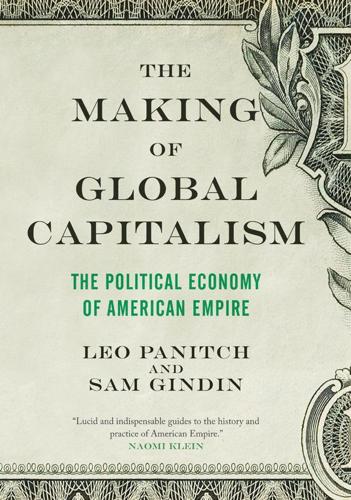
The Making of Global Capitalism
by
Leo Panitch
and
Sam Gindin
Published 8 Oct 2012
Especially significant in this respect, and indeed for the overall shift in the balance of class forces in Europe, was the transformation of European financial markets along US lines.18 The City of London, which had since the 1960s served US banks “as a laboratory for financial innovation” at the center of the Euromarkets, was the leading site of this Americanization.19 The removal of UK capital controls in 1979, the City of London’s own “big bang” in 1987, and the new stock exchange system modeled on the automated NASDAQ in the US, were all about trying to compete with New York on a level playing field, reinforced by direct pressures from the Wall Street investment banks operating in London.
…
Economic Crisis and the Illusion of Hegemonic Decline By the 1960s, alongside the activities of MNCs abroad, the international operations of US management, legal, accounting, and consultancy firms also facilitated the making of global capitalism under the aegis of the American empire. This was further enhanced when the City of London switched its international allegiance from sterling to the dollar, and became by the 1960s the Eurodollar satellite of Wall Street. But, together with the appearance of US balance of payments deficits due to the flow of imports from Europe, as well as increased US foreign direct investment (FDI from here on) in Europe, this raised severe problems for the dollar’s fixed exchange rate, even though the US Treasury bond market still served as the foundation for all calculations of value in the global capitalist economy.
…
The promotional and imperial roles it was now adopting were not just a manifestation of the growing weight of American capital in the world economy, but were also a reaction to the restructuring of the international trade and political regime that accompanied the long-drawn-out demise of what Polanyi called “the free trade episode” of 1846–79, during which Britain had been able—very much to the benefit of US capitalism—to practice free trade unilaterally, with the aid of the surpluses guaranteed by its formal empire, above all in India. The new global economic regime was more than ever subject to the gold standard in international finance, with the Bank of England’s management of gold-sterling exchanges and the City of London’s deep and liquid discount markets at its epicenter. Indeed, rigid commitment to the gold standard, which the American state now adopted as the foundation for the dollar and for international transactions (acquiring for the next three decades, as Charles Beard put it, “some of the characteristics of a fetish, a sacred thing”) was part and parcel of proving before such company that the US state was “sound” and “responsible.”52 But it was also a world increasingly defined by the imperial rivalries resulting from the “catch-up” capitalist development policies pursued by European (and increasingly the Japanese and Russian) states which still bore many of the traces of their pre-capitalist ruling classes and state forms.53 Their new territorial colonizations were supplemented by spheres of influence extending from formal “protectorates” to the informal but more or less exclusive privileges that were presumed to belong to a Great Power by virtue of its dominant commercial or industrial interests in any given territory.
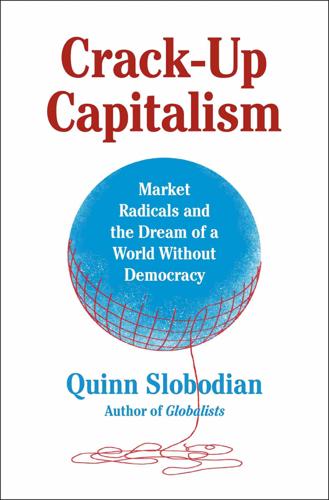
Crack-Up Capitalism: Market Radicals and the Dream of a World Without Democracy
by
Quinn Slobodian
Published 4 Apr 2023
Individuals, foreign-owned banks, and later major oil-exporting states like Saudi Arabia, Libya, and the United Arab Emirates used the City of London as a place to deposit money and organize large loans. As Britain’s overseas empire dissolved, a “Second British Empire” arose in its place as a collection of tax havens, including British dependent territories like the Cayman Islands and Bermuda and former colonies like Singapore, Ireland, and Dubai.8 And the City was at the center of it all. In 1938, Lewis Mumford compared capitalism to a cuckoo bird that laid its eggs in the walled city and crowded out the city’s own native offspring.9 After Margaret Thatcher deregulated financial services with the so-called Big Bang in 1986, the City burst out of its confines and spawned a double of itself downstream, in a grove of glass skyscrapers known as Canary Wharf.
…
See also under specific locations elimination of flat tax in Hong Kong inheritance tax tax avoidance tax breaks tax havens tax pirates tax rates as theft Taylor, Jared Tebbit, Norman tech criticism tech libertarianism tech sector “techxodus” telecommunications terrorism Texas Texas Instruments Thailand Thatcher, Margaret Big Bang and as patron saint of Euroskeptics Right to Buy program Singapore and Thatcherism Theranos Thiel, Peter “three withouts” Thyssen Tiananmen Square, protest at tin Tlon Tories Total trade foreign trade zones free trade free trade zones international trade law supercharged maritime transition transitology Transkei, South Africa transnational capitalism Transparency Commission Transport and General Workers Union treaties Treaty of Nanking treaty ports Trucial States trucking Trump, Donald Trump Tower, New York Trump Tower Dubai Truss, Liz trusts Tullock, Gordon Turkey Twain, Mark T-zones Uber Ugland House UK Independence Party (UKIP) Ukraine, Russian invasion of Umbrella Movement underclass underthrow unemployment Unicorn Island unions absence of breaking of prohibition of in South Africa union breakers union laws United Arab Emirates United Kingdom. See also British Empire; specific locations in 1976 in 1978 Big Bang in after Brexit Brexit and drift away from manufacturing and agriculture Hong Kong and invasion of Iraq and London Docklands National Health Service in nation branding and secession and Singapore model and (see also City of London) tax rates in Trucial States and welfare state in United Nations General Assembly Honduras and International Development organization Liechtenstein and member states and when they joined micronations in national movements and policy against secession “Ring City Singapore” and secession movements and Somalia and Somaliland and United States in 1978 as anocracy COVID-19 pandemic in Dubai and foreign policy of gated communities in invasion of Afghanistan and invasion of Iraq and laws of market radicals in military interventions in Persian Gulf NAFTA and neo-Confederate movement in political polarization in post–Jim Crow proprietary communities in segregation through the market in Singapore and tax rates in white nationalism in as zone universal suffrage University of Chicago University of Hong Kong University of Nevada Urban Development Corporation urban megaprojects urban new left US banana companies US Immigration and Customs Enforcement US military US Navy US postal service, metaphor of USS Vicksburg utopia, commodification and utopian architecture, free market and Vaduz, Liechtenstein value chains Van Notten, Michael Vanuatu Venda, South Africa venture capital funds verticality Verwoerd, Hendrik Victor Verster Prison Vietnam Vietnam War vigilante violence virtual worlds Vogel, Ezra voided patterning Voortrekkers voting rights.
…
As momentum built toward the 2016 Brexit referendum, the idea of Singapore-on-Thames became a buzzword to describe one vision of what Britain might look like outside the EU. The term was used both by critics and advocates. Along with opposition to socialized health care, it implied low taxes, deregulation, and the erosion of worker rights, a combination of the offshore tax haven and the sweatshop. It also alluded to the rapid rise of Singapore as an international finance center. The focus was often on how the City of London might have more opportunities after leaving the European Union. The Economist argued that London outside the EU could be “a sort of Singapore on steroids.”72 Some backers of Brexit embraced the term.
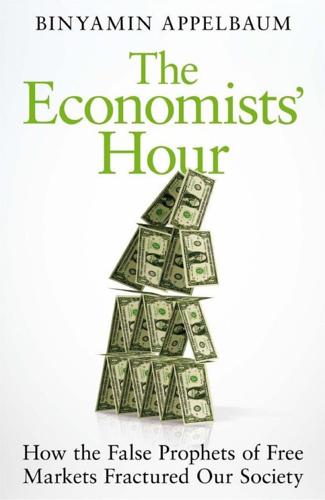
The Economists' Hour: How the False Prophets of Free Markets Fractured Our Society
by
Binyamin Appelbaum
Published 4 Sep 2019
When a matchmaker tried to persuade the partners in one British firm to fly to New York to meet potential suitors, he was told that one of the partners had no passport because he had never thought to go anywhere else. Danny Fortson, “The Day Big Bang Blasted the Old Boys into Oblivion,” The Independent (London), October 29, 2006. 49. In the first year after the Big Bang, one quarter of the 300 members of the exchange came under foreign ownership. 50. Julia Tanndal and Daniel Waldenstrom, “Does Financial Deregulation Boost Top Incomes? Evidence from the Big Bang,” Economica 85, no. 338 (2018). 51. Jesse Eisinger, “London Banks, Falling Down,” Portfolio, August 1, 2008. 52. The rise of financial profits in the United States was even more spectacular, from about 15 percent of all corporate profits in the early 1980s to around 40 percent on the eve of the financial crisis.
…
Nigel Lawson, the chancellor of the exchequer, insisted the United Kingdom needed to keep pace with its rivals. Redwood said investors would police the market. “People are, on the whole, pretty canny about their own money,” he said.47 The makeover of the London Stock Exchange, on October 27, 1986, was dubbed the “Big Bang.” American and continental banks rushed into the City of London, the historic financial district, and gobbled up venerable British brokerages like so many Pac-Man pellets.48 Wits compared the City with Wimbledon, the tennis tournament dominated by foreign players.49 Broker fees quickly dropped by half, and the volume of trading on the London market roughly doubled.50 The longer-term impact was to restore London’s place as a center of finance.
…
Jim Pickard and Barney Thompson, “Thatcher Policy Fight over ‘Big Bang’ Laid Bare,” Financial Times, December 30, 2014. With regard to Redwood’s views, suffice it to say that people are roughly as canny about money as Redwood was about people. Interestingly, price competition has turned out to require a larger regulatory apparatus than price controls, underscoring that more complex markets require more complex regulation. By one count, the ratio of regulators to bankers rose from 1 per 11,000 in 1979 to 1 per 300 in 2010. On the evidence, of course, the regulators still were badly outmanned. See Philip Booth, “Thatcher: The Myth of Deregulation,” May 2015, Institute of Economic Affairs. 48.
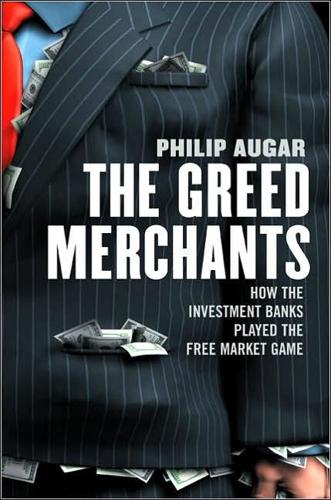
The Greed Merchants: How the Investment Banks Exploited the System
by
Philip Augar
Published 20 Apr 2005
We helped to raise and recycle lots of capital, yet we employees seemed to benefit more than our clients and shareholders. We never seemed to face up to the truth about what we were really doing. To start with I thought this was a London problem. My first book, The Death of Gentlemanly Capitalism,1 described how the City of London’s investment banks and brokers had lost out to foreign, mainly American, competitors in the years after Big Bang in 1986. I expected that this book would end my interest in finance, but I kept a weather eye on investment banking. Some firms used me as a consultant; others asked my opinion informally; friends in the business kept me in touch with what was happening.
…
One of the few occasions when lobbying failed was when SEC chairman Arthur Levitt introduced Fair Disclosure, a rule that required corporate executives to make public any information that they passed on to analysts, but even then ‘When Levitt announced his fair disclosure plan, the Wall Street firms and their corporate clients raised a huge, self-serving ruckus.’33 Lobbying is of course the American way: every interest group lobbies Washington and the financial services industry’s is a particularly effective lobby. Inevitably, after the takeover of the City of London by Wall Street’s banks, a similar process is now under way in Britain. The Labour Government was initially uncomfortable with the City but sensed that it needed it and built relations with the investment banks. Prime Minister Tony Blair spoke at a meeting for business people organized by Goldman Sachs34 and, as if to confirm that top politicians would appear at investment banks, shortly afterwards, in April 2004, Gordon Brown opened the new London offices of Lehman Brothers.
…
Burrough, Bryan, and Helyar, John, Barbarians at the Gate (Random House, 2001), p. 622. 21. Geisst, Charles R., Wall Street, op. cit., pp. 357–9; Roberts, Richard, Wall Street, op. cit., p. 79; Stiglitz, Joseph, The Roaring Nineties, op. cit., pp. 37–8. 22. Kochan and Pym, The Guinness Affair, op. cit.; Kynaston, David, The City of London (Chatto & Windus, 2001), vol. 4, pp. 673–81, 725–6 and 743–4. 23. Endlich, Lisa, Goldman Sachs (Alfred A. Knopf, 1999), p. 118. 24. Eichenwald, Kurt, Serpent on the Rock (HarperBusiness, 1995); Business Week (18 December 1995). 25. Endlich, Lisa, Goldman Sachs, op. cit., p. 197. 26. Fay, Stephen, The Collapse of Barings (Arrow Books, 1996); Gapper, John, and Denton, Nicholas, All that Glitters (Penguin Books, 1997). 27.
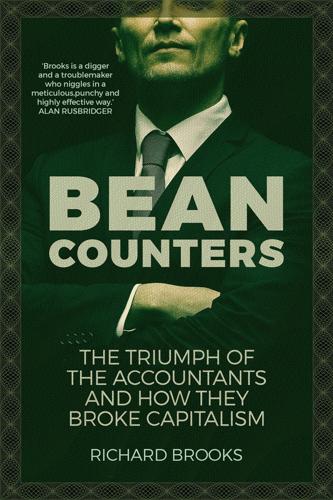
Bean Counters: The Triumph of the Accountants and How They Broke Capitalism
by
Richard Brooks
Published 23 Apr 2018
As Professor Lee Seidler had written in his 1969 comparison of American and British bean counters, while American accountants were ‘proud of their ability to minimize clients’ taxes’, their British counterparts ‘appear to display little enthusiasm for such tactics’.6 Since then, however, British accountancy had become part of the global bean-counting business and had less time for old-fashioned notions like public responsibility. PLAYING CHARADES As the 1990s post-Big Bang City of London created new financial instruments to enrich itself, amenable governments adapted antiquated tax laws to accommodate them. But new laws meant new loopholes. A low, rumbling level of UK corporate tax avoidance became an all-out assault by the bean counters on the national coffers. The firm with the most substantial American heritage, Ernst & Young, was at the forefront.
…
The bean counters were making themselves increasingly indispensable. The man who gave his name to the world’s largest accountancy firm today made it by exposing malpractice in the railway companies. William Welch Deloitte was the grandson of an aristocrat who had fled revolutionary France, learning his craft in the City of London’s bankruptcy court before setting up on his own in 1845 at the age of 27. Four years later, he was called in by concerned shareholders in the Great Western Railway. There he uncovered accounting that was shoddy even by the standards of the day, forcing the amateur auditors and four of the company’s directors to resign.
…
It promised ‘the existence of a class of persons well qualified to be employed in the responsible and difficult duties often devolving on Public Accountants’. Across the United Kingdom chartered accountancy was now elevated to somewhere approaching the status of other professions, with demanding training and examinations for its practitioners. In its first thirty years, at its new home in the City of London, the Institute of Chartered Accountants in England and Wales would count as president the men whose names still stand at the top of the profession: William Deloitte, Edwin Waterhouse, William Peat and both of the Cooper brothers. BUST AND BOOM Nineteenth-century laissez-faire economic policy certainly gave these professional accountants (and plenty of unprofessional ones) much to do.
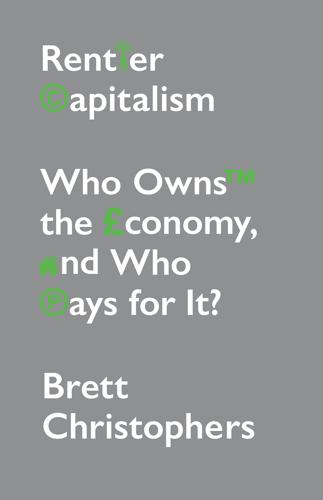
Rentier Capitalism: Who Owns the Economy, and Who Pays for It?
by
Brett Christophers
Published 17 Nov 2020
‘This was not simply a lurch towards free markets’, write Davis and Walsh, ‘but a particular economic policy paradigm that advantaged finance and aided the financialisation of UK industry. It propelled the UK towards financialisation faster than almost any other leading economy of the time.’15 Pivotal to the shift in question has been broadly based deregulation and liberalization – both of financial markets and of the financial institutions that operate in them. The most widely cited, almost epoch-defining, example was of course the so-called Big Bang of the mid 1980s, the seeds of which had been sown in the immediate post-war period. In the 1950s and 1960s, large US banks were driven offshore from their home turf by exacting new domestic regulations, and they found the UK, which by contrast operated a laissez-faire regime, to be a remarkably obliging host.
…
Which, of course, is not to say that the capitalization of dividends is all that equities are: representing fractional ownership of a corporation, they confer other entitlements (e.g. voting rights, proceeds from liquidation events) on their holders. 23. See, for example, M. Watson, ‘House Price Keynesianism and the Contradictions of the Modern Investor Subject’, Housing Studies 25 (2010), pp. 413–26. 24. M. Stephens, ‘Mortgage Market Deregulation and Its Consequences’, Housing Studies 22 (2007), pp. 201–20, at p. 211. 25. M. Robertson, ‘The Great British Housing Crisis’, Capital & Class 41 (2017), pp. 195–215, at p. 199. 26. Oren and Blyth, ‘From Big Bang to Big Crash’, pp. 610–11. 27. Bush et al., ‘Why Is the UK Banking System So Big’, p. 386. 28. M. Singh and J. Aitken, ‘The (sizable) role of rehypothecation in the shadow banking system’, IMF Working Paper WP/10/172, July 2010, p. 4 – pdf available at imf. org. 29.
…
Walsh, ‘The Role of the State in the Financialisation of the UK Economy’, Political Studies 64 (2016), pp. 666–82; T. Oren and M. Blyth, ‘From Big Bang to Big Crash: The Early Origins of the UK’s Finance-Led Growth Model and the Persistence of Bad Policy Ideas’, New Political Economy 24 (2019), pp. 605–22. 14. Davis and Walsh, ‘Role of the State’, p. 669. 15. Ibid., p. 666. 16. See, for example, J. Plender, ‘London’s Big Bang in International Context’, International Affairs 63: 1 (1986), pp. 39–48; Oren and Blyth, ‘From Big Bang to Big Crash’. 17. Plender, ‘London’s Big Bang’, p. 44. 18. Ibid., p. 45. 19. R. Wade, ‘Financial regime change?’, New Left Review 53 (2008), pp. 5–21, at pp. 12–13. 20.
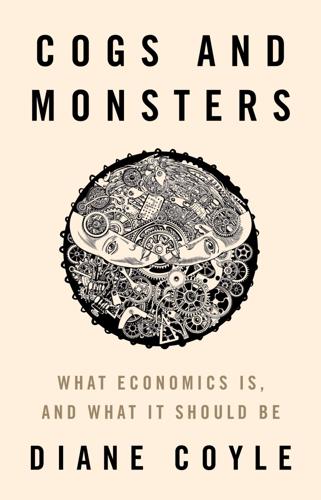
Cogs and Monsters: What Economics Is, and What It Should Be
by
Diane Coyle
Published 11 Oct 2021
Indeed, my job, in the grand Whitehall building just across the square from Parliament, was in the division responsible for monetary policy (this was before the days of central bank independence). The monetarism originating with Milton Friedman’s work in the 1960s and implemented during the inflationary economic crises of the 1970s was the policy orthodoxy. We were also closely involved in the preparations for ‘Big Bang’, the removal of long-standing regulations governing the financial markets in the City of London. These 1986 deregulatory changes gave birth to the financial system that eventually delivered the Great Financial Crisis (GFC) of 2008–9, including the explosive growth of derivatives markets. (One of my tasks in the Treasury was writing an explainer about derivatives for senior officials and ministers, which was certainly an education for me too.)
…
C., 120 Piketty, Thomas, 131 Pinker, Steven, 91 pluralism, 3, 76 political economy: loops of, 188–95; progress and, 146; public responsibilities and, 11, 49, 56, 70–80, 82; rationality and, 119; rediscovery of, 70–80, 111, 213–14; socialist calculation debate and, 190; twenty-first-century policy and, 167, 181, 188–95, 206–7 politics: conservatism, 30; Covid19 pandemic and, 163; democracy, 33, 67, 69, 79, 193; disruption of, 167 (see also digital economy); empirical work and, 3, 76, 78–79, 124, 213; free market and, 30, 36, 130, 206; globalisation and, 110, 132, 139, 154, 164, 193–94, 196, 213; inequality and, 132, 163, 165–66; lobbying and, 29, 64–65, 69, 149; neoliberalism, 3, 15, 193–94; outsider context and, 106, 110; progress and, 137, 146, 148–49, 152, 155, 157, 161; public responsibilities and, 29, 33, 36, 41, 53, 55–56, 61, 64–73, 76–79, 85; putting economists into economics and, 61–66; separation protocol and, 121, 124; taxes and, 132; technocratic dilemma and, 67–79; technology and, 173; twenty-first-century policy and, 193–94, 205–6, 210 Pollock, Rufus, 59–60 populism, 1, 42, 56, 67–68, 77, 82, 110, 131, 211 Portes, Jonathan, 53 positive economics: Friedman and, 104, 121; Gelman and, 108; normative economics and, 10, 104, 108, 114, 120–21, 125, 146; progress and, 146; welfare and, 114, 120 Post-Autistic Economics movement, 84 Post-Crash Economics Society, 84 poverty, 80 Price, George, 48 price gouging, 43 prices: cloud computing and, 150, 170, 172; communications and, 150, 171, 177; CPI, 146–47, 172; fixed costs and, 174, 177, 179, 185–86, 200; indexes for, 26, 144, 146–47, 171–72; network effects and, 127, 141, 174, 177, 185, 199–202, 205, 209; SSNIP test and, 204 principal-agent relations, 209 privatisation, 31–32, 44–45, 65, 194 probability theory, 99, 200 Pro Bono Economics lecture, 86 production: agglomeration and, 132; automation and, 139, 154, 165–66, 195; competition and, 12, 41; decision making and, 12, 123, 140, 196; digital technology and, 132, 140, 142, 176, 195–97, 202, 213; economies of scale and, 127, 142, 174, 177, 185, 199–201, 209; fakes and, 98; GDP and, 101 (see also Gross Domestic Product [GDP]); globalisation and, 110, 132, 139, 154, 164, 193–96, 213; innovation and, 41, 139, 169, 195; manufacturing and, 105, 149–50, 172, 178, 195–98; mass, 140, 142; outsourcing and, 139, 195–97; returns to scale and, 123, 128, 140, 174, 177, 180, 185–88, 199, 202–3, 209; technology and, 12, 132, 140, 169, 176, 195–96, 202, 213; twenty-first-century policy and, 183, 185, 194–97, 199, 202; wealth creation and, 20 productivity: OECD countries and, 164; progress and, 142–43, 153, 164; technology and, 127, 142, 153, 169, 172–73, 192, 194, 202; twenty-first-century policy and, 192, 194, 199, 202, 207 profit: competition and, 33, 41–42, 105, 204; counterfeits and, 98; excess, 29; importance of, 1, 18, 71; maximisation of, 92, 107; measure of value and, 46; prisons and, 33; public interest and, 41; returns to scale and, 123, 128, 140, 174, 177, 180, 185–86, 188, 199, 202–3, 209; sharing economy and, 142; social welfare and, 201 progress: algorithms and, 139, 157, 160–61; artificial intelligence (AI) and, 137–39, 154, 159–62; behavioural economics and, 136–37, 145, 154, 157–60; Boskin Commission and, 146–47; building back and, 163, 165; capitalism and, 143, 149; causality and, 137; central banks and, 149; communications and, 25–26, 53, 60, 127, 139, 150, 168, 171, 177, 196, 198; competition and, 135, 158, 165; computers and, 138, 144, 155; consumers and, 137, 141, 144, 146–47, 151; cost of living and, 143–47; criteria for, 137–42; digital economy and, 14, 137–43, 150, 153–54, 164–67; electricity and, 139, 142, 156, 165, 169, 191–92; Great Financial Crisis (GFC) and, 149, 153, 159; Gross Domestic Product (GDP) and, 138, 142–44, 148, 151, 158–59, 165, 172; growth and, 138, 140, 143–45, 152, 159, 165; historical perspective on, 144–45; income and, 138, 143, 147, 149, 151; Industrial Revolution and, 150; innovation and, 137, 139, 142–46, 150–51, 156, 166; internet and, 138–39; interventions and, 160; living standards and, 143–47, 172, 194; macroeconomics and, 151; models and, 139, 151–52, 154, 159–61; moral issues and, 148, 150; normative economics and, 146; Phillips machine and, 135–37, 151, 192; politics and, 137, 142–55, 157, 161; positive economics and, 146; productivity and, 142–43, 153, 164; rationality and, 157; regulation and, 149, 156–58, 165; returns to scale and, 140; Sen-Stiglitz-Fitoussi Commission on the Measurement of Economic Performance and, 151; statistics and, 138, 142, 144–53, 158–59, 164; technology and, 134, 137–42, 160, 164–65; welfare and, 130, 143 Project CyberSyn, 184 PSL2, 72 psychology, 38, 63, 70, 92, 94 public choice theory, 64, 106, 119, 124 public goods, 30, 77, 123, 127–28, 140, 180, 212 public opinion, 9, 19, 70, 165–66 public responsibilities: artificial intelligence (AI) and, 28, 40; behavioural fix and, 45–51; causality and, 61, 74; central banks and, 16, 32, 62, 64, 66–67, 76, 81; competition and, 28, 33, 38, 41–42, 45–48, 57–69, 74, 77, 79, 85; consumers and, 22, 28, 42, 59–60, 65; empirical work and, 17, 35, 40, 52, 61, 70, 74–81, 90, 92, 94–102, 110–11; free market and, 19, 30–32, 35–36, 45, 54; Great Financial Crisis (GFC) and, 16–19, 21, 29–31, 37–38, 50–51, 56, 67–68, 73–74, 79, 84; growth and, 16–17, 23, 28, 37, 41, 46, 61, 66, 68–73, 76, 78; inflation and, 16–17, 30, 36, 66, 73; macroeconomics and, 17, 21, 31, 36–37, 71–76, 85–86; market as process and, 37–45; political economy and, 11, 49, 56, 70–80, 82; politics and, 29, 33, 36, 41, 53, 55–56, 61, 64–73, 76–79, 85; putting economists into economics and, 61–66; rationality and, 15–16, 20–22, 29, 31, 33, 35, 45–48, 54, 59, 62–63, 71; regulation and, 16, 19, 24–32, 39, 41, 43, 53, 57–71, 81; responsible economics and, 52–61; statistics and, 17, 42, 51–52, 58, 61, 72, 90, 94–102, 113; technocratic dilemma and, 67–79; technology and, 26–28, 35, 40, 71; welfare and, 55, 60 randomised control trials (RCTs), 60–61, 93–95, 105, 109–10 rational choice theory, 33, 35, 47–48, 59, 91, 114, 119 rationality: algorithms and, 116, 118; artificial intelligence (AI) and, 116–18; behavioural economics and, 22, 35, 46–47, 59, 109, 117–19; common sense and, 78, 127; competition and, 117; computers and, 116–17; consumers and, 116; decision making and, 116–19; empirical work and, 17; Enlightenment and, 20; game theory and, 48, 90–91, 129, 159–60, 179–80; happiness and, 70–71, 153; homo economicus and, 13, 47–48, 93, 114, 116–17; logical rigour and, 88; logic and, 33, 47, 89–91; models and, 21–22, 31, 35, 45–48, 62, 71, 88–103, 117–18; moral issues and, 117; New Public Management and, 33, 106–7, 119, 187; outsider context and, 90–93, 109, 111; political economy and, 119; progress and, 157; public responsibilities and, 15–16, 20–22, 29, 31, 33, 35, 45–48, 54, 59, 62–63, 71; self-interest and, 6, 13, 46–47, 109, 117–20, 123; separation protocol and, 123–24; twenty-first-century policy and, 194 Rawls, John, 106 Reagan, Ronald, 15–16, 30–31, 36, 56–57, 124, 192–94, 207 RealClear Opinion, 19 recession, 17, 51, 73, 111, 154, 158–59 reciprocity, 49 Red Plenty (Spufford), 182–83, 190 Rees-Mogg, Jacob, 155 reflexivity, 11, 81 reform, 4–5, 34, 44–45, 67–69, 88, 172 regulation: Big Bang and, 16; deregulation and, 16, 31, 60, 68, 71, 193–94; greed and, 11; Market Abuse Regulation (MAR) and, 27n5; outsider context and, 109; price gouging and, 43; progress and, 149, 156–58, 165; public responsibilities and, 16, 19, 24–32, 39, 41, 43, 53, 57–71, 81; separation protocol and, 125; technology and, 27, 71, 134, 181; twenty-first-century policy and, 193–94, 200, 206; utilities and, 65 Reinhart, Carmen, 101 Renaissance, 144 rent-seeking, 64 Republic of Beliefs, The (Basu), 159–60 Retail Price Index (RPI), 147 Rethinking Economics group, 35, 84 returns to scale: envelopment and, 203–4; increasing, 123, 128, 140, 174, 177, 180, 185–88, 199, 202–3, 209; knowledge-based economy and, 128; production and, 123, 128, 140, 174, 177, 180, 185–88, 199, 202–3, 209; progress and, 140; twenty-first-century policy and, 185–88, 199, 202–3, 209 Robbins, Lionel, 100, 120–21 Roberts, J., 197 Robinhood, 27 Robinson, Marilynne, 19–20 robotics, 137, 154 Rodrik, Dani, 97 Rogoff, Ken, 101 Romer, Paul, 90, 140, 209 Rosen, Sherwin, 173–74 Ross, Andy, 83–84 Roth, Al, 44, 142 Rothschild, E., 120 Royal Commissions, 65 Royal Economic Society, 9, 86 Rubinstein, Ariel, 90–91 rules of thumb, 47–48, 90, 117, 212 Ruskin, John, 20 Samuelson, P.
…
Thanks to them, capitalism in the early twenty-first century has brought inequality, unemployment or precarious jobs, and austerity. Public dissatisfaction was strong enough by 2012 to get a fair number of people out onto the streets to ‘Occupy’ the commanding heights of the global economy in the City of London and on Wall Street. In 2019 polling in the United States by RealClear Opinion found more than a quarter of respondents saying capitalism and free markets are broken and another 15 percent saying they would like more government regulation of the economy.2 Liberal intellectual opinion has been shrill in its denunciations of economics.
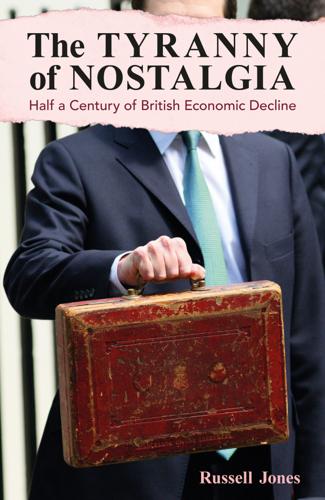
The Tyranny of Nostalgia: Half a Century of British Economic Decline
by
Russell Jones
Published 15 Jan 2023
Contrary to the perceptions of many laypeople, who are wont to view economics as a bounded subject, an appreciation of other disciplines is required to grasp the dynamics of the business cycle (to the extent that such a phenomenon exists3), to contextualize the relative performance of individual sectors and economies, to appreciate the intricacies of the different strands of government strategy or the progress of international economic relations, and to get to grips with the often seemingly random gyrations of financial markets. Armed with numerous insights from my mentors, this framework of thought and the arrogance of youth, in 1985 I abandoned academia for the City of London, hoping to tap into the burgeoning opportunities that were available – and, it should be said, the pecuniary rewards on offer there – as it geared up for the programme of market liberalization known collectively at the time as the ‘Big Bang’. The Conservative government of the day felt that the UK financial services industry had been held back by excessive regulation. It was determined to give it free rein to flourish.
…
The removal of exchange controls also encouraged greater diversification of financial and direct investment portfolios. Outward financial flows were greatly stimulated, particularly in the second half of the decade, when the current account balance swung sharply into deficit. Financial deregulation did not stop there, however. In the late 1970s the City of London had become increasingly uncompetitive. It was inward-looking and it operated in an old-fashioned, anachronistic way, while financial repression – the creation of captive markets through mechanisms such as artificial price ceilings, trade limitations, barriers to entry and other market controls − was pervasive.
…
Furthermore, as it subsequently transpired, the Big Bang proved to be a recipe for the triumph of large, multifaceted, mainly US international conglomerates or ‘securities houses’ that could more readily benefit from the broader eradication of the world’s financial boundaries. Few of the City’s old indigenous firms survived as independent entities. Financial deregulation also went hand in hand with a loosening of moral restraints. Traditional banking emphasized long-term relationships with customers, while in the new environment the focus was all too often on short-term opportunism and risk-seeking. Deregulation went well beyond finance, too.
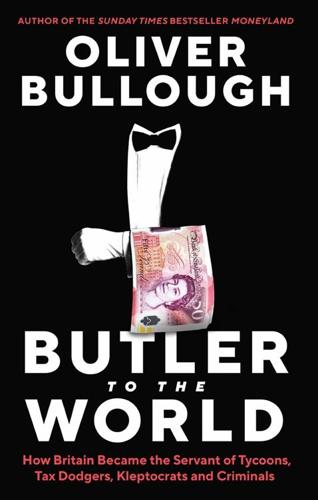
Butler to the World: How Britain Became the Servant of Tycoons, Tax Dodgers, Kleptocrats and Criminals
by
Oliver Bullough
Published 10 Mar 2022
INDEX A accountants regulators 185, 186 Suspicious Activity Reports 189 Acheson, Dean 58 Action Fraud 214, 218 Aliyev family 191–3 Aliyev, Nurali 199, 200, 202 Aliyev, Rakhat 198, 199, 200 Allard Prize 145 Aloi, Tony 229–30, 231 Altman, Oscar 52 Angola 155 Anguilla 198, 235, 243 Apple 223 Archbishop of Canterbury’s Faculty Office 186–8 Asquith, Lord Julian 234 Asquith, Raymond 159, 169, 173 Assad, Hafez al- 159 Assange, Julian 171 Assets Recovery Agency 204 Association of Accounting Technicians 135 Australia 19 visas 244 Austria 166, 170, 171 autonomy 31, 38, 57 Azerbaijan 191–3, 197 B BAE Systems 85–9 Ballester, Freddie 98–100, 104, 105, 114, 121 Bank of England 36–40 cultural uniformity 45–6 Eurodollars 45–7, 49, 50–1, 54–5, 58–9, 232 governors 32, 33, 36 and Midland Bank 42 Suez Crisis 44 banknotes 8 banks and money laundering 194 Suspicious Activity Reports 189–90 Baring, Evelyn, first Earl of Cromer 16, 32 Baring, George Rowland Stanley, third Earl of Cromer 32–3, 36, 39, 55, 232 Baring, Rowland, second Earl of Cromer 32 Barings Bank 57 Barker, Alison 183 Barkshire, John 34, 40, 229–31 BBC, Orwell statue 8 Bean, David 88 Bell, Geoffrey 45–6, 51 Bell, Lord 171 Bercow, John 163 Berry, Elspeth 138, 146–7 Betfair 115 Better Regulation Task Force 111 betting see gambling Betting and Gambling Council 119 Billion Bright Trading Limited 213 billionaires, and COVID-19 pandemic 58 Birnbaum, Eugene 54 Blair, Tony 109 blockchain 242, 243 Boeing 170 BOLSA (Bank of London and South America) 50, 57 Bolton, George 43, 50 Bossano, Joe 95, 96–7, 123, 124 Bretton Woods 30, 31 Brexit 12–13, 140, 142, 144, 248, 249 Bridgen, Andrew 140–1 British empire 18–20, 58 and City of London 30 British Private Equity and Venture Capital Association 142 British Syrian Society 159–60 British Ukrainian Society (BUS) 159–60, 172–3, 174 British Virgin Islands (BVI) 68–71, 74, 79–81, 91, 227 Firtash 161 Khassenov 209 shell companies 72–9, 81–5, 86–9, 90, 123, 124, 235, 238, 239, 240 Brompton Road Tube station 151–3, 164–5, 170, 172, 174, 176–7 Brown, Gordon 132 Brown, John 108, 109–10 Budapest Project 167–8, 169 Burma 20 Butler, Paul 71, 72–3, 75–6 butlers 4–6 Jeeves 6–7, 10–11 C Callaghan, James 36 Cambridge University 160–1, 162, 163, 169, 171–2, 237 Canada 19 visas 244 capital flows 31–2, 50, 51, 55, 59 Eurodollars 40–2, 44–57, 58–9, 232, 238 funk money 64–6, 78–9, 82, 208 capitalism 35 Cassidy, Rebecca 111–12, 113, 116–17, 119 Cayman Islands 233–5, 241, 243, 247 Ceylon 20 Chambers, Ajit 149–50, 151, 152, 153, 165, 176–7 Chandler, Victor 104–7, 108 Child & Child 192–3 China British investment in 19 cultural revolution 66 and Hong Kong 78, 82 money laundering 1–4 socialism 123 and Tanganyika 63 Church of England 186–8 Churchill, Winston 7, 21 City of London 29–30, 32, 57–8 Big Bang 56 cultural uniformity 32–4, 35–6 deregulation 56–7 Eurodollars 44–57, 58–9 financial innovation 48 and funk money 64, 65 Midland Bank 40–2 money laundering 182, 184 offshore finance 249 regulation 39–40 Scottish limited partnerships 137–9, 141, 142–3 and Suez Crisis 42–4 Clarke, Kenneth 240 Clinton, Bill 109, 121, 236 Cobbold, Cameron 33 Colston, Edward 7 Columbus, Christopher 69 communism 35 Tanganyika 62, 63 Coomes, Mr and Mrs 101 Coral 103, 107 Countrywide 193 COVID-19 pandemic 13, 15 and billionaires 58 Crimea 164 Cromer, Evelyn Baring, first Earl of 16, 32 Cromer, George Rowland Stanley Baring, third Earl of 32–3, 36, 39, 55, 232 Cromer, Rowland Baring, second Earl of 32 Crown Prosecution Service 204, 218 Cuban Missile Crisis 52 Curaçao 71–2, 198 Cyprus 19 Firtash 166 D Daily Telegraph 108 Danske Bank 144–5 Davies, Philip 115 defence against money laundering (DAML) SARs 195 Department for Culture, Media and Sport 110 Deripaska, Oleg 226 DF Foundation 161 dirty money see money laundering dollars 41–2, 44, 48 see also Eurodollars double taxation treaties 72, 75 E The Economist 151–2 Eden, Anthony 23, 24, 26 Edmonds, Tamlyn 219–20, 221, 222 Edmonds Marshall McMahon (EMM) 219–20, 225 Egypt, Suez Crisis 15–19, 20–7 Eisenhower, President 24 ELMER 195, 205 Envers 87, 88 estate agents 193 Suspicious Activity Reports 189 Eurobonds 45 Eurodollars 40–2, 44–57, 58–9, 232, 238 exchange rates 31–2, 38 F Fawcett, Millicent 8 FBI Budapest Project 168 Firtash 168–71, 200, 202 Federal Reserve 46, 48 Eurodollars 51, 53–4 Financial Action Task Force (FATF) 182–4 Financial Conduct Authority (FCA) 183, 185, 186 financial innovation 48 see also Eurodollars Financial Intelligence Unit (FIU) 190, 195 Financial Security Index (Tax Justice Network) 235 Financial Times 38 Firtash, Dmitry 157–66, 171–6, 177, 181, 219, 227 Brompton Road Tube station 164–5, 170, 172, 174, 177 Cambridge University 160–1, 162, 163, 169, 171–2, 237 FBI case 168–71, 200, 202 Firtash, Lada 163, 172 fixed-odds betting terminals (FOBTs) 112 Fonseca, Ramon 78 Foreign Affairs Committee 166, 179–81, 248 Fortuna United LP 128–30 France Eurodollars 49 overseas territories 243 prosecutions 216 Suez Crisis 23–4 Franco, Francisco 93, 95 Franklin, Professor Simon 161 Fraser, Ian 128–9 Freud, Jane McAdam 165 Fry, Richard 29–30, 57 funk money 64–6 Hong Kong 78–9, 82 Kazakhstan 208 G gambling 10, 102–5 deregulation 107–14, 236–7 gambling addiction 111, 116– 20, 121, 124 Gibraltar 98–102, 104, 105–7, 113, 114–17, 122–4, 242–3 Gambling Commission 118, 119, 185 Gambling with Lives 118 Gamesys 120 Garcia, Joe 122–3 Gartcosh 125–6 gas 153–5, 168 Gazprom 153, 155, 156, 157, 158, 161 Gazprombank 161 Germany, Eurodollars 49 ghost stations 149–53, 164–5 Gibraltar 91–8, 114–15, 122, 227, 235, 238, 241–3, 245 blockchain 242, 243 gambling 10, 98–102, 104, 105–7, 109, 110, 113, 114– 17, 119–20, 121–4, 242–3, 245 smuggling 92, 97 Global Witness 157–8, 169, 196, 198, 200, 205 golden visas 244–5 Goodman, Helen 172–3 Granovski, Vladimir 159 Greece financial crisis 31 visas 244 Green, Jeremy 57 Greenspan, Alan 46 Grogan, John 159, 160 Group DF 161 Grundy, Milton 233–4, 235–6 Guernsey 235 Guyana 19 H Hambro, Charles 49 Hambros Bank 57, 65 Hayek, Friedrich 35 Hayward, Mark 188 hedge funds Cayman Islands 234 and limited partnerships 138 Her Majesty’s Revenue and Customs 185 Herald 125, 147 Hitler, Adolf 21 Hodge, Margaret 239–40, 241, 247–8 Hodivala, Jama 223 Home Office, UWOs 197 Hong Kong and British Virgin Islands 78–9, 82 Khassenov 208–9, 211–12, 213, 220 Horrocks, Ian 210, 214–15, 218, 219, 220, 221 HSBC 189, 193 Hungary 166, 167–8, 169 Hunte, Lewis 76, 77 Huntington, Earl of 107 I India 19, 20 Institute of Chartered Accountants 194–5 Intelligence and Security Committee 175–6, 201 international business companies (IBCs) 77–8, 83–4 International Centres Forum 90 Ireland betting duty 106 petrol taxes 47, 54, 56, 236 Isle of Man 235, 243 Isola, Albert 241–2 Israel, Suez Crisis 23–4 Italy, visas 244 J Jaspert, Augustus James Ulysses 80–1 Jeeves, Reginald 6–7, 9, 11, 59, 101, 110–11, 232, 246 Jersey 235 Johnson, Boris Brexit campaign 225 London Underground 149–50, 151 and Russian influence in UK 175 Jowell, Tessa 110 Justice Committee 225 K Kazakhstan 198–201, 207, 208 Kennedy, John F. 63 Kenya 19, 61 Keynes, John Maynard 35 Khassenov, Argyn 207–15 private prosecution 215, 219– 23, 226 Kleinwort Benson 64 Kroll 126, 127, 128 Kulich, Aleksandr 209, 213 Kulich, Andrey 208–9, 210, 211, 213–14, 220, 221–3, 226 L Ladbrokes 103, 104, 107, 115 Laird, Judge Francis 220, 221 Lancet 124 Lasser Bros 229 Law Commission 190–1 Law Society of Scotland 136–7 lawyers 11–12 private prosecutions 223–4 regulators 185 Suspicious Activity Reports 188–9 Leask, David 125–6, 128, 131, 134, 135, 136, 144, 147 Lebedev, Yevgeny 248 legislative reform orders (LROs) 139–40 Levin, Carl 247 Li Ka-Shing 78–9 limited partnerships (LPs) 138, 143–4, 146–7 Northern Ireland 146 private fund limited partnerships 142, 145–6 Scottish limited partnerships 128–45, 227, 245, 246 London Kleptocracy Tours 162–3, 196 London Underground 149–51 Brompton Road Tube station 151–3, 164–5, 170, 172, 174, 176–7 M McMafia 179, 196, 214 Macmillan, Harold 20, 23 Malaya 19, 20 Malone, Jeff 17–18, 25–6, 34–5 Malta 242 Marx, Karl 35 May, Theresa 182 Mercantile House 229 merchant banks 36, 44 Metcalf, David 244 Micky Blue Eyes 230–1 Midland Bank 40–2, 44, 45, 51–2, 57 Migration Advisory Committee 244 Mills, Nigel 203 Ministry of Defence Brompton Road Tube station 152, 164–5, 172 Gibraltar 94–5, 114–15 Mishcon de Reya 199, 201 Mitchell, Andrew 239–40, 241, 247–8 Mkapa, Benjamin 89 Mogilevich, Semyon 157, 158, 167–8, 169 Moldova 126–7, 128, 129, 131, 132, 142, 143, 147 money laundering 1–4, 9, 179– 82, 196–8, 203–6, 246 Aliyev family 191–3 Cayman Islands 247 Financial Action Task Force 182–4 limited partnerships 128–45, 146, 245 Mogilevich 167–8 Nazarbayeva case 198–203 Panama Papers 191–2 UK regulation 184–96 Moneyland (Bullough) 30, 45, 130 Montado, Ernest 94, 95 Montegriffo, Peter 114 Moscow Narodny Bank (MNB) 41 Mossack Fonseca 78, 83, 191 Mullin, Roger 132, 134–6, 138– 42, 143–4 Mynors, Humphrey 39 N Nasser, Gamal Abdel 22, 23 National Crime Agency (NCA) 197, 201–4, 241 and Khassenov 214 Nazarbayeva case 199–201, 202, 203 National Lottery 103–4 Nazarbayev family 208 Nazarbayev, Nursultan 198, 201 Nazarbayeva, Dariga 198, 199, 200, 202 Ndibe, Okey 10 Netherlands 190 New Deal 31, 56 New York 229–31 New York Times 53, 89–90 New Zealand 19 Nigeria 155 healthcare 9–10 Nixon, Richard 55 Noriega, Manuel 78 Northern Ireland limited partnerships 146 petrol taxes 47, 54, 56, 236 notaries 187–8 Noyes, James 120 Nurse, Gwyneth 141–2, 143 Nyerere, Julius 62–3, 85, 89–90 O O’Brien, Leslie 54 Ogle, Vanessa 64 online gambling 114–17, 119– 20, 124 Only When I Larf 212 Orange Revolution 155–7, 159 Orban, Victor 169 Ormerod, David 191 Orwell, George 8 overseas territories 235, 239–41, 243, 245 see also British Virgin Islands; Cayman Islands; Gibraltar Owens, Lynne 201 P Panama 78, 82, 240 Panama Papers 83, 191–2 partnerships 132 see also limited partnerships Party Gaming 114, 121–2 Patel, Priti 181 Peel, Robert 7–8 Petfre 120 Philip, Prince 61, 161, 162, 169 police 216–17 and financial crime 218, 219– 20, 246 funding 224 Gartcosh 125–6 Hungary 168 and Khassenov 214, 219–20 and London Kleptocracy Tours 163 and private sector 202 and Scottish limited partnerships 126, 144, 146, 246 Portugal, visas 244 private equity, and limited partnerships 137–9, 142 private fund limited partnerships (PFLPs) 142, 145–6 private prosecutions 215–19, 223–8 Khassenov 215, 219–23, 226 problem gamblers 111, 116–20, 121, 124 Pryor, Henry 195 Public Accounts Committee 248 Purplebricks 193 Putin, Vladimir 155 and Ukraine 156, 164, 166 R Racing Post 106 Rankin, Ian 125, 134 Reagan, Ronald 56 Red Diamond Trading Limited 86, 88 Regulatory Reform Committee 139, 141–2 Rhodes, Cecil 7, 18–19 Riegels, Colin 71 Riegels, Michael in British Virgin Islands 68, 71, 73–4, 75, 76, 77, 78, 82, 83–5 in Tanzania 61–2, 63, 65–7, 85 and Tanzania radar contract 89 Riegels, Norma 67, 68, 73, 75, 84–5 Risby, Lord 159–60, 163–4, 173 Rock Turf Accountants 98, 100–1 RosUkrEnergo (RUE) 155, 156–7, 158, 169 Rothermere, Viscount 32 Royal Navy, Gibraltar 92, 93, 94–5 Russia money in UK 175–6, 179, 182, 222 organised crime 167 and Ukraine 154, 155, 164 S Saudi Arabia, and BAE Systems 87, 90 Scotland, police force 246 Scotsman 125 Scottish limited partnerships (SLPs) 128–45, 227, 245, 246 Scottish National Party 131–2 Scottish private fund limited partnerships 146 Scottish Property Federation 136, 142 Serious Fraud Office (SFO) 206 and BAE Systems 88–9, 90 Seychelles 128–9 Sharif, Khalid Mohammed 192–3 Shaw, David 84 shell companies 72–84, 86–9, 90, 123, 124, 130–1, 196, 237, 239–40 Scottish limited partnerships 128–32 Shetler-Jones, Robert 159, 171, 175 Shonfield, Andrew 37–9, 59 Shor, Ilan 127, 128 Short, Clare 86 Skripal, Sergei 179 Smith, Richard 128–9, 133–4 Solicitors Regulation Authority (SRA) 192–3 Soviet Union 153 see also Kazakhstan; Russia; Ukraine Spain, and Gibraltar 93, 95, 97–8, 124 Spink, Mike 162, 165 sportsbook.com 114 Spring, Richard (Lord Risby) 159–60, 163–4, 173 Standard Chartered 209, 210, 211–12, 220 Stark, Pete 75 sterling 30, 42–3 The Sting 212 Stoutt, Lavity 75, 76 Suez Crisis 15–19, 20–7, 34–5, 42–4, 58, 249 Suez Veterans’ Association (SVA) 15, 16–18, 22, 24, 25–6 suicides, and gambling addiction 118 surveillance capitalism 117 Suspicious Activity Reports (SARs) 2–4, 187–91, 192, 193, 194 ELMER 195, 205 Switzerland Eurodollars 49 Firtash 166 T Tanchel, Vivienne 225–6 Tanganyika 61–3 Tanzania 63, 65–7, 85 corruption 89–90 radar contract 85–9 tax havens 72, 84 see also British Virgin Islands; Cayman Islands; Curaçao Tax Justice Network (TJN) 235 taxation treaties 71–2, 75 Thank You, Jeeves (Wodehouse) 110–11 Thatcher, Margaret 56 Thompson, Mark 181, 206 The Times 131, 140 Tortola 69 Trainspotting 128 Transparency International 185, 194, 196 Transport for London (TfL) 149 Traynor, Brian 99–100 Treasury and Bank of England 37–8 limited partnerships 136, 139, 141–2, 143 Treaty of Utrecht 93 Tube see London Underground Turpin, Neil 187, 188 U UK Finance 190 Ukraine 131, 170, 174–5 British Ukrainian Society 159–60 corruption 155, 164 gas 153–5, 156–7, 158, 168 Orange Revolution 155–7, 159 unexplained wealth orders (UWOs) 196–202, 203–4 United Nations General Assembly, Suez Crisis 43 United States and BAE Systems 87 and British Virgin Islands 78, 82 and Cayman Islands 247 Eurodollars 51, 52, 55 financial deregulation 56–7 and Firtash 166, 168–71, 176, 177 gambling 102, 120–2, 236 and Gibraltar 96 and money laundering 189, 191, 193 New Deal 31, 56 offshore business 71–2, 73, 74–5 and organised crime 166–71 and Panama 78 Regulation Q 41, 56 Suez Crisis 24–5, 43–4 and Tanganyika 63 and Ukraine 164 visas 244 United States Virgin Islands (USVI) 70 V Venezuela 155 Vicious Games (Cassidy) 111– 12, 113, 116–17, 119 Virgin Islands 69, 70 see also British Virgin Islands visas 244–5 Vithlani, Shailesh 85–8 Volcker, Paul 46 W Walker, David 50–1 Wall Street Journal 168–9 Wallace, Ben 194, 196 Washington, George 63 welfare state 31, 56 Westwood, Neville 71, 73 Wheatley, Sowande 240 whistle-blowers 246–7 Whittingdale, John 173–4 Wilkinson, Howard 145 William Hill 103, 107, 108, 115 Without the Option (Wodehouse) 6–7 Wodehouse, P.
…
In 1980, therefore, they copied Britain’s lax regulatory regime in an attempt to lure the business back and abolished Regulation Q – the limits on interest rates which had helped inspire the Eurodollar market in the first place – and created ‘International Banking Facilities’, which copied the regulation-free approach of the UK. Stung, in 1987 the British loosened their regulations still further in an epic act of deregulation which stripped away centuries of procedure and was termed the Big Bang. In 1999 the Americans removed more regulations of their own, allowing financial institutions specialising in different activities to combine into huge corporations. It was a deregulatory two-step, the Brits and Americans taking turns to loosen their rules in attempts to attract business to their own financial centre.
…
Barely remarked, something new was born from the ashes, however, before the troops even made it home. Britain wasn’t the biggest bully in class any more, but it still knew an awful lot about the bullying business, and that knowledge turned out to be very valuable indeed. To see how that worked, we need to leave Egypt behind and travel to the heart of the dying empire – to the City of London. 3 PRACTICAL PEOPLE Looking back at the years around the Suez Crisis from the perspective of 1970, the Guardian’s financial editor Richard Fry could hardly believe how much had changed. And Fry knew an upheaval when he saw one. He was born in Austria, started out working on a German newspaper but – as a Jew – lost his job when the Nazis took power in Berlin in 1933.
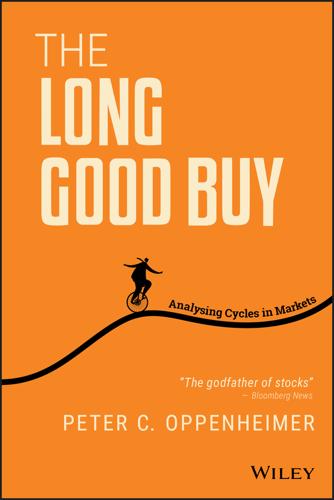
The Long Good Buy: Analysing Cycles in Markets
by
Peter Oppenheimer
Published 3 May 2020
Even then, small improvements in time could be critical in winning business (by the new millennium, speeds would accelerate dramatically as average trade execution times would go from multiples of a second to millionths of a second1). But this was just one small innovation in a wider environment of rapid change and disruption that was about to revolutionise financial markets. The City of London was on the brink of the ‘Big Bang’ deregulation of 1986. For the first time, face-to-face transactions were replaced by computers and telephones, resulting in an explosion of volumes. The old way of doing business was under threat. Barriers to entry were blown apart and gave way to a new wave of entrants, many from overseas.
…
Index 100 year bond 34 1920s, United States 148, 154, 157, 160 1945-1968, post-war boom 129–131 1960s ‘Nifty Fifty’ 114, 130–131, 233, 235 structural bear market 130 1970s Dow Jones 131 equity cycle 56 oil crisis 108 1980s bull markets 131–133 Dow Jones 15–16, 131–132 equity cycle 56–57 Japan 114, 148–149, 155–156, 158, 160–161, 162, 164 technology 12–15 1990s 16–17 Asia crisis 108, 133 equity cycle 57 S&P concentration 114 technology bubble 33, 93–94, 149–150, 156–157, 158–159, 161, 164 2000-2007 equity cycle 57 2007-2009 financial crisis 169–174 emerging markets 171–173 forecasting 19–21 growth vs. value company effects 94–96 impact 169–170 phases 171–174 quantitative easing 173–174, 178–179 sovereign debt 170, 171–173 structural bear market 110, 118–119 A accounting, bubbles 163–165 adjustment speed 74, 89–90 Akerflof, G.A. 23 American Telephone and Telegraph (AT&T) 154, 225, 235–236, 238 Asia crisis, 1998 108, 133 ASPF see Association of Superannuation and Pension Funds asset classes across phases 66–68 contractions and expansions 63–65 cyclical 83–89 defensive 83–89 diversification 42, 45–47, 178–179 growth 83–84, 90–96 and inflation 65–66, 70 levels of yield 74–76 relationship through cycle 68–76 returns across cycle 63–79 speed of adjustment 74 structural shifts 76–79 value 83–84, 90–96 see also bonds; commodities; equities Association of Superannuation and Pension Funds (ASPF) 77 AT&T see American Telephone and Telegraph austerity 239 Austria, 100 year bond 34 B bank margins 214–215 bear markets 49, 99–125 1960s 130 characteristics 100–106, 117–118 cyclical 105, 106–107 deflation 109, 113 duration 100–101, 106–111, 117 employment 121–124 event-driven 105, 107–109 false negatives 119–120 financial crisis 118–119 growth momentum 122–123 indicators 106, 108, 109–110, 119–125 inflation 101–103, 109, 121–122 interest rates 106, 111–113 prior conditions 121–124 private sector financial balance 124 profitability 115–117 recovery 101 risk indicator vs MSCI index 124–125 S&P 500 103–105 structural 105 triggers 101–105, 106, 108, 111 valuations 123 yield curve 122 behavioural factors 5, 22–25 Berlin Wall, fall of 133 Bernanke, B. 133 betas 65, 85 ‘Big Bang’ deregulation 12 Bing 237 Black Monday 16, 102, 148 Black Wednesday 16–17 ‘bond-like’ equities 96 bonds, 100 year 34 bond yields across phases 66–68, 72–76 current cycle 95–96, 191–193, 201–220 cyclical vs. defensive companies 87–88 and demographics 215–217 and equity valuations 72–76, 206–208 and growth companies 92–94 historical 43, 202 and implied growth 210–215 and inflation 65, 70 quantitative easing 173–174, 202–205 and risk asset demand 217–220 S&P 500 correlation 72–73 speed of adjustment 74, 89–90 ultra-low 201–220 and value companies 92–94 vs. dividends 78–79 vs. equities 43–45, 68–76, 78–79 Bretton Woods monetary system 102, 130–131 broadcast radio 154, 225 Bubble Act 147, 157 bubbles 143–165 1920s US 148, 154, 157, 160 1980s Japan 114, 148–149, 155–156, 158, 160–161, 162, 164 accounting 163–165 canal mania 152 characteristics 145–146 deregulation 157–159 easy credit 160–161 famous 145 financial innovation 158–159 government-debt-for-equity swaps 151–152 Mississippi Company 147, 151 ‘new eras’ 150–157 personal computers 155 psychology 144–145 radio manufacturing 154 railways 148, 152–154, 157, 160, 163 Shanghai composite stock price index 156 South Sea Company 147, 151, 153 structural bear markets 113 sub-prime mortgages 70, 102, 118, 133, 145, 159 technology, 1990s 33, 93–94, 149–150, 156–157, 158–159, 161, 164 tulip mania 146–147 valuations 161–162 bull markets 49, 127–142 characteristics 127–141 composition 138 cyclical 134–136 disinflation 131–133 duration 136–138, 139–141 equity performance 135–136 Great Moderation 133–134, 187–189 non-trending 138–141 post-war boom 129–131 quantitative easing 134 secular 127–134 United States 136 C canal mania 152 CAPE see cyclically adjusted price-to-earnings ratio capital investment, Juglar cycle 3 CDO see collateralised debt obligations characteristics bear markets 100–109, 111, 117–118 bubbles 145–146 bull markets 127–141 cyclical bear markets 106–107 event-driven bear markets 108–109 structural bear markets 111 China 15, 156 Cold War 14–15, 133 collateralised debt obligations (CDO) 159 commodities across phases 66–68 Kitchin cycle 3 composition of bull markets 138 concentration structural bear markets 115 and technology 238–240 contractions asset performance 63–65 mini cycles 60 see also recessions Cooper, M. 162 corporate debt 65, 110, 114, 160–161 corporate profitability bear markets 107, 115–117 current equity cycle 185–186 monetary policy 239 credit crunch 78–79, 170, 171 crowds, psychology of 21–22, 144–145 cult of the equity 77–78 current equity cycle 57–58, 167–240 bank profitability 214–215 bond yields 191–193 demographic shifts 215–217 drivers 179–180 earnings per share 195–196 employment and unemployment 183–185 equity valuations 206–208 ‘first mile problem’ 226–227 future expectations 246–247 global relative performance 193–196 growth momentum 174–178, 182–183, 227–231 growth and value companies 190–196, 239–240 implied growth 210–215 inflation 180–182, 203–205 interest rates 180–182, 239–240 Japan, lessons from 196–200 lessons from 244–245 market and economy incongruence 174–178 monetary policy 178–179, 201–205 opportunities 230–231 profitability 185–186 quantitative easing 202–205 returns 174–179 risk asset demand 217–220 structural changes 76–79, 93–96, 169–200 technology 189–190, 221–241 term premium collapse 204–205 ultra-low bond yields 201–220 valuations 233–235 volatility 187–189 cycles 1970s 56 asset returns 63–79 cyclical vs. defensive companies 85–89 equities 49–62 growth vs. value companies 90–96 investment styles 81–96 long-term returns 29–47 riding 11–27 sectors 83–85 valuations 53 cyclical bear markets 105, 106–107, 117, 118 vs. event-driven 109 cyclical bull markets 134–136 cyclical companies bond yields 193 inflation 88 sectors 83–84 vs. defensive 85–89 cyclical growth 83–84 cyclically adjusted price-to-earnings ratio (CAPE) 37–38, 44–45 cyclical value 83–84 D DDM see discounted dividend model debt levels bubbles 160–161 structural bear markets 110, 114 decarbonization 13 defensive companies 63–65 bond yields 193 inflation 88 Japan 198 sectors 83–84 vs. cyclical 85–89 defensive growth 83–84 defensive value 83–84 deflation bear markets 109, 113 Volker 102, 131 delivery solutions 226–227 demographics and zero bond yields 215–217 deregulation 12, 132–133, 157–159 derivative markets 158–159 design of policy 25–26 despair phase 50–52, 53, 55–56, 60, 66–68 cyclical vs. defensive companies 86, 88 growth vs. value companies 92 Dice, C. 161 Dimitrov, O. 162 discounted dividend model (DDM) 36, 69 discount rate 68 disinflation 131–133 disruption 1980s 12–15 current equity cycle 189–190, 221–241 electricity 226 historical parallels 222–227 printing press 223–224 railway infrastructure 224–227 telecoms 225–226 divergence, and technology 238–240 diversification 42, 45–47, 178–179 dividends asset yields 38–41, 69 reinvestment 38–40 value of future streams 209 vs. bonds 78–79 Dodd, D. 163, 164 domain registrations 12–13 dominance of technology 231–233 dotcoms 12–13, 33, 93–94, 102, 161, 237 Dow Jones 1970s 131 1980s 15–16, 131 Black Monday 16, 102, 148 Draghi, M. 17, 173 drivers of bull markets 138 current equity cycle 179–180 duration bear markets 100–101, 106–111, 117 bull markets 135–138, 139–141 cyclical bear markets 106–107, 117, 118 cyclical bull markets 135–136 dominance of technology 231–233 event-driven bear markets 108–109, 117–118 non-trending bull markets 139–141 structural bear markets 109–111, 117 term premia 204–205 DVDs 227 E earnings per share (EPS) bear markets 115–117 historical 189 since pre-financial crisis peak 195–196, 209–210 easy credit, and bubbles 160–161 ECB see European Central Bank Economic Recovery Act, 1981 132 efficient market hypothesis 4 electricity 226 email 13 employment 121–124, 183–185 Enron 164 environmental issues 13 EPS see earnings per share equities across phases 66–68 ‘bond-like’ 96 and bond yields 72–73, 74–76, 206–208 bull market performance 135–136 CAPE 37–38, 44–45 dividends 38–41, 69, 78–79, 209 and inflation 65–66, 70 mini/high-frequency cycles 58–61 narrowing and structural bear markets 114–115 overextension 36–37 phases of investment 50–58 quantitative easing 173–174, 178–179 S&P 500 historical performance 42 valuations and future returns 43–45 vs. bonds 43–45, 68–76, 78–79 equity cycle 49–62 1970s 56 1980s 56–57 1990s 57 2000-2007 57 current 57–58, 76–79 historical periods 56–58 length 49 mini/high-frequency 58–61 phases 50–56 structural shifts 76–79 equity risk premium (ERP) 35–38, 69–72, 210 ERM see exchange rate mechanism ERP see equ ity risk premium ESM see European stability mechanism Europe dividends 39–40 exchange rate mechanism 16–17, 111 Maastricht Treaty 17 market narrowing in 1990s 115 privatisation 132 quantitative easing 17, 204–205 sovereign debt crisis 170, 171–173 European Central Bank (ECB) 17, 171, 173 European Recovery Plan 129–131 European stability mechanism (ESM) 173 event-driven bear markets 105, 107–109, 117–118 vs. cyclical 109 excess see bubbles exchange rate mechanism (ERM) 16–17, 111 exogenous shocks 108 expansions, asset performance 63–65 F false negatives, bear markets 119–120 fat and flat markets 128, 139 features see characteristics Federal Reserve 16, 102, 131, 134, 150–151, 157, 203 financial crisis, 2007–2009 169–174 forecasting 19–21 growth vs. value company effects 94–96 impact 169–170 structural bear market 110, 118–119 financial innovation 158–159 ‘first mile problem’ 226–227 Fish, M. 19 fixed costs 84–85, 173–174 fixed income assets 35, 65, 69–70, 205 flat markets 138–141 see also non-trending bull markets forecasting 2008 financial crisis 19–21 bear markets 106, 108, 109–110, 119–125 behavioural aspects 22–25 difficulties of 18–22 future growth 211–212 neuroeconomics 24–25 and policy setting 25–26 recessions 20–21 and sentiment 21–25 short-term 17–18 weather 18–19 France Mississippi Company 147, 151 privatisation 132 Fukuyama, F. 15 future expectations 246–247 G Galbraith, J.K. 160 GATT see General Agreement on Tariffs and Trade General Agreement on Tariffs and Trade (GATT) 129 Germany Bund yield 207 fall of Berlin Wall 133 wage inflation 185 Glasnost 14 Glass-Steagall Act, 1933 132 global growth 182–183 globalisation 14–16 global relative performance 193–196 global sales growth 212 global technology bubble 33, 93–94, 149–150, 156–157, 158–159, 161, 164 Goetzmann, F. 151 ‘Golden Age of Capitalism’ 129–131 Gold Standard 130 see also Bretton Woods monetary system Goobey, G.R. 77 Google 237 Gorbachev, M. 14 Gordon Growth model 209 government-debt-for-equity swaps 151–152 Graham, B. 161, 163, 164 Great Britain South Sea Company 147, 151, 153 see also United Kingdom Great Depression 4 Great Moderation 133–134, 187–189 Greenspan, A. 16, 113, 150–151 gross domestic product (GDP) cyclical vs. defensive companies 87 labour share of 185, 238–239 phases of cycle 52–53 profit share of, US. 186 growth bear markets 122–123 current equity cycle 174–178, 182–183, 227–231 technology impacts 227–231 and zero bond yields 208–210, 210–215 growth companies bond yields 92–94, 191–193 current cycle 190–196 definition 90–91 since financial crisis 94–96 interest rates 92–94 outperformance 239–240 sectors 83–84 vs. value 90–96 growth phase 50–52, 54–56, 67–68 cyclical vs. defensive companies 86 growth vs. value companies 92 Gulf war 102 H herding 21–22, 144–145 high-frequency cycles 58–61 historical performance 10 year bonds, US 43 bonds 43, 202 equities cycles 49, 56–58 S&P 500 38–39, 42 trends 29–31 holding periods 31–34 Holland, tulip mania 146–147 hope phase 50–52, 53–54, 55–56, 66–67 cyclical vs. defensive companies 86 growth vs. value companies 92 housing bubble, US 70, 102, 118, 133, 145, 159 Hudson, G. 163 I IBM 13, 155, 236 IMAP see Internet Message Access Protocol IMF see International Monetary Fund impacts of diversification 42, 45–47 financial crisis, 2007-2009 169–170 technology on current cycle 221–241 ultra-low bond yields 201–220 Imperial Tobacco pension fund 77 implied growth 210–215 income, Kuznets cycle 3 indicators bear markets 106, 108, 109–110, 119–125 cyclical bear markets 106 event-driven bear markets 108 structural bear markets 109–110 industrial revolution 224–226 industry leadership, S&P 500 232–233, 237–238 inflation asset performance 65–66, 70 bear markets 101–103, 109, 121–122 current equity cycle 180–182, 203–205 cyclicals 88 Volker 102, 131 Institute of Supply Management index (ISM) 59–61 bear markets 123 cyclical vs. defensive companies 86–87 interest rates bear markets 106, 111–113 current equity cycle 180–182, 239–240 growth vs. value companies 92–94 structural bear markets 111–113 and yield 69, 74–76 International Monetary Fund (IMF) 129 internet 12–13, 225–227 search 237 see also dotcoms Internet Message Access Protocol (IMAP) 13 inventories 84–85 Kitchin cycle 3 investment, Juglar cycle 3 investment cycle bear markets 122–123 current 57–58, 76–79 historical periods 56–58 lengths 49 mini/high-frequency 58–61 phases 50–56 structural shifts 76–79 see also cycles ISM see Institute of Supply Management index J Japan bubbles 114, 148–149, 155–156, 158, 160–161, 162, 164 defensive companies 198 dividends 39–40 lessons from 196–200 John Crooke and Company 160 Juglar cycle 3 K Kahneman, D. 22–23 Kennedy Slide bear market 102 Keynes, J.M. 22 Kindleberger, C.P. 22 Kitchin cycle 3 Kondratiev cycle 3 Kuznets cycle 3 L labour share of GDP 185, 238–239 land and property bubble, Japan 114, 148–149, 155–156, 158, 160–161, 162, 164 laptop computers 13 largest companies S&P 500 237–238 technology 234–237 light touch regulation 157–159 see also deregulation Live Aid 13–14 Loewenstein, G. 21–22 long-term returns 29–47 M Maastricht Treaty 17 Mackay, C. 21 market forecasts short-term 17–18 see also forecasting market narrowing structural bear markets 114–115 and technology 238–240 markets current equity cycle 174–178 psychology of 21–25, 144–145 see also bear markets; bubbles; bull markets market timing 41–43 market value of technology companies 234, 235–238 Marks, H. 6–7 Marshall Plan 129–131 MBS see mortgage-backed securities Microsoft 12, 236–237 mini cycles 58–61 Mississippi Company 147, 151 monetary policy 157–159, 178–179, 201–205, 239 austerity 239 European Central Bank 17, 171, 173 Federal Reserve 16, 102, 131, 134, 150–151, 157, 203 quantitative easing 17, 70–71, 119, 133–134, 173–174, 178–179, 202–205 Montreal Protocol 13 mortgage-backed securities (MBS) 159 MSCI indices 91 N narrow equity markets 114–115, 238–240 NASDAQ 149–150, 161 negative bond yields 201–220 demographics 215–217 and equity valuations 206–208 and growth 208–210 implied growth 210–215 monetary policy 201–205 quantitative easing 202–205 risk asset demand 217–220 neuroeconomics 24–25 ‘new eras’ 113–114, 150–157 ‘Nifty Fifty’ 114, 233 non-trending bull markets 138–141 nudges 26 O oil 108, 226 opportunities, technology 230–231 optimism phase 50–52, 54–56, 67–68 cyclical vs. defensive companies 86 growth vs. value companies 91–92 output gaps 4 Outright Monetary Transactions (OMT) 171, 173 overextension 36–37 ozone layer 13 P pension funds 77, 218–219 Perestroika 14 Perez, C. 159 performance bull markets 134–136 current equity cycle 174–179 and cycles 53–56 diversification impacts 42, 45–47 dividends 38–41 equities vs. bonds 43–45 factors 41–45 historical trends 29–31 holding periods 31–34 interest rates 69, 74–76 long-term 29–47 market timing 41–43 risks and rewards 35–38 valuations 43–45 volatility 30–31 personal computing introduction 12–13, 155 phases 2007-2009 financial crisis 171–174 asset classes 66–68 bear markets 123 cyclical vs. defensive companies 86 of equities cycle 50–56 growth vs. value companies 91–92 Phillips curve 182 Plaza Accord, 1985 148–149, 158 PMI see purchasing managers’ index policy, design of 25–26 population decline 216 post-financial crisis see current equity cycle post-war boom 129–131 prediction see forecasting price-to-earnings ratio (P/E) 53–56 printing press 223–224 prior conditions to bear markets 121–124 private sector debt 65, 110, 114, 160–161 private sector financial balance 124 privatisation 132 productivity growth 227–230 profit labour share of 185, 238–239 share of GDP, US. 186 profitability banks 214–215 bear markets 107, 115–117 current equity cycle 185–186 property and land bubble, Japan 114, 148–149, 155–156, 158, 160–161, 162, 164 psychology bubbles 144–145 of markets 21–25 policy setting 25–26 public ownership 132 purchasing managers' index (PMI) 59–61, 86–87, 89–90 Q QE see quantitative easing Qualcom 149–150 quality companies 193 quantitative easing (QE) asset returns 70–71, 119, 178–179 bond yields 173–174, 202–205 start of 17, 133–134, 171 United Kingdom 17, 204–205 United States 134, 171, 202–204 R radio, expansion of 154, 225 Radio Corporation of America (RCA) 154 railways bubbles UK 148, 152–153, 157, 163 US 153–154, 160 infrastructure development 224–227 Rau, P. 162 RCA see Radio Corporation of America Reagan, R. 14, 131–132 real assets 68 real estate bubble, US 70, 102, 118, 133, 145, 159 recessions bear markets 101–103 current equity cycle 174–178 forecasting 20–21 recovery bear markets 101 current equity cycle 174–178 reinvestment of dividends 38–40 return on equity (ROE) 43–45 returns bull markets 134–136 current equity cycle 174–179 cycles 53–56 diversification impacts 42, 45–47 dividends 38–41 equities vs. bonds 43–45 factors 41–45 historical trends 29–31 holding periods 31–34 interest rates 69, 74–76 long-term 29–47 market timing 41–43 risks and rewards 35–38 valuations 43–45 volatility 30–31 reverse yield gap 77 risk assets, demand for 217–220 risk-free interest rate 68 risk indicators bear markets 119–125 event-driven bear markets 108 structural bear markets 110–111, 113–114 risk premia equity 35–38, 69 neuroeconomics 25 term premia 204–205 ROE see return on equity Rouwenhorst, G. 151 Russian debt default, 1997 108 S S&P 500 bear markets 103–105 and bond yields 72–73 concentration in 1990s 115 dividends 38–39 historical performance 38–39, 42 industry leadership 232–233, 237–238 and ISM 60 largest companies 237–238 US Treasury yields 206 sales growth 212 savings, current equity cycle 182 Schumpeter, J. 150 search companies 237 ‘search for yield’ 217–220 secondary-market prices 229–230 sectors across the cycle 83–85 dominance 231–233 secular bull market 127–134 disinflation 131–133 Great Moderation 133–134, 187–189 post-war boom 129–131 secular stagnation hypothesis 181 sentiment 5, 21–25 see also bubbles Shanghai composite stock price index 156 Shiller, R.J. 4–5, 23 short-term market forecasts 17–18 skinny and flat markets 139–140 smartphones 226, 229–230 Solow, R. 229 South Sea Company 147, 151, 153 sovereign debt crisis 170, 171–173 Soviet Union 14–15, 133 speed of adjustment 74, 89–90, 122–123 Standard Oil 235 structural bear markets 105, 109–115 1960s 130 bubbles 113 debt levels 110, 114 deflation 113 duration 109–111, 117 financial crisis, 2007 118–119 interest rates 111–113 narrow equity markets 114–115 ‘new eras’ 113–114 risk indicators 110–111, 113–114 triggers 111 volatility 105, 115 structural changes 6 1980s 12–15 current equity cycle 76–79, 93–96, 169–200 sub-prime mortgage bubble 70, 102, 118, 133, 145, 159 Summers, L. 181 Sunstein, C.R. 26 ‘super cycle’ secular bull market 127–134 see also secular bull market T technology 1920s America 154 bubble in 1990s 33, 93–94, 149–150, 156–157, 158–159, 161, 164 current equity cycle 189–190, 221–241 and disruption in 1980s 12–15 dominance 231–233 and growth 227–231 historical parallels 222–227 industrial revolution 224–226 Kondratiev cycle 3 largest companies 234–237 market value 234, 235–238 opportunities 230–231 personal computers 12–13, 155 printing press 223–224 railway bubbles 148, 152–154, 157, 160, 163 railway infrastructure 224–227 and widening gaps 238–240 telecommunications 13, 154, 225, 235–236, 238 telegrams 225 term premium collapse 204–205 TFP see total factor productivity growth Thaler, R.H. 26 Thatcher, M. 14, 132 Tokkin accounts 158 ‘too-big-to-fail’ 133 total factor productivity (TFP) growth 238–240 triggers bear markets 101–105, 106, 108, 111 cyclical bear markets 106 event-driven bear markets 108 structural bear markets 111 tulip mania 146–147 Tversky, A. 22–23 U ultra-low bond yields 201–220 demographics 215–217 and equity valuations 206–208 and growth 208–210 implied growth 210–215 monetary policy 201–205 quantitative easing 202–205 risk asset demand 217–220 UNCTAD see United Nations Conference on Trade and Development unemployment 121–124, 183–185 unexpected shocks 108 United Kingdom (UK) Black Wednesday 16–17 bond yields, historical 202 canal mania 152 deregulation 132 exchange rate mechanism 16–17, 111 privatisation 132 quantitative easing 204–205 railway bubble 148, 152–153, 157, 163 South Sea Company 147, 151, 153 United Nations Conference on Trade and Development (UNCTAD) 129 United States (US) 10 year bond returns 43 Black Monday 16, 102, 148 bull markets 136 credit crunch 78–79, 170, 171 disinflation 132 dividends 38–39 Dow Jones 15–16, 131 equities in current cycle 207–208 housing bubble 70, 102, 118, 133, 145, 159 labour share of GDP 185, 238–239 market narrowing 114 NASDAQ 149–150, 161 ‘Nifty Fifty’ 114, 130–131, 233, 235 post-war boom 129–131 profit share of GDP 186 quantitative easing 133–134, 171, 202–204 radio manufacturing 154, 225 railway bubble 153–154, 160 stock market boom, 1920s 148, 154, 157, 160 vs.
…
Mastering the cycle: Getting the odds on your side (p. 293). Boston, MA: Houghton Mifflin Harcourt. Part I Lessons from the Past: What Cycles Look Like and What Drives Them Chapter 1 Riding the Cycle under Very Different Conditions In 1985, when I started as a graduate trainee at Greenwells & Co, a stockbroking firm in the City of London, I spent a short period on the floor of the London Stock Exchange, along with the other new graduate recruits. At that time, many of the practices were probably much as they had been for many decades. The government Gilt brokers still wore top hats, and it was just 12 years since the first women had been elected as members of the exchange.
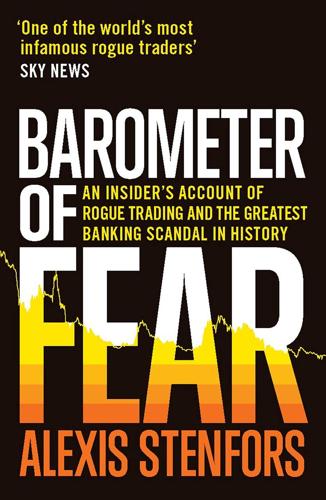
Barometer of Fear: An Insider's Account of Rogue Trading and the Greatest Banking Scandal in History
by
Alexis Stenfors
Published 14 May 2017
Demand by multinational corporations definitely played a crucial role in justifying the market, but obvious causality becomes difficult to establish as the growth rate of the Eurodollar market overtook that of international trade and investment. The rapid deregulation of the financial markets around the globe during the 1980s was also crucial. The City of London changed remarkably after Margaret Thatcher launched the ‘Big Bang’ in 1986, and similar fireworks took place in a number of financial centres around the same time. In fact, since then, the Eurodollar market has often been downplayed as a historic ‘event’. Rather, focus is placed on the processes of liberalisation, globalisation, privatisation and financialisation that appear to have started in conjunction with the financial deregulation that took place in the 1980s.
…
Moreover, there had been a failure to supervise my ‘activity’ and to manage effectively market risk limits in respect of my activities.1 Effectively, they had shirked their responsibility to oversee what I was doing. In March 2010, when the FSA had concluded its investigation, I was handed a five-year prohibition order. This was, in effect, a ban from working in the City of London. Considering the status of the FSA and of the City of London as a global financial centre, it basically meant being barred from working in the financial services industry anywhere in the world. The case was closed. *** This book project started when I sent myself an email on 19 February 2009. The email contained everything I could remember of what had happened two days previously.
…
or changed the ammunition to ‘80–82, 80–82, 80–82, 80–82’. ‘The old image is of East End barrow boys paid to give prices and be entertaining,’ a former ICAP broker said during a LIBOR trial.12 The stereotypical broker came from the East End of London or Essex, leaving school at 16 to work in the City of London. Several of my brokers ticked every single box in that respect, whereas others had joined the broking business after having had a go at trading in one of the large banks. Either way, brokers who survived the cutthroat business of competing against each other to win business from traders were generally good at two things.
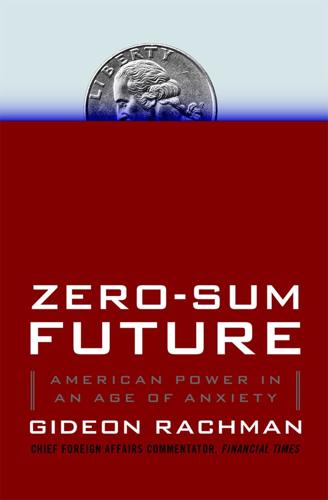
Zero-Sum Future: American Power in an Age of Anxiety
by
Gideon Rachman
Published 1 Feb 2011
As the historian Harold James notes, this liberalization of capital flows meant that “economic issues became globalised—in other words, it was ever harder for national authorities to control them.”9 By 1981, three of Thatcher’s signature policies were in place: the abolition of exchange controls, cuts in direct taxation, and moves to curb the power of trade unions. Britain was in the midst of a deep recession and manufacturing industries were suffering badly. But the foundations for a boom in the City of London had been laid. In 1982, the evocatively named LIFFE futures trading exchange opened in the City. In 1986, the Thatcher government pushed through the “Big Bang” of financial deregulation in the City, which Andrew Marr suggests “has a claim to be the single most significant change of the whole Thatcher era.”10 The brash city trader, along with the striking miner, became one of the emblematic figures of the Thatcher era.
…
In his State of the Union address in 1996, Bill Clinton proclaimed that “the era of big government is over” and then launched into an ambitious reform that cut back welfare benefits in order to improve incentives to work, an idea that would have appealed only to hard-line conservatives just a decade before.19 In 1994, three years before they took power in Britain, Gordon Brown and Tony Blair, the duo who defined New Labour, visited Alan Greenspan in his office in the Fed in Washington. As Greenspan noted, “Brown in particular espoused globalization and free markets.”20 The Fed chairman was impressed. In the spring of 1997, shortly before his election as the first Labour prime minister in eighteen years, Tony Blair gave a speech at the Corn Exchange in the heart of the City of London in which he announced, “We accept, and indeed embrace, the role of free enterprise in the economy. There will be no retreat from any of that.”21 In particular, Labour announced that there would be no retreat from the 40 percent top tax rate introduced under Margaret Thatcher—a point of crucial importance to the City audience.
…
James Kynge, China Shakes the World (London: Weidenfeld & Nicolson, 2006), 14. 19. Ibid., 16. 20. Quoted in “Second Long March.” 21. Quoted in Francis Fukuyama, The End of History and the Last Man (London: Penguin, 1992), 98. 2. BRITAIN, 1979: THATCHERISM 1. Quoted in Richard Roberts and David Kynaston, City State: A Contemporary History of the City of London and How Money Triumphed (London: Profile, 2001), 117. 2. Andrew Marr, A History of Modern Britain (London: Pan Macmillan, 2007), 365. 3. Margaret Thatcher, The Downing Street Years (London: HarperCollins 1993), 10. 4. Quoted in Marr, Modern Britain, 386. 5. Ibid., 387. 6. Ibid., 411. 7.

Liberalism at Large: The World According to the Economist
by
Alex Zevin
Published 12 Nov 2019
Alexander Cockburn, A Colossal Wreck: A Road Trip through Political Scandal, Corruption, and American Culture, London 2013. 125.Though much copied and expanded since, London’s Big Bang remained ‘the most rapid and complete regulatory reform of any market.’ John Plender, ‘London’s Big Bang in International Context’, International Affairs, 63, no. 1, 1 December 1986, p. 40; Eric K. Clemons and Bruce W. Weber, ‘London’s Big Bang: A Case Study of Information Technology, Competitive Impact, and Organizational Change’, Journal of Management Information Systems 6, no. 4, 1 April 1990, p. 42. 126.‘Capital of Capital’, 11 October 1986. On the ‘pre-Big Bang scramble’, see David Kynaston, The City of London: A Club No More, London 2002, Vol IV, pp. 715–20. 127.
…
Pennant-Rea stepped down in 1993 just as the ‘new economy’ of the Clinton years got underway – to its boosters a break from all precedent, as information technology unleashed investment and growth alongside low inflation, low unemployment and near-constant productivity gains, which were bound to attenuate or even eliminate the business cycle itself.1 Since then, three points have connected the constellation of liberal ideas at the Economist: the planetary primacy of finance, vast enough to be shared out between Wall Street and the City of London; the American Empire, as both policeman and journalistic training ground; and globalization, its precondition the prior two, as cornucopia for former colonies and satellites. In all these years, no other publication articulated these points with greater authority, passion or geographical range. Financial deregulation, and the boom in equities it fuelled, was the unmistakable leitmotif of this period. Global stock markets soared in value from under $3 trillion in 1982 to over $30 trillion in 2000.
…
Contrasting Smith, Burke and Bentham with the Mills and Tocqueville, Pitts maintains that ‘no explanation that rests on some set of basic theoretical assumptions in the liberal tradition can possibly explain such flexibility on the question of empire’, concluding that ‘liberalism does not lead ineluctably either to imperialism or anti-imperialism’ – claims that rest partly on the notion that liberalism already existed in the eighteenth century and can be elided with thinkers in the nineteenth century: A Turn to Empire, pp. 1, 4. For a different sense of Smith’s ‘anti-imperialism’, see Donald Winch, Adam Smith’s Politics, Cambridge 1978, pp. 140, 151, 180. 40.Kynaston has written a comprehensive survey. David Kynaston, City of London. 4 vols, London, 1994–2001. For caution in ascribing coherent policy interests to the City, see The British Government and the City of London in the Twentieth Century, eds. Ronald Michie and Philip Williamson, Cambridge 2004, pp. 11–12. 41.The Economist, 1843–1943: A Centenary Volume was a ‘modest memorial’ comprising a slim collection of essays published two years after the offices, printers, library and records burned in the Blitz.
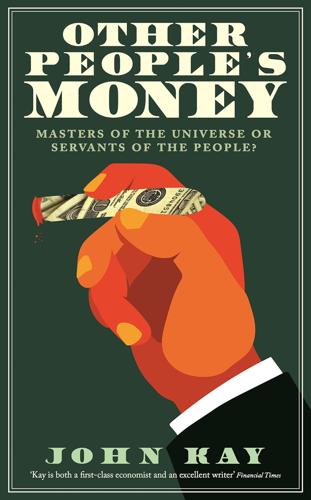
Other People's Money: Masters of the Universe or Servants of the People?
by
John Kay
Published 2 Sep 2015
Capra could never have imagined that Pottersville might actually come into being. But by the time my contemporaries accepted early retirement, the world they joined had altered beyond recognition. The causes of this transformation include globalisation, deregulation, technological and product innovation, new ideologies and narratives as well as a shift in social and cultural norms. These factors were not independent: each was bound up with the others. Finance has always been global. The City of London became a pre-eminent financial centre as a result of Britain’s imperial role. The Fidelity Fiduciary Bank in which Mr Banks was manager financed ‘railways through Africa, dams across the Nile’.
…
That lobby secured steady relaxation of the restrictions that had been imposed on the industry fifty years earlier. The separation of investment from commercial banking – the principle that had become synonymous in the public mind with the Glass–Steagall Act – was steadily weakened, although not finally repealed until 1999. In Britain, the trigger for change was the ‘Big Bang’ – the deregulation of finance in 1986 – which swept away a mass of restrictions, including most obstacles to the creation of financial conglomerates. The large British commercial banks, with the enormous capital strength derived from their retail deposit base, were immediate diversifiers. These changes in the structure of banking were related to changes in the organisation of stock markets.
…
Amid all this activity, no one had remembered to feed it. INTRODUCTION Far too much of a good thing In the City, they sell and buy. And nobody ever asks them why. But since it contents them to buy and sell, God forgive them, they might as well. Humbert Wolfe, The Uncelestial City, 1930 Anyone passing the skyscrapers of Wall Street or the City of London and its annexe at Canary Wharf will be impressed by the scale and scope of modern finance. Logos display familiar names such as Citigroup and HSBC. More discreet brass plates identify organisations that do not deal with the general public. The most important headquarters building in the industry, the head office of Goldman Sachs, at 200 West Street in Manhattan, remains anonymous.
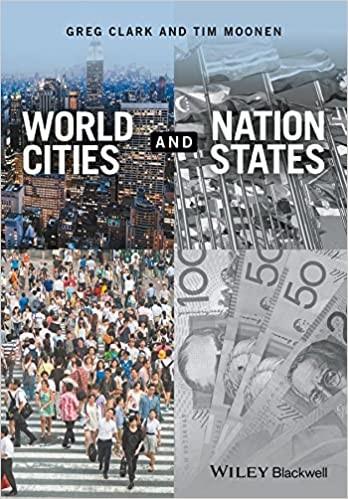
World Cities and Nation States
by
Greg Clark
and
Tim Moonen
Published 19 Dec 2016
Central government responded in 1986, coincidentally the year of London’s Big Bang in financial services, by abolishing what it saw as a bureaucratic and anti‐business GLC. In a new, more centralised framework, the London councils had to ‘bid’ for central government funds for regeneration projects, and a number of ‘quangos’ – taxpayer‐funded organisations – gained remits over specific city functions. A hiatus in London government therefore appeared just as the city began to take on new global business roles. In the years after 1986, London’s future was managed by four main actors: the boroughs, the City of London Corporation representing the historic commercial centre, central government departments and the Government Office for London, a small central government body with a budget of just £1 billion that was not equipped to play the role of a metropolitan authority.
…
Published 2017 by John Wiley & Sons, Ltd. 278 Index Egypt, 19 Europe, 15, 19, 20, 36, 46, 47, 52, 55, 127, 164, 234 European Investment Bank, 46 European Union, 15, 43, 220, 224, 227 Federal systems, 9–10, 13, 16, 30, 62, 95, 210, 237, 239 Federation of Canadian Municipalities, 143–144, 147, 237 Fiscal redistribution, 90, 225, 229 Forum for Consultations, 88, 93, 237 France, 8, 10, 20, 21, 55, 57, 58, 60–63, 66, 67, 211, 216, 222, 229, 231, 232, 236 performance of second cities, 231 Frankfurt, 7, 46 Friedmann, John, 23 Fukuyama, Francis, 23 Gatwick Airport, 50 Geneva, 7 Germany, 20, 230 Giuliani, Rudy, 113 Global cities, see World Cities Globalisation, 5–9, 18, 19, 25, 28–30, 36, 43, 75, 85, 100, 179, 181, 203, 216, 221, 224, 227, 231, 237, 239 Greater Manchester, 44, 52, 233, 236 Guangzhou, 21, 155, 157, 159, 180, 184, 230, 231 Haddad, Fernando, 126 Hamburg, 11, 206 Hanseatic League, 20 Heathrow Airport, 50 High Speed 3 (HS3), 46, 234 Holland, 21 Hollande, Francois, 58, 60 Hong Kong, 7, 9, 11–14, 17, 24, 25, 29, 85, 91, 149–162, 184, 186, 190, 199, 204, 206, 208, 210, 211, 213–215, 220–222, 226, 227, 233, 234, 239 advocacy, 221 Chief Executive, 161–162 Closer Economic Partnership Arrangement (CEPA), 155 Consultative Committee on Economic and Trade co-operation, 161 density, 13, 157 economic sector output, 25 economic transformation, 154–155 empowerment and centralisation, 211 Financial Services Development Council, 161 future political arrangements, 159 government system, 9, 208 growth and performance data, 152 national tradition in globalisation, 29 in One Belt, One Road initiative, 158 one country, two systems, 152 Pearl River Delta (PRD), 154, 156, 157, 159 population and visitor growth, 204 regional governance, 213 relationship with Beijing, 154–156 size, 12 India, 10, 16, 30, 98–108, 134, 166, 210, 231, 234, 236 Jawaharlal Nehru National Urban Renewal Mission (JNNURM), 103–104 Make in India Week, 103 performance of second cities, 231 Indus Valley, 19 Inter‐governmental conflict, 13, 235 Istanbul, 21, 50, 227 Italy, 20 Japan, 10, 71, 82–94 Meiji era, 83 National Planning Act, 85 performance of second cities, 231 Jinping, Xi, 185 Johannesburg, 8 Johnson, Boris, 41, 42, 92 Khan, Sadiq, 49, 51 King James I, 38 Korea, 69–80, 183, 192, 210, 212, 216, 228, 229, 231, 232, 233, 235 performance of second cities, 16, 231 Lahore, 20 Lastman, Mel, 210 Latin America, 4, 21, 123, 128, 133, 134, 238 Leiden, 21 Lisbon, 21 Lister, Sir Edward, 48 Livingstone, Ken, 41, 210 London, 5, 6, 9, 11–15, 21–27, 29, 30, 33–53, 59, 63, 67, 69, 92, 93, 108, 123, 134, 145, 154, 155, 204–208, 210–216, 220–222, 226–229, 231, 233, 234, 236, 238 Abercrombie Plan, 39 advocacy, 221 air capacity, 50 ‘Big Bang,’ 40 boroughs, 42, 45, 48, 236 Brexit, 36, 42, 46–48, 52, 220 business leadership, 93 Canary Wharf, 39 Channel Tunnel Rail Link, 40 city leadership, 220 Index City of London, 38, 40, 42 city‐state, 27 collaboration with other cities, 236 Crossrail, 1, 2, 37, 51, 205, 216, 221 Davies Commission, 50 de‐industrialisation, 39 density, 13 diversity, 227 Docklands regeneration, 40, 216 economic sector output, 25 empowerment and centralisation, 211 escalator region, 226 fiscal devolution, 48–49, 69, 145, 212, 216 fiscal outflows, 215 Government Office for London, 22, 36, 40 government system, 9, 208 Greater London Authority (GLA), 40, 41, 50, 209, 210 Greater London Council (GLC), 26, 39, 40 Greater South East, 36, 39, 50, 52, 213, 214 green belt, 39, 52 growth and performance data, 36 High Speed 2 (HS2), 46, 234 Home Counties, 39 housing, 49–50, 206 Jubilee Line, 37, 40 London Assembly, 37 London County Council, 39 London Development Agency, 41 London Docklands Development Corporation, 39 London Enterprise Panel (LEP), 42, 51 London Finance Commission, 48–49, 216 London First, 40, 108, 134, 221, 222 London Land Commission, 50 Mayor, 42, 51, 221, 236 mayoral system, 36, 210, 233 Metropolitan Board of Works, 39 Millennium projects, 37, 40 national tradition in globalisation, 29, 30 performance of second cities, 231 population and visitor growth, 204 regional governance, 50–51, 213 size, 12, 211 South Bank, 40 system of cities, 13, 229–230 Transport for London (TfL), 41, 51 2012 Olympics, 37, 215, 218 world city literature, 23, 24, 27 Los Angeles, 7, 23, 195, 231 Luzhkov, Yuri, 166, 210 Lyon, 21, 61, 231, 232 Madrid, 7, 13 Masuzoe, Yoichi, 92–93 McLoughin, Patrick, 51 279 Mediterranean, 19, 20 Melbourne, 8 Mercantilism, 21 Merv, 20 Mesopotamia, 19 Metropolitan areas, 7, 53, 61, 76, 104, 106, 108, 115, 133, 135, 234, 236 Metropolitan government, 9, 15, 16, 36, 52, 56, 67, 72, 123, 208, 212 Milan, 13, 227 Modi, Narendra, 103 Montreal, 8, 14, 138, 139, 143, 231 Moscow, 9, 11, 13, 14, 17, 18, 24, 25, 29, 30, 163–176, 204, 205, 208, 210, 212, 215, 216, 220, 221, 226, 229, 236, 237, 239 Central Federal District, 175, 237 city and federal government relationship, 165–169 density, 13, 172 economic sector output, 25 empowerment and centralisation, 211 financial services, 168 geopolitical tensions, 168 government system, 9, 208 growth and performance data, 164 higher education, 166 mayoral system, 210 Moscow River, 172 Moscow Urban Forum (MUF), 175, 237 national tradition in globalisation, 29, 30 New Moscow, 167, 173 oblast, 166 1980 Olympic Games, 166 patterns of development, 164 population and visitor growth, 204 Rail and road investments, 172 regional governance, 213 Russian spatial hierarchy, 170 size, 12 Skolkovo innovation district, 165, 172 Soviet model, 165–167 tax revenue, 164, 167 transition after 1991, 166–169 transport, 205 2018 football World Cup, 165, 174 Mughal Empire, 20 Mumbai, 14, 16, 30, 97–109, 123, 206, 207, 210, 212, 217, 226, 227 advocacy, 221 Bollywood, 98 Bombay First, 103, 106, 108 Delhi Mumbai Industrial Corridor (DMIC), 106 density, 13, 101 economic sector output, 25 empowerment and centralisation, 211 280 Index Mumbai (cont’d) fiscal imbalances, 102 fragmented governance, 105–106 government system, 9, 208 Greater Mumbai, 98 Greater Mumbai Development Plan, 102–103 growth and performance data, 98 High Powered Expert Committee, 101 intergovernmental conflict, 101 investment capacity, 106 Maharashtra state government, 98, 100–102 Mumbai Metropolitan Regional Development Authority (MMRDA), 99, 214 Municipal Corporation of Greater Mumbai (MCGM), 99, 100 national tradition in globalisation, 29, 30 Navi Mumbai, 107 constitutional amendment, 100 population and visitor growth, 204 regional governance, 213 relationship with higher tiers of government, 99–101 size, 12, 14 Smart City Mission, 103, 105 Transit Oriented Development, 104 weak growth management, 98, 100 Munich, 7 crime, 113 density, 13 economic sector output, 25 empowerment and centralisation, 211 fiscal crisis, 113 government system, 9, 208 growth and performance data, 111 housing, 118 Housing Authority (NYCHA), 114 Hurricane Sandy, 114, 119 immigration, 116 Metropolitan Transportation Authority (MTA), 113 national tradition in globalisation, 29, 30 New York State, 111, 115 9/11, 112, 114 performance of second cities, 231 population and visitor growth, 204 regional governance, 213 Regional Plan Association (RPA), 120 size, 12 transport infrastructure, 117 tri-state area, 111, 119–120 Urban Development Action Grant, 113 New Zealand, 10 North America, 4, 17, 19, 107, 137, 146, 227 Northern Powerhouse, see North of England North of England, 21, 229 North East, 236 Northern Powerhouse, 45, 228, 234 National Conference of Cities (ConCidades), 128, 134, 237 National frameworks, 29–30, 207, 231–237 National governments, 4–6, 8, 10, 11, 22, 25–32, 46–51, 57–58, 62–64, 70, 72–74, 76–79, 86–92, 99–100, 102–107, 116–119, 130–134, 143–147, 167, 168, 171–175, 183–187, 204, 220–224, 227–229, 231–239 National urban policy, 7, 67, 103, 112, 128, 157, 165, 171, 233, 237 Nation states, 3–4, 6–8, 13, 14, 20–32, 38, 48, 196, 204, 210–212, 220, 225, 229, 231, 236 age of, 3, 6 century of, 6, 239 Netherlands, see Holland New York City, 5, 7, 10, 14, 16, 24, 26, 27, 30, 63, 67, 92, 93, 110–121, 123, 137, 155, 206, 210, 212, 214, 215, 220, 222, 227, 229, 239 advocacy, 221 airport system, 117–118 Bloomberg, Michael, 114, 119 city and nation state relationship, 113–115 Ohmae, Kenichi, 23 One country, two systems, 11, 52, 152, 155, 210 Organisation for Economic Co-operation and Development (OECD), 22, 26, 30, 74, 75 Osborne, George, 45, 222, 236 Ottoman Empire, 20 Paris, 13, 15, 22, 23, 25, 27, 32, 46, 50, 54–67, 92, 205–207, 211, 212, 214–218, 222, 232, 238 advocacy, 221 APUR (Paris Urban Planning Agency), 67 Chirac, Jaques, 57 density, 13 division of responsibilities, 60 economic sector output, 25 empowerment and centralisation, 211 fragmentation, 56, 62 government system, 9, 208 Grand Paris Express, 56, 59, 64–66 growth and performance data, 204 Ile de France (Regional Council), 56–58, 60, 64 Law for Solidarity and Urban Renewal, 59 Index Maptam law, 61, 66 mayoral system, 210 Metropole du Grand Paris, 56, 59–60, 62 Mobilisation Plan for Development and Housing, 63 national tradition in globalisation, 29 NOTRe bill, 64 Paris‐Saclay, 56, 59 population and visitor growth, 204 regional governance, 213 relationship with national government, 57–60 size, 12 state-region contracts, 63 territorial development contracts, 59, 63, 66 Pearl River Delta, 7, 11, 12, 17, 152, 157, 159, 161, 211, 213 Persia, 20 Provincial governments, see State governments Putin, Vladimir, 167 Rayy, 20 Regional policies, 22, 28 Republic of Ireland, 10 Rio de Janeiro, 6, 123, 129, 130, 231 Russia, 8, 17, 18, 21, 30, 31, 164–172, 174–176, 210, 212–213, 229, 236–237 Rust Belt, 21 Samarkand, 20 San Francisco, 7, 231 São Paulo, 13, 14, 17, 30, 122–135, 206, 207, 212, 215–217, 220, 226, 229, 231, 235 advocacy, 221 business climate, 132–133 density, 13, 124, 133 economic sector output, 25 empowerment and centralisation, 211 fiscal constraints, 130–132 fiscal outflows, 215 government system, 9, 209 growth and performance data, 123 housing, 133 Minha Casa Minha Vida, 126 national tradition in globalisation, 29, 30 performance of second cities, 231 Plano de Aceleracao de Crescimiento, 129 population and visitor growth, 204 regional governance, 213 relationship with its nation state, 125–127 revenue sources, 129–130 São Paulo 2040, 126–127 São Paulo State, 123, 125 size, 12 Urban Mobility Pact, 126 281 Sassen, Saskia, 24 Seoul, 6, 9, 13, 15, 24, 27, 68–80, 85, 210, 215, 218, 227, 231, 235, 238 advocacy, 221 capital region, 69 Cheonggyechoen River regeneration, 72, 73 de-concentration, 68, 71, 75, 76, 80 density, 13 economic sector output, 25 empowerment and centralisation, 211 fiscal devolution, 77–78 fiscal outflows, 215 government system, 9, 209 growth and performance data, 69 jaebol, 71, 72, 76 mayoral system, 210 metropolitan government, 73, 78 national tradition in globalisation, 29 1988 Summer Olympics, 72 population and visitor growth, 204 regional governance, 213 relationship with central government, 70–74 segyehwa, 72 self‐government, 72 Seoul Republic, 71 size, 12 Shanghai, 7, 11, 14, 18, 27, 153, 154, 157, 159, 160, 177–188, 207, 216, 217, 220, 226, 227, 230, 233, 239 advocacy, 221 bond issuance programme, 184 de-centralisation, 181 density, 13, 184 economic sector output, 25 empowerment and centralisation, 211 free trade zones, 182, 186 government system, 9, 209 growth and performance data, 178 hukou, 184–185 internationalisation, 181–182 land leasing, 183 national tradition in globalisation, 29 performance of second cities, 231 population and visitor growth, 204 Pudong New Area, 181 region, 7 regional governance, 213 relationship with central government, 179–183 revenues, 187 size, 12 state owned enterprises, 180 treaty port, 180 2010 World Expo, 182, 218 Yangtze River Delta (YRD), 178, 181, 184 282 Index Sheffield, 43, 45, 52, 231, 236 Silk Road, 20, 158 Singapore, 11, 18, 30, 85, 91, 189–200, 206, 207, 215, 219 advocacy, 221 Civil Service, 196 Concept Plan, 192 density, 13, 198, 200 Economic Development Board (EDB), 191, 194 economic development model, 198 economic sector output, 25 empowerment and centralisation, 211 governance history, 191–193 government linked companies, 194–195 government system, 9, 209 growth and performance data, 191 Housing Development Board (HDB), 191 independence, 191–192 internationalisation, 191–192 land management, 195 Ministry of National Development (MND), 195–196 National Trade Unions Congress (NTUC), 193 national tradition in globalisation, 29 National Wages Council, 193 People’s Action Party (PAP), 191, 195–196 performance of second cities, 231 population and visitor growth, 204 regional governance, 213 self‐rule, 191 size, 12 water management, 195 Smith, Adam, 21 Sobyanin, Sergei, 167 Soon, Cho, 210 South Africa, 8, 134 Sovereignty, 15, 16, 19, 20, 26, 152 Soviet Union, 23, 166 Special cities, 9, 17, 239 State governments, 7, 10, 100–103, 105, 111, 114, 124, 127, 216, 217, 234 St Petersburg, 21, 164, 168, 170, 175, 236 Sun Yat‐Sen, 154 Switzerland, 7, 20 Sydney, 8, 25 Systems of Cities, 4, 7, 13–14, 28 Taylor, Peter, 21 Territorial development, 8, 22, 73 30 Years’ War, 20 Tokyo, 5, 6, 11, 16, 23–25, 27, 74, 77, 81–94, 207, 210, 215, 220, 226, 227, 235, 238 advocacy, 221 aging population, 92 business climate, 91–92 de‐centralisation, 84, 85 de‐concentration, 84, 88 density, 13 devolution, 89 economic sector output, 25 empowerment and centralisation, 211 fiscal redistribution, 90 government system, 9, 209 growth and performance data, 82 industrialisation, 84–85 metropolitan government, 82, 84, 87, 89, 93 National Strategic Special Zones, 86, 90 national tradition in globalisation, 29 population and visitor growth, 204 regional governance, 213 relationship with central government, 83–88 size, 12 Tokyo Metropolitan Government, 84–85, 88 Tokyo Problem, 88 2020 Olympics, 86, 87, 91 2002 Urban Regeneration Law, 85–86 Urban Renaissance HQ, 87 Toronto, 8, 13, 14, 17, 23, 25, 136–149, 207, 210, 212, 215, 216, 218–220, 222, 227, 231, 234 advocacy, 221 density, 13 economic sector output, 25 empowerment and centralisation, 211 fiscal vulnerability, 145 government system, 9, 209 Greater Toronto Area, 137 Greater Toronto Civic Action Alliance, 147 growth and performance data, 137 immigration, 141, 146 infrastructure investment, 144–146 mayoral system, 210 Metrolinx, 140 national tradition in globalisation, 29 1998 City of Toronto Act, 139, 140 Ontario, 137 population and visitor growth, 204 regional governance, 213 relationship with the nation state, 138–143 size, 12 Smart Track, 140 Toronto Board of Trade, 147–148 universities, 137, 141 US–Canada Auto Pact, 139 Waterfront Toronto, 141–142 Trade, 5–7, 20–22, 99, 128, 146, 152, 161, 186, 205, 225–226 Index Travers, Tony, 49 Treaty of Westphalia, 20 Trudeau, Justin, 143 Turkmenistan, 20 UKIP, 46 Unitary systems, 9–10, 15, 21, 238 United Kingdom, 10, 21, 24, 36, 37, 154, 210, 231, 238 United Nations, 21 United States, 7, 10, 21, 24, 26, 71, 112, 231, 235 Advisory Commission on Intergovernmental Relations (ACIR), 115 US federal reserve, 24 War on Poverty, 113 Uzbekistan, 20 Wallerstein, Immanuel, 24 Washington, 27, 113, 114, 116–117, 119–120, 231 The West, 27, 69 Western liberal democracy, 23 West Midlands, 52, 228, 236 Won-sun, Bak, 74 World Bank, 30–31, 157, 174, 196 World cities advantages and disadvantages, 225–231 age of, 5–6, 203–223 collaboration between world cities and other cities, 236–237 definition, 3–4 in the future, 237–239 literature, 22–24, 27–28 typology, 29–31 Xiaoping, Deng, 180 Valls, Manuel, 66 Vancouver, 8, 143, 231 Zurich, 7, 227 283
…
It successfully resisted European regulation, reduced the top rate of tax to 45%, cut the bank levy and supported initiatives for London to become a leader in Islamic and yuan‐denominated finance. UK government has continued to support a competitive and stable corporate tax regime, and to defend the City of London against new rules that have threatened to raise costs and legal barriers to London’s foreign exchange trading. Support for the City of London post-Brexit is a priority for central government, not least because of the proportion of UK tax take its activities generate. In 2016 central government is still very much a key player in London. It has final authority over public spending, economic competition, taxation and immigration levels and vital public infrastructure decisions.
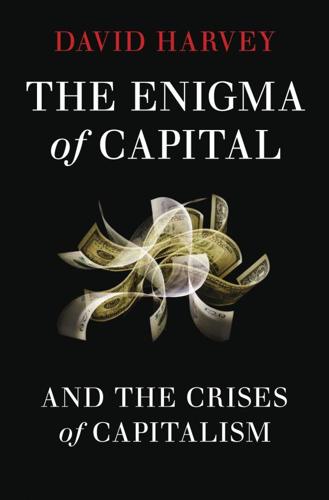
The Enigma of Capital: And the Crises of Capitalism
by
David Harvey
Published 1 Jan 2010
But as the financial system went global, so competition between financial centres – chiefly London and New york – took its coercive toll. The branches of international banks such as Goldman Sachs, deutsches Bank, UBS, rBS and HSBC internalised competition. If the regulatory regime in London was less strict than that of the US, then the branches in the City of London got the business rather than Wall Street. As lucrative business naturally flowed to wherever the regulatory regime was laxest, so the political pressure on the regulators to look the other way mounted. Michael Bloomberg, the mayor of New york City, commissioned a report in 2005 that concluded that excessive regulation in the US threatened his city’s future financial industry.
…
If crises are moments of radical reconfigurations in capitalist development, then the fact that the United States is having to deficit-finance its way out of its financial difficulties on such a huge scale and that the deficits are largely being covered by those countries with saved surpluses – Japan, China, South Korea, Taiwan and the Gulf States – suggests this may be the occasion for such a shift. It is even possible to interpret the current difficulties in the US and UK as payback for what Wall Street and the City of London did to east and south-east Asia in 1997–8. Tectonic shifts of this sort have occurred before, as described at length in Giovanni Arrighi’s 1994 book The Long Twentieth Century. There is, he notes, a clear pattern in which periods of financialisation precede a shift in hegemony. To accommodate endless accumulation, hegemony moves from smaller (e.g.
…
Bush embrace taxation principles that immensely favoured the rich just because he liked them or needed their support for re-election? Was it simply that the ‘Party of Wall Street’ had taken power both in Congress and in the executive branch? If so, why did Gordon Brown, New Labour’s Chancellor of the Exchequer in Britain, also so easily go along with it? (Did the City of London get to him, too?) And why was it that the wealthier grew immeasurably wealthier everywhere, from Russia and Mexico to India and Indonesia? In the absence of any limits or barriers, the need to reinvest in order to remain a capitalist propels capitalism to expand at a compound rate. This then creates a perpetual need to find new fields of activity to absorb the reinvested capital: hence ‘the capital surplus absorption problem’.
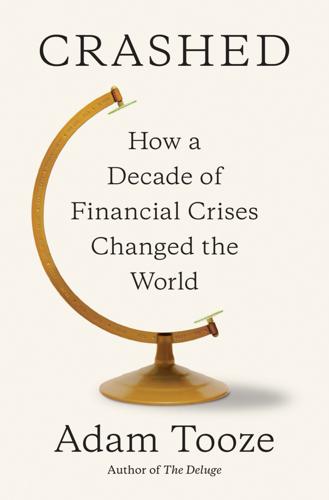
Crashed: How a Decade of Financial Crises Changed the World
by
Adam Tooze
Published 31 Jul 2018
By the early 1980s both Britain and the United States had abolished all restrictions on capital movements and this was followed in October 1986 by Thatcher’s “Big Bang” deregulation. The City of London was thrown open to outside investment, sacrificing guildlike structures that dated back centuries to the imperative of creating a genuinely global financial center. Within a decade the UK’s own investment banks had been swallowed by their American and European competitors.20 American, Asian and European capital flooded in. This involved not only regulatory change and huge financial flows but the physical reconfiguration of the medieval heart of the City of London. To house the gigantic new offices and electronic trading desks needed by global banks, Canadian real estate moguls undertook the construction of a massive new office complex in the abandoned postindustrial docklands of Canary Wharf.
…
By 2007, 35 percent of the global turnover in foreign exchange, running at a staggering $1 trillion per day, was conducted between computer systems in the City of London.22 European banks were the biggest players in the business. London was also the hub for the over-the-counter (OTC) interest rates derivatives business, a means of hedging against the risk of interest rate fluctuations and an essential complement to repo deals. Of an annual turnover in interest rate derivatives in excess of $600 trillion, London claimed 43 percent, to New York’s 24 percent.23 A decade after Thatcher’s Big Bang, with Britain’s native banking industry under intense competitive pressure, Tony Blair’s New Labour government set about further streamlining the City’s regulatory system.24 Nine specialist regulators were combined into a single agency, the Financial Services Authority (FSA).
…
As a result, according to investigations by a team of analysts from the IMF, the City of London came to function as a “platform for higher leveraging not available in the United States.” The scale of this activity was enormous. According to the IMF team, trading in and out of London the main European and US banks achieved a collateral multiplication of 400 percent, amounting to roughly $4.5 trillion in additional funding, effectively out of thin air.29 The UK’s liberalization not only freed up UK markets but acted as a crowbar to dislodge regulation worldwide. A transatlantic feedback loop drove regulation down on both sides.30 The notorious US deregulation decisions taken by the Clinton administration in the late 1990s, which overturned the last remaining financial restrictions of the New Deal era, were not taken in a vacuum.
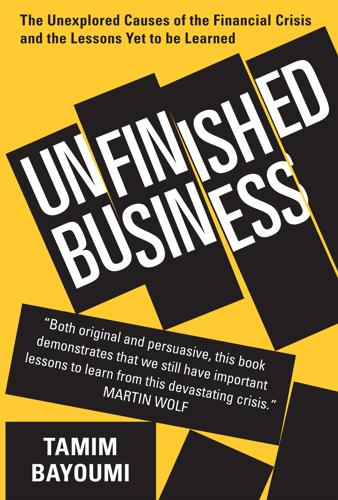
Unfinished Business
by
Tamim Bayoumi
This is the dynamic that created universal banks with investment banking operations in market centers such as London. The overseas expansion into investment banking reflected the adoption of a universal banking model in Europe combined with the permissive attitude of the UK regulators to foreign entry, especially after the “big bang” deregulation of the City of London in the late 1980s. Indeed, a significant part of cross-border activity involved the dismemberment of the UK merchant banks (the local name for independent investment banks). By 2002, thirteen major UK merchant banks had been acquired by overseas institutions; seven by European Union banks (including Deutsche Bank’s purchase of Morgan Grenfell), two by Swiss ones, and four by US banks.30 As will be discussed in the next chapter, the independent US investment banks proved much more resilient.
…
However, these strains were limited and essentially isolated from each other. The boom of the 2000s saw these risks grow and intermingle (Figure 19). The core Euro area banks were central protagonists in the unsustainable financial boom and bust, in stark contrast to the popular portrayal of them as hapless victims of US financial deregulation. To be sure, US deregulation played a role. In particular, reforms designed to provide greater liquidity in US repurchase (repo) markets supported the explosion of substandard mortgage-backed assets and gave foreign banks easy access to dollars. However, this coincided with a massive boom in lending by the core Euro area banks as a result of inadequate regulation and supervision.
…
Financial deregulation by the Asian countries also played a role in the crisis by providing domestic banks and others with greater freedom to borrow from abroad. For example, the Thai government created the Bangkok International Banking Facility in 1992 with the aim of making Bangkok into an international financial center.24 The plan was for overseas money to come into Bangkok and then be lent out to other countries—“out-out” loans. In practice, however, the foreign money was mainly used to finance local Thai loans—instead of “out-out” the loans became “out-in”. Financial deregulation allowed this “out-in” pattern to be repeated across the region as banks borrowed short-term in foreign currencies to make domestic loans, making local banks increasingly vulnerable to withdrawals by foreign investors.
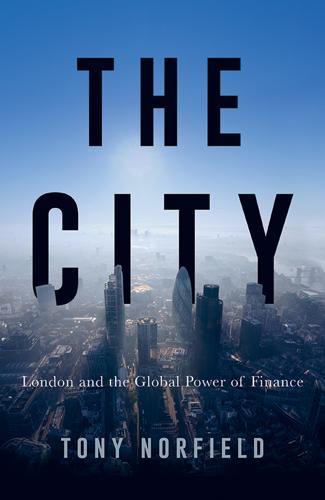
The City
by
Tony Norfield
This seemed to placate him, although he would not have been pleased to know I had barely gotten to grips with the array of flickering grey-green numbers on the terminal screens. That was in the summer of 1987, less than a year after the Thatcher government cut restrictions on UK financial markets with the ‘Big Bang’ reforms. Those reforms encouraged foreign banks, including Bank of America, to expand operations in the City of London, and enabled the City to benefit from an extended boom in world financial markets – a boom halted only temporarily by the October 1987 stock-market crash and by other market upsets. It was also the start of my career in finance that lasted nearly twenty years, and took me to three more banks, Japanese, British and Dutch, where I witnessed the inner workings of the financial markets.
…
To a lesser extent, other major powers also have some influence, with the weakest countries condemned to being only on the receiving end. Britain’s invisible empire From 1979 onwards the UK financial markets experienced a boom, exponentially so after the ‘Big Bang’ reforms of 1986 destroyed the previous cosy cartel of British financial firms. The volume of dealing grew dramatically and international banks flocked to the City of London. It is surprising, then, that there has been no substantial review of this from a radical perspective since the 1980s. The links between finance and Britain’s international economic and political power have thus remained by and large invisible.
…
Gupta, Partha Sarathi 1975, Imperialism and the British Labour Movement, 1914–1964, London: Macmillan Press Newsinger, John 2006, The Blood Never Dried: A People’s History of the British Empire, London: Bookmarks Index Page numbers in bold refer to charts, page numbers in italic refer to charts. 1 per cent, the 76, 102 ABN AMRO 51 ABP 82 Acland, Richard 32 advances 78 Afghanistan 220 Amsterdam 51 Anglo-American euromarkets 40–4 Anglo-American financial relationships 21, 27–8, 36, 59 transition, post-1945 29–30 Anheuser Busch InBev 121 anti-monopoly policies 119–20 Apple 77, 118, 118–19, 121–2, 155 Arab-Israeli War, 1973 55 Asian financial crisis, 1997–98 101, 166–7 Asian Infrastructure Investment Bank (AIIB) 18, 226 asset managers 80–1 austerity 152, 219 Australia 31, 58, 60, 109, 206, 226 automobile production 121 Aviva 82 Bahamas, the 209 balance of payments 187, 188, 200, 203, 207 balance of power 52 bank deposits 93 Bank for International Settlements (BIS) 108, 191, 192, 214 bank loans, international 66 Bank of America 125 Bank of America International xi Bank of England 44, 47, 56–7, 62, 64, 99–100, 116, 158–9, 173 Bank of Japan 157–8 banking capital 136 banks American 132–3, 193 American fragmentation 40 American regulation 36 assets 4, 85, 122–3, 141–4, 143, 214 borrowing 206–8 broking activity 80 business 79–80 Chinese 225–6 City of London trade 45 clients 79 creation of revenue-earning assets 137, 137–8 credit creation 83–5, 86, 104 dealing revenues 146 dealing spreads 191 derivative assets 140–1 Eurodollar deposits in American 41–2 existing loan assets 140 financial assets 139–47, 143 financial power 92 financial services revenues 191–7, 192, 194, 196 fines 79–80 foreign exchange deals 79 foreign exchange turnover 193–5, 194 fund buy backs 198 Hilferding’s analysis 92–5 interest-bearing capital advances 79–80 international assets 108 international business volume 192–3 Islamic 221 lending 142–4, 208–10 leverage ratios 131–4, 133, 134, 138 liabilities 108, 141, 141–4, 143 monopoly position 139 net interest income 138 networks 205–6 offshore operations 208–9 private 116 reserve requirements 40 role of 9, 136 short-term money-market instrument assets 144 start-ups 139 transaction volume 134–5 UK 4, 116, 134, 191–7, 192, 194, 196, 206–10, 214 UK assets and liabilities 141–4, 143 unsecured loans between 46 Banque de France 100 Barclays Bank 4 Barclays Global Investors 125 Barclays-Lehman deal, 2008 125 Barclays plc 123, 125 Bayly, Christopher 30 beer production 121 Belgium 1 Berkshire Hathaway 81–2 Berlin Wall, fall of 63 Bevan, Aneurin 32 Big Bang, the xi, 7, 54, 66–70 BlackRock 80, 125 Blair, Tony 64, 112 bond markets 49, 146 bond ownership 102, 144, 146 bond securities, characteristics 86 booms 104 borrowed money 78 borrowing banks 206–8 bond-market 146 interest rates 146 repo 46 risk 130 UK 201–2, 204–5 UK bank 206–8 BP plc 3, 111–12, 114, 190 Brazil 18, 106, 107, 222 Bretton Woods world monetary system 10, 26–7, 29, 31, 39 break up of 16, 52, 53, 66 BRICS 222–3 British Empire 23–6, 24, 25, 27, 28, 30–3, 52, 105 brokers 68, 80, 96, 99 Browne, John 112 Brown, Gordon 210 Brunei 220 Bündchen, Gisele 164–5 Bundesbank 57, 62 Burn, Gary 43, 74 Bush, George W. xii busts 104 Cameron, David 211, 220–1 Canada 4, 31, 60, 66 capital access to foreign 68 accumulation 19, 149 and financial securities 89–90 and imperialism 19–20 interest-bearing 77–8 manufacturing 43 money-dealing 79 organic composition of 148–9 ownership 93 parasitism 228 productive 90 capitalism crisis 12, 215 and finance 76 financial mechanism of 9 and financial system 8–9 global 4 and monopoly 100 moribund 159–60 and the rate of profit 147–50 and the state 111–15 UK 44–7, 49 capitalist business 74 capitalist market system, and finance xiii capitalist power 86 capitalist production 9 rate of profit measurement 153 capital movement, national controls on 51 capital values, destruction of 151–2 Carlsberg 121 Carney, Mark 213–14 cash flows, financial securities 88 Cayman Islands, the 209, 211 central banks 5, 47, 83, 85, 116 CHAPS 84 Chesnais, François 19–20 Chicago 37, 42, 185, 195 China 2, 15, 171 automobile production 121 bad debt 224 banks 225–6 challenge of 222 challenge to America 17–18 currency trading 225–6 cyber attacks 18 equity market capitalisation and turnover 181, 182 export prices 224–5 FDI 107–8 financial services exports 176–7 foreign direct investments 18 foreign exchange reserves 167, 224 foreign exchange trading 109 FX swap arrangements 225 GDP 106, 106–7, 224 growing financial role 73 military spending 109 millionaires 99 mobile phones 122 New Development Bank funding 18, 222–3 rise of 18, 221–7 and Russia 223 security threat 18 status 110, 111 stock exchange prices 182 stock exchanges 18 US dollar-denominated debt 18, 221 wages 155 China Mobile 222 China Resources Snow Breweries 121 Churchill, Winston 60 as Chancellor of the Exchequer 23, 24–6 Iron Curtain speech 29 ‘City–Bank of England–Treasury’ nexus 54 City bonuses 211 City of London 37, 228 advantages 37, 40, 47, 49–50, 52 casino analogy xii Chinese currency trading 225–6 competitiveness 68 deregulation xii, 7 development 44–7 domination 194–5 earnings 49 and economic policy 8 euromarket 44–5, 47–51 European rivals 46–7, 51 expansion 40 financial system 37–40 geographical scope 37 Gowan’s analysis 11–12 growth 44–5 international reach 4 international role 47–51, 73–4 market 45 networks 205–6 operations 185–212 Panitch and Gindin’s analysis 15 relationship with America 73 role xii–xiii, 45, 49, 69 status 28, 35, 50, 185, 206, 210–11 strength 99–100 Clinton, Bill 122 Clinton, Hillary 18 clipping coupons 97–8 Cold War, the 37 Collateralised Debt Obligations (CDOs) 90, 140 colonial marketing boards 32 commercial capitalists 76 commodities, circulation of 78 Common Agricultural Policy 58 communism, threat of 30 Competition Commission 119–20 constructive parasitism 213–14 cooperation 16, 28 corporate control 183 corporations headquarters 114–15 nationality 111–13 stock market listings 113 cost of living 155 costs 77 Court of Justice, European Union 216 credit bubble 156 credit creation 21, 76, 150–1 banks 83–5, 86, 104 currency dealing costs 162 seigniorage 163–6 and trade 162–3 current account balance, UK 188–90, 189, 190 current account deficit, UK 200, 202, 211, 217 current account deficit, USA 167–8 current account surplus, UK 33, 34, 69 cyber attacks 18 Czech Republic 10 Darling, Alistair 125 dealing costs 162 dealing revenues 146 dealing room screens xi dealing spreads 191 debt crisis 151–2 Deepwater Horizon oil spill 190 de Gaulle, Charles 34, 47 Dell 77 Denmark 1 deregulation 45, 54, 65–70 derivatives 140–1 dealing in 142 definition 141 money-market 141 over-the-counter 185, 195, 196 derivatives markets 135 Deutsche Bank 215 Dollar–Wall Street Regime 12 domestic politics, economics and 217–19 Dubai 172 Dublin, International Financial Services Centre 178 earnings, City of London 49 Economic and Monetary Union (EMU) 59–61 advantages 63 five conditions for membership 64 threat to UK financial power 64–5 UK opt-outs 61–4 Economic Consequences of Mr Churchill, The (Keynes) 23–4 Economic Consequences of the Peace, The (Keynes) 23 economic crises 151–2 economic growth 53, 60–1 economic influence 3 economic output 106 economic policy 8 economic power 101 concentration of 91–2 financial privileges of 7 and financial securities 85–92 global 3–6 hierarchy of 97 manifestation of 88–92 UK 2 economic privilege 104 economic relationships, in global capitalism 4 economics, domestic politics and 217–19 economic system, dysfunctional 8 elevators and escalators 121 employment, financial sector 186 End of History thesis 15–16 English language, role of 37 equity capital, valuation 179 equity markets 179–81, 181–3 capitalisation and turnover 181–3, 181 equity securities 86 eurobonds 41, 47–8 euro crisis, 2010 62, 65 eurocurrency bonds 49 eurodollars 40–1, 43, 48 euro financial system 72–3 euromarkets 28, 40, 51, 52, 66 Anglo-American 40–4 City of London 44–5, 47–51 definition 40 growth 40, 42, 43 interest 41 operation 40–1 origins 42–3 regulation 40–1 scale 43 UK earnings 43–4 European Central Bank (ECB) 64, 65, 72, 100, 159, 173 European Commission 162 European Economic Community (EEC) 33, 34, 57–8 European Free Trade Association (EFTA) 34 European integration 58 European Monetary System 67 European Union 16–17, 21, 54 anti-monopoly policies 120–1 Court of Justice 216 financial policy 69–70 financial services sector integration 72–3 GDP 70 UK membership referendum 218–19 UK opt-outs 61–2 euro system 57 euro, the 162–3, 164, 165, 166 status 72–3, 109 exchange controls, abolition of 54, 66–7 exchange rates 156, 163 Exchange Rate Mechanism (ERM) 57, 62 existing loan assets 140 exorbitant privilege 166–9 Facebook 5, 91 Federal Deposit Insurance Corporation charge (US) 41 Federal Reserve System (US) 40 fictitious capital 87, 88, 90, 91, 183 ownership 92 pricing 147 and securities prices 145 as wealth 147 fictitious deposits 83 finance access to 6 and capitalism 76 and capitalist market system xiii definition 5 and imperialism 8–10 and power 7–8 role of 161 finance capital 92–5 finance ministries 5 financial account, UK 197–200, 199 balance of payments 200 flows 198–9, 199 surplus 199 financial aristocracy 90, 96 financial assets banks 139–47, 143 ownership of 102–3 and profit 137 financial capitalists 78 financial crises 6, 10, 19, 101–2 America and 12 causes 147–8 and profit and profitability 135 financial crisis, 2007–8 20, 65, 72, 132, 134, 154, 157–8, 168, 198, 214 financial dealing 76 financial excess 154 financial institutions, and money-capitalists 76–7 financial market shares 70–3, 71 financial markets, state policy 65–70 financial operations xiii financial parasitism 95–7, 227–8 financial policy American 11, 65–6, 67–8 European Union 69–70 Japanese 67 UK 14, 65–70 financial power 101, 109 American 6, 11–12, 14–15, 55, 170–3, 183 banks 92 EMU threat to 64–5 global 3–6 individuals 90–1 UK 2, 3, 64–5 financial prices 8 financial privilege 7, 22 financial revenues 144–6 financial scandals 216 financial sector 5 employment 186, 213–14 scale 4, 213–14 tax revenues 186 financial sector capitalists 91 financial securities 21, 104 as assets 91–2 and capital accumulation 89–90, 139–40, 179 cash flows 88 cash value 89 characteristics 86 creditors 88–9 and economic power 85–92 markets 89 price 87–8, 145–6, 147 price currency 181 role of 76 and surplus value 144–6 value xi, 87–8 financial services exports 173–9, 175 financial services revenues 190–7, 192, 194, 196 Financial Stability Board 214 financial system 4, 4–5, 20, 104, 227 and capitalism 8–9 growth 75–6 hierarchy 6, 105–11, 111 and imperialism 8–10 state regulation 115–16 Financial Times xii, 75, 214 Top 500 global corporations 3 financialisation 20 First World War 23–6, 29 fixed assets, and profit 137 floating-rate notes 48 Ford Motor Company 5 Ford Motor Credit 5 foreign currency risk 168 foreign direct investment (FDI) American 3, 42 Chinese 18 outward 107–8 and status 107–8 UK 3, 66, 200, 205 foreign exchange deals, banks 79 foreign exchange (FX) market 71, 72, 193–5, 194 foreign exchange trading 108–9, 123 foreign investment revenues 9–10, 22, 189–90 foreign operations, expanding 101 foreign securities 47–8 Fox Broadcasting Company 113 France 2, 4, 13, 63, 93 China policy 226 FDI 107 GDP 106, 107 international banking index 108 international banking position 192, 192 Keynesianism in one country 67 military spending 109 monetary policy 67 seigniorage 165 trade pattern 60–1, 61 Frankfurt 51, 64, 72 free market 13, 15–16 FTSE 100 113 Fukuyama, Francis 15–16 functioning capitalists 77–8 G4S 120 GDP Chinese 224 European Union 70 and status 106 UK 4, 106, 107, 155–6 GE Capital 5 General Electric 5 General Motors 121 Gent, Chris 180 Germany 2, 4, 63, 66, 94–5, 107, 108, 109, 110, 111 China policy 226 domination 64 equity market capitalisation and turnover 181, 182 GDP 106, 107 Hilferding’s analysis 93–95 international banking share 71, 71 reunification 62, 63 seigniorage 165 status 54 trade pattern 60–1, 61 GIC 177 Gindin, Sam 14–17, 18 Glass-Steagall legislation 36 Glencore 122 global capitalism, economic relationships in 4 global finance 2 globalisation 13, 114 global market trading, location 49 global system, centre of gravity 73–4 global value chains 118 Goldman Sachs 161, 222 gold prices 39 gold standard 23–6, 54 Google 5 government debt 87, 89 governments, financial role 5 government spending, cuts 59 Gowan, Peter, The Global Gamble 11–12 Greece 65, 72, 101, 151 greed 148 Group of 5, the 68 Group of 7, the 70, 71 Harper, Tim 30 Harvey, David 19 Healey, Denis 58–9 Heath, Edward 57–8 hedge funds 12, 81, 131 Heineken 121 Helleiner, Eric 12–14, 70 Hilferding, Rudolf 136 Finance Capital 92–5 Holcim 75 Hong Kong 18, 176–7, 206, 209 household debt 103 Howe, Geoffrey 66 HSBC 3–4, 225 idiocy 148 Iksil, Bruno 135–6 imperialism 5–6, 160, 161–84 American 12, 14–15, 166–9 and capital 19–20 currency 162–6 definition 117–18 domination network 21 economic definition 116–17 economic mechanism 117–21 equity markets 179–83 exorbitant privilege 166–9 and finance 8–10 financial power 170–3 financial services exports 173–9, 175 Lenin’s analysis 117–18 methods 117, 118 and monopoly 100, 117–21 parasitism of 97–9 power 126 predatory 19 and the state 119 UK 7–8, 186, 228 imports 155 India 18, 30, 222 GDP 106, 107, 224 individuals, financial power 90–1 Indonesia 101 inflation, 1970s 58 inflation rates 132, 164 innovation 135–6 insurance companies 81–2, 99 insurance premiums 81–2 insurance revenues 191 intellectual property rights 126 interbank market 46 interbank payments, value 84 interbank payment systems 84 interest and interest rates 78, 88, 130, 132, 138, 142 American 168 bond-market borrowing 146 derivatives turnover 195, 196 ERM fiasco 62 euromarkets 41 and profit 156–7 UK 203 interest-bearing capital 77–8 bank advances 79–80 dealing in 79–80 division of labour 99 Lenin’s analysis 98–9 Marx on 95–7 parasitism 95–7 Interest Equalisation Tax (US) 39–40, 48 international banking index 108 international banking share 50, 70–1, 71 international community 117 international companies 112 international finance, drivers 51 international financial revenues, UK 10 International Financial Services Centre, Dublin 178 international financial transactions 98 international investment position, UK 200–1, 201 International Monetary Fund 14, 19, 27, 29, 56, 58–9, 73, 101, 164, 223 investment, advance of money 86–7 investment mandates 80 investment returns 131 Iran 59, 113, 172 Iraq, invasion of, 2003 7, 220 Ireland 4, 178, 205 Islamic bonds 220–1 Islamic finance 22, 219–21 Islamic Finance Task Force 221 Italy 4, 106, 107, 226 Japan 2, 4, 15, 38, 93, 163, 167 equity market capitalisation and turnover 181, 182 financial crisis 71 financial policy 67 foreign exchange trading 109 GDP 106, 107 international banking index 108 international banking share 50–1, 71, 71 Offshore Market 67 seigniorage 165 threat of 29 zaibatsu 94 jobbers 68 Johnson Controls 121 JP Morgan Chase 135–6 Juncker, Jean-Claude 175 Kennedy, John F. 34 Keynesianism in one country 67 Keynes, John Maynard 23–4, 30, 35 labour exploitation of 74 international division of 99 surplus 149 labour costs 98, 118–19, 155 Labour Party Conference, 1956 32 Tanzanian groundnut scheme 32 Lafarge 75 Lafont, Bruno 75 Lear Corporation 121 Lee, Jennie 32 legal tender 115 Lehman Brothers 125, 210 lender of last resort 116 Lend-Lease policy 29 Lenin, V.
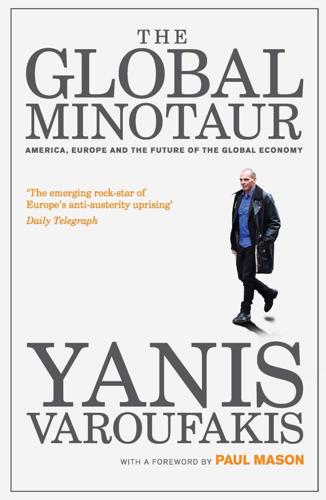
The Global Minotaur
by
Yanis Varoufakis
and
Paul Mason
Published 4 Jul 2015
On the back of their rising ‘assets’, the banks tripped over each other to lend workers money to go on holiday, buy a car, upgrade their stereo, etc. In the end, household debt, house prices and consumer spending all went up in perfect unison. Meanwhile, the City of London’s traditional strength in the realm of finance, its deregulation under the Thatcher government (also known as the Big Bang) and the City’s links with Wall Street all ensured that a significant portion of the foreign capital flight to the United States passed through the City. That passage gave its institutions access to large sums of money, even if for only a short period of time.
…
After years and years of being lectured on the superiority of the Anglo-Celtic model, on the advantages of flexible labour markets, on how inane it was to think that Europe could retain a generous social welfare net in the era of globalization, on the wonders of an aggressively atomistic entrepreneurial culture, on the wizardry of Wall Street and on the brilliance of the post-Big Bang City of London, the news of the Crash, its sights and sounds as they were beamed all over the world, filled the European heart with an ambiguous mix of Schadenfreude and fear. Of course, it was not too long before the crisis migrated to Europe, metamorphosing in the process into something far worse and more threatening than Europeans had ever anticipated.
…
In the United States, the financial sector’s debt had shot up from an already sizeable 22 per cent of national income (Gross Domestic Product or GDP) in 1981 to 117 per cent in the summer of 2008. In the meantime, American households saw their debt share of national income rise from 66 per cent in 1997 to 100 per cent ten years later. Put together, aggregate US debt in 2008 exceeded 350 per cent of GDP, when in 1980 it had stood at an already inflated 160 per cent. As for Britain, the City of London (the financial sector in which British society had put most of its eggs, following the rapid deindustrialization of the early 1980s) sported a collective debt almost two and a half times Britain’s GDP, while, in addition, British families owed a sum greater than one annual GDP. So, if an accumulation of inordinate debt infused more risk than the world could bear, how come no one saw the crash coming?
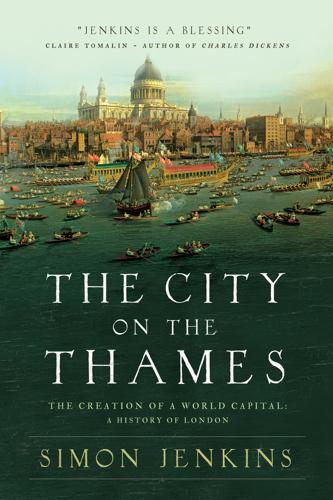
The City on the Thames
by
Simon Jenkins
Published 31 Aug 2020
Metropolis Renascent: 1980–1997 Thatcher vs Livingstone – IRA bombs – Docklands development – Big Bang – The decline of the council house 25. Going for Broke: 1997–2008 Blair and the mayoralty – Post-9/11 threats – Livingstone’s skyline 26. Constructs of Vanity: 2008 to the present Boris Johnson – 2011 riots – 2012 Olympics – High-rise London – Whose city? – Brexit Epilogue Photographs A Timeline of London’s History Author’s Note Further Reading About the Author Index List of Illustrations Section 1 1. Reconstructed view of Roman London, c.120, by Peter Froste. © Peter Froste/Museum of London 2. Fragment of Roman wall at Cooper’s Row, City of London. © Stephanie Wolff 3.
…
I predicted at the time that Canary Wharf would be like Ozymandias’s ‘vast and trunkless legs of stone’, an ill-conceived venture in a ruined wilderness, the wrong place at the wrong time. The City returns to global In this prediction, I was mistaken for two reasons. In October 1986 London experienced possibly the most radical ever upheaval to its commercial structure. The then chancellor, Nigel Lawson, deregulated the City’s financial institutions, disbanding their monopolies and overriding their restrictive practices, dubbed the Big Bang. It was an overnight revolution. Lawson’s financial wild west was aided by the recent eruption in the global Eurodollar and petrodollar markets, on which a free-wheeling London was well placed to capitalize. Foreign banks poured into what seemed freedom city.
…
In 1986 I interviewed an executive with the American bank Morgan Stanley, tasked with assessing various cities as its European headquarters. He reported back that London beat Paris, Brussels and Frankfurt, not just on deregulation but on office availability, professional services and the quality of ‘prime West End’ accommodation. The city, said the banker, ‘had the best expatriate package, no language barriers, houses with gardens, human-scale buildings, a living Disneyland, a bond between past and present’. Frankfurt’s Deutsche Bank was finding younger staff pleading to be posted to London, until more worked there than in Frankfurt. The Big Bang was undeniably disruptive. A year later in October 1987 came Black Monday, with an abrupt collapse of stock markets round the world.
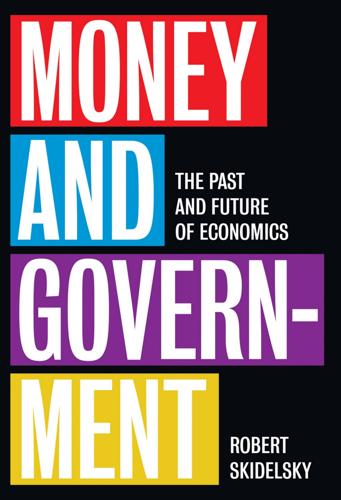
Money and Government: The Past and Future of Economics
by
Robert Skidelsky
Published 13 Nov 2018
The Clinton Administration overturned this in 1999 with the Gramm–Leach–Bliley Act, allowing both sets of activities to be done by the same bank. In the UK, Thatcher’s ‘Big Bang’ of the 1980s, which allowed banks into the mortgage market and commercial banks to merge with securities’ houses, had similar consequences, and the model of the do-it-all, universal bank emerged. Regulatory loosening led to the loosening of moral restraints. Whereas traditional banking focused on developing long-term relationships with customers and providing them with a good service, investment banking is marked by an emphasis on short-term opportunism and risk-seeking behaviour.28 The effect of the deregulation of lending was to undermine the public utility aspect of banks: they became free to do whatever financial business they wanted.
…
R., 179 Erie Canal, 90 Eshag, Eprime, 71 European Central Bank, 139, 188, 198, 217, 242–3, 253, 254, 361 institutional constraints on, 50, 234, 242, 249, 274–5 misreading of Eurozone crisis, 275 quantitative easing (QE) by, 273–4 on ‘stress testing’, 364 taxing of ‘excess’ reserves, 266 use of LTROs, 257 European Commission, 139, 3612, 365 European Exchange Rate Mechanism, 188 European Investment Bank, 354 European Union (EU, formerly EEC), 153, 318, 379, 383 Financial Stability Board (FSB), 363 ‘Four Freedoms’, 375 lack of state, 376 Single Resolution Board, 365 Eurozone current account imbalances, 333, 334, 335, 336–7, 341–2 Juncker investment programme, 274 proposed European Monetary Fund, 376, 382 structural flaw in, 341, 375–7 two original sins of, 274, 376–5 Eurozone debt crisis (2010–12), 50, 223, 377, 382 and double-dip recession, 241, 242–3, 274 ECB’s misreading of, 275 and financial crowding-out theory, 234 and Greece, 32, 224, 224–5, 226, 233, 235, 242–3, 243, 365 and ‘troika’, 32, 139, 243 469 i n de x exchange-rate policy, 127–8, 139 and Congdon’s ‘real balance effect’, 285 and domestic interest rates, 251 fixed rates under Bretton Woods, 16, 159, 161, 162, 168 floating rates from 1970s, 16–17, 184 and Friedman, 182 IMF ‘scarce currency’ clause, 380–81 Nixon’s dollar devaluation (1971), 153, 154, 165 and quantitative easing, 267, 267 sterling crisis (1951), 145 sterling devaluation (November 1967), 152 sterling-dollar peg (from 1949), 148, 150, 152 sterling/franc/deutschmark devaluations (1949), 152 ‘Triffin paradox’, 161, 165 ‘expansionary fiscal consolidation’, 192, 225, 231 Fabian socialism, 96 Fama, Eugene, 208, 311–12, 313 Fanny Mae, 217, 256, 309, 320 fascism, 13, 98, 131, 175 Federal Reserve, US and 2008 crash, 50, 217, 254, 256 AIG bail-out (2008), 325 Federal Open Market Committee (FOMC), 185–6 and Great Depression, 104–6 inflation targeting, 188 and monetarism, 185–6, 188 monetary policy in 1950s, 146 ‘Operation Twist’, 268 quantitative easing (QE) by, 256–7, 273–4 ‘Reserve Position Doctrine’ (1920s), 103–4 and under-consumption theory, 298 Ferguson, Niall, 73, 79, 80, 91 financial collapse (2007–8) acute phase, 218–20, 223 ‘Austrian’ explanation, 104, 303 banks as proximate cause, 343, 361, 365 Bear Stearns rescue, 217 British analogies with Greece, 235 British debate after, 225–8 causes of, 3–4, 343–4, 365, 366, 368 central bank responses, 3, 217, 219, 234–5, 253–4, 254, 256–8, 359 comparative recovery patterns, 241–4, 242, 273, 273–4 compared to 1929 crash, 218 Conservative narrative, 226–8, 229–31, 233, 234–5, 237–9 and crisis of conservative economics, 17 and embedded leverage, 318, 322, 325 five distinct stages of crisis, 216–19 ‘global imbalances’ explanation, 11, 331, 333, 336–43, 337 government responses, 3, 217–18, 219–20, 221–36, 237–47 Hayekian view of cause, 303 hysteresis after, 239–41, 240, 241, 370 inequality as deeper cause of, 299–306, 368 Lehman Brothers bankruptcy, 3, 50, 217, 365 leverage (debt to equity) ratios on eve of, 317–18 liquidity-solvency confusion, 317 outbreaks of populism following, 13, 371–3, 376, 383 post-crash deficit, 226–33, 229, 237–8 private debt as proximate cause, 3–4 470 i n de x stagnation of real earnings as deep cause, 4, 303, 367 standard account of origins of, 3–4 as test of two theories, 2–3, 76 theoretical and policy responses, 10, 129, 219–20, 223–36, 237–47 see also austerity policy and under-consumption theory, 303–6 US sub-prime mortgage market, 3, 216, 304–5, 309, 323, 328, 341 see also Great Recession (2008–9) Financial Services Authority, U K, 321–2, 330 financial system and causes of 2008 collapse, 3, 4–5, 253, 307–9, 361 and crisis of conservative economics, 17 deregulation, 307–9, 310–16, 318–22, 328, 332–3, 384 East Asian financial crisis (1997–8), 202, 339, 371, 382 ‘Efficient Market Hypothesis’ (EMH), 311–13, 321–2, 328, 388 ‘financialization’ of the economy, 5, 305, 307–9, 366–7 fraud and criminality, 3, 4, 5, 7, 328, 350, 365–6, 367 and free-market orthodoxy, 5, 308–16 loosening of moral restraints, 319 mark-to-market (M2M) framework, 314 offshore euro-dollar market, 308, 332 privatised gain and socialised loss, 319–20 released from national regulation (1980s/90s), 131, 318–22 structural power of finance, 6–7, 14, 309 systemic under-estimation of risk, 314–16, 316*, 320–22, 323, 329–30 Thatcher’s Big Bang (1980s), 319 tradable public debt instruments, 43, 80–81 Turner’s ‘financial intensity’ concept, 366 unrealism of assumptions, 310–16 value at risk (VaR) framework, 314–15, 315, 330 ‘Washington consensus’ deregulation, 198, 200 see also banks FinTech, 356 First World War, 86, 95, 106–7, 374, 375 ‘fiscal consolidation’, 10–11, 129, 225 Darling’s plan (2009), 225–6 ‘expansionary’, 192, 225, 231 and Osborne, 227–8, 229–30, 231, 233, 237–9, 243–4, 244, 245 fiscal policy and 2008 collapse, 10, 217–18, 219–20, 223–36, 265–6, 273–4, 286 ‘Barber boom’, 167, 168 during Blair-Brown years, 221–4, 223, 225–6, 227 British experience (1692–2012), 77 Congdon’s total rejection of, 280, 285–6 ‘crowding out’ argument, 83–4, 109–11, 226, 233–5 current and capital spending, 107–8, 114, 142, 155–6, 193, 221–3, 237–8, 355–7 directing flow of new spending, 286–7 fiscal multiplier, 110–11, 125–6, 133–6, 138, 230–31, 233, 235, 244–5 471 i n de x fiscal policy – (cont.) in inter-war Britain, 106–17 and Keynesian economics, 2–3, 109, 111, 114–17, 125–7, 129–31, 133–4, 137–8, 173, 278 Keynesian full employment phase (1945–60), 141–8 Krugman’s ‘confidence fairy’, 117 Lawson counterrevolution, 185, 192–3, 222, 358 legacy of monetarism, 190–93 May Committee (1931), 112 national income accounts, 138 New Classical view of, 200 in new macroeconomic constitution, 351–2, 355–7, 360–61 nineteenth-century theory of, 9, 29 post-Keynesian disablement of, 193, 221, 258, 304, 328 pre-crash orthodoxy, 221–2, 223–4, 230–31 Public Sector Borrowing Requirement (PSBR), 155–6 see also balanced budget theory; public investment; taxation Fisher, Irving, 9, 52, 61, 99, 280 ‘compensated dollar’ scheme, 66 equation of exchange, 62–4, 71–2, 258, 278–9, 283, 284, 287 QTM formulation, 62–7, 71–2 and quantitative easing, 258, 278–9 Santa Claus money, 62–4, 258, 278–9 Fitch (CR A), 329 France assignats in 1790s, 64–5 and gold standard, 50, 102, 104, 127 ‘indicative planning’ system, 150 ‘physiocrats’in, 81 protectionism in late nineteenthcentury, 59 state holding companies, 356 statism in, 140, 144 university campus revolts (1968), 164 Freddie Mac, 217, 256, 309, 320 free trade, xviii, 9, 58–9, 76, 79, 81–2 abandoned in Britain (1932), 113 general presumption in favour of, 377 and Hume’s ‘price-specie-flow’ mechanism, 37–8, 53, 54, 104, 332 and Irish potato famine, 15 List’s ‘infant industry’ argument, 88–9, 90, 378–7 and nationalist–globalist split, 371–3 and post-war liberalization, 16, 374 and presumption of peace, 379 repeal of Corn Laws (1846), 15, 85 Ricardo’s doctrine of comparative advantage, 88, 378, 379, 379 US conversion to (1940s), 90 Freiburg School, 140 Friedman, Milton adaptive expectations theory, 180–81, 183, 194, 206–11 and Cartesian distinction, 22 as Fisher’s heir, 278 The Great Contraction (with Schwartz; 1865), 105 idea of ‘helicopter money’, 63 and monetary base, 185, 280 and Mont Pelerin Society, 176–7 and ‘natural’ rate of unemployment, 163, 177, 181, 195, 206, 208 onslaught on Keynesianism, 170, 174, 177–83, 261 ‘permanent income hypothesis’ (1957), 178, 183 and Phillips Curve, 38, 180–81, 194, 206–8, 207 472 i n de x policy implications of work of, 182–3 political motives of, 177, 183–4 and quantity theory, 61, 70, 177–9, 182, 183, 194 ‘stable demand function for money’, 179 view of Great Depression, 104–6, 179, 183, 256, 276, 278 weaknesses in arguments of, 183 Frydman, Roman, 389 Fullarton, John, 49 Funding for Lending programme, 265–6 G20 Financial Stability Board, 363 summits (2009/10), 219–20, 223, 225 G7 finance ministers meeting (February 2010), 224–5 Galbraith, James, 303, 361 game theorists, 389 Gasperin, Simone, 357* Geddes, Sir Eric, 108 German Historical School, 88–9 Germany and 2008 crash, 217, 218, 243 current account surplus, 333, 334, 341, 342, 380, 381 employer–union bargains, 147, 167 and Eurozone crisis, 341, 365, 376, 377 and Great Depression, 97, 111, 129–30 growth Keynesianism (1960–70), 153–4 high growth rates in 1950/60s, 149, 156 Hitler’s reduction in unemployment, 111, 112, 129–30 hyperinflation of early 1920s, 275 as Keynesian in 1960s, 140 nineteenth-century expansion and unification, 89, 91 ‘ordo-liberalism’ in, 140 post-war modernization/catch-up, 156–7 protectionism in late nineteenthcentury, 59 return to gold standard (1924), 102 ‘Rhenish capitalism’ model, 154 Giffen, Robert, 51 Giles, Chris, 219, 302 Gini coefficient, 299, 300 Gladstone, William, 42–3, 86 Glass–Steagall Act (1933), 319, 361, 362 global imbalances basic theory of, 335–6 and capital account liberalization, 318–19 capital flight, 59, 334, 337, 341, 343 Eurozone see Eurozone: current account imbalances as explanation for 2007–8 crash, 11, 331, 333, 336–43, 337 and financial deregulation, 318–19, 332–3 and First World War, 95 increases in pre-crash years, 333, 333–4, 334, 335 problematic nature of, 333–4 reserve accumulation, 336, 337–41 ‘saving glut’ vs ‘money’ glut, 338–41, 342 structural causes still in place, 344 US dollar as main reserve currency, 338 global warming, 383 globalization, 17, 300, 334–5 absence of the state, 350, 373, 375–6 anti-globalist movements, 371–2, 373 first age of, 51, 55, 57, 59, 374, 375 473 i n de x globalization – (cont.) future of, 382–4 Geneva and Seattle protests (1998/99), 371 and inflation rate, 252–3 and lower wages in developed world, 252–3, 300, 379 nationalist-globalist split, 371–3 ‘neo-liberal’ agenda of IMF, 139, 181, 318–19 popular protest against, 351, 371–2 resurgence of after Cold War, 374 Rodrik’s ‘impossible trinity’, 375 gold, 23, 24, 25, 28, 35, 37 new gold production, 51, 52, 55, 62 gold standard, xviii, 1, 9, 27, 29, 338 and Britain, 9, 42, 43, 44, 45–50, 53, 57–9, 80, 101, 102, 113 collapse of US exchange standard (1971), 160, 165 commitment to convertibility, 55–6 and Cunliffe model, 54–5, 102 depressions in later nineteenthcentury, 51–2 dysfunctional after First World War, 95, 97 final suspension in Britain (1931), 113, 125 Fisher’s ‘compensated dollar’ scheme, 66 Hume’s ‘price-specie-flow’ mechanism, 37–8, 53, 54, 104, 285, 332 and international bond markets, 92 as international by 1880s, 50–52 Keynes on, 58, 101, 127 Kindleberger thesis, 58–9 move to ‘managed’ system, 71, 99–100 replaces silver standard (1690s), 42, 43 restored (1821), 48 return to in 1920s, 102, 104, 107 suspension during Napoleonic wars, 43, 45–7 suspension of convertibility (1919), 101–2 triumph of by mid-nineteenthcentury, 44, 50 working and design of, 52–9 as working in tandem with empire, 57, 58 Goldberg, Michael D., 389 Goldman Sachs, 315 Goodhart, Charles, 168, 187 Graeber, David, 28 Great Depression (1929–32), 9, 13, 96, 97–8, 110–13, 127 compared to 2008 crash, 218 Friedman-Schwartz view, 104–6, 179, 183, 256, 276, 278 impact on US policy-makers in 2008 period, 256, 275, 278 left-wing explanations of, 298 rise in inequality in lead-up to, 289 and second wave of collectivism, 15–16 Great Moderation (early 1990s–2007), 4, 53, 202, 278 economic problems during, 348 financial deregulation during, 318–22, 328 financial innovation during, 322–8 and independent central banks, 215 inflation during, 106, 215, 216, 252–3, 253, 348, 359, 360 international financial network, 309, 318–28 output growth during, 215, 253, 348 Great Recession (2008–9), xviii Congdon’s view of, 281–2, 287 co-ordinated global response, 219–20, 383 decline in productivity after, 305–6 474 i n de x initial signs of recovery (2009), 218–19, 225, 226 monetary interpretation of, 105, 106 ‘premature withdrawal’ of fiscal stimulus, 219–20, 223–36, 245, 352 reform agenda after, 361–8 rise in inequality in lead-up to, 289–90, 299–300 see also financial collapse (2007–8) Greece and Eurozone debt crisis, 32, 224, 224–5, 226, 233, 235, 242–3, 243, 337, 341, 365 in gold standard era, 59 Greenspan, Alan, 188, 313 Hamilton, Alexander, 88, 90, 92 Hammond, Philip, 236, 352 Hannover Re scandal, 329 Harrison, George, 105 Harrod, Roy, 123 Harvey, John, 333, 387 Hawtrey, Ralph, 109–10, 280 Hayek, Friedrich, 33, 46, 177, 195, 350, 367 founds Mont Pelerin Society, 176 ‘over-consumption’ theory, 296 The Road to Serfdom (1944), 16, 175–6 on Wall Street Crash, 104 Heath, Edward, 167–8 Heckscher, Eli, 37 Help to Buy programme, 265, 266 Henderson, Hubert, 109 Henderson, W.
…
It also marked the end of the gold standard. Sound finance was supposed to maintain confidence in the currency, but the government’s economy measures failed to prevent a continuing flight from sterling, as the merchant banks of the City of London were seen to have borrowed short, and lent long to failed and failing banks on the continent of Europe. No foreign funds were available to ‘bail out’ the City of London, and the obligation to exchange sterling for gold was suspended on 21 September 1931, never to be restored. Release from the ‘golden fetters’ liberated monetary policy. Bank Rate came down from 6 per cent to 2 per cent in 1932.
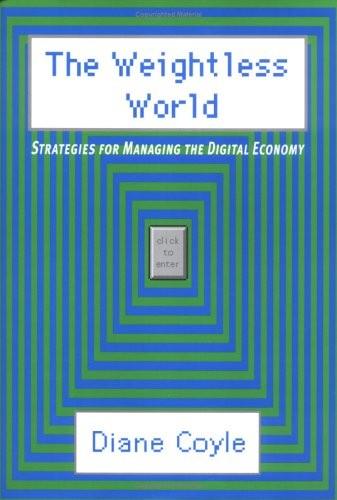
The Weightless World: Strategies for Managing the Digital Economy
by
Diane Coyle
Published 29 Oct 1998
Thus VHS drove out Betamax, and Microsoft’s Windows dominates the Apple operating system, except in publishing where there exists a subsidiary network because the superiority of the Apple Mac software is so pronounced. London’s triumph One example that illustrates the new geography is the growing dominance of London as a centre for financial market transactions. The financial services industry is on the frontier of the information technology revolution in economics. The ‘Big Bang’ reforms in the City of London in 1986 and similar changes in other financial centres were defined as much by huge investment in information technology and telecommunications as by regulatory change. This investment, the need to stay in the techno- The Weightless World 20 logical wild west, remains the hallmark of the financial markets — the first and biggest cyber-industry.
…
It is a paradox that as its activity has dematerialised, London as a place has become ever more important. Obviously, some things that were done in London have moved thanks to high technology. This includes back offices, registrars — any functions where the information can be put on a production line. And there has been geographical dispersion within London itself, out of the Square Mile of the City of London to Docklands and the West End. But the high value added functions remain and are becoming increasingly concentrated in London rather than any other centre in the same time zone as more foreign banks move in. There are certainly cost pressures to move out. Rents and taxes are high in the City, the burden of commuting is heavy, deliveries and logistics are difficult, there is even the threat of terrorism.
…
The pattern is mirrored in the private sector, where it is the norm for cleaning and catering at a minimum to have been contracted out. Look around your own office, if you have one, and see the cleaning staff. Chances are they will be wearing the uniform of some other company, and their faces will be grey with fatigue. Of course, cleaners have some meagre privileges. One tale of the City of London during the recession in the early 1990s records two highly paid financial traders getting into work extra early. They get into the lift with one of the cleaning staff, and ask her to press the fifth floor button. ‘Fifth?’ she says. The Weightless World 108 ‘I’ve been told not to bother with that floor any more.’
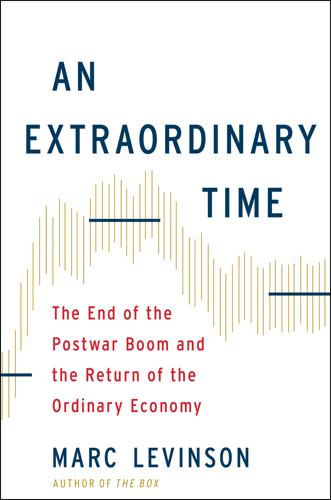
An Extraordinary Time: The End of the Postwar Boom and the Return of the Ordinary Economy
by
Marc Levinson
Published 31 Jul 2016
And what if US natural gas reserves were so depleted that deregulation failed to stimulate new production? In that case, Congress was warned, Americans’ heating bills would soar.15 Instead of abolishing regulation with a single big bang, Congress and four successive presidential administrations would vacillate, acting to encourage drilling while holding down consumer prices and assuring various interests, from farmers to transit systems to chemical manufacturers, that they would have enough energy. Although the National Energy Act, passed in 1978, supposedly deregulated energy prices, federal controls on natural gas prices would not fade away until the 1990s.
…
Born in 1915, the son of a Nottingham grocer, Richardson had become head boy at Nottingham High School, a prestigious independent boys’ school, and then won a scholarship to study law at Cambridge. After World War II, he climbed to prominence as a corporate lawyer at a London firm. He was recruited to join J. Henry Schroder & Co., one of the most venerable merchant banks in the City of London, and became chairman in 1962. Known for his immaculate appearance, his regal bearing, and his dry martinis made “the way they mix them in New York,” Richardson built the sleepy family-owned Schroders into the most international of financial institutions, handling mergers and takeover bids from America to Australia.
…
On the crisis, see Capie, Bank of England, 531–577; Michael Flanden, “Secondary banks: an end to freewheeling,” Financial Times, December 24, 1973; Margaret Reid, “How the ‘Bankers Lifeboat’ came to the rescue,” Financial Times, January 29, 1974; and Derek Matthews, “London and County Securities: A case study in audit and regulatory failure,” Accounting, Audit and Accountability Journal 18 (2005): 518–536. On legal authority, see the statement by Sir Geoffrey Howe, the minister responsible for fringe banks, in Hansard, House of Commons Debates, December 3, 1973, vol. 865, 909. 6. Paul Thompson, “The Pyrrhic Victory of Gentlemanly Capitalism: The Financial Elite of the City of London, 1945–90, Part 2,” Journal of Contemporary History 32 (1997): 433; Capie, Bank of England, 532, 596–597. 7. Capie, Bank of England, 499–507, 824. 8. Ibid., 605–614. 9. Otmar Emminger, “Probleme der Stabilitätspolitik,” address to the Association of Public Credit Institutions, Frankfurt, November 9, 1973, BA, B102/165947. 10.
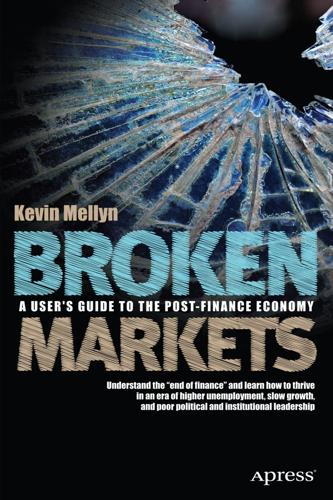
Broken Markets: A User's Guide to the Post-Finance Economy
by
Kevin Mellyn
Published 18 Jun 2012
Only after the end of exchange control in 1979 was it felt necessary to establish a formal system of regulation presided over by an independent organization—the Financial Services Authority (FSA)—in place of the Bank.This was part of the sweeping series of reforms called Big Bang that came into force in 1986. The old clubby culture of the City of London quickly collapsed as American institutions and practices took over much of UK banking. As a result, the UK financial system balance sheet grew to over five times GDP and came to drive the entire economy, especially greater London. In the wake of the 2008 crisis, which required two trillion-pound banking groups to be bailed out by the government, it is hard to believe that this was a good bargain for the UK taxpayer.
…
When the bubble was going strong, banks were making major investments in brick-and-mortar Main Street branches, creating jobs and real estate income. This can all go away very quickly. Download from Wow! eBook <www.wowebook.com> Distortion of Bank P & Ls and Balance Sheets Banking is often viewed by the uninformed as the very model and engine of capitalism, which is why critics of capitalism choose to occupy Wall Street and the City of London. Actually, banking has always been in many ways a creature of government and politics. Capitalism demands what the great Austrian economist Josef Schumpeter called “creative destruction.” When markets decide which firms deserve money and which don’t, the latter will fail; and along with the failure of firms, whole communities and thousands of workers may suffer real hardship.
…
Restriction of Financial Access When the first joint-stock banks (banks owned by shareholders) emerged in the United Kingdom nearly two centuries ago, the established banks were all private partnerships with unlimited liability (the one exception being the Bank of England, which was as a government-backed monopolist a de facto enemy of the privately owned banks and kept out of the clearinghouse). The joint-stock banks were also shunned by the clearinghouse run by the private banks, given their shocking business model: they opened branches where the general public, not just rich City of London merchants and brokers, could open accounts and make payments using checks. The fact that they were public companies allowed them to raise the capital needed to convince the public their money would be safe without unlimited liability and, of course, to put up 63 64 Chapter 3 | The Economic Consequences of Financial Regulation branches on every British High Street.The business proved insanely profitable by the estimates that Bagehot gave in Lombard Street, but banks were very choosy about who was a suitable customer, and they required substantial sums to open an account (the equivalent of three or four years income for the average UK subject).
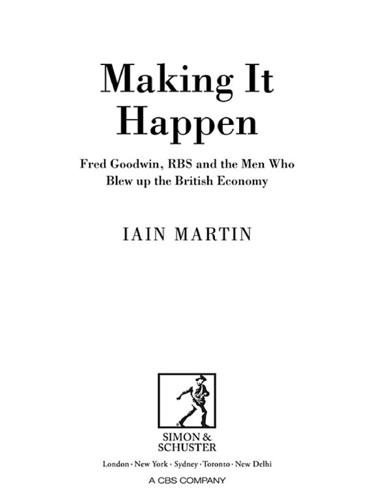
Making It Happen: Fred Goodwin, RBS and the Men Who Blew Up the British Economy
by
Iain Martin
Published 11 Sep 2013
Index (the initials FG in subentries refer to Fred Goodwin) ABN Amro, ref 1, ref 2, ref 3, ref 4, ref 5, ref 6, ref 7, ref 8, ref 9, ref 10 and low RBS liquidity, ref 1 Adam & Co., ref 1, ref 2 Agnew, Jonathan, ref 1 AIG, ref 1 Alemany, Ellen, ref 1 Allan, Iain, ref 1, ref 2, ref 3, ref 4, ref 5, ref 6, ref 7 and CDOs, ref 1, ref 2, ref 3, ref 4 Antonveneta, ref 1 Argus, Don, ref 1 Argyll, 2nd Duke of, ref 1 Armitstead, Louise, ref 1 Arsenal FC, ref 1 Arthur Andersen, ref 1, ref 2 asset-backed securities (ABSs), ref 1, ref 2 AstraZeneca, ref 1, ref 2 Aviva, ref 1 Ayr Bank, ref 1, ref 2 BAA, ref 1 Bailey, Andrew, ref 1, ref 2, ref 3 Bailie Gifford, ref 1 Balfour Beatty, ref 1 Balls, Ed, ref 1, ref 2, ref 3 Bank of America, ref 1 Merrill Lynch sold to, ref 1 Bank Bosses are Criminals, ref 1 Bank of China, ref 1, ref 2 Bank of Credit and Commerce International (BCCI), ref 1, ref 2, ref 3 Bank of England: and banking supervision, see banks: regulation of; Financial Services Authority and County NatWest, ref 1 culpability of, ref 1 Darling reassurance to RBS concerning, ref 1 founding of, ref 1, ref 2 Gieve role in, ref 1 house prices ignored by, ref 1 independence of, ref 1, ref 2, ref 3, ref 4, ref 5 King becomes governor of, ref 1, ref 2 Monetary Policy Committee of, ref 1, ref 2, ref 3 and RBS collapse, ref 1, ref 2 and RBS privatisation, ref 1 and Scottish banks’ own notes, ref 1 and tripartite regulation, ref 1, ref 2, ref 3, ref 4, ref 5; see also Financial Services Authority Bank of Scotland, ref 1, ref 2, ref 3, ref 4, ref 5, ref 6 founding of, ref 1, ref 2 as joint stock-bank, ref 1 modern British banking pioneered by, ref 1 national networks developed by, ref 1 and NatWest, ref 1, ref 2, ref 3, ref 4, ref 5 RBS early rivalry with, ref 1 ‘sues for peace’, ref 1 Whigs distrust, ref 1 see also Halifax; HBOS bankers: accountants versus, ref 1 ‘“canny” Scottish’, ref 1 Labour honours and ennobles, ref 1 large remuneration of, ref 1, ref 2, ref 3, ref 4, ref 5, ref 6, ref 7, ref 8, ref 9, ref 10, ref 11, ref 12, ref 13 prosecution avoided by, ref 1 banks: auditing of, ref 1; see also banks: regulation/supervision of bailouts of, ref 1, ref 2, ref 3, ref 4, ref 5 passim, ref 1 and Basel regulation, ref 1 and Big Bang, ref 1, ref 2, ref 3, ref 4 Brown wish for competition among, ref 1 Darling promises support for, ref 1 Darling meeting with CEOs of, ref 1 deregulation of, ref 1 foreign investment, presence of, in UK, ref 1 globalised nature of, ref 1 growing profits of, ref 1 innovative activities embraced by, ref 1; see also individual banks and interest rates, ref 1, ref 2, ref 3, ref 4, ref 5 lighter scrutiny of, ref 1; see also Financial Services Authority more credit offered by, ref 1 proposed ring fence for, ref 1, ref 2 regulation/supervision of, ref 1, ref 2, ref 3; see also banks: auditing of; Basel; Financial Services Authority reluctance of, to deal with RBS, ref 1 remodelling of, ref 1 revelations about conduct of, ref 1 ‘too big to fail’, ref 1 tripartite regulation of, ref 1, ref 2, ref 3, ref 4, ref 5; see also Basel; Financial Services Authority UK, balance sheets of, ref 1, ref 2, ref 3, ref 4 UK, clearing, balance sheets of (since 1960), ref 1 UK, growth of, ref 1 UK, steady fall in number of, ref 1 and Value at Risk (VaR), ref 1, ref 2 see also City of London Banque de France, ref 1 Barclays, ref 1, ref 2, ref 3, ref 4, ref 5, ref 6, ref 7, ref 8, ref 9 and ABN Amro, ref 1, ref 2, ref 3, ref 4, ref 5, ref 6, ref 7, ref 8 FG hates, ref 1 fines paid by, ref 1 growing profits of, ref 1 Barclays Capital, ref 1, ref 2 Barings, ref 1, ref 2 Basel, ref 1 Bear Stearns, ref 1 Better Regulation Action Plan, ref 1 see also banks: regulation of Better Regulation Task Force, ref 1 Big Bang, ref 1, ref 2, ref 3, ref 4, ref 5 Birmingham and Midshires, ref 1 Black, Joseph, ref 1 Blair, Cherie, ref 1 Blair, Tony, ref 1, ref 2, ref 3 and 1997 election, ref 1 and bank regulation, ref 1 bankers fêted by, ref 1 Brown wants to oust, ref 1 FG Chequers meal with, ref 1 and Gaddafi, ref 1 leadership won by, ref 1 Blank, Victor, ref 1 Bloomberg, ref 1 Blue Arrow affair, ref 1 Blunkett, David, ref 1 BNP Paribas, ref 1, ref 2 boom and bust, ‘end’ of, ref 1, ref 2, ref 3, ref 4, ref 5 Botín, Emilio, ref 1, ref 2, ref 3, ref 4 BP, ref 1 Bradford & Bingley, ref 1, ref 2 Braveheart, ref 1, ref 2, ref 3 Briault, Clive, ref 1, ref 2 Brown, Andrew, ref 1 Brown, Gordon, ref 1, ref 2 passim and 1997 election, ref 1 ‘appalled’ by RBS crisis, ref 1 and bank bailouts, ref 1, ref 2, ref 3 and bank regulation, ref 1, ref 2, ref 3 bankers fêted by, ref 1 becomes Chancellor, ref 1 and BoE independence, ref 1, ref 2, ref 3 boom–bust conference speech of, ref 1 and boom and bust, ‘end’ of, ref 1, ref 2, ref 3, ref 4, ref 5 Chancellorship aspirations of, ref 1 Darling joint press conference with, ref 1 economic growth under, ref 1 father influence on, ref 1 FG compared to, ref 1 and Greenspan, see Greenspan, Alan house prices rise under, ref 1 and interest-rate control, ref 1, ref 2 King relationships with, ref 1 last Mansion House speech of, ref 1 leadership bid lost by, ref 1 and Lloyds–HBOS, ref 1 RBS bailout announced by, ref 1, ref 2 and RBS collapse, ref 1, ref 2 Smith influence on, ref 1 and socialism, ref 1 at university, ref 1 and US politics, ref 1, ref 2 Brown, John, ref 1 Brown, John Ebenezer, ref 1, ref 2 Buccleuch, Duke of, ref 1 Buchan, Colin, ref 1, ref 2, ref 3, ref 4, ref 5 Buffet, Warren, ref 1 Burlington Resources, ref 1 Burns, Robert, ref 1 Burns, Terry, ref 1 Burnside, Howard, ref 1 Burt, Peter, ref 1, ref 2, ref 3, ref 4, ref 5, ref 6 Bush, George H.W., ref 1, ref 2 Bush, George W., ref 1, ref 2, ref 3 Bush, Laura, ref 1 Butler, Lord, ref 1 Cable, Vince, ref 1 Caledonia, naming of, ref 1 Cameron, Donald, ref 1 Cameron, Johnny, ref 1, ref 2, ref 3, ref 4, ref 5, ref 6, ref 7 passim, ref 1, ref 2, ref 3, ref 4, ref 5, ref 6, ref 7, ref 8, ref 9 passim, ref 1, ref 2, ref 3, ref 4, ref 5, ref 6, ref 7 and ABN Amro, ref 1, ref 2, ref 3, ref 4 FG stands by, ref 1 FSA investigates, ref 1, ref 2 at Gogarburn opening, ref 1 and hedging exposure, ref 1 and worsening liquidity situation, ref 1 Camerons of Locheal, ref 1, ref 2, ref 3, ref 4 Campbell, Archibald, see Ilay, Earl of Campbell, John, ref 1, ref 2, ref 3 Canary Wharf, ref 1 Caplan, Rick, ref 1, ref 2, ref 3, ref 4, ref 5 Carpenter, Ben, ref 1, ref 2, ref 3 Charles, Prince of Wales, ref 1, ref 2, ref 3 Charter One, ref 1, ref 2 Chase, ref 1 Chirac, Jacques, ref 1 Chisholm, Andy, ref 1 Churchill, ref 1, ref 2 Churchill, Winston, ref 1 Cicutto, Frank, ref 1, ref 2, ref 3 Citibank, ref 1 Citigroup, ref 1, ref 2, ref 3 Citizens Bank, ref 1, ref 2, ref 3, ref 4, ref 5, ref 6, ref 7, ref 8, ref 9, ref 10, ref 11, ref 12 and Mellon, ref 1 new CEO for, ref 1 City of Glasgow Bank, ref 1 City of London, ref 1, ref 2, ref 3, ref 4, ref 5, ref 6, ref 7, ref 8, ref 9, ref 10, ref 11, ref 12, ref 13, ref 14, ref 15 modernisation of, ref 1 see also banks Clarke, Charles, ref 1 Clarke, Ken, ref 1 Clinton, Bill, ref 1, ref 2, ref 3 Clydesdale Bank, ref 1, ref 2, ref 3, ref 4, ref 5 away days of, ref 1 celebrations at, as FG leaves, ref 1 FG becomes CEO of, ref 1 Cochrane, Alan, ref 1 Cole-Hamilton, Richard, ref 1 Coleman, David, ref 1, ref 2 collateralised debt obligations (CDOs), ref 1, ref 2, ref 3, ref 4, ref 5, ref 6, ref 7, ref 8, ref 9, ref 10, ref 11 index of, ref 1 varieties of, ref 1 see also sub-prime mortgages Commonwealth Bancorp, ref 1 Community Bancorp, ref 1 Compagnie Bancaire, ref 1 Company of Scotland, ref 1 founding of, ref 1 ‘Competition in UK Banking’, ref 1 Connolly, John, ref 1, ref 2, ref 3, ref 4, ref 5 ConocoPhillips, ref 1 Conservatives, see Tories consumer debt, ref 1 Conti, Tom, ref 1 Cooper, Yvette, ref 1, ref 2 Corbett, R.Y., ref 1 Cornwall, Duchess of, ref 1 Countrywide Financial, ref 1 County NatWest, ref 1, ref 2 Coutts, ref 1, ref 2, ref 3, ref 4, ref 5 Cox, Archie, ref 1 credit crunch, see financial crisis credit default swaps (CDSs), ref 1 Crosby, James, ref 1, ref 2, ref 3, ref 4, ref 5 knighthood lost by, ref 1 Crowe, Brian, ref 1, ref 2, ref 3, ref 4, ref 5, ref 6, ref 7, ref 8, ref 9, ref 10, ref 11, ref 12 and CDOs, ref 1 and hedging exposure, ref 1 moved to ABN Amro, ref 1 ordination of, ref 1, ref 2 withdrawn from ABN Amro, ref 1 and worsening liquidity situation, ref 1 Crowe, Russell, ref 1 Cruickshank, Don, ref 1 Crutchley, John-Paul, ref 1 Cryan, John, ref 1, ref 2 Cummings, Peter, FSA fines, ref 1 Cummins, John, ref 1 Currie, Jim, ref 1 Daily Telegraph, ref 1, ref 2 Daniels, Eric, ref 1 Darien Scheme, ref 1, ref 2, ref 3, ref 4 Caledonia emerges from, ref 1 Darling, Alistair, ref 1, ref 2 and bank bailouts, ref 1, ref 2, ref 3 banks’ CEOs meet with, ref 1 and Brown–George spat, ref 1 Brown joint press conference with, ref 1 at ECOFIN meeting, ref 1 and FG knighthood, ref 1 and FG pension, ref 1, ref 2, ref 3 FSA and BoE meet with, ref 1 at Gogarburn opening, ref 1 Goodwin meets (2007), ref 1 King follows plan of, ref 1 King relationships with, ref 1 memoirs of, ref 1 MPs briefed on financial crisis by, ref 1 RBS bailout announced by, ref 1, ref 2 and RBS collapse, ref 1 Treasury meeting called by, ref 1 UK banks supported by, ref 1 Darroch, Kim, ref 1 Davidson, Joanna, ref 1, ref 2 Davies, Howard, ref 1, ref 2 Davos, ref 1 de la Renta, Oscar, ref 1 deficit, sharp rise in, ref 1 Deloitte & Touche, ref 1, ref 2, ref 3, ref 4, ref 5, ref 6, ref 7 Deutsche Bank, ref 1, ref 2 Dewar, Donald, ref 1 Diamond, Bob, ref 1, ref 2, ref 3 forced out of post, ref 1 Dickinson, Alan, ref 1, ref 2, ref 3, ref 4, ref 5, ref 6, ref 7, ref 8, ref 9, ref 10, ref 11, ref 12, ref 13 Dime Bancorp, ref 1 Direct Line, ref 1, ref 2, ref 3 District Bank, ref 1 Dixon Motors, ref 1 Dixon, Paul, ref 1 Dixon, Simon, ref 1 dotcom bubble, ref 1 Dow Jones, ref 1 Drake-Brockman, Symon, ref 1 Dresdner Kleinwort Wasserstein, ref 1, ref 2 ‘Drivers for Growth’ conference, ref 1 Drummond Bank, ref 1, ref 2, ref 3 Dundas, Lawrence, ref 1 Dundee Banking Company, ref 1 Dutch Central Bank, ref 1 Duthie, Robin, ref 1 East India Company, ref 1 Economic and Financial Affairs Council (ECOFIN), ref 1, ref 2 Economist, ref 1, ref 2 Eden, James, ref 1, ref 2 Elizabeth II, ref 1, ref 2, ref 3, ref 4, ref 5, ref 6, ref 7 emerging economies, ref 1 Emirates Stadium, ref 1 Enron, ref 1, ref 2 Equitable Life, ref 1 Equivalent Company, ref 1 Ernst & Young, ref 1 euro, see single currency Exchange Rate Mechanism (ERM), ref 1, ref 2 ‘failure of the Royal Bank of Scotland, The’ (FSA), ref 1, ref 2 Fastow, Andy, ref 1 Federal Reserve, ref 1, ref 2, ref 3 Ferguson, Adam, ref 1 Ferguson, Alex, ref 1 Ferguson, William, ref 1 Ferrovial, ref 1 Fidelity, ref 1 Fildes, Christopher, ref 1 Financial Conduct Authority., ref 1 financial crisis: beginning of, ref 1 Darling updates Commons on, ref 1 government spending at start of, ref 1 insurers crack under weight of, ref 1 recessions follow, ref 1 spreads to UK high street, ref 1 studies and reports of, ref 1 Financial Services Authority (FSA), ref 1, ref 2, ref 3, ref 4, ref 5, ref 6, ref 7, ref 8, ref 9, ref 10, ref 11, ref 12 ‘Arrow’ reports of, ref 1 and auditors, ref 1 and RBS collapse, ref 1 RBS on watch-list of, ref 1 self-investigation by, ref 1 successors to, ref 1 and tripartite regulation, ref 1, ref 2, ref 3, ref 4, ref 5; see also Bank of England Financial Times, ref 1, ref 2 First Active, ref 1 Fish, Larry, ref 1, ref 2, ref 3, ref 4, ref 5, ref 6, ref 7, ref 8, ref 9 chairs RBS Americas, ref 1 criticised, ref 1 pension of, ref 1 Fisher, Mark, ref 1, ref 2, ref 3, ref 4, ref 5, ref 6, ref 7 at Gogarburn opening, ref 1 moved to ABN Amro, ref 1 Fitch Ratings, ref 1, ref 2 Fleming, Ian, ref 1 Fletcher, Andrew, ref 1 Forbes, ref 1 foreign exchange, ref 1, ref 2 Formula 1, ref 1, ref 2 Fortis, ref 1, ref 2, ref 3 Fountain Workshop, ref 1 Franklyn Resources, ref 1 Freshfields, ref 1 Friedrich, Bill, ref 1, ref 2 Fuld, Dick, ref 1 Gaddafi, Muammar, ref 1 Gartmore, ref 1 GE, ref 1 George II, ref 1 George, Eddie, ref 1, ref 2, ref 3, ref 4 Gibson, Mel, ref 1, ref 2 Gieve, John, ref 1 Giles, Chris, ref 1 Gladiator, ref 1 Glass–Steagall Act, ref 1 global financial crisis, see financial crisis Global Transaction Services, ref 1, ref 2 Glyn, Mills & Co., ref 1, ref 2 Goldman Sachs, ref 1, ref 2, ref 3, ref 4, ref 5, ref 6, ref 7, ref 8, ref 9 Goodwin, Andrew (brother), ref 1 Goodwin, Dale (sister), ref 1 Goodwin, Fred: affair of, ref 1, ref 2, ref 3, ref 4 after RBS, ref 1 and away days, ref 1, ref 2 bailout terms heard by, ref 1 Barclays hated by, ref 1 becomes Clydesdale CEO, ref 1 becomes RBS CEO, ref 1 birth of, ref 1 Brown compared to, ref 1 Brown likes, ref 1 Bush dinner guest, ref 1 and car dealership, ref 1 CDO presentation by, ref 1 at CEOs–Darling meeting, ref 1 at CEOs meeting, ref 1 Chequers invitation to, ref 1 ‘classic bully’, ref 1 cleanliness campaigns of, ref 1 at Clydesdale, see Clydesdale Bank colleagues testify to abilities of, ref 1 cult status of, ref 1 at Darling 2008 meeting, ref 1 Darling visited by (2007), ref 1 document criticises management of, ref 1 early life of, ref 1, ref 2 extraordinary general meeting appearance of, ref 1 face-to-face firing disliked by, ref 1, ref 2, ref 3 first job of, ref 1 fixation on detail by, ref 1, ref 2, ref 3, ref 4, ref 5, ref 6 and Forbes, ref 1 ‘Fred the Shred’ nickname of, ref 1, ref 2, ref 3, ref 4 and FSA, ref 1, ref 2 at Gogarburn opening, ref 1 Harvard study on, ref 1, ref 2 ‘has shut out the world’, ref 1 Hester view of, ref 1 ‘I want to be bigger than J.
…
Elsewhere, finance was being revolutionised. The so-called Big Bang, the radical deregulation introduced by Margaret Thatcher’s government in 1986, was designed to allow London to compete properly in a new age of international finance.4 Computerisation swept away the polite old world of the City with its sedate institutions operating, mostly, according to the motto of the Stock Exchange: ‘my word is my bond’, a promise that obscured considerable amounts of skulduggery and some insider trading, meaning trading on privileged information to which the general investor was not privy. With Big Bang, the traditional way in which stockbroking business had been conducted – on the floor of the exchange with buying and selling done verbally and on paper – was replaced by computer trading and various restrictive practices abolished.
…
Index (the initials FG in subentries refer to Fred Goodwin) ABN Amro, ref 1, ref 2, ref 3, ref 4, ref 5, ref 6, ref 7, ref 8, ref 9, ref 10 and low RBS liquidity, ref 1 Adam & Co., ref 1, ref 2 Agnew, Jonathan, ref 1 AIG, ref 1 Alemany, Ellen, ref 1 Allan, Iain, ref 1, ref 2, ref 3, ref 4, ref 5, ref 6, ref 7 and CDOs, ref 1, ref 2, ref 3, ref 4 Antonveneta, ref 1 Argus, Don, ref 1 Argyll, 2nd Duke of, ref 1 Armitstead, Louise, ref 1 Arsenal FC, ref 1 Arthur Andersen, ref 1, ref 2 asset-backed securities (ABSs), ref 1, ref 2 AstraZeneca, ref 1, ref 2 Aviva, ref 1 Ayr Bank, ref 1, ref 2 BAA, ref 1 Bailey, Andrew, ref 1, ref 2, ref 3 Bailie Gifford, ref 1 Balfour Beatty, ref 1 Balls, Ed, ref 1, ref 2, ref 3 Bank of America, ref 1 Merrill Lynch sold to, ref 1 Bank Bosses are Criminals, ref 1 Bank of China, ref 1, ref 2 Bank of Credit and Commerce International (BCCI), ref 1, ref 2, ref 3 Bank of England: and banking supervision, see banks: regulation of; Financial Services Authority and County NatWest, ref 1 culpability of, ref 1 Darling reassurance to RBS concerning, ref 1 founding of, ref 1, ref 2 Gieve role in, ref 1 house prices ignored by, ref 1 independence of, ref 1, ref 2, ref 3, ref 4, ref 5 King becomes governor of, ref 1, ref 2 Monetary Policy Committee of, ref 1, ref 2, ref 3 and RBS collapse, ref 1, ref 2 and RBS privatisation, ref 1 and Scottish banks’ own notes, ref 1 and tripartite regulation, ref 1, ref 2, ref 3, ref 4, ref 5; see also Financial Services Authority Bank of Scotland, ref 1, ref 2, ref 3, ref 4, ref 5, ref 6 founding of, ref 1, ref 2 as joint stock-bank, ref 1 modern British banking pioneered by, ref 1 national networks developed by, ref 1 and NatWest, ref 1, ref 2, ref 3, ref 4, ref 5 RBS early rivalry with, ref 1 ‘sues for peace’, ref 1 Whigs distrust, ref 1 see also Halifax; HBOS bankers: accountants versus, ref 1 ‘“canny” Scottish’, ref 1 Labour honours and ennobles, ref 1 large remuneration of, ref 1, ref 2, ref 3, ref 4, ref 5, ref 6, ref 7, ref 8, ref 9, ref 10, ref 11, ref 12, ref 13 prosecution avoided by, ref 1 banks: auditing of, ref 1; see also banks: regulation/supervision of bailouts of, ref 1, ref 2, ref 3, ref 4, ref 5 passim, ref 1 and Basel regulation, ref 1 and Big Bang, ref 1, ref 2, ref 3, ref 4 Brown wish for competition among, ref 1 Darling promises support for, ref 1 Darling meeting with CEOs of, ref 1 deregulation of, ref 1 foreign investment, presence of, in UK, ref 1 globalised nature of, ref 1 growing profits of, ref 1 innovative activities embraced by, ref 1; see also individual banks and interest rates, ref 1, ref 2, ref 3, ref 4, ref 5 lighter scrutiny of, ref 1; see also Financial Services Authority more credit offered by, ref 1 proposed ring fence for, ref 1, ref 2 regulation/supervision of, ref 1, ref 2, ref 3; see also banks: auditing of; Basel; Financial Services Authority reluctance of, to deal with RBS, ref 1 remodelling of, ref 1 revelations about conduct of, ref 1 ‘too big to fail’, ref 1 tripartite regulation of, ref 1, ref 2, ref 3, ref 4, ref 5; see also Basel; Financial Services Authority UK, balance sheets of, ref 1, ref 2, ref 3, ref 4 UK, clearing, balance sheets of (since 1960), ref 1 UK, growth of, ref 1 UK, steady fall in number of, ref 1 and Value at Risk (VaR), ref 1, ref 2 see also City of London Banque de France, ref 1 Barclays, ref 1, ref 2, ref 3, ref 4, ref 5, ref 6, ref 7, ref 8, ref 9 and ABN Amro, ref 1, ref 2, ref 3, ref 4, ref 5, ref 6, ref 7, ref 8 FG hates, ref 1 fines paid by, ref 1 growing profits of, ref 1 Barclays Capital, ref 1, ref 2 Barings, ref 1, ref 2 Basel, ref 1 Bear Stearns, ref 1 Better Regulation Action Plan, ref 1 see also banks: regulation of Better Regulation Task Force, ref 1 Big Bang, ref 1, ref 2, ref 3, ref 4, ref 5 Birmingham and Midshires, ref 1 Black, Joseph, ref 1 Blair, Cherie, ref 1 Blair, Tony, ref 1, ref 2, ref 3 and 1997 election, ref 1 and bank regulation, ref 1 bankers fêted by, ref 1 Brown wants to oust, ref 1 FG Chequers meal with, ref 1 and Gaddafi, ref 1 leadership won by, ref 1 Blank, Victor, ref 1 Bloomberg, ref 1 Blue Arrow affair, ref 1 Blunkett, David, ref 1 BNP Paribas, ref 1, ref 2 boom and bust, ‘end’ of, ref 1, ref 2, ref 3, ref 4, ref 5 Botín, Emilio, ref 1, ref 2, ref 3, ref 4 BP, ref 1 Bradford & Bingley, ref 1, ref 2 Braveheart, ref 1, ref 2, ref 3 Briault, Clive, ref 1, ref 2 Brown, Andrew, ref 1 Brown, Gordon, ref 1, ref 2 passim and 1997 election, ref 1 ‘appalled’ by RBS crisis, ref 1 and bank bailouts, ref 1, ref 2, ref 3 and bank regulation, ref 1, ref 2, ref 3 bankers fêted by, ref 1 becomes Chancellor, ref 1 and BoE independence, ref 1, ref 2, ref 3 boom–bust conference speech of, ref 1 and boom and bust, ‘end’ of, ref 1, ref 2, ref 3, ref 4, ref 5 Chancellorship aspirations of, ref 1 Darling joint press conference with, ref 1 economic growth under, ref 1 father influence on, ref 1 FG compared to, ref 1 and Greenspan, see Greenspan, Alan house prices rise under, ref 1 and interest-rate control, ref 1, ref 2 King relationships with, ref 1 last Mansion House speech of, ref 1 leadership bid lost by, ref 1 and Lloyds–HBOS, ref 1 RBS bailout announced by, ref 1, ref 2 and RBS collapse, ref 1, ref 2 Smith influence on, ref 1 and socialism, ref 1 at university, ref 1 and US politics, ref 1, ref 2 Brown, John, ref 1 Brown, John Ebenezer, ref 1, ref 2 Buccleuch, Duke of, ref 1 Buchan, Colin, ref 1, ref 2, ref 3, ref 4, ref 5 Buffet, Warren, ref 1 Burlington Resources, ref 1 Burns, Robert, ref 1 Burns, Terry, ref 1 Burnside, Howard, ref 1 Burt, Peter, ref 1, ref 2, ref 3, ref 4, ref 5, ref 6 Bush, George H.W., ref 1, ref 2 Bush, George W., ref 1, ref 2, ref 3 Bush, Laura, ref 1 Butler, Lord, ref 1 Cable, Vince, ref 1 Caledonia, naming of, ref 1 Cameron, Donald, ref 1 Cameron, Johnny, ref 1, ref 2, ref 3, ref 4, ref 5, ref 6, ref 7 passim, ref 1, ref 2, ref 3, ref 4, ref 5, ref 6, ref 7, ref 8, ref 9 passim, ref 1, ref 2, ref 3, ref 4, ref 5, ref 6, ref 7 and ABN Amro, ref 1, ref 2, ref 3, ref 4 FG stands by, ref 1 FSA investigates, ref 1, ref 2 at Gogarburn opening, ref 1 and hedging exposure, ref 1 and worsening liquidity situation, ref 1 Camerons of Locheal, ref 1, ref 2, ref 3, ref 4 Campbell, Archibald, see Ilay, Earl of Campbell, John, ref 1, ref 2, ref 3 Canary Wharf, ref 1 Caplan, Rick, ref 1, ref 2, ref 3, ref 4, ref 5 Carpenter, Ben, ref 1, ref 2, ref 3 Charles, Prince of Wales, ref 1, ref 2, ref 3 Charter One, ref 1, ref 2 Chase, ref 1 Chirac, Jacques, ref 1 Chisholm, Andy, ref 1 Churchill, ref 1, ref 2 Churchill, Winston, ref 1 Cicutto, Frank, ref 1, ref 2, ref 3 Citibank, ref 1 Citigroup, ref 1, ref 2, ref 3 Citizens Bank, ref 1, ref 2, ref 3, ref 4, ref 5, ref 6, ref 7, ref 8, ref 9, ref 10, ref 11, ref 12 and Mellon, ref 1 new CEO for, ref 1 City of Glasgow Bank, ref 1 City of London, ref 1, ref 2, ref 3, ref 4, ref 5, ref 6, ref 7, ref 8, ref 9, ref 10, ref 11, ref 12, ref 13, ref 14, ref 15 modernisation of, ref 1 see also banks Clarke, Charles, ref 1 Clarke, Ken, ref 1 Clinton, Bill, ref 1, ref 2, ref 3 Clydesdale Bank, ref 1, ref 2, ref 3, ref 4, ref 5 away days of, ref 1 celebrations at, as FG leaves, ref 1 FG becomes CEO of, ref 1 Cochrane, Alan, ref 1 Cole-Hamilton, Richard, ref 1 Coleman, David, ref 1, ref 2 collateralised debt obligations (CDOs), ref 1, ref 2, ref 3, ref 4, ref 5, ref 6, ref 7, ref 8, ref 9, ref 10, ref 11 index of, ref 1 varieties of, ref 1 see also sub-prime mortgages Commonwealth Bancorp, ref 1 Community Bancorp, ref 1 Compagnie Bancaire, ref 1 Company of Scotland, ref 1 founding of, ref 1 ‘Competition in UK Banking’, ref 1 Connolly, John, ref 1, ref 2, ref 3, ref 4, ref 5 ConocoPhillips, ref 1 Conservatives, see Tories consumer debt, ref 1 Conti, Tom, ref 1 Cooper, Yvette, ref 1, ref 2 Corbett, R.Y., ref 1 Cornwall, Duchess of, ref 1 Countrywide Financial, ref 1 County NatWest, ref 1, ref 2 Coutts, ref 1, ref 2, ref 3, ref 4, ref 5 Cox, Archie, ref 1 credit crunch, see financial crisis credit default swaps (CDSs), ref 1 Crosby, James, ref 1, ref 2, ref 3, ref 4, ref 5 knighthood lost by, ref 1 Crowe, Brian, ref 1, ref 2, ref 3, ref 4, ref 5, ref 6, ref 7, ref 8, ref 9, ref 10, ref 11, ref 12 and CDOs, ref 1 and hedging exposure, ref 1 moved to ABN Amro, ref 1 ordination of, ref 1, ref 2 withdrawn from ABN Amro, ref 1 and worsening liquidity situation, ref 1 Crowe, Russell, ref 1 Cruickshank, Don, ref 1 Crutchley, John-Paul, ref 1 Cryan, John, ref 1, ref 2 Cummings, Peter, FSA fines, ref 1 Cummins, John, ref 1 Currie, Jim, ref 1 Daily Telegraph, ref 1, ref 2 Daniels, Eric, ref 1 Darien Scheme, ref 1, ref 2, ref 3, ref 4 Caledonia emerges from, ref 1 Darling, Alistair, ref 1, ref 2 and bank bailouts, ref 1, ref 2, ref 3 banks’ CEOs meet with, ref 1 and Brown–George spat, ref 1 Brown joint press conference with, ref 1 at ECOFIN meeting, ref 1 and FG knighthood, ref 1 and FG pension, ref 1, ref 2, ref 3 FSA and BoE meet with, ref 1 at Gogarburn opening, ref 1 Goodwin meets (2007), ref 1 King follows plan of, ref 1 King relationships with, ref 1 memoirs of, ref 1 MPs briefed on financial crisis by, ref 1 RBS bailout announced by, ref 1, ref 2 and RBS collapse, ref 1 Treasury meeting called by, ref 1 UK banks supported by, ref 1 Darroch, Kim, ref 1 Davidson, Joanna, ref 1, ref 2 Davies, Howard, ref 1, ref 2 Davos, ref 1 de la Renta, Oscar, ref 1 deficit, sharp rise in, ref 1 Deloitte & Touche, ref 1, ref 2, ref 3, ref 4, ref 5, ref 6, ref 7 Deutsche Bank, ref 1, ref 2 Dewar, Donald, ref 1 Diamond, Bob, ref 1, ref 2, ref 3 forced out of post, ref 1 Dickinson, Alan, ref 1, ref 2, ref 3, ref 4, ref 5, ref 6, ref 7, ref 8, ref 9, ref 10, ref 11, ref 12, ref 13 Dime Bancorp, ref 1 Direct Line, ref 1, ref 2, ref 3 District Bank, ref 1 Dixon Motors, ref 1 Dixon, Paul, ref 1 Dixon, Simon, ref 1 dotcom bubble, ref 1 Dow Jones, ref 1 Drake-Brockman, Symon, ref 1 Dresdner Kleinwort Wasserstein, ref 1, ref 2 ‘Drivers for Growth’ conference, ref 1 Drummond Bank, ref 1, ref 2, ref 3 Dundas, Lawrence, ref 1 Dundee Banking Company, ref 1 Dutch Central Bank, ref 1 Duthie, Robin, ref 1 East India Company, ref 1 Economic and Financial Affairs Council (ECOFIN), ref 1, ref 2 Economist, ref 1, ref 2 Eden, James, ref 1, ref 2 Elizabeth II, ref 1, ref 2, ref 3, ref 4, ref 5, ref 6, ref 7 emerging economies, ref 1 Emirates Stadium, ref 1 Enron, ref 1, ref 2 Equitable Life, ref 1 Equivalent Company, ref 1 Ernst & Young, ref 1 euro, see single currency Exchange Rate Mechanism (ERM), ref 1, ref 2 ‘failure of the Royal Bank of Scotland, The’ (FSA), ref 1, ref 2 Fastow, Andy, ref 1 Federal Reserve, ref 1, ref 2, ref 3 Ferguson, Adam, ref 1 Ferguson, Alex, ref 1 Ferguson, William, ref 1 Ferrovial, ref 1 Fidelity, ref 1 Fildes, Christopher, ref 1 Financial Conduct Authority., ref 1 financial crisis: beginning of, ref 1 Darling updates Commons on, ref 1 government spending at start of, ref 1 insurers crack under weight of, ref 1 recessions follow, ref 1 spreads to UK high street, ref 1 studies and reports of, ref 1 Financial Services Authority (FSA), ref 1, ref 2, ref 3, ref 4, ref 5, ref 6, ref 7, ref 8, ref 9, ref 10, ref 11, ref 12 ‘Arrow’ reports of, ref 1 and auditors, ref 1 and RBS collapse, ref 1 RBS on watch-list of, ref 1 self-investigation by, ref 1 successors to, ref 1 and tripartite regulation, ref 1, ref 2, ref 3, ref 4, ref 5; see also Bank of England Financial Times, ref 1, ref 2 First Active, ref 1 Fish, Larry, ref 1, ref 2, ref 3, ref 4, ref 5, ref 6, ref 7, ref 8, ref 9 chairs RBS Americas, ref 1 criticised, ref 1 pension of, ref 1 Fisher, Mark, ref 1, ref 2, ref 3, ref 4, ref 5, ref 6, ref 7 at Gogarburn opening, ref 1 moved to ABN Amro, ref 1 Fitch Ratings, ref 1, ref 2 Fleming, Ian, ref 1 Fletcher, Andrew, ref 1 Forbes, ref 1 foreign exchange, ref 1, ref 2 Formula 1, ref 1, ref 2 Fortis, ref 1, ref 2, ref 3 Fountain Workshop, ref 1 Franklyn Resources, ref 1 Freshfields, ref 1 Friedrich, Bill, ref 1, ref 2 Fuld, Dick, ref 1 Gaddafi, Muammar, ref 1 Gartmore, ref 1 GE, ref 1 George II, ref 1 George, Eddie, ref 1, ref 2, ref 3, ref 4 Gibson, Mel, ref 1, ref 2 Gieve, John, ref 1 Giles, Chris, ref 1 Gladiator, ref 1 Glass–Steagall Act, ref 1 global financial crisis, see financial crisis Global Transaction Services, ref 1, ref 2 Glyn, Mills & Co., ref 1, ref 2 Goldman Sachs, ref 1, ref 2, ref 3, ref 4, ref 5, ref 6, ref 7, ref 8, ref 9 Goodwin, Andrew (brother), ref 1 Goodwin, Dale (sister), ref 1 Goodwin, Fred: affair of, ref 1, ref 2, ref 3, ref 4 after RBS, ref 1 and away days, ref 1, ref 2 bailout terms heard by, ref 1 Barclays hated by, ref 1 becomes Clydesdale CEO, ref 1 becomes RBS CEO, ref 1 birth of, ref 1 Brown compared to, ref 1 Brown likes, ref 1 Bush dinner guest, ref 1 and car dealership, ref 1 CDO presentation by, ref 1 at CEOs–Darling meeting, ref 1 at CEOs meeting, ref 1 Chequers invitation to, ref 1 ‘classic bully’, ref 1 cleanliness campaigns of, ref 1 at Clydesdale, see Clydesdale Bank colleagues testify to abilities of, ref 1 cult status of, ref 1 at Darling 2008 meeting, ref 1 Darling visited by (2007), ref 1 document criticises management of, ref 1 early life of, ref 1, ref 2 extraordinary general meeting appearance of, ref 1 face-to-face firing disliked by, ref 1, ref 2, ref 3 first job of, ref 1 fixation on detail by, ref 1, ref 2, ref 3, ref 4, ref 5, ref 6 and Forbes, ref 1 ‘Fred the Shred’ nickname of, ref 1, ref 2, ref 3, ref 4 and FSA, ref 1, ref 2 at Gogarburn opening, ref 1 Harvard study on, ref 1, ref 2 ‘has shut out the world’, ref 1 Hester view of, ref 1 ‘I want to be bigger than J.
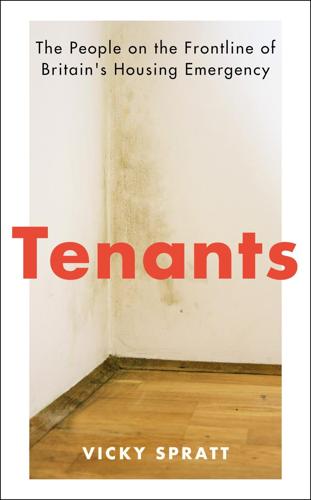
Tenants: The People on the Frontline of Britain's Housing Emergency
by
Vicky Spratt
Published 18 May 2022
Later, interventions such as George Osborne and David Cameron’s Help to Buy scheme, ostensibly designed to help this group by getting credit to first-time buyers, appear to have inflated house prices further. 3. Increased Availability of Credit, Particularly for Landlords While social housing was diminishing, in 1986 our financial services sector was experiencing large-scale deregulation known as the ‘Big Bang’. Throughout the 1980s, mortgages became more accessible and interest rates were high (reaching 18.63 per cent in the week of 9 October 1981), making lending to people so they could buy homes a lucrative business for banks. People’s wages were rising at the same time as regulations were relaxed: buyers didn’t need big deposits (the average loan-to-value ratio was about 94 per cent), and you no longer had to prove you could save before you could borrow.
…
In areas where there were high numbers of coronavirus cases, there were also high levels of unaffordable housing. At the time, the Joseph Rowntree Foundation (JRF), an independent charity which works to end poverty, found that private renters in these places – large areas of London such as Lambeth, Wandsworth, Westminster, Tower Hamlets, Hackney, the City of London, Kensington and Chelsea, Hammersmith and Fulham, Islington, Haringey and Camden, for example – faced significantly higher than average rents as well as higher than average rates of child poverty and temporary accommodation. The cap on LHA meant that renters in those areas who had, until then, just about managed their expensive rents would not be adequately protected if their self-employed or zero-hours income dropped due to sickness or they lost their job because of the economic turbulence – LHA, even with the pandemic increase, would still not cover even the cheapest rents in those areas.
…
The act was a seismic event and a catalyst for much of what has happened since. Private renters were now less protected than they had been for decades, and the stage was set for the rise of the all-powerful buy-to-let landlord when high loan-to-income mortgages were introduced in the 1990s and 2000s. Of particular significance and hot on the heels of the Big Bang in 1986, new buy-to-let mortgages assessed buyers’ creditworthiness on the rental yield for the property rather than on their existing income. The buy-to-let market became a public casino in which anyone with a deposit and a buy-to-let mortgage could gamble. It wasn’t all Thatcher’s fault: for a long time landlords were even able to claim mortgage interest relief; this wasn’t scrapped until the late 2010s.
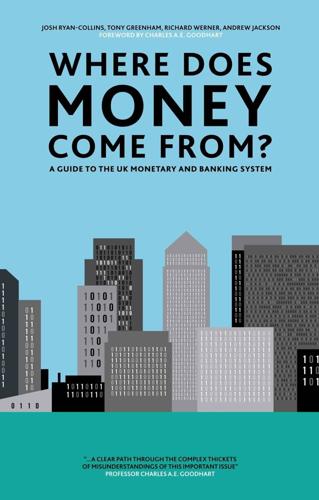
Where Does Money Come From?: A Guide to the UK Monetary & Banking System
by
Josh Ryan-Collins
,
Tony Greenham
,
Richard Werner
and
Andrew Jackson
Published 14 Apr 2012
UK Conservative finance ministers Geoffrey Howe and Nigel Lawson oversaw the abolition of all controls over consumer credit together with the deregulation of housing finance in the ‘Big Bang’ reforms of 1986.109 Compulsory liquidity reserve ratios were gradually reduced from the 12.5 per cent set in 1971, until eventually they were made voluntary (Figure 8). The next credit boom ensued, resulting in banking problems by the end of the 1980s. A review of the arguments at the time makes clear that the theoretical support for such deregulation was based on the unrealistic assumptions of neoclassical theoretical economics, in which banks also perform no unique function and are classified as mere financial intermediaries just like stockbrokers.
…
We would argue that there is not a problem with noncompounding interest when it genuinely represents the lost opportunity cost of not having a resource (in this case money). But in the case of fractional reserve banking, as we have seen, there is no loss of resource by the bank when it makes a loan – no money is being taken from anywhere else. For a useful guide to the historical use of interest see Pettifor (2006)73 * The City of London Corporation, the municipal authority for London’s financial district, has unusual powers to this day, often expressed in ceremonial oddities such as the granting of ‘permission’ from the Lord Mayor for the Queen to cross the City boundaries, as well as unique features of more practical importance such as the ability of corporations and partnerships to vote in elections; its own police and the power to amend its own constitution.
…
Figure 7: UK money supply, 1964-2011: Broad money (M4) and Base money Notes: Total stock of M4, Central Bank Reserves and Notes and Coins adjusted for inflation (the Retail Price Index), and shown in 2012 prices. Source: Bank of England100and authors’ calculations 3.6.3. Deregulation of the banking sector in the 1970s and 1980s The period from the late 1960s until the present day saw the gradual deregulation of banking and credit both on an international and national scale. Much of the theoretical support for such deregulation was based on an analysis that thought of banks as mere financial intermediaries, as described in Chapter 2, Section 2.3 and which neglected their crucial function as creators of the money supply.
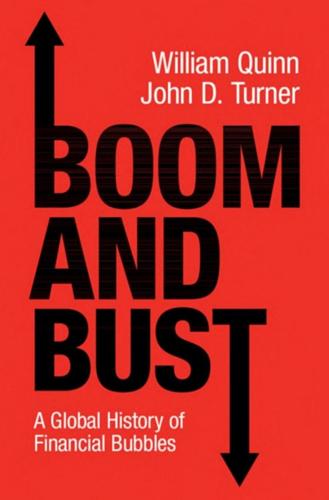
Boom and Bust: A Global History of Financial Bubbles
by
William Quinn
and
John D. Turner
Published 5 Aug 2020
‘Wilks, John’ in Oxford Dictionary of National Biography, Oxford: Oxford University Press, 2004. Davis, A. M., ‘An historical study of Law’s system (1887)’ in R. B. Emmett (ed.), Great Bubbles, Vol. II, London: Pickering and Chatto, 2000. Davison, G. The Rise and Fall of Marvellous Melbourne. Melbourne University Press, 1978. Dawson, F. G. The First Latin American Debt Crisis: The City of London and the 1822–25 Loan Bubble, New Haven, CT: Yale University Press, 1990. 265 BIBLIOGRAPHY Day, H. A Defence of Joint Stock Companies; Being An Attempt to Shew Their Legality, Expediency, and Public Benefit, London: Longman, Hurst, Rees and Orme, 1808. De Tocqueville, A. Democracy in America, New York: Penguin, 2004 [1835].
…
House of Debt: How They (and You) Caused the Great Recession, and How We Can Prevent It from Happening Again, University of Chicago Press, 2014. Mian, A. and Sufi, A. ‘The consequences of mortgage credit expansion: evidence from the U.S. mortgage default crisis, Quarterly Journal of Economics, 124, 1,449– 96, 2009. Michie, R. C. Guilty Money: The City of London in Victorian and Edwardian Culture, 1815–1914, London: Pickering and Chatto, 2009. 274 BIBLIOGRAPHY Michie, R. C. Money, Mania and Markets: Investment, Company Formation and the Stock Exchange in Nineteenth-Century Scotland, Edinburgh: John Donald Publishers, 1981. Michie, R. C. The London Stock Exchange: A History, Oxford University Press, 2001.
…
For example, governments can lower interest rates or increase the money supply, thus ensuring that the public have sufficient funds to invest in the bubble. They may pursue financial deregulation, allowing banks to lend more money on less restrictive terms, thereby increasing the amount of credit. An extension of credit can allow more investors to buy into the bubble on leverage, encouraging them to engage in more speculation. Financial deregulation may also make it easier to buy and sell the assets involved in the bubble, increasing their marketability. Why do bubbles end? One obvious reason is that they run out of fuel.
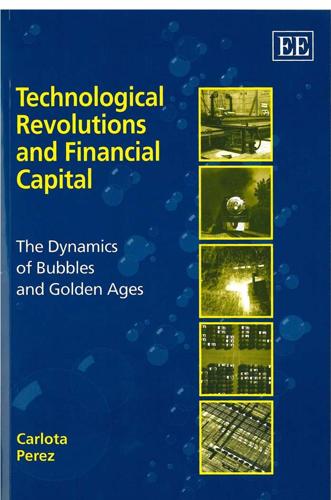
Technological Revolutions and Financial Capital: The Dynamics of Bubbles and Golden Ages
by
Carlota Pérez
Published 1 Jan 2002
The investment boom that brought the English and the Germans to build railways and ports and to develop the huge expanses of ‘pampas’ created a situation very comparable to the recent Asian boom. The international stock market was awash with stocks and bonds to profit from the South American success story. The City of London even thought Argentina would be the next USA.148 After the crash, it took the Argentinians nearly a decade to half get back on their feet, though the British Central Bank had bailed the Baring Brothers out right away.149 Though it is more complex, an argument could be made to interpret the case of the USA in the 1820s and 1830s as a phenomenon of the same kind.
…
The recession creates the conditions for institutional restructuring and for re-routing growth onto a sustainable path. 36 The Propagation of Paradigms: Times of Installation, Times of Deployment Degree of diffusion of the technological revolution Figure 4.1 37 Two different periods in each great surge INSTALLATION PERIOD Turning point DEPLOYMENT PERIOD Time big-bang Next big-bang This chapter takes a broad look at the interrelated technological, economic and institutional changes involved in the process. A. Creative Destruction and Social Polarization Schumpeter’s notion of ‘creative destruction’ aptly portrays the effects of radical innovations. When the core products of a technological revolution start coming together, they inevitably clash with the established environment and the ingrained ways of doing things.
…
In the next chapter, there will be a brief discussion of what happens in the peripheries and how it contributes to blur the regularities being depicted here. 47 Figure 5.1 Degree of diffusion of the technological revolution 48 big-bang Irruption of the technological revolution Decline of old industries Unemployment Crash Institutional recomposition Intensive investment in the revolution Decoupling of the whole system Polarization of rich and poor Gilded Age Golden Age Coherent growth with increasing externalities Production and employment Next big-bang Time Next Great Surge Socio-political split Last products and industries Market saturation and technological maturity of main industries Disappointment vs. complacency MATURITY DEPLOYMENT PERIOD SYNERGY Turning point Financial bubble time FRENZY Techno-economic split IRRUPTION Previous Great Surge INSTALLATION PERIOD Recurring phases of each great surge in the core countries 48 Technological Revolutions and Financial Capital The Four Basic Phases of Each Surge of Development 49 Before going on, it should be clear that what is being constructed is a heuristic device, not a straitjacket to force upon history.
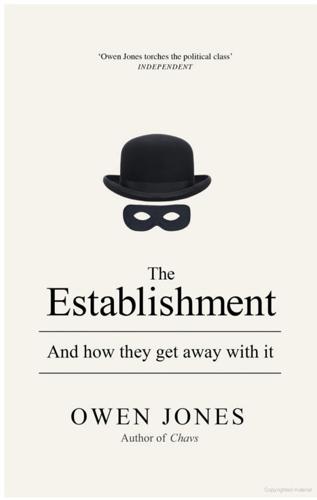
The Establishment: And How They Get Away With It
by
Owen Jones
Published 3 Sep 2014
Governments have surrendered their economic powers, whether it be through the abandonment of exchange controls or the promotion of deregulation. Through lobbying, political donations and the concentration of so many former City figures at the heart of power, the financial sector wields formidable clout. It sums up the notion of ‘one rule for the elite, another rule for everybody else’. Those who oppose the dominance of this sector face being sidelined and ridiculed. The City of London is surely the Establishment in its purest, undistilled form. 8 The Illusion of Sovereignty The ambitions of the outriders were never confined to Britain’s borders.
…
Andrew Hill, ‘The Urge to Punish all Bankers has Gone Far Enough’, The Financial Times, 25 March 2009. 3. David Kynaston, City of London: The History (London, 2011), p. 422. 4. E. H. H. Green, ‘The Conservatives and the City’, in R. Michie and P. Williamson, The British Government and the City of London in the Twentieth Century (Cambridge, 2011), pp. 171–2. 5. Kynaston, City of London, p. 542. 6. Jonathan Kirshner, Appeasing Bankers: Financial Caution on the Road to War (Princeton, NJ, 2007), p. 165. 7. Kynaston, City of London, p. 544. 8. Earl Aaron Reitan, The Thatcher Revolution: Margaret Thatcher, John Major, Tony Blair and the Transformation of Modern Britain (London, 2002), p. 86. 9.
…
The initial police story could hardly have been less accurate.5 ‘I sat in the police station in the City of London on the 8th of April, eight days after he’d died,’ says Jules Carey. ‘I listened to the City of London investigator claiming that the dog bite on Tomlinson’s leg was probably glass thrown by protesters, or that the baton mark on his leg was probably caused by baton handles belonging to the protesters. He claimed that protesters had stolen police officers’ uniforms, and he wasn’t ruling out the assault on Tomlinson being a protester.’ Initially, the City of London coroner Paul Matthews appointed Dr Freddy Patel to conduct a post-mortem on Tomlinson’s body.
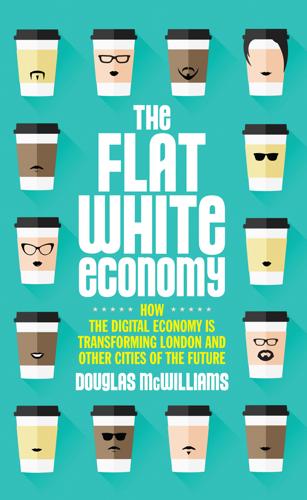
The Flat White Economy
by
Douglas McWilliams
Published 15 Feb 2015
But the dominant factor in the economic history of London in this period was the rise of financial services following the “Big Bang” – the deregulation of financial markets in October 1986. Oddly, I was there right at the beginning of the Big Bang. In a rare invitation to 10 Downing Street in the mid-1980s I had my longest ever conversation with Margaret Thatcher, to which my contribution was only three words – “Yes, Prime Minister”. She then left me to cuddle up on a sofa with Sir Nicholas Goodison. Sir Nicholas was then the Chairman of the Stock Exchange, hence the critical figure in the bonfire of regulations that created the Big Bang for London’s financial service industry, that explosion of financial service activity in London.
…
It had become clear to me while analysing the statistics that, since the Big Bang, London underwent an economic growth to rival the mega-growth of Far East economies. I called it the “Tiger Economy on the Thames”. London’s growth continued until 2007; indeed, for the entire period from 1997–2007, London’s economy grew at an annual rate of 6.2% in cash terms. With inflation averaging perhaps 2% over the period this meant real GDP growth grew at an annual rate of over 4% – fast enough to rival Far East economies. This growth was underpinned by the City of London: the number of “City jobs” rose from a plateau of 170,000 in the mid-1980s to a peak of 230,000 in 1989; it collapsed to 190,000 in 1993; but it had recovered to over 350,000 by 2007.2 As the number of jobs increased, so did the money on the payslips.
…
The City Fringes are defined as the boroughs neighbouring the City of London – Camden, Hackney, Islington, Lambeth, Southwark, Newham and Tower Hamlets. In 2007 they all had unemployment substantially above the London average.5 Moreover, all these boroughs were in the top 25 most deprived of the 354 boroughs (or equivalent) in the UK; this was measured by using the government’s Index of Multiple Deprivation.6 But even then these areas benefited from £1.8 billion of spending from businesses and organisations based in the City of London, with advertising being the largest single area and market research, computer services and auxiliary financial services also contributing.
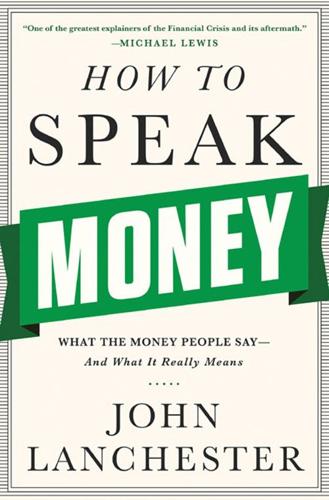
How to Speak Money: What the Money People Say--And What It Really Means
by
John Lanchester
Published 5 Oct 2014
Five years after the start of the crisis, the UK economy was still 3.3 percent smaller than it was before the trouble began. I think Great Recession about covers it. deregulation The process of ripping up rules, and the main demand of the financial world in the Anglo-American world for about thirty years. The financiers got what they wanted, culminating in measures such as the repeal of the Glass-Steagall Act separating retail and investment banking in the United States, and the “Big Bang” deregulating the City of London in October 1986. The momentum behind deregulation grew to such an extent that in the case of newly invented financial derivatives, the industry was able successfully to lobby Congress to pass a law, the Commodity Futures Modernization Act, which prohibited the making of any laws to regulate the new inventions.
…
The editor of the London Review of Books, Mary-Kay Wilmers, called me up and suggested that I do “one of my pieces about companies” about banks; as it happened that was exactly what I had just started to think about for the purposes of my novel. I’d realized that you can’t really write about London without starting to take an interest in the City of London, because finance is so central to the place London has become. So that was how I ended up getting my education in the language of money: by following the subject in order to write about it. It wasn’t a crash course; I didn’t immerse myself in it up to the eyeballs and try and ingest every single detail about economics in one go.
…
It’s impossible for an outsider to know for sure, but if you’re a hedge fund, and you own a lot of something, and plan to sell it, you will hedge your position and try to make money if the market moves against you. If you get the hedge wrong, and prices move outside the limits you’ve allowed for, you can end up losing a lot of money. My hunch would be that something like that happened to Armanjaro. Remember, pretty much all hedge funds close or go broke; this is just an unusually vivid example. City of London A term often used as a metonymy for the UK’s financial services industry, equivalent to “Wall Street” in the United States. As it happens, most of the people who work in the financial services in the UK don’t work in London at all; even the ones who work “in the City” often don’t work in the City but at, say, Canary Wharf (whose inhabitants include Barclays, Citigroup, HSBC, JPMorgan Chase) or Mayfair (which is where the hedge funds tend to be).
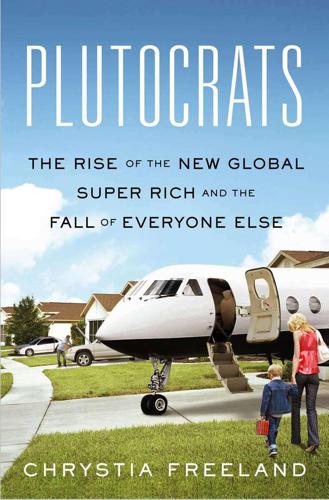
Plutocrats: The Rise of the New Global Super-Rich and the Fall of Everyone Else
by
Chrystia Freeland
Published 11 Oct 2012
A recent study found that 60 percent of the increased share in income of the top 10 percent went to bankers—meaning that nearly two-thirds of the enrichment of the earners at the top was driven by the City of London. As in the United States, the gains are skewed to the very tip of the pyramid: among the financiers who are part of Britain’s top 1 percent, the top 5 percent (or 0.05 percent of workers overall) take 23 percent of the total wages of that gilded slice of the population. The dominance of top dogs in finance is even stronger than that of the 0.05 percent in other jobs. — One reason the preeminence of the financiers within the global super-elite matters is that it highlights how crucial financial deregulation has been to the emergence of the plutocracy.
…
In the knowledge economy, more and more professions use a laptop rather than a steam engine, and that means that the superstars in these fields are earning ever greater rewards. The intellectuals are on the road to class power. THE STREET AND THE SUPERSTARS The biggest winners are the bankers. They did well enough, to be sure, in the industrial revolution. They were among that era’s plutocrats—think J. P. Morgan in New York, or Siegmund Warburg in the City of London. But these were the owners of capital. Their employees, the salaried financial professionals, weren’t nearly as richly rewarded. Their job was just to keep score. In the postwar era, with the steady rise of the knowledge economy, the bankers’ role has been dramatically transformed. Instead of working for the owners of capital—whether they are industrial magnates or the shareholders of publicly traded companies—financiers have discovered they can themselves own the capital and, with it, the companies.
…
That shift from state to private ownership is probably the single largest transfer of assets in human history. When it comes to the creation of twenty-first-century billionaires, the USSR’s sale of the century is also the most powerful driver, more important than Silicon Valley’s technology revolution or the flourishing of finance on Wall Street and in the City of London. Just consider: of the 1,226 billionaires on the Forbes 2012 rich list, 111 were oligarchs from the former Soviet Union, 90 were technologists, and 77 were financiers. The number of billionaires relative to the size of the economy and the gap between the billionaires and everyone else are even more striking: The fortunes of Russia’s billionaires could buy roughly a fifth of the country’s annual economic output.
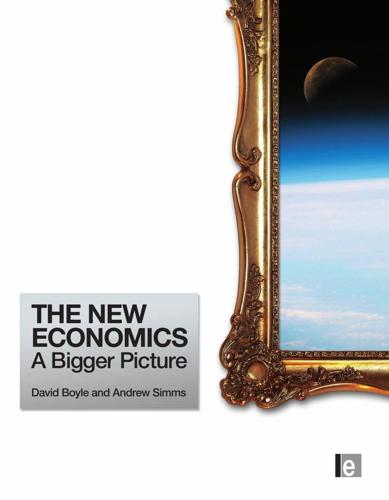
The New Economics: A Bigger Picture
by
David Boyle
and
Andrew Simms
Published 14 Jun 2009
Those who grew up with George Orwell’s novel with that year as its title looked ahead to 1984 as a symbol of everything that could go wrong with society – and with the hope that the world might be different from that experienced by Big Brother and Winston Smith. In the event, there were certainly convulsions enough – the British Miners’ Strike, the emergence of Mikhail Gorbachev and the arrival in the UK of cruise missiles. There was the Greenham Common Women’s Peace Camp, and the start of the countdown towards the Big Bang deregulation in the City of London, and the wild worldwide speculation that we have become used to since. There was no one Big Brother, but there was – in a sense – a series of them. They were the six Big Brothers and one Big Sister of the G7, the leaders of the seven richest industrial countries of the A BRIEF HISTORY OF THE NEW ECONOMICS 23 world, whose increasingly influential summit meetings every summer presumed to decide the economic future of the planet.
…
Nearly all the money in circulation was created in the form of bank loans: under the current system we need these loans in order to have the money to exchange goods and services. And since most of that money began as mortgages, we need them – in this sense at least – in order to survive. There is also the peculiar irrelevance to real life of this bizarre dance in Wall Street and the City of London, justified by their occasional ability to raise loans for productive expansion, but actually leaching vast fees and bonuses from the income of savers, pensioners, insurance payers and taxpayers. And behind that, there is a more fundamental problem: this global financial system, underpinning all our lives yet increasingly disconnected from real life, accelerates $3 trillion through the system every day, nearly 90 per cent of which is speculation, mostly speculation in the foreign exchange markets.9 We find ourselves colluding in that system through our savings, pensions and credit card debts, but it has nothing to do with the job that the financial system is supposed to do – to facilitate the exchange of goods and services, to make capital available for people so that they can create productive businesses in the future. 8 THE NEW ECONOMICS The money system is no longer designed for this basic work of economics.
…
The city gets the equipment and the Esco gets paid back from a share of the energy savings that result. The Esco idea was developed mainly in eastern Europe to deal with the need for urgent investment after 1989. And in the UK, once again, it was Woking that took the lead. And once again, it was Danish investors, rather than their conservative equivalents in the City of London, who put up the money. Woking’s Esco began by building a co-generation plant in the town centre – cogeneration means combined heat and power – which now powers local businesses, car parks and events centres, as well as the council’s offices and leisure centre. Public housing and old people’s homes are getting photovoltaic cells and the council’s vehicle fleet is being converted to liquid natural gas.
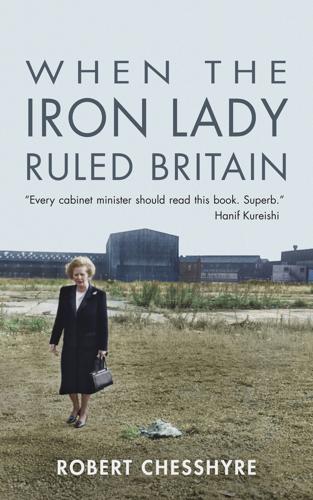
When the Iron Lady Ruled Britain
by
Robert Chesshyre
Published 15 Jan 2012
(Although he added the caution that further cuts in supplementary benefits might yet reduce the poor to the dire straits of the past.) Was the renewed fascination, he suggested, because – despite the brave new world apparently emerging from the ‘Big Bang’ in the City of London – the more probable future for most of us lay here in the north where the post-industrial age had already dawned? Two Swiss television teams had recently been in the region pursuing just this thesis. It seemed unlikely to the bishop that money could perpetually breed money in the way it appeared to in the City of London. In this the bishop is in tune with his flock: an Easington miner said: ‘We can’t all live on services like tourism, like those buggers in Spain.’
…
Supply-siders consider that ‘trickle-downers’ suffer from a further condition – ‘the politics of envy’. The consequence of the new philosophy appeared to be the unabashed spending of money, and rewards for certain classes of people that so distorted the value system that they threatened social stability: while young nurses lived on ‘peanuts’, the City of London’s ‘Big Bang’ had propelled a not particularly productive class of young person towards six-figure salaries; while a civil engineer might earn £15,000 a year, a foreign-currency dealer, without any formal qualifications, could earn ten times that much. These were not, as some of the defenders of these high salaries argued, special people like sports or pop stars, but people with quick wits and fairly readily acquired trading skills.
…
Oddly, perhaps, it was an upmarket ‘bookmaker’ who first blew the whistle from inside the Square Mile of the City of London. Christopher Hales, who – after a brief period as a professional golfer – had started in the City as a stock jobber and had been a commodity broker, ran an outfit called City Index, which offered odds on, among other things, the movement of the Financial Times and Wall Street indices. His business allowed brokers and others who spent their working days ‘speculating’ with company money to back their hunches with their own: it was attractive because winnings were tax-free. His clients on occasions ran up seven-figure debts, but, until Big Bang, although gaming debts are unenforceable at law, he had always been confident they would settle.
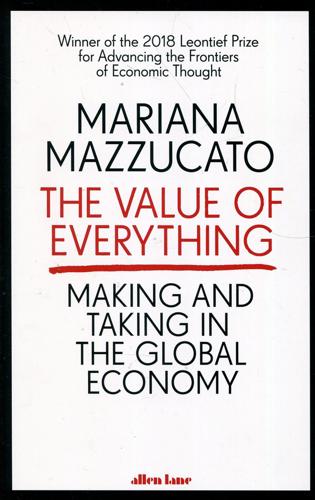
Value of Everything: An Antidote to Chaos The
by
Mariana Mazzucato
Published 25 Apr 2018
Under the Heath government in 1971, the UK adopted a temporary policy known as ‘Competition and Credit Control', whereby quantitative ceilings on bank lending were lifted and reserve ratios for commercial banks were reduced.16 In 1978 minimum commissions were abolished on the New York Stock Exchange, clearing the way for competition and higher trading volumes. A year later, the Thatcher government in the UK abolished exchange controls. Then, in 1986, Big Bang financial reforms in the City of London did away with fixed commissions for buying and selling shares on the London Stock Exchange, allowed foreigners to own a majority stake in UK stockbrokers, and introduced dual capacity which allowed market makers to be brokers and vice versa. Most of London's stockbroking and marketmaking firms were absorbed by much bigger foreign and domestic banks.
…
In the minds of policymakers, finance had become an increasingly productive industry, an idea they were keen to convey to the public. Strange as it might seem now, policymakers largely ignored the danger of financial turmoil. Only a few years after his 2004 Mansion House speech, in which he paid fulsome tribute to the productivity of the City of London's financial and business elite, then Labour Chancellor of the Exchequer Gordon Brown voiced the hubris which financiers, regulators, politicians and many economists shared when the economy was still apparently robust. In his 2007 Budget Statement, months before the first signs of the coming crash appeared on the horizon, Brown solemnly declared (not for the first time): ‘We will not return to the old boom and bust.'
…
The move into investment banking was made more attractive by other aspects of financial deregulation. It enabled investment banks to poach some of the commercial banks’ most profitable clients: large businesses which could finance investment by issuing bonds rather than taking bank loans, and high-net-worth individuals seeking private wealth management. And it opened up a range of new financial markets for investment banks to gamble on, trading instruments which had long been known about but which past regulations had effectively banned. Two classes of financial instrument in particular were made available to investors by deregulation from the 1970s onwards, and were central to the subsequent massive growth in financial transactions and profitability.
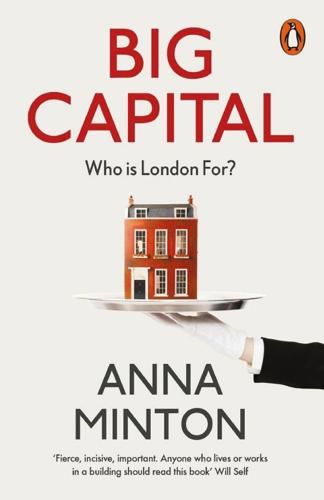
Big Capital: Who Is London For?
by
Anna Minton
Published 31 May 2017
In 1967 Labour introduced a ‘betterment levy’ set at 40 per cent of profit, which was scrapped by Edward Heath in 1970, then Labour brought in a development land tax in 1975 set at 80 per cent of the increase in land value, which was maintained by the Thatcher government at 60 per cent. But in 1985 Nigel Lawson scrapped it, in tune with the spirit of the age and the deregulation of finance which came with ‘Big Bang’ a year later. The consequence is that the planning system is not working as its architects intended because one half of it, the tax mechanism to dampen speculation and provide benefits to the community, is no longer there. Meanwhile, the remaining half, which protects the greenbelt, restricts the amount of land available and makes it even more valuable.
…
In his book Treasure Islands, Nicholas Shaxson describes London as the centre of a spider’s web that links to the Channel Islands, the Isle of Man and the Caribbean.19 This impression of super prime London as a tax haven to rival Monaco is borne out by the everyday experience of residents. Helen Kirwan-Taylor, a journalist who writes for the Sunday Times, lives on one of the most prestigious roads in Notting Hill. She moved in twenty-two years ago as part of an earlier wave of ‘super gentrification’20 characterized by the arrival of very wealthy professionals working in the City of London. ‘We were the generation of bankers who pushed out the artists and journalists – our home was lived in by two elderly artists, there was a film reviewer next door,’ she remembered. ‘The bankers pushed out the artists, then the next wave came – this neighbourhood has become Monaco.’ Today it’s mostly made up of ‘super-wealthy connected European families with trust funds so complicated you need a PhD to work it out.
…
In Britain and across the West these competing pressures kept capitalism in check. But over the last thirty years, since the fall of the Berlin Wall, unbridled capitalism in the form of a new neoliberal framework has brought the market into every aspect of public policy, in the NHS, in education and in housing, where privatization, deregulation and property speculation are now the dominant approaches. The result is a system in crisis, rife with the contradictions of two opposing ideologies – socialism and neoliberalism – combined with the unintended consequences of a market-led approach to public goods. Public housing accounted for a huge proportion of British housing throughout the twentieth century.
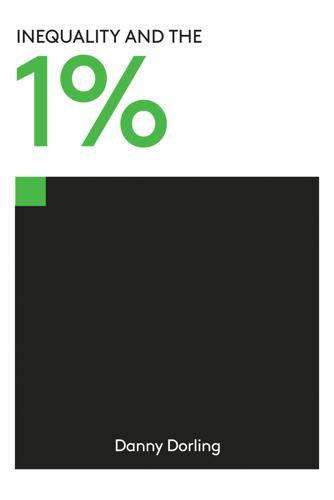
Inequality and the 1%
by
Danny Dorling
Published 6 Oct 2014
London’s financial markets were constrained between 1929 and 1978, just as they were in the US, when the 1 per cent was forced to become more normal (see Figure 3.5). Since those constraints were lifted, on both sides of the Atlantic, the very rich have become richer and everyone else’s lives more precarious. Leepower In it together? Occupy London 2011 The City of London’s ‘Big Bang’ took place in 1986, with extensive government deregulation of the UK’s financial markets. Top-paid employees have secured a doubling of their income since then, only to trail way behind the ‘top’ bankers and similar members of the 1 per cent who have received so much more than the average top-paid employee. The gap between their respective annual incomes now averages nearly a quarter of a million pounds.90 A salary escalator has been created by the assessment of remuneration through the comparison of top pay in any institution with a group of other institutions which just happen, on average, to pay more.
…
This duo recently explained how the power of people at the bottom of the income distribution has been smashed in recent decades, while the power of those at the top has accelerated away.3 They also showed that the better-off have secured high salaries largely by ‘licensing’ their work, so that only a small number of people are said to be qualified enough to carry it out. Since 1979, two-thirds of all the gains in income made by the top tenth of earners in the UK have been taken by the top 1 per cent alone. In the UK these are far more likely to be bankers than in the US because, compared to their respective national economies, the City of London is much bigger than Wall Street.4 This matters because financiers have started to use qualifications as a means to try to legitimise their take, including securing masters of business administration degrees (MBAs). It is the young who tend to dominate in low-paid, unlicensed jobs. In 1993 7 per cent of employed young women between sixteen and twenty-four worked in low-paid, low-skilled jobs in the UK, but by 2013 that had increased to 21 per cent.
…
Perhaps higher-than-average testosterone levels help, but the UK’s men are unlikely to have a much higher than average level of that hormone; and there are artificial stimulants too. A few months before the Times told us how lucky we were to have so many extraordinarily well-paid bankers in our midst, the Sunday Times had reported that it had been bankers using cocaine who had got us into this terrible mess.32 Verso/Leo Hollis The City of London: expanding its horizon When they were later interviewed about the 2008 crash, UK bankers said they had become ‘over-confident’ and ‘took more risks’, leading to the meltdown. The biggest gamblers of all, in the US, took the most cocaine. People like Bernie Madoff, once described as a financial genius and then lampooned in the tabloids, worked from an office described as ‘the north pole’ – because it contained so much white powder.33 Cocaine is the drug of the 1 per cent and of inequality.
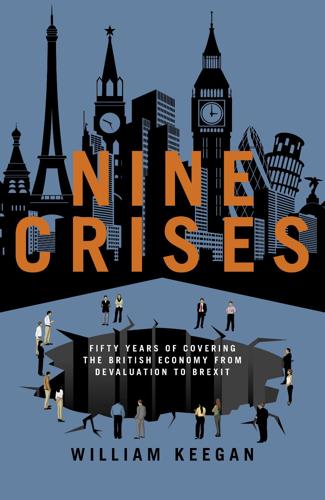
Nine Crises: Fifty Years of Covering the British Economy From Devaluation to Brexit
by
William Keegan
Published 24 Jan 2019
Bill White, then chief economist at the Bank for International Settlements in Basle, issued many a warning, reported by, among others, Martin Wolf of the Financial Times and, indeed, by me in The Observer. Unfortunately, the supposed wonders of deregulation were all the rage, and the consensus and herd instinct ruled. There was a notorious remark by Chuck Prince of Citibank that, even if problems were on the horizon, participants just had to ‘keep dancing’. At which point, I should like to pay a tribute to the late Margaret Reid, who was a colleague of mine on the FT in the 1970s, and whose book on the 1986 Big Bang, All Change in the City, published in 1988, was remarkably perceptive about the likely deleterious consequences of rampant deregulation. She was especially concerned about the fact that ‘the money washing through the currency markets is now thirty or more times the scale of underlying trade and invisibles business’.
…
Then there are the channels which flow into this sea of advice: the various pressure groups such as the Confederation of British Industry (CBI) and the Trades Union Congress (TUC); trade associations and chambers of commerce; major industrial corporations, whose bosses are seldom reticent in promulgating their views of what is good for the rest of the economy; and the City of London, with its view of what the financial markets want from economic policy – or what they are prepared to put up with. It is by now generally accepted that the financial sector – bankers! – exercised far too much sway over policy-making in the run-up to the 2007–08 financial crash. In the background are the individual economic departments – the ultimate suppliers of formal and informal economic advisers – and a proliferation of think tanks, not to say commentators and contributors to the media.
…
Then came the fall of the Berlin Wall in 1989, the collapse of the Soviet Union in 1991, and the unleashing of an extreme free market approach, which I like to think I warned about in my book The Spectre of Capitalism. The banking crisis was the apotheosis of this trend. The invasion of the City of London by American investment banks had imported a new culture – harder working, longer hours, bigger risks and absurdly high rewards for what was deemed to be successful trading. The raison d’être of the financial district had once been to serve the interests of business, industry and ordinary people.
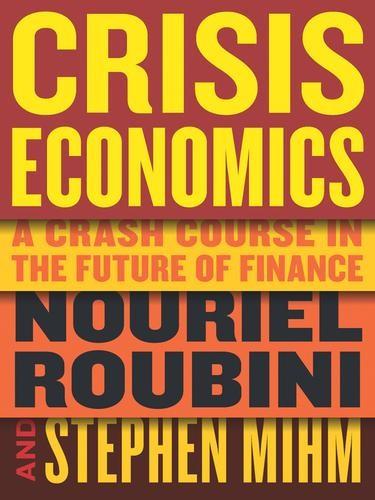
Crisis Economics: A Crash Course in the Future of Finance
by
Nouriel Roubini
and
Stephen Mihm
Published 10 May 2010
Unfortunately, many of the ventures proved to be failures or even outright frauds, and the market collapsed. Investors fled stocks and pulled their funds out of Peru, Colombia, and Chile. The Latin American nations proved unable to service their debt, and in 1826 Peru defaulted, causing what one observed called “considerable panic” in the City of London. The other countries soon followed. In the nineteenth century the most crisis-prone of the emerging markets was none other than the United States. European investors, in particular the British, plowed enormous amounts of capital into the country, snapping up the bonds of state governments, canal and railroad securities, and a host of other assets.
…
Many of the American banks and businesses that had benefited from the surfeit of foreign capital collapsed; many of their counterparts in Europe suffered too. In the wake of the panic of 1837, foreign investors fled en masse. Hundreds of banks perished in the United States, and a quarter of the individual states defaulted on some portion of the debt they had issued; panic simultaneously seized the City of London. A similar flight took place in 1857, after which one commentator claimed—with some exaggeration—that the “distrust felt by nearly all foreigners in the future of the United States was so great that the larger portion of American securities . . . held in foreign countries, were returned for sale at almost any sacrifice.”
…
Rose and Mark Spiegel, “Cross-Country Causes and Consequences of the 2008 Crisis: International Linkages and American Exposure,” Centre for Economic Policy Research Discussion Paper no. 7466, online at http://www.cepr.org/pubs/dps/DP7466.asp. 129 India kept a tight lid: See, for example, Vikas Bajaj, “In India, Central Banker Played It Safe,” New York Times, June 25, 2009. 130 In the crisis of 1825, British investors flooded: Carlos Marichal, A Century of Debt Crises in Latin America: From Independence to the Great Depression, 1820-1930 (Princeton, N.J.: Princeton University Press, 1989), 12-67. 130 “considerable panic”: Frank Griffith Dawson, The First Latin American Debt Crisis: The City of London and the 1822-1825 Loan Bubble (New Haven, Conn.: Yale University Press, 1990), 125. 130 In the wake of the panic of 1837: Jessica Lepler, “The Pressure of 1836: Interpreting Atlantic Bank Wars.” On the panic generally, see Peter Temin, The Jacksonian Economy (New York: W.W. Norton, 1969). 130 a similar flight took place in 1857: Mira Wilkins, The History of Foreign Investment in the United States to 1914 (Cambridge, Mass.: Harvard University Press, 1989), 90-140. 131 In the 1990s a new generation: Roubini and Setser, Bailouts or Bail-Ins?
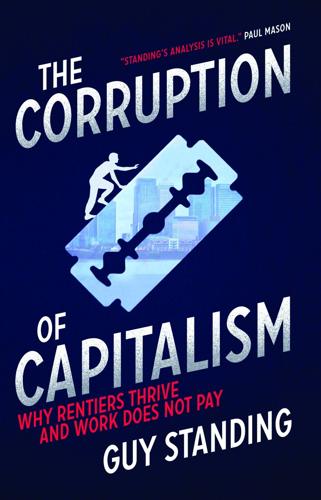
The Corruption of Capitalism: Why Rentiers Thrive and Work Does Not Pay
by
Guy Standing
Published 13 Jul 2016
THE BRITISH DISEASE Economists have a theory called the Dutch Disease, named after the Dutch experience following the discovery of gas deposits; this led to a rise in the currency that resulted in lost manufacturing exports and employment. Today, a variant could be called the British Disease, since it is most pronounced in Britain. It arises from the domination of financial capital over the whole economy, stemming from the Big Bang of 1986, when the City of London was deregulated. One outcome has been a persistently strong currency, which has made manufacturing exports uncompetitive and accelerated deindustrialisation. It has also boosted inequality.52 Canada suffered similarly after 2008, when money flowed into its financial sector because it had largely escaped the turbulence of the banking crisis.
…
D’Erasmo, A Quantitative Model of Banking Industry Dynamics, mimeo, March 2013. 49 For example, Chris Huhne and Vince Cable, former Liberal Democrat ministers in the British coalition government, cited in C. Huhne, ‘Gloomy, but right’, Prospect, October 2015, pp. 72–4. 50 M. Wolf, ‘Helicopter drops might not be far away’, Financial Times, 23 February 2016. 51 Standing, 2014, op. cit. 52 J. Tanndal and D. Waldenstrom, Does Financial Deregulation Boost Top Incomes? Evidence from the Big Bang, Centre for Economic Policy Research, DP11094, February 2016. 53 K. Cooper, ‘Emerging market loans threaten British banks’, Sunday Times, 4 October 2015, p. 2. 54 A. Haldane, ‘A radical prescription’, Prospect, October 2015, pp. 36–8. 55 J. Kay, Other People’s Money: Masters of the Universe or Servants of the People?
…
In 2015, over a million people – about one in twenty-five of all those employed – were in financial services, with another million in associated professions such as accountancy and legal services. The financial sector accounts for nearly 10 per cent of GDP, higher than in any other rich country, and is the world’s biggest exporter of financial services. Increasingly, the City of London has channelled money into speculative or rent-extracting activities rather than productive ones. Net bank lending to non-financial business in 2014 and 2015 was negative, to the tune of over £14 billion. Yet British banks have lent vast amounts to China and other emerging market economies – £800 billion between 2006 and 2015, representing three and a half times their capital, according to the Bank of England.53 This has provided a flow of rental income, albeit exposing the UK to the growing risk of bad debts in China.
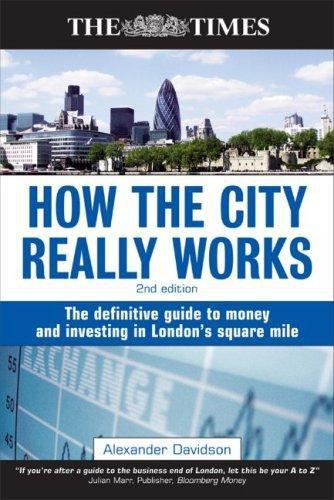
How the City Really Works: The Definitive Guide to Money and Investing in London's Square Mile
by
Alexander Davidson
Published 1 Apr 2008
UK institutional investors started adding substantially to their overseas investments, although mostly through foreign brokers. _________________________________________ THE CITY OF LONDON 7 In the 1980s, the London Stock Exchange (LSE) was the unrivalled leader among European exchanges. In July 1983, it came to a historic agreement with the government to abolish fixed commission rates and single capacity in stockbrokers, a move intended to make them more competitive. The changes came into force on 27 October 1986, and were known as Big Bang. The jobber had been a wholesaler of stock to the broker but was suddenly made obsolete. In came broker dealers, whose role merged the previous responsibilities of the jobber and broker, and market makers.
…
Index 419 fraud 204 9/11 terrorist attacks 31, 218, 242, 243, 254, 257 Abbey National 22 ABN AMRO 103 accounting and governance 232–38 scandals 232 Accounting Standards Board (ASB) 236 administration 17 Allianz 207 Alternative Investment Market (AIM) 44–45, 131, 183, 238 Amaranth Advisors 170 analysts 172–78 fundamental 172–74 others 177–78 Spitzer impact 174–75 technical 175–77 anti-fraud agencies Assets Recovery Agency 211–13 City of London Police 209 Financial Services Authority 208 Financial Crime and Intelligence Division 208 Insurance Fraud Bureau 209 Insurance Fraud Investigators Group 209 International Association of Insurance Fraud Agencies 207, 210, 218 National Criminal Intelligence Service 210 Serious Fraud Office 213–15 Serious Organised Crime Agency 210–11 asset finance 24–25 Association of Investment Companies 167 backwardation 101 bad debt, collection of 26–28 Banco Santander Central Hispano 22 Bank for International Settlements (BIS) 17, 27, 85, 98, 114 bank guarantee 23 Bank of Credit and Commerce International (BCCI) 10, 214 Bank of England 6, 10–17 Court of the 11 credit risk warning 98 framework for sterling money markets 81 Governor 11, 13, 14 history 10, 15–16 Inflation Report 14 inflation targeting 12–13 interest rates and 12 international liaison 17 lender of last resort 15–17 Market Abuse Directive (MAD) 16 monetary policy and 12–15 Monetary Policy Committee (MPC) 13–14 Open-market operations 15, 82 repo rate 12, 15 role 11–12 RTGS (Real Time Gross Settlement) 143 statutory immunity 11 supervisory role 11 Bank of England Act 1988 11, 12 Bank of England Quarterly Model (BEQM) 14 Banking Act 1933 see Glass-Steagall Act banks commercial 5 investment 5 Barclays Bank 20 Barings 11, 15, 68, 186, 299 Barlow Clowes case 214 Barron’s 99 base rate see repo rate Basel Committee for Banking Supervision (BCBS) 27–28 ____________________________________________________ INDEX 303 Basel I 27 Basel II 27–28, 56 Bear Stearns 95, 97 BearingPoint 97 bill of exchange 26 Bingham, Lord Justice 10–11 Blue Arrow trial 214 BNP Paribas 145, 150 bond issues see credit products book runners 51, 92 Borsa Italiana 8, 139 bps 90 British Bankers’ Association 20, 96, 97 building societies 22–23 demutualisation 22 Building Societies Association 22 Capital Asset Pricing Model (CAPM) see discounted cash flow analysis capital gains tax 73, 75, 163, 168 capital raising markets 42–46 mergers and acquisitions (M&A) 56–58 see also flotation, bond issues Capital Requirements Directive 28, 94 central securities depository (CSD) 145 international (ICSD) 145 Central Warrants Trading Service 73 Chancellor of the Exchequer 12, 13, 229 Chicago Mercantile Exchange 65 Citigroup 136, 145, 150 City of London 4–9 Big Bang 7 definition 4 employment in 8–9 financial markets 5 geography 4–5 history 6–7 services offered 4 world leader 5–6 clearing 140, 141–42 Clearing House Automated Payment System (CHAPS) 143 Clearstream Banking Luxembourg 92, 145 commercial banking 5, 18–28 bad loans and capital adequacy 26–28 banking cards 21 building societies 22–23 credit collection 25–26 finance raising 23–25 history 18–19 overdrafts 23 role today 19–21 commodities market 99–109 exchange-traded commodities 101 fluctuations 100 futures 100 hard commodities energy 102 non-ferrous metals 102–04 precious metal 104–06 soft commodities cocoa 107 coffee 106 sugar 107 Companies Act 2006 204, 223, 236 conflict of interests 7 consolidation 138–39 Consumer Price Index (CPI) 13 contango 101 Continuous Linked Settlement (CLS) 119 corporate governance 223–38 best practice 231 Cadbury Code 224 Combined Code 43, 225 compliance 230 definition 223 Directors’ Remuneration Report Regulations 226 EU developments 230 European auditing rules 234–35 Greenbury Committee 224–25 Higgs and Smith reports 227 International Financial Reporting Standards (IFRS) 237–38 Listing Rules 228–29 Model Code 229 Myners Report 229 OECD Principles 226 operating and financial review (OFR) 235– 36 revised Combined Code 227–28 Sarbanes–Oxley Act 233–34 Turnbull Report 225 credit cards 21 zero-per-cent cards 21 credit collection 25–26 factoring and invoice discounting 26 trade finance 25–26 credit derivatives 96–97 back office issues 97 credit default swap (CDS) 96–97 credit products asset-backed securities 94 bonds 90–91 collateralised debt obligations 94–95 collateralised loan obligation 95 covered bonds 93 equity convertibles 93 international debt securities 92–93 304 INDEX ____________________________________________________ junk bonds 91 zero-coupon bonds 93 credit rating agencies 91 Credit Suisse 5, 136, 193 CREST system 141, 142–44 dark liquidity pools 138 Debt Management Office 82, 86 Department of Trade and Industry (DTI) 235, 251, 282 derivatives 60–77 asset classes 60 bilateral settlement 66 cash and 60–61 central counterparty clearing 65–66 contracts for difference 76–77, 129 covered warrants 72–73 futures 71–72 hedging and speculation 67 on-exchange vs OTC derivatives 63–65 options 69–71 Black-Scholes model 70 call option 70 equity option 70–71 index options 71 put option 70 problems and fraud 67–68 retail investors and 69–77 spread betting 73–75 transactions forward (future) 61–62 option 62 spot 61 swap 62–63 useful websites 75 Deutsche Bank 136 Deutsche Börse 64, 138 discounted cash flow analysis (DCF) 39 dividend 29 domestic financial services complaint and compensation 279–80 financial advisors 277–78 Insurance Mediation Directive 278–79 investments with life insurance 275–76 life insurance term 275 whole-of-life 274–75 NEWICOB 279 property and mortgages 273–74 protection products 275 savings products 276–77 Dow theory 175 easyJet 67 EDX London 66 Egg 20, 21 Elliott Wave Theory 176 Enron 67, 114, 186, 232, 233 enterprise investment schemes 167–68 Equiduct 133–34, 137 Equitable Life 282 equities 29–35 market indices 32–33 market influencers 40–41 nominee accounts 31 shares 29–32 stockbrokers 33–34 valuation 35–41 equity transparency 64 Eurex 64, 65 Euro Overnight Index Average (EURONIA) 85 euro, the 17, 115 Eurobond 6, 92 Euroclear Bank 92, 146, 148–49 Euronext.liffe 5, 60, 65, 71 European Central Bank (ECB) 16, 17, 84, 148 European Central Counterparty (EuroCCP) 136 European Code of Conduct 146–47, 150 European Exchange Rate Mechanism 114 European Harmonised Index of Consumer Prices 13 European Union Capital Requirements Directive 199 Market Abuse Directive (MAD) 16, 196 Market in Financial Instruments Directive (MiFID) 64, 197–99 Money Laundering Directive 219 Prospectus Directive 196–97 Transparency Directive 197 exchange controls 6 expectation theory 172 Exxon Valdez 250 factoring see credit collection Factors and Discounters Association 26 Fair & Clear Group 145–46 Federal Deposit Insurance Corporation 17 Federation of European Securities Exchanges 137 Fighting Fraud Together 200–01 finance, raising 23–25 asset 24–25 committed 23 project finance 24 recourse loan 24 syndicated loan 23–24 uncommitted 23 Financial Action Task Force on Money Laundering (FATF) 217–18 financial communications 179–89 ____________________________________________________ INDEX 305 advertising 189 corporate information flow 185 primary information providers (PIPs) 185 investor relations 183–84 journalists 185–89 public relations 179–183 black PR’ 182–83 tipsters 187–89 City Slickers case 188–89 Financial Ombudsman Service (FOS) 165, 279–80 financial ratios 36–39 dividend cover 37 earnings per share (EPS) 36 EBITDA 38 enterprise multiple 38 gearing 38 net asset value (NAV) 38 price/earnings (P/E) 37 price-to-sales ratio 37 return on capital employed (ROCE) 38 see also discounted cash flow analysis Financial Reporting Council (FRC) 224, 228, 234, 236 Financial Services Act 1986 191–92 Financial Services Action Plan 8, 195 Financial Services and Markets Act 2001 192 Financial Services and Markets Tribunal 94 Financial Services Authority (FSA) 5, 8, 31, 44, 67, 94, 97, 103, 171, 189, 192–99 competition review 132 insurance industry 240 money laundering and 219 objectives 192 regulatory role 192–95 powers 193 principles-based 194–95 Financial Services Compensation Scheme (FSCS) 17, 165, 280 Financial Services Modernisation Act 19 financial services regulation 190–99 see also Financial Services Authority Financial Times 9, 298 First Direct 20 flipping 53 flotation beauty parade 51 book build 52 early secondary market trading 53 grey market 52, 74 initial public offering (IPO) 47–53 pre-marketing 51–52 pricing 52–53 specialist types of share issue accelerated book build 54 bought deal 54 deeply discounted rights issue 55 introduction 55 placing 55 placing and open offer 55 rights issues 54–55 underwriting 52 foreign exchange 109–120 brokers 113 dealers 113 default risk 119 electronic trading 117 exchange rate 115 ICAP Knowledge Centre 120 investors 113–14 transaction types derivatives 116–17 spot market 115–16 Foreign Exchange Joint Standing Committee 112 forward rate agreement 85 fraud 200–15 advanced fee frauds 204–05 boiler rooms 201–04 Regulation S 202 future regulation 215 identity theft 205–06 insurance fraud 206–08 see also anti-fraud agencies Fraud Act 2006 200 FTSE 100 32, 36, 58, 122, 189, 227, 233 FTSE 250 32, 122 FTSE All-Share Index 32, 122 FTSE Group 131 FTSE SmallCap Index 32 FTSE Sterling Corporate Bond Index 33 Futures and Options Association 131 Generally Accepted Accounting Principles (GAAP) 237, 257 gilts 33, 86–88 Giovanni Group 146 Glass-Steagall Act 7, 19 Global Bond Market Forum 64 Goldman Sachs 136 government bonds see gilts Guinness case 214 Halifax Bank 20 hedge funds 8, 77, 97, 156–57 derivatives-based arbitrage 156 fixed-income arbitrage 157 Hemscott 35 HM Revenue and Customs 55, 211 HSBC 20, 103 Hurricane Hugo 250 306 INDEX ____________________________________________________ Hurricane Katrina 2, 67, 242 ICE Futures 5, 66, 102 Individual Capital Adequacy Standards (ICAS) 244 inflation 12–14 cost-push 12 definition 12 demand-pull 12 quarterly Inflation Report 14 initial public offering (IPO) 47–53 institutional investors 155–58 fund managers 155–56 hedge fund managers 156–57 insurance companies 157 pension funds 158 insurance industry London and 240 market 239–40 protection and indemnity associations 241 reform 245 regulation 243 contingent commissions 243 contract certainty 243 ICAS and Solvency II 244–45 types 240–41 underwriting process 241–42 see also Lloyd’s of London, reinsurance Intercontinental Exchange 5 interest equalisation tax 6 interest rate products debt securities 82–83, 92–93 bill of exchange 83 certificate of deposit 83 debt instrument 83 euro bill 82 floating rate note 83 local authority bill 83 T-bills 82 derivatives 85 forward rate agreements (FRAs) 85–86 government bonds (gilts) 86–89 money markets 81–82 repos 84 International Financial Reporting Standards (IFRS) 58, 86, 173, 237–38 International Financial Services London (IFSL) 5, 64, 86, 92, 112 International Monetary Fund 17 International Securities Exchange 138 International Swap Dealers Association 63 International Swaps and Derivatives Association 63 International Underwriting Association (IUA) 240 investment banking 5, 47–59 mergers and acquisitions (M&A) 56–58 see also capital raising investment companies 164–69 real estate 169 split capital 166–67 venture capital 167–68 investment funds 159–64 charges 163 investment strategy 164 fund of funds scheme 164 manager-of-managers scheme 164 open-ended investment companies (OEICs) 159 selection criteria 163 total expense ratio (TER) 164 unit trusts 159 Investment Management Association 156 Investment Management Regulatory Organisation 11 Johnson Matthey Bankers Limited 15–16 Joint Money Laundering Steering Group 221 KAS Bank 145 LCH.Clearnet Limited 66, 140 letter of credit (LOC) 23, 25–26 liability-driven investment 158 Listing Rules 43, 167, 173, 225, 228–29 Lloyd’s of London 8, 246–59 capital backing 249 chain of security 252–255 Central Fund 253 Corporation of Lloyd’s 248–49, 253 Equitas Reinsurance Ltd 251, 252, 255–56 Franchise Performance Directorate 256 future 258–59 Hardship Committee 251 history 246–47, 250–52 international licenses 258 Lioncover 252, 256 Member’s Agent Pooling Arrangement (MAPA) 249, 251 Names 248, one-year accounting 257 regulation 257 solvency ratio 255 syndicate capacity 249–50 syndicates 27 loans 23–24 recourse loan 24 syndicated loan 23–24 London Interbank Offered Rate (LIBOR) 74, 76 ____________________________________________________ INDEX 307 London Stock Exchange (LSE) 7, 8, 22, 29, 32, 64 Alternative Investment Market (AIM) 32 Main Market 42–43, 55 statistics 41 trading facilities 122–27 market makers 125–27 SETSmm 122, 123, 124 SETSqx 124 Stock Exchange Electronic Trading Service (SETS) 122–25 TradElect 124–25 users 127–29 Louvre Accord 114 Markets in Financial Instruments Directive (MiFID) 64, 121, 124, 125, 130, 144, 197–99, 277 best execution policy 130–31 Maxwell, Robert 186, 214, 282 mergers and acquisitions 56–58 current speculation 57–58 disclosure and regulation 58–59 Panel on Takeovers and Mergers 57 ‘white knight’ 57 ‘white squire’ 57 Merrill Lynch 136, 174, 186, 254 money laundering 216–22 Egmont Group 218 hawala system 217 know your client (KYC) 217, 218 size of the problem 222 three stages of laundering 216 Morgan Stanley 5, 136 multilateral trading facilities Chi-X 134–35, 141 Project Turquoise 136, 141 Munich Re 207 Nasdaq 124, 138 National Strategy for Financial Capability 269 National Westminster Bank 20 Nationwide Building Society 221 net operating cash flow (NOCF) see discounted cash flow analysis New York Federal Reserve Bank (Fed) 16 Nomads 45 normal market share (NMS) 132–33 Northern Rock 16 Nymex Europe 102 NYSE Euronext 124, 138, 145 options see derivatives Oxera 52 Parmalat 67, 232 pensions alternatively secured pension 290 annuities 288–89 occupational pension final salary scheme 285–86 money purchase scheme 286 personal account 287 personal pension self-invested personal pension 288 stakeholder pension 288 state pension 283 unsecured pension 289–90 Pensions Act 2007 283 phishing 200 Piper Alpha oil disaster 250 PLUS Markets Group 32, 45–46 as alternative to LSE 45–46, 131–33 deal with OMX 132 relationship to Ofex 46 pooled investments exchange-traded funds (ETF) 169 hedge funds 169–71 see also investment companies, investment funds post-trade services 140–50 clearing 140, 141–42 safekeeping and custody 143–44 registrar services 144 settlement 140, 142–43 real-time process 142 Proceeds of Crime Act 2003 (POCA) 211, 219, 220–21 Professional Securities Market 43–44 Prudential 20 purchasing power parity 118–19 reinsurance 260–68 cat bonds 264–65 dispute resolution 268 doctrines 263 financial reinsurance 263–64 incurred but not reported (IBNR) claims insurance securitisation 265 non-proportional 261 offshore requirements 267 proportional 261 Reinsurance Directive 266–67 retrocession 262 types of contract facultative 262 treaty 262 retail banking 20 retail investors 151–155 Retail Prices Index (RPI) 13, 87 264 308 INDEX ____________________________________________________ Retail Service Provider (RSP) network Reuters 35 Royal Bank of Scotland 20, 79, 221 73 Sarbanes–Oxley Act 233–34 securities 5, 29 Securities and Futures Authority 11 self-regulatory organisations (SROs) 192 Serious Crime Bill 213 settlement 11, 31, 140, 142–43 shareholder, rights of 29 shares investment in 29–32 nominee accounts 31 valuation 35–39 ratios 36–39 see also flotation short selling 31–32, 73, 100, 157 Society for Worldwide Interbank Financial Telecommunications (SWIFT) 119 Solvency II 244–245 Soros, George 114, 115 Specialist Fund Market 44 ‘square mile’ 4 stamp duty 72, 75, 166 Sterling Overnight Index Average (SONIA) 85 Stock Exchange Automated Quotation System (SEAQ) 7, 121, 126 Stock Exchange Electronic Trading Service (SETS) see Lloyd’s of London stock market 29–33 stockbrokers 33–34 advisory 33 discretionary 33–34 execution-only 34 stocks see shares sub-prime mortgage crisis 16, 89, 94, 274 superequivalence 43 suspicious activity reports (SARs) 212, 219–22 swaps market 7 interest rates 56 swaptions 68 systematic internalisers (SI) 137–38 Target2-Securities 147–48, 150 The Times 35, 53, 291 share price tables 36–37, 40 tip sheets 33 trading platforms, electronic 80, 97, 113, 117 tranche trading 123 Treasury Select Committee 14 trend theory 175–76 UBS Warburg 103, 136 UK Listing Authority 44 Undertakings for Collective Investments in Transferable Securities (UCITS) 156 United Capital Asset Management 95 value at risk (VAR) virtual banks 20 virt-x 140 67–68 weighted-average cost of capital (WACC) see discounted cash flow analysis wholesale banking 20 wholesale markets 78–80 banks 78–79 interdealer brokers 79–80 investors 79 Woolwich Bank 20 WorldCom 67, 232 Index of Advertisers Aberdeen Asset Management PLC xiii–xv Birkbeck University of London xl–xlii BPP xliv–xlvi Brewin Dolphin Investment Banking 48–50 Cass Business School xxi–xxiv Cater Allen Private Bank 180–81 CB Richard Ellis Ltd 270–71 CDP xlviii–l Charles Schwab UK Ltd lvi–lviii City Jet Ltd x–xii The City of London inside front cover EBS Dealing Resource International 110–11 Edelman xx ESCP-EAP European School of Management vi ICAS (The Inst. of Chartered Accountants of Scotland) xxx JP Morgan Asset Management 160–62 London Business School xvi–xviii London City Airport vii–viii Morgan Lewis xxix Securities & Investments Institute ii The Share Centre 30, 152–54 Smithfield Bar and Grill lii–liv TD Waterhouse xxxii–xxxiv University of East London xxxvi–xxxviii
…
___________________________________________ FINANCIAL FRAUD 209 City of London Police The City of London Police force has 158 officers dedicated to preventing and investigating fraud, and is well resourced for this purpose in comparison with other police forces. In 2006, 75 per cent of crime investigated by the unit was cleared up. The fraud squad makes good use of fraud data. It has a good database on plastic cards, and another on boiler room frauds. If government proposals following consultation on the Fraud Review come about (see early in this chapter), the City of London Police will be elevated from south-east lead to national lead force.
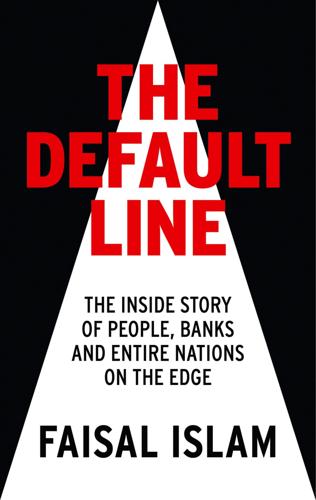
The Default Line: The Inside Story of People, Banks and Entire Nations on the Edge
by
Faisal Islam
Published 28 Aug 2013
The ‘universal’ banks that bestrode this divide were increasing risky exposures to, say, property on their trading books, while reining in property exposure on their conventional loan books. It made little sense. It goes back to the deregulatory Big Bang of 1986, and even before that. One British financial CEO filled me in. ‘What is the City since Big Bang? Mostly American-owned or American-influenced,’ he told me. ‘You should stop thinking of the City of London during the boom time as anything other than an extension of Wall Street.’ The City grew fat on offshore dollars traded internationally (nicknamed ‘eurodollars’). From the 1960s a US tax change called ‘Subpart F’ offered huge tax breaks to US multinationals on dollars earned abroad, as long as they stayed abroad.
…
The City moved to take advantage of the Sarbox Act, and Gordon [Brown] was not interested in taxing “nondoms”. The Nondom rules were designed specifically to attract American bankers.’ The Americans brought meritocracy, technology and a can-do attitude to the cosy gentlemen’s club of the pre-Big Bang City. Many City figures bitterly resisted the Big Bang reforms forced upon them by Mrs Thatcher. It was another example of the City not even knowing what was good for itself – at the time, at least. But Big Bang was clearly a necessary, though not sufficient, condition for what followed two decades later. The two biggest casualties of the credit crisis, AIG and Lehman Brothers, ran their riskiest operations through their London offices.
…
Events had been set in train that would lead to the collapse of hedge funds, the collapse of investment banks, the collapse of lending to banks, the collapse of Northern Rock, and eventually the collapse of half the UK banking system. The conventional high-street banking crises, epitomised by the bank run on Northern Rock, was the most visible manifestation of failure in UK banking. But there were twin crises in Britain, centred on the City of London. The one most commonly read about in the news, and another, just as important, in the invisible banking system. So May 2007 was also the high watermark of what would become known as the ‘shadow banking’ system – a parallel international system of loans, lending, creditors and debtors that operated on low levels of capital, and had few of the safety systems of the conventional banking system.
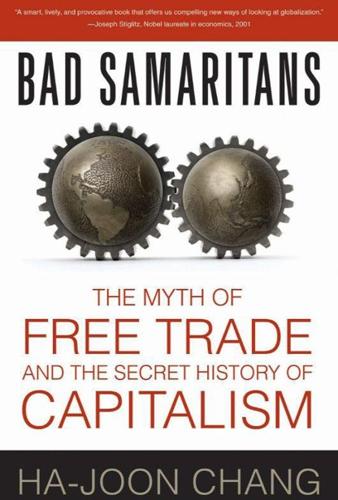
Bad Samaritans: The Myth of Free Trade and the Secret History of Capitalism
by
Ha-Joon Chang
Published 26 Dec 2007
The tribute paid to foreigners is … odious … We have outgrown the necessity of submitting to the humiliation of going to London, Paris or Frankfort [sic] for capital has become amply abundant for all home demands.’ 33 Foreign lenders were also badly treated. In 1842, the US became a pariah in the international capital market when 11 state governments defaulted on foreign (mainly British) loans. Later that year, when the US federal government tried to raise a loan in the City of London, The Times hit back, saying: ‘[t]he people of the United States may be fully persuaded that there is a certain class of securities to which no abundance of money, however great, can give value; and that in this class their own securities stand pre-eminent’. As cited in T. Cochran & W. Miller (1942), The Age of Enterprise: A Social History of Industrial America (The Macmillan Company, New York), p. 48. 34 The second Bank of USA, set up in 1816 under a 20-year charter, was 20% owned by the government and federal tax revenue was deposited there, but it did not have note issue monopoly, so it could not be considered a proper central bank. 35 As cited in Wilkins (1989), p. 84. 36 Even until as late as 1914, when it had become as rich as the UK, the US was one of the largest net borrowers in the international capital market.
…
In describing the Golden Straitjacket, he pretty much sums up today’s neo-liberal economic orthodoxy: in order to fit into it, a country needs to privatize state-owned enterprises, maintain low inflation, reduce the size of government bureaucracy, balance the budget (if not running a surplus), liberalize trade, deregulate foreign investment, deregulate capital markets, make the currency convertible, reduce corruption and privatize pensions.2 According to him, this is the only path to success in the new global economy. His Straitjacket is the only gear suitable for the harsh but exhilarating game of globalization. Friedman is categorical: ‘Unfortunately, this Golden Straitjacket is pretty much “one-size fits all” … It is not always pretty or gentle or comfortable.
…
.* In addition to the impact of the introduction of New Public Management, neo-liberal policies have also indirectly, and unintentionally, increased corruption by promoting trade liberalization, which weakens government finances, which, in turn, makes corruption more likely and difficult to fight.14 Also, deregulation, another key component of the neo-liberal policy package, has increased corruption in the private sector. Private sector crookedness is often ignored in the economic literature because corruption is usually defined as the abuse of public office for personal gain.15 But dishonesty exists in the private sector too. Financial deregulation and relaxation of accounting standards have led to insider trading and false accounting even in rich nations – recall cases like the energy company Enron, and the telecommunications company WorldCom and their accountancy firm Arthur Andersen in the ‘Roaring Nineties’ in the US.16 Deregulation can also increase the power of private-sector monopolies, which expands the opportunities for their unscrupulous purchasing managers to take bribes from sub-contractors.
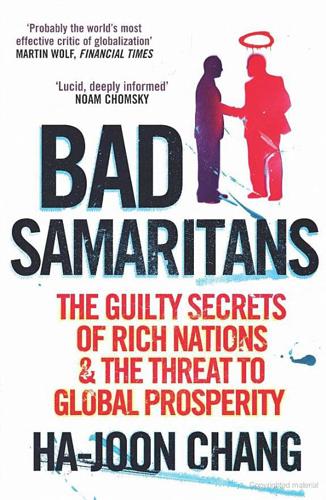
Bad Samaritans: The Guilty Secrets of Rich Nations and the Threat to Global Prosperity
by
Ha-Joon Chang
Published 4 Jul 2007
The tribute paid to foreigners is … odious … We have outgrown the necessity of submitting to the humiliation of going to London, Paris or Frankfort [sic] for capital has become amply abundant for all home demands.’ 33 Foreign lenders were also badly treated. In 1842, the US became a pariah in the international capital market when 11 state governments defaulted on foreign (mainly British) loans. Later that year, when the US federal government tried to raise a loan in the City of London, The Times hit back, saying: ‘[t]he people of the United States may be fully persuaded that there is a certain class of securities to which no abundance of money, however great, can give value; and that in this class their own securities stand pre-eminent’. As cited in T. Cochran & W. Miller (1942), The Age of Enterprise: A Social History of Industrial America (The Macmillan Company, New York), p. 48. 34 The second Bank of USA, set up in 1816 under a 20-year charter, was 20% owned by the government and federal tax revenue was deposited there, but it did not have note issue monopoly, so it could not be considered a proper central bank. 35 As cited in Wilkins (1989), p. 84. 36 Even until as late as 1914, when it had become as rich as the UK, the US was one of the largest net borrowers in the international capital market.
…
In describing the Golden Straitjacket, he pretty much sums up today’s neo-liberal economic orthodoxy: in order to fit into it, a country needs to privatize state-owned enterprises, maintain low inflation, reduce the size of government bureaucracy, balance the budget (if not running a surplus), liberalize trade, deregulate foreign investment, deregulate capital markets, make the currency convertible, reduce corruption and privatize pensions.2 According to him, this is the only path to success in the new global economy. His Straitjacket is the only gear suitable for the harsh but exhilarating game of globalization. Friedman is categorical: ‘Unfortunately, this Golden Straitjacket is pretty much “one-size fits all” … It is not always pretty or gentle or comfortable.
…
If they know that they are not going to stay in the civil service very long, they will have all the more incentive to cultivate their future employment prospects.iii In addition to the impact of the introduction of New Public Management, neo-liberal policies have also indirectly, and unintentionally, increased corruption by promoting trade liberalization, which weakens government finances, which, in turn, makes corruption more likely and difficult to fight.14 Also, deregulation, another key component of the neo-liberal policy package, has increased corruption in the private sector. Private sector crookedness is often ignored in the economic literature because corruption is usually defined as the abuse of public office for personal gain.15 But dishonesty exists in the private sector too. Financial deregulation and relaxation of accounting standards have led to insider trading and false accounting even in rich nations – recall cases like the energy company Enron, and the telecommunications company WorldCom and their accountancy firm Arthur Andersen in the ‘Roaring Nineties’ in the US.16 Deregulation can also increase the power of private-sector monopolies, which expands the opportunities for their unscrupulous purchasing managers to take bribes from sub-contractors.
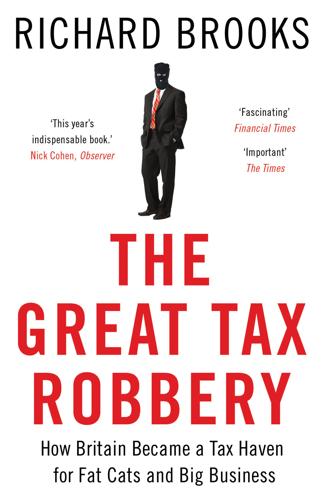
The Great Tax Robbery: How Britain Became a Tax Haven for Fat Cats and Big Business
by
Richard Brooks
Published 2 Jan 2014
From 1979 Margaret Thatcher’s government began implementing the monetarism and financial deregulation advocated by the ‘Chicago school’ of economic theory and championed here by the new prime minister’s favoured think tanks such as the Institute for Economic Affairs. Her first and perhaps most significant move was the abolition of exchange controls, the system of currency regulation designed to prevent destabilizing inward and outward flows of finance. Soon followed by the removal of credit controls and the ‘Big Bang’ deregulation of the City, the reforms opened up the British economy in more than just the intended sense.
…
When formal income tax was first introduced by William Pitt at the end of the eighteenth century his Whig opponents claimed the tax, then at no more than 10% and reserved for the very wealthy of the day, ‘would strike with peculiar force at industry and the fruits of industry’. The other main objection, voiced by a landed Scottish MP, was that the tax ‘would encourage a spirit of migration’. The City of London was characteristically helpful, calling it a ‘galling, oppressive and hateful inquisition’.45 There is no evidence to bear out the naysayers’ prophecies, which have wearying echoes of today’s empty threats from industry bodies that companies will ‘quit the UK’ at the slightest tax rise (or even failure to reduce tax).
…
But stroll around Mayfair, pausing to gawp at the Aston Martins and outrageously priced restaurant menus, and it’s clear that many of the funds’ managers are actually nowhere near the Alps or a small coral island in the Caribbean. The ‘hedgies’ revel in the London life without the fruits of their toil facing any meaningful taxation here. This is largely thanks to a generous tax exemption introduced in 1970 to give the expanding City of London an edge in the market for managing what were then more sedate ‘offshore funds’. Without this concession the profits of such funds were likely to have faced UK taxation because their management in London would, in effect, have made the profits those of a UK branch. The ‘investment management exemption’, expanded to cover greater levels of management by Tory chancellor Ken Clarke in 1995, keeps the funds’ profits out of the taxman’s grasp.
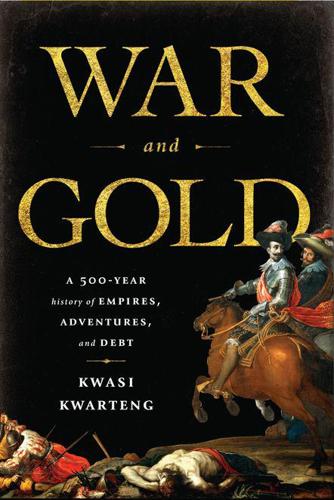
War and Gold: A Five-Hundred-Year History of Empires, Adventures, and Debt
by
Kwasi Kwarteng
Published 12 May 2014
W., 269, 307–8 Bush, George W., 296–7, 305–14, 321, 330–2, 348 Business China, 292 Byrnes, James, 182 Cajamarca, 16 Callaghan, James, 241 Calonne, Charles-Alexandre, 43–5 Cambridge Apostles, 111, 149 Campbell, John, 245 Canada, 39, 352 Cantor, Eric, 349 capital, free movement of, 243–4 capitalization rates, 326–7 Cardin, Benjamin, 297 Carnegie, Andrew, 75, 77, 80 Carter, Jimmy, 235–6, 238–9, 249, 308, 310 Case, Walter, 128 Cassel, Sir Ernest, 88–9 Cassel, Gustav, 114–15 Cato Institute, 309 central banks Burns’s paradox, 239–40 and currency stability, 207, 239–40 and global gold stocks, 358–9 invention of, 22 and issue of paper money, 59–60, 64–5 as lenders of last resort, 50 US establishment of, 66–8, 78–80, 108 Chamberlain, Neville, 138 Chandos, Duke of, 37 Charles II, King, 24, 357 Charles V, Emperor, 11–12, 19–20 Chase, Salmon, 71–2 Chase Manhattan Bank, 230–1, 238 Cheney, Dick, 132 Chiang Kai-shek, 193 China communist victory in, 193 and currency value, 285–8, 291–2, 296–9, 319, 351 dollar reserves, 299–301, 318–19 economic expansion, 78, 83, 282–300 and financial crisis, 351–2 financial reforms, 293–4 foreign exchange reserves, 287, 358 and global financial system, 358 gold reserves, 358 infrastructure spending, 294–6 Japanese war in, 191 and Korean War, 163 and mercantilism, 284–5 national debt, 295 state enterprises, 293–4 symbiosis with US, 318–19, 321 welfare provision, 296 Chinese Communist Party, 282, 288, 294 Chongqing, 293 Church assets, taxation of, 44–6 Churchill, Winston, 4, 100, 107, 118, 138, 142, 147, 181, 246, 331 Cieza de Léon, Pedro, 13 Citicorp, 230 Citizens Against Government Waste, 310 City of London, 24–5, 27 ad hoc financial arrangements, 86 Bagehot’s account of, 63–4 and Barings crisis, 85–6 Big Bang deregulation, 258 decline as financial centre, 97, 106, 108 dependence on government, 38 in Edwardian period, 82–3, 86–90 and outbreak of First World War, 91–3 post-war, 171–2 social structure, 86–9 working week, 88 see also Lombard Street Clarke, Richard (‘Otto’), 173 Clay, Henry, 70–1 Clay, Lucius D., 181–5 Cleveland, Grover, 74 Clinton, Bill, 307–8, 310, 348 Cobbett, William, 52 Cobbold, Cameron, 178–9 Cobden, Richard, 160, 246 Coggan, Philip, 5, 320, 325, 329, 355 Cold War, 157, 159, 186, 198, 234, 237, 261 collateralized debt obligations (CDOs), 324–7 Colombian Mining Association, 56 Columbus, Christopher, 12 Compagnie d’Occident, 30–1, 34 Companies Act, 87 company indebtedness, high levels of, 233 Company of the Indies, 31–3 ‘compensatory finance’, 203 ‘competitive devaluation’, 132 Connally, John, 216–19 conquistadors, 12–16, 23 Conrad, Kent, 305 ‘consumption function’, 136 ‘contagion’, 290 Continental Congress, 41–2 ‘continental’ currency, 5, 41–3, 46, 71 Cooke, Jay, 71 Coolidge, Calvin, 119 Cornwell, Rupert, 277 Cortés, Hernan, 12–15 Council of the Indies, 19 Countrywide mortgage lenders, 322–3 Covarrubias, Diego de, 20 Craggs, James, 32, 37 Crawford, Thomas, 35 credit bubbles, ending of, 123 Crimean War, 61 Cripps, Sir Stafford, 175, 179–80 Crosland, Anthony, 172 ‘Currency School’, 64 Curtice, Harlow, 154 Curtis, Timothy Abraham, 57 Czechoslovakia, 157 Daily Mail, 180 Dalton, Hugh, 171–2, 174–5 Darling, Alistair, 332–3, 343 de Gaulle, Charles, 209–11, 214 de Zoete, Walter, 88 debt-for-equity swaps, 31 Delors, Jacques, 262, 264, 267–8, 276 Delors Committee, 272, 276 democracy, and public spending, 2–3, 93, 279 Deng Xiaoping, 282–4 Der Spiegel, 275–6, 279 deregulation, of financial services, 257–8 derivatives, 320 Detroit Bank, 193, 207 Deutschmark devaluation, 188 dollar exchange rate, 254–5 and ERM, 264, 266–72 and German reunification, 266, 268 introduction of, 183–7 and single currency, 274–5, 278 and the snake, 263 Dillon, Douglas, 210 Disraeli, Benjamin, 56–7 Dodd, David, 161 Dodd–Frank Act, 351 Dodge, Joseph, 184, 193–6, 201 dollar break with gold, 5, 214, 218–20, 223, 225, 255, 262 Bretton Woods and link to gold, 140, 143–4, 149–50, 167–70, 208–12, 250–1 defined value of, 42–3 devaluation, 131–2 establishment of, 42–3, 279 importance of exchange rate, 254–6 stabilization of, 237–9 suspension of link to gold, 71–2, 74, 76, 219 Dollar Drain Committee, 175, 179 ‘dollar financing problem’, 154–5 ‘dollar shortage’, 158, 181 dot-com bubble, 314, 316 Dow Jones average, 218, 226, 237, 259–60, 331 Drew, Daniel, 75 ducats, 11 duelling, 27–8 Duncan, Richard, 315–16, 355 East Germany, 186, 266, 268 East India Company, 32 Eckstein, Otto, 228 Economic Club of Detroit, 165, 207–8 Economic Journal, 97, 107, 111 Economist, 82, 91, 99, 104, 113, 142, 226, 292, 299, 338 articles on Japan, 198–9 Friedman obituary, 234 and launch of euro, 279–80 and shift in economic power, 228–9 Eden, Anthony, 246 Edward VII, King, 89, 147 Eichengreen, Barry, 131–2 Einzig, Paul, 135–6 Eisenhower, Dwight D., 168–70, 193, 202, 204, 207, 252, 259, 306, 308, 311, 339 Ekali swimming pools, 335–6 El Dorado, 13 Elizabeth II, Queen, 270 Ellerman, John, 87–8 ‘emerging markets’, 289 Emminger, Otmar, 187, 254–6 English, Phil, 297 Erhard, Ludwig, 182 ERM (exchange rate mechanism), 263–72, 276, 280 euro conditions for joining, 272–3, 277, 336 Greece joins, 280–1, 335–7 introduction of, 272–81, 334–5 and moral hazard, 274 risk of collapse, 346–7 European Central Bank, 272, 346 European Commission, 346 European Economic Community (EEC), 211, 226, 262, 276 European Financial Stabilization Facility (EFSF), 338 European Union, 267, 276, 337, 352 Evening Standard, 118 excess profits duty, 104–5 Export-Import Bank of Japan, 195 Export-Import Bank of Washington, 154, 164 Fairchild, Fred, 103 Faisal, King, 229–30 Federal Reserve Accord of 1951, 164–5, 169 under Bernanke, 327, 343 under Burns, 215, 233 establishment of, 108 Federal Open Market Committee (FOMC), 163–4 and Great Depression, 126–8 under Greenspan, 258–60, 301–4, 310, 313–14, 325 and market stabilization, 259–60 under Martin, 205–6, 215 Meltzer’s history of, 212–13 relationship with Treasury, 163–7, 169 Strong and New York branch, 123 under Volcker, 223, 237–8, 249–50 Feis, Herbert, 83 Ferguson, Niall, 6, 90, 318–19, 351 fiat money, 5, 61, 320 Field, Marshall, 75 ‘Financial Revolution’, 24 Financial Times, 227, 265, 271–2, 326, 347 Finland, 278 First Bank of the United States, 67 First World War, outbreak of, 90–3 fiscal policy, primacy of, 2–3 ‘fiscal repression’, 357–8 Fish, Hamilton, 157 Fisher, Irving, 121–2 Fisk, James, Jr (‘Big Jim’), 76 Fleming, Ian, 4 floating currencies, 226, 231, 234–5, 262, 299 florins, 11 Forbes, Steven, 299 Ford Motor Company, 121 Ford, Gerald, 232, 235, 308 foreign exchange controls, abolition of, 242–3 Forster, E.
…
A Britain which still had a vast quantity of state-owned assets on its balance sheet would probably have been forced to sell them at very low prices in the wake of the global recession which descended in 2008–9. State assets would undoubtedly have made Britain’s poor public finances in the aftermath of the events of 2008 even worse. In addition to privatization, there also occurred the regulatory reform of the City of London. In 1986, ‘Big Bang’ changed life within the Square Mile for ever. The ‘traditional and class-based’ culture of the City was swept away. Big Bang itself happened on 27 October 1986, but for three years, following the 1983 agreement between the Stock Exchange and the Department of Trade and Industry, ‘the structure and the form of the City’ underwent a revolution.49 As one historian explains: ‘A new dealing system was established together with a new regulatory framework to police it.
…
Within firms a new contract between employer and employee had to be created.’50 There were inevitably cultural tensions as big American banks acquired more traditional English brokerage firms and merchant banks. The initial 1983 deal between the Stock Exchange and the government had been an undertaking, on the part of the City of London, to drop fixed commissions and to open itself to competition. These steps had ushered in the market reforms of 1986 known as Big Bang. In the light of the events of October 1987 in which international markets crashed, many questioned the pace and efficacy of the reforms that Mrs Thatcher’s government had introduced.51 Yet, as in so much else associated with her government, the direction and philosophy were clear.
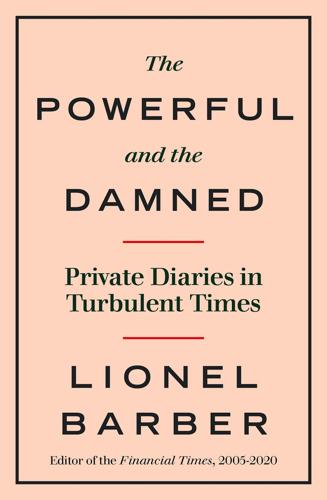
The Powerful and the Damned: Private Diaries in Turbulent Times
by
Lionel Barber
Published 5 Nov 2020
He liked my Brexit essay but makes an even more important point about life after our departure from the EU. In the past 30 years, the City of London has never had it so good. Thatcher’s Big Bang deregulation attracted well-capitalised American investment banks which swallowed up the UK houses. The launch of the euro gave a second fillip to the City, delivering a new pool of capital for investment and trading. The UK – outside the single-currency zone – enjoyed the best of both worlds. Gnodde cautions that ‘Singapore-style’ deregulation post-Brexit will only antagonise the Europeans. Dublin, Paris, Milan and Frankfurt will not compete with London any time soon.
…
(BBC Radio 4) 340–41 apartheid, South Africa 51, 52–3, 109, 229–30, 261 Apple (technology company) xi, 42, 137–8, 178, 204, 215 Arab Spring 55, 177, 210, 377 ArcelorMittal 262 Arlidge, John 42–3 Arm (semiconductor maker) 325, 325n artificial intelligence (AI) 214–15, 394, 439 Arup 305 Asian financial crisis (1998) 46, 71 Assange, Julian xv, 174–5 AstraZeneca 244, 263 Atkins, Ralph 61 Aung San Suu Kyi 231 austerity policies 154, 155, 203, 209, 210, 259, 273, 289, 319, 438 Aven, Petr 275 Axel Springer xv, 283, 288, 291–3, 295 Aznar, José María 154, 225 BaFin 405, 407 Baker III, James A. ix, 54, 86, 188, 233, 314–16 Baker, Steve 373 Balls, Ed 71, 136 bank/corporate sector bail outs 19, 22n, 37, 71, 72, 86n, 106, 109, 167, 172, 212, 435–6 Bank of England 19, 22n, 30, 70, 71, 76, 77, 106, 115, 128, 138, 167, 210, 212, 323, 327, 333, 365–6, 371 Bank of Italy 178 Bank of Scotland 19 Bannon, Steve 342, 348, 349n, 350, 366, 367, 379–80, 380n, 381, 381n Barber, Francesca (daughter) 51, 173 Barber, Frank (father) 4, 7, 441 Barber, Lionel: cycling, enthusiasm for 35, 216, 218–19, 235, 243–4, 272, 382, 402; Dulwich College, scholarship boy at 138, 262; European University Institute, Fiesole, sabbatical at 178; family and see individual family member name; Financial Times career see Financial Times; future/post-Covid-19 world, on five potential developments worth considering in 436–41; Institute of Governmental Studies, Berkeley, sabbatical at 157, 207; interviews see individual interviewee name; journalism as a vocation, belief in 4, 340, 441; journalism career, origins of 4, 7, 340; Laurence Stern fellow, Washington Post 10; lectures 134, 172–3, 200, 219, 264; Légion d’Honneur 326–7, 341; life after editorship of FT 10, 432, 433–4; Oxford Union debate 41, 41n; Oxford University 7, 9, 217, 340, 418; overseas trips see individual nation name; rugby and 9, 17, 203, 424, 428; Wimbledon Championships, attends 33–4, 118, 211–12, 242n Barber, Tony (brother) 353, 417, 419 Barber, Victoria (wife) 7, 8, 33–4, 37, 39, 48–9, 56, 57, 82, 88, 98, 107, 110, 135, 136–7, 140, 143, 151, 155–6, 168–9, 171, 178, 204, 206, 208, 211, 222, 225, 243, 248, 250, 264, 284, 292, 296, 300, 304, 322, 360, 409, 411, 422, 431 Barclay, Aidan 358, 358n Barclays Bank 74–5, 101, 121, 121n, 122, 167–8, 211–12, 285–6 Barker, Alex 323, 326, 406, 426 Barroso, José Manuel 83–4, 84n BBC 28, 43, 56, 65, 70, 121n, 149, 162, 216–17, 216n, 217n, 289, 317, 318, 332, 340; BBC Trust 217, 217n Bear Stearns 24, 25, 85, 87–8, 93–4, 98, 104 Becker, Boris 242–3, 242n Bell, David ix, 3–5, 6, 12, 28, 189, 220–21, 239, 277, 294, 430 Bell, Tim 316, 430 Benoit, Bertrand 95, 96 Berkley, Bill 186 Berlusconi, Silvio 196, 204–5 Bermann, Sylvie x, 341 Bernanke, Ben 94–5 Bezos, Jeff 60n, 189, 215, 276, 282, 398 Bharatiya Janata Party (BJP) 244, 246 Bhutto, Benazir 41, 41n, 170, 171 Big Bang deregulation, City of London 429 Big Shorts 134, 134n Bild 283, 292 Black, Conrad 197, 227 Blackhurst, Chris 192 Blackstone xiv, 46–7, 103–4, 118–20, 333, 377 Blair, Tony ix, 10–12, 11n, 13, 41, 47, 64, 64n, 65, 67, 68, 68n, 71, 89n, 98, 125, 138, 142, 154, 157, 158, 164, 204, 207–9, 286, 316, 317, 333, 339, 356, 376, 414, 426, 438; ‘Inside Blair Inc’, FT feature 142 Blankfein, Lloyd ix, xiv–xv, 24, 24n, 87, 112, 166–7 Blas, Javier 286 Blavatnik, Len 319, 377, 377n Bloomberg 25, 35, 212, 217, 218, 258, 283, 286, 298 Bloomberg, Michael 217–18 Blue, Carol 57 Blumenthal, Sidney 206 BNP Paribas 69 Bogler, Dan 26, 26n, 147–8 Bokhari, Farhan 170–71 Bono, Caspar de 118 Bono, Gillian de 104 Botín, Ana 210, 210n, 320 Botswana 51, 52 Bo Xilai 206, 207 Bozorgmehr, Najmeh 248 BP 5n, 34–5, 43, 58, 59, 239, 409; Browne resigns from 58–9, 59n; Deepwater Horizon explosion (2010) 5n, 155, 160, 197, 409; Dudley as CEO 163, 239; Prudhoe Bay oil field 34–5; safety record in the US 5n, 34–5, 43, 59, 155, 160, 197, 409; Texas City terminal explosion (2005) 34–5 Bracken, Brendan 24–5n Bracken House 115, 373, 391, 404, 411 Bracken Room 24, 24n, 25, 101, 398 Bradlee, Ben 10, 32, 35–6, 276, 432 Brailsford, David 216, 216n Branson, Richard 204, 376 Brauchli, Marcus 60, 60n, 92–3, 289 Brazil 140, 142–3 Brexit xv, xvi, 58, 97, 153, 267, 273–4, 290, 332, 339, 388, 395, 419, 432, 435; Article 50 of the Treaty on European Union 323, 323–4n, 331, 331n, 381; China and 374, 375; General Election (2017) and 354; globalisation and 335; inequality and xiii; Japan and 391–2; leaving negotiations 324, 327–8, 334, 339, 343, 344, 345–6, 347, 349–50, 354, 362, 363–4, 365–6, 373, 381, 399–400, 402, 406, 410, 411, 412, 413, 414–15, 420–21, 420n, 422, 423–5, 426, 427, 429; national renewal, as opportunity for 437–8; ‘People’s Vote’/second referendum 322, 323, 341, 354, 389, 399, 406, 413, 424, 426; populism in Europe and 353; Project Fear 318–19; prorogation of Parliament 423–5; referendum 228, 308–10, 312–23, 325, 340–41, 382, 383, 394n; Trump and 346, 347; Vote Leave campaign 310, 312–13, 318, 320–21, 322, 323, 394n British Press Awards 92, 379 Brittan, Leon 151, 326 Brooks, Rebekah 162, 223, 324n Browne, John 58–9, 59n, 163, 319 Brown, Gordon ix, 11–12, 11n, 13, 47–50, 64–5, 64n, 69, 70, 71, 92, 97, 98, 101, 106, 109, 117, 122, 123, 128, 136, 143–4, 148, 150, 157, 162, 164, 173–4, 244, 273, 286, 414, 435, 438 Brown, Tina 6–7, 99 Bruni, Carla 91–2 Brunswick 42, 153n BskyB 63, 162, 267–8 Buckley, Neil 89–90 Buck, Tobias 107, 226 Buffett, Warren 228, 352, 402 Bundesbank 179, 368, 415–16 Burberry 42, 75 Burma 169 Burns, Bill 417 Burns, Jimmy 20–21 Burns, Nick 172, 173 Buscombe, Baroness 139, 165–6 Bush, George H.
…
This book aims to convey a sense of these epochal changes through individual portraits of power, via conversation and observation. As editor of the FT, I was privileged to gain access to world leaders in capitals ranging from Beijing, Moscow and Riyadh to Tehran, Tokyo and Washington. I interviewed presidents (Obama, Putin, Trump) as well as leading businessmen and financiers on Wall Street and in the City of London. And I was granted audiences with royalty such as Prince Charles, Prince Andrew and Mohammed bin Salman, the strongman of Saudi Arabia. These men of power – and they are almost all men rather than women – are accustomed to wrapping themselves in protective bubbles, surrounded by armies of administrative aides, PR advisers and security guards whose job is to keep prying journalists and the public at a distance.
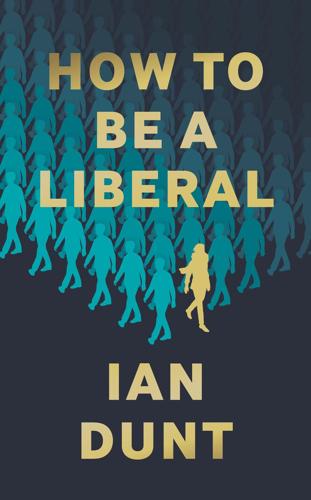
How to Be a Liberal: The Story of Liberalism and the Fight for Its Life
by
Ian Dunt
Published 15 Oct 2020
When work was found, it was in low paying retail or hospitality jobs, whose meagre wages were a drop in the ocean next to the riches made in capitalism’s headquarters in Wall Street, the City of London and Silicon Valley, the heart of the new tech industry. The state retreated from the market. Government spending was cut, particularly in education, housing and transport. Trade unions were legally restrained. Taxes were cut, especially for the wealthy. Nationalised industries were privatised, particularly in areas like gas, water, steel, airlines and rail. Sectors were deregulated. In some areas, such as aviation and trucking, these changes were positive, leading to greater competition and reduced prices.
…
Under Blair, British bank regulation was streamlined into a single light-touch entity, the Financial Services Authority (FSA). ‘The philosophy of the FSA from when I set it up,’ its first chair said, ‘has been to say “consenting adults in private? That’s their problem.”’ A deregulating causal cycle developed between the City of London and Wall Street, in which both lobbied, usually successfully, for their own government to lower and limit regulation of financial services so they could stay competitive with each other. These measures were supported by the new chairman of the Fed, Alan Greenspan. He repeatedly put forward the argument that there was no need to regulate financial services, because they would do it themselves by virtue of market logic.
…
For Goldman Sachs, Merrill Lynch and Morgan Stanley it was 40 per cent. In the UK, which was even more heavily deregulated, the repo market became more complicated. ‘Broker dealer’ banks holding securities engaged in a process called collateral rehypothecation. This involved using the collateral as further collateral in a separate repo deal. In the US, this was limited by regulation to no more than 140 per cent of the value of the collateral being held. But in the UK there was no limit. So investment banks – both European and American – used the looser rules in the City of London to secure up to 400 per cent collateral multiplication, adding up to around $4.5 trillion in additional funding.
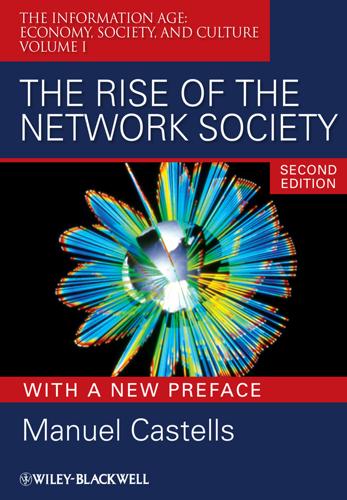
The Rise of the Network Society
by
Manuel Castells
Published 31 Aug 1996
The ratio between the annual turnover of foreign exchange and the volume of world exports increased from 12:1 in 1979 to 60:1 in 1996, thus revealing the predominantly speculative nature of currency exchange. The global interdependence of financial markets is the result of five main developments. The first factor is the deregulation of financial markets in most countries, and the liberalization of cross-border transactions. A turning point in this process of deregulation was the so-called “Big Bang” of the City of London on October 27, 1987. This new financial freedom allowed capital from all sources to be mobilized from anywhere to be invested anywhere. In the US, between 1980 and the late 1990s, investment by pension funds, mutual funds, and institutional investors increased by a factor of 10, so that in 1998 stock market capitalization in the US amounted to 140 percent of GDP.
…
France followed, setting up its own futures exchange, MATIF, in 1986. Germany remained more cautious about financial deregulation, although cross-border capital controls were eliminated in 1981. The Asian financial markets, particularly Hong Kong and Singapore, took advantage of their loosely regulated environment to attract financial transactions, winning market shares over a more regulated Tokyo stock-exchange market. The full deregulation of financial markets in the City of London in October 1987 opened a new era of financial globalization, in spite (or because?) of the simultaneous October 1987 crash in the New York stock exchange.
…
Thrift, Nigel J. (1986) The “Fixers”: the Urban Geography of International Financial Capital, Lampeter: University of Wales Department of Geography. —— (1990) “The making of capitalism in time consciousness”, in J. Hassard (ed.), The Sociology of Time, London: Macmillan, pp. 105–29. —— and Leyshon, A. (1992) “In the wake of money: the City of London and the accumulation of value”, in L. Budd and S. Whimster (eds), Global Finance and Urban Living: A Study of Metropolitan Change, London: Routledge, pp. 282–311. Thurow, Lester (1992) Head to Head: the Coming Economic Battle among Japan, Europe, and America, New York: William Morrow. —— (1995) “How much inequality can a democracy take?”
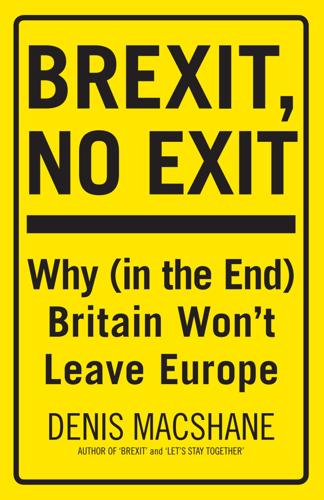
Brexit, No Exit: Why in the End Britain Won't Leave Europe
by
Denis MacShane
Published 14 Jul 2017
After joining the EEC in 1973, shortly after the end of Bretton Woods system and the emergence of such new global economic powers as Japan or the Gulf States, with money-making cities like Hong Kong and Singapore giving the first signs of what Chinese capitalism could become, London took much of the new international financial market in raising capital and in currency trading. Mrs Thatcher’s ‘Big Bang’ deregulation of the 1980s and the image of London as the epicentre of finance capitalism attracted every unsentimental money-maker in the world. One can moralise about them, but as money flowed in and through London every bank in the world needed an office or an operation, big or small, in the Square Mile. But the so-called Big Bang – in essence a move from slow-moving paper and handshake transactions to round-the-clock, seven-days-a-week on-screen trading – did not make London the Wall Street of Europe.
…
The EU regulates under its 2016 Solvency II law and under EIOPA – the European Insurance and Occupational Pensions Authority – the cross-border operations of the insurance and pensions profession in which the UK is a specialist. This sector of the financial services industry is a major UK profit centre. Firms from all over the world based in the City of London have freedom to operate anywhere under EU rules in 27 countries. British officials and UK MEPs have been at the heart of shaping EU rules and laws. With Brexit, British firms in these sectors will not be able to operate in Europe unless they abide by the law and accept, ultimately, that the European Court of Justice is the final arbiter on a dispute.
…
To sugar the pill, Barnier is dangling the carrot of a provisional agreement on tariff-free movement of goods and agricultural products between the UK and the EU, which he would like to see as part of the withdrawal package. It would not cover services, which represent about 80 per cent of the UK economy – including most importantly the huge financial services provided by the City of London, which since the 1980s have been a major money earner for Britain. In addition, the EU would expect rules-of-origin obligations to be respected, which could mean that most made-in-Britain foreign, notably Japanese, cars might fall short of having enough of their total value actually produced in the EU not just assembled on Nissan, Toyota and Honda assembly lines.
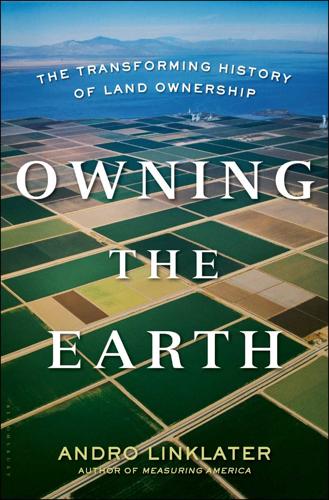
Owning the Earth: The Transforming History of Land Ownership
by
Andro Linklater
Published 12 Nov 2013
“the General Motors of the housing industry”: Quoted in American Family Home, 1800–1960 by Clifford Edward Clark (Chapel Hill, NC: University of North Carolina Press, 1986), 221. you are inferior: Von Mises to Rand, letter dated Jan. 23, 1958. “intellectually limited”: Greenspan’s remarks appear in his autobiography, Age of Turbulence: Adventures in a New World (New York: Penguin, 2008). the deregulation of the City of London: Big Bang was the centerpiece of a wave of deregulation that included airlines, utilities, and communications. “unfettered market competition”: Greenspan testified to Congress Oct. 23, 2008. the value of subprime mortgages: $1.3 trillion of subprime mortgages, figure from “Move over prime,” The Economist, February, 5, 2009.
…
After her election in 1979, Prime Minister Margaret Thatcher began a crusade on behalf of Hayek’s economics. Her privatization of Britain’s airlines, telecommunications, energy suppliers, and even public housing were all inspired by his “crisp, clear analytical arguments against socialism.” In 1986, her government endorsed the deregulation of the City of London’s financial markets in a single measure, known as the Big Bang. Not only were the barriers between investment and commercial banking abolished, it became apparent that virtually any kind of institution of any nationality that borrowed and lent money could trade with the lightest supervision in London’s financial markets.
…
When yet another royal bill against enclosure was presented to Parliament in 1547, the Commons flatly rejected it, making clear that the royal government’s cause was lost. The parliamentary battle was in a way the most significant result of the land revolution. Politics had traditionally taken place in the king’s council where the great nobles and the City of London’s leading merchants had argued with the king’s servants, his chancellor, his chief justice, and the keeper of the royal purse. But the new property owners sought to protect their interests in the House of Commons where landowners outnumbered courtiers. One of the earliest symptoms of their growing influence came in a prolonged battle over the tax-avoidance trusts they set up, or “uses” in sixteenth-century language, to own their new properties.
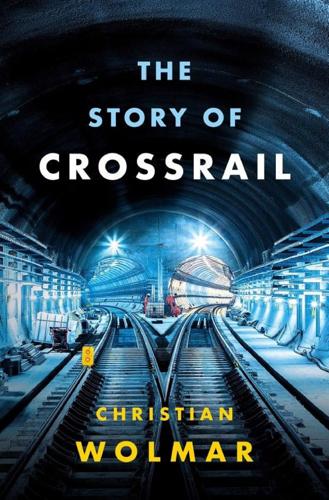
The Story of Crossrail
by
Christian Wolmar
Published 5 Sep 2018
32–3 and the Central London Rail Study 40 and the Channel Tunnel 66 and the Cross London Rail Links team 69 and cross-town railways 37–8 and Crossrail routes 122 privatization 77, 85, 89, 90, 98 British Transport Commission, London Railways Plan 26 Brown, Gordon 145–7, 151, 153, 158, 274–5 Browne, Liam 170 Buck, Martin 150 Burnham station, potential impact of Crossrail on 130–2 Business Case for Crossrail 95–6, 98–100, 103, 104, 105–6, 113 business case methodology, and benefit–cost ratio 46, 54 businesses agglomeration effects 38, 48, 152–3 funding Crossrail 112, 147–8, 151, 156 Cameron, David 161, 203–4 Canada Water 222–3 canals 23–5 Canary Wharf 56, 62, 64, 65, 98, 123, 128, 132, 146, 150 Crossrail HQ at 164 and the DLR 58, 59, 60 funding Crossrail 150, 151, 152 petition to the House of Lords 142 station construction 150, 158–9, 210–11, 221 tunnel construction 179, 183, 202, 257 Canvey Island 201 Cassel, Sir Ernest 13 Cassidy, Michael 220–1 CBI 110 CBTC (Communications-Based Train Control) 139, 236 Central Line 69, 120–1, 123, 127 Central London Rail Study 34, 38, 40–3, 45, 62, 65, 69–70, 73, 81, 83 and benefit–cost ratio of the Crossrail scheme 49–50 and Docklands 59 Central Railway 9, 12–19, 20 electric locomotives 15–16 fares 17–18 passenger numbers 18 ventilation 16–17 Centre Point 158, 229 Chambers, Mr Anthony 136–7 Channel Tunnel Rail Link (now HS1) 66, 79, 89, 91, 98, 164, 165, 186 construction 169, 186, 209, 274 Chelsea–Hackney line see Crossrail 2 (Chelsea–Hackney line) China 138–9 CIL (Community Infrastructure Levy) 114, 149, 279 Circle Line 10, 122, 125, 161, 249 City & South London 10–12, 13, 15, 17 City of London 95, 96 and the benefits of Crossrail 270 Big Bang (financial services) 38, 40, 123 and Crossrail tunnel construction 176–7 and the first Crossrail bill 77 and the first Tube railway 11 funding Crossrail 146–7, 150–1, 152 petition regarding Liverpool Street 136, 141 City of London Corporation 220–1 Clark, Katy 134 coalition government (Conservative–Liberal) 155–6, 159, 161 Colin Buchanan & Partners 153 the Combine 25 Community Infrastructure Levy (CIL) 114, 149, 279 commuter trains 41, 98 Comprehensive Spending Review 149, 159, 160, 163, 173 Connaught Tunnel 126, 132, 191, 196–7, 203 Conservative governments Conservative–Liberal Democrat coalition 155–6, 159 and the Crossrail 2 project 278–9 transport policies 28–9 construction industry changing patterns of employment 260–1 cost savings on Crossrail 162 health and safety 170–2 construction work (Crossrail) dealing with contractors 259–63 deaths and injuries cyclists 231–2 workers 172, 228–9, 263–4 demolition work 158 design contracts 172–3 lorry movements and safety record 228–32 safety regime 169, 169–72, 178–9, 194 tenders for contracts 163 testing regime 264–5 see also stations (Crossrail); tunnel boring machines (TBMs); tunnels (Crossrail) cost–benefit analysis agglomeration effects 38, 48, 152–3 of transport megaprojects 45–54 County of London Plan (1943) 25–6 Cross London Rail Links 69, 70, 73, 96, 119, 120, 125, 143 Business Case 95–6, 98–100, 103, 104, 105–6, 113 Environmental Statement 117, 129–32 and ownership of Crossrail 158 Race Equality Impact Statement 132–3 see also Crossrail project Crossrail 2 (Chelsea–Hackney line) 29, 41–2, 50, 65, 70–1, 91, 277–81 funding 279–80 politics of 278–9 Crossrail project benefit–cost ratio of 52–3 benefits of 270–1, 280 communication systems 262–3 criticisms of 267–8 Crossrail Limited established 143 delay in opening 162, 265, 269 estimated passenger numbers 128, 268 HQ 164 innovation programme 53 invisibility of 269–70 job creation 96, 128–9 legal status of 157–8 maintenance 249, 265 management structure 164–5, 168–9, 208–9, 233 planning process 71–4, 133–4 programme partner 167–8 project delivery agreement 163–4 project delivery partner 166–7 public awareness campaign 116–17 routes 97–9, 267 inside tunnels 71–2, 97–8, 119–22, 126–8 Kingston branch 104–6 outside tunnels 99, 104–6, 122–5 safety culture 39–40 Transport and Works Act application 88–9 website 117, 151, 276 see also construction work (Crossrail); Cross London Rail Links; Elizabeth Line; funding Crossrail; Parliamentary bills; trains Custom House station 226 cyclists, killed by Crossrail contractors’ lorries 231–2 Daily Mail 17 Darling, Alistair 99–100, 101–3, 105–6, 110 Dartford 127 Department for Transport 46, 66, 78, 96, 100, 138 building of Crossrail 143 and Crossrail station 209, 220 and Crossrail trains 239, 243, 251 funding Crossrail 146, 147, 160, 274 legal status of Crossrail 157–8 project delivery agreement for Crossrail 163 disabilities, people with, accessibility at Crossrail stations 141, 214, 226, 250–1 District Line 24, 97, 105, 133, 161, 249 District Railway 19 Dix, Michele 278, 279, 280 DLR (Docklands Light Railway) 54, 58–62, 196, 226 Dobson, Frank 146 Docklands 43, 54–67, 71, 95, 96, 280 Crossrail route 97–8, 125 Development Corporation 56–9, 60 East London docks 55 Limehouse Link 58 Docklands Light Railway (DLR) 54, 58–62, 196, 226 Dog Kennel Bridge 142 driver-only trains 104 East London docks 55 East London Line 97 Extension 129 East London Rail Study 63–4 Eastern Counties & Thames Junction Railway 196 Ebbsfleet 98, 127 economic growth 83–4 Edward, Prince of Wales (later Edward VII) 14, 17 Electric Traction Company 13 Elizabeth Line 271 as part of Transport for London 249–50 stations see stations (Crossrail) tunnels 183 employment apprenticeships 276–7 central London 38, 40 changing patterns of 268 in the construction industry 260–1 and City deregulation 123 and the Crossrail concept 30 Crossrail and job creation 96, 128–9 in west London 124 English Heritage 116 English Nature 116 Ennis-Hill, Jessica 190 Environmental Statement 117, 129–32 Essex 122–3 ETCS (European Train Control System) 236–7, 245–7, 248 Eurostar 127 Fairfield Conservation Area Residents Association 136 Farringdon 7, 8, 25, 120–2, 128, 142, 179, 250 station construction 211, 221 station design 216 tunnel construction 182–3, 187, 189, 203, 204 Fennell, Desmond 38 The Fifteen Billion Pound Railway 195 financial services, Big Bang 38, 40, 123 Finsbury Circus 194, 224–5 Finch, Spencer 221–2 First World War 20, 25 Fleet Line see Jubilee Line Flyvbjerg, Bent 51, 52, 165 France, RER (Réseau Express Régional) 34–6, 41, 81–2, 107 freight trains 139–40 Fugro 178–9 funding Crossrail 82, 111–16, 143, 145–56 annual statements on 159 businesses 112, 147–8, 151, 156 Canary Wharf Group 150, 151, 152, 158–9 City of London 146–7, 150–1, 152 Comprehensive Spending Review 149, 159, 160, 163, 173 cost escalation 267, 274 and savings 159–63 cost estimates 74, 99, 128–9, 147, 159 cost-saving measures 104 Heathrow Airport 149–50 National Audit Office report on 272–3 Network Rail 148, 151, 160–1 property development at stations 112–14 trains 237–40, 243 Transport and Works application 88–9 Gatwick Airport 121 G.E.
…
The obvious route for Crossrail after it emerged from the eastern end of the central London tunnel was to take over the existing services to Shenfield, an affluent suburb of Brentwood which has long been the terminus for the trains from Liverpool Street to outer east London and Essex. The trains on this route had become severely overcrowded because of Big Bang, experiencing a growth of 40 per cent in the decade running up to 1991 as the deregulation of the City had created jobs for baristas, brickies and clerks as well as bankers. In Michael Schabas’s words: ‘Essex had become known somewhat disparagingly as the “county of clerks” most of whom walked out of Liverpool Street station every morning and into a job in the City.’12 Many also transferred at Liverpool Street onto the Central Line to get to the West End and it was these people whose journeys to work would be greatly improved by Crossrail.
…
32–3 and the Central London Rail Study 40 and the Channel Tunnel 66 and the Cross London Rail Links team 69 and cross-town railways 37–8 and Crossrail routes 122 privatization 77, 85, 89, 90, 98 British Transport Commission, London Railways Plan 26 Brown, Gordon 145–7, 151, 153, 158, 274–5 Browne, Liam 170 Buck, Martin 150 Burnham station, potential impact of Crossrail on 130–2 Business Case for Crossrail 95–6, 98–100, 103, 104, 105–6, 113 business case methodology, and benefit–cost ratio 46, 54 businesses agglomeration effects 38, 48, 152–3 funding Crossrail 112, 147–8, 151, 156 Cameron, David 161, 203–4 Canada Water 222–3 canals 23–5 Canary Wharf 56, 62, 64, 65, 98, 123, 128, 132, 146, 150 Crossrail HQ at 164 and the DLR 58, 59, 60 funding Crossrail 150, 151, 152 petition to the House of Lords 142 station construction 150, 158–9, 210–11, 221 tunnel construction 179, 183, 202, 257 Canvey Island 201 Cassel, Sir Ernest 13 Cassidy, Michael 220–1 CBI 110 CBTC (Communications-Based Train Control) 139, 236 Central Line 69, 120–1, 123, 127 Central London Rail Study 34, 38, 40–3, 45, 62, 65, 69–70, 73, 81, 83 and benefit–cost ratio of the Crossrail scheme 49–50 and Docklands 59 Central Railway 9, 12–19, 20 electric locomotives 15–16 fares 17–18 passenger numbers 18 ventilation 16–17 Centre Point 158, 229 Chambers, Mr Anthony 136–7 Channel Tunnel Rail Link (now HS1) 66, 79, 89, 91, 98, 164, 165, 186 construction 169, 186, 209, 274 Chelsea–Hackney line see Crossrail 2 (Chelsea–Hackney line) China 138–9 CIL (Community Infrastructure Levy) 114, 149, 279 Circle Line 10, 122, 125, 161, 249 City & South London 10–12, 13, 15, 17 City of London 95, 96 and the benefits of Crossrail 270 Big Bang (financial services) 38, 40, 123 and Crossrail tunnel construction 176–7 and the first Crossrail bill 77 and the first Tube railway 11 funding Crossrail 146–7, 150–1, 152 petition regarding Liverpool Street 136, 141 City of London Corporation 220–1 Clark, Katy 134 coalition government (Conservative–Liberal) 155–6, 159, 161 Colin Buchanan & Partners 153 the Combine 25 Community Infrastructure Levy (CIL) 114, 149, 279 commuter trains 41, 98 Comprehensive Spending Review 149, 159, 160, 163, 173 Connaught Tunnel 126, 132, 191, 196–7, 203 Conservative governments Conservative–Liberal Democrat coalition 155–6, 159 and the Crossrail 2 project 278–9 transport policies 28–9 construction industry changing patterns of employment 260–1 cost savings on Crossrail 162 health and safety 170–2 construction work (Crossrail) dealing with contractors 259–63 deaths and injuries cyclists 231–2 workers 172, 228–9, 263–4 demolition work 158 design contracts 172–3 lorry movements and safety record 228–32 safety regime 169, 169–72, 178–9, 194 tenders for contracts 163 testing regime 264–5 see also stations (Crossrail); tunnel boring machines (TBMs); tunnels (Crossrail) cost–benefit analysis agglomeration effects 38, 48, 152–3 of transport megaprojects 45–54 County of London Plan (1943) 25–6 Cross London Rail Links 69, 70, 73, 96, 119, 120, 125, 143 Business Case 95–6, 98–100, 103, 104, 105–6, 113 Environmental Statement 117, 129–32 and ownership of Crossrail 158 Race Equality Impact Statement 132–3 see also Crossrail project Crossrail 2 (Chelsea–Hackney line) 29, 41–2, 50, 65, 70–1, 91, 277–81 funding 279–80 politics of 278–9 Crossrail project benefit–cost ratio of 52–3 benefits of 270–1, 280 communication systems 262–3 criticisms of 267–8 Crossrail Limited established 143 delay in opening 162, 265, 269 estimated passenger numbers 128, 268 HQ 164 innovation programme 53 invisibility of 269–70 job creation 96, 128–9 legal status of 157–8 maintenance 249, 265 management structure 164–5, 168–9, 208–9, 233 planning process 71–4, 133–4 programme partner 167–8 project delivery agreement 163–4 project delivery partner 166–7 public awareness campaign 116–17 routes 97–9, 267 inside tunnels 71–2, 97–8, 119–22, 126–8 Kingston branch 104–6 outside tunnels 99, 104–6, 122–5 safety culture 39–40 Transport and Works Act application 88–9 website 117, 151, 276 see also construction work (Crossrail); Cross London Rail Links; Elizabeth Line; funding Crossrail; Parliamentary bills; trains Custom House station 226 cyclists, killed by Crossrail contractors’ lorries 231–2 Daily Mail 17 Darling, Alistair 99–100, 101–3, 105–6, 110 Dartford 127 Department for Transport 46, 66, 78, 96, 100, 138 building of Crossrail 143 and Crossrail station 209, 220 and Crossrail trains 239, 243, 251 funding Crossrail 146, 147, 160, 274 legal status of Crossrail 157–8 project delivery agreement for Crossrail 163 disabilities, people with, accessibility at Crossrail stations 141, 214, 226, 250–1 District Line 24, 97, 105, 133, 161, 249 District Railway 19 Dix, Michele 278, 279, 280 DLR (Docklands Light Railway) 54, 58–62, 196, 226 Dobson, Frank 146 Docklands 43, 54–67, 71, 95, 96, 280 Crossrail route 97–8, 125 Development Corporation 56–9, 60 East London docks 55 Limehouse Link 58 Docklands Light Railway (DLR) 54, 58–62, 196, 226 Dog Kennel Bridge 142 driver-only trains 104 East London docks 55 East London Line 97 Extension 129 East London Rail Study 63–4 Eastern Counties & Thames Junction Railway 196 Ebbsfleet 98, 127 economic growth 83–4 Edward, Prince of Wales (later Edward VII) 14, 17 Electric Traction Company 13 Elizabeth Line 271 as part of Transport for London 249–50 stations see stations (Crossrail) tunnels 183 employment apprenticeships 276–7 central London 38, 40 changing patterns of 268 in the construction industry 260–1 and City deregulation 123 and the Crossrail concept 30 Crossrail and job creation 96, 128–9 in west London 124 English Heritage 116 English Nature 116 Ennis-Hill, Jessica 190 Environmental Statement 117, 129–32 Essex 122–3 ETCS (European Train Control System) 236–7, 245–7, 248 Eurostar 127 Fairfield Conservation Area Residents Association 136 Farringdon 7, 8, 25, 120–2, 128, 142, 179, 250 station construction 211, 221 station design 216 tunnel construction 182–3, 187, 189, 203, 204 Fennell, Desmond 38 The Fifteen Billion Pound Railway 195 financial services, Big Bang 38, 40, 123 Finsbury Circus 194, 224–5 Finch, Spencer 221–2 First World War 20, 25 Fleet Line see Jubilee Line Flyvbjerg, Bent 51, 52, 165 France, RER (Réseau Express Régional) 34–6, 41, 81–2, 107 freight trains 139–40 Fugro 178–9 funding Crossrail 82, 111–16, 143, 145–56 annual statements on 159 businesses 112, 147–8, 151, 156 Canary Wharf Group 150, 151, 152, 158–9 City of London 146–7, 150–1, 152 Comprehensive Spending Review 149, 159, 160, 163, 173 cost escalation 267, 274 and savings 159–63 cost estimates 74, 99, 128–9, 147, 159 cost-saving measures 104 Heathrow Airport 149–50 National Audit Office report on 272–3 Network Rail 148, 151, 160–1 property development at stations 112–14 trains 237–40, 243 Transport and Works application 88–9 Gatwick Airport 121 G.E.
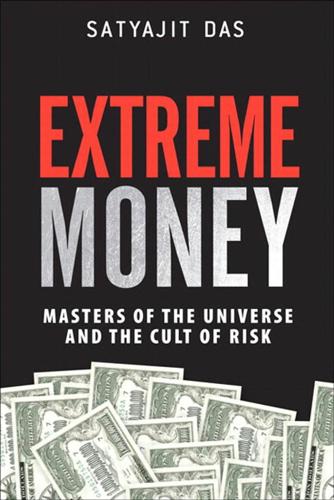
Extreme Money: Masters of the Universe and the Cult of Risk
by
Satyajit Das
Published 14 Oct 2011
Achievements were validated with riches, rank, and power. Failures brought disease and death, mollified by the consolations of faith and the afterlife. The financial elite undertook similar conquest and plunder, marshaling vast sums of money and creating intricate financial structures. In the new age, Masters of the Universe strutted through the City of London, Wall Street, Finanzplatz Deutschland, Zurich’s Bahnofstrasse, Singapore’s Raffles Place, Hong Kong’s Exchange Square, and Tokyo’s Marunouchi, parodying a banker in the movie The Bank who believes he is just like God, but with a better suit. Factories for Unhappy People7 In the 1967 film The Graduate, Dustin Hoffman’s character Ben Braddock received career advice.
…
The term “shadow banking system” is attributed to Paul McCulley of PIMCO, who coined it at the 2007 Jackson Hole conference; see Paul McCulley “Teton reflections” (July/August 2007), Pimco Global Central Banking Focus. 2. Roger Merrit, Ian Linnell, Robert Grossman and John Shiavetta “Hedge funds: an emerging force in global credit markets” (18 July 2005), Fitch Ratings, New York. 3. Speech at the Lord Mayor’s Banquet for Bankers and Merchants of the City of London (17 June 2009), Mansion House, London. 4. Gretchen Morgenson and Louise Story “Bundled bad debt, bet against it and won” (23 December 2009) New York Times. 5. Based on Yves Smith (2010) ECONned: How Unenlightened Self Interest Undermined Democracy and Corrupted Capitalism, Palgrave Macmillan, New York: 257–61.
…
Some argued that banks conditioned to limit risk were not equipped to undertake more speculative activities. In the 1980s, the controls over banks and banking were gradually loosened. President Reagan and UK Prime Minister Margaret Thatcher favored less government involvement in the economy. In parts of the world like France, deregulation of the financial system was accompanied by privatization of government-owned banks. Proponents of deregulation argued that distinctions between loans, deposits, and securities were increasingly difficult in practice. In 1977, Merrill Lynch, a securities firm with a large brokerage network known as the thundering herd, launched the cash management account (CMA)—a mutual fund investing in short-term securities offering investors daily access to money, checking facilities, and the convenience of having their pay deposited directly.

Roller-Coaster: Europe, 1950-2017
by
Ian Kershaw
Published 29 Aug 2018
Another effective criticism was that Labour had failed to impose sufficient regulation on the banks, thereby encouraging the speculative bubble that led to the crisis. There was more substance to this charge. However, the Conservatives favoured deregulation even more than the Labour government had done, and had indeed themselves abruptly deregulated financial markets in the so-called ‘Big Bang’ of 1986 that had turned the City of London into such a vital centre of global finance. And, like Labour, the Conservatives would have felt compelled to rescue the banks in order to protect savers. The undeniable reality, even so, was that the crash had happened under a Labour government.
…
Western European states profited from privatization – at least in the short term – by some $150 billion by the late 1990s. Britain, the closest European country to the American ideals of deregulated capitalism that had been emphatically reinforced under Ronald Reagan, led the way. Margaret Thatcher was, in fact, more single-minded in her zeal for deregulation than the American President, and privatization was a central component of her determination to reduce the size of the state. By 1986 the British financial sector was largely deregulated. This bolstered the primacy of the City of London in the British economy, turning Britain more sharply than anywhere else in Europe into heavy dependence on its service and, especially, its financial sector.
…
Instead of ‘inefficient’ public ownership, New Labour looked to control and utilize the wealth creation of a competitive free-market economy to provide a framework for social justice. Under New Labour there was strong economic growth – which had already begun under the Conservatives in the mid-1990s (themselves benefiting from the upward swing in the global economy). Aided by further deregulation, the City of London consolidated its position as Europe’s (and by some measures the world’s) financial capital. Gordon Brown, an astute Chancellor of the Exchequer, made funds available to enable Blair’s government to finance much-needed improvements in schools, universities and hospitals. Many among the poorer sections of society certainly benefited.
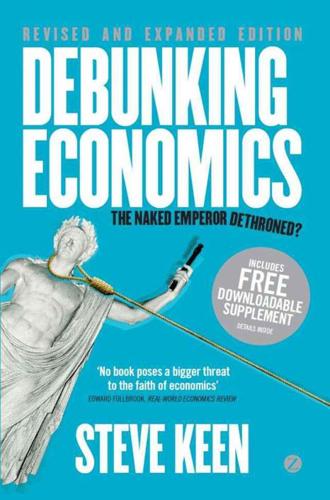
Debunking Economics - Revised, Expanded and Integrated Edition: The Naked Emperor Dethroned?
by
Steve Keen
Published 21 Sep 2011
I expect that most lay people think that the dominant theory of how the universe came into being is the ‘Big Bang.’ In this theory, the universe originated in a ‘quantum singularity’ some 12–15 billion years ago. This explosion kick-started matter and time, leading to the immense universe we observe today. Back in the 1950s, this theory won out against its rival, that the universe had always been in a ‘steady state’ of expansion. The Big Bang was indeed the dominant theory for some time – until it was pointed out that, according to calculations from quantum mechanics, the Big Bang would have resulted in a universe consisting of a mere handful of elementary particles.
…
For stock market investors, uncertainty means that the expected yield of an investment over the medium- to long-term future simply can’t be known: Our knowledge of the factors which will govern the yield of an investment some years hence is usually very slight and often negligible. If we speak frankly, we have to admit that our basis of knowledge for estimating the yield ten years hence of a railway, a copper mine, a textile factory, the goodwill of a patent medicine, an Atlantic liner, a building in the City of London, amounts to little and sometimes to nothing; or even five years hence. In fact, those who seriously attempt to make any such estimate are often so much in the minority that their behavior does not govern the market. (Keynes 1936) Uncertainty, not risk, is the main factor standing between investors and an accurate knowledge of the future prospects of companies.
…
A rival theory then developed which argued that, for a substantial period of time, the laws of physics of the current universe did not apply. Matter, for example, could move much faster than the speed of light. This ‘inflationary universe’ theory has subsequently been embellished to predict that there are many universes – as opposed to the one universe postulated by the Big Bang. The shifts from the Big Bang paradigm to the inflationary universe, to ‘multiverses,’ are big ones conceptually. The first envisages a single finite universe, while the last muses that ours may be only one of many universes, each with different ‘fundamental’ physical laws. But the science of astronomy made this move over a period of about twenty years, and it continues to undergo development today.
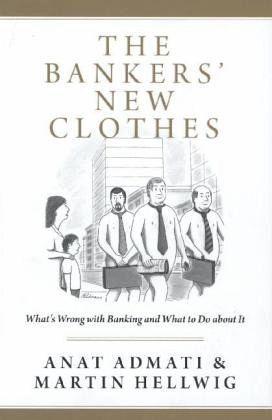
The Bankers' New Clothes: What's Wrong With Banking and What to Do About It
by
Anat Admati
and
Martin Hellwig
Published 15 Feb 2013
The Dexia bailouts in 2008 and 2011 were costly to France as well as Belgium (see note 3). In the mid-1990s, Crédit Lyonnais, then the largest French bank, had losses in excess of €20 billion and required an injection of taxpayer money amounting to €15 billion. 8. As an example, see the discussion of the role of the City of London in ICB (2011, 15), which reads, “The recommendations in this report will be positive for UK competitiveness overall by strengthening financial stability. That should also be good for the City’s international reputation as a place to do business.” Andrew Tyrie, chair of the Parliamentary Committee on Banking Standards, wrote that banking is “one of the UK’s most important industries and if banks are to be at the heart of our economy, they must be allowed to remain internationally competitive” (“A Mandate to Tackle Our Banks’ Failure,” Financial Times, October 1, 2012).
…
Traditional deposit-taking institutions suffered significant withdrawals, not because people had doubts about the quality of the loans they had made but because people could earn better returns elsewhere, from unregulated institutions.27 The tide of withdrawals was stopped when deregulation allowed commercial banks and savings banks to pay whatever interest rates they needed to keep their depositors and possibly attract new ones.28 After this deregulation, the liquidity problems of these institutions disappeared. Many savings banks, however, had hidden solvency problems. They had made many mortgage loans with fixed rates of interest and very long maturi-ties.29 As of 1980, a thirty-year mortgage that was made in 1965 with a fixed interest rate of 6 percent per year would still have fifteen years to go.
…
For customers this provided a way to get around Regulation Q; for Merrill Lynch it provided a way to get around the prohibition of combining deposit taking and brokerage. See also Chapter 5, note 28, and Chapter 10, note 46. 28. The Depository Institutions Deregulation and Monetary Control Act of 1980 was the key piece of federal legislation that ended the regulation of the banking industry. This act deregulated banks while giving the Federal Reserve more authority over nonmember banks. Particularly, it required nonmember banks to abide by Federal Reserve decisions but allowed for greater leeway in bank mergers. It also allowed savings institutions to offer demand deposits, eliminated interest rate ceilings for all deposits other than demand deposits, and permitted individual banks to set their own interest rates for loans.
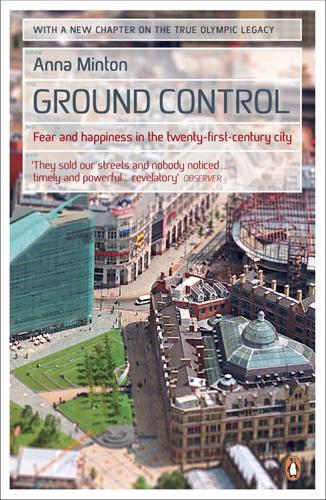
Ground Control: Fear and Happiness in the Twenty First Century City
by
Anna Minton
Published 24 Jun 2009
The foundations of the landmark tower, One Canada Square, the tallest building in Britain, were laid at the height of the 1980s’ boom. It followed the deregulation of the financial markets, which was the catalyst for the exponential growth of the global financial services industry in Britain. The 1980s established the physical, technological and regulatory framework for an unfettered financial services industry in the UK, to replace the failing industrial economy. This ‘new’ economy was powered by the abolition of exchange controls and the 1986 deregulation of the stock exchange, an event known as ‘Big Bang’ because of the increase in market activity. It not only changed the culture of the City of London for ever, it brought with it a boom in property development which created a new corporate architecture.
…
It not only changed the culture of the City of London for ever, it brought with it a boom in property development which created a new corporate architecture. Small firms, with their personal connections, made way for global investment banks, which required very large electronic trading floors, trading in abstract and complex financial instruments like options, derivatives and futures. As the 1980s progressed, ‘Big Bang’ architecture saw two new financial centres emerge: in Docklands, and at the nearby Broadgate Centre, also in east London. These places were quite unlike any others in Britain. Not because they were centres for international finance, but because they were privately owned. The Canary Wharf Estate and the Broadgate Centre are private property, in the same way that a country estate, a shopping mall or someone’s house is private property.
…
Westfield London, the biggest shopping centre in central London, which opened in 2008, is another place which reflects its function and its time, built towards the end of a decade when property development and shopping radically changed every British town and city. During the eighties, alongside the ‘Big Bang’ architecture of Canary Wharf and Broadgate, the phenomenon of out-of-town shopping centres was the architectural signature of Thatcherism. Places such as Bluewater in Kent, Lakeside in Essex, Meadowhall in Sheffield, the Trafford Centre in Manchester and the MetroCentre in Gateshead opened as a result of Mrs Thatcher’s loosening of the planning system, a policy which was later reversed, because of the damaging effect it had on high streets in towns and cities.
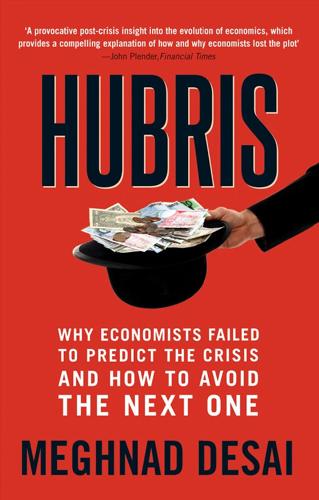
Hubris: Why Economists Failed to Predict the Crisis and How to Avoid the Next One
by
Meghnad Desai
Published 15 Feb 2015
abolition of slavery (i) absolute poverty (i) accelerator principle (i) accounting, concealing problems (i) accumulation, of profit (i) adaptive expectations (i), (ii) Adelman, Frank and Irma (i) aggregate demand curve (i), (ii) equation (i) price (i) aggregate effective demand (i), (ii) aggregate supply curve (i), (ii) equation (i) price (i) aggressive lending (i) agrarian unrest (i) agricultural prices (i) alternative narrative long perspective (i) merits (i) optimism/pessimism (i) overview (i) America, post-revolution (i) see also United States American Keynesianism (i), (ii) American Revolution (i) Anglo-French War (i), (ii), (iii), (iv) animal spirits (i), (ii) anti-communism (i) Arab-Israeli War, 1973 (i) Aristotle, view of money (i) Arrow, Kenneth (i) Asian countries, foreign exchange (i) Asian Crisis, 1997 (i), (ii) Attwood, Thomas (i) August 15, 2007 (i), (ii) Austrian capital theory (i) Austro-Hungarian Empire (i) average costs (i) Baby Boom (i) bank credit access to (i) as driver of investment (i) Bank of England (i), (ii), (iii) Bank of International Settlements (BIS), warnings of crisis (i) Bank of the United States (i) banking (i) deregulation (i) growth in (i), (ii) political debate (i) banking system, as root of cycles (i) banknotes convertibility (i), (ii) excess (i) issuing (i) non-convertible (i) bankruptcy, prediction of (i) banks Great Depression (i) Great Recession (i) lending (i) recapitalization (i) regulation (i) rescue programs (i) run on (i) Baring Brothers (i), (ii) Bastard Keynesianism (i), (ii) Battle of Beachy Head (i) Battle of Waterloo (i) Bear Stearns (i), (ii) bell-shaped distribution (i) Berlin Wall (i) Bernanke, Ben (i) Big Bang (i) Black, Fisher (i), (ii), (iii) Black Swan event (i) Black Thursday (i) Board of Trade (i) Böhm-Bawerk, Eugene (i) bonds (i), (ii), (iii) boom and bust (i), (ii), (iii) boom, post–World War II (i) borrowing (i), (ii) beyond capacity (i) brokers (i) as cause of recession (i) as response to recession (i) bourgeoisie (i) Brazil (i) bread, production and supply (i) Bretton Woods system (i), (ii), (iii) BRICS countries (i) Britain post-war status (i) see also United Kingdom Brookings-SSRC Econometric Model of the US Economy (i) Brown, Gordon (i), (ii) Bryan, William Jennings (i) bubbles (i) budget deficit, US (i) built-in stabilizers (i) bull run (i) Bullion Report (i) Bundesbank (i) Burns, Arthur (i), (ii) business attracting capital (i) dependence on credit (i) Butler, R.
…
But, of course, there was a risk of overlending and being caught short of cash when depositors demanded their cash back. Often, if there was a rumor that a bank was in trouble, depositors would rush to get their cash out and this in itself would drive the bank to a closure. It was in such an atmosphere of hectic activity that in 1866 the Bank of England was called upon to save a City of London bank – Overend & Gurney – which was under the threat of bankruptcy. The Bank of England decided that it would lend cash of its own to save a supplicant bank if there was on offer some “sound paper” – loans which had been given which could be recovered, investments made which could be cashed. Thus was born the idea of the Bank of England – a Central Bank – as a “lender of the last resort.”
…
Budgets had to be balanced again. The debt incurred during the war had to be serviced, adding to public spending. There was a need for “retrenchment,” as public spending cuts were then called. Returning to the Gold Standard was also high on the agenda. Orthodox opinion in the Bank of England and the City of London favored going back at the old parity of $4.86 to the pound. John Maynard Keynes (1883–1946) pointed out in a series of articles, which later became his book A Tract on Monetary Reform, that, given the movement of wholesale prices in the UK and US, it would be better to fix the exchange rate at a lower level.
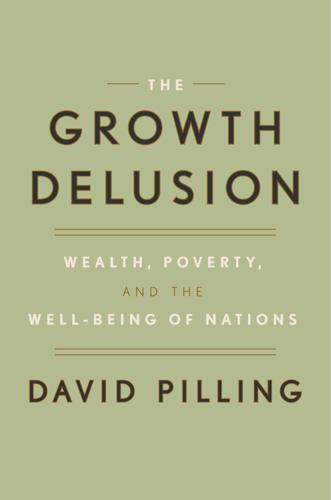
The Growth Delusion: Wealth, Poverty, and the Well-Being of Nations
by
David Pilling
Published 30 Jan 2018
That led ambitious governments around the world, including Iceland’s, to ape the Anglo-Saxon model, one that involved liberalization, deregulation, and privatization. Really anything with a “tion” on the end of it would do. Banks were allowed to get on with the business of “wealth creation”—which mostly meant shuffling bits of paper among themselves, lending recklessly, and paying themselves fat bonuses. The global cheerleaders for these policies were the US and the UK, where Ronald Reagan and Margaret Thatcher had set the deregulation agenda in motion and where Wall Street and the City of London were rampant. Not only was it obvious how much money bankers were making—you only had to look at the cars they were driving to see that—but they also spent formidable amounts of money lobbying governments to make life yet easier for them.
…
From the mid-1980s, states rolled back banking industry regulations, many of them put in place after the 1929 Wall Street crash. In America the separation of investment from commercial banking was steadily eroded until it was abandoned altogether with the repeal of the Glass-Steagall Act in 1999. In the mid-1980s London had its Big Bang, which swept away regulations and paved the way for huge financial conglomerates. As in Iceland, banks that had once relied on steady retail depositors for their capital took to the wholesale markets, sucking up and recycling first petro-dollars from the Middle East and then the surplus savings of workers and peasants in booming China.13 A process now known by the hideously ugly term “financialization” took hold.
…
The story of Iceland’s banking industry illustrates one of the messages of this book. Not all economic growth is good. Rapid growth comes in many flavors, and some of them are less appetizing than others. In the 1990s David Oddsson, Iceland’s longest-serving prime minister, oversaw a Thatcherite orgy of deregulation that transformed Iceland from sleepy fishing nation to pioneer of turbocharged “Viking capitalism.”3 After the banks were privatized in 2002, three institutions, Glitnir, Kaupthing and Landsbanki, went on an incredible expansion binge fueled by cheap borrowing from other cash-flush banks. They lent money to friends and to each other and set off on a madcap spending spree, picking up assets all across Europe, from English football teams to Danish airlines.
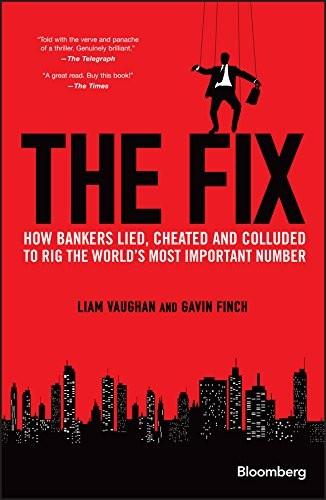
The Fix: How Bankers Lied, Cheated and Colluded to Rig the World's Most Important Number (Bloomberg)
by
Liam Vaughan
and
Gavin Finch
Published 22 Nov 2016
And what we have today is an outperforming world leader. That’s quite a transformation in ten years. And Bob has personally led that.” Diamond’s arrival in the U.K. coincided with the advance of American firms in the capital, and his success mirrored the City of London’s in the decade after Tony Blair’s New Labour government swept into power promising “things can only get better”. The light-touch regulatory environment created by the Big Bang reforms of 1986 lured American powerhouses like Goldman Sachs, Citigroup, JPMorgan and Merrill Lynch. They brought with them a new professionalism and an increased appetite for risk. Twelve-hour days replaced boozy lunches, and prestigious British names like Schroders, Smith New Court, Barings and Cazenove were taken over, supplanted or crushed by the competition.
…
Otherwise the rate looked similar to the one first conceived by Zombanakis. In the quarter-century between then and Hayes’s time at UBS, the suite of currencies was expanded to 10 and the process became electronic, but not much else changed. The same could not be said of the U.K. banking industry, which was transformed by Prime Minister Margaret Thatcher’s “Big Bang” financial deregulation program of 1986. Overnight, Thatcher cleared the way for retail banks to set up integrated investment banks that could make markets, advise clients, sell them securities and place their own side bets, all under one roof. She also removed obstacles to foreign banks taking over U.K. firms, leading to an influx of big U.S. and international lenders that brought with them a more aggressive, cutthroat ethos.
…
Finch lives with his wife, Cece, and two boys, Oscar and Milo, in Brighton. 193 The Fix: How Bankers Lied, Cheated and Colluded to Rig the World’s Most Important Number By Liam Vaughan and Gavin Finch © 2017 Liam Vaughan and Gavin Finch Index 4 p.m. fix 171–2 Aarons, Lee 64–5 ABC News 107 ABN Amro 93 Adoboli, Kweku 154–5 Adolph, Guillaume 84, 117, 129, 151 Agius, Kate 140 Agius, Marcus 95, 137, 138–9, 140–1, 142, 143–4, 145 Ainsworth, Sarah 10, 61 Allen & Overy 126, 127 Alykulov, Mirhat 80, 124–6, 130, 148 American Electric 42 American International Group 57 Arcuri, Jennifer 132 Argus 41 Armstrong, Lance xii Armstrong, Neil 13 Atlas Mara 170 Audit Bureau of Circulation 42 Bailey, Andrew 142, 143, 144 Ball, Matthew 148 Bank for International Settlements 43, 54–5 Bank of America 47, 103 Bank of England xi, 16, 53, 54, 56–8, 60, 89–91, 94–100, 105–7, 139, 141–6, 163 Bank of Japan 22 Bank of Scotland 163 Barclays Capital 47, 90, 92, 142 Barclays Global Investors (BGI) 108 Barclays xi, 46, 47, 51, 76, 87–8, 90, 92–9, 101, 104, 106–8, 126, 128, 133–43, 145, 146, 149, 170, 172, 174 Barings 92 basis swaps 10 basis trade 23 BBA Libor see LIBOR Bear Stearns 40 195 196 IN DEX Bermingham, David 154 “Big Bang” financial deregulation program (1986) (U.K.) 16, 92 Black Wednesday 54 Blair, Tony 92 Blankfein, Lloyd 137 Bloomberg 46, 51, 171 Blue Index 159 BNP Paribas 49, 163 Bond, Tim 46–7 Born, Brooksley 71 Bowles, Stan 152 Brasserie Roque 28 Breuer, Lanny 103, 104, 149 Bribery Act (2011) (U.S.) 66 British Bankers’ Association (BBA) 16, 42, 49–51, 54, 56, 59, 60, 75, 93, 105, 161–3, 167 “Understanding the Construction and Operation of Libor—Strengthening for the Future” 58 brokers relationship 27 relationship with traders 27 role of 26–7 technical 27 Brown, Gordon 96, 105 BT Group 144 Calyon Securities 10 Cameron, David 28, 137 Cantwell, Maria 71 Caplin, David 31 Casterton, David 68 Cazenove 92 Cecere, Chris 81–2, 83, 112, 113, 114, 115, 120, 121, 124, 130 Cela, Phyllis 109 Celtik, Burak 113, 115, 118, 119, 120 CFTC 17, 39–40, 41, 44–7, 57, 58, 67, 70, 73–6, 87–90, 99, 101–2, 104, 105, 107–9, 115, 117, 119, 126, 128, 129, 133, 135, 136, 139, 140, 152, 157, 163, 168, 169, 173 CGMJ 124 Chadwick, Matthew 148 Chance, Clifford 108 Chawla, Mukul 158–9, 160, 163, 165, 169 Chicago Mercantile Exchange (CME) 17, 46 Chicago Sun-Times 42 Christofferson, Robb & Co. 17 Citibank 57 Citigroup x, 43, 46, 47, 57, 62, 75, 81–3, 92, 103, 104, 111–16, 118–24, 126, 130, 148, 161, 164, 172, 174 Clark, Robin 66 Clinton, Bill 103 administration 70 Clinton, Hillary 70, 169 Cole, Margaret 105–6, 107 Commodity Exchange Act 45 Commodity Futures Modernization Act (2000) (U.S.) 71 Commodity Futures Trading Commission see CFTC Compton, Steve 116 Confederation of British Industry 144 Contogoulas, Stylianos 88 Cooke, Jeremy 158, 164, 168 Corney & Barrow 9 Cornthwaite, Richard 155 Covington & Burling 103 Cravath Swaine & Moore 107 credit default swap prices 46 Credit Suisse 139 Credit Suisse First Boston 91 Criminal Cases Review Commission 168 Cryan, Noel 78–9, 85, 123, 168, 169 Dallas Morning News, The 42 Danieli, Francesca 72 Daniels, Eric 95 Index Danziger, Neil 7, 64, 65–6, 129, 148 Darin, Roger 33, 34–5, 80, 81, 82, 86, 126, 149, 152 Davies, Brent 118, 123, 148 Dearlove, Mark 89, 90, 93, 99 Del Missier, Jerry 89, 97, 98–9, 134, 141–2, 143, 145 Department of Justice 41–2, 67, 101–3, 104, 108, 125–6, 128, 133, 134, 139, 149, 150, 152, 168, 174 Deutsche Bank 84, 117, 119, 129, 134, 135, 151 Dewar, Sally 106 Diamond, Anne 90 Diamond, Robert Edward, Jr.
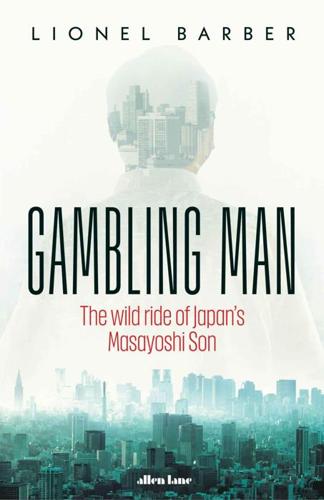
Gambling Man
by
Lionel Barber
Published 3 Oct 2024
fn2 Lu in an email exchange suggests Masa siphoned off profits from the US video games to pay back the loan. 7. Mr Gateway fn1 In fact, Koreans had been able to naturalize under their ethnic name since 1984, thanks to a revision in Japan’s nationality law successfully pushed by zainichi Koreans. 9. What Does It Take to Win? fn1 By comparison with ‘Big Bang’ deregulation in New York and then London, Tokyo was more measured. fn2 Under the scheme, employees later had to take out loans to pay for the options. (See Chapter 12: Whistleblowers.) 10. Yahoo! fn1 Masa upped his game, funding Japanese scholars to attend elite American colleges as well supporting the Schwarzman Fellows programme for overseas students studying at Tsinghua University in Beijing.
…
For students of business, meanwhile, his story features a relentless quest to create a new business model adapted to this age. Masa’s answer combines the federated structure of Japan’s 300-year old zaibatsu, the speed and networked relationships of Silicon Valley, and an ethos of speculation and mercenary management cherry-picked from Wall Street and the City of London. Most of all, for anyone interested in the human condition, Masa’s story is one of personal invention: how to become somebody when you are born a nobody. Unlike the American or Chinese magnates who dominate the top of tech, Masa did not invent, control or own a breakthrough technology. Unlike the Americans, he was not supported by the US financial system via venture capital, private equity or the capital markets.
…
But Rucker worried about the company’s dependency on semiconductor chips and its heavy investment needs.7 Failing to realize that he was dealing with a potential predator, Segars had frankly shared the same concerns with Masa in California. Was ARM too dependent on Apple and Samsung? What would happen when smartphone sales peaked? In industry jargon, this was known as ‘hitting the air pocket’, the moment when growth stalls. Segars was also mistrustful of his shareholders in the City of London, who were inveterate short-termists compared to their US counterparts. ‘The Americans only talked about the technology, not the earnings. For the British, it was the other way round,’ confirms one former senior ARM executive. Shortly before SoftBank’s approach, a London fund manager asked Segars why ARM’s margins were slightly down.
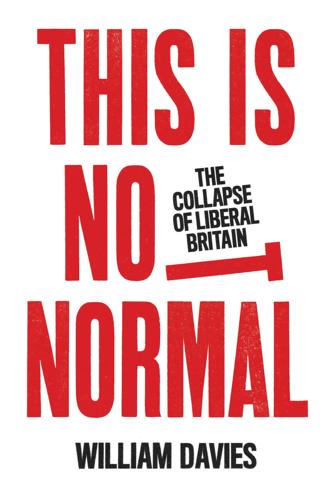
This Is Not Normal: The Collapse of Liberal Britain
by
William Davies
Published 28 Sep 2020
And a party in the grip of collective mania is more vulnerable to such machinations than one with a coherent ideology. To pinpoint the origins of this ideological decline, one has to look back much further than the referendum. The identity and purpose of the Conservative Party has been slowly unravelling for three decades. The year of the ‘big bang’ was 1986, when the City of London was dramatically deregulated, disrupting the old-boy networks of Britain’s business classes with the shock of a new, aggressive style of international finance. The subsequent explosion of wealth opened up a cultural and financial schism between London and England – sowing seeds of resentment in the shires that would blossom in 2016.
…
Thanks to copious demographic and geographical analysis, we are already in a position to make sense of the 2016 referendum result itself. But it remains difficult to grasp how the Tories could effectively have taken what was to everyone else a fringe issue and used it to attack the interests they had until very recently represented: the City of London, big business, the Union, even Whitehall. To paraphrase Neil Kinnock, how did we end up in the grotesque chaos of a Conservative government – a Conservative government – setting about the seemingly deliberate demolition of the United Kingdom and its economy? From a Tory perspective, things must have reached a sorry pass when the sole voice speaking up for the Union belongs to Arlene Foster, leader of the Democratic Unionist Party.
…
Who cares what’s public and what’s private? But as liberal institutions gradually decay, this eventually results in a situation of rampant clientelism, in which centres of power and of money collapse into a single undifferentiated elite. This is an outcome that would work equally well for Boris Johnson, the City of London and Silicon Valley, and would be applauded by Rupert Murdoch’s papers and broadcasters all the way. The graver threat is of fascism, which seeks to abolish both the economic rights won by socialists, and the legal– constitutional ones established by liberals. The optimistic Marxist view of history, whereby each stage of economic development contains the seeds of its own destruction and superior replacement, runs into a violent obstacle where fascists are intent on stripping capitalism of all remnants of political modernity.
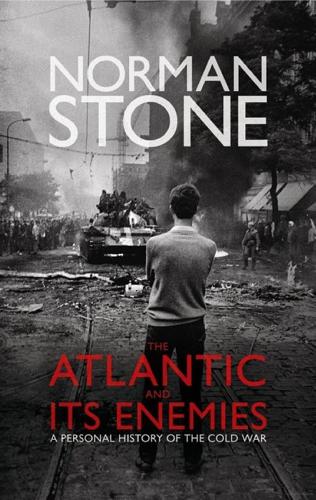
The Atlantic and Its Enemies: A History of the Cold War
by
Norman Stone
Published 15 Feb 2010
Carrington, Peter, 6th Baron cars see automobile industry Carter, Jimmy: background and character Camp David accords (1978) and Chile and CIA defence policy economic policy education policy election as President energy policy failures of Administration Governor of Georgia and Iran loses 1980 election to Reagan and Margaret Thatcher moralizing refuses to meet Bukovsky reputation retirement and Turkish coup (1980) work regimen Carter, Rosalynn Casaroli, Cardinal Agostino Casey, William Castro, Fidel: background and education and Bay of Pigs invasion and Crisis of 1962 imprisonment and Khrushchev revolution US campaign to limit appeal visits Chile Castro, Raúl Catherine the Great Catholic Church: in Austria in Chile and Christian Democracy and Communism Counter-Reformation in Czechoslovakia and economic development in France in Germany in Hungary in Ireland and the Left in Poland and Reagan administration Rerum Novarum (enyclical) Thirty Years War Vatican(ecumenical council) in Vietnam see also Vatican CDU see Christian Democrats (German) Ceauşescu, Elena Ceauşescu, Nicolae cell phones censorship: in Czechoslovakia in USSR in West Central African Empire Centre National de la Recherche Scientifique (CNRS) Cézanne, Paul Chaldean Christians Chambord, château de Chams (Vietnamese Moslems) Chandler, Alfred Channel Tunnel Chaplin, Sir Charlie Charles, Prince of Wales Charles X, King of France Chateaubriand, François-René de Chaudhuri, Nirad Chaunu, Pierre Chechens Chechnya Cheka (Russian secret police) see also KGB Chéreau, Patrice Chernenko, Konstantin Chevalier, Maurice Chevron (oil company) Cheysson, Claude Chiang Kai-shek: American view of andwar government in Taiwan mausoleum Chicago Chicago school of economics Chile: under Allende Carter’s handling of Catholic Church Christian Democrats civil war (1891) Communist Party copper industry coup of 1973 DINA (secret police) education system (see also universities) and Falklands War (1982) geography inflation land reform native Indian population peasantry Pinochet regime political instability population growth poverty privatizations trade unions unemployment universities wine industry China, Republic of: backwardness civil war Communist Party emergence of communist movement intelligentsia Japanese invasion and occupation Kuomintang (Nationalists) land redistribution Long March (1934-5) membership of UN Security Council peasantry Protestant missionaries Second World War Soviet invasion trade unions see also Taiwan China, People’s Republic of: and Afghan War atomic and nuclear weapons border conflicts with India border conflicts with Russia/ USSR ‘cultural revolution’ economic growth famines and starvation friendship treaty with USSR (1950) ‘hundred flowers’ campaign intelligentsia international support for Korean War Mao’s inauguration of People’s Republic Nixon’s visit (1972) and ‘peaceful coexistence’ doctrine Sino-Soviet split and Taiwan Tiananmen Square massacre (1989) tyranny and destruction of regime and Vietnam Chirac, Jacques Cholkovsky, Konstantin Chonchol, Jacques Chou En-lai Christian Democrats (Chilean) Christian Democrats (German; CDU) Christian Democrats (Italian) Christian Women’s Camp (Hungarian) Chrudinák, Aladár Chrysler (automobile manufacturer) Church of England Churchill, Sir Winston: calls for European unity and Chiang Kai-shek Congress of Europe (1948) declining influence and Eden’s premiership and Greece hopes for reconciliation with USSR on India ‘Iron Curtain’ speech loses 1945 election and Poland reputation Teheran conference (1943) Yalta conference (1945) and Yugoslavia CIA (US Central Intelligence Agency): and Afghanistan and Bay of Pigs invasion and Cambodia and Chile and collapse of USSR Congressional restriction of establishment of and Greek Colonels’ coup (1967) journalists’ attacks on and overthrow of Mossadegh and ‘Second Cold War’ and Suez crisis and Vietnam Ciba (chemical company) Čierna nad Tisou cigarettes smoking bans City of London ‘big bang’ (1986) Clark Kerr, Archibald, 1st Baron Inverchapel Clark, William Clay, Lucius Clayton, William. Clifford, Clark climate change Club of Rome CNN (television network) Coal Board (British) coal mining: Belgium Britain ECSC (European Coal and Steel Community) Germany Luxemburg Poland Turkey USA Cobb, Richard CoCom (Coordinating Committee for Multilateral Export Controls) Code Napoléon Cohen, Warren Cohn-Bendit, Daniel coin-clipping Çolakoğlu, Nuri Colby, William collectivization, agricultural Cuba Czechoslovakia East Germany Poland USSR Vietnam Cologne Colombia Colt, Samuel Combes, Émile Comecon Comédie Française Cominform Comintern schools Common Agricultural Policy (CAP) Common Market see European Economic Community Communist Party of the Soviet Union: Brezhnev’s reforms Central Committee characteristics of documentation and meetings Gorbachev’s reforms International Department of Central Committee Khrushchev’s reforms Kosygin’s reforms nomenklatura Party Congresses; 17th (1934); 20th (1956);t (1959); 23rd (1966); 24th (1971); 27th (1986); 28th (1990) Politburo power struggle following Stalin’s death Praesidium relationship with KGB Stalin’s purges suicides of members Comnena, Anna Compaq (corporation) computers: development of as emblem of the eighties and financial markets manufacturers and public sector in USSR see also information technology concentration camps: East European Communists’ Nazi Soviet Concorde (aircraft) condom sizes Confederation of British Industry Conference on Security and Cooperation in Europe (Helsinki, 1975) Congdon, Tim Congress of Europe (1948) Congress of the Peoples of the East (1920) Connally, John Connolly, Bernard Conquest, Robert Conservative Party (British): 1945 election association with Church and State Margaret Thatcher replaces Heath as leader Margaret Thatcher’s election victories Margaret Thatcher’s fall from power Constant, Benjamin contraceptive Pill Cooperative for American Remittances to Europe (CARE) copper Copts Corbusier, Le Corpus Christi College, Cambridge Corsica Corvalán, Luis Council of Europe council housing (British) Counter-Reformation Cracow Craig, Gordon Crichel Down scandal (1954) Crimea Crimean War (1853-6) Cripps, Sir Stafford Croatia Croham, Douglas Allen, Baron Cronkite, Walter Crosland, Anthony Cruzat-Lorrain (Chilean conglomerate) Csap CSCE see Conference on Security and Cooperation in Europe Cuba: and Angola Batista regime Bay of Pigs invasion (1961) Communist Party Crisis of 1962 Guantanamo naval base independence from Spain land reform and collectivization peasantry revolution sugar production trade unions Cuba Socialista (journal) Currie, Lauchlin Çürükkaya, Selim Curzon, George, 1st Marquess Curzon of Kedleston Cyprus Czechoslovakia: Agrarian Party agricultural collectivization anti-clericalism author’s imprisonment in Catholic Church censorship Communist Party communist takeover (‘Czech coup’) and Cuban crisis of 1962 ethnic German population fall of communism under Husák industry intelligentsia Khrushchev’s relaxation attempts ‘Little Entente’ and Marshall Plan National Front National Socialists/Radicals under Novotný peasantry ‘Prague Spring’ purge trials (1951) Second World War ‘Protectorate’ Social Democrats Soviet invasion StB (security service) territorial gains from Hungary territorial losses to USSR trade unions treaty with West Germany see also Slovakia Częstochowa Da Nang Dahrendorf, Gustav Dahrendorf, Ralf, Baron Dakhichev, Viktor Daley, Richard J.
…
The adaptation of advanced computers to financial transactions somehow catapulted London back to the centre of the world’s money, and as the bond market got under way, older divisions between deposit banks, operating on classic old-fashioned lines, and investment ones, involved in speculation, were elided. In October 1986 came an important moment, deregulation of the City, otherwise known as ‘Big Bang’, such that old-fashioned banks and stockbroking firms gave up their staid ways. Venerable (and well-run) establishments such as Lawrence, Prust were bought up by a Deutsche Bank anxious to escape from the stuffy confines of Frankfurt, where, it was said, there was a night-life, but she went to see her aunt on Tuesdays.
…
In the first place, Churchill himself hoped to have a last grand international moment, reconciling the USSR and the rest, and in the early fifties, before German competition properly started, British exports boomed, and there was some life in the British Commonwealth. A third of the world’s trade was conducted in pounds, and money therefore came back to the City of London: Churchill could imagine that he had an independent role. With the French, matters were simpler. There was a large Communist Party; there was a great deal of resentment against Germany; there was cultural resentment of American domination; and there was a colonial war going on, in Vietnam, where Soviet help might be helpful.
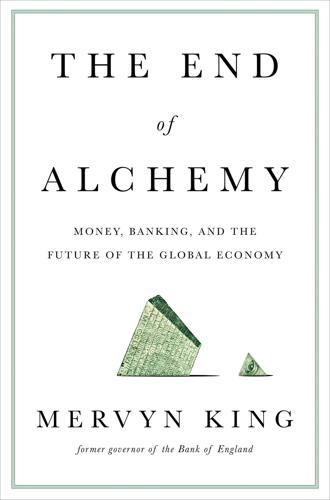
The End of Alchemy: Money, Banking and the Future of the Global Economy
by
Mervyn King
Published 3 Mar 2016
In the USA, Federal banking regulators’ increasingly lax interpretation of the provisions to separate commercial and investment banking introduced in the 1933 Banking Act (often known as Glass-Steagall, the two senators who led the passage of the legislation) reached its inevitable conclusion with the Gramm-Leach-Bliley Act of 1999, which swept away any remaining restrictions on the activities of banks. In the UK, the so-called Big Bang of 1986, which started as a measure to introduce competition into the Stock Exchange, led to takeovers of small stockbroking firms and mergers between commercial banks and securities houses.10 Banks diversified and expanded rapidly after deregulation. In continental Europe so-called universal banks had long been the norm. The assets of large international banks doubled in the five years before 2008. Trading of new and highly complex financial products among banks meant that they became so closely interconnected that a problem in one would spread rapidly to others, magnifying rather than spreading risk.11 Banks relied less and less on their own resources to finance lending and became more and more dependent on borrowing.12 The equity capital of banks – the funds provided by the shareholders of the bank – accounted for a declining proportion of overall funding.
…
Before the crisis, hubris – arrogance that inflicts suffering on the innocent – ran riot, and changed the culture in financial services to one of taking advantage of the opportunity to manage other people’s money rather than acting as a steward on behalf of clients.45 But ‘the true steward never forgets that he is a steward only, acting for a principal’.46 The maxim ‘my word is my bond’, which underpinned the traditions of the City of London for many years, means little if those words are incomprehensible. The sale of complex financial products by people who only half understand the risks involved to those who understand even less is not an attractive advertisement for the financial services industry. What kind of person takes pride in parting a fool from his money?
…
Kranister, W. (1989), The Moneymakers International, Black Bear Publishing, Cambridge. Krawczyk, Jacek and Kunhong Kim (2009), ‘Satisficing Solutions to a Monetary Policy Problem’, Macroeconomic Dynamics, Vol. 13, pp. 46–80. Krugman, Paul (2011), ‘Mr. Keynes and the Moderns’, Vox, 21 June 2011. Kynaston, David (1994), The City of London: Vol 1: A World of Its Own, 1815–90, Chatto and Windus, London. Lainà, Patrizio (2015), ‘Proposals for Full-Reserve Banking: A Historical Survey from David Ricardo to Martin Wolf’, University of Helsinki, mimeo. Levitt, Steven and Stephen Dubner (2005), Freakonomics: A Rogue Economist Explores the Hidden Side of Everything, William Morrow/Harper Collins, New York.
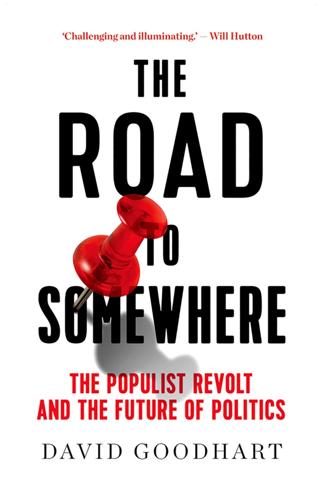
The Road to Somewhere: The Populist Revolt and the Future of Politics
by
David Goodhart
Published 7 Jan 2017
The single market was also first announced in 1986, and was seen as a liberalising free market measure against the more protectionist instincts of countries like France, and, not coincidentally, it was championed by Margaret Thatcher’s Britain. (Britain’s dramatic liberalisation in the 1980s had more to do with the EU than is generally acknowledged, symbolised by the so-called ‘big bang’ deregulation of the City of London partly inspired by EU competition rules.) Moving from a tariff-free customs union to what is sometimes called the ‘common economic space’ of a single market is a bigger step than it sounds. The idea was to make a reality of the so-called four freedoms of goods, services, capital and people by harmonising and coordinating a huge range of factors, from state subsidies to product specifications.
…
But, as Michael Lind points out, if the nation state is an illegitimate expression of bigotry, like racism, then the legitimacy of democracy and the welfare state, which today exist only in national forms, is also thrown into doubt.26 Post-nationalism was never a majority view, even among Anywheres, but a looser notion that the national was unfashionable and embarrassing—partly because of the imperial legacy—became part of the common sense of the liberal wing of the educated and affluent in 1970s and 1980s Britain. This discomfort about the national also overlapped with a more establishment view, in part of the business class and the City of London, which favoured maximum openness to financial globalisation, immigration and as much European integration as possible. Anywheres with wide but loose attachments tend to have little sympathy for the communitarian ambivalence about immigration of the Somewheres. In any case, they say, we are surely a ‘mongrel nation’.
…
About one in five of the social housing stock is occupied by foreign nationals, which suggests a much higher proportion of new lets is going to newcomers.50 Meanwhile, a Financial Times investigation discovered that as a result of rapidly rising house prices in the capital members of the professional middle class—architects, engineers and academics—could no longer contemplate buying a house in whole sections of London: the City of London, Kensington, Westminster, Wandsworth, Islington, Camden and Hammersmith. In fact, in only three London boroughs is home ownership affordable to people on median incomes. Even the old upper classes feel discombobulated by changes to their neighbourhoods in places like Chelsea and Kensington as new, foreign, money pours in, according to social commentator Peter York.51 So, contrary to the ‘greatest city in the world’ boast, London is one of the least good places to live in Britain on most counts.
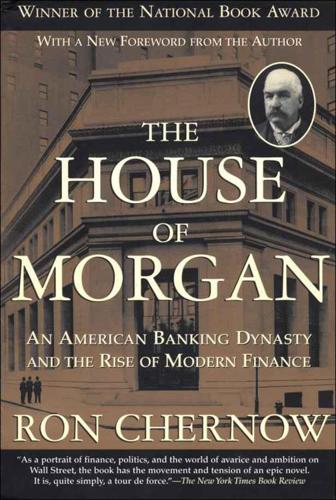
The House of Morgan: An American Banking Dynasty and the Rise of Modern Finance
by
Ron Chernow
Published 1 Jan 1990
Cornelius, 440 Vanderbilt, Harold, 508 Vanderbilt, William, 508 Vanderbilt, William Henry, 42–44, 47 Van Sweringen, Oris P. and Mantis J., 309–10, 324–25, 348, 369 Wheeler hearings and, 413–14 Vatican, the, 285–86, 296, 407, 521, 546–47 World War II and, 451, 455–59 Verbeck, Guido, 532 Vermilye, Peter, 561, 564, 565 Victoria, Queen, 12, 25, 98, 100 Peabody and, 7, 14, 15 Villa, Pancho, 239 Volcker, Paul, 545, 644, 660, 690 Preston and, 643, 645, 658, 659, 716, 717 Volpi, Count Guiseppe, 281, 479 Voting trust, 38, 68–69, 152–53, 189 W Wachtell, Lipton, Rosen, and Katz, 600 Wadsworth Atheneum, 59–60, 119, 174 Wagg, Helbert, 524 Walker, Barney, 570–71 Walker, Elisha, 416 Wallace, Henry, 441 Wallace, Lila Acheson, 510 Wall Hall, 97, 191, 264, 410, 430, 460, 475 Wall Street, 151 assumption of government protection, 229 conscience of, 19, 114 crashes on, see Stock market crash of 1929; Stock market crash of 1987 Depression and, 346, 376, 381–84 explosion on, 212–14 fire of 1835 on, 18 Jewish-Yankee competition on, 30, 36, 84, 88–90, 195–200, 205, 215–17, 258 Northern Pacific corner and, 88–94 panic of 1873 and, 37 panic of 1907 and, 123–28 Pecora hearing revelations and, 355–57, 362, 370–74 power of, 65, 98–99, 205–207, 225–29, 244–45, 257 Reagan years on, 690–91 rise of, 33, 36, 99 Roaring Twenties on, 255, 302–15 robber barons and, 30–32 short selling and, 351–53 speculation on, 84–86, 91–93, 122, 124, 375 triumph over the City of London, 65, 98–99, 184–85, 270–71, 518–19 trusts and, 68–69, 81–86, 105, 109; see also New York Stock Exchange Walsh, Graham, 675, 678, 687–88, 689 Walston, Vernon, 623 Walston and Company, 623 Walter, Norma, 564, 565 Wang, Stephen Sui-Kuan, Jr., 712–13 Warburg, Paul M., 130, 182, 217, 252 Warburg, Siegmund, 522–26, 570, 573, 576, 713 Euromarkets and, 545 Warburg bank, S. G., 522–26, 545, 570, 572, 590, 615, 674, 677, 679, 689, 715 after Big Bang, 675 Ward, Thomas, 5, 6 Wardwell, Allan, 254–55 Warner-Lambert, 596 War Resources Board, 441 Washington Post, 152 Wasserstein, Bruce, 602, 632, 692, 711 Weatherstone, Dennis, 568, 656, 719 Webster, Daniel, 6, 339, 340 Webster, Edwin, 325 Weinberg, Sidney, 124, 512 Welles, Sumner, 455 Wells, H.
…
In that larger City, capital was decisive, with cosy ties counting for little—the reason takeover work had been such a godsend to Morgan Grenfell. The firm had thrived only in the insular City of British work, which would be a dangerous shortcoming as the decade progressed. The so-called Big Bang deregulation of October 1986 tore down the walls that had divided the two Cities since the Euromarkets emerged in the early 1960s. To guarantee London’s survival as a financial center, the Thatcher government decided to stop cosseting London banks and expose them to more domestic and foreign competition.
…
M., 9, 19 Bechtel, Stephen, Sr., 543, 544 Bechtel Company, 606, 610 Beecher, Henry Ward, 18 Behn, Sosthenes, 308, 371 Belgium, 705 Bell and Sons, Arthur, 680 Belmont, August, Jr., 74, 75, 149 Belmont, August, Sr., 5, 39, 40 Belridge Oil, 631, 632 Bendall, David, 589–90, 592, 613 Bendix Corporation, 500 Benét, Stephen Vincent, 278 Bennett, John, 626 Berenson, Bernard, 117, 141, 173, 280 Berkovitch, Boris S., 656 Berle, Adolf A., 419, 420 Bernard, Lewis W., 581, 595, 596, 624, 634, 663, 695 Bethlehem Steel, 417, 534 World War I and, 189, 190, 200 Bicester, Lord, see Smith, Vivian Hugh Big Bang deregulation, 673–76, 684, 685, 688, 714, 715 Biggs, Barton, 587, 700 Bishop, Jerry E., 564, 565 Bismarck, Otto von, 26, 27 Black, Eugene, 518, 552–53 Black, William, 512, 518, 623 Blackett, Basil, 187, 198, 246 Black Monday, 664, 699, 700–702, 717 Black Thursday, 303, 313, 315–17, 355–56 Block Community Organization, 347 Blood Brotherhood, 342–43 Blough, Roger M., 536–37 Blum, Léon, 478 Blumenthal, Charles, 215, 216, 248 Blunden, George, 687 Blyth, Charles, 390–91 Boer War, 98, 99, 195 Boesky, Ivan, 683, 684, 685, 686, 712–13 Bolivia, 354 Bolshevism, 210, 211, 225, 292, 338 Bonsal, Dudley J., 565–66 Boocock, Howard and Adele, 218 Booth, Willis, 282–83 Borglum, Gutzon, 347 Boston and Maine Railroad, 175–76 Brackenridge, A.
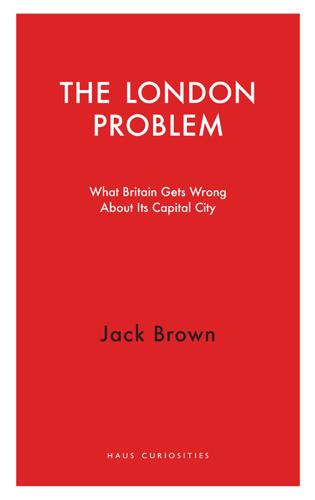
The London Problem: What Britain Gets Wrong About Its Capital City
by
Jack Brown
Published 14 Jul 2021
Margaret Thatcher’s election in 1979 saw an end to this post-war consensus, as previewed in the Conservative manifesto: ‘Strategies and plans cannot produce revival, nor can subsidies.’26 Displacing jobs to ‘inefficient’ areas was seen as unwise, and funding for regional development was reduced.27 Instead, the Thatcher government shifted from a ‘regional’ to a ‘local’ approach to changing the fortunes of declining areas.28 Thatcher was no great lover of London. The ‘Big Bang’ of City deregulation on 27 October 1986 – which dramatically revitalised London’s financial sector – was heavily associated with Thatcherism, but in reality it was largely the result of a process begun under Harold Wilson’s Labour government. Thatcher personally found the stock exchange quite distasteful.29 As prime minister, she also famously abolished the GLC, irritated by its left-wing leader Ken Livingstone, leaving the capital without city-wide government for the first time in the twentieth century.
…
Roman Londinium, founded halfway into the first century AD, was a walled city of a similar size and location to what is today known as ‘the City’ or Square Mile. It was established on the banks of the River Thames, which connected the city to the world via the sea, and this connection would be crucial to London’s development as a centre of world trade. Today that trade is in services not goods, but either way, the City of London has been a centre of economic power for almost 2,000 years. A millennium after Londinium was founded, Edward the Confessor established Westminster as a seat of royal power with the construction of an abbey. Westminster, which lies a couple of miles to the west of the City, was separate from and named in geographical relation to London.
…
In fact, as Chapter Two details, despite successive attempts to contain or control the capital’s growth, even the greatest city planners – from Christopher Wren to Patrick Abercrombie – have been defeated by London’s irrepressible, seemingly innate dynamism. Peter Rees, former chief planner at the City of London Corporation, branded London ‘unplannable’.38 Professor of town planning Michael Hebbert described the city as built ‘more by fortune than design’,39 while LSE professor Tony Travers has called the modern capital ‘ungovernable’.40 London’s growth has generally been organic and difficult to control – just like its outsized role within the nation.
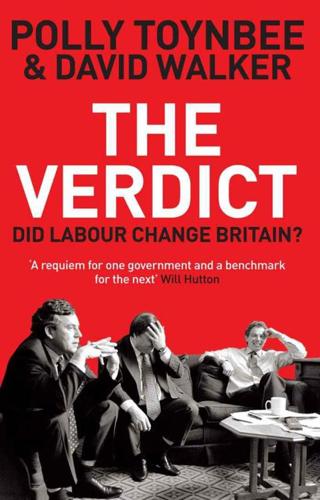
The Verdict: Did Labour Change Britain?
by
Polly Toynbee
and
David Walker
Published 6 Oct 2011
Index 9/11 attacks, 1, 2, 3, 4, 5, 6, 7, 8, 9 A levels, 1 Aberdeen, 1 abortion, 1, 2, 3 Abuhamza, Junaid, 1 AC Milan, 1 Acme Whistles, 1 Action for Children, 1 Adams, Douglas, 1 Adonis, Andrew, 1 Advisory, Conciliation and Arbitration Service, 1 Afghanistan, 1, 2, 3, 4, 5, 6, 7, 8, 9 Helmand province, 1, 2, 3, 4, 5, 6 Africa, 1, 2, 3 after-school clubs, 1, 2, 3 Age of Stupid, 1, 2 Ahern, Bertie, 1 Ahmadinejad, Mahmoud, 1 Ainsworth, Bob, 1 aircraft-carriers, 1 Al Qaeda, 1, 2, 3, 4 Albania, 1 alcohol consumption, 1, 2 and crime, 1, 2, 3 Alexander, Professor Robin, 1 Alzheimer’s disease, 1 Amritsar massacre, 1 Amsterdam summit, 1, 2 Anderson, Lance Corporal George, 1 animal welfare, 1, 2 anti-social behaviour orders (Asbos), 1, 2, 3 apprenticeships, 1, 2 Arafat, Yasser, 1 archaeological artefacts, 1 Arctic Monkeys, 1 Armistice Day, 1 arms trade, 1, 2 Armstrong, Franny, 1 arts budget, 1 Ashmolean Museum, 1 asthma, 1, 2 asylum seekers, 1, 2, 3, 4 Attenborough, Richard, 1 Attlee, Clement, 1 August, Kathy, 1 Austin, Richard, 1 Australia, 1, 2, 3 Austria, 1 autism, 1 aviation, 1 Aylesbury, 1 Baghdad, 1 Baker, Mike, 1 Bakewell, Joan, 1 Bali, 1 Balls, Ed, 1, 2, 3 Bank of England, 1, 2 Barber, Sir Michael, 1 Barker, Kate, 1 Barnardo’s, 1 Barnet Hospital, 1 Barton, Geoff, 1 Basildon and Thurrock Hospital, 1 Basra, 1, 2, 3 Bean, Richard, 1 Beattie, Captain Doug, 1 Beckham, David, 1 Belarus, 1 Belfast, 1, 2, 3 Belgium, 1 Belize, 1 Benn, Hilary, 1, 2 Bennett, Alan, 1 Berlusconi, Silvio, 1 Beveridge, William, 1 Bichard, Sir Michael, 1 Big Brother, 1, 2 Bilbao, 1 Billington, Michael, 1 bin Laden, Osama, 1, 2 Bingham, Lord, 1 Birk, Andy, 1, 2, 3 Birmingham, 1, 2, 3, 4, 5 Aston, 1, 2, 3 Longbridge car plant, 1 and transport policy, 1, 2 birth rate, 1 Black Wednesday, 1 Blackburn, 1, 2 Blackpool, 1 Blair, Cherie, 1 Blair, Tony, 1, 2 and asylum seekers, 1, 2 and child poverty, 1, 2, 3, 4 and climate change, 1, 2 and constitutional reform, 1, 2 and crime, 1, 2, 3 and cultural policies, 1, 2, 3, 4, 5 and economic policies, 1, 2, 3, 4, 5 and education, 1, 2, 3, 4, 5, 6 and Europe, 1 and fairness, 1, 2, 3 foreign policy and Iraq war, 1, 2, 3, 4, 5, 6, 7, 8 and health, 1, 2, 3, 4, 5 and Northern Ireland, 1 and Princess Diana, 1, 2 public apologies, 1 and public sector reform, 1, 2 and religion, 1 and ‘respect’ agenda, 1 style of government, 1 technophobia, 1, 2 and transport, 1, 2 Blears, Hazel, 1, 2 Bloody Sunday inquiry, 1 Bloomberg, Michael, 1 Bloxham, Tom, 1 Blunkett, David, 1, 2 and crime, 1, 2, 3, 4 and education, 1, 2, 3, 4, 5, 6 and migration, 1 BMW, 1 Bobbitt, Philip, 1 Boddingtons’ brewery, 1 Bolton, 1 Boothroyd, Betty, 1 Bosnia, 1 Boston, Lincolnshire, 1, 2, 3, 4 Bowman, Philip, 1 Boyle, Danny, 1 Bradford, 1, 2, 3, 4, 5 Bradford and Bingley, 1 Bradshaw, Ben, 1 Branson, Richard, 1 Brassed Off, 1 Brazil, 1 breastfeeding, 1, 2 Brent, 1 Brighton, 1, 2 Brindle, David, 1 Bristol, 1 Bristol Royal Infirmary, 1 Britain’s Got Talent, 1 British Airways strikes, 1 British Association of Aesthetic Plastic Surgeons, 1 British Energy, 1 British Film Institute, 1 British Medical Association, 1, 2 British Museum, 1 British National Party (BNP), 1, 2, 3 Brixton, 1 broadband services, 1 Brown, Gordon, 1, 2, 3, 4 and climate change, 1, 2, 3 and constitutional reform, 1 and crime, 1, 2, 3 and cultural policies, 1, 2, 3, 4, 5, 6 and defence policy, 1 and economic policies, 1, 2, 3, 4, 5, 6, 7, 8, 9 and education, 1, 2 and Europe, 1 and fairness, 1 and foreign policy, 1, 2, 3, 4, 5, 6, 7 and G20 summit, 1, 2 and health, 1 and pensions, 1, 2 and PFI, 1 and public sector reform, 1 style of government, 1, 2 and tax credits, 1, 2 and transport, 1 Bruges, 1 Brussels, 1, 2, 3, 4, 5 Bryant, Chris, 1 BSE (mad cow disease), 1, 2 Buffini, Damon, 1 Bulgaria, 1 Bulger, Jamie, 1 Buncefield explosion, 1 Burgess, Graham, 1 Burma, 1, 2 Burnham, Andy, 1 buses, 1, 2 Bush, George W., 1, 2, 3, 4 business, 1 company governance, 1 competition policy, 1 see also manufacturing Business Links, 1, 2 Cable, Vince, 1 Cadbury, 1 Caine, Judy, 1 Callaghan, James, 1 Cameron, David, 1, 2, 3, 4 Campaign for Real Ale, 1 Campbell, Alastair, 1, 2 Campbell, Naomi, 1 Canada, 1 cancer research, 1 cannabis, 1, 2 Cannock Chase Hospital, 1 Capel Manor College, 1 Carbon Trust, 1 Cardiff, 1, 2 Millennium Stadium, 1 see also Welsh assembly Care Quality Commission, 1, 2, 3 carers, 1 Carousel children’s centre, 1 Casey, Louise, 1, 2 casinos, 1 Castle, Barbara, 1 cataracts, 1, 2 Cator Park School, 1 CCTV, 1, 2, 3 celebrity culture, 1 Central Office of Information, 1 Ceuta, 1 Charity Commission, 1 Charleroi, 1 Chase Farm Hospital, 1, 2, 3 Cheltenham, 1 Cheney, Dick, 1 Chicago, 1 Chilcot inquiry, 1, 2, 3, 4 Child Maintenance and Enforcement Commission, 1 child poverty, 1, 2, 3, 4, 5, 6, 7, 8, 9, 10, 11 Child Support Agency, 1 child trafficking, 1 Child Trust Funds, 1, 2 childcare, 1, 2, 3, 4, 5, 6 children, 1 in care, 1 and crime, 1, 2 and pre-school education, 1 and reading, 1, 2 and safety, 1 and targets, 1 children’s centres, 1, 2, 3 Chile, 1 China, 1, 2, 3, 4, 5, 6, 7 and foreign policy, 1, 2, 3, 4 Chinese cockle pickers, 1 Christian Voice, 1 Chumbawamba, 1 Church of England, 1 Churchill, Winston, 1 cigarette smoking, 1, 2, 3, 4, 5, 6 see also smoking ban citizenship curriculum, 1 City of London, 1, 2, 3, 4, 5, 6, 7 City of London police, 1 civil partnerships, 1 civil service, 1 Clapham Common, 1 Clapham Park estate, 1, 2 Clarke, Charles, 1 Clarke, Ken, 1, 2 Clarke, Michael, 1 Clarkson, Jeremy, 1, 2 ‘clean technologies’, 1 Cleveland Way, 1 climate change, 1, 2, 3, 4, 5 and transport and energy policies, 1 Climbié, Victoria, 1 Clinton, Bill, 1, 2, 3 Clitheroe, 1 cloning, 1 coal, 1 coalition government, 1, 2, 3, 4, 5 Cockermouth, 1 Cohen, Sir Ronnie, 1 Cole, Vanessa, 1 Collins, Colonel Tim, 1 Comer, Beryl, 1, 2, 3, 4 Common Agricultural Policy, 1, 2 community sentences, 1 Confederation of British Industry (CBI), 1, 2, 3, 4, 5, 6 conflict diamonds, 1 Congo, 1 Connelly, Peter (Baby P), 1 Connexions, 1, 2 Contactpoint database, 1 Cook, Robin, 1, 2 Cool Britannia, 1, 2 Cooper, Robert, 1 Cooper, Yvette, 1 Copenhagen summit, 1, 2, 3, 4, 5, 6 Corby, 1, 2 Corn Laws, repeal of, 1 Cornwall, 1, 2 Coronation Street, 1 coroners, 1 Corus, 1 Countryside Alliance, 1, 2 County Durham, 1 Coventry, 1, 2, 3 Cowley, Philip, 1 Cox, Brian, 1 Crawford, Texas, 1 creative industries, 1, 2 credit card debt, 1 Crewe and Nantwich by-election, 1 Crick, Bernard, 1 cricket, 1 Crime and Disorder Reduction Partnerships, 1 crime, 1 car crime, 1 cyber-crime, 1 and demography, 1, 2 and drugs, 1 gun crime, 1, 2 juvenile crime, 1, 2, 3 knife crime, 1, 2 organized crime, 1, 2, 3 street crime, 1 Criminal Records Bureau, 1 Cruddas, Jon, 1 Cullen, Janet, 1, 2, 3, 4 Cumner-Price, George, 1 cycling, 1, 2, 3 Cyprus, 1, 2 Daily Mail, 1, 2, 3, 4, 5 Daily Telegraph, 1 Darfur, 1 Darling, Alistair, 1, 2, 3 Darwen, 1, 2 Darzi, Lord (Ara), 1 Data Protection Act, 1, 2 Davies, Norman, 1 Davies, Ron, 1 Davis, David, 1 Dearlove, Sir Richard, 1 defence policy, 1, 2, 3, 4, 5 Delhi, 1 dementia, 1 demonstrations, policing of, 1 Demos, 1 Denham, John, 1 Denison, Steve, 1 Denmark, 1, 2 dentistry, 1 depression, 1 Derby, 1 devolution, 1, 2, 3, 4, 5, 6, 7 Dewar, Donald, 1, 2 diabetes, 1 Diana, Princess of Wales, 1, 2, 3 Dilnot, Andrew, 1 disabilities, 1, 2, 3, 4, 5 disarmament, 1 divorce rate, 1 DNA database, 1 Dobson, Frank, 1, 2 doctors consultants, 1 GPs, 1, 2, 3 night and weekend cover, 1 pay, 1, 2, 3 working hours, 1 domestic violence, 1, 2, 3, 4 Doncaster, 1, 2, 3 Dongworth, Averil, 1 Dorling, Professor Danny, 1, 2, 3 Drayson, Paul, 1 drones, 1 drug dealers, 1, 2 drugs, 1, 2, 3 Dublin, 1 Duffy, Bobby, 1 Dundee, 1 Dunn, John, 1 Dunwoody, Gwyneth, 1 EastEnders, 1 Ecclestone, Bernie, 1 ‘eco towns’, 1 ecstasy, 1 Edinburgh, 1, 2, 3 see also Scottish parliament Edlington, 1 education, 1 further education and training, 1, 2, 3, 4 higher education, 1, 2, 3, 4, 5, 6 nursery education, 1 productivity in, 1 pre-school education, 1 and selection, 1, 2 and social class, 1, 2 spending on, 1, 2 and targets, 1, 2, 3 Welsh Assembly and, 1 see also schools education action zones, 1 Education Maintenance Allowance, 1, 2, 3 e-government, 1, 2 Egypt, 1 electoral reform, 1, 2, 3 electricity generation, 1, 2 Elgar, Edward, 1 Elgin marbles, 1 Elizabeth, Queen, the Queen Mother, 1 Elizabeth II, Queen, 1, 2, 3 employee buy-outs, 1 employment, 1 flexible, and migration, 1 part-time, 1, 2 state and ‘parastate’, 1, 2 women and, 1, 2 working hours, 1, 2 energy policies, 1 English for Speakers of Other Languages, 1 English Heritage, 1 Enron, 1 Environment Agency, 1, 2 equalities legislation, 1, 2, 3 Equality and Human Rights Commission, 1, 2, 3 Ericsson, 1 ethnic minorities, 1 euro, 1, 2 Eurofighter, 1 European Court of Human Rights, 1 European Union, 1, 2 European Union Emission Trading Scheme, 1 Eurostar, 1 Exeter, 1 Fairtrade products, 1 Falconer, Charlie, 1 Falklands War, 1 Family Intervention Projects (FIPs), 1 Farlow, Andrew, 1 farmers, 1, 2 fashion, 1 Feinstein, Professor Leon, 1, 2 Financial Services Authority, 1 financial services, 1, 2, 3 Financial Times, 1 Finland, 1 fire and rescue service, 1 fiscal stimulus, 1 floods, 1, 2, 3, 4 Florence, 1 flu, 1, 2 swine flu, 1, 2 Folkestone, 1 food and drink, 1, 2 foot-and-mouth disease, 1, 2 football, 1, 2, 3 Football Association, 1 forced marriages, 1 foreign policy, 1, 2, 3 France, 1, 2, 3, 4 economy and business, 1, 2 and education, 1, 2 and health, 1, 2, 3 Frankfurt am Main, 1 Franklin, Tom, 1 Frears, Stephen, 1 free speech, 1, 2 freedom of information, 1, 2, 3, 4, 5, 6 Freud, Lord, 1 Full Monty, The, 1 Future Jobs Fund, 1 G20 summit, 1, 2, 3 Gainsborough, 1 Galbraith, J.K., 1 Gallagher, Liam, 1 Gallagher, Noel, 1 gambling, 1 gangmasters, 1, 2 gas, 1 Gates, Bill, 1 Gateshead, 1 Gaza, 1 GCHQ, 1 GCSEs, 1, 2, 3, 4 Gehry, Frank, 1 Geldof, Bob, 1 gender reassignment, 1 General Teaching Council, 1 genetically modified crops, 1 Germany, 1, 2, 3, 4, 5, 6, 7 economy and business, 1, 2, 3, 4 and education, 1, 2 and health, 1, 2 Ghana, 1 Ghandi’s curry house, 1 Ghent, 1 Gladstone, William Ewart, 1, 2 Glaister, Professor Stephen, 1 Glasgow, 1, 2, 3, 4 Gleneagles summit, 1, 2, 3, 4, 5 globalization, 1, 2, 3, 4, 5, 6, 7 and crime, 1 and foreign policy, 1, 2, 3 and inequality, 1 and migration, 1, 2 Gloucester, 1 Goldacre, Ben, 1 Good Friday agreement, 1 Goodwin, Sir Fred, 1 Goody, Jade, 1 Gormley, Antony, 1 Gould, Philip, 1 grandparents, and childcare, 1 Gray, Simon, 1 Great Yarmouth, 1 Greater London Authority, 1, 2 Greater London Council, 1 green spaces, 1 Greenberg, Stan, 1 Greengrass, Paul, 1 Greenspan, Alan, 1, 2 Greenwich, 1 Gregg, Paul, 1 Guardian, 1, 2, 3 Guizot, François, 1 Gulf of Mexico oil spill, 1 Gummer, John, 1 Gurkhas, 1 Guthrie of Craigiebank, Lord, 1 Guy’s and St Thomas’s Hospital, 1 habeas corpus, suspension of, 1 Hacienda Club, 1 Hackney, 1 Hale, Baroness Brenda, 1 Hallé Orchestra, 1 Ham, Professor Chris, 1 Hamilton, Lewis, 1 Hammersmith Hospital, 1 Hammond, Richard, 1 Hardie, Keir, 1 Hardy, Thea, 1 Haringey, 1, 2 Harman, Harriet, 1 Harris of Peckham, Lord, 1 Harrison, PC Dawn, 1, 2 Harrow School, 1 Hartlepool, 1, 2 Hastings, 1, 2 Hatfield rail crash, 1 Hatt family, 1, 2, 3, 4 health, 1 and private sector, 1, 2 and social class, 1 spending on, 1, 2 Health Action Zones, 1 Health and Safety Executive, 1 Heathcote, Paul, 1 Heathrow airport, 1, 2, 3, 4 Hellawell, Keith, 1 Hennessy, Professor Peter, 1 Henry, Donna Charmaine, 1, 2, 3 heroin, 1 Hewitt, Patricia, 1, 2 Higgs, Sir Derek, 1 Hills, Professor John, 1, 2, 3 Hirst, Damien, 1 HMRC, 1, 2, 3 Hogg, John, 1, 2, 3 Hoggart, Richard, 1 Holly, Graham, 1 homelessness, 1, 2 Homerton Hospital, 1 homosexuality, 1, 2, 3 ‘honour’ killings, 1 Hoon, Geoff, 1 hospital-acquired infections, 1 hospitals and clinics, 1, 2, 3, 4 A&E units, 1, 2 closures, 1, 2, 3 foundation trusts, 1, 2, 3, 4, 5 and PFI, 1 House of Commons reforms, 1, 2 House of Lords reforms, 1, 2, 3, 4 housing market, 1, 2, 3 housing policies, 1, 2, 3, 4, 5 Howe, Elspeth, 1 Hoxton, 1 Huddersfield, 1 Hudson, Joseph, 1 Hull, 1, 2, 3 Human Rights Act, 1, 2, 3, 4, 5, 6, 7, 8, 9, 10 Humber Bridge, 1 hunting ban, 1 Hussein, Saddam, 1, 2, 3, 4 Hutton, John, 1 Hutton, Will, 1, 2 identity cards, 1, 2 If (Kipling), 1 Imperial War Museum North, 1 income inequalities, 1, 2, 3 gender pay gap, 1, 2 and high earners, 1 and social class, 1 Independent Police Complaints Commission (IPCC), 1 Independent Safeguarding Authority, 1 independent-sector treatment centres (ISTCs), 1 Index of Multiple Deprivation, 1 India, 1, 2, 3, 4, 5, 6 individual learning accounts, 1 inflation, 1 and housing market, 1, 2 International Criminal Court, 1 International Monetary Fund (IMF), 1, 2, 3 internet, 1, 2, 3 and crime, 1 and cyber-bullying, 1 file sharing, 1 gambling, 1 and sex crimes, 1 Iran, 1, 2, 3 Iraq, 1, 2, 3, 4, 5, 6, 7, 8, 9, 10, 11, 12, 13, 14, 15, 16 arms supplies, 1 Chilcot inquiry, 1, 2, 3, 4 and Territorial Army, 1 and WMD, 1 Ireland, 1, 2, 3 Irish famine, 1 Irvine of Lairg, Lord, 1, 2 Ishaq, Khyra, 1 Islamabad, 1 Isle of Man, 1 Isle of Wight, 1, 2 Israel, 1 Italy, 1, 2, 3 and football, 1 Ivory Coast, 1 Japan, 1, 2, 3, 4 Jenkins, Roy, 1, 2 Jerry Springer: The Opera, 1 Jobcentre Plus, 1, 2 John Lewis Partnership, 1, 2 Johnson, Alan, 1, 2, 3, 4 Johnson, Boris, 1, 2 Judge, Lord (Igor), 1 Judge, Professor Ken, 1 Julius, DeAnne, 1 jury trials, 1, 2 Kabul, 1 Kapoor, Anish, 1, 2 Karachi, 1 Karadžic, Radovan, 1 Kashmir, 1 Kaufman, Gerald, 1 Keegan, William, 1 Keep Britain Tidy, 1 Kelvingrove Art Gallery and Museum, 1 Kensit, Patsy, 1 Keynes, John Maynard, 1 Keys, Kenton, 1 Kidderminster Hospital, 1 King, Sir David, 1, 2 King, Mervyn, 1 King Edward VI School, 1 King’s College Hospital, 1 Kingsnorth power station, 1 Kirklees, 1 Knight, Jim, 1 knighthoods, 1 knowledge economy, 1 Kosovo, 1, 2, 3, 4 Kynaston, David, 1 Kyoto summit and protocols, 1, 2, 3 Labour Party membership, 1 Lacey, David, 1 Ladbroke Grove rail crash, 1 Lamb, General Sir Graeme, 1 Lambert, Richard, 1 landmines, 1 Lansley, Andrew, 1 lapdancing, 1 Las Vegas, 1 Lawrence, Stephen, 1 Lawson, Mark, 1 Layard, Professor Richard, 1 Le Grand, Professor Julian, 1 Lea, Ruth, 1 Lea Valley High School, 1, 2, 3, 4, 5, 6 Leahy, Sir Terry, 1, 2 learndirect, 1 Learning and Skills Council, 1 learning difficulties, 1, 2 learning mentors, 1 Leeds, 1, 2, 3, 4 legal reforms, 1 Leigh, Mike, 1 Lenon, Barnaby, 1 Lewes, 1 Lewisham, 1 Liberty, 1 licensing laws, 1, 2 life expectancy, 1, 2, 3, 4, 5 Life on Mars, 1 Lincoln, 1 Lindsell, Tracy, 1, 2 Lindsey oil refinery, 1 Lisbon Treaty, 1 Liverpool, 1, 2, 3, 4, 5, 6 Liverpool FC, 1 living standards, 1, 2 living wage campaign, 1, 2 Livingstone, Ken, 1, 2, 3, 4, 5 Livni, Tzipi, 1 Loaded magazine, 1 local government, 1, 2, 3 and elected mayors, 1 Lockerbie bomber, 1 London, 1, 2, 3, 4, 5, 6 bombings, 1, 2 congestion charge, 1, 2 detention of foreign leaders, 1 G20 protests, 1 Iraq war protests, 1, 2 mayoral election, 1, 2 and transport policy, 1, 2, 3 London Array wind farm, 1 Longannet, 1 Longfield, Anne, 1 Lord-Marchionne, Sacha, 1 Lorenzetti, Ambrogio, 1 lorry protests, 1, 2 Lowry Museum, 1 Lumley, Joanna, 1 Luton, 1, 2, 3, 4 Lyons, Sir Michael, 1 Macfadden, Julia, 1 Machin, Professor Stephen, 1, 2 Maclean, David, 1 Macmillan, Harold, 1 Macmillan, James, 1 McNulty, Tony, 1 Macpherson, Sir Nick, 1 Macpherson, Sir William, 1 McQueen, Alexander, 1 Madrid, 1, 2, 3 Major, John, 1, 2, 3, 4, 5, 6 Malaya, 1 Malloch Brown, Mark, 1 Manchester, 1, 2, 3, 4, 5, 6 club scene, 1, 2 and crime, 1, 2 Gorton, 1, 2, 3, 4, 5, 6 and local government, 1 and transport policy, 1, 2, 3 Manchester Academy, 1 Manchester United FC, 1, 2 Manchester University, 1 Mandelson, Peter, 1, 2 Manpower Services Commission, 1 manufacturing, 1, 2, 3 Margate, 1 ‘market for talent’ myth, 1 marriage rate, 1 Martin, Michael, 1 maternity and paternity leave, 1, 2 Mayfield, Charlie, 1 Medical Research Council, 1 mental health, 1, 2, 3, 4 mephedrone, 1 Metcalf, Professor David, 1 Metropolitan Police, 1, 2, 3 Mexico, 1, 2 MG Rover, 1 Michael, Alun, 1 Middlesbrough College, 1, 2 migration, 1, 2, 3, 4, 5, 6, 7, 8, 9, 10, 11 Milburn, Alan, 1, 2, 3, 4, 5 Miliband, David, 1, 2, 3, 4, 5, 6 Miliband, Ed, 1, 2, 3 Millennium Cohort Study, 1, 2 Millennium Dome, 1, 2, 3 Miloševic, Slobodan, 1 Milton Keynes, 1 minimum wage, 1, 2, 3, 4, 5, 6, 7 Mitchell, Senator George, 1 modern art, 1 Mohamed, Binyam, 1 Monbiot, George, 1 Moray, 1 Morecambe, 1, 2 Morecambe Bay cockle pickers, 1 Morgan, Piers, 1 Morgan, Rhodri, 1 mortgage interest relief, 1 Mosley, Max, 1 motor racing, 1 Mowlam, Mo, 1 Mozambique, 1 MPs’ expenses, 1, 2, 3, 4, 5 MRSA, 1 Mugabe, Robert, 1 Muijen, Matt, 1 Mulgan, Geoff, 1 Mullin, Chris, 1 Murdoch, Rupert, 1, 2, 3 Murphy, Richard, 1 museums and galleries, 1, 2, 3 music licensing, 1 Muslims, 1, 2, 3, 4, 5 mutualism, 1 Myners, Paul, 1 nanotechnology, 1, 2, 3 National Air Traffic Control System, 1 National Care Service, 1 national curriculum, 1 national debt, 1 National Forest, 1 National Health Service (NHS) cancer plan, 1 drugs teams, 1 and employment, 1, 2 internal market, 1 IT system, 1 league tables, 1 managers, 1, 2 NHS direct, 1 primary care, 1 productivity, 1, 2 and public satisfaction, 1 staff numbers and pay, 1 and targets, 1, 2, 3 waiting times, 1, 2, 3, 4, 5, 6, 7, 8 National Heart Forum, 1 National Institute for Health and Clinical Excellence (NICE), 1, 2 National Insurance, 1, 2, 3, 4, 5 National Lottery, 1, 2, 3 National Offender Management Service, 1 National Savings, 1 National Theatre, 1 Natural England, 1, 2 Nazio, Tiziana, 1 Neighbourhood Watch, 1 Netherlands, 1, 2 neurosurgery, 1 New Deal, 1, 2, 3, 4, 5, 6, 7 New Deal for Communities, 1, 2 New Forest, 1 Newcastle upon Tyne, 1, 2 Newham, 1, 2 newspapers, 1, 2, 3, 4, 5 Nigeria, 1 Nightingale, Florence, 1 non-doms, 1 North Korea, 1 North Middlesex Hospital, 1 North Sea oil and gas, 1 Northern Ireland, 1, 2, 3, 4, 5, 6, 7 Northern Rock, 1, 2, 3, 4, 5 Norway, 1 Nottingham, 1, 2 NSPCC, 1 nuclear power, 1 Number Ten Delivery Unit, 1 nurses, 1, 2, 3, 4 Nutt, Professor David, 1 NVQs, 1 O2 arena, 1 Oakthorpe primary school, 1, 2 Oates, Tim, 1 Obama, Barack, 1, 2 obesity, 1, 2 Octagon consortium, 1 Office for National Statistics, 1, 2 Office of Security and Counter Terrorism, 1 Ofsted, 1, 2, 3, 4, 5 Ofwat, 1 Oldham, 1, 2, 3, 4 O’Leary, Michael, 1 Oliver, Jamie, 1, 2 Olympic Games, 1, 2, 3 Open University, 1 O’Reilly, Damien, 1, 2 orthopaedics, 1 Orwell, George, 1, 2 outsourcing, 1, 2, 3, 4 overseas aid, 1, 2 Oxford University, 1 paedophiles, 1, 2, 3 Page, Ben, 1, 2 Pakistan, 1, 2, 3, 4, 5, 6, 7 Palestine, 1, 2 parenting, 1 absent parents, 1 lone parents, 1, 2 teenage parents, 1 Paris, 1, 2 Park Lane, 1 Parkinson, Professor Michael, 1 particle physics, 1 party funding, 1, 2, 3 passport fraud, 1 Passport Office, 1 Patch, Harry, 1 Payne, Sarah, 1, 2 Peach, Blair, 1 Pearce, Nick, 1 Peckham, 1, 2 Aylesbury estate, 1 Peel, Sir Robert, 1 pensioner poverty, 1, 2 pensions, 1, 2 occupational pensions, 1, 2 pension funds, 1, 2 private pensions, 1 public-sector pensions, 1 state pension, 1, 2 Persian Gulf, 1 personal, social and health education, 1 Peterborough, 1 Peugeot, 1 Philips, Helen, 1 Phillips, Lord (Nicholas), 1, 2 Phillips, Trevor, 1 Pilkington, Fiona, 1 Pimlico, 1 Pinochet, Augusto, 1 Plymouth, 1, 2 Poland, 1, 2 police, 1 and demonstrations, 1 numbers, 1, 2, 3 in schools, 1, 2, 3 pornography, 1 Portsmouth FC, 1, 2 Portugal, 1 post offices, 1 Postlethwaite, Pete, 1 poverty, 1, 2, 3 see also child poverty; pensioner poverty Premier League, 1 Prescott, John, 1, 2, 3, 4, 5 press officers, 1 Preston, 1 Prevent strategy, 1 Primary Care Trusts (PCTs), 1, 2 prisons, 1, 2 Private Finance Initiative (PFI), 1, 2 probation, 1, 2 property ownership, 1 prostitution, 1, 2, 3 Public Accounts Committee, 1 public sector reform, 1, 2 public service agreements, 1 public spending, 1, 2, 3 and the arts, 1 and science, 1 Pugh, Martin, 1 Pullman, Philip, 1 QinetiQ, 1 Quality and Outcomes Framework, 1 quangos, 1, 2 Queen, The, 1 Quentin, Lieutenant Pete, 1, 2 race relations legislation, 1 racism, 1, 2 RAF, 1, 2, 3 RAF Brize Norton, 1 railways, 1 Rand, Ayn, 1 Rawmarsh School, 1 Raynsford, Nick, 1 Reckitt Benckiser, 1 recycling, 1 Redcar, 1 regional assemblies, 1, 2 regional development agencies (RDAs), 1, 2, 3 regional policy, 1 Reid, John, 1 Reid, Richard, 1 religion, 1, 2 retirement age, 1, 2 right to roam, 1 Rimington, Stella, 1 Rio Earth summit, 1 road transport, 1 Rochdale, 1, 2 Roche, Barbara, 1 Rogers, Richard, 1 Romania, 1, 2 Rome, 1 Rooney, Wayne, 1 Roosevelt, Franklin D., 1 Rosetta Stone, 1 Rosyth, 1 Rotherham, 1, 2, 3 Royal Opera House, 1 Royal Shakespeare Company, 1 Royal Society for the Protection of Birds, 1 Rugby, 1 rugby union, 1 Rumsfeld, Donald, 1 rural affairs, 1, 2 Rushdie, Salman, 1 Russia, 1, 2 Rwanda, 1 Ryanair, 1, 2 Sainsbury, Lord David, 1 St Austell, 1 St Bartholomew’s Hospital, 1, 2 St Pancras International station, 1 Salford, 1, 2, 3, 4 Sanchez, Tia, 1 Sandwell, 1 Sarkozy, Nicolas, 1, 2 Savill, Superintendent Paul, 1 Saville, Lord, 1 savings ratio, 1 Scandinavia, 1, 2, 3 Scholar, Sir Michael, 1 school meals, 1, 2 school uniforms, 1 school-leaving age, 1 schools academies, 1, 2, 3, 4 building, 1 class sizes, 1 comprehensive schools, 1, 2 faith schools, 1, 2, 3, 4 grammar schools, 1, 2, 3 and inequality, 1 nursery schools, 1 and PFI, 1, 2, 3 police in, 1, 2, 3 primary schools, 1, 2, 3, 4, 5 private schools, 1, 2 secondary schools, 1, 2, 3 in special measures, 1 special schools, 1 specialist schools, 1 and sport, 1 science, 1, 2, 3, 4, 5 Scotland, 1, 2, 3, 4, 5, 6, 7, 8, 9 and children, 1 devolution, 1 electricity generation, 1 and health, 1, 2, 3, 4, 5 Scottish parliament, 1, 2 Section 1, 2 security services, 1 MI5, 1, 2, 3 Sedley, Stephen, 1 segregation, 1 self-employment, 1 Sellafield, 1 Serious Organized Crime Agency, 1 sex crimes, 1 Sex Discrimination Act, 1 Shankly, Bill, 1 Sharkey, Feargal, 1 Shaw, Liz, 1 Sheen, Michael, 1 Sheffield, 1, 2, 3, 4, 5, 6 Sheringham, 1 Shetty, Shilpa, 1 Shipman, Harold, 1 shopping, 1 Short, Clare, 1 Siemens, 1 Siena, 1 Sierra Leone, 1, 2 Skeet, Mavis, 1 skills councils, 1 slavery, 1 Slough, 1 Smith, Adam, 1 Smith, Chris, 1 Smith, Jacqui, 1, 2 Smith, John, 1, 2 Smithers, Professor Alan, 1, 2 smoking ban, 1, 2 Snowden, Philip, 1 social care, 1, 2, 3 Social Chapter opt-out, 1 social exclusion, 1, 2 Social Fund, 1 social mobility, 1, 2 social sciences, 1 social workers, 1 Soham murders, 1, 2, 3, 4 Solihull, 1, 2 Somalia, 1, 2 Souter, Brian, 1 South Africa, 1 South Downs, 1 Spain, 1, 2, 3 special advisers, 1 speed cameras, 1 Speenhamland, 1 Spelman, Caroline, 1 Spence, Laura, 1 sport, 1, 2 see also football; Olympic Games Sri Lanka, 1, 2 Stafford Hospital, 1 Staffordshire University, 1 Standard Assessment Tests (Sats), 1, 2, 3 Standards Board for England, 1 statins, 1, 2, 3 stem cell research, 1 STEM subjects, 1 Stephenson, Sir Paul, 1 Stern, Sir Nicholas, 1, 2 Stevenson, Lord (Dennis), 1 Stevenson, Wilf, 1 Steyn, Lord, 1 Stiglitz, Joseph, 1 Stockport, 1 Stonehenge, 1 Stoppard, Tom, 1 Straw, Jack, 1, 2, 3, 4, 5 student fees, 1 Stuff Happens, 1 Sudan, 1, 2 Sugar, Alan, 1 suicide bombing, 1 suicides, 1 Sun, 1, 2 Sunday Times, 1, 2 Sunderland, 1, 2 supermarkets, 1, 2 Supreme Court, 1, 2 Sure Start, 1, 2, 3, 4, 5, 6, 7, 8, 9, 10 surveillance, 1, 2 Sutherland, Lord (Stewart), 1 Swansea, 1 Sweden, 1, 2, 3, 4, 5 Swindon, 1 Taliban, 1, 2 Tallinn, 1 Tanzania, 1 Tate Modern, 1 Taunton, 1 tax avoidance, 1, 2, 3 tax credits, 1, 2, 3, 4, 5, 6, 7, 8 council tax credit, 1 pension credit, 1, 2, 3 R&D credits, 1 taxation, 1, 2 10p tax rate, 1 capital gains tax, 1, 2 corporation tax, 1, 2, 3, 4 council tax, 1, 2 fuel duty, 1, 2, 3 green taxes, 1, 2 and income inequalities, 1 income tax, 1, 2, 3, 4 inheritance tax, 1, 2 poll tax, 1 stamp duty, 1, 2, 3 vehicle excise duty, 1 windfall tax, 1, 2, 3 see also National Insurance; VAT Taylor, Damilola, 1 Taylor, Robert, 1 teachers, 1, 2, 3 head teachers, 1, 2 salaries, 1, 2 teaching assistants, 1, 2 teenage pregnancy, 1, 2, 3 Teesside University, 1 television and crime, 1 and gambling, 1 talent shows, 1 television licence, 1, 2, 3 Territorial Army, 1 terrorism, 1, 2, 3, 4, 5, 6, 7 Terry, John, 1 Tesco, 1, 2, 3, 4 Tewkesbury, 1 Thames Gateway, 1 Thameswey, 1 Thatcher, Margaret, 1, 2, 3, 4, 5, 6, 7, 8, 9, 10, 11, 12, 13, 14 Thatcherism, 1, 2, 3 theatre, 1 Thornhill, Dorothy, 1 Thorp, John, 1 Tibet, 1 Tilbury, 1 Times, The, 1 Times Educational Supplement, 1, 2 Timmins, Nick, 1 Titanic, 1 Tomlinson, Mike, 1 Topman, Simon, 1, 2 torture, 1, 2 trade unions, 1, 2, 3 Trades Union Congress (TUC), 1, 2, 3 tramways, 1 transport policies, 1, 2 Trident missiles, 1, 2, 3 Triesman, Lord, 1 Turkey, 1, 2 Turnbull, Lord (Andrew), 1 Turner, Lord (Adair), 1, 2, 3 Tweedy, Colin, 1 Tyneside Metro, 1 Uganda, 1 UK Film Council, 1 UK Sport, 1 UK Statistics Authority, 1 unemployment, 1, 2, 3, 4, 5, 6, 7 United Nations, 1, 2, 3 United States of America, 1, 2 Anglo-American relationship, 1, 2, 3, 4, 5, 6, 7 and child poverty, 1 and clean technologies, 1 economy and business, 1, 2, 3 and education, 1, 2, 3 and healthcare, 1, 2 and income inequalities, 1 and internet gambling, 1 and minimum wage, 1 universities, 1, 2, 3, 4, 5 and migration, 1 and terrorism, 1 tuition fees, 1 University College London Hospitals, 1 University for Industry, 1 University of East Anglia, 1 University of Lincoln, 1 Urban Splash, 1, 2 Vanity Fair, 1 VAT, 1, 2, 3 Vauxhall, 1 Venables, Jon, 1 Vestas wind turbines, 1 Victoria and Albert Museum, 1 Waitrose, 1 Waldfogel, Jane, 1 Wales, 1, 2, 3, 4, 5, 6, 7, 8, 9 and children, 1 devolution, 1 Walker, Sir David, 1 walking, 1, 2 Walsall, 1 Wanless, Sir Derek, 1 Wanstead, 1 Warm Front scheme, 1 Warner, Lord Norman, 1 Warsaw, 1 Warwick accord, 1 water utilities, 1 Watford, 1 welfare benefits child benefit, 1, 2 Employment Support Allowance, 1 and fraud, 1, 2, 3, 4 housing benefit, 1 incapacity benefit, 1, 2 Income Support, 1 Jobseeker’s Allowance, 1, 2, 3 and work, 1, 2 Welsh assembly, 1, 2 Wembley Stadium, 1 Westfield shopping mall, 1 Wetherspoons, 1 White, Marco Pierre, 1 Whittington Hospital, 1 Wiles, Paul, 1 Wilkinson, Richard, and Kate Pickett, 1 Williams, Professor Karel, 1 Williams, Raymond, 1 Williams, Rowan, 1 Wilson, Harold, 1, 2, 3, 4, 5, 6, 7 Wilson, Sir Richard, 1 wind turbines, 1, 2 Winslet, Kate, 1 winter fuel payments, 1 Wire, The, 1 Woking, 1, 2 Wolverhampton, 1 Woolf, Lord, 1 Wootton Bassett, 1, 2 working-class culture, 1 working hours, 1, 2 World Bank, 1 Wrexham, 1 Wright Robinson School, 1, 2, 3 xenophobia, 1 Y2K millennium bug, 1 Yarlswood detention centre, 1 Yeovil, 1 Yiewsley, 1 York, 1, 2, 3, 4 Young Person’s Guarantee, 1 Youth Justice Board, 1 Zimbabwe, 1, 2 About the Author Polly Toynbee is the Guardian’s social and political commentator.
…
A ‘health’ government would have cut hospitals and expanded home and community care, but ministers were reluctant to invite riotous campaigns to keep open inefficient, expensive and much-loved hospitals. They had not helped themselves when in opposition they had shamelessly attacked the Tories over closures, and they came to power promising to save every hospital under threat, including the redundant St Bartholomew’s in the City of London; the Tories repeated the error in 2010 with what sounded like a promise never to close a single unit. Yet it is all too easy to prescribe calm and considered policy-making when ministers’ lives were made nasty and short thanks to the brutish hysteria of the media. Labour’s attachment to Tory spending plans intensified the pressures during their first three years.
…
It still hoped, like Margate, Hastings, Morecambe and other forlorn English seaside towns that had seen better days, that strategy and regeneration pots could somehow mitigate alteration in leisure habits and the British weather. From 2001 gambling tax came from bookmakers’ gross profits rather than bets laid by punters. The UK gambling industry – the one located outside the City of London – boomed, but winnings were not pouring into the Treasury. Betting was moving into new exchanges, interactive television, mobile phones, online and offshore. In 2009 William Hill and Ladbrokes moved abroad, threatening to cut the tax take. Labour could have followed the American example. Congress dealt with the new phenomenon by banning online gambling altogether, stopping US credit-card companies paying out to gambling sites.
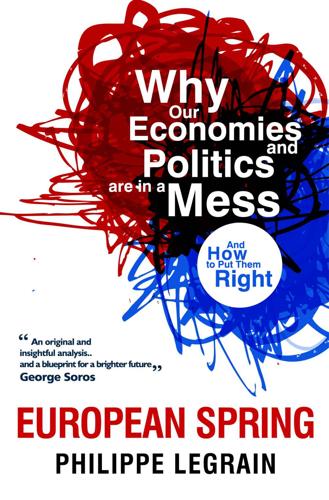
European Spring: Why Our Economies and Politics Are in a Mess - and How to Put Them Right
by
Philippe Legrain
Published 22 Apr 2014
In early 2010, British banks had a $13.5 billion exposure to Greek, Irish and Portuguese government debt – much less than French banks’ $56.1 billion or German ones’ $36.4 billion, but more than Spanish banks’ $11.7 billion or Italian ones’ $6.4 billion.56 It’s not just central bankers and financial regulators who encouraged or ignored bankers’ excesses, so too did the financial police, who failed to step in to stop bankers’ recklessness. Britain’s financial watchdogs prided themselves on their “light touch” – ie, soft-touch – approach. Instead of reining in the City of London’s excesses, they became cheerleaders for it. Their Continental counterparts were more suspicious of the City’s “casino capitalism”, but just as corporatist in championing, rather than curbing, their country’s banks. Financial self-interest and economic nationalism often overlap. Infamously, Jacques de Larosière chaired a high-level group tasked by the European Commission in 2008 with writing a report for EU leaders on EU financial regulation and supervision while on the payroll of France’s biggest bank, BNP Paribas.
…
Only Bill White at the Bank for International Settlements spoke out (and was first ignored then rubbished). Last but not least, blame lies with politicians who are meant to take a wider view of financial safety yet failed to protect voters’ interests. As Britain’s finance minister from 1997 to 2007, Gordon Brown argued that what was good for the City of London was good for Britain, seeing the City’s profits as a means of paying for a Scandinavian-style welfare system with American levels of tax.58 As City minister, Ed Balls, now the opposition Labour party’s finance spokesman, championed London’s light-touch regulatory approach. The ties between the French government and BNP Paribas are so intimate that its traders boast that it is inconceivable that the government would let it fail.
…
On 1 December Draghi hinted that, following agreement on a “fiscal compact”, “other things might follow”, triggering a burst of hope. EU leaders duly complied, agreeing eight days later to a compact that would entrench stringent limits on government borrowing in national constitutions. While David Cameron “vetoed” the deal after his bid to get special treatment for the City of London was given short shrift, other EU governments proceeded without him. With Britain marginalised, the eurozone crisis had now become an EU one too. Merkel was delighted by the new fiscal straightjacket. Others hoped that Berlin might reciprocate with a roadmap towards Eurobonds. Above all, they hoped the ECB would finally step in.
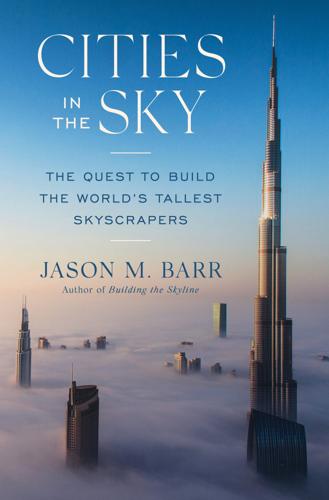
Cities in the Sky: The Quest to Build the World's Tallest Skyscrapers
by
Jason M. Barr
Published 13 May 2024
As one London developer told me, his firm markets their projects as “towers” instead. But then, in 2003, the City of London completed its first skyscraper after a thirty-year hiatus—the Swiss Re Building (30 St. Mary Axe), more famously known by its nickname, the Gherkin. By the end of the twentieth century, two things began to change. First was the rise of the modern finance-based economy, which started to take off in the 1980s, as computer technology and globalization spread. In 1983, Prime Minister Margaret Thatcher pushed the deregulation of London’s financial markets, which, because of its sudden and sweeping changes, is called the Big Bang. The older forces that drew manufacturers to cities were replaced by those that drew financial concerns.
…
” * * * Hackey developed his residences near Buckingham Palace, but one would have expected to see tall office buildings rise in the City of London at the same time. Yet none appeared. Again, this is odd given the similarities between the district and Lower Manhattan. Both were about one square mile, both were the center of finance, both were transportation hubs, and both had access to elevator technology, plumbing, steel, and, eventually, electricity. Since at least the Norman invasion in 1066, the City of London had the privilege of raising its own taxes and administering its own laws. The City Corporation is almost a state-within-a-state, with a unique status that makes it more like the Vatican than Southwark.
…
Since New York was so important, there has developed a belief that New York’s 1961 rules were the first use of the FAR in the world. The truth, however, is a bit different. New York implemented the FAR in a limited way in 1940 and went full-scale two decades later (which is still used today). Chicago went to an FAR system in 1957. The City of London adopted FAR restrictions in the 1940s (though gave them up in the 1980s). Hong Kong embraced the FAR in the 1960s, and mainland China in the 1980s. But the important point is that what was invented in 1930s New York then spread across the world throughout the rest of the twentieth century. Presently, the FAR—also called the plot ratio in other countries—is arguably the most important planning tool for skyscrapers across the world.
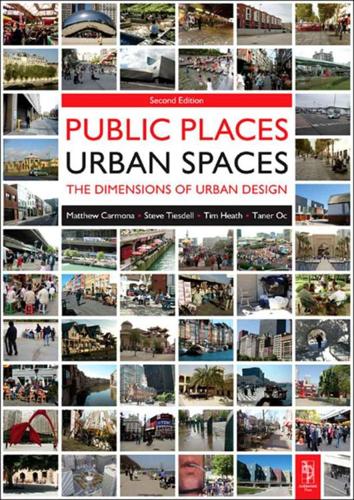
Public Places, Urban Spaces: The Dimensions of Urban Design
by
Matthew Carmona
,
Tim Heath
,
Steve Tiesdell
and
Taner Oc
Published 15 Feb 2010
Since then, a growing number of other projects and developments demonstrate how the public sector can work in partnership with the private sector to produce high-quality places (FIGURE 3.11 and FIGURE 3.12). FIGURE 3.11 Broadgate, London (Image: Steve Tiesdell). At the same time as the relatively deregulated development of the London Docklands, the Broadgate development was completed within a frenzied development context in the City of London. The Broadgate development provides a coherent addition to the City of London, is integrated into its context and creates successful and coherent privately owned ‘public’ space. It also illustrates the potential of the private sector to innovate and its ability to deliver quality outcomes FIGURE 3.12 Millennium Village, Greenwich, London (Image: Matthew Carmona).
…
The office stock of the City of London provides an interesting example. By the early 1980s, office buildings needed to handle the additional heat load resulting from the increased use of personal computers and the increasing cabling requirement related to the increased electronic and electrical servicing of workstations. New buildings would have larger floor-to-floor heights allowing for additional cooling equipment and a raised floor for cabling. The existing stock, however, faced the prospect of obsolescence. Accordingly, developers saw opportunities to redevelop sites in the City of London or for new development elsewhere, such as Canary Wharf.
…
Small BlocksSuperblocks Building defining and enclosing space Type A Type B Buildings as objects-in-space Type C Type D Other combinations are also possible. These are hybrid or compromised versions of the ideal systems (Type B or C). Type C, for example, represents situations where freestanding buildings are located in small block street patterns; tall buildings may also be developed within small block patterns (e.g. the City of London and central Hong Kong). During the second half of the twentieth century, the morphological structure of the public space network changed in two highly significant ways:• From buildings embedded in urban blocks defining streets and squares to buildings as separate freestanding ‘object-buildings’ standing in an amorphous ‘space’
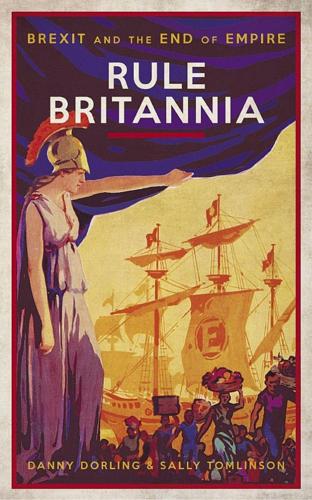
Rule Britannia: Brexit and the End of Empire
by
Danny Dorling
and
Sally Tomlinson
Published 15 Jan 2019
Similarly, London – the single largest and richest city on the planet not so long ago – fell into what Patrick Wright called ‘ruins’ in his prescient 1991 book on Britain at the height of the Thatcher years.32 London had become ‘ruined’ by 1991 because the money had run out. A new way to bring money in was then found, no longer through the tribute of unfair terms of trade, but by becoming the supreme financial juggler for the world. The 1986 Big Bang of the City of London was born out of the ruins. The Big Bang was shorthand for deregulation, initiated so that enormous profits could be made – profits large enough to emulate the tribute of the past. For the following twenty-two years, the City laid golden eggs for the British (or rather, the southern English) until, in 2008, the banks fell apart and almost bankrupted the UK.
…
Instead, it was thought, Britain could enjoy superior status by becoming the supreme financial juggler for the world. The 1986 Big Bang of the City of London heralded a new era. For twenty-two years, the City laid golden eggs for the country – until, in 2008, the banks fell apart. They fell apart because they had to. You cannot make more and more money out of doing less and less of productive use for ever. But that is what the plan is, if you aim to enrich a country mainly by concentrating on banking. Even in 1986, two of the Big Bang’s authors forecast that it would come to be seen, when and if it resulted in ‘scandals and liquidations’, as the ‘unacceptable face of unpopular capitalism’.4 So, when the crash of 2008 spelled the failure of Big Bang, the next grand plan to revive the British economy was to suggest going it alone – a brave new Britain throwing off the shackles of Europe.
…
The Rothschilds also had a big hand in making Britain great under the empire, supporting the De Beers Company, which funded Cecil Rhodes, as well as backing the South African Rio Tinto Group and funding the building of the Suez Canal. As we mentioned at the beginning of this chapter, in 1986 the Thatcher government changed the rules governing the London Stock Exchange. In their project, called Big Bang, the Conservatives deregulated London’s financial markets and London became a more dominant global centre for banking and trading in money. As the BBC explained in 2008: Trading is one of the most coveted jobs in the financial markets. A good trader can make tens of millions of dollars for his company every year and take home vast bonuses.
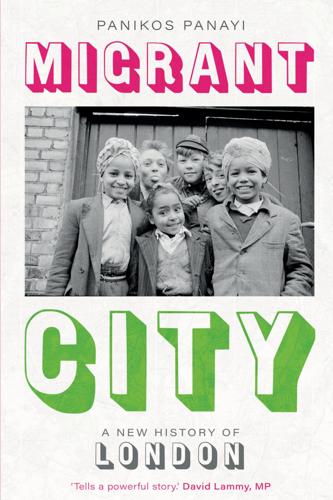
Migrant City: A New History of London
by
Panikos Panayi
Published 4 Feb 2020
The importance of London as an international financial centre from the eighteenth century has proved fundamental, a status which European Jews helped to cement from the Napoleonic period onwards and which attracted bankers from other parts of Europe over the following century. The proportion of foreign bankers may have remained stable or declined during the course of the twentieth century but the ‘Big Bang’ in financial services at the end of that century gave the City of London a new lease of life and power comparable with its Victorian and Edwardian status. This in turn helped to create a new service sector to provide for the needs of the growing international bourgeoisie with a key centre in the City, whether, for example, as cleaners or restaurant staff.
…
Catsiyannis, Greek Community of London, pp. 39–40. 75. Ibid., pp. 45–6; Maria Christina Chatziioannou and Gelina Harlaftis, ‘From the Levant to the City of London: Mercantile Credit in the Greek International Commercial Networks of the Eighteenth and Nineteenth Centuries’, in Philip L. Cottrell, Evan Lange and Ulf Olsson, eds, Centres and Peripheries in Banking: The Historical Development of Financial Markets (Aldershot, 2007), pp. 29–30. 76. Chatziioannou and Harlaftis, ‘From the Levant to the City of London’, p. 27. 77. Catsiyannis, Greek Community of London, p. 44. 78. John Gennadius, Stephen A. Ralli: A Biographical Memoir (London, 1902), pp. 21–2. 79.
…
Chatziioannou and Harlaftis, ‘From the Levant to the City of London’, p. 31; ‘The Late Mr. Stephen A. Ralli’, The Times, 30 April, 1902. 82. LMA/CLC/B/186/MS23834, Ralli Brothers Limited Collection, ‘Report to the Chairman on Organisation and Activities, with Suggestions for Improvements, Including Statistical and Financial Data about the Period 1931–8’. 83. LMA/CLC/B/186/MS23836, ‘Chronological Account of the Firm, 1818–1936, Compiled 1906 (printed)’. 84. Timotheous Catsiyannis, The Rodocanachi of London: A Pictorial History (London, 1987); Chatziioannou and Harlaftis, ‘From the Levant to the City of London’, p. 32. 85. Alexander C.
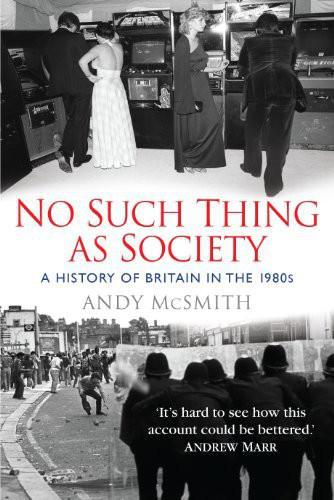
No Such Thing as Society
by
Andy McSmith
Published 19 Nov 2010
Nigel Lawson did not want to do it on Budget day, lest it ‘cast an undesirable shadow’ over his speech,8 therefore it could not be included in the original draft of the Finance Bill. Instead, an extra clause was slipped into the Bill as it was going through its committee stage in the Commons.9 When the Big Bang came, on 27 October 1986, the separate tribes of jobbers and brokers merged and huge multinational finance houses moved in. The City of London regained its competitive edge, at the cost of ending what had been, for many, a cosy way of staying prosperous. On the day of the Big Bang, Sir Nicholas Goodison was sharing a lift with Guy Farage, a well-known character in the city, who accepted that the changes had to happen, but regretted them.
…
It was very likely that the Stock Exchange would lose the court case that OFT was bringing, which was due to be heard in January, and would have to disentangle its centuries-old customs in one chaotic Big Bang. After consultation, he came back to Parkinson and said that the Stock Exchange would comply with the law, and organize its own Big Bang, but not yet. Instead of doing it almost overnight, as Wall Street had already done, they would have a gentle three-year changeover. Parkinson agreed. There followed a slow explosion in the City. Size was going to count in a deregulated money market, so firms merged and recruited, and salaries spiralled, sweetened by huge golden hellos, golden handcuf s and other perks.
…
Enfield, a Labour supporter, did not mind that, but he did not like it when the Sun took it up as a celebration of Thatcherism, using ‘£oadsamoney’ to plug its Lotto and Bingo games. He instructed his solicitors to try to warn them off, but gave up after the Sun counterattacked, telling him to ‘buy yourself a sense of humour’.1 The phenomenon that Enfield was observing did not originate in Tottenham’s White Hart Lane. It came out of the City of London, which in a few dramatic years was transformed from a club run by an old-boy network of public-school alumni to a place where the ambitious sons of working-class families were given free rein to make a great deal of money quickly. This development could be said to have begun when Margaret Thatcher called Cecil Parkinson to her office in June 1983 to reward him for his valiant work as chairman of the Conservative Party, presiding over the party’s best election result since the 1930s.
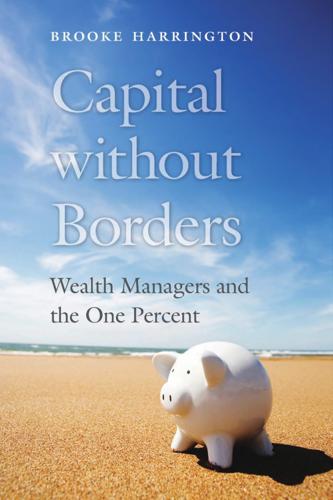
Capital Without Borders
by
Brooke Harrington
Published 11 Sep 2016
This is not coincidental: both trusts and guilds, as self-organizing and self-governing institutions, challenged state power.5 In addition, some have noted that the impact of wealth management—its success in protecting wealth from taxation and regulation—“is taking us back in time, back to the values and society of the feudal world.”6 Still others have observed that many of the microstates that have become leading global centers of wealth management activity are a “feudal remnant,” their territories and sovereignty created from duchies and principalities predating the Westphalian political order by centuries. These include the Channel Islands of Jersey and Guernsey—the last sovereign fragments of the Duchy of Normandy, once held by William the Conqueror—along with Luxembourg, Liechtenstein, and Malta, among others.7 The most important of these feudal holdovers is undoubtedly the City of London, the self-governing square mile enclosed by but distinct from London, the national capital. An estimated $1.1 trillion in personal wealth originating outside the United Kingdom—11 percent of the private offshore finance business worldwide—passes through the 1,000-year-old City, making it literally “a medieval commune representing capital.”8 My point, while related to these, is more specific to the practices and norms that define the work of contemporary wealth management.
…
The offshore world has created zones of lawlessness: not just in regard to tax laws but with respect to all laws. As some observers have already noted, there is an “anarchic” aspect to wealth management, with the result that the locales where this activity takes place—whether that is offshore, on Wall Street, or in the City of London—can seem surprisingly akin to the havens created by left-wing anarchists, such as pirate radio platforms.77 Such comparisons are not just metaphorical. The anarchic effects of wealth management can be observed in the chaos unleashed in 2008, when bad debts and risks hidden from regulators in obscure offshore vehicles grew to unmanageable size and nearly destroyed the world financial system.
…
Louise Ashley and Laura Empson, “Differentiation and Discrimination: Understanding Social Class and Social Exclusion in Leading Law Firms,” Human Relations 66 (2013): 221. 28. Kathryn Haynes, “Body Beautiful? Gender, Identity and the Body in Professional Services Firms,” Gender, Work and Organization 19 (2012): 490. 29. Liz McDowell, “Elites in the City of London: Some Methodological Considerations,” Environment and Planning 30 (1998): 2135. 30. Michael Hogg, “Social Identity and the Group Context of Trust: Managing Risk and Building Trust through Belonging,” in Michael Siegrist, Timothy Earle, and Heinz Gutscher, eds., Trust in Cooperative Risk Management: Uncertainty and Scepticism in the Public Mind, 51–72 (London: Earthscan, 2007). 31.
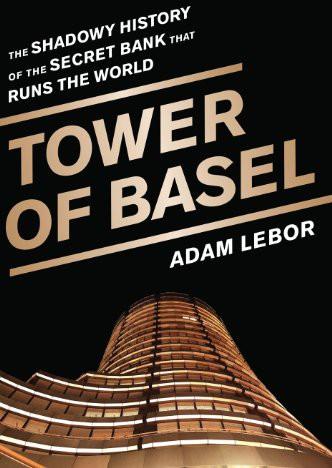
Tower of Basel: The Shadowy History of the Secret Bank That Runs the World
by
Adam Lebor
Published 28 May 2013
The bank had a new manager, Andrew Crockett, a British economist who had worked for the IMF from 1972 to 1989. Crocket came to the BIS in 1994 from the Bank of England, where he had spent four years as an executive director. There he could observe firsthand the after-effects of the “Big Bang,” the 1986 deregulation of the City of the London. Until the Big Bang, the Square Mile had been still a clubby, comfortable place of old school tie connections and long lunches, where Montagu Norman would have felt at home. That world vanished almost overnight. Wall Street investment banks poured into the Square Mile, bringing aggressive new tactics.
…
Randolph, 50 Buro IG, 51, 101 Bush, Prescott, 145 C Caesar, Hans, 107 Canada, xi, 198 Carney, Mark, 249–250, 263 Caruana, Jaime, xi, 259–260 Casey, William, 186 Catto, Thomas, 1st Baron Catto, 125, 139 Cecchetti, Stephen, 254, 259, 260, 272 CEEC (Conference for European Economic Cooperation), 140, 146 Central bankers economic and political power of, 43–44 growing prominence of, 249 need for awareness of concerns of public, 251 responsibility for financial stability, 250, 253 Central banks, argument for, 31 Chamberlain, Neville, 48, 70 Chase National Bank, 106–108, 133, 144 Château de Rougemont, 81 Château d’Oex, 81 Chemnyco, 101 China, xi, xxii, 228, 257 Churchill, Winston, 173 Cicero, “sinews of war” quote from, 66 City of London, deregulation of, 227–228 Clay, Lucius, 138 Clements, Piet, 60, 85, 259 Cochran, Merle, 41, 49, 54, 73, 80, 106 Cold War, 201–202 Committee for Foreign Economic Affairs, 153 Committee for the Study of Economic and Monetary Union, 210 Committee on Global Financial System, xxii, 239, 250, 257 Committee on Gold and Foreign Exchange, 189 Committee on Payment and Settlement Systems, xxii, 257 Concentration camp inmates, use of in industry, 184, 185 Conference for European Economic Cooperation (CEEC), 140, 146 Connolly, Frederick, 145, 146 Coombs, Charles, xv, 179–181, 188, 189–191 Craig, Bruce, 142 Cravath law firm, 142, 169 Credit Anstalt bank, 44 Croatia, 184 Crockett, Andrew, 225–226, 243, 258–259 Czechoslovak gold affair, 59–63 Czechoslovakia Act, 62 D Daily Herald, on transfer of Czech gold, 61 Dalziel, Charles, 76 Das Reich, on BIS, 124–125 Dawes, Charles, 9 Dawes Committee (1924), 9–10 Dawes Plan German External Loan, 74 De Gaulle, Charles, 194 The Death of a Diplomat (Jacobssen), 52 Degesch, 104 Delors, Jacques, 210, 215, 226, 233 Delors Committee, xxi, 210–214 Denmark, 8, 245, 246 Deutsche Bank, 74, 153, 154 Deutschmark, 151–152 Devisenschutzkommando (DSK), 86 Dodd, Thomas, 106, 177 Donovan, William J.
…
Schacht told Norman that he wanted the Bank of England to lend $25 million to a new subsidiary of the Reichsbank, the Gold Discount Bank. The new bank would instantly alter global perceptions of the country’s financial prospects. The imprimatur of the governor of the Bank of England would open doors throughout Wall Street and the City of London. Tenacious as ever, Schacht got his money. SCHACHT HAD SWEET-TALKED Norman, but the reparations question remained unresolved. America was tired of squabbling Europeans who could not get their houses in order and also recognized that there could be no lasting prosperity while Europe lurched from one financial crisis to another.
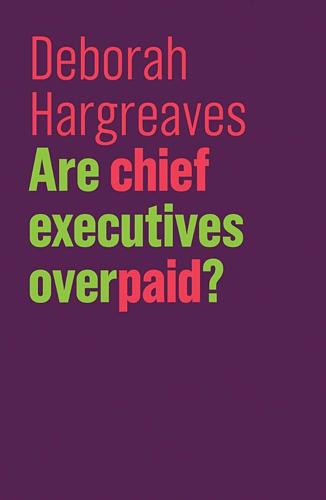
Are Chief Executives Overpaid?
by
Deborah Hargreaves
Published 29 Nov 2018
This pay revolution was also a symptom of the move among some of the leading western economies – mainly the US and UK – to focus more of their resources on finance in Wall Street or the City of London. It was called the ‘financialization’ of the economy, or how everyone wanted to be paid like a banker. With the opening up of the London Stock Exchange under so-called Big Bang reforms in 1986, large American investment banks moved across the Atlantic, bringing with them their culture of big bonuses. One veteran banker recalls how the US banks went on a frenzy of hiring and acquisitions and suddenly everyone became greedy. This culture leaked out of the City of London and into British boardrooms, where company bosses wanted their pay to be similarly performance-related.
…
She also launched a series of privatizations of companies such as British Gas and British Telecom, which saw the former civil servants running these businesses suddenly pitched into the premier pay league. Similarly, Ronald Reagan came to power during a period of deep recession and stagflation – characterized as double digit economic downturn accompanied by double digit rate of inflation – in 1981. He was convinced that tax cuts for the rich, deregulation of markets and business, and control of the money supply to counter inflation, would improve the economy for all through the so-called ‘trickle-down effect’. President Reagan gave his name to the branch of monetarist economics he popularized – Reaganomics – but much of his legacy has since been called into question.
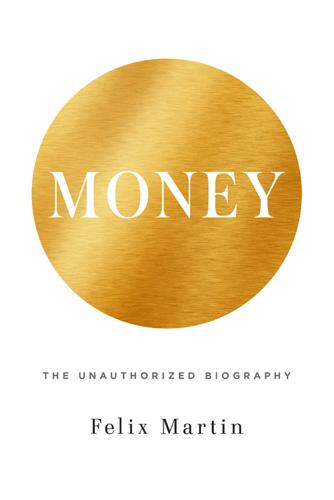
Money: The Unauthorized Biography
by
Felix Martin
Published 5 Jun 2013
This was the famous Quaker firm of Overend, Gurney and Co., or the “Corner House” as it was known to a generation of Victorian financiers, because it stood as a rival to the Bank of England itself, not only metaphorically in the financial markets, but in hard reality on the corner of Lombard Street and Birchin Lane in the heart of the City of London. The Gurney family had begun as wool merchants in the prosperous farming district of East Anglia, and had evolved naturally into merchant bankers by borrowing on their good name in London and lending to the local sheep-farmers. As Britain’s economy grew and diversified, the opportunity to capitalise on this generic line of business—connecting the local capitalists in need of credit at the base of the pyramid to the London banks in its higher echelons—became more and more attractive.
…
As the Governor put it afterwards, “I do not think that anyone would have thought of predicting, even at the shortest period beforehand, the greatness of those advances.”32 By Saturday, everything was confusion. In the morning, the Chancellor of the Exchequer, William Ewart Gladstone, reassured the House of Commons that although there was “panic and distress … without parallel in the recollection of even the oldest men of business in the City of London,” he had “not the least reason to suppose” that the Bank would ask him to suspend the Act stipulating the strict upper limit to the note issue.33 He then returned to the Treasury to find the Bank’s Governor telling him that with only £3 million left in its reserve, the Bank could not withstand another day like Friday, and asking just that.
…
These were considerable. Three English and one Anglo-Indian bank had been forced into liquidation—at a time when there was no deposit insurance. Dozens of bill brokers and finance companies had gone under. But as always, the real ramifications of the crisis were felt far beyond the medieval wards of the City of London and long after the acute panic had subsided. All over the country, the credit crunch resulting from the damage to confidence brought a severe contraction of business. More than a hundred and eighty bankruptcies were recorded in the three months following Black Friday.34 Unemployment rose from 2.6 per cent in 1866 to 6.3 per cent in 1867, and rose again in 1868 before a proper recovery took hold.
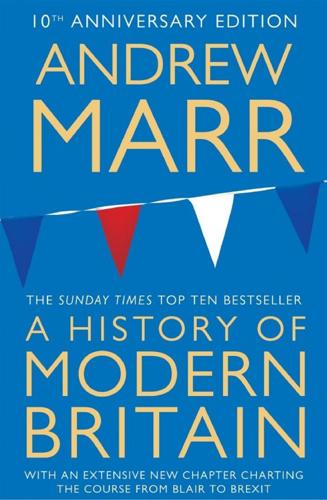
A History of Modern Britain
by
Andrew Marr
Published 2 Jul 2009
The new Chancellor after the 1983 election, Nigel Lawson, a former financial journalist, and the new Trade Secretary, Cecil Parkinson, decided to do a deal with the increasingly archaic looking Stock Exchange. It was struggling with a long and wearisome court case brought by the Office of Fair Trading. The ministers promised the legal action would be dropped if the Stock Exchange reformed itself. This was the final piece of action which led to the ‘Big Bang’ of City deregulation, something which has a claim to be the single most significant change of the whole Thatcher era, on a par with confronting the unions or privatization. The situation in 1983–4 could be compared to an old market town high street, with its long-established specialist shops, the fishmonger and the drapers, old Mr Bunn at the bakery and Miss Manila the trusted postmistress, at just the moment when a huge new retail park opens on the outskirts.
…
But it was the consequence of a decisive break in the financial regulations governing City and everyday life, which changed Britain, probably for ever. It felt heady and exhilarating to millions. It was like getting properly drunk for the first time. The Big Bang itself was thus only a moment in a longer process, rooted in the Eurodollar market of the sixties and given its most dramatic kick by Geoffrey Howe’s abolition of exchange controls, followed by the deregulation of lending. It meant that Britain for the first time in her history, and entirely willingly, gave up control over financial dealings done from her soil except as a neutral regulator. The State lost control over credit.
…
Index 7/7 ref1 9/11 ref1 Abbey National ref1 abortion ref1, ref2, ref3, ref4 Abortion Law Reform Association ref1 Abse, Leo ref1, ref2, ref3 Acheson, Dean ref1 acquired immune-deficiency syndrome (AIDS) ref1 Adam, Ruth ref1 Adams, Gerry ref1, ref2 Admiralty, the ref1 Afghanistan ref1 Africa ref1, ref2, ref3 agriculture ref1 AIDS (acquired immune-deficiency syndrome) ref1 airliners ref1 Aitken, Jonathan ref1 Aldermaston ref1 Allawi, Ayad ref1 al-Qaeda ref1 Amin, Idi ref1 Amis, Kingsley ref1 anarchy ref1 Anatomy of Britain (Sampson) ref1, ref2 Anderson, Ian ref1 Anderton, James ref1 Angry Brigade ref1 ‘Angry Young Men’ ref1 animal rights movement ref1 anti-Americanism ref1 anti-Semitism ref1, ref2 anti-war movement ref1 Anti-Nazi League ref1, ref2 Anti-Social Behaviour Orders (ASBOs) ref1 appeasement ref1 Apprentice Boys of Derry ref1 Arab nationalism ref1 arms race ref1 art colleges ref1 Argentina see Falklands War Arts Council ref1 ASBOs (Anti-Social Behaviour Orders) ref1 Asda ref1 Ashdown, Paddy ref1 Astor, Lord ‘Bill’ ref1 Astor, Nancy ref1 A Streetcar Named Desire ref1 Aswan, High Dam ref1 asylum seekers ref1, ref2 see also immigration; multiculturalism Attlee, Clement ref1, ref2, ref3, ref4, ref5, ref6, ref7 Austin, Herbert ref1 Austin Seven ref1 AWACS ref1 Bailey, David ref1 Baker, Kenneth ref1 Balcon, Michael ref1 Balls, Ed ref1, ref2 Banda, Hastings ref1 Bank of England ref1, ref2, ref3 Barings Bank ref1 Barnett, Correlli ref1, ref2 Barry, Gerald ref1 BBC ref1, ref2 Beadle, Hugh ref1 Beatles, the ref1, ref2, ref3, ref4 Beaton, Cecil ref1 Beaumont, Hugh (Binkie) ref1, ref2 Beckett, Samuel ref1 Beeching, Richard ref1, ref2 Behan, Brendan ref1 Belgrano ref1 Bell, Martin ref1 Benn, Tony ref1, ref2, ref3, ref4, ref5, ref6, ref7, ref8, ref9, ref10, ref11, ref12 domestic policy ref1 on the Eurodollar ref1 on Europe ref1 and Labour reform ref1, ref2 Bentine, Michael ref1 Bentley, Derek ref1 Berger, Vivian ref1 Berners-Lee, Tim ref1 Bernstein, George ref1 Bevan, Nye ref1, ref2, ref3, ref4, ref5, ref6 Beveridge Report ref1 Beveridge, William ref1, ref2 Bevin, Ernest ref1, ref2, ref3, ref4, ref5 Bevins, Reggie ref1 Beyond the Fringe ref1 Biba ref1, ref2 Bicknell, Franklin ref1 ‘Big Bang’, City deregulation ref1 ‘Big Brother’ ref1 Bin Laden, Osama ref1 bio-metrics ref1 Birch, Nigel ref1 Birthday Party, The (Pinter) ref1 Blackburn Technical College ref1 Black, Cilla ref1 black market ref1 Black Wednesday ref1 Blair, Cherie ref1 Blair, Tony ref1, ref2, ref3, ref4, ref5, ref6, ref7 and Brown ref1 and Bush ref1 and celebrity ref1 and civil liberties ref1, ref2 death of Diana ref1, ref2 and the euro ref1 final years ref1 and fuel duty protests ref1 and hunting ref1 and Iraq ref1, ref2 leadership election ref1 on multi-culturalism ref1 Northern Ireland ref1 and the press ref1 resignation ref1 and Serbia ref1, ref2 and Thatcher ref1 ‘war on terror’ ref1 on weapons of mass destruction ref1, ref2, ref3 Blake, George ref1 Blake, Peter ref1 Blaney, Neil ref1 Blue Streak ref1 Blunkett, David ref1, ref2, ref3, ref4, ref5 ‘Bloody Sunday’ ref1 Blunt, Antony ref1, ref2 Blunt, Maggie Joy ref1 BMC (British Motor Corporation) ref1 BNOC (British National Oil Corporation) ref1 Bono ref1 Boodles Club ref1 Booker, Christopher ref1 Boothby, Lord ref1 Borges, Jorge Luis ref1 Bose, Subhas Chandra ref1 Bosnia ref1 Bourne, Alec ref1 bovine spongiform encephalopathy (BSE) ref1 Boxer, Mark ref1 Bowe, Collette ref1 Bowie, David ref1 Braddock, Bessie ref1 Braithwaite, Rodric ref1 Bramley, Ted ref1 Bretherton, Russell ref1 Britain Can Make It (1946) ref1 British Aeroplane Company ref1 British Airways ref1 British Antarctic Survey ref1 British Empire ref1, ref2 British Gas ref1, ref2, ref3 British Guild of Creative Designers ref1 British Housewives’ League ref1, ref2 British Leyland ref1 British Medical Association ref1, ref2 British Motor Corporation (BMC) ref1 British Nationality Act ref1 British National Oil Corporation (BNOC) ref1 British National Party see National Front British Rail ref1, ref2, ref3 British Steel ref1 British Telecom (BT) ref1, ref2 British Transport Commission ref1 Brixton ref1 Broccoli, Albert ‘Cubby’ ref1 Brodie, Tom see Glorious Glosters Brown, George ref1, ref2, ref3, ref4 Brown, Gordon ref1, ref2, ref3, ref4, ref5 anti-poverty agenda ref1 and Blair ref1 economy ref1, ref2 and the euro ref1, ref2 fuel taxes ref1 ID cards ref1 BSE (bovine spongiform encephalopathy) ref1 B-Specials ref1 BT (British Telecom) ref1, ref2 Buchan, Norman ref1 Bulger, James ref1 Bupa ref1, ref2 Burgess, Guy ref1, ref2 Bush, George ref1 Bush, George W. ref1, ref2, ref3 Butler, R.
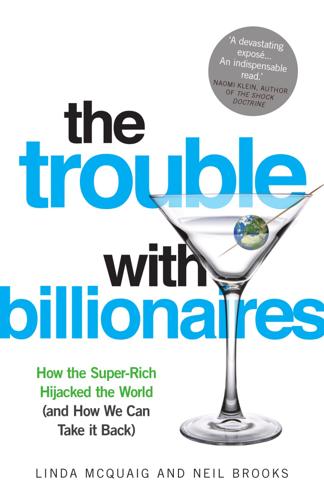
The Trouble With Billionaires
by
Linda McQuaig
Published 1 May 2013
In 1970, the New York Stock Exchange lifted its ban on investment banks becoming public corporations with listings on the stock exchange. As a result, the major US investment banks gradually switched over to the public model. In Britain, with the sudden financial deregulation of the Big Bang in 1986, small partnerships were also replaced by large investment houses. In both countries, investment banks, no longer constricted by the responsibilities inherent in partnerships, were able to raise huge amounts of cash and grow much larger in size. ‘The Big Bang generation became millionaires at the same time as they were freed from the responsibility of looking after the partnerships,’ notes former British investment banker Philip Augar in The Death of Gentlemanly Capitalism.6 Senior bank executives were no longer personally liable for their firms’ debts.
…
In the most recent ranking, the UK itself was in thirteenth position among seventy-three countries, but the authors note that if the entire British network were considered, it would easily be ranked as the world’s number one secrecy jurisdiction. In his book Treasure Islands: Tax Havens and the Men Who Stole the World,32 Nicholas Shaxson tells the story of how the UK became the centre of a web of tax havens in the 1950s in a deliberate attempt to funnel illicit funds from the crumbling British Empire to the City of London. While it’s impossible to estimate accurately the revenue loss from granting non-domicile status to the super-rich living in London, it probably amounts to billions of pounds a year33 – an unconscionable loss at a time when ordinary UK citizens are being subjected to austerity measures to reduce the deficit.
…
The basic thrust of their agenda has been to marginalize the democratic political system and to concentrate power in the private sector, where they can operate free from serious constraint. To achieve this end, they have denigrated and cut back every democratic policy instrument that citizens use to achieve their collective goals: state enterprises have been privatized; industrial and financial sectors have been deregulated; environmental and consumer regulations have been abandoned; social security programmes have been reduced; union power has been curbed; and public institutions such as universities and health facilities have been partially privatized. The main focus of their attack, however, has been on the tax system.
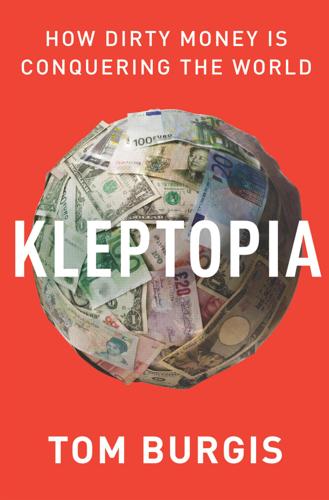
Kleptopia: How Dirty Money Is Conquering the World
by
Tom Burgis
Published 7 Sep 2020
There they remained, erecting an encampment of 150 tents. The City of London police issued a warning. It was headed, ‘Terrorism/Extremism update for the City of London Business Community’. The force had intelligence that the Occupy London camp contained ‘individuals who would fit the anti-capitalist profile’. Upstanding capitalists in the area were warned to be on the lookout for ‘suspected activists’. Nigel had recently finished his three years working for the City authorities. ‘I share the concerns about the way the City of London Police endeavour to brand protest groups such as Occupy in the same group as extremist and terrorist groups,’ he wrote in his notebook.
…
Whichever of them would topple, whichever of them would endure, Nigel understood there was a machine that would continue to ensure that either they or whoever succeeded them could turn power into money and smuggle it out. The machine was both corrupted and corrupting. Nigel knew where its master cog lay: the City of London. Like a soldier addicted to war, he couldn’t stay away from it. After BSI fired him, he took a job at the City of London Corporation, the arcane, opaque, half-private, half-public body that ran the financial district’s affairs. For three years he worked there, until a better opportunity arose. On July 1, 2011, he received a letter from the ‘HR Transactions’ department of the City’s regulator.
…
Trump, 274–5, 303 Machkevitch, Anna, 304, 309 Mack, Jon, 309 Maduro, Nicolás, 337 Maggs, Peter B., 383n Magnex 2000 (Mogilevich company), 377n Magnitsky Act, Global, 307–8 Major, John, 121 Makarov, Andrei, 361n Makarov, Igor, 379–81n Malaysia, 327–9, 419–20n Manchester, 5 Mandelson, Peter, 163, 211–12, 387n manganese, 279, 283, 308, 403–4n, 405n Mapelli, Alberto, 353n Marcos, Ferdinand, 50, 350–1n Markowitz, Michael, 77–8, 79, 356n Martin, Charlotte, 6, 71, 89, 208, 229, 239, 240, 243, 271, 289–90, 341n Massimov, Karim, 61, 157–8, 371n Matrosskaya Tishina prison (Moscow), 39 May, Theresa, 257 Mbeki, Thabo, 57 McCarthy, Kevin, 302 McCormick, Shawn, 17–18, 19–20, 21–2, 23, 174, 284–6, 300, 342–3n, 344–5n, 406–7n, 410n Mennes, Ernest, 383n Merrill Lynch, 202 Meryweather Investments Limited, 352n, 355n Mexican drug cartels, 201 Mezhidov, Tamirlan, 391–2n Michigan State University, 133–5 Midland Resources, 223 Mikhailov, Sergei (‘Mikhas’), 99–100, 175–6, 181, 222, 223, 360–1n, 377n Miller, Alexei, 381n mineral reserves: in Australia, 10, 55; in Kazakhstan, 10, 126, 130, 132–3, 157, 211, 368n; in Africa, 23–4, 49–53, 55–6, 73, 201, 273, 277, 278–82, 306, 351–2n, 402–4n, 404–5n; in South Africa, 23–4; Congo’s copperbelt, 49, 51–3, 56, 280–3, 306, 351n, 402–3n, 404–5n; Chinese demand for, 55; Russian aluminium, 132 Mirakhmedov, Abdumalik, 333–5, 421n Mirtchev, Alexander, 363–4n Mnangagwa, Emmerson (the Crocodile), 49, 50, 51, 53, 306, 336, 350n Mnuchin, Steven, 415n Mobil, 156 mobsters, Russian: and money laundering, 15–16, 76, 176–80, 314, 315; and Russian capitalism, 15–16, 176–84, 314; and Russian state, 16, 182–4; in USA, 75–6, 77–87, 182, 356–7n; avtoritet (business gangster), 99–100, 175–6, 360–1n; and Boris Birshtein, 99–100, 174, 358n, 360–1n, 376n; Solntsevskaya brotherhood, 99–100, 175–6, 360–1n, 377n; and Sasha Machkevitch, 174–5, 181, 183, 184, 374–5n Mobutu Sese Seko, 49–50 Mogilevich, Semyon (‘Seva’, ‘Brainy Don’), 76, 174–7, 180–1, 337–8, 356n, 358n, 375–83n; detained in Moscow (2008), 15–16, 182–3, 381n; and money laundering, 15–16, 176–80, 314, 315; UK warrant for arrest of, 177–8; and natural gas pipelines, 182, 183, 222, 289, 331; in Wilkins’ red boxes, 331, 332 Mohamad, Mahathir, 328 Mohammed bin Salman, 320–2 Moldova, 98, 99 Monaco, 28, 174–5, 214–15, 420n money laundering: the Trio in Belgium, 14, 112, 155–6, 304–6; and Semyon Mogilevich, 15–16, 176–80, 314; and Russian mobsters, 15–16, 76, 176–80, 314, 315; and Carl Levin’s Senate hearings (2008), 44–7, 58, 59, 349n; Proceeds of Crime Act (2002), 71; and real estate, 76, 200–1, 202–5, 236, 245–7, 305, 314–16, 324–5, 384–5n, 384n, 392–3n; and Soviet Party gold, 97–8, 101; and Brink’s-Mat robbery, 118–19, 365n; at HSBC, 170; Bank of New York scandal (1999), 179, 181, 314; loopholes in US regulations, 200; Black Market Peso Exchange, 201–2, 315; by drug cartels, 201–2; and Donald J. Trump, 202, 250, 274–5, 303, 314–16, 319, 324–6, 384–5n; City of London’s tolerance of, 241–2, 395n; and FBME Bank, 246, 396n Montevecchi, Ernest ‘Butch’, 79, 83 Morgan Stanley, 13 Mossack Fonseca, 328, 365n Mossad, 258 Mubarak, Hosni, 119 Mueller, Robert, 310, 325, 326, 413n, 419n Mugabe, Robert, 53–4, 185–6; and 2008 elections, 48, 54, 56–7, 73, 277, 336, 351–3n; and massacre in Matabeleland, 49, 306; and Congo, 51, 52–3; and City of London, 54, 73; and 2013 election, 306–7, 336; relinquishes power (November 2017), 306, 336 Mukhudinov, Ruslan, 234 Muratbaev, Talant, 371n Murcia Guzmán, David, 202, 315, 384n Najib Razak, 327–9, 419n Napolitano, Giorgio, 254–5 Nathan, Judge Alison J., 410n National Security Council (NSC) (USA), 17, 285 Nazarbayev, Nursultan, 106; and loyalty, 10–12, 67–9, 111–15, 116, 123–5, 127, 172–3, 303; and the Trio, 10–14, 94, 123–5, 127, 132, 158–9, 198, 210–12, 245, 294, 300; crushing of opposition, 12, 67–9, 111–15, 116, 127, 160–1, 166; secret bank accounts in West, 14, 112, 155–6, 160, 161, 226; designs on BTA, 61, 62, 64, 67–9, 110, 116; expropriation of BTA, 62–3, 64–6, 69, 103–5, 116–17, 144, 190–1, 205, 235; and Astana’s architecture, 63, 330; and oil industry, 78, 143–50, 156–7, 369n; assets in Britain, 107, 362n; ‘active measures’ against oligarchs, 115; use of British courts, 116–17, 159–60, 190–1, 192, 196, 237, 238, 246–8, 255–6, 296–7, 394n; Sasha as enforcer for, 123–5, 198, 235, 245; Zhanaozen massacre (December 2011), 140–53, 154–5, 163, 165–8, 195, 292, 297–8, 369–70n; mansion at Kendirli, 142; visit to Zhanaozen (December 2011), 148–9, 167; Tony Blair as consultant, 154–5, 161, 163, 165, 166, 372n; Cambridge speech (July 2012), 154–5, 163–6, 168–9, 372–3n; ‘Kazakhgate’ in USA, 156–7, 160; and propaganda, 161, 196, 256, 264; Aitken’s biography of, 162, 372n; and Third Way, 163, 372n; and ENRC buyout/delisting, 210, 211–12; use of US courts, 238, 244–9, 324, 395–6n; Kazaword material, 256–7, 258, 259–60, 264–5, 292; and Fraenkel’s Dual State, 268; Ablyazov’s opposition from France, 295–6; steps down from presidency (March 2019), 295, 409n; and Nicolas Sarkozy, 305–6 Nazi Germany, 26, 32; as Fraenkel’s Dual State, 37–8 Nemtsov, Boris, 34, 233–5, 236, 237, 321, 347n, 390–1n Netanyahu, Benjamin, 337 New Labour, 14, 163, 187, 372n New York: Russian mobsters in, 75–6, 77–87, 356–7n; Italian crime families, 76–7, 78–9, 83–4, 314, 338, 356–7n; Italian-Russian fuel scams, 77–9, 179, 201, 356n; criminal infiltration of Wall Street, 83–4; Bayrock Group, 84–5, 110, 126–7, 199–200, 314, 315, 357n, 362n, 366–7n; real estate market, 84–5, 87, 110, 126–7, 199–200, 314, 315; pursuit of Ablyazov in courts, 244–9, 324, 395–6n Nice (France), 205–6, 246–7, 252, 255 Nigeria, 273, 400n North Korea, 322 Northern Rock, 8, 29, 59 Novikova, Anastasiya, 113–14 Novosyolov, Sergei, 22, 342–3n, 345n Nurgaliyev, Nurlibek, 146, 147, 369n Nurkadilov, Zamanbek, 111 Obama, Barack, 274, 275, 321, 400n Obiang, Teodorin, 201 Occupy London camp, 136, 137, 369n Och, Daniel, 54, 56 ‘offshore’ system, 155, 176–7, 225–6, 240–1, 294, 387n; Swiss bankers establish, 26–7; size of, 27, 346n; and Nigel Wilkins, 28–9, 186–8, 215, 216–17, 271–2; ownership of commercial property, 29, 347n; and Fat Larry’s fuel stations, 77; and hedge funds’ money, 186–7 Ogay, Eduard, 157, 371n oil industry: Caspian Sea reserves, 10, 140–2, 156; TNK-BP joint venture, 16–23, 182, 285, 303, 342–5n; Yukos, 34, 35–6, 38–43, 64, 65; OzenMunaiGaz (OMG) labour strike, 140–53, 154–5, 163, 165–8, 195, 292, 297–8, 369–70n; American kickbacks to Nazarbayev, 156–7, 226; Mobil’s purchase of Tengiz field, 156–7; and dirty money, 201, 273, 320, 330, 338, 417n; and Equatorial Guinea, 201; and ‘Petro’ kleptocrats, 338; Chechen oil, 391n oligarchs: infiltration of City of London, 12–15, 16, 121–2, 128–31, 367n; TNK-BP joint venture, 16–23, 182, 285, 303, 342–5n; Yukos expropriation, 34, 35–6, 38–43, 64, 65; Khodorkovsky prosecution, 35–6, 38–9, 40–3, 64, 65; birth of in Yeltsin era, 35, 347n; Putin brings to heel, 35, 38–43, 65, 115; emergence of new crop loyal to Putin, 42–3; Nazarbayev’s ‘active measures’ against, 115; in Wilkins’ red boxes, 138, 330; in Ukraine, 224, 225, 289 see also the Trio and entries for individuals Olisa, Ken, 13, 210, 367n Omar, Mullah, 82 Opec, 338 Orange Revolution (2004–5), 224–5, 330 Osborne, George, 170, 187, 209, 241, 373n, 386n, 394–5n OzenMunaiGaz (OMG), 140–53, 154–5, 163, 165–8, 195, 292, 297–8, 369–70n Pacolli, Behgjet, 11–12, 330, 342n Panama, 28, 202, 315, 384–5n, 414n Panama Papers, 328, 403n, 419n Paris, 190–2; Ablyazov’s extradition case, 251–2, 255, 257–8, 260–70, 291, 297, 398–9n Parker, Judge Katharine H., 386n, 395n, 396n, 409–10n, 418n Patriot Act, US, 200 Pavlov, Alexandr (Ablyazov’s bodyguard), 191, 195, 263, 268, 291, 383n, 399n Persico, Danny, 83, 357n Petelin, Dimi, 109, 203, 205 Petelin, Gennady, 109, 205, 245, 386n Petropavlovsk (gold mining company), 394n Petrushova, Irina, 160–1, 371n Philippines, 50, 337, 350–1n Pinochet, Augusto, 50, 262, 351n, 398n platinum, 49, 56, 277, 351–2n Pluzhnikov, Igor, 330–1, 332 political power, privatisation of: and Russian capitalism, 9–12, 24, 35, 39–40, 95–6, 98–9, 100–2, 154–69, 370–3n; role of money, 24, 48, 54–7, 61–2, 73, 120, 137–9, 162–3, 183, 224–7, 296–7; and Yeltsin, 39–40, 100–2; in Mugabe’s Zimbabwe, 48, 52–4, 55–7, 73, 185–6, 277, 306–7, 336; in the Congo, 51–3, 56, 276, 277, 279, 280, 284, 306, 307–8, 413n; and City/hedge fund finance, 54–7, 120, 121, 137–9, 185–6, 280–1, 404–5n; the Trio in Africa, 73, 135, 173, 174, 275–87, 306, 308–9; Nazarbayev regime, 111–16, 154–69, 210–13, 236, 237–8, 291–8, 370–3n; use of Western courts, 116–17, 159–60, 190–1, 192, 196, 237, 238, 246–8, 255–6, 296–7, 394n; and consultancy work, 162–3, 211–12, 372n; ‘presumption of regularity’ concept, 195–6, 322; Ukraine as frontier/membrane, 221–2, 224–7, 316–17; Nemtsov’s stand against, 234–5, 236–7; enormous success of perpetrators, 275; truth as secondary, 295; and emergence of Trump, 312–16; end of Cold War as trigger, 314–16; by Trump administration, 316–24, 418–19n; global alliance of kleptocrats, 319–22, 324, 336, 416–17n, 423n; and selective justice, 327–9; and Panama Papers, 328; Soares de Oliveira’s use of term, 373n see also entries for individual kleptocrats and countries Portland (PR consultancy), 117, 196, 253, 383n Potanin, Vladimir, 35 precious stones, 9–10, 49 Presti, Karim, 353–4n, 353n Prince, Erik, 106, 274, 400n Private Eye, 136, 342n, 352n, 354n Proceeds of Crime Act (2002), 71 Prokhorov, Vadim, 390n, 391n Prosper, Pierre, 307, 413n prostitutes, use of, 15, 122 pump-and-dump schemes, 75, 81, 82, 83, 85–6, 204, 313 Putin, Vladimir, 342n; and Peter Sahlas, 33, 34; takes power (2000), 34; and Semyon Mogilevich, 184, 382n; and VEB, 225–6; golden presidential toilet, 233, 237, 390–1n Putin regime: arrest of Mogilevich (2008), 15–16, 182–3, 381n; as gangster state, 16, 182–4; FSB as central cog, 18–23; and Litvinenko murder, 18, 20–1, 344n, 382n; Khodorkovsky prosecution, 34, 35–6, 38–9, 40–3, 64, 65; and ‘the utility of legitimacy’, 38–9; and gas supply to Europe, 181–2, 222, 224, 289, 381n; conquest of eastern Ukraine (2014), 221, 233, 237, 311, 388n; economic base in eastern Ukraine, 225–7, 316; annexation of Crimea (2015), 242 PwC, 13, 65, 231, 342n Qatar, 330 Raffe, Victoria, 386n Raiffeisen (Austrian bank), 181, 182 Rakishev, Kenes, 235–6, 237, 238, 244, 324, 392n, 393n, 418n Rappo, Patrick, 173–4 Ratzel, Max-Peter, 365n Rautenbach, Billy, 350n; background of, 48–9; and the Crocodile, 49, 51, 53, 306–7; and Congolese mining rights, 51–3, 56, 280–3; at Elephant Hills (July 2000), 52–3, 306, 308, 351n; deal funding Mugabe’s 2008 election violence, 56–7, 73, 277, 336, 351–2n; resolves legal problems in South Africa, 72–3, 355n; and ENRC in Africa, 73, 276–8, 284, 285, 406n; sanctioned as Mugabe crony, 277, 278, 401n; sanctions on lifted, 306–7; as prosperous white farmer in Zimbabwe, 306 Raytheon (military contractor), 318 real estate: and money laundering, 76, 200–1, 202–5, 236, 245–7, 305, 314–16, 324–5, 384–5n, 384n, 392–3n; Bayrock Group, 84–5, 110, 126–7, 199–200, 314, 315, 357n, 362n, 366–7n; and Felix Sater, 84–5, 87, 110, 126, 199–200, 203–5, 313–14, 315, 324–5, 385–6n, 414–15n; and Iliyas Khrapunov, 199–200, 203–5, 245, 246–7, 314, 324, 385–6n; and peso scams, 202, 315, 384n; and Grenfell survivors in Kensington, 289, 408n; Sater and Trump, 313–14, 315, 324–5, 414–15n reality television, 312–13, 314 Red October steel mill (Ukraine), 223–4 Reed Smith (City lawyers), 257–8, 397n, 398n, 410n Reuben brothers, 132–3, 159, 175, 368n, 376n Rich, Marc, 51–2 Rights and Accountability in Development (Raid), 352n, 401–2n Risk Analysis (private intelligence agency), 29, 332–3, 346n Ritual Service (undertakers), 379n RJI Capital, 259, 362n, 398n Robertson, Patrick, 261–5, 294, 398n, 399n Rome, 191–4, 195–7, 198, 251, 252–5, 291–2, 397n Rosneft (Russian state oil company), 43 RosUkrEnergo, 181–2, 226, 331, 374–5n, 381n Rothschild, 13 Royal Bank of Scotland (RBS), 62, 117, 177, 365n Rozenbaum, Vadim, 361n Rubio Holdings, 403n Rudny (Kazakh iron mine), 94–5, 128–31, 133–5 Russia (post-Soviet): Peter Sahlas in, 33–4, 69; Yeltsin’s reforms, 33–5, 100, 102, 361n; civil legal code for post-communist era, 33, 34, 36; and Fraenkel’s Dual State, 38–9; corruption under Yeltsin, 100–2, 330, 361n, 420n; ‘aluminium wars’, 132; Moscow police and Seva, 177–8, 180; conquest of eastern Ukraine (2014), 221, 233, 237, 311, 388n; Nemtsov murder (2015), 233–5, 237, 321, 390–1n; annexation of Crimea (2015), 242; demands Ablyazov’s extradition, 255, 265; Trump’s connections to, 303, 310, 311, 315, 325–6, 414–15n; interference in US election (2016), 310, 311; global alliance of kleptocrats, 319; interference in British politics, 337; as Ur of Kleptopia, 337 see also capitalism, Russian; Putin regime Rutskoi, Aleksandr, 100–2, 174, 361n Rwanda, 51, 328 Rybolovlev, Dmitry, 315 Sahlas, Peter, 347n, 354n; background of, 30–1; and Russian legal system, 30, 33, 34, 36, 38–9, 40, 42, 43; in Czechoslovakia (1990), 31–2; in Soviet Union (1991), 32–3; moves to Russia (1996), 33–4; and Fraenkel’s Dual State, 36, 38–9, 348n; and Yukos defence team, 36, 38–43, 64, 65, 190; and BTA case, 64–6, 69, 103–5, 160, 190–1; Tower 42 meeting with Ablyazov, 65–9, 103, 116, 255, 260; and role of psychology in history, 103; life in Paris, 190–2; and Ablyazov kidnapping, 192–7, 251, 252–5, 263, 291–2; ‘presumption of regularity’ concept, 195–6, 322; and Ablyazov extradition case, 251–2, 255, 257–8, 260–70, 291, 297; and Kazaword material, 256–7, 258, 259–60, 264–5; threats and abuse from Patrick Robertson, 260–5, 294, 398n; ‘The Dual State Takes Hold in Russia: A Challenge for the West’, 349n Sam Pa (Chinese businessman), 336 Sants, Hector, 342n Sapir, Tamir, 314 Sarkozy, Nicolas, 266, 305–6 Sarsenbayev, Altynbek, 111, 113 Sater, Felix, 355–6n, 366–7n; background of, 74–5; pump-and-dump fraud, 74, 75, 81, 82, 84, 85–7, 204; sentencing hearing before Judge Glasser (October 2009), 74, 75, 82–7, 355n, 357n; as US intelligence agent in Russia, 81–2; as FBI informant, 82–4, 86, 87, 199, 249, 313; New York Times reveals criminal record, 84–5, 199–200, 357n; and real estate, 84–5, 87, 110, 126, 199–200, 313–14, 315, 324–5, 414–15n; real estate project with Iliyas, 110, 198, 199–200, 203–5, 245, 246–7, 314, 324, 385–6n; and Ablyazov kidnapping, 198, 253, 383n; turns against Iliyas and Ablyazov, 204–5, 238, 244–9, 324, 395–6n; pursuit of Ablyazov in US courts, 244–9, 324, 395–6n; and Donald J.
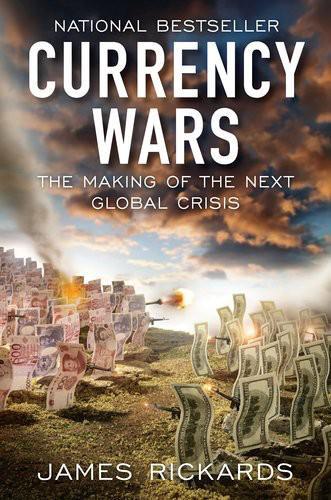
Currency Wars: The Making of the Next Gobal Crisis
by
James Rickards
Published 10 Nov 2011
As those liabilities came due, foreign creditors converted their sterling claims into gold that soon left England headed for the United States or France or some other gold power not yet feeling the full impact of the crisis. With the outflow of gold becoming acute and the pressures of the bank run threatening to destroy major banks in the City of London, England went off the gold standard on September 21, 1931. Almost immediately sterling fell sharply against the dollar and continued dropping, falling 30 percent in a matter of months. Many other countries, including Japan, the Scandinavian nations and members of the British Commonwealth, also left the gold standard and received the short-run benefits of devaluation.
…
Braudel, Fernand. The Structures of Everyday Life: Civilization and Capitalism, 15th–18th Century, Volume 1. New York: Harper and Row, 1979. ———. The Wheels of Commerce: Civilization and Capitalism, 15th–18th Century, Volume 2. New York: Harper and Row, 1979. Brown, Cynthia Stokes. Big History: From the Big Bang to the Present. New York: New Press, 2007. Brown, Stephen R. Merchant Kings: When Companies Ruled the World, 1600–1900. New York: St. Martin’s, 2009. Bruner, Robert F., and Sean D. Carr. The Panic of 1907: Lessons Learned from the Market’s Perfect Storm. Hoboken: Wiley, 2007. Buchanan, Mark. Ubiquity: The Science of History, or Why the World Is Simpler Than We Think.
…
I recalled how my brothers and I used to fight over the rules in Risk as kids and often had to dig the Parker Brothers rulebook out of the game box to settle disputes. Now we had a war game rulebook, but this would go quite differently. I wanted to break as many rules as I could to help the Pentagon understand how capital markets really work in an age of greed, deregulation and bad intent. Wall Street was like the Wild West in the best of times, but with globalization and too-big-to-fail government backing, it was now even more out of control. After a few hours of instruction, orientation and snap training on the groupware, we broke out to our separate capitals to work on move one.
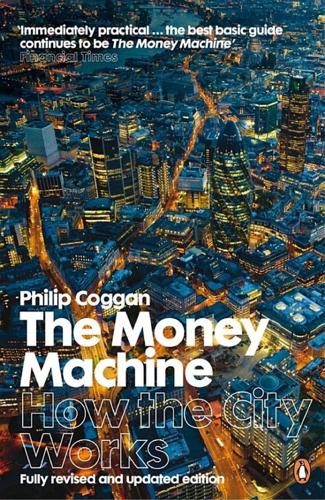
The Money Machine: How the City Works
by
Philip Coggan
Published 1 Jul 2009
Like all areas of public life, it needs criticism to ensure its efficiency. Even those who do not own shares should care about how the City performs. It is one of the UK’s biggest industries and a vital overseas earner in areas such as insurance and fund management. THE CITY First of all, what is the role of the UK financial system, and in particular of the City of London, which is at its heart? Its primary function is to put people who want to lend (invest) in touch with people who want to borrow. A simple example of this role is that of the building societies. They collect the small savings of individuals and lend them to house buyers who want mortgages. Why do the savers not just lend directly to borrowers, without the intervention of financial institutions?
…
The money could be lent (and interest earned) in the knowledge that the day-to-day requirements of depositors could still easily be covered (see Chapter 2). The Italian Influence Among the earliest bankers were goldsmiths and silversmiths from the Lombardy region of Italy who were granted land in London by King Edward I. One of the sites they received – Lombard Street – is at the heart of the modern City of London. Back in Italy, the money lenders had conducted their business from wooden benches in market places. The Italian word for bench, banco, was corrupted by the English into ‘bank’. The Italians were also responsible for introducing the symbols that were synonymous with British money until 1971 – £, s. and d., or lire, solidi and denarii.
…
Partington, Applied Economics in Banking and Finance, 3rd edn (Oxford University Press, 1984) William Clarke, Inside the City, rev. edn (Allen & Unwin, 1983) C. J. J. Clay and B. S. Wheble, Modern Merchant Banking, 2nd edn, rev. by the Hon. L. H. L. Cohen (Woodhead-Faulkner, 1983) Jerry Coakley and Laurence Harris, The City of Capital (Basil Blackwell, 1985) Brinley Davies, Business Finance and the City of London, 2nd edn (Heinemann, 1979) Peter Donaldson, Guide to the British Economy, 4th edn (Penguin, 1976) ——, 10 × Economics (Penguin, 1982) Paul Erdman, Paul Erdman’s Money Guide (Sphere, 1985) Paul Ferris, Gentlemen of Fortune (Weidenfeld & Nicolson, 1984) Frederick G. Fisher III, The Eurodollar Bond Market (Euromoney, 1979) ——, International Bonds (Euromoney, 1981) J.
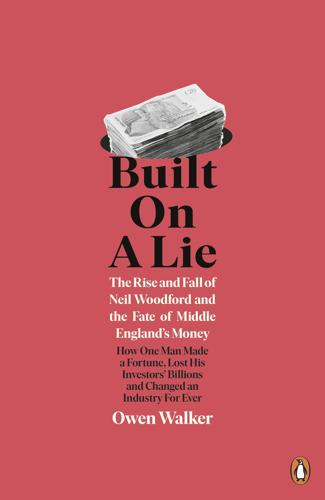
Built on a Lie: The Rise and Fall of Neil Woodford and the Fate of Middle England’s Money
by
Owen Walker
Published 4 Mar 2021
Bell 153, 155 Amvescap 50–51, 52–3, 54, 57, 58, 59–60, 61, 68 Andrew, Duke of York, Prince 50 Anglo-American 51 Anne, Princess 76 Anness, Stephen 61, 79 Arbib, Martyn 32–8, 45–6, 49–53, 64, 142 Arch Cru scandal 102–3, 151, 194 Argos 29 Armour, Mark 79, 87 Ashcroft, Michael 50 AstraZeneca 73, 82, 90, 119, 132, 143 Atom Bank 162, 191 Aubrey, Alan 146–7 Audit Commission 4 authorized corporate director (ACD) 100–103, 108–9, 141, 151, 163, 165, 174, 185, 186, 189–90, 195, 197, 204, 208, 209, 210–11 see also Capita Asset Services and Link Fund Solutions Autolus 163 Aviva 147 Babcock 131 BAE Systems 73, 83, 90 Bailey, Andrew 140–41, 165–6, 183, 185–7, 195, 202–3, 204, 205, 208, 210, 214 Baker-Bates, Rodney 81 Baker, Steve 186 Banghard, Lacey 136 Bank of England 28, 176, 185, 204, 205, 208 Barclays Bank 63, 65 Barnett, Mark 61, 79, 90, 97–8, 146, 147, 153, 155, 161, 167 Barrett, Claer 147 BAT Industries 26, 28, 29, 82 BBC 86, 106, 131 BCA Marketplace 188 Beioley, Kate 147 Belasko 165 Bell, Andy 153 see also A. J. Bell Bell, Sir John 133 Benevolent AI 132, 150, 153, 156, 164–5, 166, 167, 194, 196, 218 best-buy lists 16, 159–60, 161, 170, 173, 177, 181, 192, 202, 213–14 Bestinvest 90, 161, 214 Big Bang deregulation, City of London (1986) 27 Bilton, Anton 8, 151, 165, 188 biomass 75, 80, 84 biotech industry 68–73, 121–3, 131–2, 135, 144, 154, 184, 224 see also individual company names Black, Conrad 47 Black Monday market crash (1987) 30, 36 BlackRock 190, 198, 203, 206 Block, Carson 194 Bloomberg 131 Bolton, Anthony 41, 68 Brady, Charles 50, 52, 53, 54–5, 56, 58, 60 Brennan, David 73 Brewin Dolphin 90 Brexit 2, 3, 6, 136–7, 163–4, 175, 206, 209 British American Tobacco 26, 44, 82, 119, 136 British Biotech 68–9 British Gas 27, 28, 81 British Telecom 27, 83, 119, 132 Broadgate Mainland 97, 110, 111 Brown, Gordon 17 Brown, Scott 130 Brunt, Peter 172–3 BTG Management Services 131 Buffett, Warren 23, 111, 131, 216 Burford Capital 178, 194 Business, Innovation and Skills Select Committee, Parliament 77 Cable, Vince 14, 77, 181 Cameron, David 14, 17, 133 Capita 2, 90, 102, 119, 122, 144 Capita Asset Services 102–3, 108–9, 141, 148, 151 see also Link Fund Solutions Capital Economics 137 Carney, Mark 176, 185, 187–8, 205, 208, 210 Carrick Therapeutics 162 Causer, Paul 60 Cell Medica 162 Cenkos 71, 122 Centrica 81 CGNU 53 Channel Islands Stock Exchange 151 Charles Stanley Direct 155, 214 Chase Bank 53 Chatfeild-Roberts, John 112–13, 145–6 Chelsea Financial Services 90 China Construction Bank 206 Chu, Steven 84 Circassia Pharmaceuticals 130, 135–6, 178, 196 Citicorp 53 Citizens and Southern Bank 50 City of London 7, 22, 23, 27, 31, 32, 35, 37, 48, 57, 70, 71, 110, 113, 121–2, 138, 185, 203, 205, 224 Big Bang (1986) 27–9 Black Monday (1987) 30, 36 electronic trading introduced 27 Financial Services Act (1986) 28 Citywire 98, 144–5, 166, 224 Clarke, Ken 17 Clarke, Simon 186 coalition government, UK (2005–10) 77, 81 Cofunds 113–14 Conservative Party 22, 25, 26, 28, 29, 45, 50, 81, 180, 181, 186, 205, 206, 212 Cornick, Roger 34, 38, 39, 44, 50, 51 Crazy Bear, Stadhampton 116, 156 Croft, Andrew 215 Cunningham, Raymond 59 Daily Mirror 24 Daily Telegraph 18, 94, 110, 111 Dale, Simon 105–6, 108, 113, 121 Dampier, Mark 212 dotcom bubble, keeps faith with Woodford during 52 Equity Income and Income Focus removal from Hargreaves Lansdowne Wealth 150 list and 177 Hargreaves Lansdowne addition of Woodford IM to Wealth 150 list, endorsement of 115 Hargreaves Lansdowne discounted deal with Woodford IM and 114 Hargreaves Lansdowne, joins 15–16 Invesco Perpetual and 57, 68, 90 press investigate role in Woodford downfall 180–81 reservations about Woodford’s investment performance while still recommending funds 159–61, 164, 170–71, 202, 213, 215 Sanlam report and 83 sells shares in Hargreaves Lansdowne in days leading up to Equity Income suspension 171, 180–81, 202, 213 Treasury Select Committee investigation of Hargreaves Lansdowne and 213 visits headquarters of Woodford IM 124–5 wealth 180 ‘Woodford groupie’ 42 Darden, Thomas 127–8 Davies, Gareth 133 Davies, Peter 146 Day, Philip 155 Deer, Will 2, 5, 7, 8, 94, 105–6, 107, 108, 121, 170, 189 Deloitte 98 Department for Business, Energy and Industrial Strategy 133 Diageo 136 disposition effect 150 Dominion 22–3, 24, 26 dotcom bubble/crash (1997–2003) 51–2, 56, 64, 74, 77, 136, 145, 216, 220 Drax Group 90 Dubens, Peter 92, 93 Duff & Phelps 126, 140–41, 163, 194 Duffield, John 58 Duke of York (Prince Andrew) 50 EADS 73 Eagle Star 26, 28, 205 Eagle Star Asset Management 28–31, 205 Edinburgh Investment Trust 83, 90 Elizabeth II, Queen 49, 76, 82 Elphicke, Charlie 187 Emba 125 Energy Catalyzer (E-Cat) 128 Ennis Lad (horse) 148 Equity & Law 35 Equity Income fund see Woodford IM e-Therapeutics 72, 120 euro 80 European Medicines Evaluation Agency 69 European Union 3, 129, 136–7, 175, 206 Eve Sleep 123, 178 Evofem 123–4, 190 Farrow, Paul 94, 110, 111 Ferguson, Iain 155 Fidelity Investments 41, 68, 97, 106–8 financial advisers, independent see independent financial advisers (IFAs) Financial Conduct Authority (FCA) 7, 88–9, 93, 94–5, 197, 198, 202–3 Arch Cru affair and 102–3 Bailey and see Bailey, Andrew belated attempts at showing control of Woodford situation 204–5 best-buy lists and 187, 214 Brexit referendum and 209–10 Capita, imposes as ACD on Woodford IM 208, 210–11 central database to monitor when funds suspend trading, lack of 209 Equity Income fund breach of trash ratio limit on unquoted holdings and 149–52, 209, 210, 211 Equity Income fund International Stock Exchange (Guernsey) listings and 151, 165–7, 171, 180, 186, 209, 210, 211 Equity Income fund suspension, investigation into 185–6, 187, 195, 204–5, 208, 209, 210–11 Hamilton and Smith departures from Woodford IM and 127, 209 Hargreaves Lansdowne best-buy lists, investigates 187 Invesco Perpetual, investigation into 88–9, 93, 112, 208 Link, monthly discussions with over liquidity in Equity Income fund 152, 163, 165–7 Link, outsources regulatory oversight to 208–9 Link, probe into role in Woodford downfall 195 London Capital & Finance collapse and 185, 208 Patient Capital equity swaps with Equity Income and 163 Provident Financial investigation 143 report into the series of suspensions of UK property funds immediately following the Brexit referendum 209–10 Treasury Select Committee investigates role in Woodford downfall 183, 185–7, 195, 209, 210, 213 Woodford IM collapse, overview of role in 208–12 Woodford IM launch and 94–6, 98, 99–103, 108–9, 112, 127, 129 Woodford IM valuation process and 140–41 financial crisis (2008) 4, 12, 63–4, 74, 77, 79, 102, 136, 175, 216, 220 Financial Services Act (1986) 28 Financial Services Authority (FSA) 89 Financial Times 7, 23, 34, 47, 68, 69, 72, 77, 86, 99, 110, 117, 130, 147, 158, 163, 164, 173–4, 177, 181, 192, 193, 196, 200, 202, 203, 207, 209, 214 First Allianz 26 Flanagan, Martin 61, 78, 87 Food and Drug Administration, US 143 Foreign & Colonial 22, 53 4D Pharma 144 Franklin Templeton 61 Fraser-Jones, Mitchell 94 FTI Consulting 190 FTSE All-Share Index 56, 74, 131, 139, 140l, 153, 168 100 13, 15, 30, 36, 63, 73, 81, 119, 134, 143, 177, 1987, 213 250 80, 162, 190, 196 fund supermarkets (investment platforms) 9, 14–15, 16, 107–8, 113–14, 147, 153, 159, 161, 177, 179, 181, 183, 212 see also individual fund supermarket names Fundscape 214 FundsNetwork 107 Gardhouse, Lee 113, 160, 170, 171, 212, 213 Genomics and Mission Therapeutics 150 G4S 90 Gigaclear 125, 153 GlaxoSmithKline 21, 47–8, 82, 90, 119, 132 Glaxo Wellcome 47 Glitnir 3–4 Goldman Sachs 68 Grant Thornton 179 Green, Paul 94 Griffiths, George 19 Grote, Daniel 166, 224 Guernsey stock exchange see International Stock Exchange (Guernsey) Halo-Source 144 Hamilton, Nick 61, 93–4, 95, 96, 98, 101, 103, 117, 125–6, 127, 134, 209 Hammond, Philip 17, 134 Hargreaves Lansdown 9, 151, 153, 204 best-buy lists 16, 159–60, 161, 170, 173, 177–8, 179, 181, 183, 187, 192, 202, 213–14 Dampier and see Dampier, Mark discount negotiated with Woodford IM for clients of 114, 182–3, 192, 212, 214 dotcom bubble, keeps faith with Woodford during 52 Equity Income fund, customers trapped in 186, 191–2, 202, 212–14 FCA investigate 183, 187, 204, 214 Income Focus fund, drops from multi-manager range 201–2 Invesco Perpetual and 57, 68, 83, 88, 90 Newman reaction to questions raised by representatives of 148, 170 origins of 15, 213 platform fees, waives 179 press investigate failings of 180–81 reservations about Woodford’s performance within while still recommending investment 159–61, 163, 166, 170–71, 173, 180–81, 213 Sanlam report and 83 share price hit by suspension of Equity Income 177–8, 180, 202 shares sold by Dampier and Gardhouse in days leading up to Equity Income suspension 171, 180–81, 202, 213 Treasury Select Committee investigates 182–3, 186, 187, 191–2, 213 unquoted holdings in Woodford funds, concerns over 159, 160–61, 163, 166, 170–71 Wealth 50 best-buy list, Equity Income and Income Focus removed from 177 Wealth 150 list, adds Equity Income fund to 114–15 Wealth Shortlist 214 Woodford IM, early backing for 107, 113, 114–15, 120, 124–5, 134 Woodford IM, unhealthily intertwined with 159–61, 212 Hargreaves, Peter 15, 212 Harris, Steven 130, 196 Heartwood Wealth Managers 90 hedge funds 56, 59, 92, 143, 146, 182, 185, 188, 194 Helphire 81 Henderson 97 Heritable 3–4 Heseltine, Michael 50 Heywood, Sir Jeremy 133 High Pay Centre 139 Hill, Chris 181, 182–3, 191–2 Hirsch, Glyn 165, 188 Hiscock, Fred 10–11, 12, 13, 14, 15, 17, 220–221 Hiscox 106 Hobbs, David 114 Hodges, Paul 43 Hogwood, Nick 190 Horizon Discovery 188 Host Capital 101 House of Lords Science and Technology Select Committee 69, 141 HSBC 63 Hymans Robertson 106 IHS Markit 194 Immunocore 166, 184, 206 Imperial College London 70, 130 Imperial Innovations 70, 119, 133, 135, 144 Imperial Tobacco 82–3, 90, 119, 136, 143, 167 Income Focus fund see Woodford IM income funds 36–7, 39–40, 60, 63 see also individual income fund names Independent/Independent on Sunday 47, 83, 124–5 independent financial advisers (IFAs) 10, 15, 16, 197–8 Arch Cru scandal and 102 dotcom bubble, lose faith with Woodford during 51, 52 Equity Income fund launch and 120 Invesco Perpetual and 54, 56–7, 60, 67, 74, 78, 79, 82, 83, 90, 97–8, 216 Perpetual and 34, 35, 39, 42–3, 44–5 Sanlam report and 82, 83 saver and, relationship between 9, 11–13 star fund managers and 42, 54–5 Woodford downfall, role in 180–81, 215–16 Woodford IM investment team, question due diligence of 135 Woodford IM launch and 96, 101, 104, 105, 107, 110, 119 Woodford’s ardent following of 43, 74, 216 see also Dampier, Mark Industrial Heat 127–8, 156, 165, 167, 194–5, 204 in-specie transfer 174 institutional investors 4, 76, 106, 147, 172, 219 Interactive Investor 192 International Stock Exchange (Guernsey) 6, 151, 165–7, 171, 180, 186, 188, 194, 209, 210, 211, 218, 224 cancels listings of Woodford IM holdings 194 FCA and Woodford IM listings on 151, 165–7, 171, 180, 186, 209, 210, 211 Link oversight of Woodford IM listings on 151, 165–7, 211 listings of previously unquoted Woodford IM holdings 6, 151, 165–7, 171, 180, 186 suspends listings of Woodford IM holdings 167, 171, 180, 186, 188, 194, 209, 211 Invesco 51, 54–5, 56, 58–60, 62–3, 67 Invesco Perpetual 4–5, 13, 54–91, 100, 116, 119, 120, 123, 124, 131, 140, 150–51, 178, 205, 214, 215, 216, 217, 219 American management, Woodford clashes with 78–80 birth of/Invesco Perpetual merger 54–8 Financial Conduct Authority investigates rule violations at 88–90, 93, 94, 112, 208 financial crisis and 63–4 Kent County Council investment in 4–5, 8, 106 Leadsom at 65–6, 78 Newman at 66–8, 79, 80, 85–7 private or unquoted companies, Woodford develops appetite for stakes in 71–3, 83–5, 87, 94, 96, 126 Sanlam report and 82–3 SJP and 83–4, 85–6, 88, 90–91, 103–5, 111–12, 115, 214–15 Woodford departs 13, 78, 86–91, 92, 93, 94, 97–8, 99, 101, 103–4, 105, 106, 107, 108, 109, 110, 111–13, 115, 142, 191 Woodford interest in small, science-based companies 68–71 Woodford IM launch and 112–13 Woodford private interventions and public outbursts while at 73–4, 80–82 Woodford team at 61–3, 65–7, 78–80, 94, 146, 153, 161, 189 Investment Association 153, 177 investment sector 16–17, 55, 114–15, 176, 224 Investors Chronicle 33 IP Group 70, 133, 146–7 ISAs 40, 49, 51, 51, 108, 115 Jenkin, Bernard 65 Jobs, Laurene Powell 128, 204 JPMorgan 53, 115 Jupiter 57, 58, 97, 112–13, 145, 146, 147 Kay, John 77 Kay Review 77–8, 81 Kent County Council 1–9, 86, 106, 169, 173–4, 182, 183–4, 187, 189, 211–12 Kier 174–5, 178, 179 King, Ian 73–4 Labour Party 24, 26, 49, 81, 202 Ladbrokes 33 Lamacraft, Paul 94, 116, 123 Lamacraft, Ross 94, 184 Lamacraft, Stephen 94, 98, 116, 123 Lamb, David 104, 142–3, 173, 178 Lamont, Norman 17 Landsbanki 3–4 Langan’s Brasserie, Mayfair 115 Lansdowne Partners 146, 147 Lansdown, Stephen 15, 151 Lawson, Nigel 17, 26, 28, 40 Leadsom, Andrea 65–6, 78 Legal & General 113–14 Legg Mason’s Capital Market Value Trust 41 Lehman Brothers 64 Le Poidevin, Fiona 180 Link Fund Solutions 152, 156, 192 Equity Income and Patient Capital asset swap deals and 162–3, 211 Equity Income investors, fees charged to 179 Equity Income, plans to replace Woodford as manager of 189–90 Equity Income, suspends trading in 8–9, 174–5, 176–7, 182, 184, 188, 194, 195, 196–7, 211, 212 Equity Income, winds down and lines up PJT and BlackRock to sell assets 197–9, 200, 201, 203, 206–7, 218–19 FCA investigation into suspension of Equity Income and 185, 186, 187, 195, 204–5, 208, 209, 210–11 FCA monthly discussions with over liquidity of Equity Income fund 152, 165–7 Income Focus fund, hands over to Standard Life Aberdeen 205 Income Focus fund, suspends trading in 201–2 Industrial Heat, valuation of 194–5, 204 International Stock Exchange (Guernsey), Woodford IM investment listings and 151, 165–7, 211 Patient Capital board orders to revalue unquoted assets 184, 194–5, 204 Project Oak (plan to package up unquoted Equity Income holdings and sell them) 185, 195 see also Capita Lloyds Bank 63 local authority pension funds 1–9, 86, 106, 169, 173–4, 182, 183–4, 187, 189, 211–12 London Business School 25 London Capital & Finance 185, 208 Lynch, Peter 41 Mackie, Terry 202 Magellan fund 41 Maidenhead Grammar School 19–21, 25, 219 Maidenhead RFC 25 Major, John 17 Makin, Louise 130–31 M&G 49, 52, 100, 153 Marimastat 69 market timing scandal 59–60, 90 Maxwell, Robert 24–5, 55 May, Theresa 65, 134 McDonnell, John 202–3 McGlashan, Scott 35, 57 Medoff, Marshall 84–5 Mercer 106 Mercury Asset Management 61 Merrill Lynch 53 Midl, Karl 174, 175, 189, 190, 197, 198 Miliband, Ed 81–2 Millar, Andrew 68–9 Miller, Bill 41 Mirror Group Newspapers 24, 55 Mishcon de Reya 93 mis-selling scandals 15 Morgan, John Pierpont 115 see also JPMorgan Morgan, Nicky 180, 181, 182–3, 186–7, 191, 192 Morningstar 88, 172–3 Mullen, Mark 191 Mustoe, Nick 78–9, 87 Myners, Paul 138–9 Neptune 97 New Labour 49 Newman, Craig 66–7, 79, 80, 85–7, 93, 94, 95, 96, 98–9, 106, 113, 114, 116, 117, 121, 126–7, 134, 137, 138, 159, 170, 189, 211, 217 bonuses, decision to scrap within Woodford IM and 138, 139 character 66–7, 126, 148 childhood 66–7 comeback plans 206, 219 direct relationship with investors in Equity Income fund, envisages 147–8 Invesco Perpetual career 66–7, 79, 80, 85–7 money, obsession with 66–7, 139, 182 Oakley and 93 pay/dividend payments 139, 142, 154–5, 168, 193–4, 201, 207–8, 217 property projects 154–5, 193 Rudd and 181–2 sales staff bonuses and 121 Smith/Hamilton warnings over Woodford investments, reaction to 125, 126, 127 suspension of Equity Income fund and 195, 196, 197 ‘violent transparency’, commitment to 119, 150, 152, 182 winding down of Equity Income fund and 197, 198, 200, 205 Woodford departure from Invesco Perpetual and 79, 80, 85–7 Woodford, ingratiates himself with 67–8 Woodford IM origins/launch and 93, 94, 95, 96, 97, 98, 99, 101, 103, 104, 106, 108–9, 113, 114, 116, 117–18, 119 Woodford Patient Capital Trust and 129–30 NewRiver Reit 163, 167, 178, 188 New Star 58 Newton 57 NEX exchange 164 Nexeon 130–31 N.
…
I have also relied on several books to provide historic context for earlier periods of Woodford’s career. David Kynaston’s comprehensive City of London series is the first port of call for anyone interested in the Square Mile in the 1980s. Bill Kay’s The Big Bang is an accessible contemporaneous account of the period. I am especially grateful to Bill for reading early chapters and being generous with his feedback. Iain Martin’s Crash Bang Wallop offers a useful thirty-year perspective on the seismic changes brought on by the Big Bang. Science, the State, and the City, by former FT editor Geoffrey Owen and Michael Hopkins, is an authoritative study of the problematic marriage between Britain’s investment sector and its biotech industry.
…
Bell Bell, Sir John 133 Benevolent AI 132, 150, 153, 156, 164–5, 166, 167, 194, 196, 218 best-buy lists 16, 159–60, 161, 170, 173, 177, 181, 192, 202, 213–14 Bestinvest 90, 161, 214 Big Bang deregulation, City of London (1986) 27 Bilton, Anton 8, 151, 165, 188 biomass 75, 80, 84 biotech industry 68–73, 121–3, 131–2, 135, 144, 154, 184, 224 see also individual company names Black, Conrad 47 Black Monday market crash (1987) 30, 36 BlackRock 190, 198, 203, 206 Block, Carson 194 Bloomberg 131 Bolton, Anthony 41, 68 Brady, Charles 50, 52, 53, 54–5, 56, 58, 60 Brennan, David 73 Brewin Dolphin 90 Brexit 2, 3, 6, 136–7, 163–4, 175, 206, 209 British American Tobacco 26, 44, 82, 119, 136 British Biotech 68–9 British Gas 27, 28, 81 British Telecom 27, 83, 119, 132 Broadgate Mainland 97, 110, 111 Brown, Gordon 17 Brown, Scott 130 Brunt, Peter 172–3 BTG Management Services 131 Buffett, Warren 23, 111, 131, 216 Burford Capital 178, 194 Business, Innovation and Skills Select Committee, Parliament 77 Cable, Vince 14, 77, 181 Cameron, David 14, 17, 133 Capita 2, 90, 102, 119, 122, 144 Capita Asset Services 102–3, 108–9, 141, 148, 151 see also Link Fund Solutions Capital Economics 137 Carney, Mark 176, 185, 187–8, 205, 208, 210 Carrick Therapeutics 162 Causer, Paul 60 Cell Medica 162 Cenkos 71, 122 Centrica 81 CGNU 53 Channel Islands Stock Exchange 151 Charles Stanley Direct 155, 214 Chase Bank 53 Chatfeild-Roberts, John 112–13, 145–6 Chelsea Financial Services 90 China Construction Bank 206 Chu, Steven 84 Circassia Pharmaceuticals 130, 135–6, 178, 196 Citicorp 53 Citizens and Southern Bank 50 City of London 7, 22, 23, 27, 31, 32, 35, 37, 48, 57, 70, 71, 110, 113, 121–2, 138, 185, 203, 205, 224 Big Bang (1986) 27–9 Black Monday (1987) 30, 36 electronic trading introduced 27 Financial Services Act (1986) 28 Citywire 98, 144–5, 166, 224 Clarke, Ken 17 Clarke, Simon 186 coalition government, UK (2005–10) 77, 81 Cofunds 113–14 Conservative Party 22, 25, 26, 28, 29, 45, 50, 81, 180, 181, 186, 205, 206, 212 Cornick, Roger 34, 38, 39, 44, 50, 51 Crazy Bear, Stadhampton 116, 156 Croft, Andrew 215 Cunningham, Raymond 59 Daily Mirror 24 Daily Telegraph 18, 94, 110, 111 Dale, Simon 105–6, 108, 113, 121 Dampier, Mark 212 dotcom bubble, keeps faith with Woodford during 52 Equity Income and Income Focus removal from Hargreaves Lansdowne Wealth 150 list and 177 Hargreaves Lansdowne addition of Woodford IM to Wealth 150 list, endorsement of 115 Hargreaves Lansdowne discounted deal with Woodford IM and 114 Hargreaves Lansdowne, joins 15–16 Invesco Perpetual and 57, 68, 90 press investigate role in Woodford downfall 180–81 reservations about Woodford’s investment performance while still recommending funds 159–61, 164, 170–71, 202, 213, 215 Sanlam report and 83 sells shares in Hargreaves Lansdowne in days leading up to Equity Income suspension 171, 180–81, 202, 213 Treasury Select Committee investigation of Hargreaves Lansdowne and 213 visits headquarters of Woodford IM 124–5 wealth 180 ‘Woodford groupie’ 42 Darden, Thomas 127–8 Davies, Gareth 133 Davies, Peter 146 Day, Philip 155 Deer, Will 2, 5, 7, 8, 94, 105–6, 107, 108, 121, 170, 189 Deloitte 98 Department for Business, Energy and Industrial Strategy 133 Diageo 136 disposition effect 150 Dominion 22–3, 24, 26 dotcom bubble/crash (1997–2003) 51–2, 56, 64, 74, 77, 136, 145, 216, 220 Drax Group 90 Dubens, Peter 92, 93 Duff & Phelps 126, 140–41, 163, 194 Duffield, John 58 Duke of York (Prince Andrew) 50 EADS 73 Eagle Star 26, 28, 205 Eagle Star Asset Management 28–31, 205 Edinburgh Investment Trust 83, 90 Elizabeth II, Queen 49, 76, 82 Elphicke, Charlie 187 Emba 125 Energy Catalyzer (E-Cat) 128 Ennis Lad (horse) 148 Equity & Law 35 Equity Income fund see Woodford IM e-Therapeutics 72, 120 euro 80 European Medicines Evaluation Agency 69 European Union 3, 129, 136–7, 175, 206 Eve Sleep 123, 178 Evofem 123–4, 190 Farrow, Paul 94, 110, 111 Ferguson, Iain 155 Fidelity Investments 41, 68, 97, 106–8 financial advisers, independent see independent financial advisers (IFAs) Financial Conduct Authority (FCA) 7, 88–9, 93, 94–5, 197, 198, 202–3 Arch Cru affair and 102–3 Bailey and see Bailey, Andrew belated attempts at showing control of Woodford situation 204–5 best-buy lists and 187, 214 Brexit referendum and 209–10 Capita, imposes as ACD on Woodford IM 208, 210–11 central database to monitor when funds suspend trading, lack of 209 Equity Income fund breach of trash ratio limit on unquoted holdings and 149–52, 209, 210, 211 Equity Income fund International Stock Exchange (Guernsey) listings and 151, 165–7, 171, 180, 186, 209, 210, 211 Equity Income fund suspension, investigation into 185–6, 187, 195, 204–5, 208, 209, 210–11 Hamilton and Smith departures from Woodford IM and 127, 209 Hargreaves Lansdowne best-buy lists, investigates 187 Invesco Perpetual, investigation into 88–9, 93, 112, 208 Link, monthly discussions with over liquidity in Equity Income fund 152, 163, 165–7 Link, outsources regulatory oversight to 208–9 Link, probe into role in Woodford downfall 195 London Capital & Finance collapse and 185, 208 Patient Capital equity swaps with Equity Income and 163 Provident Financial investigation 143 report into the series of suspensions of UK property funds immediately following the Brexit referendum 209–10 Treasury Select Committee investigates role in Woodford downfall 183, 185–7, 195, 209, 210, 213 Woodford IM collapse, overview of role in 208–12 Woodford IM launch and 94–6, 98, 99–103, 108–9, 112, 127, 129 Woodford IM valuation process and 140–41 financial crisis (2008) 4, 12, 63–4, 74, 77, 79, 102, 136, 175, 216, 220 Financial Services Act (1986) 28 Financial Services Authority (FSA) 89 Financial Times 7, 23, 34, 47, 68, 69, 72, 77, 86, 99, 110, 117, 130, 147, 158, 163, 164, 173–4, 177, 181, 192, 193, 196, 200, 202, 203, 207, 209, 214 First Allianz 26 Flanagan, Martin 61, 78, 87 Food and Drug Administration, US 143 Foreign & Colonial 22, 53 4D Pharma 144 Franklin Templeton 61 Fraser-Jones, Mitchell 94 FTI Consulting 190 FTSE All-Share Index 56, 74, 131, 139, 140l, 153, 168 100 13, 15, 30, 36, 63, 73, 81, 119, 134, 143, 177, 1987, 213 250 80, 162, 190, 196 fund supermarkets (investment platforms) 9, 14–15, 16, 107–8, 113–14, 147, 153, 159, 161, 177, 179, 181, 183, 212 see also individual fund supermarket names Fundscape 214 FundsNetwork 107 Gardhouse, Lee 113, 160, 170, 171, 212, 213 Genomics and Mission Therapeutics 150 G4S 90 Gigaclear 125, 153 GlaxoSmithKline 21, 47–8, 82, 90, 119, 132 Glaxo Wellcome 47 Glitnir 3–4 Goldman Sachs 68 Grant Thornton 179 Green, Paul 94 Griffiths, George 19 Grote, Daniel 166, 224 Guernsey stock exchange see International Stock Exchange (Guernsey) Halo-Source 144 Hamilton, Nick 61, 93–4, 95, 96, 98, 101, 103, 117, 125–6, 127, 134, 209 Hammond, Philip 17, 134 Hargreaves Lansdown 9, 151, 153, 204 best-buy lists 16, 159–60, 161, 170, 173, 177–8, 179, 181, 183, 187, 192, 202, 213–14 Dampier and see Dampier, Mark discount negotiated with Woodford IM for clients of 114, 182–3, 192, 212, 214 dotcom bubble, keeps faith with Woodford during 52 Equity Income fund, customers trapped in 186, 191–2, 202, 212–14 FCA investigate 183, 187, 204, 214 Income Focus fund, drops from multi-manager range 201–2 Invesco Perpetual and 57, 68, 83, 88, 90 Newman reaction to questions raised by representatives of 148, 170 origins of 15, 213 platform fees, waives 179 press investigate failings of 180–81 reservations about Woodford’s performance within while still recommending investment 159–61, 163, 166, 170–71, 173, 180–81, 213 Sanlam report and 83 share price hit by suspension of Equity Income 177–8, 180, 202 shares sold by Dampier and Gardhouse in days leading up to Equity Income suspension 171, 180–81, 202, 213 Treasury Select Committee investigates 182–3, 186, 187, 191–2, 213 unquoted holdings in Woodford funds, concerns over 159, 160–61, 163, 166, 170–71 Wealth 50 best-buy list, Equity Income and Income Focus removed from 177 Wealth 150 list, adds Equity Income fund to 114–15 Wealth Shortlist 214 Woodford IM, early backing for 107, 113, 114–15, 120, 124–5, 134 Woodford IM, unhealthily intertwined with 159–61, 212 Hargreaves, Peter 15, 212 Harris, Steven 130, 196 Heartwood Wealth Managers 90 hedge funds 56, 59, 92, 143, 146, 182, 185, 188, 194 Helphire 81 Henderson 97 Heritable 3–4 Heseltine, Michael 50 Heywood, Sir Jeremy 133 High Pay Centre 139 Hill, Chris 181, 182–3, 191–2 Hirsch, Glyn 165, 188 Hiscock, Fred 10–11, 12, 13, 14, 15, 17, 220–221 Hiscox 106 Hobbs, David 114 Hodges, Paul 43 Hogwood, Nick 190 Horizon Discovery 188 Host Capital 101 House of Lords Science and Technology Select Committee 69, 141 HSBC 63 Hymans Robertson 106 IHS Markit 194 Immunocore 166, 184, 206 Imperial College London 70, 130 Imperial Innovations 70, 119, 133, 135, 144 Imperial Tobacco 82–3, 90, 119, 136, 143, 167 Income Focus fund see Woodford IM income funds 36–7, 39–40, 60, 63 see also individual income fund names Independent/Independent on Sunday 47, 83, 124–5 independent financial advisers (IFAs) 10, 15, 16, 197–8 Arch Cru scandal and 102 dotcom bubble, lose faith with Woodford during 51, 52 Equity Income fund launch and 120 Invesco Perpetual and 54, 56–7, 60, 67, 74, 78, 79, 82, 83, 90, 97–8, 216 Perpetual and 34, 35, 39, 42–3, 44–5 Sanlam report and 82, 83 saver and, relationship between 9, 11–13 star fund managers and 42, 54–5 Woodford downfall, role in 180–81, 215–16 Woodford IM investment team, question due diligence of 135 Woodford IM launch and 96, 101, 104, 105, 107, 110, 119 Woodford’s ardent following of 43, 74, 216 see also Dampier, Mark Industrial Heat 127–8, 156, 165, 167, 194–5, 204 in-specie transfer 174 institutional investors 4, 76, 106, 147, 172, 219 Interactive Investor 192 International Stock Exchange (Guernsey) 6, 151, 165–7, 171, 180, 186, 188, 194, 209, 210, 211, 218, 224 cancels listings of Woodford IM holdings 194 FCA and Woodford IM listings on 151, 165–7, 171, 180, 186, 209, 210, 211 Link oversight of Woodford IM listings on 151, 165–7, 211 listings of previously unquoted Woodford IM holdings 6, 151, 165–7, 171, 180, 186 suspends listings of Woodford IM holdings 167, 171, 180, 186, 188, 194, 209, 211 Invesco 51, 54–5, 56, 58–60, 62–3, 67 Invesco Perpetual 4–5, 13, 54–91, 100, 116, 119, 120, 123, 124, 131, 140, 150–51, 178, 205, 214, 215, 216, 217, 219 American management, Woodford clashes with 78–80 birth of/Invesco Perpetual merger 54–8 Financial Conduct Authority investigates rule violations at 88–90, 93, 94, 112, 208 financial crisis and 63–4 Kent County Council investment in 4–5, 8, 106 Leadsom at 65–6, 78 Newman at 66–8, 79, 80, 85–7 private or unquoted companies, Woodford develops appetite for stakes in 71–3, 83–5, 87, 94, 96, 126 Sanlam report and 82–3 SJP and 83–4, 85–6, 88, 90–91, 103–5, 111–12, 115, 214–15 Woodford departs 13, 78, 86–91, 92, 93, 94, 97–8, 99, 101, 103–4, 105, 106, 107, 108, 109, 110, 111–13, 115, 142, 191 Woodford interest in small, science-based companies 68–71 Woodford IM launch and 112–13 Woodford private interventions and public outbursts while at 73–4, 80–82 Woodford team at 61–3, 65–7, 78–80, 94, 146, 153, 161, 189 Investment Association 153, 177 investment sector 16–17, 55, 114–15, 176, 224 Investors Chronicle 33 IP Group 70, 133, 146–7 ISAs 40, 49, 51, 51, 108, 115 Jenkin, Bernard 65 Jobs, Laurene Powell 128, 204 JPMorgan 53, 115 Jupiter 57, 58, 97, 112–13, 145, 146, 147 Kay, John 77 Kay Review 77–8, 81 Kent County Council 1–9, 86, 106, 169, 173–4, 182, 183–4, 187, 189, 211–12 Kier 174–5, 178, 179 King, Ian 73–4 Labour Party 24, 26, 49, 81, 202 Ladbrokes 33 Lamacraft, Paul 94, 116, 123 Lamacraft, Ross 94, 184 Lamacraft, Stephen 94, 98, 116, 123 Lamb, David 104, 142–3, 173, 178 Lamont, Norman 17 Landsbanki 3–4 Langan’s Brasserie, Mayfair 115 Lansdowne Partners 146, 147 Lansdown, Stephen 15, 151 Lawson, Nigel 17, 26, 28, 40 Leadsom, Andrea 65–6, 78 Legal & General 113–14 Legg Mason’s Capital Market Value Trust 41 Lehman Brothers 64 Le Poidevin, Fiona 180 Link Fund Solutions 152, 156, 192 Equity Income and Patient Capital asset swap deals and 162–3, 211 Equity Income investors, fees charged to 179 Equity Income, plans to replace Woodford as manager of 189–90 Equity Income, suspends trading in 8–9, 174–5, 176–7, 182, 184, 188, 194, 195, 196–7, 211, 212 Equity Income, winds down and lines up PJT and BlackRock to sell assets 197–9, 200, 201, 203, 206–7, 218–19 FCA investigation into suspension of Equity Income and 185, 186, 187, 195, 204–5, 208, 209, 210–11 FCA monthly discussions with over liquidity of Equity Income fund 152, 165–7 Income Focus fund, hands over to Standard Life Aberdeen 205 Income Focus fund, suspends trading in 201–2 Industrial Heat, valuation of 194–5, 204 International Stock Exchange (Guernsey), Woodford IM investment listings and 151, 165–7, 211 Patient Capital board orders to revalue unquoted assets 184, 194–5, 204 Project Oak (plan to package up unquoted Equity Income holdings and sell them) 185, 195 see also Capita Lloyds Bank 63 local authority pension funds 1–9, 86, 106, 169, 173–4, 182, 183–4, 187, 189, 211–12 London Business School 25 London Capital & Finance 185, 208 Lynch, Peter 41 Mackie, Terry 202 Magellan fund 41 Maidenhead Grammar School 19–21, 25, 219 Maidenhead RFC 25 Major, John 17 Makin, Louise 130–31 M&G 49, 52, 100, 153 Marimastat 69 market timing scandal 59–60, 90 Maxwell, Robert 24–5, 55 May, Theresa 65, 134 McDonnell, John 202–3 McGlashan, Scott 35, 57 Medoff, Marshall 84–5 Mercer 106 Mercury Asset Management 61 Merrill Lynch 53 Midl, Karl 174, 175, 189, 190, 197, 198 Miliband, Ed 81–2 Millar, Andrew 68–9 Miller, Bill 41 Mirror Group Newspapers 24, 55 Mishcon de Reya 93 mis-selling scandals 15 Morgan, John Pierpont 115 see also JPMorgan Morgan, Nicky 180, 181, 182–3, 186–7, 191, 192 Morningstar 88, 172–3 Mullen, Mark 191 Mustoe, Nick 78–9, 87 Myners, Paul 138–9 Neptune 97 New Labour 49 Newman, Craig 66–7, 79, 80, 85–7, 93, 94, 95, 96, 98–9, 106, 113, 114, 116, 117, 121, 126–7, 134, 137, 138, 159, 170, 189, 211, 217 bonuses, decision to scrap within Woodford IM and 138, 139 character 66–7, 126, 148 childhood 66–7 comeback plans 206, 219 direct relationship with investors in Equity Income fund, envisages 147–8 Invesco Perpetual career 66–7, 79, 80, 85–7 money, obsession with 66–7, 139, 182 Oakley and 93 pay/dividend payments 139, 142, 154–5, 168, 193–4, 201, 207–8, 217 property projects 154–5, 193 Rudd and 181–2 sales staff bonuses and 121 Smith/Hamilton warnings over Woodford investments, reaction to 125, 126, 127 suspension of Equity Income fund and 195, 196, 197 ‘violent transparency’, commitment to 119, 150, 152, 182 winding down of Equity Income fund and 197, 198, 200, 205 Woodford departure from Invesco Perpetual and 79, 80, 85–7 Woodford, ingratiates himself with 67–8 Woodford IM origins/launch and 93, 94, 95, 96, 97, 98, 99, 101, 103, 104, 106, 108–9, 113, 114, 116, 117–18, 119 Woodford Patient Capital Trust and 129–30 NewRiver Reit 163, 167, 178, 188 New Star 58 Newton 57 NEX exchange 164 Nexeon 130–31 N.
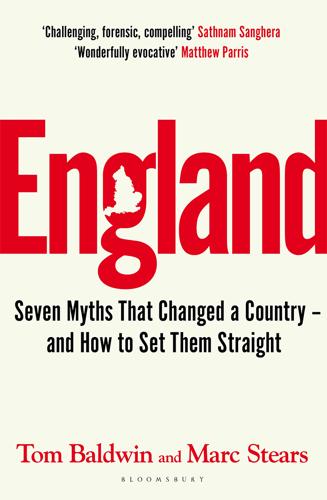
England: Seven Myths That Changed a Country – and How to Set Them Straight
by
Tom Baldwin
and
Marc Stears
Published 24 Apr 2024
The Archbishop of Canterbury briefed against her and Oxford University refused her an honorary degree, but their powerlessness was confirmed by Thatcher’s second, then a third, consecutive General Election victory.25 Perhaps most crucially for the future, she deregulated the City of London for the advantage of international finance with the Big Bang of 1983. Paunchy Englishmen wearing bowler hats were replaced with the shoulder-padded and – self-styled – ‘masters of the universe’. On the surface, at least, this was an enormous success. It generated vast wealth as stocks exchanged hands at rapid speed.
…
Index Abbot, Russ, here Abercrombie, Patrick, here abortion, here Abramovich, Roman, here Acland, James, here Act of Union, here, here Adonis, Andrew, here, here Aethelred the Unready, here Aethelstan, King, here Afghanistan, here, here–here, here Agbetu, Toyin, here Aherne, Caroline, here AJ Tracey, here Akala, here Alan, Lord of Galloway, here Albarn, Damon, here Alexandria, here Alfred, King, here, here, here Ali, Tariq, here Allcock, Peter, here Allen, Lily, here al-Qaeda, here ‘Amazing Grace’, here, here American Civil War, here American Declaration of Independence, here, here, here–here American War of Independence, here Andrew, Prince, here Anglo-Saxon liberties, here–here, here, here Anne, Princess, here Antigua, here Arkwright, Julie, here Arsenal FC, here, here, here Arthur, King, here Arts and Crafts movement, here Ashworth, David, here Astor, Nancy, here asylum seekers, here, here, here–here, here–here, here–here, here–here, here, here Attlee, Clement, here Aung San Suu Kyi, here, here Austen, Jane, here austerity, here–here, here, here–here, here, here Baddiel, David, here Baden-Powell, Robert, here, here Bakshi, Balbir Singh, here Baldwin, Stanley, here–here Ball, Alan, here Ball, Zoe, here Balls, Ed, here Bamping, Danny, here–here Bank of England, here, here Banks, Arron, here Baptists, here, here Barakat, Sheikh Ali, here Barbados, here, here Barber, Lynn, here Barnes, John, here Batson, Brendan, here Batth, Danny, here BBC, here, here–here, here, here, here, here–here, here, here, here–here Beatles, the, here–here, here Beckham, David, here, here Bede, here Belgian Congo, here, here benefit fraud, here–here Bengal Famine, here–here, here Benn, Tony, here, here Bennett, Alan, here Benton, Scott, here–here, here, here Beowulf, here Berezovsky, Boris, here Berlin, Isaiah, here Berlin Wall, here Berners-Lee, Sir Tim, here, here Betjeman, John, here Bevan, Aneurin, here Beveridge Report, here Bevin, Ernest, here Bible, the, here, here, here, here, here, here, here, here Bill of Rights, here, here Bilocca, Lillian, here Bingham, Geoff, here Bingham, Tom, here Bingley, Richard, here–here Black, Cilla, here Black, Heather, here Black and White Minstrel Show, The, here Black Country, here, here, here, here, here–here, here–here, here Black Lives Matter, here, here Black Panthers, here Blackpool, here–here, here and austerity, here, here–here, here–here, here–here, here–here Censorship Board, here deck chairs, here Grundy Art Gallery, here Metropole hotel, here–here old railway station, here, here, here Showtown exhibition, here–here, here Tower Ballroom, here–here, here Winter Gardens, here, here–here Blackpool FC, here, here Blair, Tony, here, here–here, here, here, here, here and Iraq War, here–here, here and Millennium Dome, here–here and New Labour project, here–here and Wilberforce, here–here Blanchflower, Danny, here Blavatnik, Leonard, here–here Bleasdale, Alan, here Blitz, the, here, here–here, here–here, here Bloodworth, James, here Bloody Assizes, here Blower, Joey, here–here, here–here, here Blur, here Boer War, here, here Book of Common Prayer, here Booth, William, here Boy Scout movement, here Boyle, Danny, here Bragg, Billy, here Bragg, Melvyn, here–here Brand, Jo, here Braverman, Suella, here Brazil, here, here Brexit, here, here, here, here, here, here, here, here, here, here, here, here, here, here, here–here, here–here, here–here, here, here–here, here, here–here, here–here, here, here, here, here, here, here and Magna Carta, here, here, here and Sir Francis Drake, here–here trade deals, here–here, here Brexit Party, here, here, here Bright, John, here British Empire, here, here, here, here–here, here–here, here, here, here, here, here, here, here British Empire Exhibition, here British Leyland, here British Library, here British Museum, here, here British Telecom, here Britpop, here Brontë sisters, here Brooke, Rupert, here Brown, Gordon, here, here, here–here, here Brown, Hope, here Brown, Jane, here Brown, Roy ‘Chubby’, here–here, here, here Brownies, here, here–here, here Buckland Abbey, here, here, here, here Bull, Steve, here, here Bullingdon Club, here, here Burchell, Thomas, here–here Burnard, Trevor, here Bush, George W., here–here Butler, Rab, here Butterworth, Jez, here Buxton, Thomas Foxwell, here Caine, Michael, here Calatrava, Santiago, here California, here, here Callaghan, James, here Calvert, Josie, here–here Cameron, David, here–here, here, here, here, here, here, here, here–here, here, here, here–here, here, here, here Campbell, Alastair, here, here Canary Wharf, here–here, here, here, here, here, here ‘cancel culture’ (the phrase), here Canning, George, here Cape of Good Hope, here capital punishment, here, here, here ‘Captain Swing’, here car ownership, here Carey, William, here Carlebach, Rabbi Ephraim, here Carlyle, Thomas, here Carmichael, Stokely, here Carr, Jimmy, here–here Carroll, Lewis, here Case, Simon, here Cash, Bill, here Castle, Barbara, here Cato Street Conspiracy, here Centre for Brexit Policy, here Ceylon, here Chadwick, Helen, here Chamberlain, Darryl, here Chamberlain, Joseph, here, here Chamberlain, Neville, here Channel Tunnel, here Charlecote Park, here Charles I, King, here–here, here, here Charles II, King, here Charles III, King, here, here, here Charter 88 movement, here Charter of the Forests, here Chartists, here–here, here, here–here, here Chartwell, here Cheng, Simon, here Chesapeake Bay, Battle of, here Chichester, Francis, here Chigudu, Simukai, here Chilcot Inquiry, here child chimney sweeps, here children taken into care, here–here China, here–here, here, here, here–here, here, here, here, here Choi, Richard, here Church of England, here, here, here, here, here–here, here, here, here, here, here, here Churchill, Winston, here, here, here–here, here, here, here, here, here citizenship ceremonies, here–here City of London deregulation, here Civil Service, here, here, here–here, here Clapham Sect, here, here, here, here, here Clarke, Andy, here Clarkson, Eliza Ann, here Clarkson, Thomas, here–here ‘class war’, here Clibery, Ken, here climate change, here, here, here–here, here–here, here, here, here, here, here, here, here Clinton, Bill, here Clive, Robert, here–here, here Clowes, Will, here–here Cobbett, William, here Cobden, Richard, here, here Cod Wars, here Coel, Michaela, here, here Coke, Sir Edward, here–here Coldplay, here Coleman, Jenna, here, here Coleridge, Samuel Taylor, here College of Europe, here Colley, Linda, here, here Collier, Paul, here Colston, Edward, here Combination Acts, here common law, here–here, here, here, here, here, here–here Commonwealth War Graves Commission, here concentration camps, here Concorde, here condoms, Italian, here Confucius, here Connery, Sean, here Conrad, Joseph, here Conservative Party Cameron government, here–here, here, here–here and culture wars, here–here, here–here and defence spending, here and English identity, here–here, here, here, here–here, here, here, here and Enoch Powell, here, here, here, here, here, here and Europe, here, here–here, here–here, here and immigration, here, here–here, here, here, here and imperial preference, here and khaki election, here and Millennium Dome, here–here and Plymouth City Council, here–here and Red Wall, here–here and Thatcher, here, here, here Constable, John, here contraception, here, here Cook, Captain James, here Cooper, Tommy, here, here Cooper, Yvette, here Corbyn, Jeremy, here, here, here, here, here Corbyn, Piers, here Corn Laws, here–here, here, here, here Cosey Fanni Tutti, here Cottam, Hilary, here Cotterill, Drucilla, here Cottrell-Boyce, Frank, here Coum, here Counter-Reformation, here–here Countryside Alliance, here, here Covid pandemic, here, here, here, here–here, here, here, here, here, here, here vaccination programme, here–here Coward, Noël, here Cox, Jo, here Cranmer, Thomas, here Crawford, Martha, here cricket, here, here, here Cromwell, Oliver, here, here, here Crooks, Wade, here Cross of St George, here Cuba, here Cugoano, Ottobah, here ‘culture wars’ (the phrase), here–here Cumberbatch, Benedict, here, here Cummings, Dominic, here, here, here Cunningham, Lawrie, here Curtis, Richard, here Dad’s Army, here Danegeld, here Daniels, Phil, here darts, here Darwin, Charles, here, here Davey, Ed, here Davie, Tim, here Davies, Mike, here Davies, Norman, here Davis, David, here, here Dawson, Les, here Dayil, Tyler, here debt cancellation, here Defoe, Daniel, here democracy, here, here, here, here–here, here, here–here, here, here, here, here, here, here, here, here, here, here folkmoot democracy, here, here ‘industrial democracy’, here Demos, here Denham, John, here Denmark, abolition of slavery, here devolution, here, here, here, here, here–here Diana, Princess of Wales, here, here, here, here Dickens, Charles, here–here, here, here Diggers, here, here Disraeli, Benjamin, here, here Dodd, Ken, here Dodds, Anneliese, here Dogger Bank incident, here domestic servants, here Doughty, Thomas, here Drake, Sir Francis, here–here, here–here, here–here, here–here, here, here, here, here, here ‘Drake’s drum’, here and piracy, here, here–here, here–here, here, here, here–here drugs, here–here, here Dublin, Nelson’s Pillar, here Duffy, Gillian, here Duncan Smith, Iain, here Dunkirk, here, here, here Duran Duran, here Dury, Ian, here Dvořák, Antonín, here East India Company, here, here, here, here, here, here Edward VII, King, here Einstein, Albert, here–here electoral reform, here Elford, William, here Elgar, Edward, here Elgin Marbles, here Eliot, T.
…
He portrayed the arrival of immigrants as the root cause of disorder and a threat to England’s civilisation, as he offered the English what one recent historian has described as the myth ‘that their society was in a state of perpetual existential crisis’.16 This version of it had begun to take form as early as 1961 when he delivered a speech to celebrate England’s patron saint at the annual dinner of the City of London’s branch of the Royal Society of St George. Then he urged the English ‘standing at the heart of a vanished empire, amid the fragments of demolished glory’, to rediscover ‘England herself’ now that ‘looser connections which had linked her with distant continents and strange races’ had fallen away.17 Speaking at a time when Britain was losing its grip of its remaining imperial possessions, Powell was clear there was only one direction in which the English people should be looking.
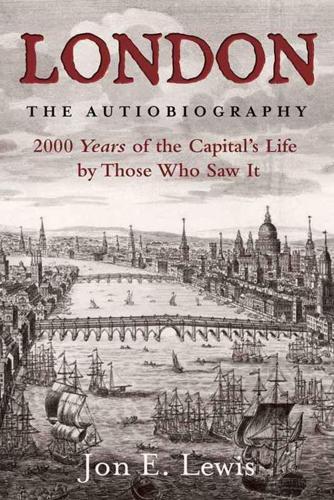
London: The Autobiography
by
Jon E. Lewis
Published 25 Aug 2009
Whatever the reason, London was now the only capital in the West to not have its own government. The GLC went out with a bang, holding a massive firework party outside County Hall. Across in the City, there was a ‘Big Bang’ of a different sort. On 27 October the City was deregulated. No longer was the City the site of small gentlemanly firms operating eons-old price-fixing cartels, it was an international casino where the game was stocks and shares. To prepare and run the deregulated system banks and brokerage firms paid bright young things handsome wages. So was born the ‘Yuppie’, the Young Urban Professional. A favourite haunt of the Yuppie was the East End, then being redeveloped by the London Docklands Development Corporation into chichi housing and spangly glass office blocks.
…
A copy of the British Library Cataloguing in Publication data is available from the British Library UK ISBN: 978-1-84529-942-2 eISBN: 978-1-78033-750-0 1 3 5 7 9 10 8 6 4 2 First published in the United States in 2009 by Running Press Book Publishers All rights reserved under the Pan-American and International Copyright Conventions No part of this work may be produced or utilized in any form or by any means, electronic or mechanical, including photocopying, recording, or by information storage and retrieval system, without permission in writing from the publisher. 9 8 7 6 5 4 3 2 1 Digit on the right indicates the number of this printing US Library of Congress Control Number: 2009920964 US ISBN: 978-0-7624-3734-4 Running Press Book Publishers 2300 Chestnut Street Philadelphia, PA 19103-4371 www.runningpress.com Printed and bound in the EU For Penny, a London girl Contents List of Illustrations Foreword Boudicca Sacks Londinium, AD 60 TACITUS The Romans in London: Graffiti VARIOUS Londoners Reject Christianity, 616 THE VENERABLE BEDE Viking Raids, 842–1009 THE ANGLO-SAXON CHRONICLE London Bridge is Pulled Down by King Olaf, c. 1014 SNORRI STURLUSON Edward the Confessor Builds Westminster Abbey, 1060–5 A MONK OF ST BERTIN’S ABBEY The Coronation of William the Conqueror, Christmas Day, 1066 ORDERIC VITALIS The Charter of Henry I in Favour of the Citizens of London, Michaelmas 1130–August 1133 HENRY I A Description of the City of London, c. 1173 WILLIAM FITZ STEPHEN Building Regulations, 1189 THE LONDON ASSIZES Tax Riot, 1194 ROGER OF WENDOVER The Thames Floods, 1241 MATTHEW PARIS Misadventures in Childhood, 1301–37 CALENDAR OF THE CORONERS’ ROLLS Street Life, 1301–80 VARIOUS Trick of the Trade: A Fraudulent Baker, 1327 THE CITY OF LONDON LETTER-BOOK The Ordinances of the Spurriers, 1346 ANONYMOUS City of the Dead: The Black Death, 1348 ROBERT OF AVESBURY Flagellants, Michaelmas 1349 ROBERT OF AVESBURY Expulsion of a Leper, 1372 THE CITY OF LONDON LETTER-BOOK An Inventory of the Goods in a Fishmonger’s City House, 1373 CALENDAR OF PLEA AND MEMORANDA ROLLS The Peasants’ Revolt Comes to London, 1381 SIR JOHN FROISSART Richard II Quarrels with the City of London, 1392 THE MONK OF WESTMINSTER London Lickpenny, c. 1410 ANONYMOUS Henry V’s Victory March After Agincourt, 23 November 1415 ANONYMOUS Richard Whittington is Elected Mayor for the Third Time, 13 October 1419 THE CITY OF LONDON LETTER-BOOK Public Nuisances, 1422 THE GENERAL COURT OF THE MAYOR OF THE CITY OF LONDON Wars of the Roses: The Beginning of Strife, 1454 JOHN STODELY The Dignity of the Mayor of London, 1464 ANONYMOUS The Joust Between Lord Scales and the Bastard of Burgoyne, 1467 EDWARD HALL The Sweating Sickness, 1485 EDWARD HALL Tudor London: A Portrait, 1497 ANDREAS FRANCISCUS Evil May Day, 1 May 1517 THE CHRONICLE OF THE GREY FRIARS The Beheading of Sir Thomas More, 1535 WILLIAM ROPER Protestant Revolution: Edward VI Suppresses Popery in London, 1547 THE CHRONICLE OF THE GREY FRIARS Queen Mary Seizes the Crown, 1553 HENRY MACHYN Mary Persecutes the Protestants: The Burning of Bradford and Leaf at Smithfield, 1555 JOHN FOXE Elizabethan London: City Life, 1564–99 VARIOUS Elizabethan London: The Oath of Every Freeman, 1580 ANONYMOUS Riots, Puritans and Shakespeare: Theatre-going, 1584–1613 WILLIAM FLEETWOOD, THE LORD MAYOR AND ALDERMEN, AND THOMAS PLATTER Queen Elizabeth at Greenwich, c. 1596 PAUL HENTZNER The Torturing of a Jesuit Priest in the Tower of London, April 1597 FATHER JOHN GERARD The Diary of a Tourist, 5 July 1598 BARON WALDSTEIN The Gunpowder Plot, 5 November 1605 SIR EDWARD HOBY The Attempted Arrest of the Five Members, 4 January 1642 JOHN RUSHWORTH The Battle of Newbury: Sergeant Henry Foster in Action, 20 September 1643 SERGEANT HENRY FOSTER, RED REGIMENT OF THE TRAINED BANDS OF THE CITY OF LONDON The Execution of Charles I, 30 January 1649 PHILIP HENRY Ranters, 1651 JOHN TAYLOR A Whale in the Thames, 3 June 1658 JOHN EVELYN The Restoration: The Arrival of Charles II in London, 29 May 1660 ANONYMOUS Notices for a Lost Dog, 21–8 June 1660 CHARLES II Journal of the Plague Year, 1665 SAMUEL PEPYS The Great Fire, 2–7 September 1666 JOHN EVELYN The Dutch in the Thames, June 1667 JOHN EVELYN A Visit to a Gaming House, 1 January 1668 SAMUEL PEPYS Highway Robbery, 11 May 1674 JOHN VERNEY London Arisen from the Ashes: Wren Rebuilds St Paul’s Cathedral, 1675–1710 DANIEL DEFOE The Great Frost, 1683–4 JOHN EVELYN Cockfighting, 18 June 1710 ZACHARIAS VON UFFENBACH Making Hay in Chelsea, 19 May 1711 JONATHAN SWIFT The Mohock Club, March 1712 LADY STRAFFORD Handel’s Water Music, 17 July 1717 DAILY COURANT Coffee-houses, c. 1722–5 JOHN MACKY AND CÉSAR DE SAUSSURE John Wesley Stoned, 12 September 1742 JOHN WESLEY A Hanging at Tyburn, c. 1745 SAMUEL RICHARDSON Earthquake, 11 March 1750 HORACE WALPOLE Gin Lane, 1751 WILLIAM HOGARTH Man About Town: A Rake’s Progress, 25 November 1762–4 June 1763 JAMES BOSWELL Wilkes and the Mob, 1768 HORACE WALPOLE The Lord Mayor’s Banquet, 1768 WILLIAM HICKEY The Gordon Riots, 6 June 1780 IGNATIUS SANCHO Ranelagh Pleasure Gardens, 12 June 1782 KARL PHILIPP MORITZ London Hospitals, 1788 JOHN HOWARD ‘The Rage for Building’: The Growth of London, 8 June 1791 HORACE WALPOLE London: A Georgian Poet’s View, 1794 WILLIAM BLAKE Mr Whitbread’s Brewery, c. 1800 JOHANNA SCHOPENHAUER Shooting Under London Bridge in a Boat, 12 July 1810 LOUIS SIMOND The Season: Jane Austen’s Party, April 1811 JANE AUSTEN Death of a Climbing Boy, 29 March 1813 THE PARLIAMENTARY COMMITTEE ON CLIMBING BOYS Mrs Fry at Newgate, March 1822 MARIA EDGEWORTH ‘Peelers’: The Formation of the Metropolitan Police, October 1829 SIR ROBERT PEEL William IV Rambles the Streets, 19 July 1830 CHARLE S GREVILLE King Cholera, 1832 CHARLES GREVILLE The Opening of the London to Deptford Railway, 14 December 1837 JOHN O’LONDON Queen Victoria at Her Coronation, 28 June 1838 QUEEN VICTORIA The Condition of the Working Class in London, c. 1844 FRIEDRICH ENGELS Chartist Demonstration, 10 April 1848 LORD JOHN RUSSELL Victorian London: Street Life, c. 1850 HENRY MAYHEW A Visit to the Great Exhibition, 7 June 1851 CHARLOTTE BRONTE High Society: A Fancy-dress Ball at Buckingham Palace, 1851 ANNE THACKERAY RITCHIE Karl Marx at Home, 1852 KARL MARX Some London Wonders: Gaslights, Penny Gaffs and Omnibuses, 1853 MAX SCHLESINGER Fog, 1853 CHARLES DICKENS The Great Stink, Summer 1858 CHARLES DICKENS AND GEORGE GODWIN Nine a.m.: Clerks on Their Way to Work, 1858 GEORGE AUGUSTUS SALA White Slavery: Maids and Match Girls, 1860–83 HANNAH CULLWICK AND JAMES GREENWOOD A Day at the Races: The Derby, Epsom, 28 May 1861 HIPPOLYTE TAINE Tothill Fields, 1861 HENRY MAYHEW AND JOHN BINNY Prostitutes on the Haymarket, 1862 FYODOR DOSTOEVSKY Into Hades: The Metropolitan Underground Railway Commences Service, 9 January 1863 THE TIMES Murder on the North London Railway, July 1864 ILLUSTRATED LONDON NEWS The Founding of the International Working Men’s Association, Covent Garden, 28 September 1865 KARL MARX William Morris at Home, 10 March 1869 HENRY JAMES A Socialist March Through the West End, Autumn 1886 H.M.
…
A copy of the British Library Cataloguing in Publication data is available from the British Library UK ISBN: 978-1-84529-942-2 eISBN: 978-1-78033-750-0 1 3 5 7 9 10 8 6 4 2 First published in the United States in 2009 by Running Press Book Publishers All rights reserved under the Pan-American and International Copyright Conventions No part of this work may be produced or utilized in any form or by any means, electronic or mechanical, including photocopying, recording, or by information storage and retrieval system, without permission in writing from the publisher. 9 8 7 6 5 4 3 2 1 Digit on the right indicates the number of this printing US Library of Congress Control Number: 2009920964 US ISBN: 978-0-7624-3734-4 Running Press Book Publishers 2300 Chestnut Street Philadelphia, PA 19103-4371 www.runningpress.com Printed and bound in the EU For Penny, a London girl Contents List of Illustrations Foreword Boudicca Sacks Londinium, AD 60 TACITUS The Romans in London: Graffiti VARIOUS Londoners Reject Christianity, 616 THE VENERABLE BEDE Viking Raids, 842–1009 THE ANGLO-SAXON CHRONICLE London Bridge is Pulled Down by King Olaf, c. 1014 SNORRI STURLUSON Edward the Confessor Builds Westminster Abbey, 1060–5 A MONK OF ST BERTIN’S ABBEY The Coronation of William the Conqueror, Christmas Day, 1066 ORDERIC VITALIS The Charter of Henry I in Favour of the Citizens of London, Michaelmas 1130–August 1133 HENRY I A Description of the City of London, c. 1173 WILLIAM FITZ STEPHEN Building Regulations, 1189 THE LONDON ASSIZES Tax Riot, 1194 ROGER OF WENDOVER The Thames Floods, 1241 MATTHEW PARIS Misadventures in Childhood, 1301–37 CALENDAR OF THE CORONERS’ ROLLS Street Life, 1301–80 VARIOUS Trick of the Trade: A Fraudulent Baker, 1327 THE CITY OF LONDON LETTER-BOOK The Ordinances of the Spurriers, 1346 ANONYMOUS City of the Dead: The Black Death, 1348 ROBERT OF AVESBURY Flagellants, Michaelmas 1349 ROBERT OF AVESBURY Expulsion of a Leper, 1372 THE CITY OF LONDON LETTER-BOOK An Inventory of the Goods in a Fishmonger’s City House, 1373 CALENDAR OF PLEA AND MEMORANDA ROLLS The Peasants’ Revolt Comes to London, 1381 SIR JOHN FROISSART Richard II Quarrels with the City of London, 1392 THE MONK OF WESTMINSTER London Lickpenny, c. 1410 ANONYMOUS Henry V’s Victory March After Agincourt, 23 November 1415 ANONYMOUS Richard Whittington is Elected Mayor for the Third Time, 13 October 1419 THE CITY OF LONDON LETTER-BOOK Public Nuisances, 1422 THE GENERAL COURT OF THE MAYOR OF THE CITY OF LONDON Wars of the Roses: The Beginning of Strife, 1454 JOHN STODELY The Dignity of the Mayor of London, 1464 ANONYMOUS The Joust Between Lord Scales and the Bastard of Burgoyne, 1467 EDWARD HALL The Sweating Sickness, 1485 EDWARD HALL Tudor London: A Portrait, 1497 ANDREAS FRANCISCUS Evil May Day, 1 May 1517 THE CHRONICLE OF THE GREY FRIARS The Beheading of Sir Thomas More, 1535 WILLIAM ROPER Protestant Revolution: Edward VI Suppresses Popery in London, 1547 THE CHRONICLE OF THE GREY FRIARS Queen Mary Seizes the Crown, 1553 HENRY MACHYN Mary Persecutes the Protestants: The Burning of Bradford and Leaf at Smithfield, 1555 JOHN FOXE Elizabethan London: City Life, 1564–99 VARIOUS Elizabethan London: The Oath of Every Freeman, 1580 ANONYMOUS Riots, Puritans and Shakespeare: Theatre-going, 1584–1613 WILLIAM FLEETWOOD, THE LORD MAYOR AND ALDERMEN, AND THOMAS PLATTER Queen Elizabeth at Greenwich, c. 1596 PAUL HENTZNER The Torturing of a Jesuit Priest in the Tower of London, April 1597 FATHER JOHN GERARD The Diary of a Tourist, 5 July 1598 BARON WALDSTEIN The Gunpowder Plot, 5 November 1605 SIR EDWARD HOBY The Attempted Arrest of the Five Members, 4 January 1642 JOHN RUSHWORTH The Battle of Newbury: Sergeant Henry Foster in Action, 20 September 1643 SERGEANT HENRY FOSTER, RED REGIMENT OF THE TRAINED BANDS OF THE CITY OF LONDON The Execution of Charles I, 30 January 1649 PHILIP HENRY Ranters, 1651 JOHN TAYLOR A Whale in the Thames, 3 June 1658 JOHN EVELYN The Restoration: The Arrival of Charles II in London, 29 May 1660 ANONYMOUS Notices for a Lost Dog, 21–8 June 1660 CHARLES II Journal of the Plague Year, 1665 SAMUEL PEPYS The Great Fire, 2–7 September 1666 JOHN EVELYN The Dutch in the Thames, June 1667 JOHN EVELYN A Visit to a Gaming House, 1 January 1668 SAMUEL PEPYS Highway Robbery, 11 May 1674 JOHN VERNEY London Arisen from the Ashes: Wren Rebuilds St Paul’s Cathedral, 1675–1710 DANIEL DEFOE The Great Frost, 1683–4 JOHN EVELYN Cockfighting, 18 June 1710 ZACHARIAS VON UFFENBACH Making Hay in Chelsea, 19 May 1711 JONATHAN SWIFT The Mohock Club, March 1712 LADY STRAFFORD Handel’s Water Music, 17 July 1717 DAILY COURANT Coffee-houses, c. 1722–5 JOHN MACKY AND CÉSAR DE SAUSSURE John Wesley Stoned, 12 September 1742 JOHN WESLEY A Hanging at Tyburn, c. 1745 SAMUEL RICHARDSON Earthquake, 11 March 1750 HORACE WALPOLE Gin Lane, 1751 WILLIAM HOGARTH Man About Town: A Rake’s Progress, 25 November 1762–4 June 1763 JAMES BOSWELL Wilkes and the Mob, 1768 HORACE WALPOLE The Lord Mayor’s Banquet, 1768 WILLIAM HICKEY The Gordon Riots, 6 June 1780 IGNATIUS SANCHO Ranelagh Pleasure Gardens, 12 June 1782 KARL PHILIPP MORITZ London Hospitals, 1788 JOHN HOWARD ‘The Rage for Building’: The Growth of London, 8 June 1791 HORACE WALPOLE London: A Georgian Poet’s View, 1794 WILLIAM BLAKE Mr Whitbread’s Brewery, c. 1800 JOHANNA SCHOPENHAUER Shooting Under London Bridge in a Boat, 12 July 1810 LOUIS SIMOND The Season: Jane Austen’s Party, April 1811 JANE AUSTEN Death of a Climbing Boy, 29 March 1813 THE PARLIAMENTARY COMMITTEE ON CLIMBING BOYS Mrs Fry at Newgate, March 1822 MARIA EDGEWORTH ‘Peelers’: The Formation of the Metropolitan Police, October 1829 SIR ROBERT PEEL William IV Rambles the Streets, 19 July 1830 CHARLE S GREVILLE King Cholera, 1832 CHARLES GREVILLE The Opening of the London to Deptford Railway, 14 December 1837 JOHN O’LONDON Queen Victoria at Her Coronation, 28 June 1838 QUEEN VICTORIA The Condition of the Working Class in London, c. 1844 FRIEDRICH ENGELS Chartist Demonstration, 10 April 1848 LORD JOHN RUSSELL Victorian London: Street Life, c. 1850 HENRY MAYHEW A Visit to the Great Exhibition, 7 June 1851 CHARLOTTE BRONTE High Society: A Fancy-dress Ball at Buckingham Palace, 1851 ANNE THACKERAY RITCHIE Karl Marx at Home, 1852 KARL MARX Some London Wonders: Gaslights, Penny Gaffs and Omnibuses, 1853 MAX SCHLESINGER Fog, 1853 CHARLES DICKENS The Great Stink, Summer 1858 CHARLES DICKENS AND GEORGE GODWIN Nine a.m.: Clerks on Their Way to Work, 1858 GEORGE AUGUSTUS SALA White Slavery: Maids and Match Girls, 1860–83 HANNAH CULLWICK AND JAMES GREENWOOD A Day at the Races: The Derby, Epsom, 28 May 1861 HIPPOLYTE TAINE Tothill Fields, 1861 HENRY MAYHEW AND JOHN BINNY Prostitutes on the Haymarket, 1862 FYODOR DOSTOEVSKY Into Hades: The Metropolitan Underground Railway Commences Service, 9 January 1863 THE TIMES Murder on the North London Railway, July 1864 ILLUSTRATED LONDON NEWS The Founding of the International Working Men’s Association, Covent Garden, 28 September 1865 KARL MARX William Morris at Home, 10 March 1869 HENRY JAMES A Socialist March Through the West End, Autumn 1886 H.M.
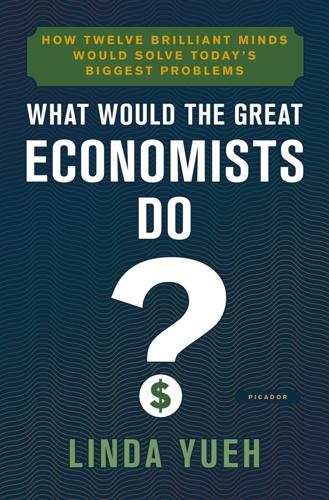
What Would the Great Economists Do?: How Twelve Brilliant Minds Would Solve Today's Biggest Problems
by
Linda Yueh
Published 4 Jun 2018
In Ricardo’s day, more than one in two of the very wealthy men in Britain were landowners, a statistic all the more surprising because the Industrial Revolution had created fortunes for industrialists. Apart from land, the wealthy were in commerce and finance, for example bankers, brokers, merchants and ship owners. With his origins in the City of London, the financial centre of the world, and his huge country estates, Ricardo had a foot in both camps of the elite of his time. The bottom tier of society was the newly created class of wage earners. By the middle of the nineteenth century, the share of workers earning industrial wages had increased to around 80 per cent, more than doubling in a century.4 Thus, a simplified three-tiered social structure formed the basis of Ricardo’s economic models.
…
The period, which became known as the Industrial Revolution, saw the economy transformed from an agrarian society into one characterized by factories owned and run by merchants who traded their wares both at home and overseas. In our own times, Britain and several other advanced economies, including the United States, have experienced yet another fundamental structural change: deindustrialization. Since the 1980s Thatcher-era reforms that liberalized the financial sector – notably the ‘Big Bang’ of 1986, when markets were opened up to greater competition – Britain has seen industry give way to services. (Relatively speaking, that is. The UK is still the ninth biggest manufacturer in the world, and was in the top five until around 2004.) Similarly, although the US remains the second biggest manufacturer in the world (having been overtaken recently by China), its services economy accounts for the larger part of American national output.
…
artificial intelligence Arts Council, British ASEAN (Association of Southeast Asian Nations) ASEAN Economic Community (AEC) Asia financial crisis (1997–98) see also specific countries asset management companies Aung San Suu Kyi austerity Austrian School of economics see also Hayek, Friedrich Austro-Hungarian Empire automation see also artificial intelligence; robotics BAE Systems Bagehot, Walter banks/banking ‘bad banks’ bail-outs Bank Charter Act of (Peel Banking Act) central banks see central banks China competition constrained lending European Investment Bank financial crises see financial crises government guarantees on deposits and the Great Crash (1929) and Great Depression and the Great Recession interest rates see interest rates investment banking mortgage lending see mortgage lending regulation and Schumpeter shadow banking US Banking Acts (1933 and 1935) World Bank see World Bank Barro, Robert Bear Stearns Beijing Consensus Bentham, Jeremy Bernanke, Ben Beveridge Report ‘Big Bang’ (1986) Bitcoin Bitterlich, Helene Blackberry Blackett, Basil Blaug, Mark Bloomsbury Group Böhm von Bawerk, Eugen Bolshevik Party Bonaparte, Louis-Napoleon Bonaparte, Napoleon Boody Firuski, Romaine Elizabeth Botswana Brazil Bretton Woods System Brexit foreign investment after BRIC economies see also Brazil; China; India; Russia Britain/UK and the financial crisis aerospace industry banking sector difficulties Black Wednesday budget deficits see budget deficits credit rating current account deficit deindustrialization ERM exit of pound EU referendum exports (general) exports of services foreign investment after Brexit GDP and the gold standard gold supply government administration government’s renewed focus on growth and the Great Depression IMF bail out (1976) industrialization/Industrial Revolution inequality information technology industries investment as share of GDP labour force growth as largest world trader low wages manufacturing national debt National Infrastructure Commission oil and gas industry productivity and wage growth productivity puzzle rebalancing the economy reindustrialization services sector slow productivity growth telecommunications industry trade-to-GDP ratio trade deficit trade with US Treasury unemployment wages and productivity welfare state as ‘workshop of the world’ Brookings Institution Brown, Douglas V.
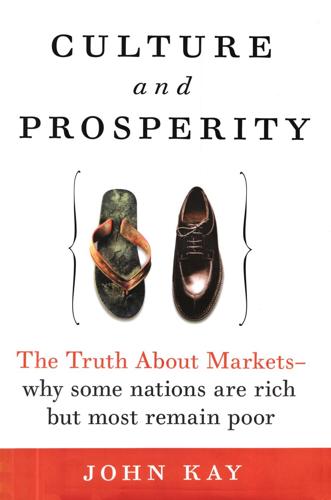
Culture and Prosperity: The Truth About Markets - Why Some Nations Are Rich but Most Remain Poor
by
John Kay
Published 24 May 2004
The system was made possible by the common social background of market participants. It ceased to be sustainable when the City of London became a more democratic institution, and when globalization brought into the marketplace foreigners who did not understand what these signals meant, or that failure to observe them would have adverse consequences. So Britain acquired a rule book and an analogue of the Securities and Exchange Commission. The internationalized City of London could no longer sustain the informal regulation symbolized by the eyebrows of the governor. But these structures are pervasive in the world's most successful economies-the small states of Western Europe, such as Denmark, Culture and Prosperity { 15} Norway, and Switzerland.
…
Only later in the Venetian Republic was marine insurance invented. This enabled the risks faced by merchants to be spread over many individuals. All could sleep easily in their beds, knowing that no single event could expose them to perils as grave as Antonio's. The market was developed further in Edward Lloyd's coffeehouse in the City of London. Lloyd's of London is still a center of the marine insurance market today. Several hundred years afterward, Hurricane Hugo hit the South Carolina coast in September 1989. The fishing village of McClellanville, halfway between Charleston and Georgetown, was flattened by eighteen-foot waves and 140 mile per hour winds, and the devastation extended to the neighboring cities and some way inland.
…
Global Corruption Report. Berlin: Transparency International. Travers,]., and S. Milgram. 1969. "An Experimental Study of the Small World Problem." Sociometry 32 (4) (December): 425-33. Trump, D., with T. Schwartz. 1987. Trump: The Art ofthe Deal. London: Century. Tsurumi, M., ed. 2001. Financial Big Bang in Asia. Aldershot: Ash gate. Tudge, C. 1998. Neanderthals) Bandits and Farmers: How Agriculture Really Began. London: Weidenfield and Nicolson. Turnbull, C. D. 1961. The Forest People. London: Pimlico, new ed., 1993. ---. 1973. The Mountain People. London: Pimlico, new introd. 1994. Turner,]. A. 2001.
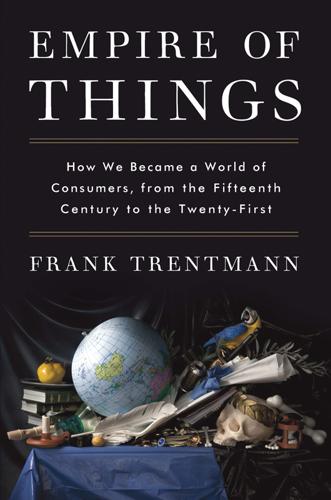
Empire of Things: How We Became a World of Consumers, From the Fifteenth Century to the Twenty-First
by
Frank Trentmann
Published 1 Dec 2015
Constance Williams &Arthur Martin in Gas in Home –Popular Lectures, 49–72. See further: Martin Daunton, House and Home in the Victorian City (London, 1983); and Judith Flanders, The Victorian House (London, 2004), 168–73. 21. Henry Letheby, ‘Report on the Coal Gas Supplied to the City of London’ (London, 1854); John Simon, ‘Report by the Medical Officer of Health on Complaints of Nuisance from the City of London Gas Company’s Works’ (London, 1855); and Toer & Asociados, eds., Gas Stories in Argentina. 22. Manuel Charpy, ‘Le Théâtre des objets: espaces privés, culture matérielle et identité bourgeoise, Paris 1830–1914’, PhD thesis, Université François-Rabelais de Tours, 2010, Vol.
…
In cities that burnt a lot of coal, fog sometimes overwhelmed gaslights for days. Mr Goodenough, a London engineer, noted in 1910 how ‘he had gone down [from his flat], and stood at the foot of the column, and could not see the light, though the lamp was only 18 feet above the road-level.’ And where there is light, there is shadow. In the City of London, the epicentre of the world economy, the lights on Cannon Street left triangular patches of darkness, creating dangerous ‘refuges for objectionable persons’.26 The more cities were lit, the more darkness inspired fear and fascination. For every additional watt, there was another Gothic story of metropolitan shadowlands.27 Gas and water confronted cities with unprecedented challenges.
…
Was it only the water that was purposely used for washing, cooking and drinking, or should it also include the many gallons lost through dripping taps? Might it even include all the water lost through leaking mains, a kind of invisible consumption? Contemporaries were divided, and for good reason. In some areas, waste exceeded personal use. In Shoreditch, just north of the City of London, residents were supplied with 37 gallons a head a day in 1882. Waste inspectors and improved fittings brought this down by half. In the slightly posher Finsbury Park nearby, inspectors found that in June of that year people used 18 gallons during the day but 105 gallons whilst asleep – ‘letting their hoses run all night in the gardens’.37 If anything, constant supply and modern conveniences encouraged such practices.
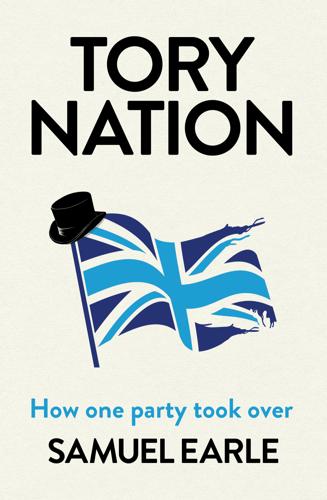
Tory Nation: The Dark Legacy of the World's Most Successful Political Party
by
Samuel Earle
Published 3 May 2023
Instead of a pay rise for struggling workers, the government announced that it would toughen welfare, scrap a planned rise in corporation tax, end caps on bankers’ bonuses and abolish the top rate of income tax completely: someone who was earning £50,000 a year would now pay the same amount of tax as someone earning £1 million. Pitched as ‘Big Bang 2.0’, in reference to Thatcher’s deregulation of the financial sector, Truss’s policies made Britain the most economically right-wing country in the developed world.42 Many pillars of the Tory Nation rejoiced. ‘At last! A true Tory budget!’ the front page of the Daily Mail declared. ‘This was the best budget I have ever heard a chancellor deliver, by a massive margin,’ wrote Allister Heath on the front page of the Daily Telegraph.
…
Anderson, Perry 75, 190, 206, 268 anti-Semitism 129, 134–9, 232–6 aristocracy 6, 20, 21, 24, 29–30, 40, 50, 55, 57, 67, 69, 70, 71, 76, 77, 84–94, 95, 99, 103, 110, 117, 121, 130, 138, 164, 196 asylum seekers 137, 143, 187, 209, 242, 243, 252, 253, 254 Attlee, Clement 25, 136, 173, 203–5, 209, 210 austerity policies 3, 4, 12, 14, 16, 29, 54, 114, 120, 126, 176, 213, 216, 223, 228, 248, 253, 258–9, 260 Baldwin, Stanley 47, 117, 119–20, 130–1, 135–7, 166, 171, 195 Balfour, Arthur 6, 23, 37, 55–6, 69, 71, 72, 81–2, 228 Bank of England 247, 251, 253 Barclay family 155, 178, 179, 211 BBC 35, 62, 132, 155–6, 234, 260 Beaverbrook, Max Aitken, Lord 155, 164, 165, 166–7, 172, 173, 175 Bevan, Aneurin 202–3, 210 Beveridge Report (1942) 200–1, 202 Blair, Tony 2, 15–17, 18, 25, 27, 83, 141, 161, 168–9, 171, 180–1, 183–90, 209, 210–13, 215–16, 223, 224, 229, 232, 233, 254, 265; A Journey: My Political Life 184 Boer War (1899–1902) 121 Bonar Law, Andrew 225–6 Braverman, Suella 63, 144, 176, 252 Brexit 3, 7, 12, 13–14, 19, 23, 39, 55, 64–5, 93–4, 109, 120, 127, 143, 146–9, 213–14, 217–32, 235, 237, 238, 254–5, 258, 259–60, 263–4, 265 Brexit Party 146–8, 225 British Empire 9, 12, 30, 38, 39, 49, 72, 74, 75, 77, 80, 82, 106, 107, 108–9, 111, 125–7, 128, 133, 134, 135, 163, 203, 207–8, 217, 257, 262 British Union of Fascists 136 Brooks, Charlie 171, 172 Brooks, Rebekah 151, 171–2 Brown, Gordon 18, 87, 171, 209, 215, 216, 232, 233, 254 Bulwer-Lytton, Edward 159–60, 161 Burke, Edmund 43, 47–53, 57, 61, 63, 66, 67, 79, 104, 119, 125, 233–4; Reflections on the Revolution in France 48, 49, 233–4 butler 99–100, 101 Butler, Rab 33, 65 Callaghan, James 101, 209–10, 211 Cambridge, University of 46, 217, 257 Cameron, David 47, 96, 223, 262; austerity policies 4, 18, 29, 114, 116–17, 120; background 6, 16–17, 56–7, 73–4, 81, 87, 94, 251; Brexit and 23, 146, 148, 213–14, 217–19, 220–1, 226, 228, 260; Corbyn and 217; gambling tendency 38; immigration and 130; modernisation of Conservative Party 16–19, 139, 141, 146; New Labour and 17–19; political philosophy 41, 54, 55; press and 151, 169, 171–2, 173, 176–7; resignation 215, 220–1, 251 Campbell-Bannerman, Henry 25 Cannadine, David 106–7, 268 capitalism ix, 18, 24–5, 42, 46, 51, 113, 117, 124–5, 130, 138, 185, 190, 209, 259 Carleton-Smith, General Sir Mark 87 Centre for Policy Studies (CPS) 36, 211, 244 Chamberlain, Neville 135, 137, 208 Change UK 231, 232, 237 Chartism 78, 263 child poverty 4, 66, 128 Churchill, Lord Randolph 71 Churchill, Winston 44, 47, 68, 71, 72, 73, 102, 126, 131, 134–5, 136, 138, 139, 173, 200, 203, 228, 233, 261–2 circulation, newspaper 155–6, 157, 158, 161, 162, 164, 167–8, 175, 179–80, 188, 201 City of London 9, 24, 146, 197, 225, 238, 250–1 Cleverly, James 142 Clitheroe, Ralph Assheton, 1st Baron 44 coalition government (2010–15) 18–19, 212–13, 253 Cole, Harry 169 ‘common sense’ 10, 42, 54–7, 74, 103, 144, 147, 160–1, 207, 265, 266 Conservative Party: adaptability 22, 38–40, 60–1, 74; Central Office 15, 81, 153, 156; democracy and see democracy; effortless superiority, aristocratic posture of 29–30, 77, 228; election record see general elections; elites and 69–94; embattled minority, habit of acting like an 261; family links within/‘cousinhood’ 69–71, 94; far right and 122, 123–50; grassroots movement 32–3; leadership contests 143–4, 220–1, 227, 242–4, 247–8; liberalism, adoption of 24–5, 117; longevity 2, 19, 88, 129; membership 31–2, 33, 72, 138, 247; opponents, absorbs achievements of political 9, 17–19, 22, 35–6, 198, 213–14; origins 1, 3, 19–25, 154; patriotism and see patriotism; pessimism 30–2, 49; policy agenda see individual policy name or area; power, prioritisation of 22–4, 30, 32, 38–9, 47, 57, 65, 74, 132; press and 151–82; Research Department 104, 132; track record since 2010 250–4; voting system and see individual voting method name constitution, Britain’s lack of 28, 48, 51, 75, 83, 104, 259 Corbyn, Jeremy 35, 59–60, 174, 209, 215–18, 222–4, 230, 231–7, 253, 263, 265 Corn Laws 22–3, 24 ‘cost of living crisis’ 110, 120, 245 Covid-19 pandemic 3, 12, 120, 237, 238–9, 240 ‘cultural front’ 35 ‘culture wars’ 12, 63, 242, 252, 264, 265 Cummings, Dominic 169, 170, 231, 238 Daily Express 153–4, 155, 164, 166–7, 170, 173, 177, 178, 246 Daily Herald 167, 210 Daily Mail 1, 14, 132, 138, 151–2, 153, 154–5, 156, 162–3, 164, 169, 170, 172–4, 175, 177, 178, 180, 198, 222, 223, 227, 235, 244, 246, 248, 252–3 Daily Mirror 155, 167, 168, 173, 180, 181, 188, 200–1, 203, 224, 244 Daily Star 155, 178 Daily Telegraph 4, 31–2, 36, 59–60, 93–4, 148, 154, 155, 156, 169, 170, 173, 174, 176, 178, 211, 215, 216, 226, 227, 246, 252 Dalton, Hugh 202, 205 democracy 2, 6, 20–1, 45–6, 57–60, 66, 72, 78, 80, 81, 103, 104, 132, 134, 152, 153, 154, 199–200, 205, 241, 253, 255–61, 264, 266 Derby, Lord 38 Desmond, Richard 178, 219 Devonshire family 71, 87–8 Devonshire, Peregrine Cavendish, 12th Duke of 88, 91 Devonshire, Victor Cavendish, 9th Duke of 71 Disraeli, Benjamin 6, 20, 21, 22, 38, 47, 58, 104–5, 106, 112, 121, 133–4, 135, 160, 187, 228, 242; The Spirit of Whiggism 84–5 Domville, Admiral Sir Barry 136 donors 34, 219, 239, 250, 251–2, 256 Douglas-Home, Sir Alec 69–70, 92 Downton Abbey (television series) 95–7, 98–9, 103, 117 Downton Abbey: The Movie 11, 95–6, 98–9 Duncan Smith, Iain 96, 186 Economist 2, 82, 103, 210, 212, 265 economy/economics 2, 3, 13, 16, 18, 28, 35, 77, 90, 91, 139, 189, 194, 197, 200, 210, 211, 212, 234, 239, 264, 266; Brexit and 219, 225; Conservative Party record since 2010 242–7, 252–5; Conservatives’ reputation as most trustworthy custodians of 7, 115–20, 122, 265; Covid-19 and 239; Great Recession (2007–9) 18, 37, 176, 255; negative solidarity and 119; ‘party of prosperity’, Conservatives as 7, 115, 122, 265; Powell and 124–5; press and 175, 176, 184, 185, 189, 194; Thatcherism and 41–7, 50–1, 59, 61, 64, 66, 90, 91, 113 Eden, Anthony 64, 71, 72, 78 Edgerton, David 85, 206, 211, 268 elective dictatorship 28 Elizabeth II, Queen 70, 74, 80, 81, 83, 98–9, 217, 228, 244–5, 247; funeral 98, 245, 247, 248 Engels, Friedrich 99, 190 English Civil War (1642–51) 75, 79 English, David 151–2, 170 English Revolution (1639–51) 75 environmental issues 17, 35–6, 39, 130, 253 Eton College 6, 10, 16, 21, 30, 39, 46, 55, 56–7, 69, 72–4, 84, 85–7, 88, 92, 93–4, 100, 101, 121, 172, 202, 225, 229, 257 European Economic Community (EEC) 64, 125 European Union (EU) 6, 13–14, 15–16, 18, 19, 45, 64, 75, 109, 125, 146, 148, 212, 214, 217, 218, 219, 221, 222, 225, 226, 227, 231, 238, 239, 254; elections (2019) 146, 225 Euroscepticism 17, 217–18, 259–60 Evening Standard 155, 221 Fabian Society 193, 211 fascism 29, 103, 134–9, 145, 174, 175 Falklands War (1982) 38, 107, 108–9, 127 Farage, Nigel 123, 146–7, 148–9, 150, 213–14, 219, 225, 235, 236 far right 3, 19, 123–50, 178, 236 Financial Times 155, 211, 223 first-past-the-post (FPTP) voting system 26–8, 204, 259 First World War (1914–18) 37, 106–7, 162, 165, 193, 212 Foot, Michael 173 fox-hunting 16, 29, 93, 223 Fox, Kate: Watching the English: The Hidden Rules of English Behaviour 102, 114 free-market 6, 12, 16, 18, 36, 41–2, 45, 50, 51, 56, 61, 66, 124–5, 149, 244, 263 French Revolution (1789) 48, 64, 76, 79 Friedman, Milton 124–5 Gaitskell, Hugh 33, 210 gay marriage 6, 18–19 general elections: (1832) 186; (1880) 25; (1900) 121; (1906) 25, 28, 82, 201; (1923) 172, 194–5; (1924) 130–1, 172–3, 196–7, 210; (1929) 37, 166, 197; (1931) 198–9; (1935) 229; (1945) 25, 28, 33, 37, 60–1, 68, 139, 153, 173, 201, 209, 210, 223, 263; (1950) 44–5, 204; (1951) 37, 204–5; (1964) 26, 72; (1966) 25; (1979) 29, 34, 44, 61, 62, 90, 101, 153, 173, 211; (1983) 28, 34, 44; (1987) 1, 28, 44, 151–2, 153, 229; (1992) 59, 153–4, 174, 184; (1997) 25, 27, 83, 143, 168, 186, 211–12; (2001) 25, 141, 142, 188, 212; (2005) 2, 15–17, 25, 34, 128, 168, 212, 223; (2010) 18, 29, 83, 141, 212, 223, 230; (2015) 19, 73, 154, 173, 213–14, 216, 217, 220, 223, 230; (2017) 35, 154, 174, 222–3, 230–1, 232, 235; (2019) 1, 7, 13, 68, 113, 115, 142, 146–7, 148, 154, 155, 156–7, 168, 174, 181, 229, 230–1, 232, 235–7; Labour Party record in 2, 5–6, 194–8, 205–6; spending on 34; suffrage reforms see suffrage reforms; Tory record in 1–3, 5, 14, 25–9, 115, 261 George III, King 48 George V, King 80, 198 George VI, King 204 George, Lloyd 135, 165 Gilmour, Ian 43, 51–2, 90 Gladstone, William 25, 80, 121 ‘good chap’ theory of government 28, 259 Gorst, John 7, 104 Gove, Michael 47, 55, 148, 169, 212, 219, 221 Gramsci, Antonio 11–12, 35 Great Depression (1929) 37 Greater London Council 258–9 Great Recession (2007–9) 18, 37, 176, 255 Great Reform Acts: (1832) 20–1, 85, 256; (1867) 20, 38, 256; (1884) 20–1, 256 Greensill Capital 251 Guardian 31, 155, 180, 188, 224, 233, 234, 235 Hague, William 54, 141, 186, 187 Hall, Stuart 120, 149, 265, 266, 268 Hardie, Keir 191–3, 210 hard work 40, 56, 103, 116, 117, 118, 176 Hayek, Friedrich von 43, 44, 51, 52, 124, 211; The Constitution of Liberty 41, 42, 58–9, 60–2; The Road to Serfdom 41, 44 Hayes, John 62–3, 268 Heath, Edward 40, 64, 73, 124, 128–9, 145 Hitler, Adolf 134–5, 137–8, 199 Hobson, J.
…
David Cameron, in an interview, 2005 In 1975, the Conservatives’ newly elected leader Margaret Thatcher was attending a policy seminar with senior Tories when she famously pulled a book from her bag and declared: ‘This, gentlemen, is what we believe.’ The book was The Constitution of Liberty by the Austrian economist and sociologist Friedrich von Hayek, first published in 1960. It became a blueprint for ‘Thatcherism’: the market faith that increased deregulation, privatisation and competition were the solution to all of society’s problems. From this standpoint, the potential for the state to play any active role in improving society was not just flawed, but fatal. One of Hayek’s earlier books was called The Road to Serfdom. Given Thatcher’s devotion to the free market, the source of her inspiration might not seem surprising.
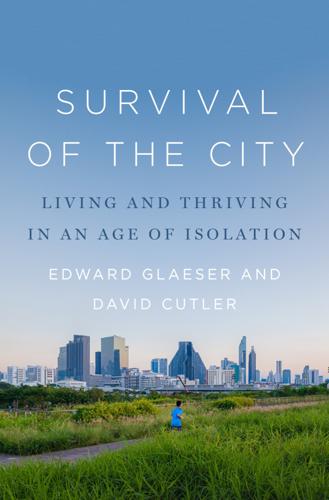
The Survival of the City: Human Flourishing in an Age of Isolation
by
Edward Glaeser
and
David Cutler
Published 14 Sep 2021
Samuel Pepys and the Infested Wig At the time of the Black Death, Europe’s greatest commercial cities, including Venice, Genoa, and Florence, were in the south, but, as the historian Jonathan Scott writes, “between 1500 and 1800, as Europe established its first global colonies, the Anglo-Dutch North Sea region overtook the Mediterranean as the epicenter of material and cultural capital.” The closely tied cities of London and Amsterdam led Republican revolts and sent their mercantile fleets across the globe. As their urban populations increased, their economies grew both more interconnected and more prone to suffer from contagious illness. The last major appearance of Yersinia pestis on English soil occurred in 1665 when London was already a great city with a population of 460,000.
…
The Return of the City By the 1990s, evidence was increasingly rejecting Toffler’s hypothesis that technology was eliminating either face-to-face contact or the cities that facilitate that contact. Wall Street boomed in the 1980s with information-intensive finance firms leading the way. Margaret Thatcher awoke London’s once sleepy financial services industry with her deregulatory “Big Bang” in 1986. London was soon fighting its way back to global preeminence. Between 1980 and 1990, nominal home values in Los Angeles County increased by 132 percent, or 35 percent after adjusting for inflation. Cities weren’t turning into ghost towns. But the most glaring fly in Toffler’s intellectual ointment was Silicon Valley.
…
Without fear of contradiction, we accept responsibility for any errors that remain. The world is not perfect. Unfortunately, neither are we. NOTES CHAPTER 1: THE CITY BESIEGED Earthquake and invasion: Mark, “Knossos.” Data from cellular phones: Glaeser et al., “Learning from Deregulation: The Asymmetric Impact of Lockdown and Reopening on Risky Behavior During COVID-19.” 32 million Americans: US Bureau of Labor Statistics, “Table B-1. Employees on Nonfarm Payrolls by Industry Sector and Selected Industry Detail.” UK employment in accommodation: UK Office for National Statistics, “Employment by Industry.” 22 percent of those: McKinsey, “COVID-19 in the UK.”
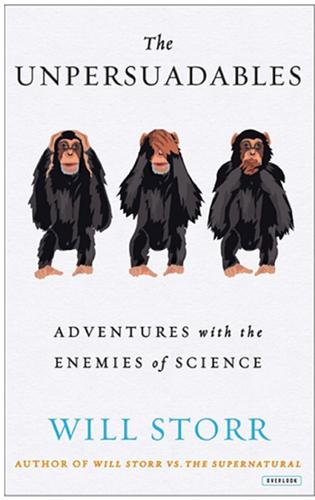
The Unpersuadables: Adventures With the Enemies of Science
by
Will Storr
Published 1 Jan 2013
Indeed, Lord Monckton spent four years at No. 10, objecting to what one day would become the Financial Services Act, the legislation that would come to seed our economic downfall. ‘But literally a month after I left Downing Street, the civil service pushed it through.’ ‘So that was deregulation?’ I clarify. He looks amazed. ‘No, no, no. It was imposing, for the first time, the most staggering over-regulation in the city of London.’ I sit up. ‘Hang on,’ I said. ‘I thought the banks began to behave badly because of a loosening of the rules – deregulation.’ ‘No, completely the opposite.’ ‘Really?’ ‘Oh, completely. I was there, you see. I said to Margaret, “For God’s sake, don’t go anywhere near this catastrophe.”
…
I found that it induced a kind of hypnotism through which the song and the hurt became indistinguishable. The music meshed with the pain and then it lifted it from me; it took its weight. And the louder the volume was, the greater the effect. Today, like a detuned radio picking up the distant echo of the big bang, I can still hear the noise of all that dead love. And I consider it only right and proper that it sounds like a scream. In my dim and lonely room in the Blue Mountains, I sit on my bed, listening to my brain damage and examining the small scar on my wrist. I think about my madness and recall that my preferred band during the Jenny years were The Afghan Whigs – well known in the 1990s for exploring themes of guilt and self-loathing.
…
Index Abduction (Mack) 28 Abraham 3 Abraham, John 204 Abu Ghraib prison, Iraq 70 Adam 2, 3, 5, 12, 26 Africa 73, 74, 115 afterlife 21 AIDS 213 ‘cures’ for 36, 38, 115 see also HIV alcohol abuse 66, 120, 165 cultural determinants of the effects of 83–84 aliens 22–30, 50–51, 58 abductions 23–24, 28, 51, 102–103, 170, 182 see also UFOs American Spectator (magazine) 213 amputees 82 anger, and belief 25, 30 animals identification with 186 psychic 258–60, 263, 265, 266, 271–72 Anmatyerr people 299 Annan, Kofi 32 anonymity 69, 70 Antas, Jaenelle 219, 222, 224, 227–29, 234–35, 237–38, 240, 242–43, 248, 253 anti-God rhetoric 4, 9 anti-homeopaths 95–96 anti-psychiatry 155 anti-psychotics 128, 145, 149, 152, 155, 182, 191 anti-Semitism 221, 229, 248, 252 anxiety 42–43, 45, 128, 187, 197 Aphrodite 302 appearance, overestimation of our 110, 242, 379 archetypes 302 Aristotle 218, 303 Aronson, Elliot 84, 88, 194, 243 art 300 Arthur, King 302 asanas 32 Asch, Solomon 71 Asimov, Isaac 271 atheists celebrity 9–10 scientist 211 Atkins, Peter 259 Attenborough, David 2, 5, 6 Auschwitz 225, 230 Auschwitz-Birkenau 229 Australian Aboriginal people 300–301, 313 Australian Central Desert 299, 313 Australian Museum 19 authority, excessive obedience to 70–72, 84 autobiographical memory, rewriting of 194 babies 75, 183 Balrishna, Acharya 35 banking, deregulation 214 Baumeister, Roy 89, 307–308 BBC see British Broadcasting Corporation Bechara, Antoine 187 Beecher, Lt-Col. Henry 41 behavioural patterns, release of 44 ‘being stared at’, sense of 255, 258, 262, 265, 276 beliefs coherent 218 core 183 and facts 201 faulty 84, 142, 182, 218 forcing onto others 311 of others 50–51 religious 197 simplified nature of 133 Benedetti, Fabrizio 42 Bentall, Richard 145–48, 155–57, 180, 310, 313 Benveniste, Jacques 110–12, 115 Beowulf 302 Berns, Gregory 71–2 Bible 2, 3, 4, 11, 12, 13, 14, 15, 16, 25 Condemnation of homosexuality 14–15, 18 Dragons of 13 Genesis 3–4, 13 Binary Judgments, 133–34, 309 Blair, Tony 94 Blind spots 79, 82 Blindness 82 Blizzard, Pam 289 Bloom, Paul 304 Blue Mountains 52, 64 Bortolotti, Lisa 182 brain 42, 70–92, 101–103 and confabulation 189–96 development 73 experience expectant’ nature 205 faulty beliefs of 84–91 information processing capacity 79 left/right hemispheres of 190–92 mental models of 76, 85–86, 102, 147–48, 183, 185–86, 316 and the mind 303–304 organic abnormalities of schizophrenia prefrontal cortex 73 size 75 and storytelling 188–89, 191–92, 305–307 tumours in 92–93, 116 breath control (‘Pranayama’) 32–26, 38, 40–41, 45, 56, 134, 196 British Broadcasting Corporation (BBC) 95 British Centre for Science Education 5 British Empire 209–210, 249, 250, 252–53, 309 British False Memory Society 170, 173 British Homeopathic Association 109 British Journal of Psychiatry 145 Browne, Sylvia 290 Bruner, Jerome ix, 303 Buddha 52 Buddhist meditation 52–62, 182 Buddhists 65, 70, 182 Bulger killings 171 Bush, George W. 87 Butler, Rab 232 Cambridge Union 210 Campbell, Joseph 303 cancer 93 ‘cures’ for 33, 35, 38–39, 116, 181, 242, 310 Cancer Act 1939 116 cannibalism 175 Cannon, Dolores 44 Capitalism 213, 217 Capolingua, Rosanna 39–40 carbon-dioxide levels 204 Carroll, Lewis 201 Carson, Rachel 211 Catholics 21 cause and effect 184–187, 189, 196, 206, 302, 304 Centers for Disease Control (CDC) 118–119, 124, 135 certainty human need for 132–34, 197, 252 rejection of 268 change 306 Charles E.
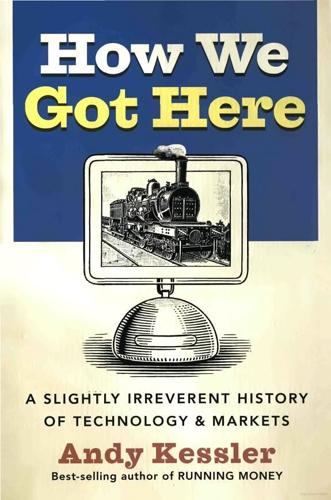
How We Got Here: A Slightly Irreverent History of Technology and Markets
by
Andy Kessler
Published 13 Jun 2005
It mainly traded metals like tin and copper, but soon shares of companies like the Russia Company and Levant Company began to trade. These trading companies were provided access to capital to build ships and finance trading expeditions, and the era of organized capital markets for the English was born. On Dec 31, 1600, when everyone else was singing Auld Lang Syne, 218 knights and merchants in the City of London created the East Indies Company, and were given exclusive rights by the crown to all trade in the East Indies. At the time, this was no lay-up as the Dutch and those nasty Portuguese controlled the trade routes. But the EIC, with a trading business and its own private military to protect it, became the largest Non Government Organization.
…
The NYSE of course refused, so he took his problem to Washington. Reform was in their air after a nasty bear market of 1974, when the Nifty Fifty turned shifty, and lost a fair amount of value. The Security Exchange Act of 1975 did away with fixed commissions on trading, and mandated an electronic National Market System. The socalled Big Bang would expose the fat cats on Wall Street to the full winds of technology-induced change and that was to be the end of them. Some, like a firm called White Weld, disappeared, mainly by merging into bigger firms. The rest adapted. THE MODERN STOCK MARKET 199 With most of the weak players wiped out from the paper crunch in 1969, and systems like DTC in place to handle the volume, Wall Street firms adapted to lower commissions by putting up their own capital to facilitate trades and getting paid for their liquidity.
…
It is now over half and growing. Those traders should have answered their phones. A big chunk of Wall Street’s small stock trading profits disappeared. *** Until 1975, technology was needed to save the back office and its clearing problems, but Wall Street enjoyed a period of fixed commissions and increasing volume. Big Bang meant commissions and spreads dropped, but volume increased. Large Wall Street firms THE MODERN STOCK MARKET 203 provided liquidity and their own capital to differentiate themselves. They quickly made up for declining commissions. The ‘80s saw trading volumes increase, and a bull market sure helps.
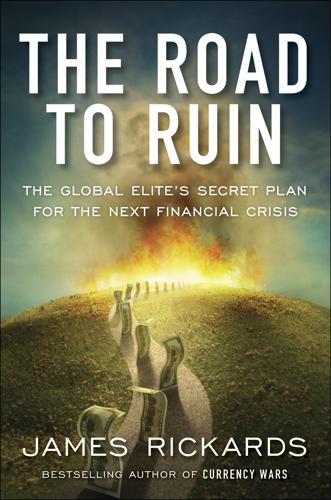
The Road to Ruin: The Global Elites' Secret Plan for the Next Financial Crisis
by
James Rickards
Published 15 Nov 2016
With the advent of war, French, Italian, and German investors all sold stocks in London and demanded proceeds in gold shipped to them by the fastest available means. Under the rules of the game, gold was the ultimate form of money, and it would be hoarded to fight the war. A global liquidity crisis commenced in lockstep with the political crisis. The City of London was then the unrivaled financial capital of the world. Selling from the Continent put pressure on London banks to liquidate their own assets to meet claims. What ensued was not a classic run on the bank, but a more complex liquidity crisis. Sterling-denominated trade bills guaranteed by London banks were not rolled over.
…
It’s not difficult to grasp. Investors must grasp it now if they wish to preserve wealth. The next panic will be too late. The ice-nine solution will lock down wealth and make it impossible to take defensive measures. Complex systems have existed since the beginning of time. The creation of the universe in the Big Bang more than 13 billion years ago instantaneously led to complex dynamics in stars, gases, galaxies, and finally planets. What is new is our understanding of complexity as a formal science. That understanding is traced to the 1960 Lorenz experiments. The timing of Lorenz’s breakthrough was not a coincidence.
…
Instead, Wall Street and Washington turned a blind eye to what occurred in 1998. Policymakers including Fed chair Alan Greenspan and Treasury Secretary Larry Summers persisted with their belief in flawed risk models. Rather than learn lessons, Greenspan and Summers doubled down by supporting Glass-Steagall repeal and derivatives deregulation that made the 2008 collapse inevitable. Today, we see lessons being ignored again. Wall Street is back to business as usual, relying on misleading models such as value at risk. The next catastrophe will be exponentially larger than the last two. The next time the world will not bounce back. The Experts I joined LTCM in February 1994 and reported to the firm’s founder, legendary bond trader John Meriwether, known as “JM.”
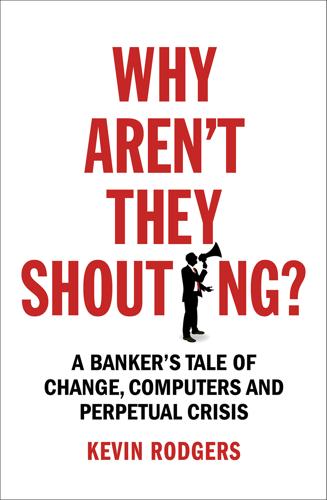
Why Aren't They Shouting?: A Banker’s Tale of Change, Computers and Perpetual Crisis
by
Kevin Rodgers
Published 13 Jul 2016
Throughout the 1980s and 1990s, there was a gradual relaxation of banking regulation in the US – the world’s biggest and most important financial market – culminating, in 1999, in the Gramm–Leach–Bliley Act that ended the separation of investment and commercial banking brought in by Glass–Steagall in 1933. As I have discussed before, this relaxation was accompanied by a merger wave in US banking. In a similar spirit, the Conservative government in the UK deregulated the City of London in 1986 in a series of measures dubbed ‘Big Bang’. Later, in 1997, the incoming Labour administration created a new regulatory regime, the philosophy of which was principles-based regulation (PBR) or ‘light touch’. The idea was that firms could best manage themselves within a regime based on principles, not detailed rules.
…
No one has ever been convicted of this crime although the terrorist group the Red Army Faction was the prime suspect for some time. Appendix 1: Euromoney FX Survey – Market Shares 1996–2015 Appendix 2: A Timeline of Events Mentioned in the Text Date Event 1973, May Black and Scholes option-pricing paper 1986, October ‘Big Bang’ regulatory regime in the UK 1987, October Stock market crash 1990, August Iraq invades Kuwait 1992, September ERM crisis, ‘Black Wednesday’ 1993, Summer Second ERM crisis 1993, Autumn Hedge fund LTCM set up 1994, February Federal Reserve unexpected rate rise; bond crash 1995 Deutsche Bank investment banking build-out starts 1996, May Bankers Trust settles with Procter and Gamble 1997, May Election of Tony Blair’s New Labour government in UK 1997, July Thailand devalues the baht 1997, October First big sell-off in Russian bonds 1998, August Russia defaults and devalues 1998, September Failure of LTCM 1998, November Deutsche Bank bids for Bankers Trust 1999, January Creation of the euro 1999 Merger of Prebon Yamane and Marshalls 1999, June Bankers Trust taken over by Deutsche Bank 1999, November Gramm–Leach–Bliley Act in the US repeals Glass–Steagall 2000, Spring Deutsche Bank wins Euromoney FX poll for first time 2001, September 9/11 attacks on World Trade Center and Pentagon 2003, Autumn EBS launches dealing API 2004, Spring Launch of EBS Prime 2005, May Deutsche Bank wins 2004 Euromoney poll 2005, Summer Barclays launch Precision Pricing; EBS opens to funds 2006, April EBS bought by ICAP 2006, July Deutsche Bank buys MortgageIT 2007, July Ratings agencies begin to downgrade CDOs 2007, September Run on Northern Rock 2008, September Collapse of Lehman Brothers 2008, October Introduction of the TARP; start of global recession 2010, May Flash Crash 2012, August Failure of Knight Capital; Collapse of EURCHF to 1.0000 2012, September SNB imposes EURCHF floor (cap on value of Swiss franc) 2013, December Closure of Deutsche Bank’s Commodities department 2015, January SNB abandons the EURCHF floor Notes Chapter 1 1 ‘Deutsche Bank Guide to Currency Indices’, George Saravelos et al., October 2007, p14, http://cbs.db.com/new/docs/DBGuideToFXIndices.pdf 2 ‘Interdealer Broking History’, Tullett Prebon, http://www.tullettprebon.com/about/about_ourstory.aspx Chapter 3 1 ‘Electronic Platforms in Foreign Exchange Trading’, Celent E-Forex Report 2007, Figure 10, https://forex-pdf.com/doc/1610--electronic-platforms-in-foreign-exchange-trading/?
…
A Ackermann, Josef, 226 Admati, Anat, 211 ‘agency’ model, 7 agency-like risk, 119, 127 aggressive prices, 14–15 AIG, 90, 174 algorithms, 58, 71, 72, 73, 76, 77, 78, 79, 192–4, 195 Alpari, 83 alternative assets, 146–7 American Home Mortgage Investment Corporation, 89 amputation analogy, 128, 129 analytic formula, 106 Apple, 234 Application Program Interfaces (APIs), 59–60, 66, 71, 78 arbitrage, 31–2, 42, 44, 54, 70, 72, 91, 133, 142, 152 Asia, 3, 37–8, 56, 58, 106, 114, 117–18, 135–7, 146, 228 Financial Crisis (1997), xi, 114, 135–7, 139, 146, 228 Asian options, 106 assets, 6, 89, 92–5, 97, 104, 108, 112–14, 116, 117, 123, 136, 146, 147, 149, 150, 154–7, 160, 166–74, 203, 211, 223, 228, 233 alternative, 146–7 risk-weighted assets (RWA), 124–31, 134, 166, 208, 211 Atom Bank, 233 atomic bomb, see nuclear bomb Australia, 30, 65 dollars, 28, 75 Autobahn, 48–51, 53, 64, 68, 69–70, 78, 225 Automated Risk Manager (ARM), 53–5, 56–9, 64, 67, 70–1, 72, 73, 76, 79, 101, 129, 169 B back testing, 149 BaFin, 200, 202 bandwidth, 71 ‘banging the close’, 190 Bank for International Settlements (BIS), 73, 77, 80, 208 Bank of America, 174 Bank of England, 32, 173, 182, 233 bank runs, 89 bank tax, 216 Bankers Trust, xi–xii, 3–6, 24, 29–37, 40, 44, 46, 48, 65, 68, 103–14, 116–35, 137–143, 149, 166, 168, 169 carry trade, 108–10 Deutsche Bank takeover, 29–30, 34–5, 37, 46, 48, 166, 168 Emerging Markets, xi, 29–30, 116–17, 130–1, 143 Engine, 127–31, 135, 139, 157, 167, 169 exotic derivatives, 105–11, 127 Gibson Greetings suing, 109 Monte Carlo pricing, 111–14, 150 Procter and Gamble suing, 109 quantitative analysis, 103–8, 110–14, 126, 150 Risk Management, 122–31 risk-adjusted return on capital (RAROC), 126–7, 131 rouble-denominated bonds (GKOs), 118–32, 134, 138–43, 149, 152, 158, 159, 173 Russian Financial Crisis (1998), 115–16, 124, 137–143 Spreadsheet Solutions Framework (SSF), 111, 121, 138, 153 value at risk (VaR), 127–31, 135, 139, 169 Barcelona, Spain 87–9, 151, 159, 171, 172 Barclays, 63–6, 67, 68, 167, 186–7, 197 barrier products, 104, 107, 108 BARX, 64, 65 Basel Accords, 124, 125, 130, 166, 207–9, 211, 217, 231 basis points, 12 basis risk, 152 Bear Stearns, 88–9, 90, 172, 230 Bentham, Jeremy, 199 Berlin Wall, 204 Bernanke, Ben, 90 bid-offer spreads, see spread ‘Big Are Getting Bigger, The’, 41, 145 Big Bang (1986), 201 big figure, 13 binomial tree, 112–14 Bitcoin, 234 Black Monday (1987), 108, 138, 204, 207 Black–Scholes formula, 94–5, 97, 99, 105, 128, 219 Black, Fischer, 94–5, 97, 134, 135 BlackBerries, 169 Blackpool, England, 33 Blair, Tony, 120 Bloomberg, 9, 22–3, 142, 187, 189, 191, 197 Bohr, Niels, 43 bonds, xiv, 8, 23, 28, 33, 38, 89, 108–10, 118–43, 146–7, 151, 154–64, 170–2, 174, 192, 197, 211, 224–5 carry trade, 108–10 collateralised debt obligations (CDOs), xiv, 154–64, 170–2, 174, 192, 224–5 credit default swaps (CDSs), 151 mortgage-backed, xiv, 197 rouble-denominated (GKOs), 118–32, 134, 138–43, 149, 152, 158, 159, 173 total return swaps (TRSs), 119–20, 136, 152 US government, 119, 129, 133, 147 bonuses, 5, 117, 161, 210, 216 boxes and arrows, 159 Brazil, 167, 231 Breuer, Rolf, 42 Bristol, England, x British Bankers Association (BBA), 182, 187 British pound, 9, 13, 28, 53, 184 Bruno, Philip, 234 BTAnalytics, 107, 108, 112, 134, 150 Businessweek, 170 C Cable, 9, 13, 28 California, United States, 234 calls, 19–21, 23, 27, 51, 53, 98, 99 Cambios, 21, 123 Cambridge University, 165 Canada, 88, 172 dollars, 28 Cannes, France, 35, 41, 44, 46, 55, 64, 65, 77 carry trade, 108–10 Case–Schiller index, 163, 170 cash settlement, 109 ‘CDO-squared’, 161 central banking, 79, 102–3, 187, 193, 220 Central Counterparties (CCPs), 209, 213–15, 229 chain of command, 224–6 Chase Manhattan, 51, 168, 169 Chemical Bank, 168, 169 Chicago Mercantile Exchange (CME), 193, 209 China, 78, 149, 229 Chopin, Frédéric, 61 circuit breakers, 80 Citigroup, 23, 27, 36–7, 47, 51, 68, 167, 216, 226, 229 Clackatron, 32–3, 54, 91 Cold War, 204 collateralised debt obligations (CDOs), xiv, 154–64, 170–2, 174, 192, 224–5 multi-sector CDOs, 155 risk 154, 156, 158–63 sub-prime mortgages, 159–60, 170–2 synthetic, 163–4 tranches, 154–9, 161, 174, 208 colocation, 71 colonial currencies, 28 commodities, viii, xii, 144–50, 153–4, 157, 174, 223, 231–2 commodities indexes, 147–50, 153–4, 157, 163 commoditisation, 110–11 Commodity Futures Trading Commission (CFTC), 202 commodity futures, 92 Communism, 199 complex risk, 159, 222 complexity, 90, 100, 103–14, 121, 127, 130, 134, 136, 143, 157, 196, 200–1, 218–24, 225, 228, 229 Comprehensive Capital Analysis and Review (CCAR), 212 computers, ix–x, xii–xv, 6, 21–8, 32–55, 56–84, 89–90, 99–114, 116, 121, 127, 130, 134, 136, 138, 143, 144, 147, 150, 157, 160, 161, 164, 167, 169–70, 172, 190–200, 209, 213, 218–24, 225, 228, 231–5 algorithms, 58, 71, 72, 73, 76, 77, 78, 79, 192–4, 195 Autobahn, 48–51, 53, 64, 68, 69–70, 78, 225 Application Program Interfaces (APIs), 59–60, 66, 71, 78 Automated Risk Manager (ARM), 53–5, 56–9, 64, 67, 70–1, 72, 73, 76, 79, 101, 129, 169 BARX, 64, 65 BTAnalytics, 107, 108, 112, 134, 150 Clackatron, 32–3, 54, 91 complexity, 90, 100, 103–14, 121, 127, 130, 134, 136, 143, 157, 196, 200–1, 218–24, 225, 228, 229 DBAnalytics, 150, 153 decimalisation, 63–6, 67, 73, 77 decentralisation, 232–5 efficiency improvements, 169–70 Electronic Broking Services (EBS), 24–8, 31, 32–3, 42, 45, 46, 48, 50, 59–60, 63, 69–70, 71, 72, 73, 77, 83, 188 Electronic Communication Networks (ECNs), 59, 61, 66, 193 Engine, 127–31, 135, 139, 157, 167, 169 FX-fixing scandal (2013), 190–2 OPTICS, 101, 103, 131, 153, 170 options trade automation, 27, 33, 38–47 Piranha, 48 prime brokerage (PB), 61–3, 66, 120, 209 regulation, 209, 213 Revolutionary Application Program Interface Development (RAPID), 56–9, 77, 101 Reuters Dealing machines, 23, 25–8, 31, 32, 50, 59, 73 rogue systems, 79–80 screen scraping, 32–3, 50, 59 simplification, 231–2 spoofing, 192–3 spot trade automation, 23–8, 31–3, 42, 48–55, 56–84, 111, 199, 201 spreads, 80–3 concentration risk, 213 Conservative Party (UK), 201 correlation, 14, 79, 129–30, 142, 156–8, 160, 163 cost–benefit analysis, 41 Costello, Elvis, 140 counterparty credit risk, 141–2, 172, 201, 209 Countrywide, 90 credit default swaps (CDSs), xiv, 150–3, 157, 158, 164, 225 credit risk, 7, 8, 62–3, 123, 125–6, 130, 141, 151, 209 counterparty, 141–2, 172, 201, 202–3, 209 Credit Suisse, 140, 198 credit trading, 146–7, 150–63, 166, 175, 224 crowd-funding, 235 currency pairs, 9, 12, 14, 46, 53, 75, 80 Currenex, 59 CVIX, 74 D D:Ream, 120, 121 daisy-chaining, xiv DBAnalytics, 150, 153 decentralisation, 232–5 decimalisation, 63–6, 67, 73, 77 delta hedging, 97 ‘dentists, the’, 82–3 deposits, 124 derivatives, xi, xii, xiv, 44–5, 87, 91–114, 118, 119, 121, 127, 132, 134, 138–43, 144–5, 150–74, 182–6, 189, 196, 209, 210, 214, 218–25, 231 Asian options, 106 barrier products, 104, 107, 108 carry trade, 108–10 collateralised debt obligations (CDOs), xiv, 154–64, 170–2, 174, 192, 224–5 commoditisation, 110–11 credit default swaps (CDSs), xiv, 150–3, 157, 158, 164, 225 delta hedging, 97 democratisation, 108, 219 double knockouts, 107 exotics, 105–11, 127 foreign exchange, 10, 13, 20, 23, 27, 33–4, 38, 43–7, 49, 77, 95–114, 222–3 forward rate agreements (FRAs), 182 gamma, 97–8, 100 Greeks, 98, 99, 101, 105, 107, 110, 111, 112, 114, 127, 129, 150, 157, 158, 182, 219 interest rate derivatives, 8, 92, 104, 132, 182–6, 214 lattice methods, 112, 150, 157 lookbacks, 107 over-the-counter (OTC) market, 96, 209 power options, 107 pricing, 91–5, 107, 111–14, 128, 133, 150 range trades, 107, 108 rho, 98 risk-weighted assets (RWA), 124–31, 134, 166, 208, 211 spoofing, 99, 192–3 strike price, 94, 95, 104, 113, 218 swaps, 8, 92, 119–20, 121, 125, 126, 132, 134, 136, 141, 148, 149, 152, 173 theta, 98, 140 time decay, 98 total return swaps (TRSs), 119–20, 136, 152 tree approach, 112–14 vega, 98 volatility, 94, 98, 128–9 weather, 144–5, 146 zero coupon bonds, 118–31, 134, 138–43, 149, 152, 158, 173 desk real estate, 25 Deutsche Bank, vii–x, xii–xiii, 12, 21, 23, 28, 29–30, 33–55, 56–80, 84, 87, 101, 122, 144–74, 179–80, 187, 190, 195–6, 199, 200, 201, 209–10, 212–13, 216, 222, 224–6, 231 Autobahn, 48–51, 53, 64, 68, 69–70, 78, 225 Automated Risk Manager (ARM), 53–5, 56–9, 64, 67, 70–1, 72, 73, 76, 79, 101, 129, 169 BaFin audits, 200, 202 Bankers Trust acquisition, 29–30, 34–5, 37, 46, 48, 166, 168 Barcelona Conference, 87–9, 151, 159, 171, 172 Commodities, 144–50, 153–4, 157, 165, 175, 223, 231–2 Complex Risk, 159, 222 Compliance, 195, 196 Corporate and Investment Banking division, 166 Credit Trading, 146–7, 150–63, 166, 175, 224 CVIX, 74 DBAnalytics, 150, 153 e-trading, 55, 57, 67–73, 75, 84, 122 Foreign Exchange, vii–x, xii–xiii, 12, 21, 23, 28, 29–30, 33–55, 56–80, 84, 87, 101, 122, 165, 175, 210, 212–13, 224, 225 FX-fixing scandal (2013), 187, 190 Global Currencies and Commodities, 165–6 Great Financial Crisis (2007–8), 174–5 Liquid Commodity Index (DBLCI), 148, 149 market share, 36, 41, 48, 51–2, 54, 55, 56, 57, 64, 66–8, 70, 77 MortgageIT acquisition, 160 offsites, 35–41, 46, 55, 64, 65, 77 options trade automation, 27, 33, 38–47 Plankton Strategy, 38, 40, 55, 58 production credits, 49, 50 regulation, 200, 202, 209–10, 212–13 Revolutionary Application Program Interface Development (RAPID), 56–9, 77, 101 Risk Management, 175, 206–7, 209, 226 risk-weighted assets (RWA), 124–31, 134, 166 simplification, 231–2 small deals team, 52, 55 spot trade automation, 48–55, 56–77 video messaging system, 71 weather derivatives, 144–5, 146 Deutschmark, 9, 96, 97, 99, 100, 104 Dewar, Sally, 197 Dickens, Charles, 162 Digital Reasoning Systems Inc., 197–8 dividends, 91, 147, 212 Dodd–Frank Act (2010), 209, 230 Dostoyevsky, Fyodor, 30 dot-com boom (1997–2000), 37, 146, 207 double knockouts, 107 Dow Jones, 79, 138, 147 Dresdner Bank, 20, 48 drive-bys, 17, 20, 68, 132 E e-trading, 55, 57, 67–73, 75, 84, 122 efficiency improvements, 169–70 efficient market theory, 203 Electronic Broking Services (EBS), 24–8, 31, 32–3, 42, 45, 46, 48, 50, 59–60, 63, 69–70, 71, 72, 73, 77, 83, 188 Electronic Communication Networks (ECNs), 59, 61, 66, 193 elephant deals, 38 email, 169, 191, 195, 197, 199 emerging markets, xi, 6, 29–30, 116–43, 147, 228 Empire State Building, New York, 130 ‘Engine’, 127–31, 135, 139, 157, 167, 169 engineering, x–xi, 10 Enron, 156 equities, viii, 23, 50, 66, 71, 74, 80, 89, 95, 146, 193, 207, 211, 235 circuit breakers, 80 colocation, 71 sales-traders, 50, 78 euro, 22, 28, 31, 37, 53, 69, 80, 81–3, 189 Euromoney, 36, 41, 47, 51–2, 54, 55, 56, 57, 64, 66–8, 70, 77, 81, 233 Europe, Middle Eastern and African (EMEA) markets, 117–18 European Union (EU), 102, 196, 201, 203, 207, 210, 212, 230 Exchange Rate Mechanism (ERM), xi, 22, 102–3, 106, 123, 130, 136, 207, 224 Liikanen Report (2012), 230 Maastricht Treaty (1992), 102 Market Infrastructure Regulation (EMIR), 209 ‘Every Day I Write the Book’ (Elvis Costello), 140 Excel, 107, 221 exchange rates, 9, 11–13, 14, 17, 32, 100 exotic derivatives, 105–11, 127 F ‘F9 monkeys’, 221 Fannie Mae, 90 Federal Reserve, xii, 90, 109, 143, 187, 202–6, 212 Federal Reserve Bank of Chicago, 193 fibre-optic cables, 77, 84 FIFA (Fédération Internationale de Football Association), 167 Financial Conduct Authority (FCA), 190 Financial Services Act (2013), 210 Financial Stability Board (FSB), 212, 214, 216 Financial Times, 116, 187 financial transactions tax, 216 fines, 181, 190, 196 First Chicago, 168 Fitch, 155 fixings, 181, 187–92, 198 Flannery, Mark, 215 Flash Crash (2010), 79–80, 193 Florence, Italy, 78 Florida, United States, 116 football, 10–11, 43, 83, 117, 167, 195 Forbes, 234 foreign direct investment (FDI), 136 foreign exchange (FX), viii, xi, xii, xiv, 3–28, 29–55, 56–84, 89, 90–1, 95–114, 115–44, 145, 158–9, 165, 174, 175, 180, 181–94, 196–7, 210, 213, 222–3, 224, 225, 233 aggressive prices, 14–15 Application Program Interfaces (APIs), 59–60, 66, 71, 78 Autobahn, 48–51, 53, 64, 68, 69–70, 78, 225 Automated Risk Manager (ARM), 53–5, 56–9, 64, 67, 70–1, 72, 73, 76, 79, 101, 129, 169 banging the close, 190 BARX, 64, 65 bidirectional flows, 69 calls, 19–21, 23, 27, 51, 53, 98, 99 carry trade, 108–10 Clackatron, 32–3, 54, 91 colocation, 71 complex risk, 159, 222 corporations, 9, 36, 61, 76, 96, 109–10 costs, 42 currency pairs, 9, 12, 14, 46, 53, 75, 80 decimalisation, 63–6, 67, 73, 77 drive-bys, 17, 20, 68, 132 Electronic Broking Services (EBS), 24–8, 31, 32–3, 42, 45, 46, 48, 50, 59–60, 63, 69–70, 71, 72, 73, 77, 83, 188 Electronic Communication Networks (ECNs), 59, 61, 66, 193 elephant deals, 38 emerging markets, xi, 6, 29–30, 116–43 Engine, 127–31, 135, 139, 157, 167, 169 fixings, 181, 187–92, 198 forwards trades, 10, 52, 77, 92, 121 hedge funds, 9, 29, 36, 57, 61, 66, 69–74, 77, 81, 120, 123, 131–5, 141–3 hedging, 97, 108, 117–18, 190, 225 high frequency trading (HFT), 57, 63, 73, 74, 75, 76, 77, 80, 84, 180, 194 LIBOR scandal (2012), 181–7, 188, 189, 190, 197, 198 liquidity, 18–19, 21, 27, 80–1, 83, 233 making rates, 13–21, 27, 38–9, 50, 96 market makers, 18–19, 21, 83 market shares, 41, 48, 51–2, 54, 55, 65, 66–8, 70, 77, 81, 169 ‘mine-and-yours’, 15–16, 18, 19, 192 Monte Carlo pricing, 111–14 off system trades, 111 OPTICS, 101, 103, 131, 153, 170 options trade, 10, 13, 20, 23, 27, 33–4, 38, 43–7, 49, 77, 95–114, 222–3 over-the-counter (OTC) market, 96, 209 passive v. active strategies, 17–19 pay, 43 pension funds, 9, 61, 76, 96 pips, 13, 18, 41, 65, 73, 77 Piranha, 48 pre-deal services, 8 prime brokerage (PB), 61–3, 66, 120, 209 production credits, 49–50 proprietary trading, 22, 31, 39, 46–7, 125 relative value trades, 72–3 retail trade, retail aggregators, 21, 61, 66, 74, 75, 79, 82–3 Reuters Dealing machines, 23, 25–8, 31, 32, 50, 59, 73 Revolutionary Application Program Interface Development (RAPID), 56–9, 77, 101 risk, 15, 16, 19, 20–1, 24, 29, 31, 38, 39, 40, 44–5, 49, 51, 53, 62, 77, 95, 96, 98, 99, 101–8, 110–14, 121–31, 135, 192 risk management systems, 24, 40, 44–5, 53–5, 56–9, 64, 67, 70–1, 72, 73, 76, 77, 79, 99, 101–8, 110–14, 121–31, 135 rogue systems, 79–80 salespeople, 8–9, 11, 13–15, 20, 24, 28, 29, 33, 35, 37, 46, 47–52, 68, 96, 120 settlements, 5, 24, 40, 44, 51, 61, 101, 209 screen scraping, 32–3, 50, 59 skewed prices, 18, 19, 73, 96, 98 slippage, 188–9 speculation, 21, 31, 102–14 spot, 3–28, 33–4, 42–4, 46, 48–55, 67, 76, 77, 91, 96, 97, 98–9, 108, 111, 118, 122, 159, 165, 169, 188, 189, 199, 201, 222 spread, 12, 14–15, 16, 18, 19, 31, 41–2, 44, 45, 53, 55, 61, 64, 68, 69, 75, 80, 96, 225 traders, 3–28, 33, 35, 38, 41, 43, 46, 50, 52–4, 67, 73, 76, 78, 96, 99, 122, 189 Triangle arbitrage, 31–2, 42, 54, 91, 122 two-way pricing, 11–21, 23, 99 volatility, 14, 26, 46–7, 74–5, 80, 98, 137 wallet, 40 window, 118, 137, 188 WM/R, 187–8 zero coupon bonds, 118–32, 134, 138–43, 149, 152, 158, 159, 173 forward rate agreements (FRAs), 182 forwards trades, 10, 52, 77, 92, 121 Four Seasons, The, 3–5, 9 France, 6–7, 35, 37, 41, 46, 55, 64, 65, 77, 102, 140, 159, 207 Freddie Mac, 90 free market economics, 202–6 FTSE 100, 147 Fuld, Dick, 226 FX All, 59, 78 FX-fixing scandal (2013), 181, 187–92, 198 FXCM, 82–3 G G20 nations, 209, 212, 216 gambling, 31, 102–14 gamma, 97–8, 100 Gaussian copula, 158 geekiness, x, 10, 43, 223 geopolitics, 229 Germany, vii–x, xii, xiii, 16, 28, 36, 44, 54, 75, 144–5, 159, 167, 180, 200, 204 mark, 9, 96, 97, 99, 100, 104 Gibson Greetings, 109 GKOs (rouble-denominated bonds), 118–32, 134, 138–43, 149, 152, 158, 159, 173 Glass–Steagall Act (1933), 168, 201, 230 globally systemically important banks (G-SIBs), 216 Goldman Sachs, 23, 146, 198, 216, 230 Commodity Index (GSCI), 148 Google, 78, 234 GQ, 141 Gramm–Leach–Bliley Act (1999), 168, 201 Great Depression (1929–39), 168 Great Financial Crisis (2007–8), xiii, xiv–xv, 74–5, 87–90, 114, 124, 163, 172–5, 179–80, 196, 204–6, 207, 217, 219, 220, 223, 227–8 Greece, 82, 92, 181 Greeks, 98, 99, 101, 105, 107, 110, 111, 112, 114, 127, 129, 150, 157, 158, 182, 219 Greenspan, Alan, 202–6 GSA, 233 Gulf War (1990–1), xi, 22, 95 Gulliver, Stuart, 231 H ‘haircuts’, 132 Haldane, Andrew, 173 hand signals, 16 Hang Seng, 137 Harrison, William, 168 Harrow School, London, 149 Harvard University, 166 La Haye Sainte, Belgium, 10 hedge funds, xi, 9, 29, 36, 57, 61, 66, 69–74, 77, 81, 97, 114, 116, 122, 123, 131–5, 141–2, 164, 171, 172, 201, 229, 233 hedging, 94, 95, 97, 108, 117–18, 144, 145–6, 157, 190, 225, 226 delta hedging, 97 Hellwig, Martin, 211 Henry, John, 28 Herrhausen, Alfred, 226 high frequency trading (HFT), 57, 63, 73, 74, 75, 76, 77, 80, 84, 180, 194 Hodgkin, Howard, 195 Holder, Noddy, 232 Hong Kong, 137 Hotspot, 59 Hounslow, London, 193 HSBC, 216, 229, 231 Hussein, Saddam, 22, 95 I ICAP, 73 Iceland, 167, 174 identity theft insurance, 231 Immendorff, Jörg, 56 indexes, 147–50, 153–4, 157, 163, 190 India, 149 Indonesia, 135, 137, 139 IndyMac, 90 initial margin, 120, 132 insurance, 93, 151, 164, 168, 172, 174, 229 Intelligent Flow Monster, 146 interest rates, viii, 7, 10, 92, 108–10, 135, 225 carry trade, 108–10 derivatives, 104, 132, 182–6, 214 futures, 182 LIBOR (London Interbank Offered Rate), 109, 181–7, 188, 189, 190, 197, 198 swaps, 8, 92, 182–4 International Monetary Fund (IMF), 132, 135, 140, 211, 214, 230 International Swap Dealers Association (ISDA), 152, 153 Internet, xii, 5, 42, 76, 78, 169, 191–2, 195, 197, 199, 228, 233–5 investment banking, 36, 87, 110, 133, 145–6, 151, 158, 165–8, 229–30 iPhone, 5, 228 Iran, 181–2 Iraq, xi, 22, 95 Israel, 29, 138 Italy, 10, 13, 22, 78, 115–16, 141 lira, 22, 102–3, 123 iTraxx, 153 J Jagger, Mick, 87 Japan, 61, 72, 79, 159 yen, 9, 14, 17, 28, 71–2, 75, 79, 80, 136, 184 JPMorgan Chase, 131, 150, 158, 163, 168, 182, 197, 216, 229, 231, 23 J.
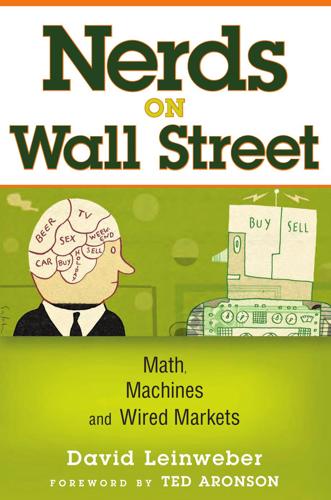
Nerds on Wall Street: Math, Machines and Wired Markets
by
David J. Leinweber
Published 31 Dec 2008
Many facets of trading are more like blitz chess than high-level tournament chess play. Job Insecurity for Traders There is no shortage of paycheck anxiety among traders. Their numbers have been dropping. IBM’s consulting arm published a report called “The Trader Is Dead, Long Live the Trader.”8 A Finextra headline, “City [of London] Trading Jobs to Fall by 90% as Banks Take Up Algorithmic Technology,”9 no doubt contributed to trader stress. Even the Economist magazine, in a story headlined “The March of the Robo-Traders,” observed that “programs that buy and sell shares are becoming ever more sophisticated. Might they replace human traders?”
…
An Illustrated History of Wir ed Markets 7 Changes in markets brought about by technology are anything but subtle: The exchange floor in Tokyo closed down and was replaced by electronics in 1998. Here’s an earlier example, the London Stock Exchange trading floor the day before . . . . . . and the day of the introduction of screen trading—the so-called Big Bang—on October 27, 1986. You could have gone bowling and no one would have noticed. The trading floors that have been emblematic of financial markets around the world are an endangered species. Brokers and traders who used to rely on fast reflexes and agile elbows and knees now rely on computer programs, tweaked to be milliseconds faster than the next guy’s program.
…
It is reminiscent of the joke about the mathematician who wakes up in a hotel that is on fire, walks to the sink, turns on the water, says, “A solution exists,” and goes back to sleep. There is a vast amount of work to be done. From the Vault: Bits, Bucks, and BTUs I first wrote about this subject in a RAND paper, “Real Time Pricing and Deregulating the Electricity Market,”8 published in 1980—at the same time as the other RAND paper mentioned in the Introduction, Kevin Lewis’s banned classic “The Tumescent Threat.”9 I was flattered that RAND scanned the paper version of my work and reissued it last year on its web site. This work was done at the end of the Carter administration as part of RAND’s research program sponsored by the Department of Energy and the EPA.
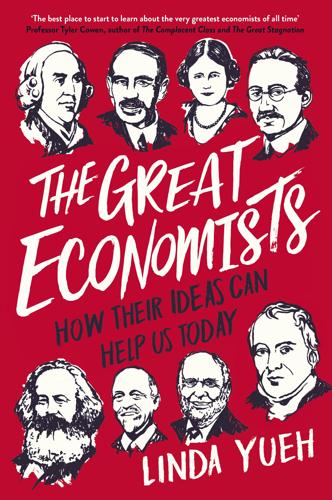
The Great Economists: How Their Ideas Can Help Us Today
by
Linda Yueh
Published 15 Mar 2018
In Ricardo’s day, more than one in two of the very wealthy men in Britain were landowners, a statistic all the more surprising because the Industrial Revolution had created fortunes for industrialists. Apart from land, the wealthy were in commerce and finance, for example bankers, brokers, merchants and ship owners. With his origins in the City of London, the financial centre of the world, and his huge country estates, Ricardo had a foot in both camps of the elite of his time. The bottom tier of society was the newly created class of wage earners. By the middle of the nineteenth century, the share of workers earning industrial wages had increased to around 80 per cent, more than doubling in a century.4 Thus, a simplified three-tiered social structure formed the basis of Ricardo’s economic models.
…
The period, which became known as the Industrial Revolution, saw the economy transformed from an agrarian society into one characterized by factories owned and run by merchants who traded their wares both at home and overseas. In our own times, Britain and several other advanced economies, including the United States, have experienced yet another fundamental structural change: deindustrialization. Since the 1980s Thatcher-era reforms that liberalized the financial sector – notably the ‘Big Bang’ of 1986, when markets were opened up to greater competition – Britain has seen industry give way to services. (Relatively speaking, that is. The UK is still the ninth biggest manufacturer in the world, and was in the top five until around 2004.) Similarly, although the US remains the second biggest manufacturer in the world (having been overtaken recently by China), its services economy accounts for the larger part of American national output.
…
Along these lines, Smith believed that some government intervention was warranted, but he was specific as to which areas. For instance, the state should maintain good transport facilities (roads, canals, navigable rivers), as that would break monopolies and encourage competition. His preference was to see such facilities regulated by local administration, or even deregulated if that lowered the cost of maintenance.19 Smith also advocated government spending on education. He worried about the impact of the division of labour on people, particularly of repetitive assembly work: ‘[The worker] naturally loses, therefore, the habit of such exertion, and generally becomes as stupid and ignorant as it is possible for a human creature to become.’20 In his view, government had an obligation to counteract this effect with some provision of universal education.

Human Frontiers: The Future of Big Ideas in an Age of Small Thinking
by
Michael Bhaskar
Published 2 Nov 2021
Since their earliest days cities have been the creative locus of our most important ideas, home to accumulations of knowledge and capital, auto-catalytic centrifuges for serendipitous linkages, agglomerations of trades and crossfertilisations. Despite some signs that remote working may dent their importance, they remain the world's recombinant factories, its engines of idea diffusion. Clusters within cities (think Silicon Valley or the City of London or Hollywood) are the key sites for knowledge spillovers, a central plank of the theory that ideas underwrite economic growth: inventors are, for example, more likely to cite patents from inventors in the same city.36 Without urban clustering, the US would produce around 11 per cent fewer patents per year.37 In 1800 only 2 per cent of the population was urbanised.
…
Assess a large enough sample of these comparisons (they looked at 4483) over enough influential scientists and you should have a reasonable picture of how science understands its own progress; that is, whether a discovery in a given decade is ranked as more significant than those in other decades. In physics the period between the 1910s and the 1930s was a clear high point, a golden age which established the foundations of the modern discipline. But, with the exception of a spike in the 1960s (which saw the discovery of cosmic background microwave radiation and the Big Bang, and the establishment of the standard model of particle physics), that significance has never been recaptured. In physiology and chemistry there are perhaps slight upward curves, but those are small and there is still a lot of variance over the decades. Across disciplines there was a decreased tendency to award prizes for recent work compared with previous decades.
…
What is at stake is the ability of science to revolutionise itself with profound shifts of view. Will we have another discovery with the significance of heliocentrism, Darwinian natural selection, Mendel's genetics, quantum mechanics, Bohr and Pauling's unification of physics and chemistry, the structure of DNA, the Big Bang? Some, like the science writer John Horgan, believe this is unlikely, although that claim remains controversial.34 The making of such revolutions will however get more difficult and require more input. They are by no means guaranteed. This is borne out by the conduct of science today. Before the Second World War the phrase ‘Big Science’ would have been meaningless.
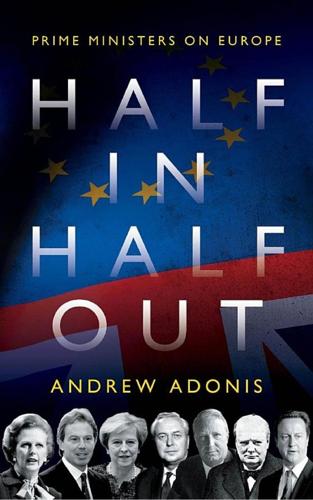
Half In, Half Out: Prime Ministers on Europe
by
Andrew Adonis
Published 20 Jun 2018
Not atypically it would be final agreement on a directive in some niche part of the financial services industry, discussed for months if not years, and now agreed between officials after tortuous discussion. Over the weekend, financial journalists would be told that Gordon was fighting for the future of the City of London. On Tuesday, we would awake to stories about Brown going into the lions’ den in Brussels. At the end of the Council, Gordon would march straight into the press conference and proclaim victory, for a deal that had been sorted out between officials weeks earlier. This wasn’t a Chancellor signing up to a national changeover plan.
…
Not atypically, it would be final agreement on a directive in some niche part of the financial services industry, discussed for months if not years, and now agreed between officials after tortuous discussion. Over the weekend, financial journalists would be told that Gordon was fighting for the future of the City of London. On Tuesday, we would awake to stories about Brown going into the lion’s den in Brussels. At the end of ECOFIN, Gordon would march straight into the press conference and proclaim victory, for a deal that had been sorted out between officials weeks earlier. Clever and perhaps just slightly cynical politics, you might think.
…
There is speculation as to whether May was a mere vessel for Timothy’s ideas or whether she also shared his distinct values. In terms of her actions, she appears to have shared them erratically. At an early stage of May’s tenure the newly appointed Chancellor, Philip Hammond, stressed to her the importance of the financial sector to the UK economy and argued that a key Brexit priority must be to protect the City of London from sweeping changes. May did not altogether concur. She told Hammond that the UK had been far too dependent on the financial sector for too long, and that she saw Brexit partly as an opportunity to recalibrate the British economy. This was ideological overconfidence of a rare order. The Treasury was aghast.
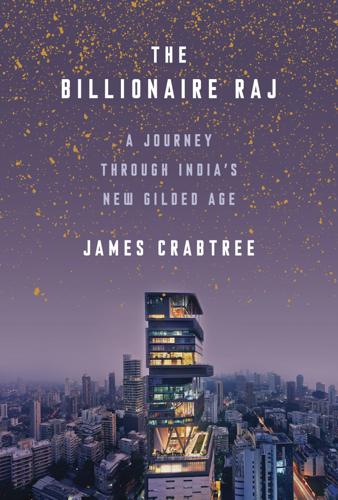
The Billionaire Raj: A Journey Through India's New Gilded Age
by
James Crabtree
Published 2 Jul 2018
That figure stood at four percent when the last British troops left, not long after Independence in 1947, the final battalion marching out through the grand basalt arch of Mumbai’s Gateway of India, just down the road from the apartment in which my wife and I would later live.10 Yet even under the yoke of imperialism local merchants still sent plentiful cargoes to Liverpool and Manchester, while Indian capital coursed through the exchanges of the City of London. It was only after Independence that Jawaharlal Nehru, a cerebral Cambridge-educated lawyer and the nation’s first prime minister, began to abandon a heritage as a trading power that stretched back two thousand years. The point is that these decades of self-imposed quarantine were the exception.
…
This is the reason India is often described as having a weak state but a strong society: a social order that “successfully curbed and blunted the ambitions of political power, and made it extraordinarily resistant to political moulding,” as academic Sunil Khilnani once put it.42 The BJP once before ran a government that pushed economically liberal ideas, only to lose an election in 2004 that it was widely expected to win. Modi has learned that lesson. He governs as a populist, in the sense that he enjoys being popular, and has steered clear of divisive “big bang” reforms. Over a decade and a half in public life, he has never once lost an election. He does not intend to start now. The most dispiriting episodes have occurred when Modi had easy opportunities to push forward with development reforms and yet still opted not to do so. One came after his sweeping election victory in UP in 2017, when he picked Yogi Adityanath, a radical Hindu preacher, as the state’s next chief minister.
…
Starting slowly in the 1980s, and then more dramatically against the backdrop of a wrenching financial crisis in 1991, India dismantled the dusty stockade of licenses and tariffs that had protected its economy for a generation or more. Strict industrial rules controlling what could be made and by whom—a convoluted system sometimes known as the “License-Permit-Quota Raj,” or just “License Raj” for short—were scrapped. A clear-out began of companies cosseted under the old regime, via deregulation, foreign investment and heightened competition. In sector after sector, from airlines and banks to steel and telecoms, the ranks of India’s tycoons began to swell. Yet this growth was also intimately bound up in a larger global story. The early 2000s were the heyday of the “great moderation,” a moment when world interest rates stayed low and industrialized nations grew handsomely.
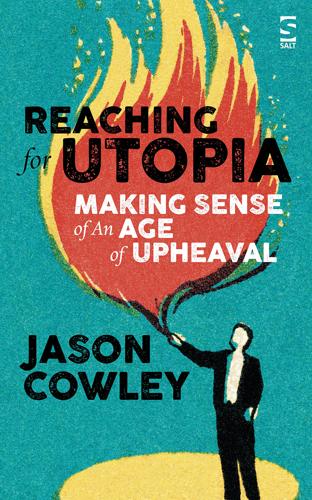
Reaching for Utopia: Making Sense of an Age of Upheaval
by
Jason Cowley
Published 15 Nov 2018
The first, from 1941 to 1979, was broadly the period of the social democratic welfare capitalist consensus, which ended when Margaret Thatcher won the 1979 general election. The second – the so-called neoliberal era – was characterised by far-reaching free market transformation: the privatisation of nationalised industries; the rolling back of the interventionist state; tax cuts and deregulation; the liberalisation and opening up of the City of London (through the abolition of capital and exchange controls, the ‘Big Bang’, and so on); and the emergence of the new globalised economic order. The left initially misunderstood Thatcherism, dismissing it as a transient phenomenon. But it became clear that it was something quite different: a counter-hegemonic project.
…
They were from east London and had been child wartime evacuees, an experience of separation and dislocation my mother found especially upsetting. Their education was interrupted by the war and they both left school at fifteen, my father (who passed up a scholarship to study engineering) to work as an apprentice shirt cutter and my mother as an assistant in a City of London law firm. They met at a dance at Manor Hall, Chigwell, Essex, and were married in 1958. A few months later they moved to Harlow – my mother’s eldest sister had already settled there – searching for new opportunities in the nascent new town. The 1946 New Towns Act created eight towns, the purpose of which was to provide decent housing for 340,000 ‘surplus’ or ‘bombed-out’ Londoners – after more than a million houses were destroyed or damaged in the capital during the Second World War.
…
He believes his disdain for them was vindicated by their embrace of austerity, for which he would say they have been deservedly punished by the electorate. Brown has remained active in public life, intervening to campaign against Scottish independence in 2014 and against Brexit in 2016. When I had lunch with him at his private office in the City of London a few months before the European referendum, he still could not understand how he lost to David Cameron and George Osborne. And he still had the air of a man who believes himself to be profoundly misunderstood. Brown’s political ambition was to remake Thatcherite Britain as a social democratic country at ease with itself.
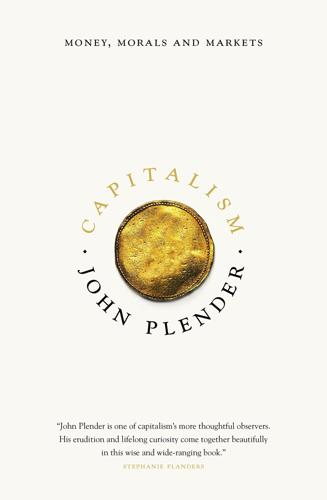
Capitalism: Money, Morals and Markets
by
John Plender
Published 27 Jul 2015
When I left Oxford University in 1966, I embarked on what I confidently expected to be the great twentieth-century novel. With about a third of it written, it dawned on me that it was horrendously devoid of literary merit. When I binned the incomplete manuscript, I had no Plan B and thus succumbed to parental pressure to join one of the big firms of chartered accountants in the City of London, where a great uncle of mine had been the dominant figure through most of the first half of the century. Three years there left me with a profound distaste for accountancy and a qualification that I did not expect to be of much use. Yet I acquired a growing interest in the workings of the global economy and an enduring concern about the ethical basis of capitalism.
…
His building activities relied heavily on credit, yet he was notoriously reluctant to pay his creditors, even stipulating in his will that his debts should not be met. He ignored restrictions imposed by Acts of Parliament on new building and often demolished existing structures without permission. And he cut corners in his building work as well as with the law. So cheap were the materials in the houses he built in Mincing Lane in the City of London that they collapsed soon after construction. Barbon’s modus operandi in clearing and assembling sites for development is nicely caught by Roger North, Barbon’s architect for the rebuilding of the Temple, who describes him turning up, invariably late, to deal with the occupants of potential development land: He would make his entry, as fine and as richly dressed as a lord of the bedchamber on a birthday.
…
In 2004, Ben Bernanke, governor of the Fed and later its chairman, said: ‘My view is that improvements in monetary policy, though certainly not the only factor, have probably been an important source of the Great Moderation.’45 This plaudit for central bankers included by implication a pat on the back for Bernanke himself. The approach to central banking outlined here was in marked contrast to the days before academics and professional economists took over from banking practitioners at the head of leading central banks. David Kynaston quotes, in his colourful history of the City of London, a paper prepared in 1962 at the Bank of England for a course on central banking. The authors, Maurice Allen and Humphrey Mynors, economic adviser and deputy governor respectively, assembled a list of propositions circumspectly called ‘Opinions Attributed to Central Bankers’. Among the more revealing were these: A central banker needs a sense of smell.
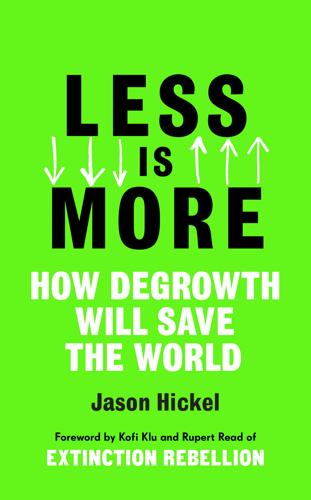
Less Is More: How Degrowth Will Save the World
by
Jason Hickel
Published 12 Aug 2020
In 2010, $3.55 billion was spent on lobbying, up from $1.45 billion in 1998.56 And it pays off: one study found that money spent on lobbying the US Congress earned returns of up to 22,000% in the form of tax breaks and profits from preferential treatment.57 As a result of political capture, the interests of economic elites in the US almost always prevail in government policy decisions even when the vast majority of citizens disagree with them. In this sense, the US resembles a plutocracy more than a democracy.58 Britain exhibits similar tendencies, albeit for different (and older) reasons. Britain’s financial hub and economic powerhouse, the City of London, has long been immune from many of the nation’s democratic laws and remains free of parliamentary oversight. Voting power in the City of London council is allocated not only to residents, but also to businesses: and the bigger the business, the more votes it gets, with the largest firms getting 79 votes each. In Parliament, the House of Lords is filled not by election but by appointment, with ninety-two seats inherited by aristocratic families, twenty-six set aside for the Church of England, and many others ‘sold’ to rich individuals in return for large campaign donations.59 We can see similar plutocratic tendencies when it comes to finance.
…
Spinoza grew up in a Sephardic Jewish family in Amsterdam in the 1600s, just as Descartes was becoming a celebrity. But while the elites of the day fawned over Descartes’ dualism, Spinoza wasn’t convinced. In fact, he took exactly the opposite view. Spinoza pointed out that the universe must emerge from one ultimate cause – what today we might recognise as the Big Bang. Once we accept this fact, Spinoza argued, then we have to accept that while God and souls and humans and nature might seem to be fundamentally different kinds of entities, they are really just different aspects of a single, grand Reality – a single substance – and governed by the same forces. This has radical implications for the way we think about the world.
…
You may end up having to pay off your original loan many times over – perhaps even for the rest of your life. If you don’t, then debt piles up and eventually triggers a financial crisis. Either you grow or you collapse. Compound interest creates a kind of artificial scarcity. And it has a direct ecological impact. Countries loaded with old debts are under heavy pressure to deregulate logging and mining and other extractive industries, plundering ecosystems in order to meet their debt obligations. The same is true of households. Researchers have found that households with high-interest mortgages work longer hours than they would otherwise need to simply in order to stay afloat.44 As the anthropologist David Graeber has observed, the financial imperatives of debt ‘reduce us all, despite ourselves, to the equivalent of pillagers, eyeing the world simply for what can be turned into money’.45 Fortunately, there’s a way to relieve this pressure.
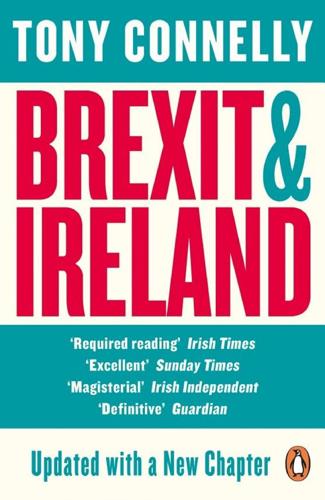
Brexit and Ireland: The Dangers, the Opportunities, and the Inside Story of the Irish Response
by
Tony Connelly
Published 4 Oct 2017
Ivan Rogers was born in Bournemouth and educated at a grammar school, entering the civil service in 1992. Having served as a Private Secretary to the former Chancellor, Kenneth Clarke, he was seconded to the Cabinet of Sir Leon Brittan, the UK’s EU Trade and External Affairs Commissioner, and later became the Principal Private Secretary to Tony Blair. He left Number 10 to work in the City of London for both Barclays and Citigroup, returning to Downing Street in 2012 as Cameron’s Adviser for Europe and Global Issues. In 2013 he was back in Brussels, this time as Permanent Representative, where he struck up a firm friendship with Declan Kelleher, his Irish counterpart, who himself had just arrived from Ireland’s embassy in China.
…
In 2015, the UK still had the largest share of foreign direct investment (FDI) in Europe, holding 18.7 per cent of the entire FDI ‘stock’. The Economic and Social Research Institute estimates that a hard Brexit could increase Ireland’s FDI share by 7.3 per cent, or €23.4 billion over 10 years. The big targets are pharmaceuticals, information technology and financial services. The City of London is the world’s biggest and wealthiest financial hub. It represents 7 per cent of Britain’s GDP. But Brexit poses an existential threat. According to the Brussels think-tank Bruegel, 35 per cent of the City’s wholesale banks service EU27 clients, so as much as €1.8 trillion in assets might be on the move, including potentially 15 per cent of banking jobs.
…
The government has been reassuring investors that there are 3.5 million square feet of new office space under construction in Dublin, one million under refurbishment and five million in the planning process. ‘We have more than enough space to facilitate what might be coming across,’ says Eoghan Murphy. ‘There isn’t going to be a big bang moment here. Thousands of bankers aren’t going to jump on boats and come up the Liffey. People are going to move over time.’ The Central Bank’s Macro-Financial Review in June 2017 indicated that Irish house prices had risen at an annual rate of 10.5 per cent as of April, the figures coinciding with a warning by the OECD that ‘another bubble may be forming’.
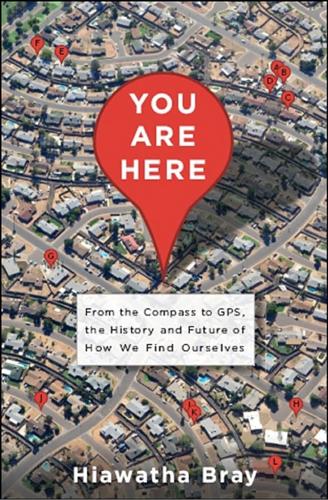
You Are Here: From the Compass to GPS, the History and Future of How We Find Ourselves
by
Hiawatha Bray
Published 31 Mar 2014
While entirely self-contained and thus unjammable, the system was not a true inertial navigation system. It was merely good enough to ensure that a missile would fly straight up during launch, then arc over and plunge to earth a couple of hundred miles away. A preset guidance fin on the rocket would aim it in the general direction of its rather large target—more often than not, the city of London. Over the course of World War II, the Germans launched about three thousand such rockets, named V-2. They scarcely made a difference in the outcome of the war, but they killed about five thousand people. Even more than the V-1, the V-2 was a terror weapon. The V-1 cruise missiles were slow and loud.
…
And not because of a lack of suitable technology. One of the world’s leading theoretical physicists insisted that the very laws of nature made inertial navigation impossible. George Gamow, a Ukrainian scientist who had fled life under Joseph Stalin and emigrated to the United States, would play a major role in developing the Big Bang theory of the origin of the universe and a minor role in the history of navigation. Gamow asserted that Albert Einstein’s theory of general relativity ensured that an inertial navigator would never work. One of the curious consequences of Einstein’s theory was the equivalence of acceleration and gravity.
…
“You could pretty much pull up into any parking lot, open up your laptop, find an open Wi-Fi signal and get your e-mail,” Morgan recalled. “The more we did it, we didn’t have to search as much. . . . [W]e were visibly seeing, month to month, the growth in Wi-Fi.”7 It was like an engraved invitation to a couple of ambitious businessmen. Wi-Fi was becoming a billion-dollar business. Unlike other radio-based technologies, it was deregulated. Anybody with a good idea could forge ahead, without FCC approval. At first, neither man knew exactly how they would profit from Wi-Fi. Then Morgan read about “mesh networking,” a concept that seeks to overcome one of Wi-Fi’s main drawbacks, its limited range. Wi-Fi devices generally have a range of a few hundred feet, enough to serve a home or a small business office.
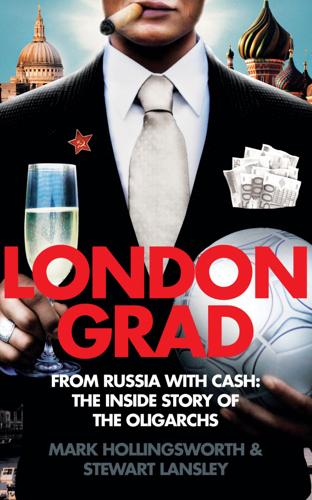
Londongrad: From Russia With Cash; The Inside Story of the Oligarchs
by
Mark Hollingsworth
and
Stewart Lansley
Published 22 Jul 2009
As one Russian who personally knows several oligarchs put it, ‘The UK government may not care how these guys made their money or what they get up to as long as they don’t bring their dubious activities into Britain. But we can’t have it both ways. We can’t let them in and expect the seedy elements to stop short of the English Channel.’ The country’s leading expert on Russian history, Professor Robert Service of St Antony’s College, Oxford, agrees: ‘The British government has collaborated with the City of London in offering a haven for businessmen from Russia who need to expatriate their money. More circumspect, New York and Stuttgart have failed to compete in pursuit of Russian capital. Britain asks few questions about the provenance of new Russian wealth. Hence the hitmen who keep on arriving on our shores to settle accounts by violent means.’14 CHAPTER 2 The Russian Billionaires’ Club ‘What is hard to dispute is that, while hundreds of people became seriously rich, 150 million Russians now live in a country which sold its mineral wealth for a mess of pottage’1 - DOMINIC MIDGLEY and CHRIS HUTCHINS, 2005 IN 2002 THE RUSSIAN FILM Oligarkh was released.
…
As a further indication of his apparent desire to show that his operations had been above board, Curtis also established contact with law enforcement agencies in Gibraltar and London. In early 2004 he met an official in the Gibraltar Criminal Intelligence Agency and gave him copies of Menatep documents. He also liaised with Matthew Porter, a Foreign Office civil servant responsible for international financial services, and Alan Kalbfell, a City of London police officer then assigned to the Foreign Office, to pass on information about the oligarchs. (When approached by the authors, all three declined to comment about their dealings with Curtis.) Meanwhile, Khodorkovsky remained in jail in Krasnokamensk, Siberia, anxiously awaiting trial. To some extent his earlier charm offensive had paid off.
…
Deri-paska invited Nat Rothschild to join the advisory board of Rusal and consulted him on most of his deals, notably oil exploration in the Black Sea and investments in Ukraine and Kazakhstan. It was the Rothschild name and the attendant connections invoked by that dynasty that mesmerized Deripaska. Unsure of himself in the City of London, Nat Rothschild’s contacts with the banks were invaluable. A measure of Rothschild’s importance was that he held shares in a Deripaska-controlled company in the UK called London and Russia Holdings plc, now dormant. ‘He trusted Rothschild,’ another former aide said. ‘Trust was a very important issue for Deripaska.
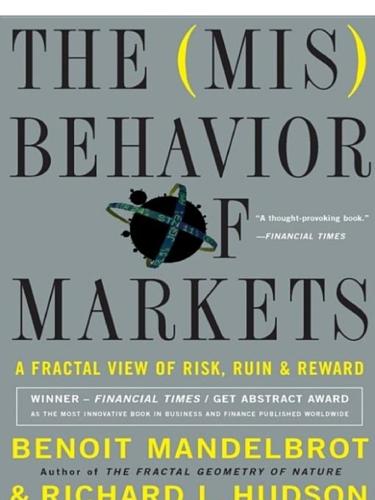
The Misbehavior of Markets: A Fractal View of Financial Turbulence
by
Benoit Mandelbrot
and
Richard L. Hudson
Published 7 Mar 2006
Today, some of his ideas are accepted as orthodoxy. As the last chapter will show, they are incorporated into some of the mostsophisticated mathematical models with which banks and brokerage houses manage money, into the ways math Ph.D.’s price exotic options or measure portfolio risk from Wall Street to the City of London. For the sake of historical precision, a technical listing is in order here. Mandelbrot was the first to take seriously and study the so-called power-law distributions. His 1962 argument that prices vary far more than the standard model allows—that their distributions have “fat tails”—is now widely accepted by econometricians.
…
That is 5.1 standard deviations, or 5.1σ, from the average. If exchange rates were Gaussian that would be expected to happen once in a century. But the biggest fall was a heart-stopping 7.92 percent, or 10.7σ. The normal odds of that: Not if Citigroup had been trading dollars and yen every day since the Big Bang 15 billion years ago should it have happened, not once. No bell curve. Four centuries of history and turmoil are recorded here, in this record (from DeVries 2002) of the frequency of differentsize changes in the sterling-guilder exchange rate. These data, from 1609 to 2000, do not fit the standard bell curve: There are too many price changes that are very small, and too many that are very large—hence too few points in between.
…
Picking up Hurst’s trail in the 1960s, I discovered the same “Nile pattern” in many other contexts—oddest of all, in how a stock price fluctuates. The Nile pattern is a crucial part of fractal geometry. Other researchers, broadening my work in recent years, have found it in international crude oil prices, London gold fixings, and the deregulated U.S. electricity market. Indeed, the Nile pattern provides the second major link in my theory of how financial markets work—a necessary complement to the first one about scaling laws and “fat tails” of the last chapter. Adding a third link in a later chapter, a comprehensive market model results.
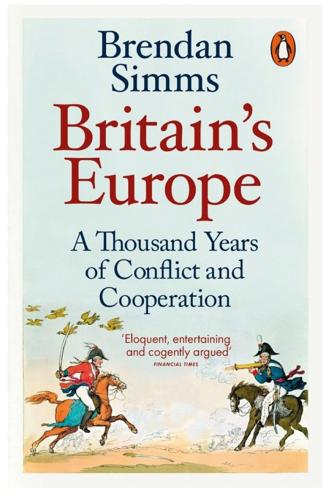
Britain's Europe: A Thousand Years of Conflict and Cooperation
by
Brendan Simms
Published 27 Apr 2016
In 1994, the Channel Tunnel was opened, greatly facilitating communication between the United Kingdom and the continent. Britain’s economy grew, sucking in migration from across the union, with EU citizens eventually securing a pan-continental right of residence. Despite Britain’s non-membership of the euro, the City of London boomed as a commercial and financial centre for the entire continent. Nor did Britain’s refusal to join the Schengen Area of passportless travel within Europe cause much difficulty, at least at first. The French authorities checked documents in London, while the British did so in Calais. It seemed as if the Narrow Sea had become a European lake.
…
When the Currency Crisis prompted a fresh surge of fiscal and political integration, the British Question was posed anew.3 What implications would the new measures have for the sovereignty of the United Kingdom, and by what right did she participate in decisions designed to rescue the eurozone of which she was not a member? Alternatively, why should she pay for mistakes made in Brussels? Matters came to a head at the 2011 summit, when Prime Minister David Cameron vetoed the EU treaty designed to save the euro in order to protect the interests of the City of London and immediately found himself not merely isolated but circumvented by the rest of Europe.4 Since then, the EU’s principle of free movement has reignited the immigration issue in the UK, as the relative dynamism of her economy there sucks in labour from across the Union. The European Arrest Warrant, which the senior Conservative MP and former shadow home secretary David Davis condemned as ‘leaving Britain in handcuffs’, provokes resistance.5 Old grievances about Brussels ‘red tape’ continue to fester, as exemplified by a letter to the conservative Sunday Telegraph signed by more than five hundred business leaders.6 The relationship has also been soured by an argument over the size of the increase of Britain’s contribution to the budget in order to reflect her greater economic weight since the last calculation was made in 1995.7 Above all, the prime minister is facing a serious domestic challenge over Europe.
…
But there would also be considerable costs to bailing precipitately out of the current European Union, which have been documented by numerous studies.16 Britain would lose access to the European Court of Justice to protect her position in the Single Market. She could continue to trade with Europe as before, but she might be compelled, like Norway and Switzerland, to abide by rules which she no longer participated in setting. This would have particularly serious consequences for the City of London, which would be exposed to French or German attempts to shift the financial capital of Europe to Paris or Frankfurt, or to deny London the right to trade in euro-dominated financial products. If Britain exercised her right to restrict immigration, she would be in danger of depriving her economy of much-needed skilled and willing labour, which is why most business opinion opposes withdrawal from the European Union.
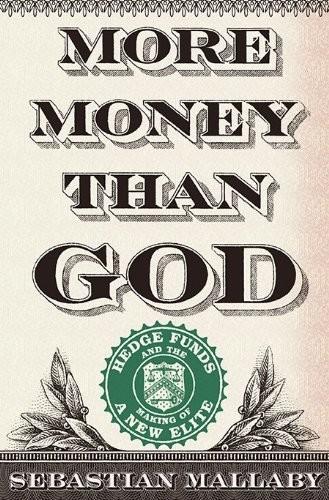
More Money Than God: Hedge Funds and the Making of a New Elite
by
Sebastian Mallaby
Published 9 Jun 2010
It pointed him toward a distinctive way of thinking about finance and inspired the name of the philanthropy he was to found, the Open Society Institute. Soros left LSE with mediocre grades and spent a while in dead-end jobs, at one point selling handbags in northern Wales. He escaped this version of his destiny by writing to all the investment banks in the City of London, inquiring about entry-level positions. Spurned by the establishment because of his lack of social ties, he eventually landed a job with a brokerage run by Hungarian émigrés; after learning the financial ropes, he found his way to New York in 1956, figuring he could stomach Wall Street for five years, long enough to put aside the savings he needed to support a life as an independent philosopher.2 But he soon found he was too good at the investing game to quit.
…
To put that probability into perspective, it meant that an event such as the crash would not be anticipated to occur even if the stock market were to remain open for twenty billion years, the upper end of the expected duration of the universe, or even if it were to be reopened for further sessions of twenty billion years following each of twenty successive big bangs. Mandelbrot, who had abandoned financial economics after the brush-off in the early 1970s, returned to the subject with a vengeance. His Soros-like thinking on “chaos theory,” which emphasized that small pieces of information could generate large price moves because of complex feedback loops, acquired a cult following among money managers.
…
Interviewed years later in his Manhattan home, Rogers conducted the discussion while wincing and gasping on an exercise bike that was rigged up with a laptop and phone for maximum multitasking.6 Together with Rogers, Soros continued to look for moments when an unstable equilibrium might reverse. He saw, for example, that financial deregulation was changing the game in banking, transforming a dull sector of the stock market into a sexy one: He made a fortune from bank stocks. He spotted that the Arab-Israeli war of 1973 changed the game for the defense industry, since Soviet weaponry used by Egypt had performed well, demonstrating that the United States faced a greater challenge than previously imagined.
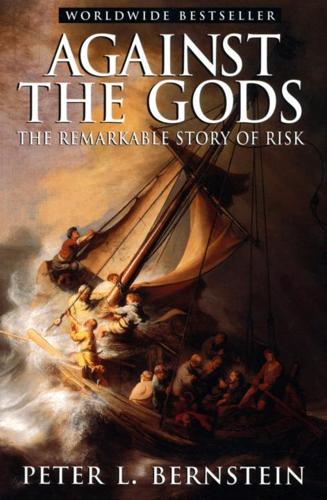
Against the Gods: The Remarkable Story of Risk
by
Peter L. Bernstein
Published 23 Aug 1996
And there is pleasure in doing something new, though never so little."6 But he had a serious objective, too: "[T]o know how many people there be of each Sex, State, Age, Religious, Trade, Rank, or Degree, &c. by the knowing whereof Trade and Government may be made more certain, and Regular; for, if men know the People as aforesaid, they might know the consumption they would make, so as Trade might not be hoped for where it is impossible."7 He may very well have invented the concept of market research, and he surely gave the government its first estimate of the number of people available for military service. Information about births and deaths had long been available in parish churches, and the City of London itself had started keeping weekly tallies from 1603 onward. Additional data were available in Holland, where the towns were financing themselves with life annuities-policies purchased for a lump sum that would pay an income for life to the owner of the policy, and occasionally to survivors. Churches in France also kept records of christenings and deaths.
…
His line of analysis is known today as "statistical inference"-inferring a global estimate from a sample of data; subsequent statisticans would figure out how to calculate the probable error between the estimate and the true values. With his ground-breaking effort, Graunt transformed the simple process of gathering information into a powerful, complex instrument for interpreting the world-and the skies-around us. The raw material that Graunt gathered was contained in "Bills of Mortality" that the City of London had started collecting in 1603. That was only incidentally the year in which Queen Elizabeth died; it was also the year in which London suffered one of the worst infestations of the plague. Accurate knowledge of what was going on in the field of public health was becoming increasingly important.10 The bills of mortality revealed the causes of death as well as the number of deaths and also listed the number of children christened each week.
…
The others range from "affrighted" and "bit with mad dog" (one each) to "worms," "quinsie," and "starved at nurse." There were only seven "murthers" in 1632 and just 15 suicides. In observing that "but few are Murthered ... whereas in Paris few nights came without their Tragedie," Graunt credits the government and the citizen guard of the City of London. He also credits "the natural, and customary, abhorrence of that inhumane Crime, and all Bloodshed by most Englishmen," remarking that even "Usurpers" during English revolutions executed only a few of their countrymen. Graunt gives the number of deaths from plague for certain years; one of the worst was in 1603, when 82% of the burials were of plague victims.
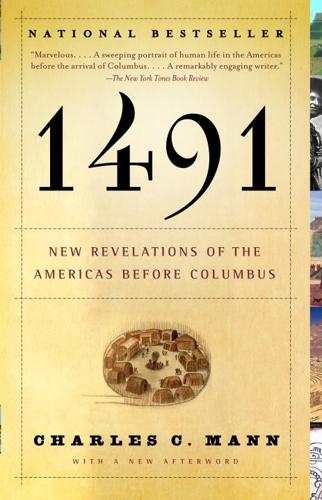
1491
by
Charles C. Mann
Published 8 Aug 2005
The only difference was that he took his ship to Málaga, on Spain’s Mediterranean coast. There he intended to sell all of his cargo, including the human beings. The Indians’ appearance in this European city surely caused a stir. Not long before, Shakespeare had griped in The Tempest that the populace of the much bigger city of London “would not give a doit [a small coin] to a lame beggar, [but] will lay out ten to see a dead Indian.” Hunt managed to sell only a few of his captives before local Roman Catholic priests seized the rest—the Spanish Church vehemently opposed brutality toward Indians. (In 1537 Pope Paul III proclaimed that “Indians themselves indeed are true men” and should not be “deprived of their liberty” and “reduced to our service like brute animals.”)
…
As the millennium approached, the American Bottom had a resident population of several thousand. Then, without much apparent warning, there was, according to the archaeologist Timothy R. Pauketat of the University of Illinois at Urbana-Champaign, what has been called a “Big Bang”—a few decades of tumultuous change. Cahokia’s mounds emerged from the Big Bang, along with the East St. Louis mound complex a mile away (the second biggest, after Cahokia, though now mostly destroyed) and the St. Louis mounds just across the Mississippi (the fourth biggest). Monks Mound was the first and most grandiose of the construction projects.
…
Cahokia chronology: There are many versions of Cahokian chronology, because the radiocarbon calibrations have been revised repeatedly, but they differ more in detail than in substance. I use the chronology in Dalan et al. 2003:69. But see also Fowler 1997: Appendix 1. London population: Weinreb and Hibbert eds. 1993:630–32. Cahokia not a city: Woods and Wells 2001. Big Bang: Pauketat 1994:168–74. Pauketat himself did not use the term “Big Bang,” though it is now in common use. Synchrony and proximity of mound sites: Emerson 2002. Engineering of Monks Mound: Woods 2001, 2000. My thanks to Ray Mann for help in understanding the engineering and to Dr. Woods for a copy of these and other papers. Pauketat’s model: Pauketat 1998; 1997:30–51; 1994:esp. chap. 7.
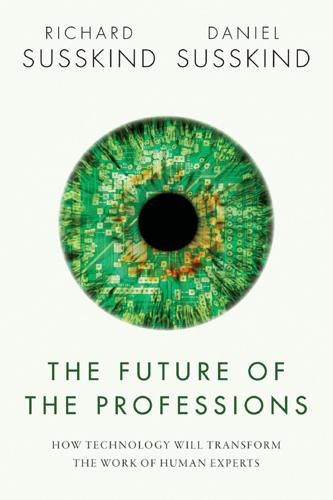
The Future of the Professions: How Technology Will Transform the Work of Human Experts
by
Richard Susskind
and
Daniel Susskind
Published 24 Aug 2015
These medieval guilds (mainly merchant guilds and craft guilds) were associations of specialists and artisans involved with the same trade or craft—they came together to set standards, control competition, to look after the interests of their members and families, and to enjoy the prestige of being part of a group of recognized experts. Here, amongst cobblers, bakers, carpenters, and many others, we find early signs of the self-regulation, monopoly, and the hankering after status that continues to prevail in many modern professions. In the City of London, members of particular guilds could be distinguished from one another by their livery (ceremonial dress), which led to these guilds becoming known as livery companies. It is telling that new livery companies continue to be set up and flourish. For example, the 100th livery company, the Worshipful Company of Information Technologists, was granted livery status in 1992, while the Worshipful Company of Management Consultants became the City’s 105th livery company in 2004.
…
And, as cost pressures build and increasingly capable systems emerge, more and more tasks that used to require the engagement of human experts will be undertaken either by less-qualified people with the support of appropriate systems, or taken out of human hands altogether. We can draw again here on an analogy from the world of traditional crafts. Some history helps. In the City of London there is a thriving community of ‘livery companies’. As we note in section 1.3, these organizations can be traced back to the ancient guilds and, in their early years, their focus was largely on regulating their trades. There are now 110 of these institutions, the longest-standing of which is the Mercers’ Company, founded in 1394 and now located in Ironmongers Lane in London.
…
In the first two parts of the book we describe the changes taking place within the professions, and we develop various theories (largely technological and economic) that lead us to conclude that, in the future—in the fully fledged, technology-based Internet society—increasingly capable machines, autonomously or with non-specialist users, will take on many of the tasks that currently are the exclusive realm of the professions. While we do not anticipate an overnight, big-bang revolution, equally we do not expect a leisurely evolutionary progression into the post-professional society. Instead, we predict what we call an ‘incremental transformation’ in the way in which we organize and share expertise in society, a displacement of the traditional professions in a staggered series of steps and bounds.
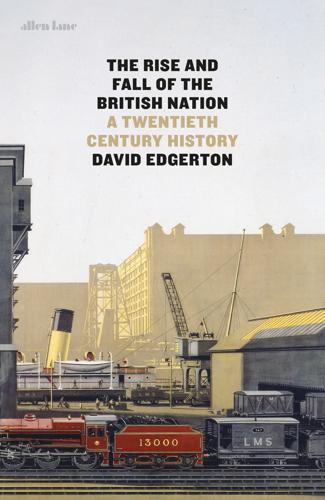
The Rise and Fall of the British Nation: A Twentieth-Century History
by
David Edgerton
Published 27 Jun 2018
It was the product of the liberalization of many activities especially in and around the London Stock Exchange. Stock Exchange membership had been limited to UK firms, which were restricted to particular activities, and charged cartelized prices. In 1983 the decision was taken to introduce a wholly new regime all at once in 1986 – hence the name, ‘Big Bang’. In this case deregulation, unlike in most other cases, really did lead to new business on a huge scale, to huge increases in employment as well. There was a much larger change in the City, which grew as a centre for the trading of offshore dollars and other financial transactions on a global scale. The City sold itself as an exporter of ‘financial services’.7 But it was not British-owned businesses which prospered, but giant foreign banks which moved in, taking over small enterprises, and transforming the culture of the City from a leisurely, gentlemanly one to something distinctively meritocratic and money-driven and American.
…
But the Labour left, while keen on the planned trade he called for, could not stomach the imperialism, so he dropped it.13 Mosley’s ‘New Labour Group’ opposed the expenditure cuts the government made in 1931 and six members resigned to form the protectionist New Party. It failed miserably in the 1931 general election and would turn into the radically nationalist British Union of Fascists. The party articulated the thesis that the City of London had as its main business investment overseas, which brought a return in the form of imports into the United Kingdom and which therefore undermined the economic nation.14 This was to become the standard thesis of economic nationalists of the left, too, but only later, as we shall see in Chapter 6.
…
His policy was one of maximizing national self-sufficiency, within the context of a self-sufficient empire, isolated from the world economy.47 Mosley claimed: ‘It is necessary for us to choose between the interests of those who have invested their money abroad and those who have invested their money and lives in the land of Great Britain’, a distinctly non-imperialist position.48 The BUF, arguing for the ‘rebirth of a nation’, increasingly attacked the City of London, and indeed the Conservative Party as the party of the City. The City, driven by foreign investment, from which followed high imports, undermined the economic nation.49 This nationalist thesis (which was, as we have seen, important on the left) was turned into a farcical one by William Joyce, once a senior figure in the BUF.
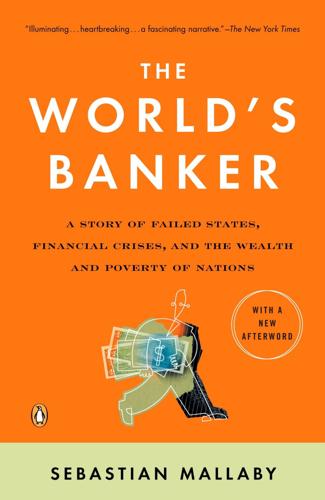
The World's Banker: A Story of Failed States, Financial Crises, and the Wealth and Poverty of Nations
by
Sebastian Mallaby
Published 24 Apr 2006
But the Bank is almost always in the lead, partly because a multilateral institution is best placed to coordinate rival flag-waving programs, but mostly because the Bank’s analytical machine has more intellectual juice in it. Jim Wolfensohn came to the Bank with his own kind of juice, and the mix has been explosive. He grew up in Australia, represented his country at the 1956 Olympics, then went to Harvard Business School. He became a master deal maker in the City of London and on Wall Street, leading the rescue of the Chrysler car company in 1979 and amassing a fortune of well over $100 million. He chaired New York’s Carnegie Hall and Washington’s Kennedy Center for the Performing Arts while running his own firm, and he performed concerts himself alongside the world’s best musicians.
…
He had a personal motive; Elaine, who had by now given birth to their second child, did not want to settle in Sydney. But there was also the fact that Wolfensohn had possibilities elsewhere. On business trips from Sydney, Wolfensohn had attended the court of Gordon Richardson, the wildly successful chairman of Schroders, then one of the leading financial houses in the City of London; and he had befriended Siegmund Warburg, founder of the eponymous bank, who took a shine to the young man because of his sophisticated feel for music. After the battle with Broinowski, Gordon Richardson took Wolfensohn off for a weekend at his country home, and one evening the job negotiations grew so furious that Peggy Richardson burst in on the two men; she ordered them off to bed, handing each a hot-water bottle.
…
The way forward may lie in an incremental approach: Rather than aspire to engineer reforms of entire civil services, the Bank should aim for easier wins—a competitive selection process for top positions in one key ministry, or gradual gains in publishing government accounts so that officials can be held accountable. As the Bank’s own governance department argued in a book on Africa published in 2004, big-bang projects to improve government administration have generally failed. Success tends to come where the Bank avoids excessive ambition, burrows into a country, and comes up with practical improvements. This is what it did in the Ugandan school system, where a bean-counting effort to track public expenditure brought about a big fall in corruption.
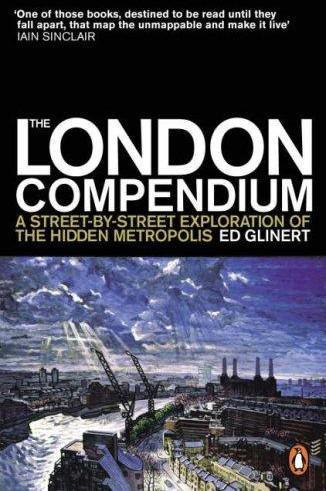
The London Compendium
by
Ed Glinert
Published 30 Jun 2004
A major blow came in the financial crash of 1931 when the Exchange lost most of its overseas business, while after the Second World War there were fears that the Labour government would nationalize the institution. Although this was averted, the Stock Exchange was hampered by exchange controls that prevented British residents from buying non-Sterling securities until 1979 when the Thatcher government introduced deregulation. This allowed outside corporations to own member firms, abolished minimum levels of commission and resulted in the functions of jobbers and brokers being merged. The so-called ‘Big Bang’ of 27 October 1986 saw the Exchange become a private limited company, with individual members no longer having voting rights, profits used for financing developments by the Exchange, rather than being distributed to shareholders, and trading conducted on computer and telephone, rather than in person.
…
Without limiting the rights under copyright reserved above, no part of this publication may be reproduced, stored in or introduced into a retrieval system, or transmitted, in any form or by any means (electronic, mechanical, photocopying, recording or otherwise) without the prior written permission of both the copyright owner and the above publisher of this book EISBN: 978–0–141–90725–3 For Katy and Marian Contents Acknowledgements Foreword The City of London ALDERSGATE, EC1 MOORGATE, EC2 CIRCLE LINE FENCHURCH, EC3 FLEET STREET | ST PAUL’S, EC4 Central London CLERKENWELL | FINSBURY, EC1 BLOOMSBURY, WC1 COVENT GARDEN, WC2 The West End CENTRAL LINE FITZROVIA, W1 MARYLEBONE, W1 MAYFAIR, W1 PICCADILLY LINE SOHO, W1 Westminster | Whitehall DISTRICT LINE VICTORIA LINE River Thames HAMMERSMITH, W6 FULHAM, SW6 CHELSEA, SW3, SW10 PIMLICO, SW1 WESTMINSTER, SW1 STRAND, WC2 CITY OF LONDON, EC4, EC3 WAPPING, E1 LIMEHOUSE, E14 ISLE OF DOGS, E14 BARNES, SW13 PUTNEY, SW15 WANDSWORTH, SW18 BATTERSEA, SW11 NINE ELMS, SW8 LAMBETH, SE1 SOUTH BANK, SE1 BANKSIDE, SE1 BERMONDSEY, SE1 ROTHERHITHE, SE16 DEPTFORD, SE8 GREENWICH, SE10 East London THE EAST END, E1 EAST LONDON LINE BETHNAL GREEN, E2 POPLAR | ISLE OF DOGS, E14 North London THE ANGEL | ISLINGTON, N1 NORTHERN LINE HIGHBURY, N5 HIGHGATE, N6 HOLLOWAY, N7, N19 STOKE NEWINGTON, N16 North-west London CAMDEN TOWN | REGENT’S PARK, NW1 BAKERLOO LINE HAMPSTEAD, NW3 ST JOHN’S WOOD, NW8 METROPOLITAN LINE South-east London SOUTHWARK, SE1 JUBILEE LINE GREENWICH, SE10 KENNINGTON, SE11 South-west London BELGRAVIA, SW1 BRIXTON, SW2, SW9 CHELSEA, SW3, SW10 EARL’S COURT, SW5 SOUTH KENSINGTON, SW7 West London BAYSWATER, W2 HAMMERSMITH, W6 HAMMERSMITH & CITY LINE KENSINGTON, W8 NORTH KENSINGTON, W10 NOTTING HILL, W11 SHEPHERD’S BUSH, W12 WEST KENSINGTON, W14 Select Bibliography People Index Subject Index Acknowledgements Without my agent, Faith Evans, and editor, Margaret Bluman, this book would not have been possible, and I cannot thank them enough for their guidance, hard work and help.
…
Beneath the building, the authorities laid a number of telephone lines linked to the Central Telegraph Exchange at Moorgate which monitored calls made to and from every foreign embassy in London. HQS Wellington The Honourable Company of Master Mariners’ floating livery hall was built at Devonport in 1934 and used in the South China Sea during the Second World War. CITY OF LONDON, EC4, EC3 Two griffins saved in 1963 from the demolished Coal Exchange on Lower Thames Street mark the western riverside boundary of the City of London, the ancient heart of London. Middle Temple Garden The gardens of the Middle Temple Inn of Court. Middle Temple Lane The dividing line between the Middle Temple and Inner Temple, which originally ran down to the water’s edge.

USA Travel Guide
by
Lonely, Planet
Just down the road, the Dambar Steakhouse ( 928-753-3523; 1960 E Andy Devine Ave; lunch $6-11, dinner $10-22; lunch & dinner; ) is a local landmark serving giant steaks in Old West bad-boy environs – but kiddies will be just fine at this spit-and-sawdust saloon with cowhide tablecloths. LAKE HAVASU CITY When the city of London auctioned off its 1831 bridge in the late 1960s, developer Robert McCulloch bought it, took it apart, shipped it, and then reassembled it at Lake Havasu City, which sits along a dammed-up portion of the Colorado River. The place attracts hordes of young spring-breakers and weekend warriors who come to play in the water and party hard.
…
Shedd Aquarium AQUARIUM Offline map Google map ( 312-939-2438; www.sheddaquarium.org; 1200 S Lake Shore Dr; adult/child $29/20; 9am-6pm Jun-Aug, to 5pm Sep-May; ) Top draws at the kiddie-mobbed Shedd Aquarium include the Oceanarium, with its beluga whales and frolicking white-sided dolphins, and the shark exhibit, where there’s just 5in of Plexiglas between you and two dozen fierce-looking swimmers. The 4D theater and the odd aquatic show cost extra (around $4 each). Adler Planetarium & Astronomy Museum MUSEUM Offline map Google map ( 312-922-7827; www.adlerplanetarium.org; 1300 S Lake Shore Dr; adult/child $12/8; 9:30am-6pm Jun-Aug, 10am-4pm Sep-May; ) Space enthusiasts will get a big bang (pun!) out of the Adler. There are public telescopes from which to view the stars, 3D lectures where you can learn about supernovas, and the Planet Explorers exhibit where kids can ‘launch’ a rocket. The Adler’s front steps offer Chicago’s primo skyline view (and are a renowned spot for the adults to smooch).
…
The affable Reagan won easily, and his election marked a pronounced shift to the right in US politics. Industrialization really did speed up American life. On farms, a bushel of wheat took three hours to produce in 1830, but only 10 minutes by 1900. Reagan wanted to defeat communism, restore the economy, deregulate business and cut taxes. To tackle the first two, he launched the biggest peacetime military build-up in history, and dared the Soviets to keep up. They went broke trying, and the USSR collapsed. Military spending and tax cuts created enormous federal deficits, which hampered the presidency of Reagan’s successor, George HW Bush.